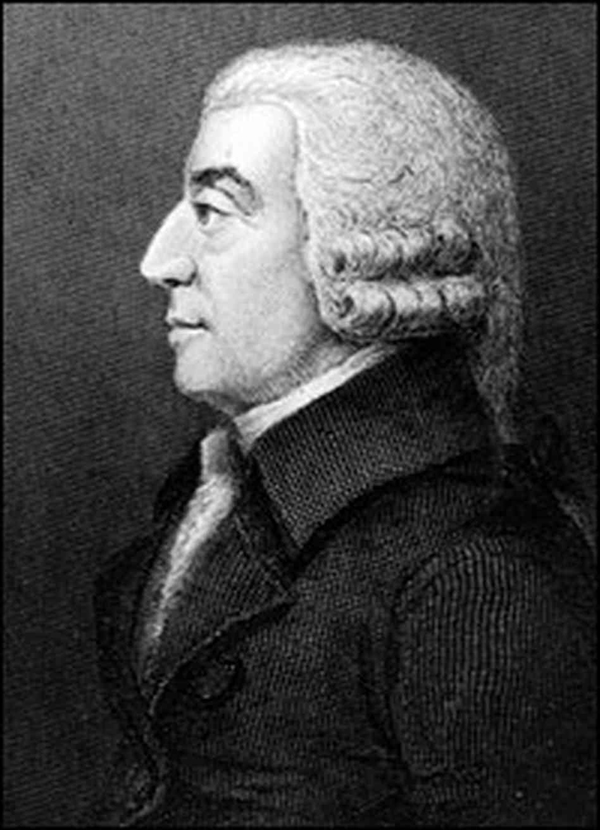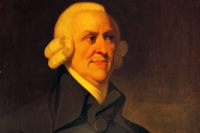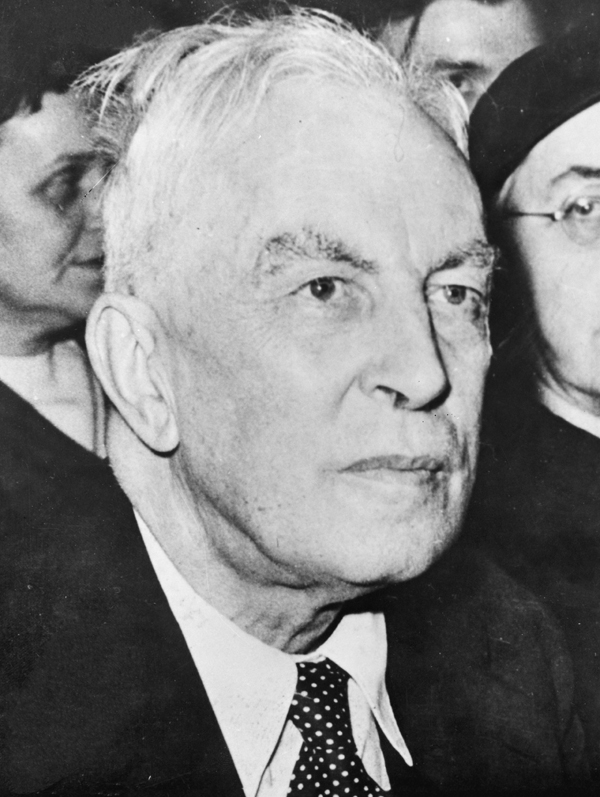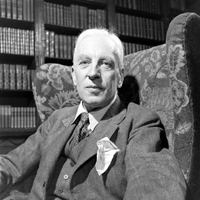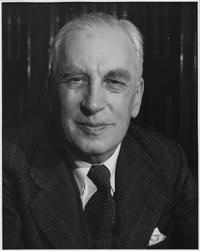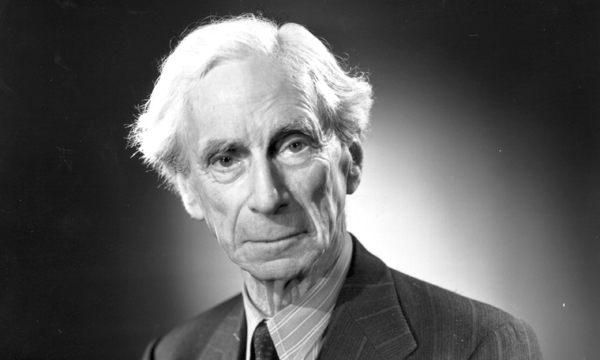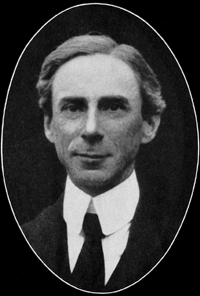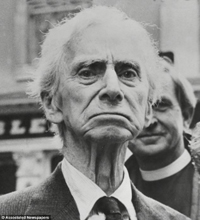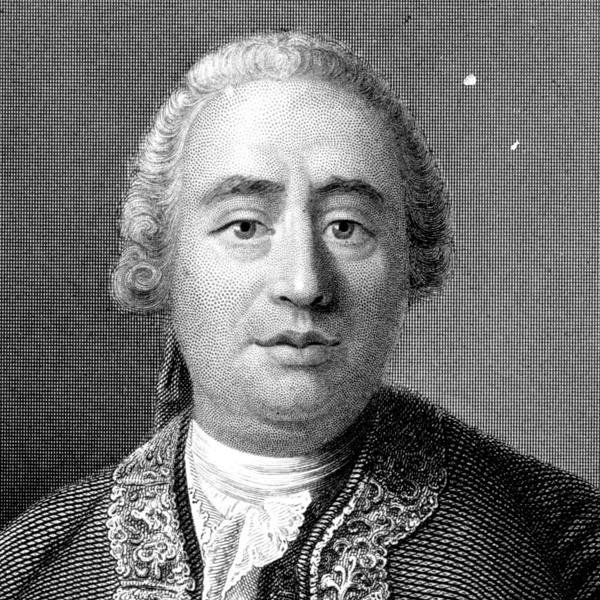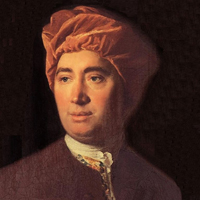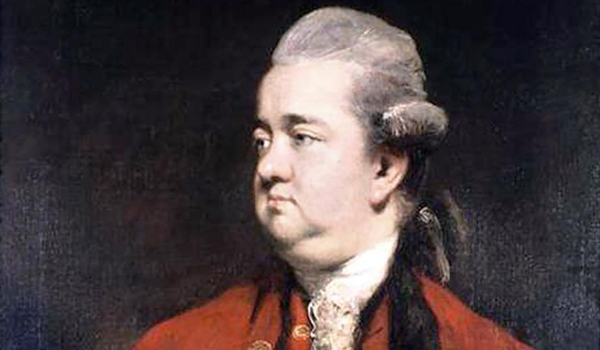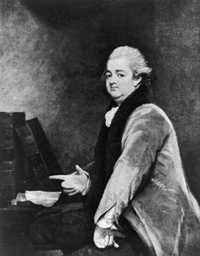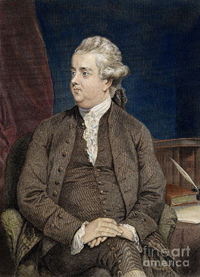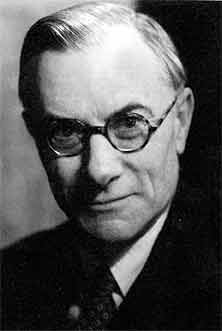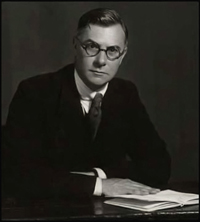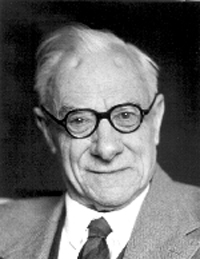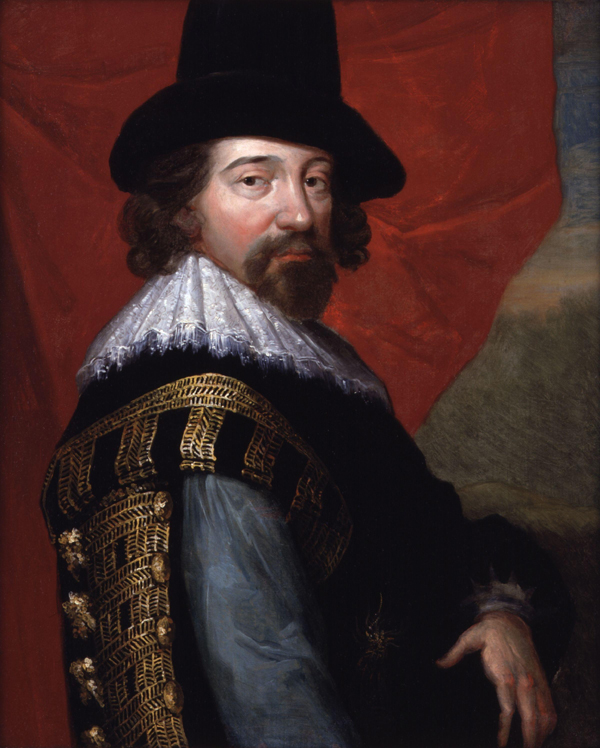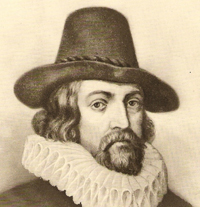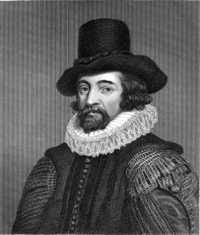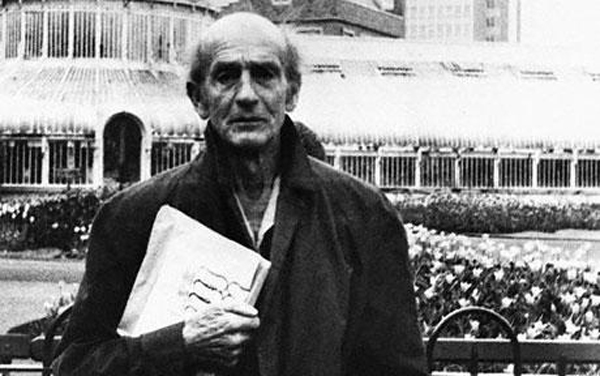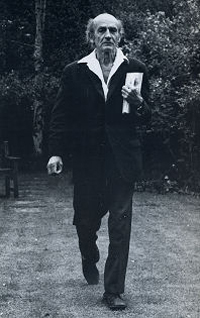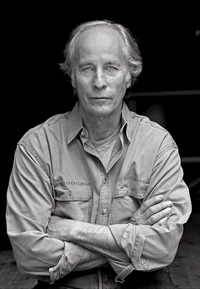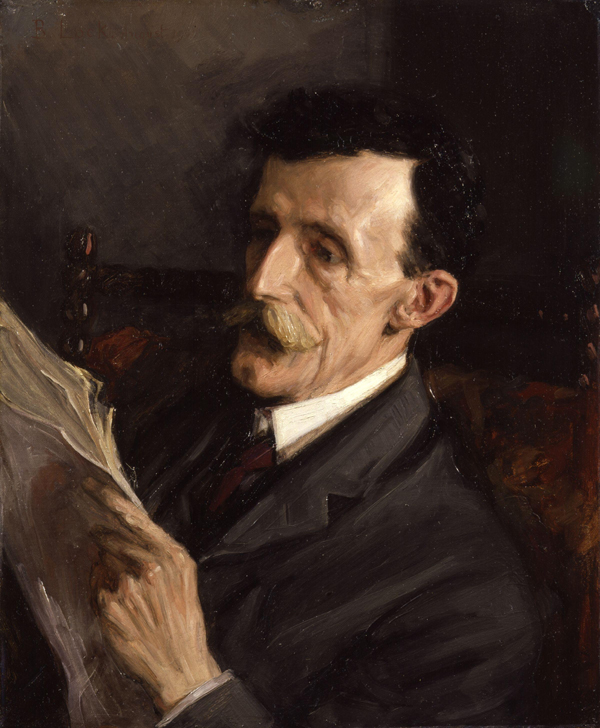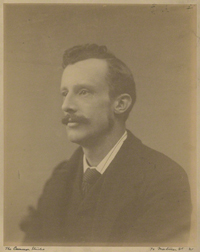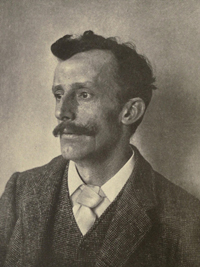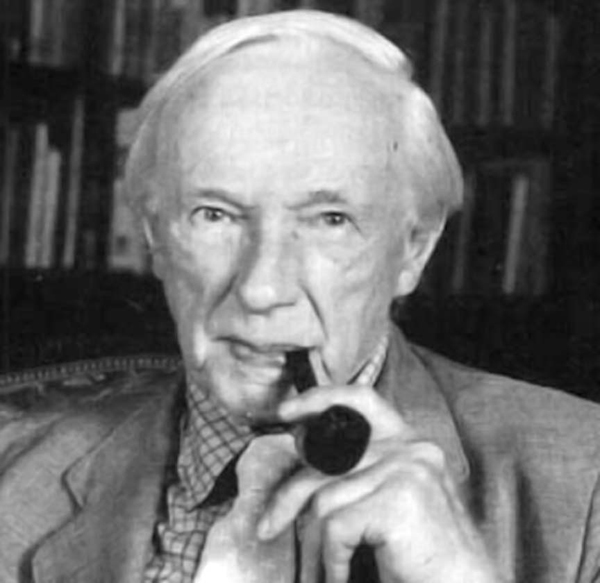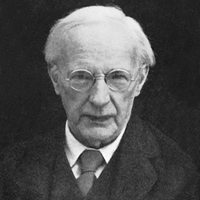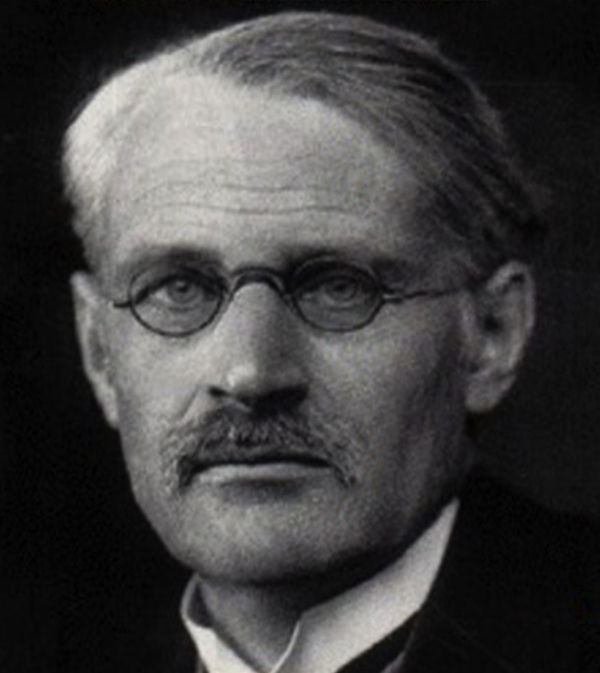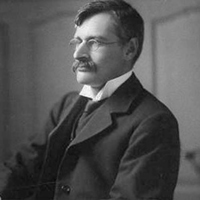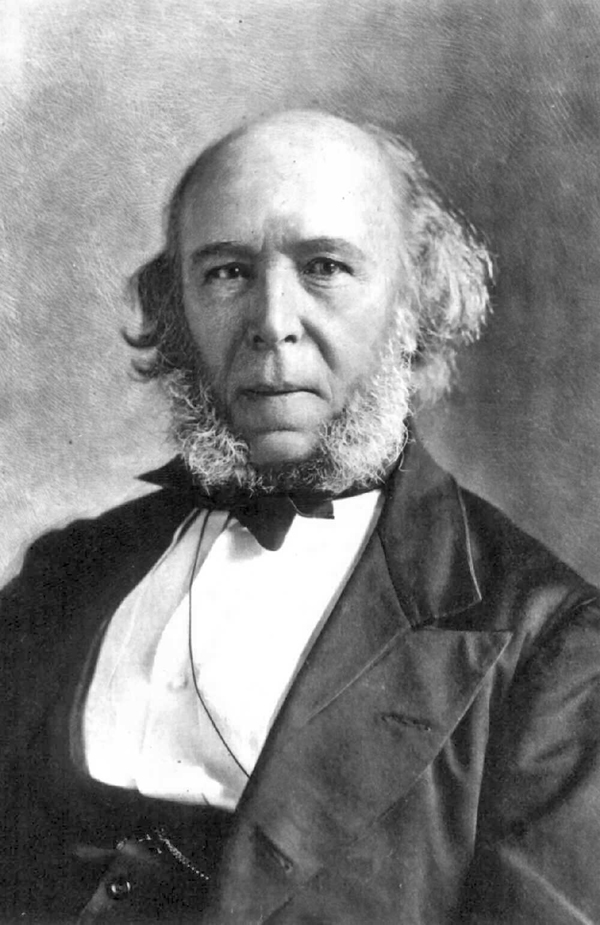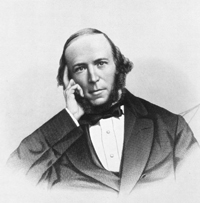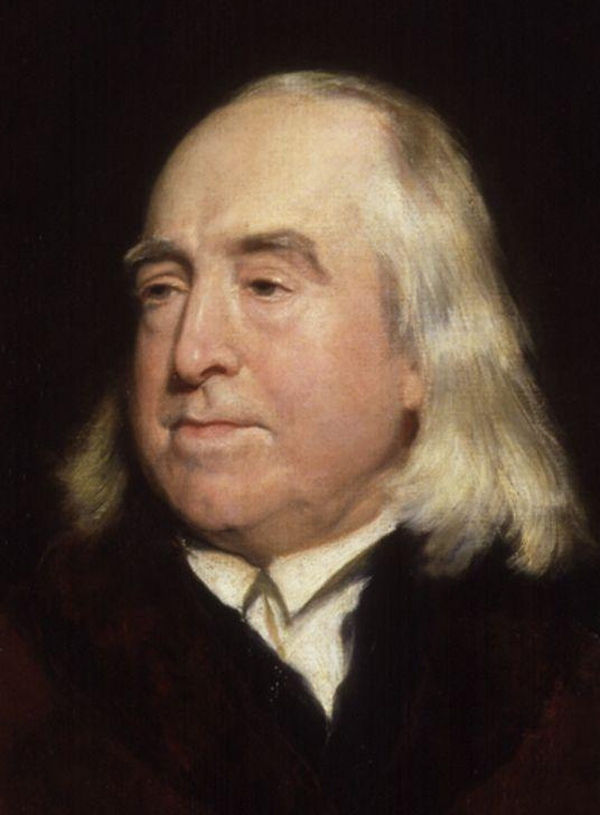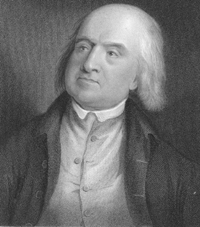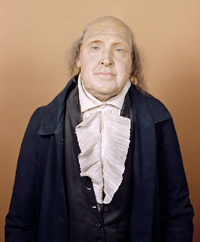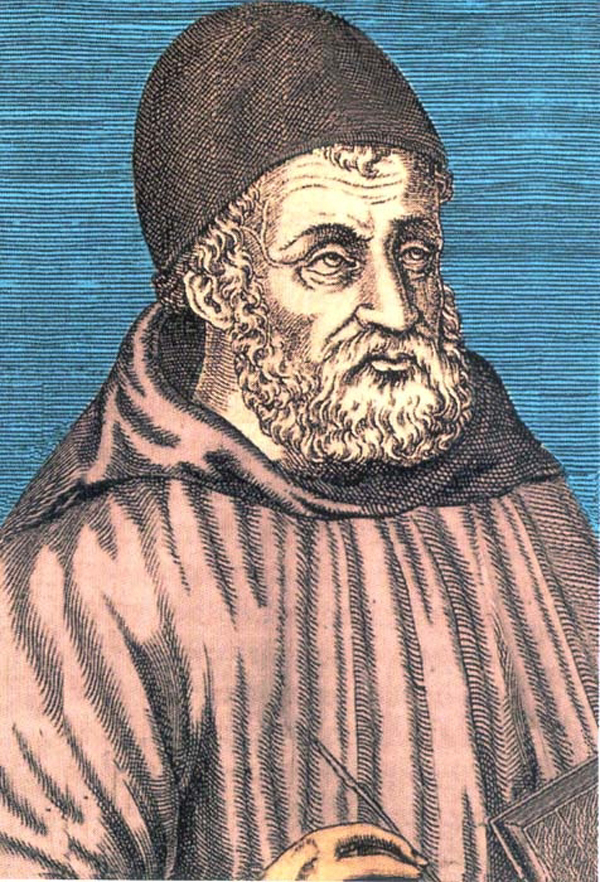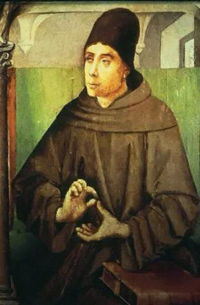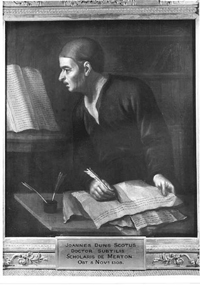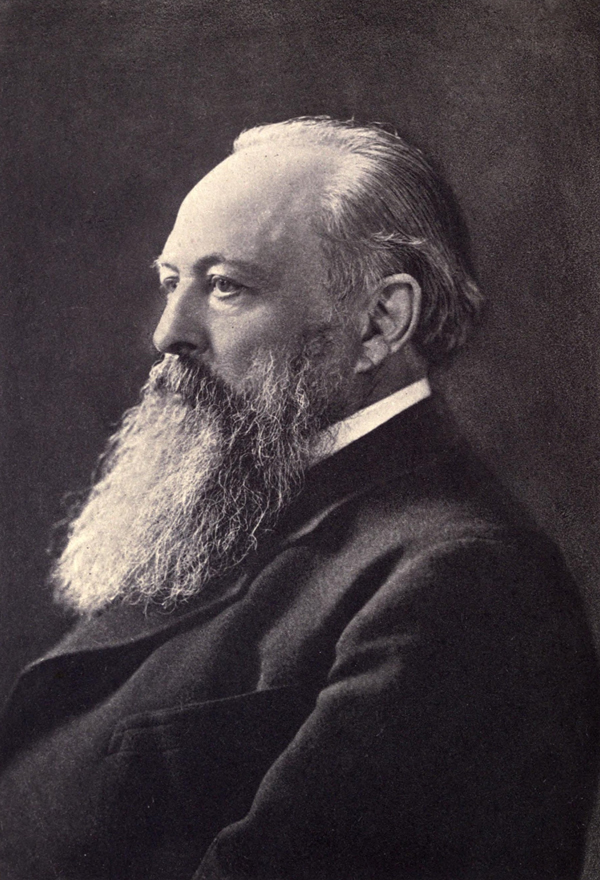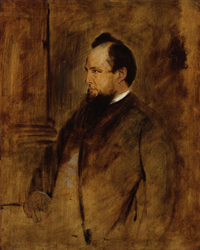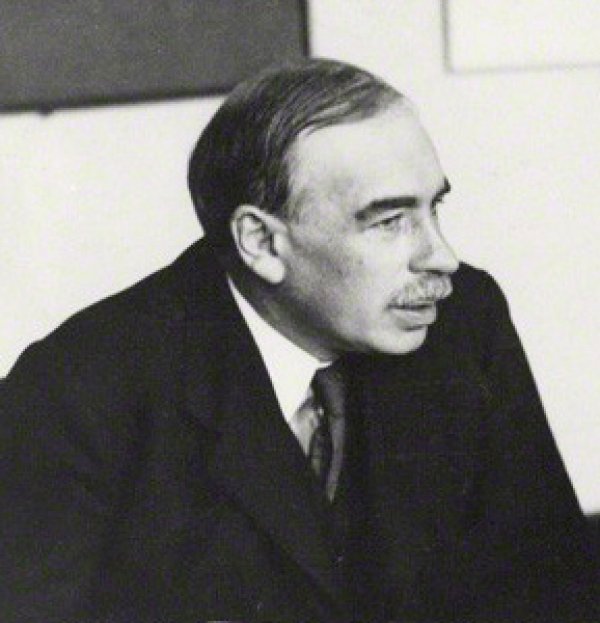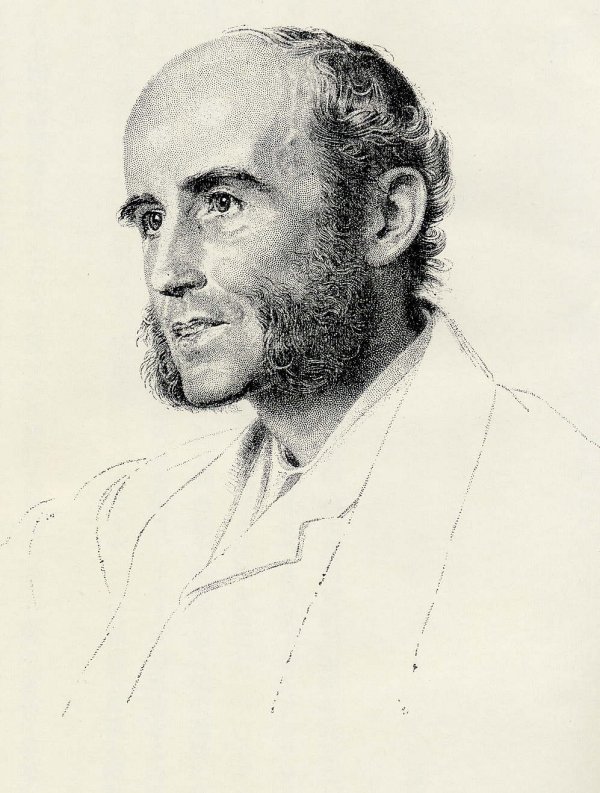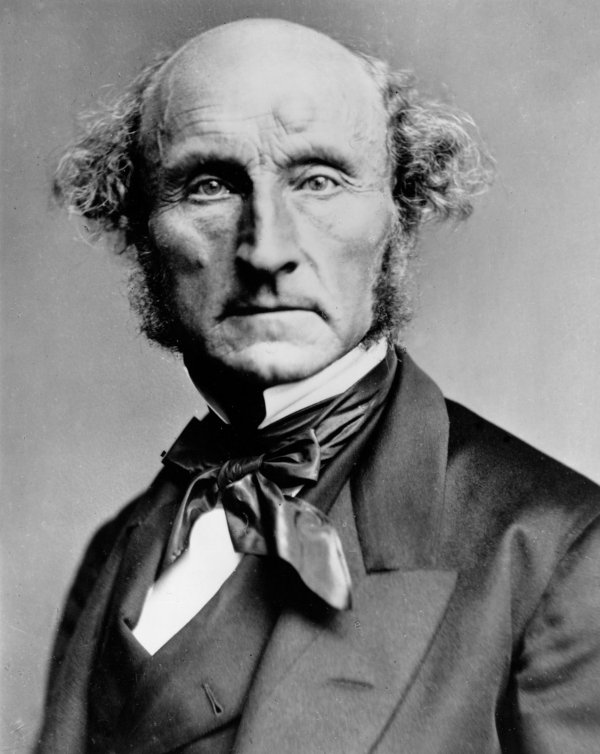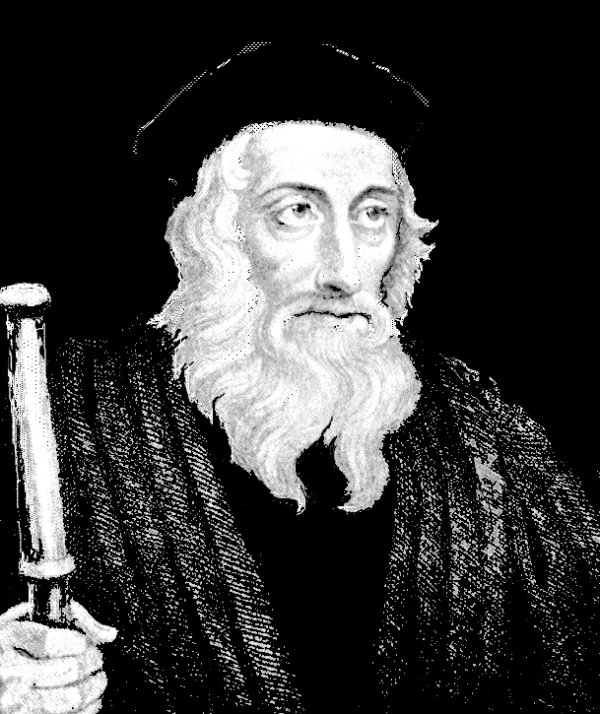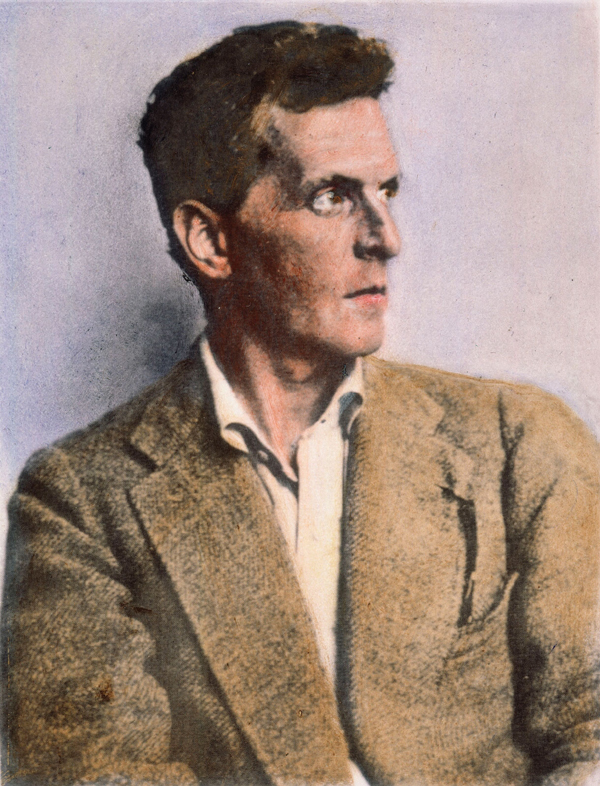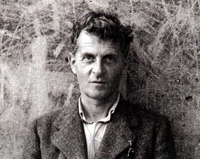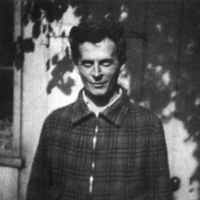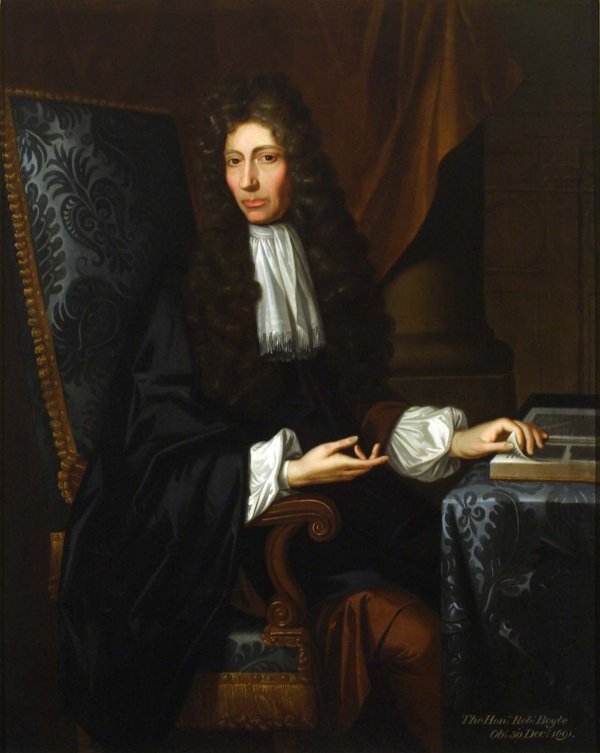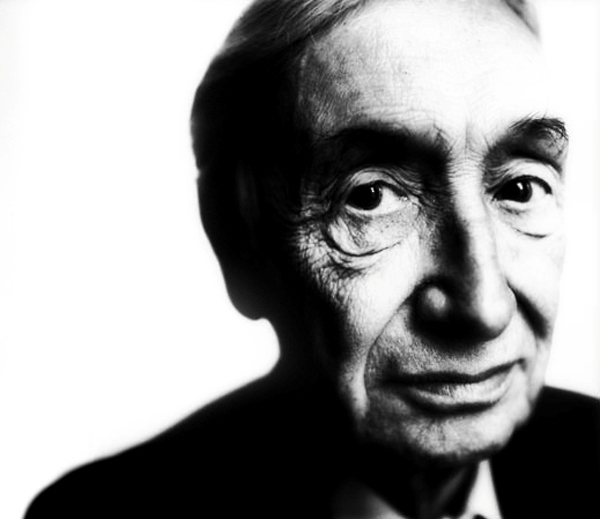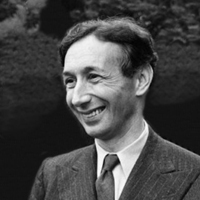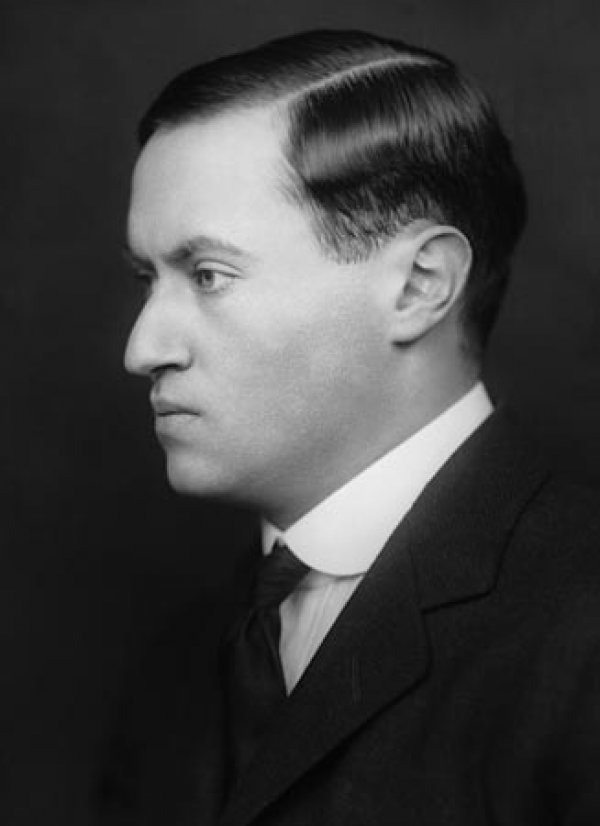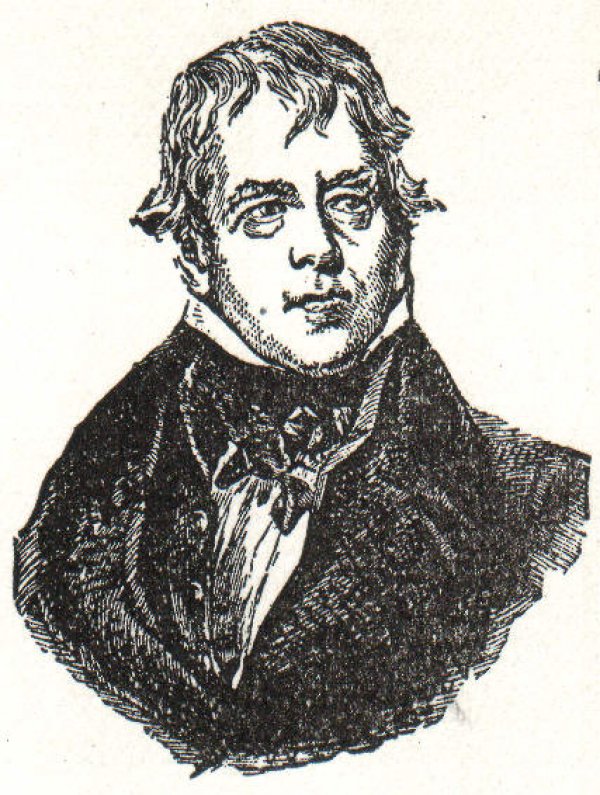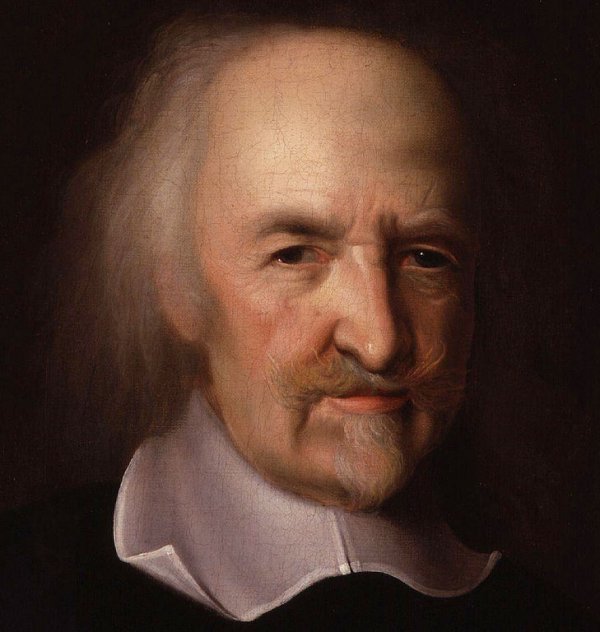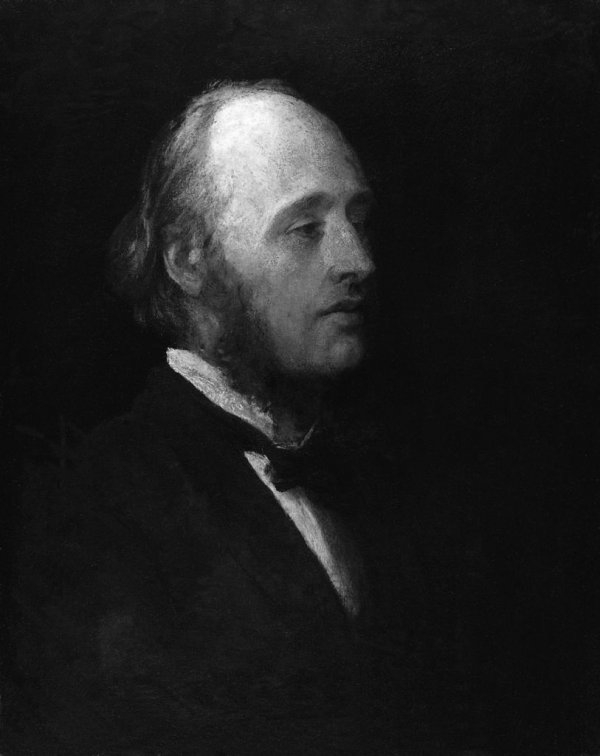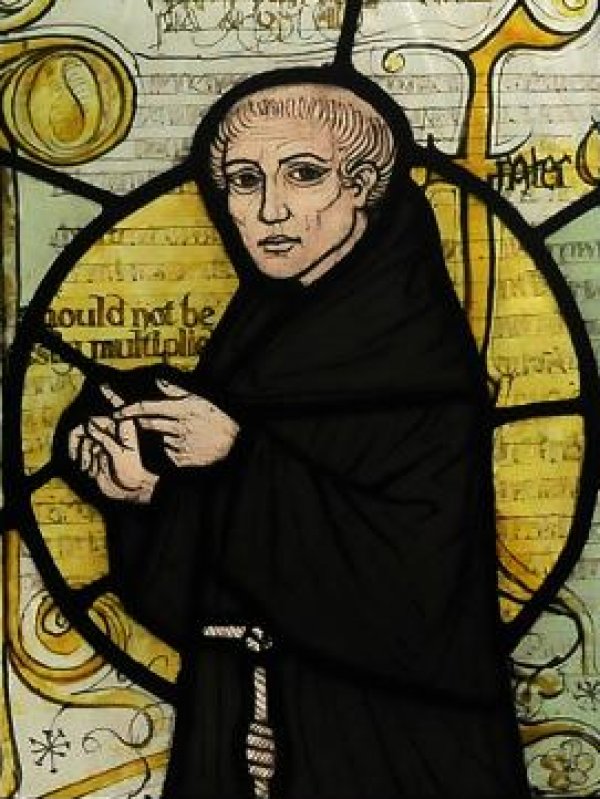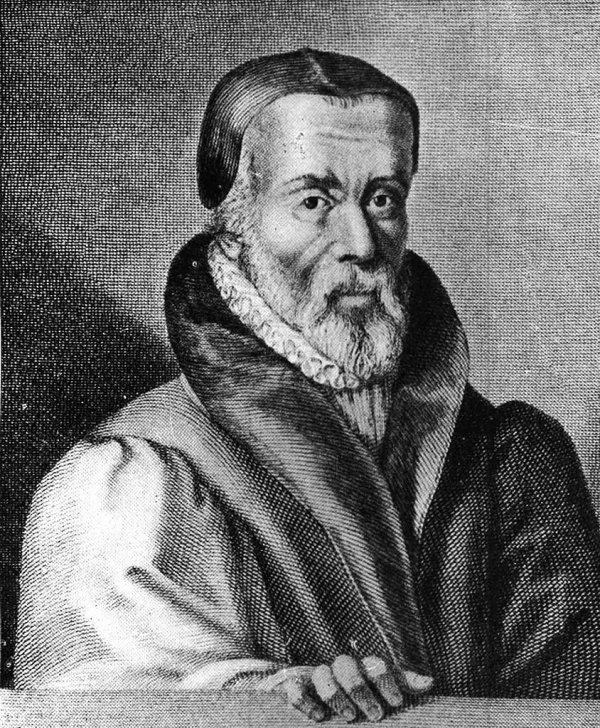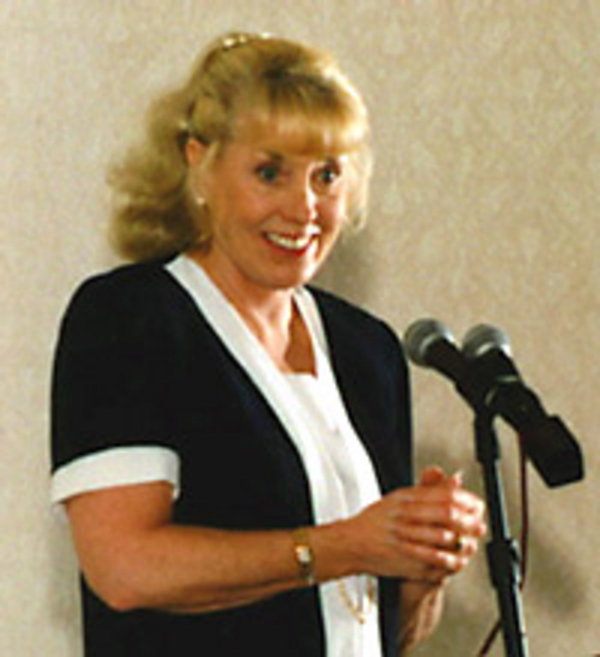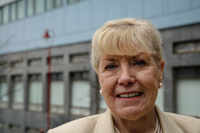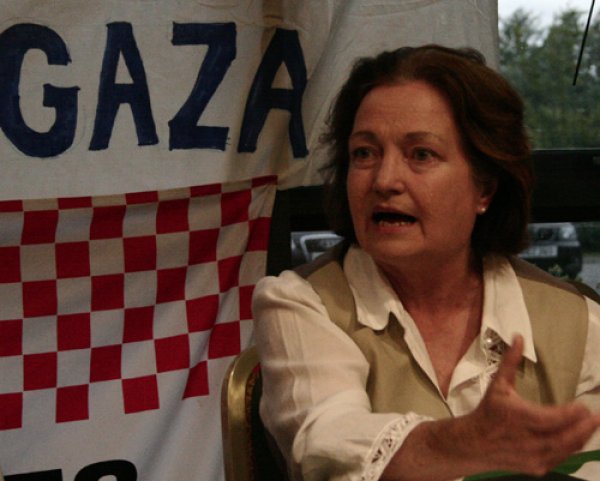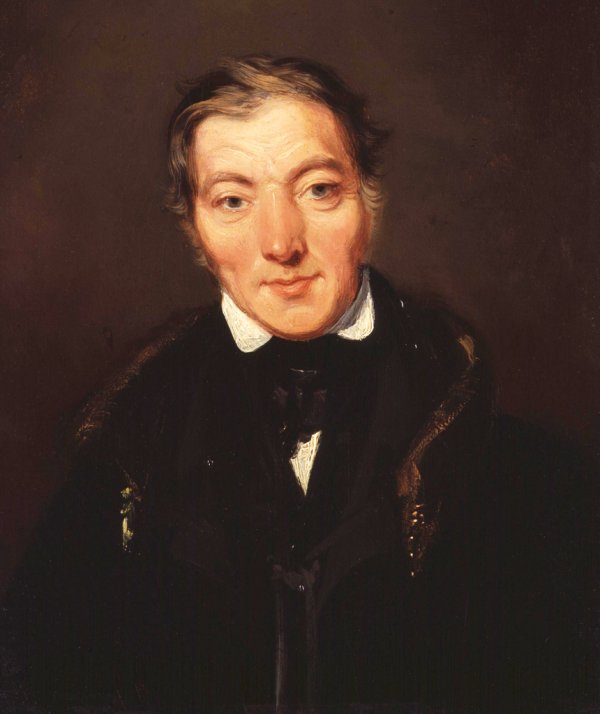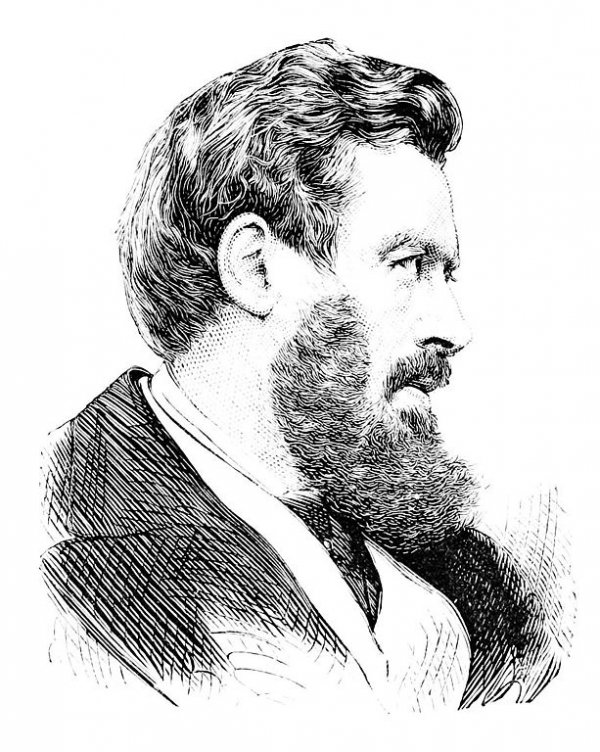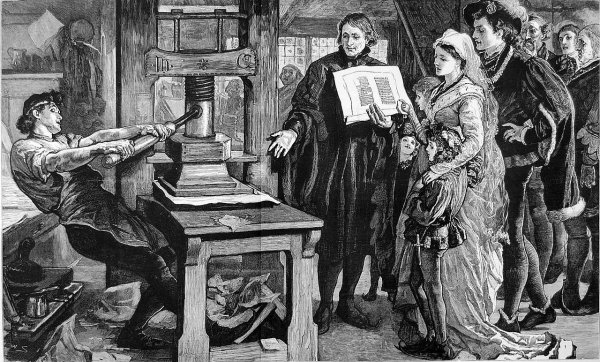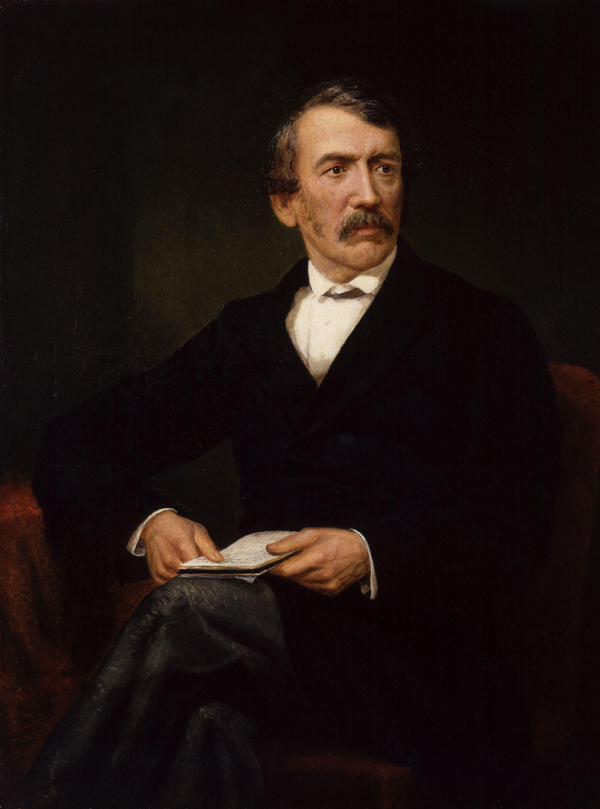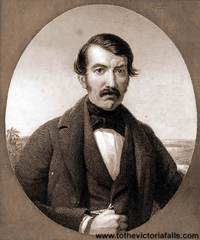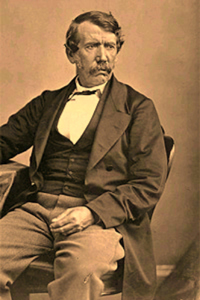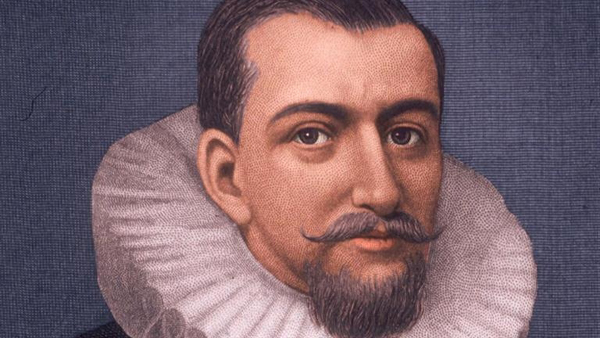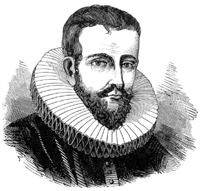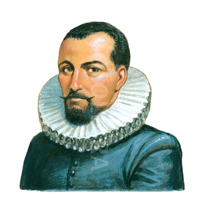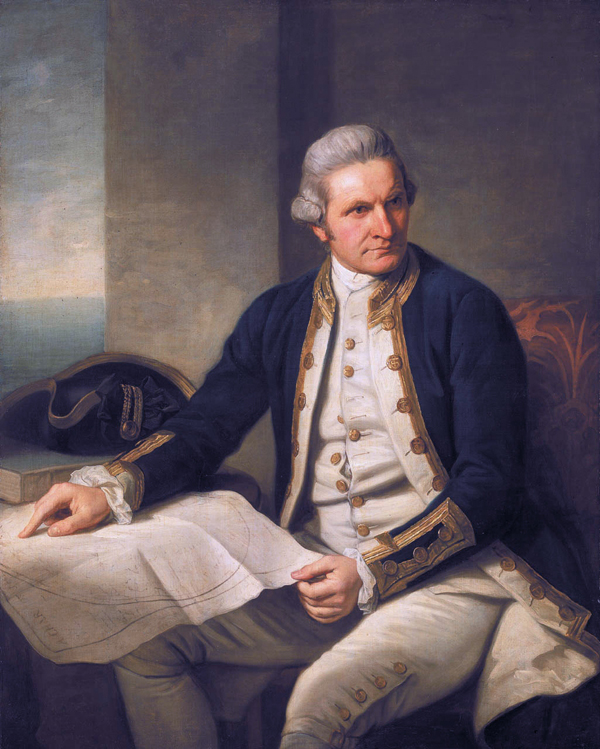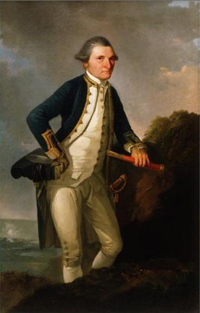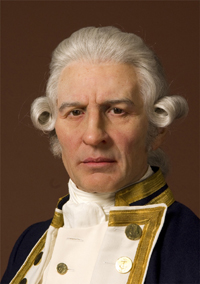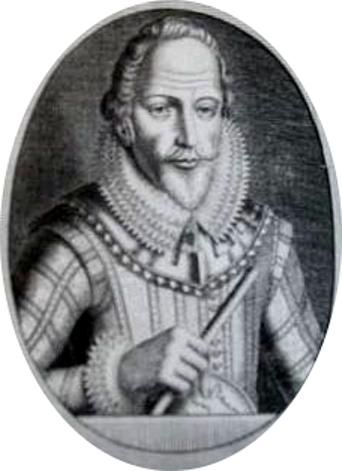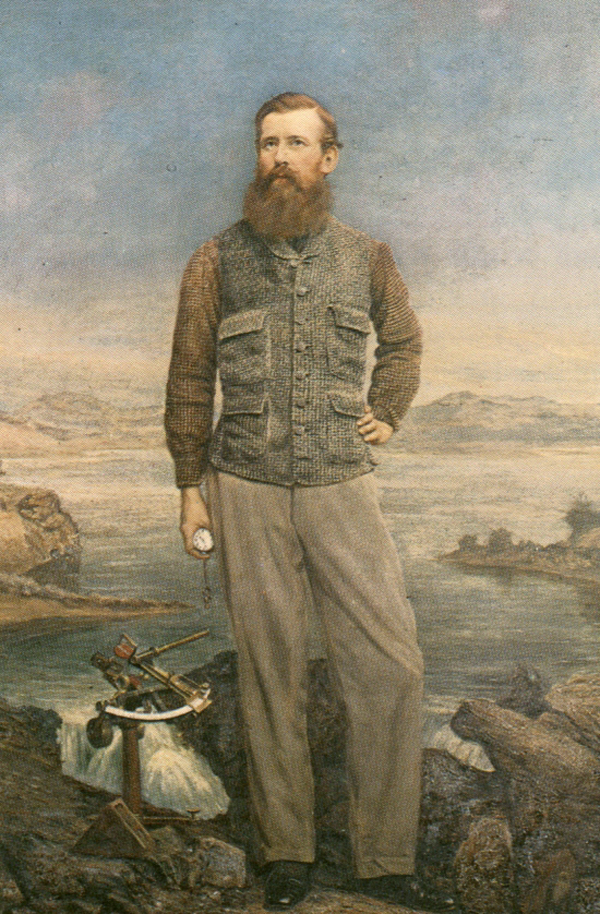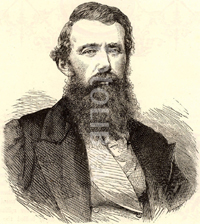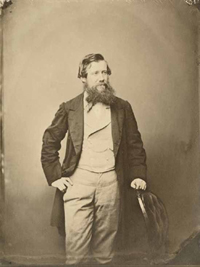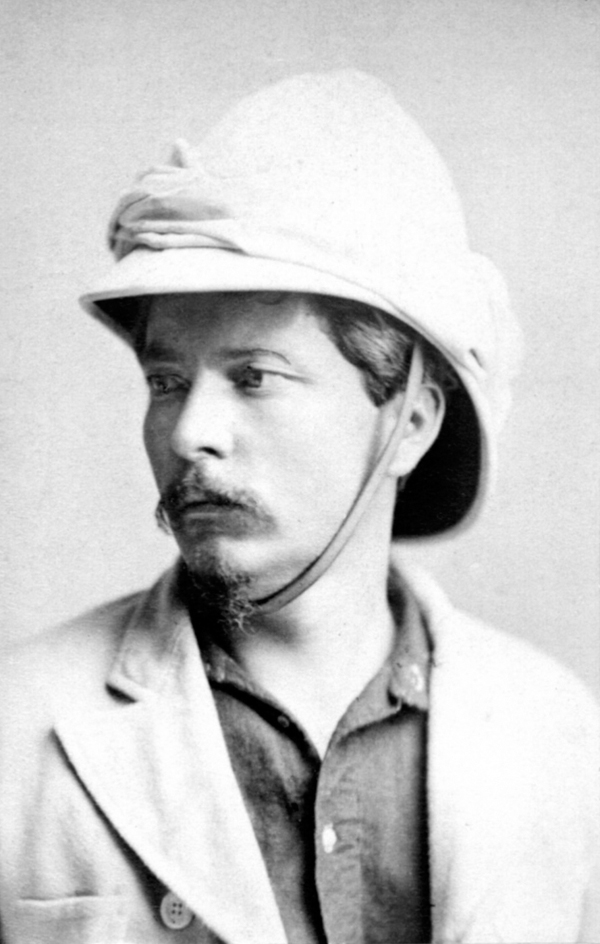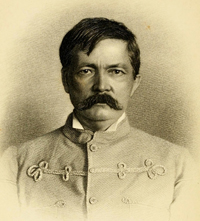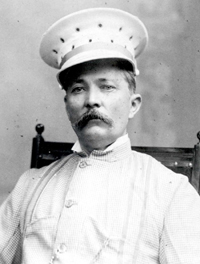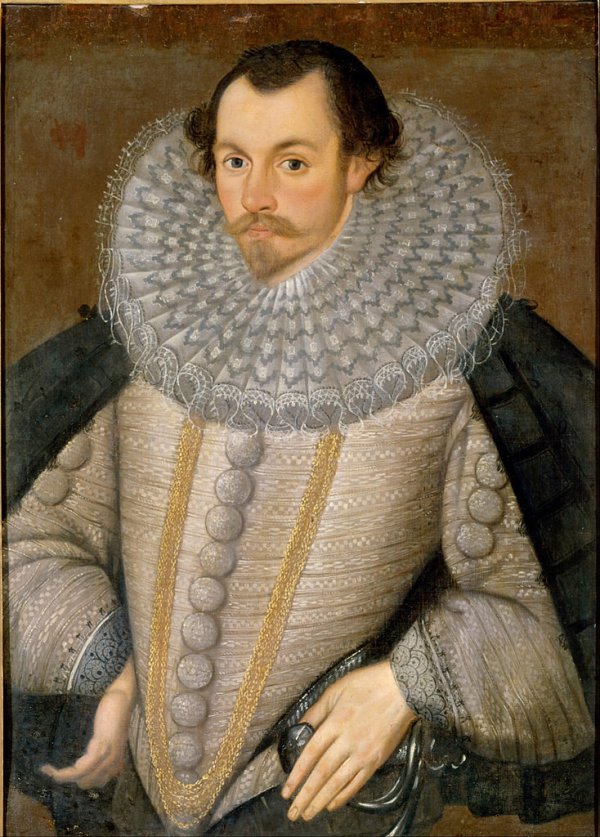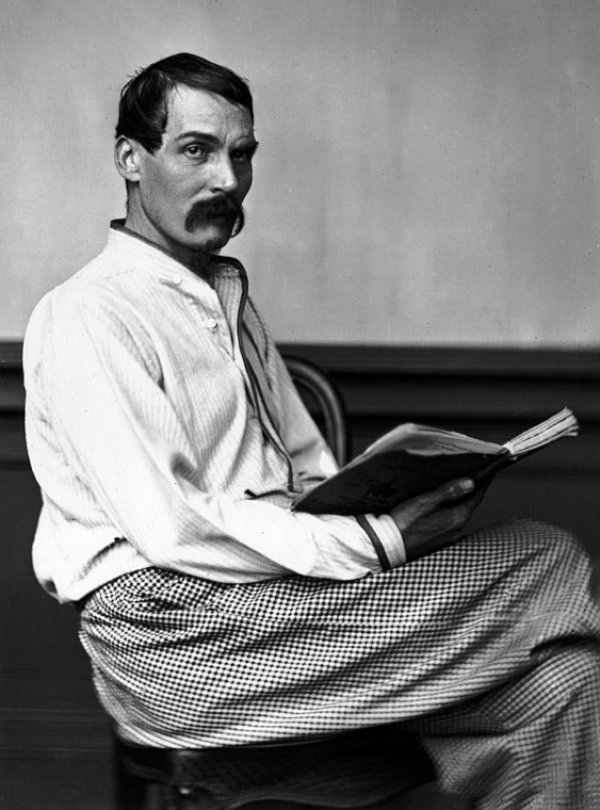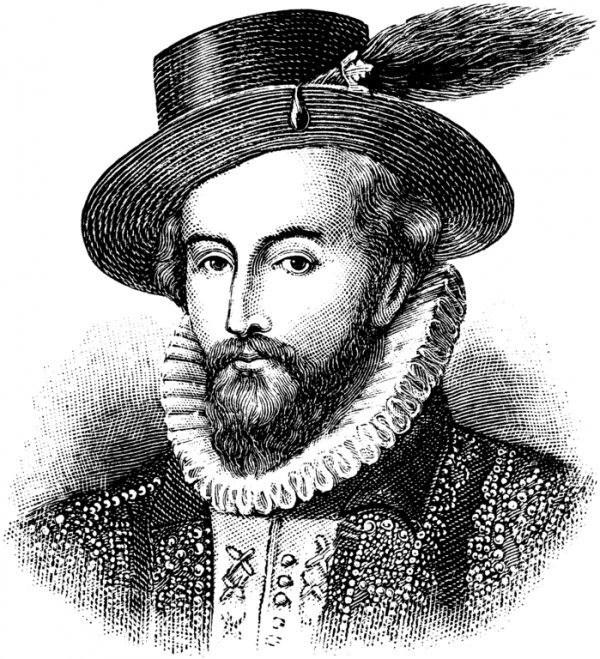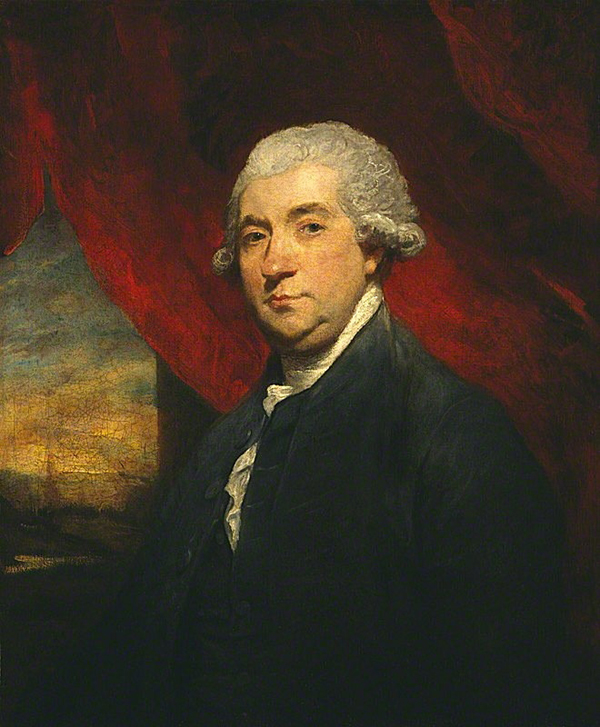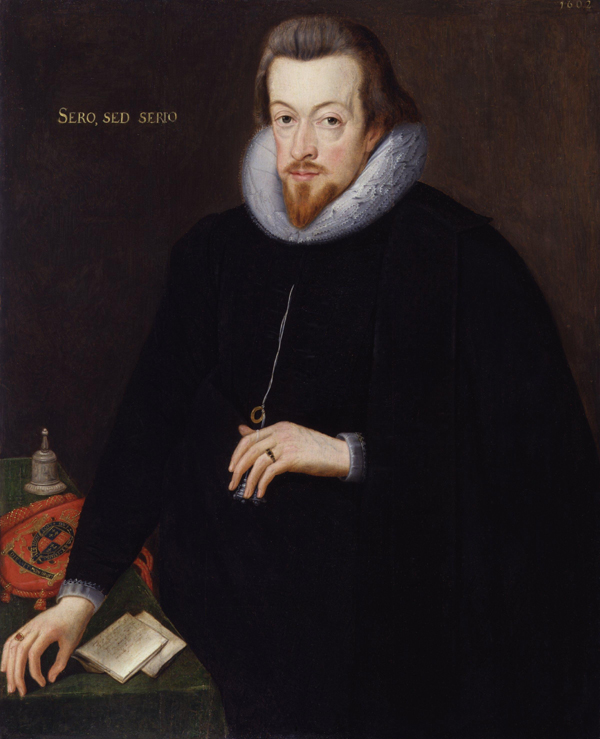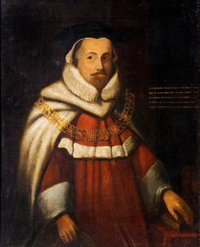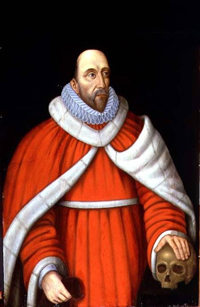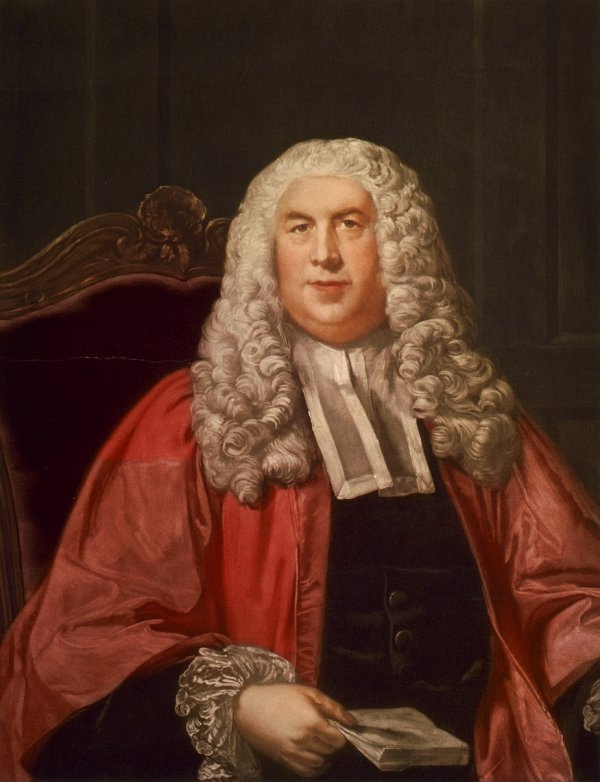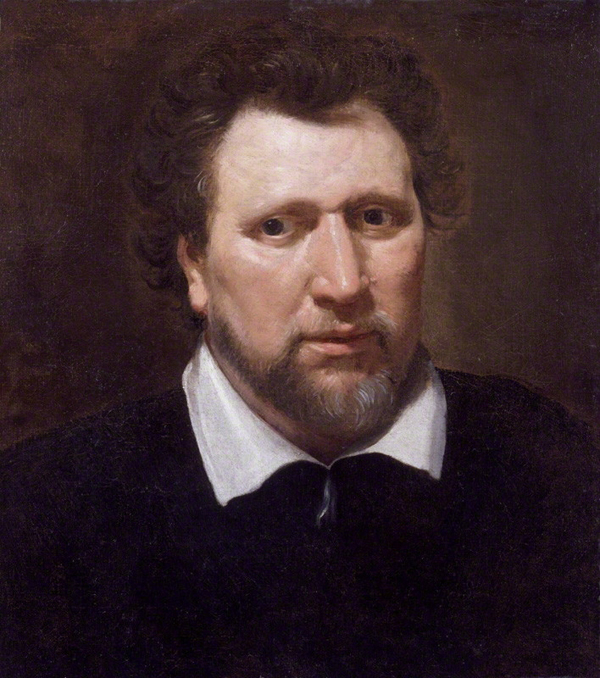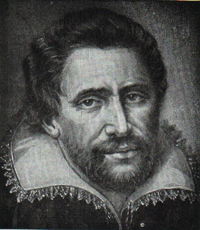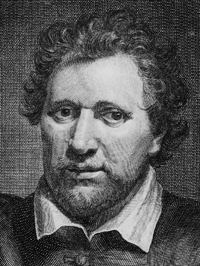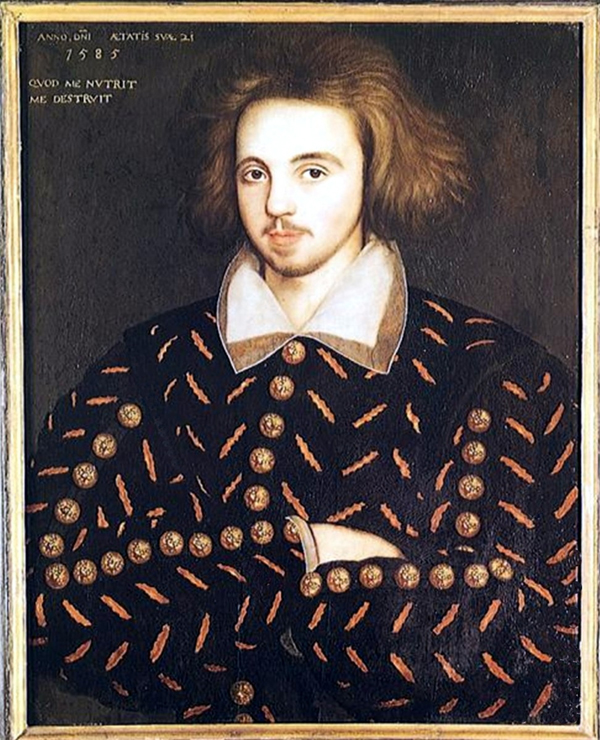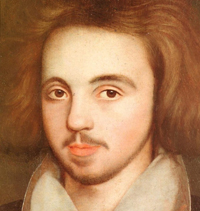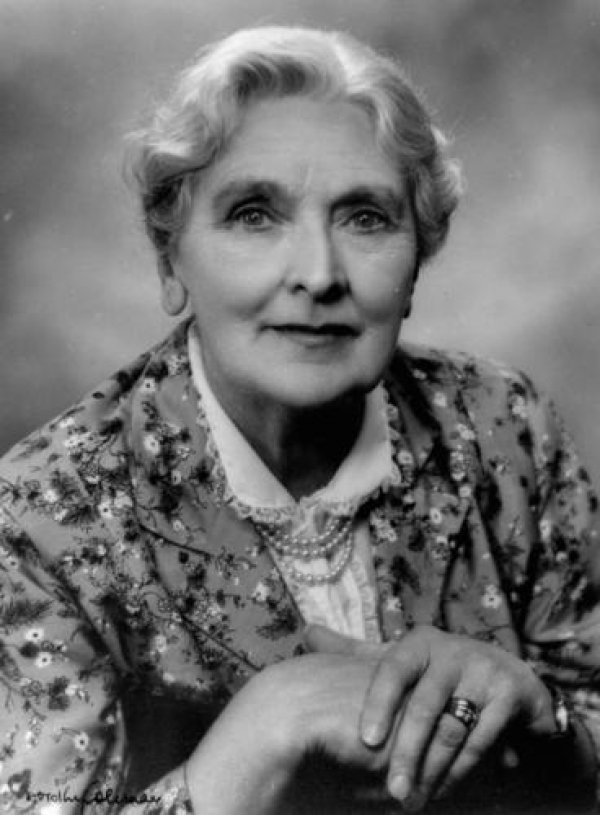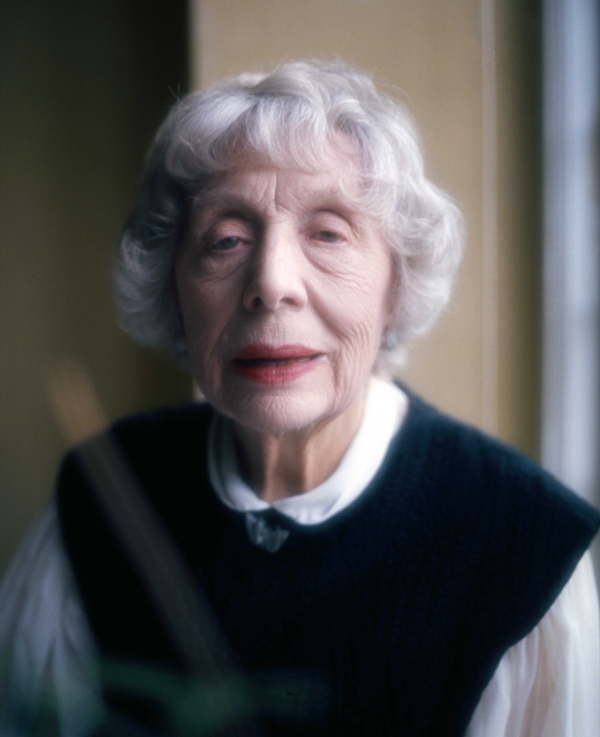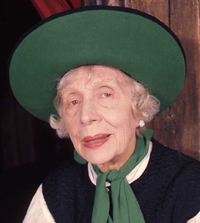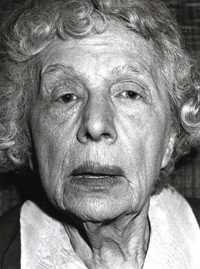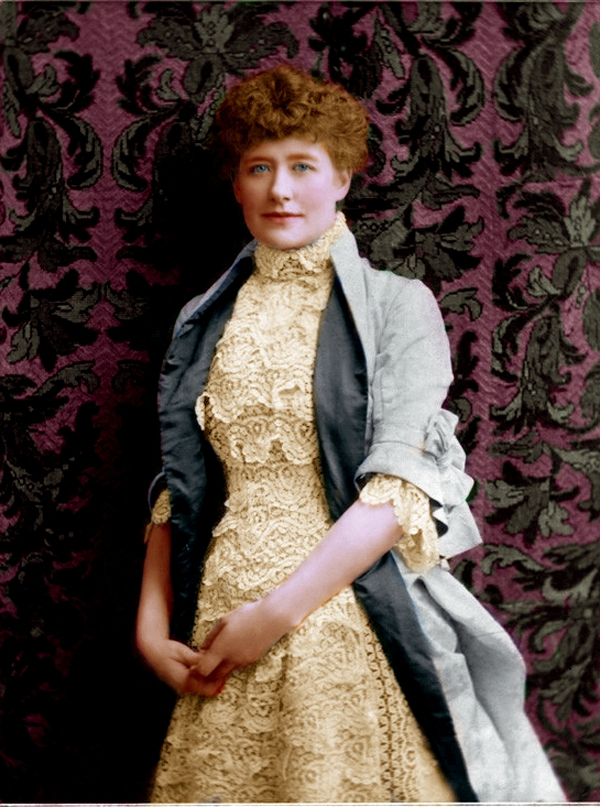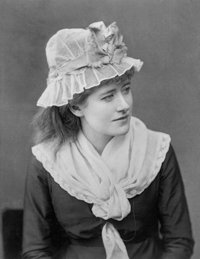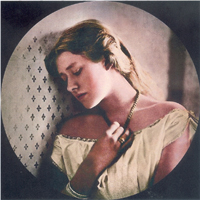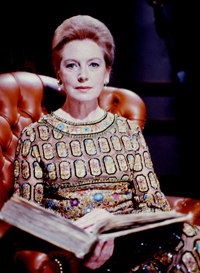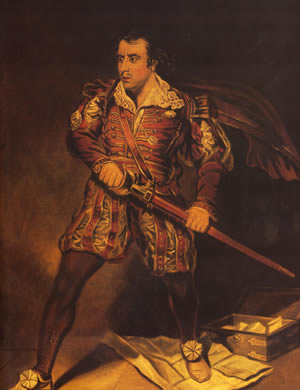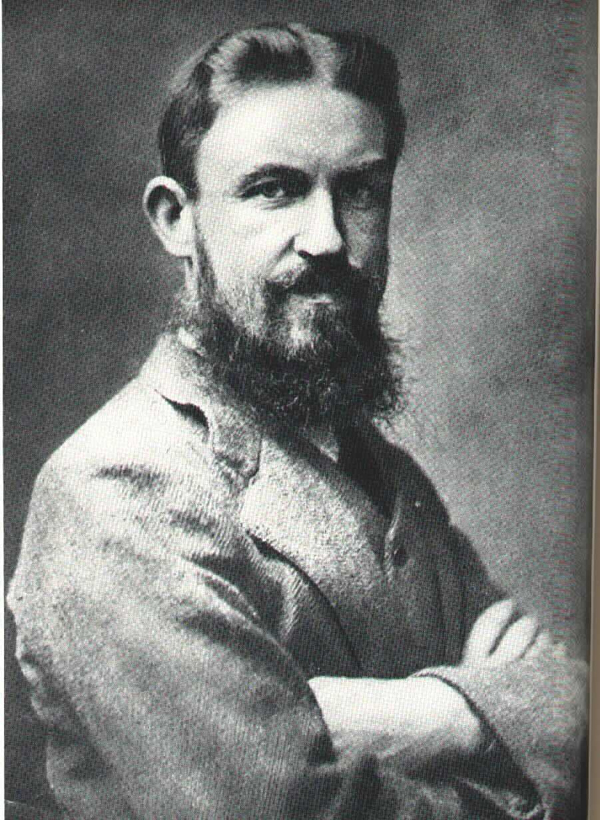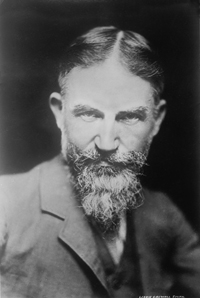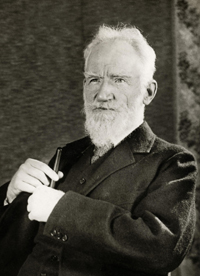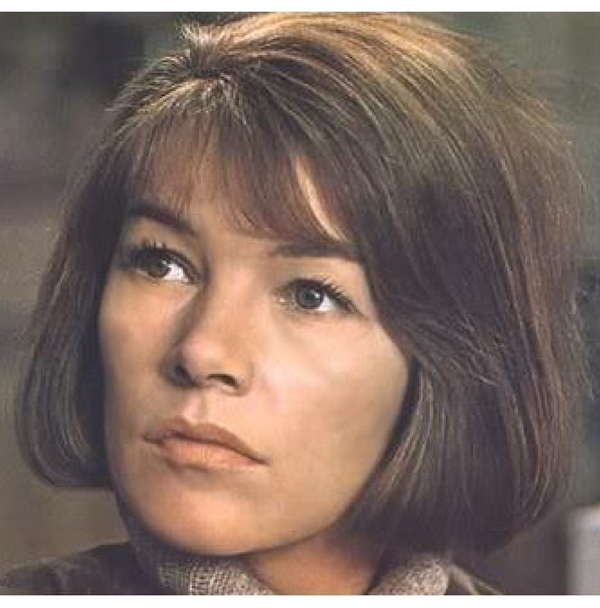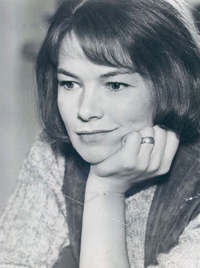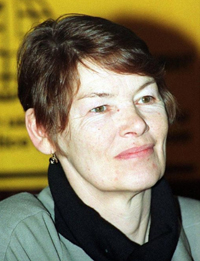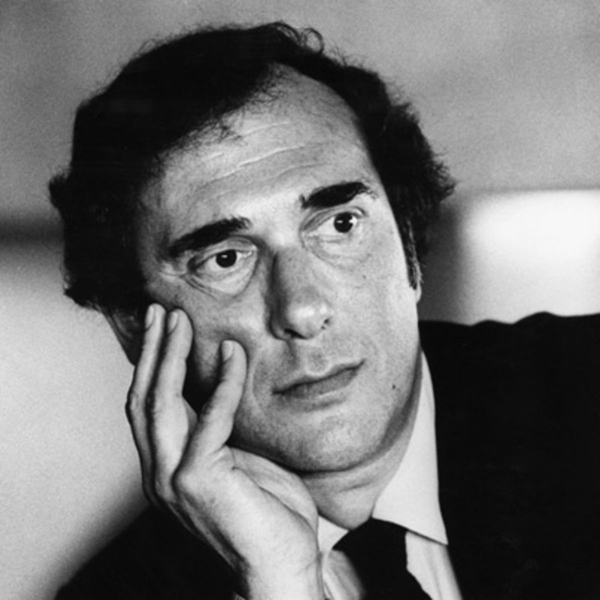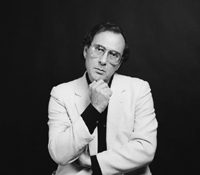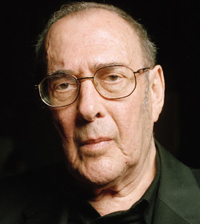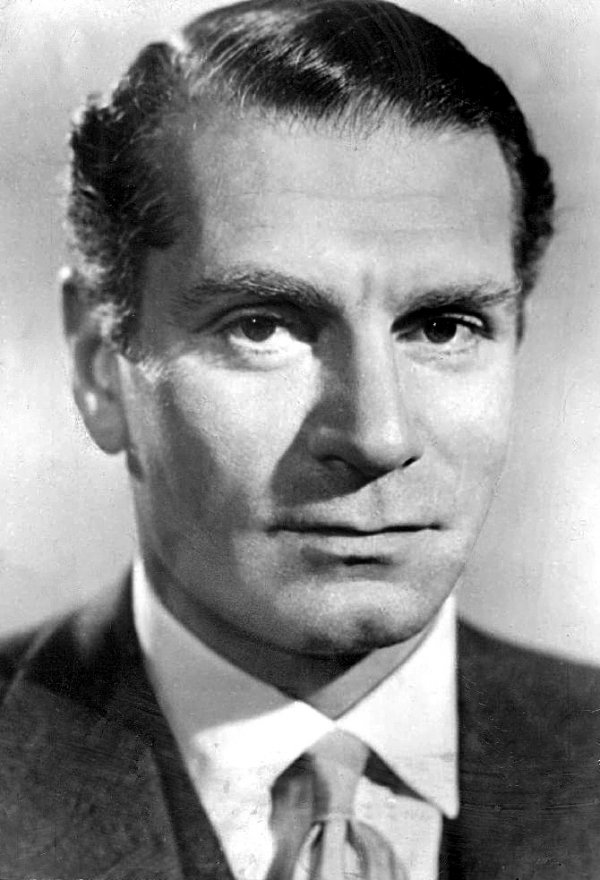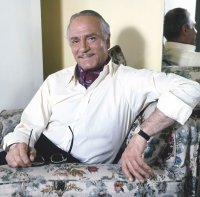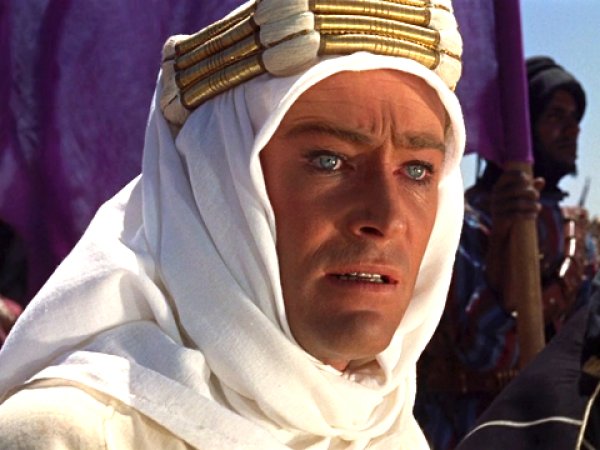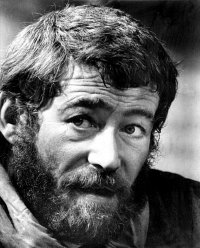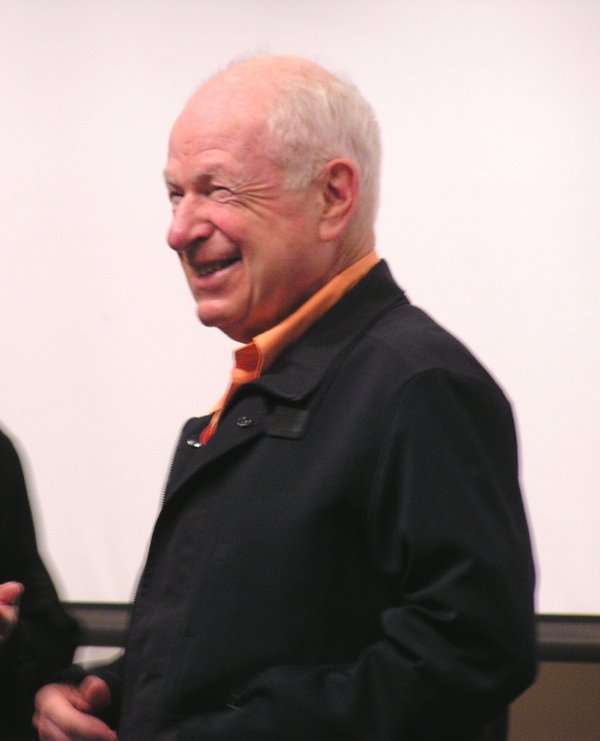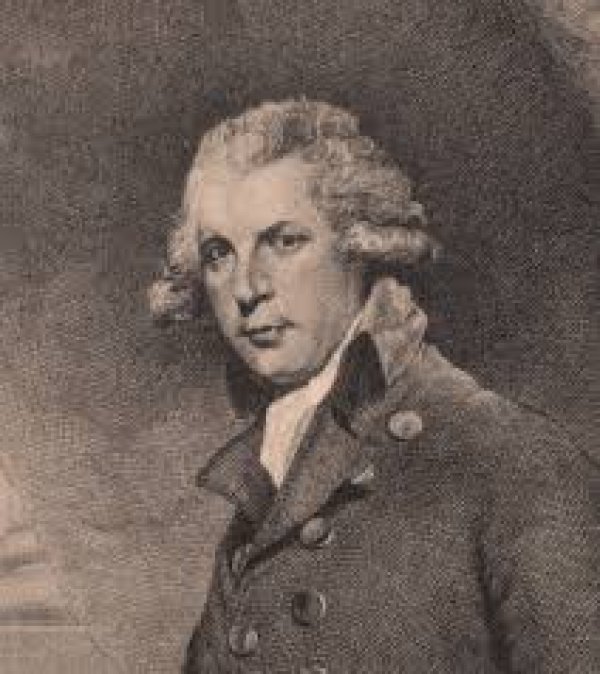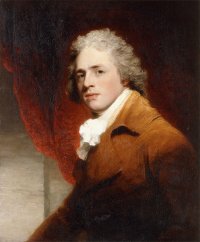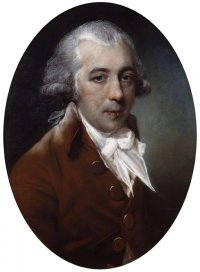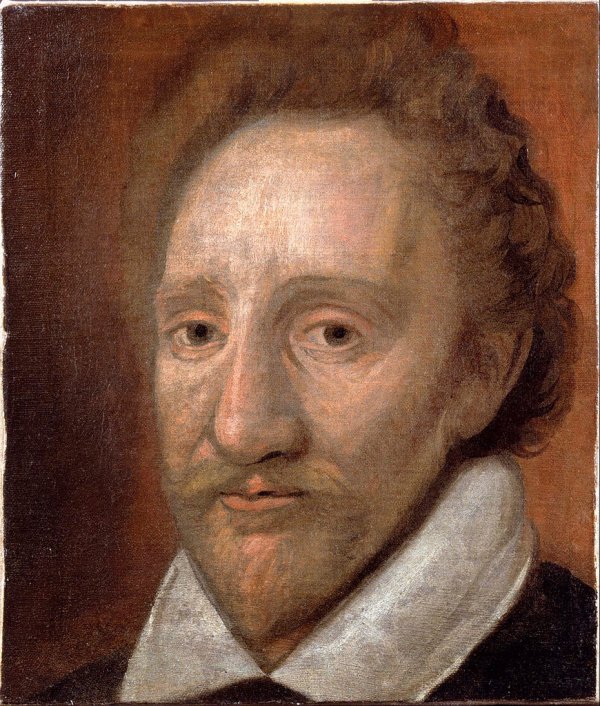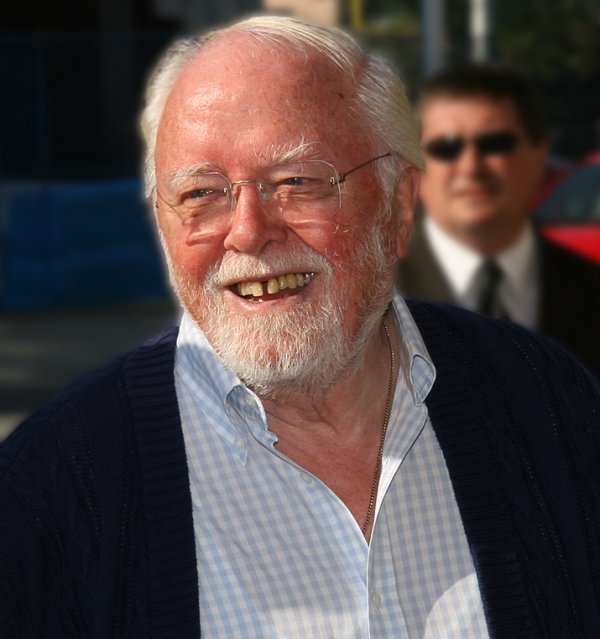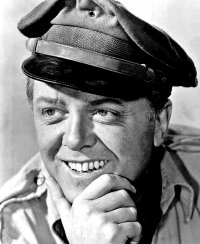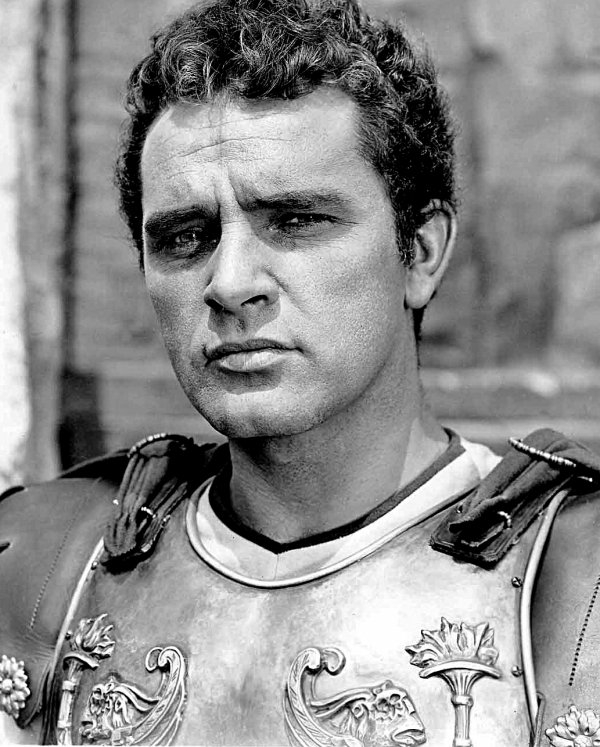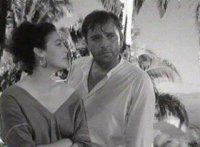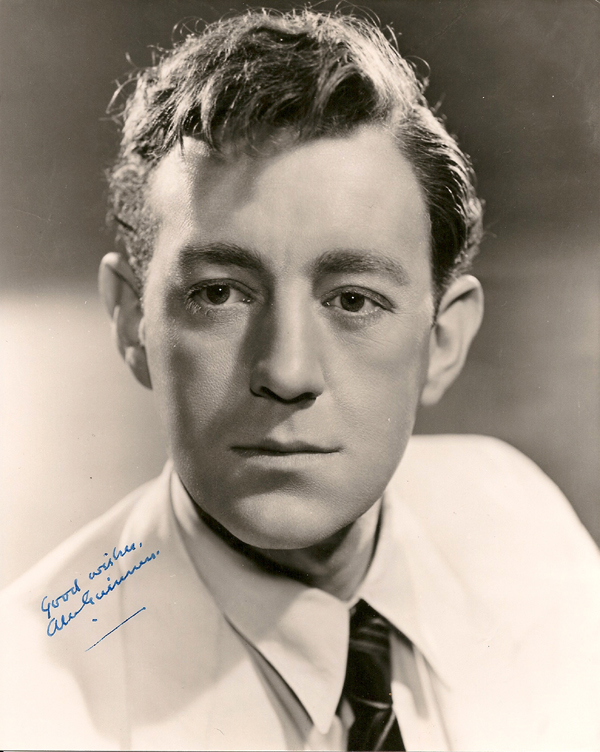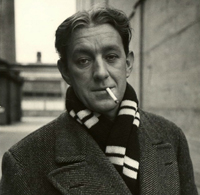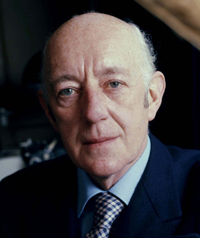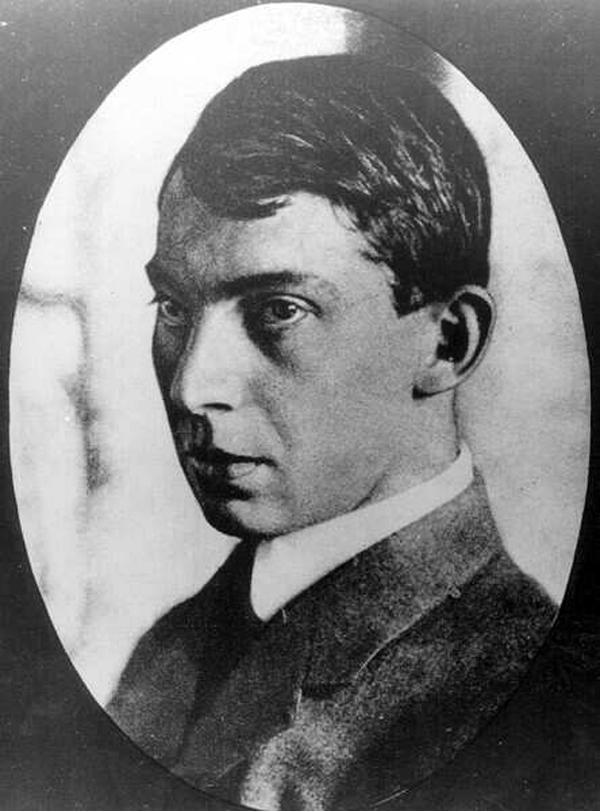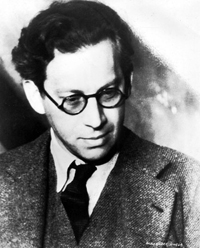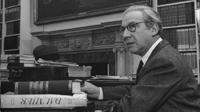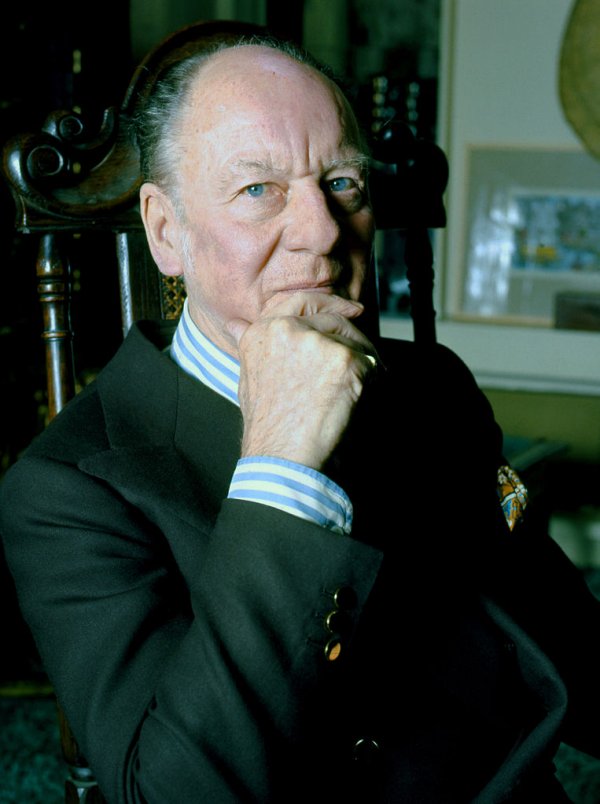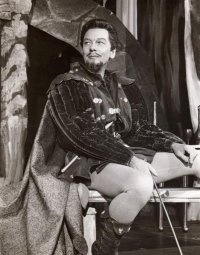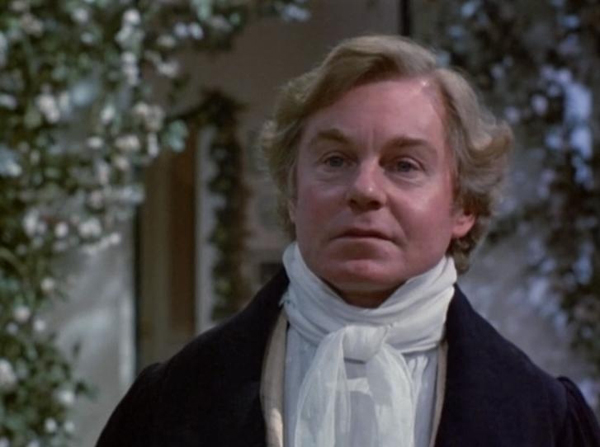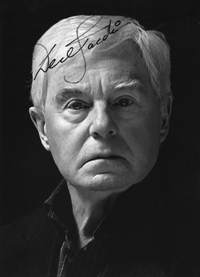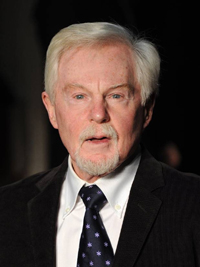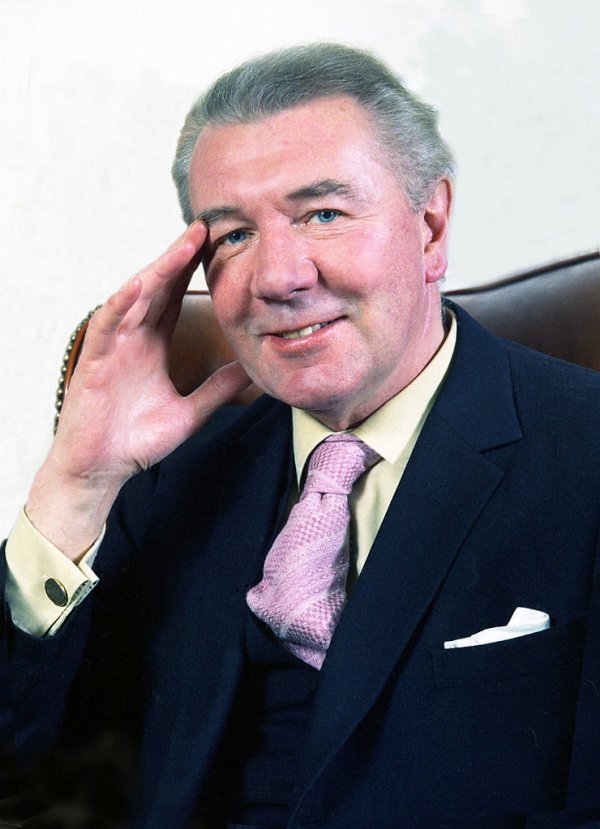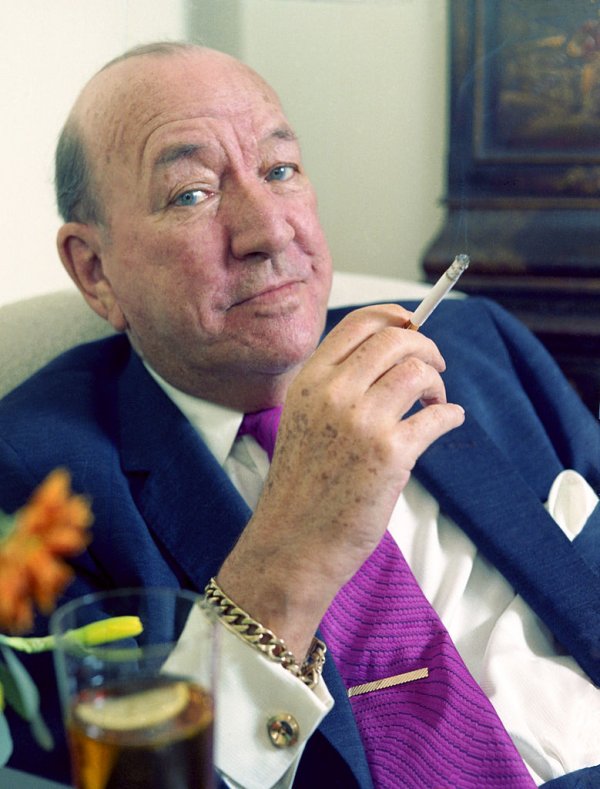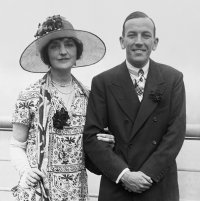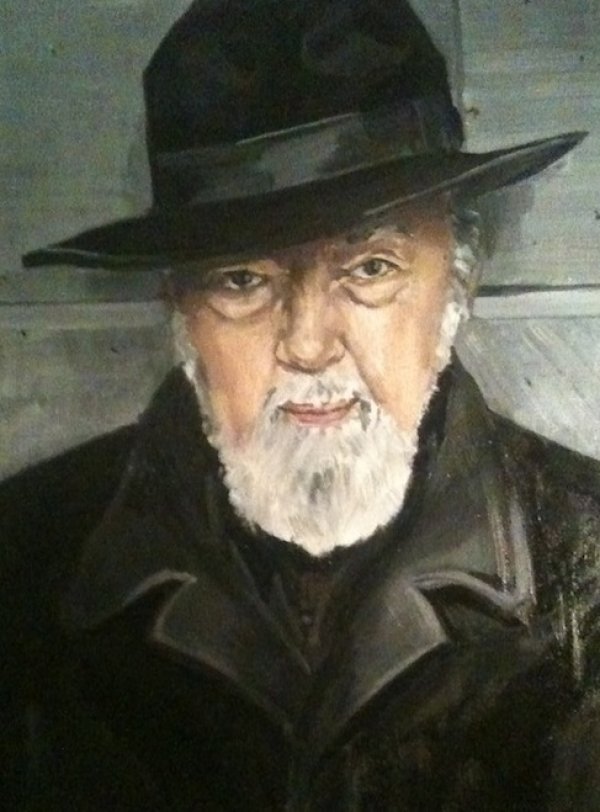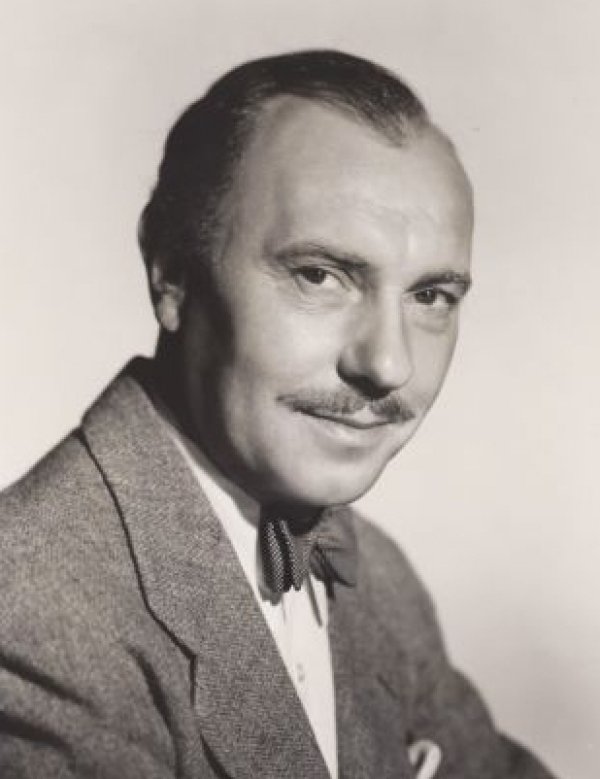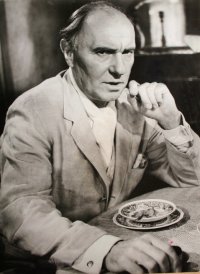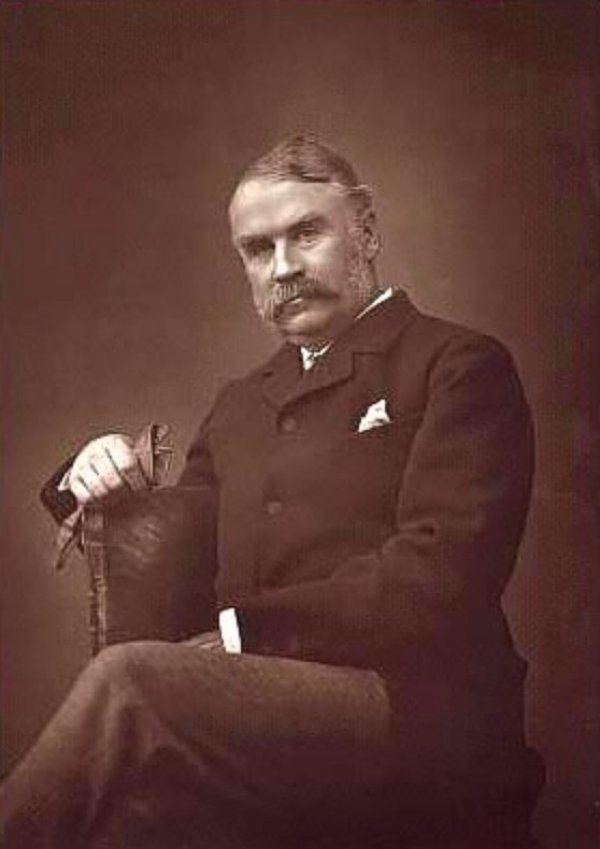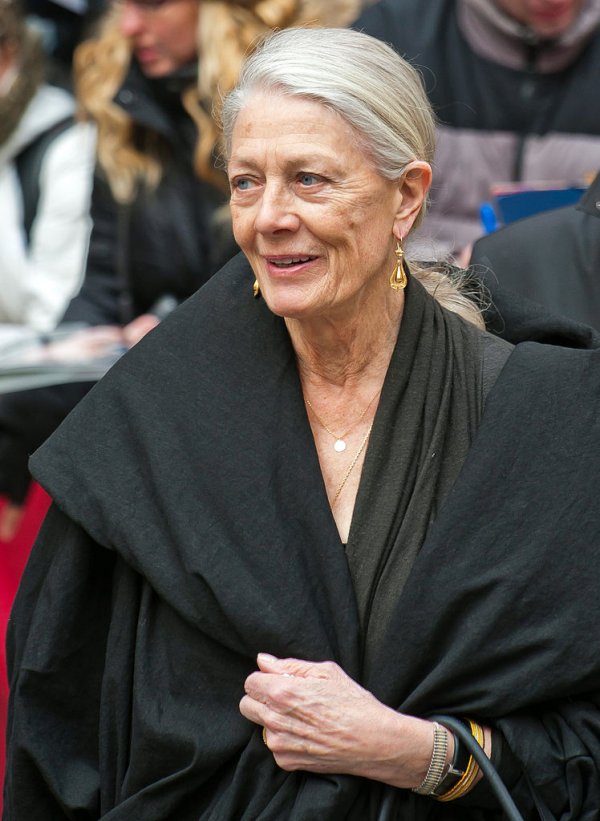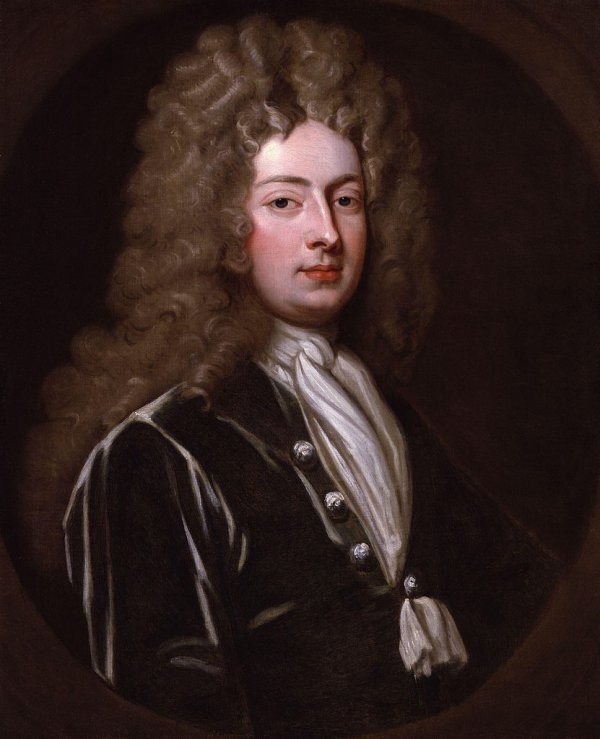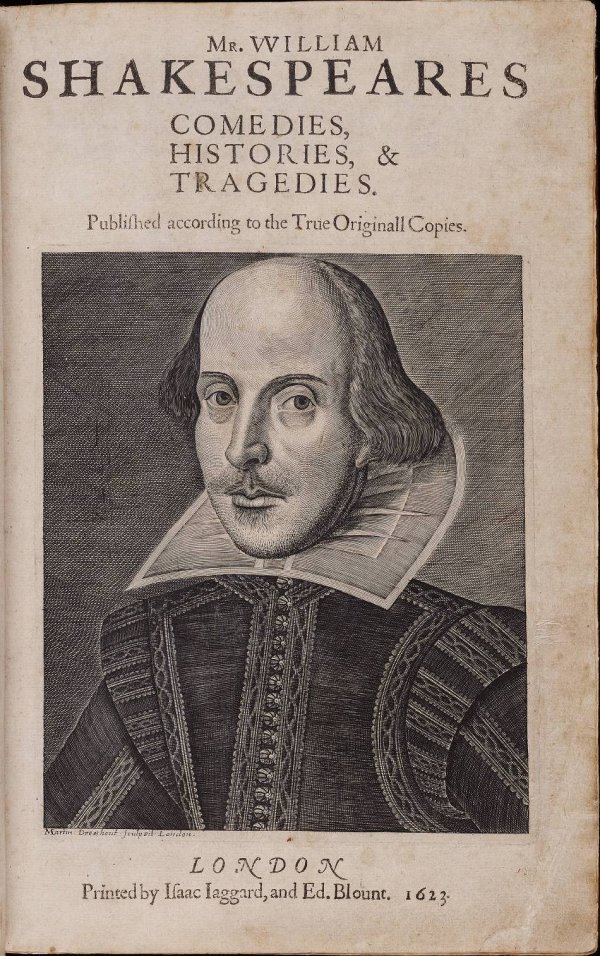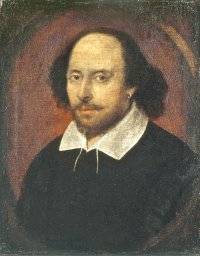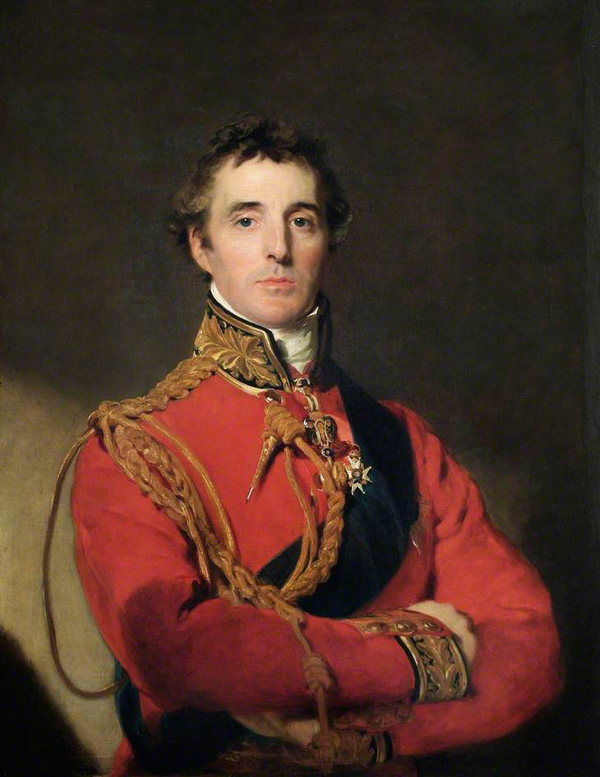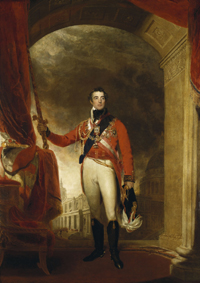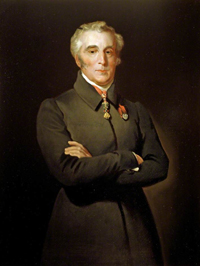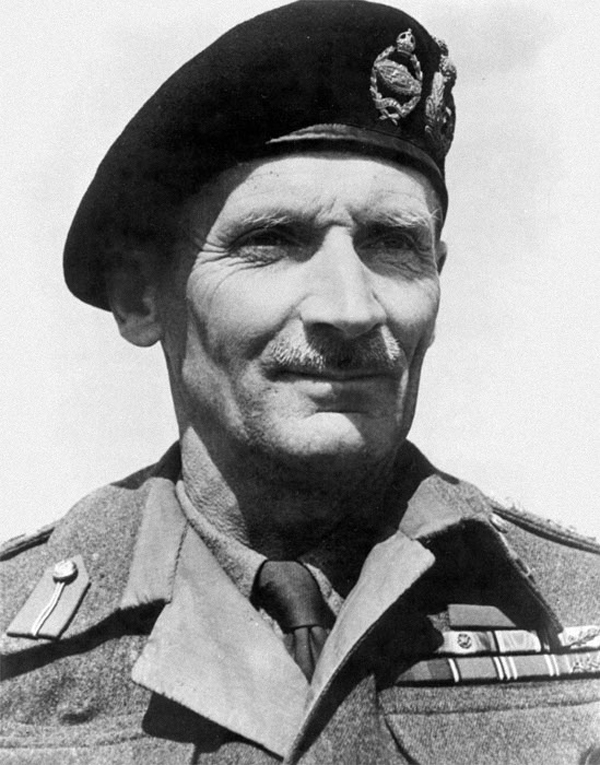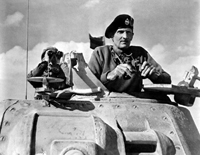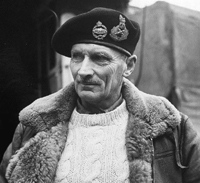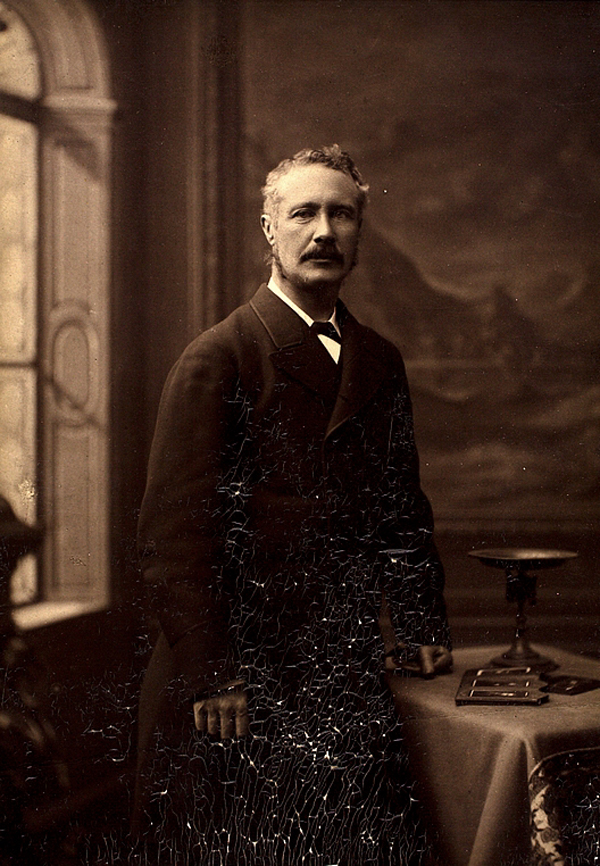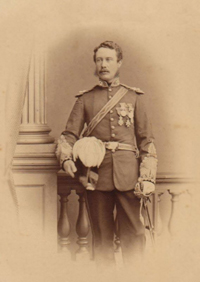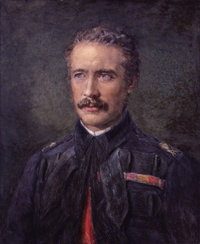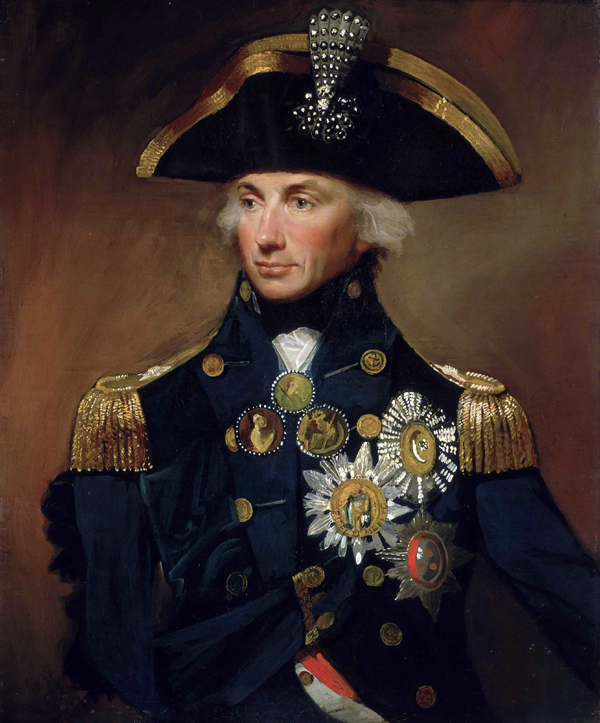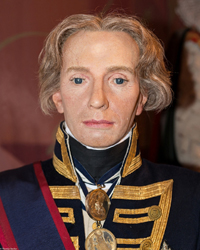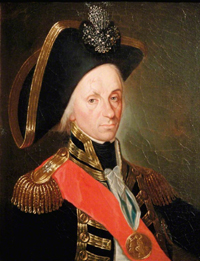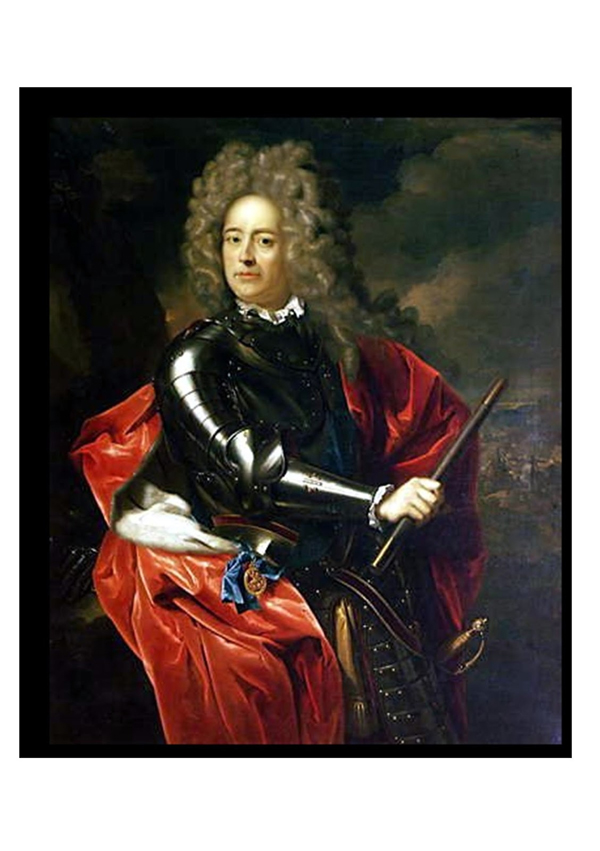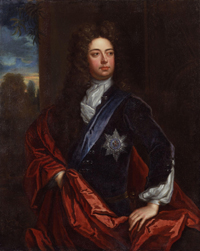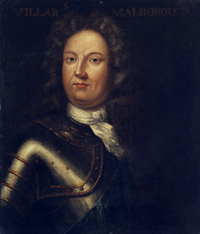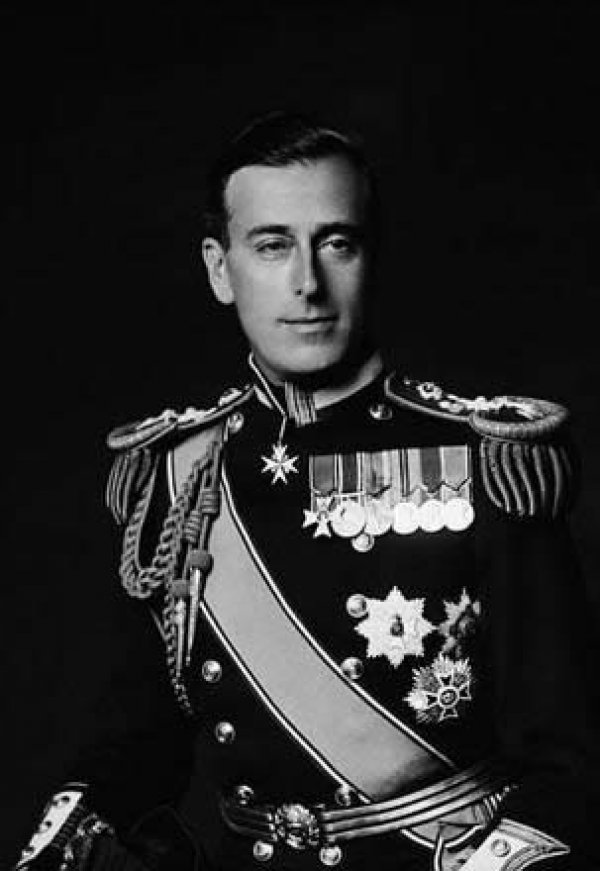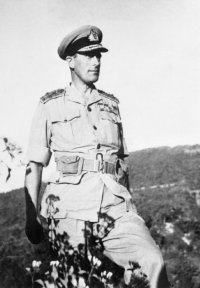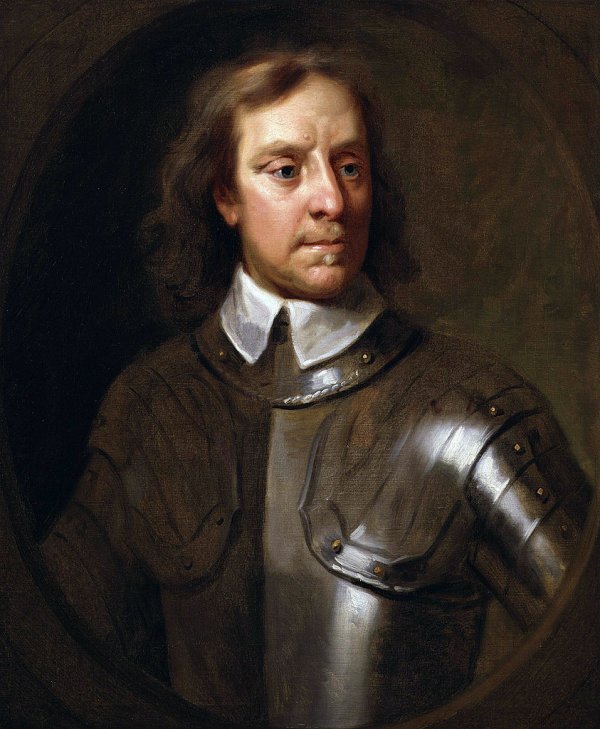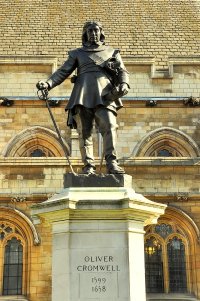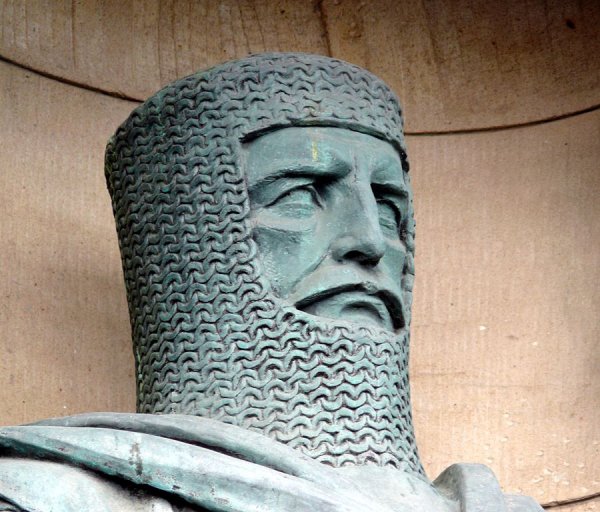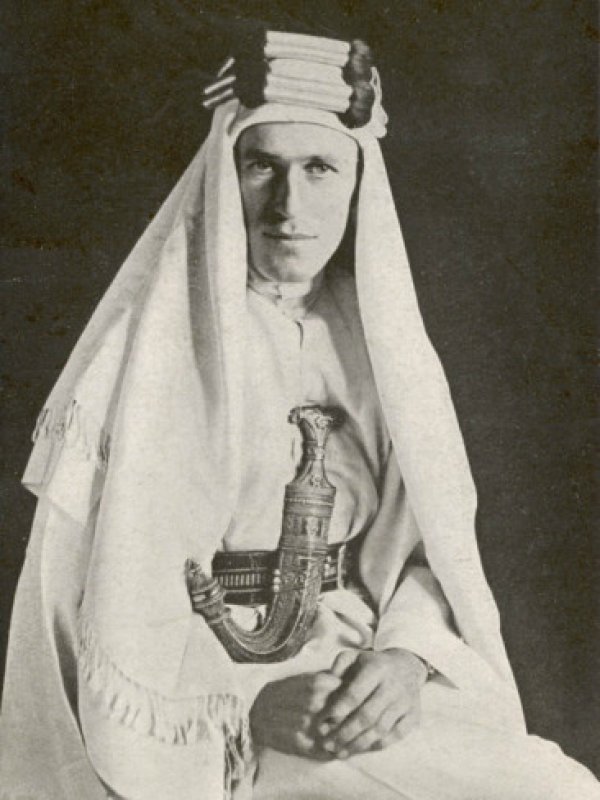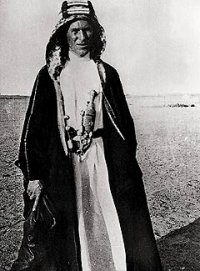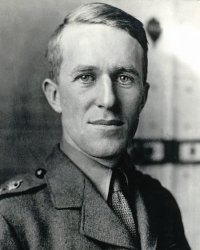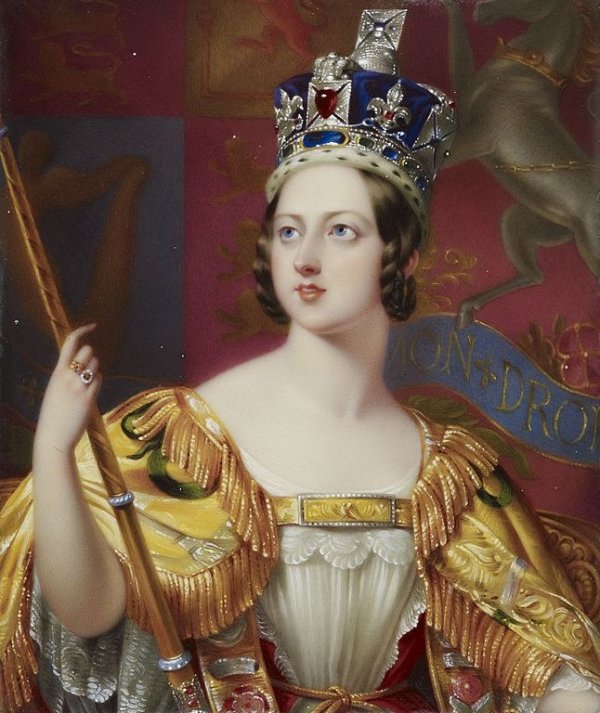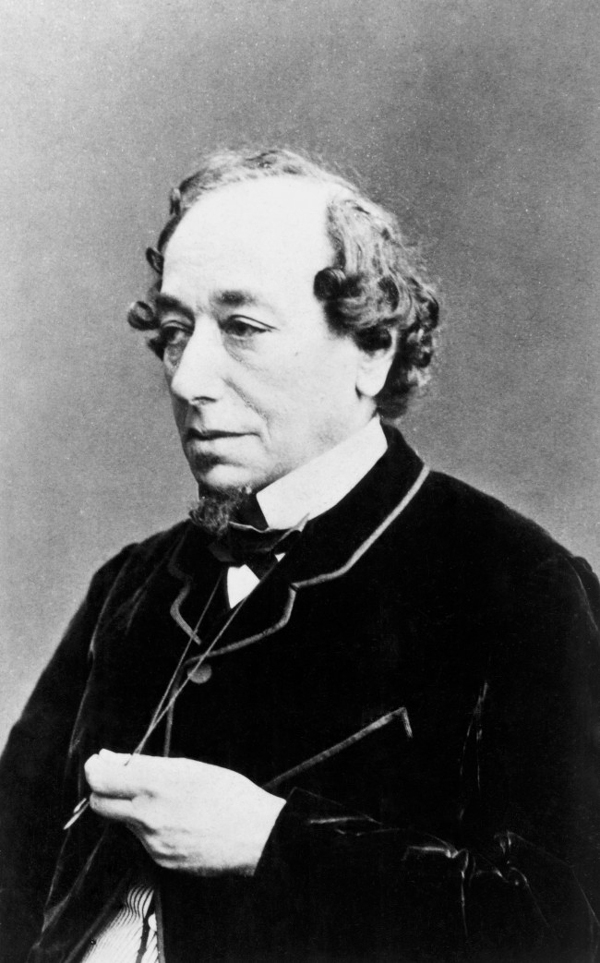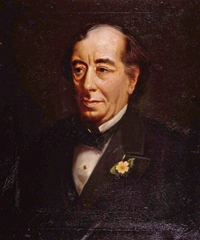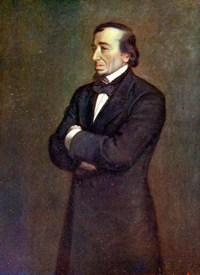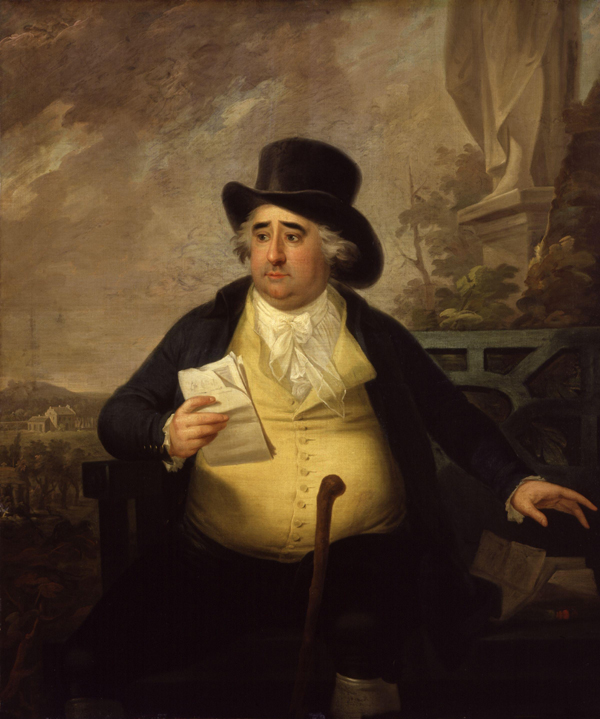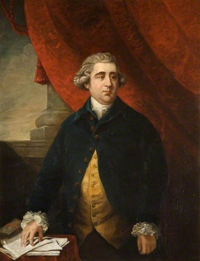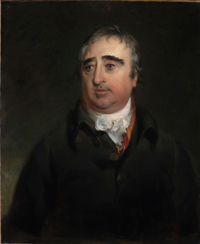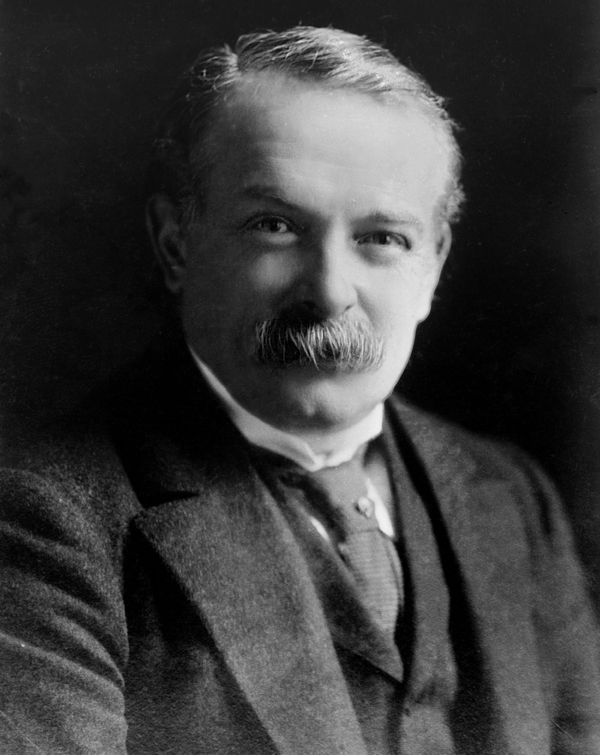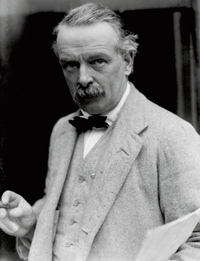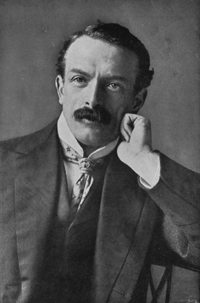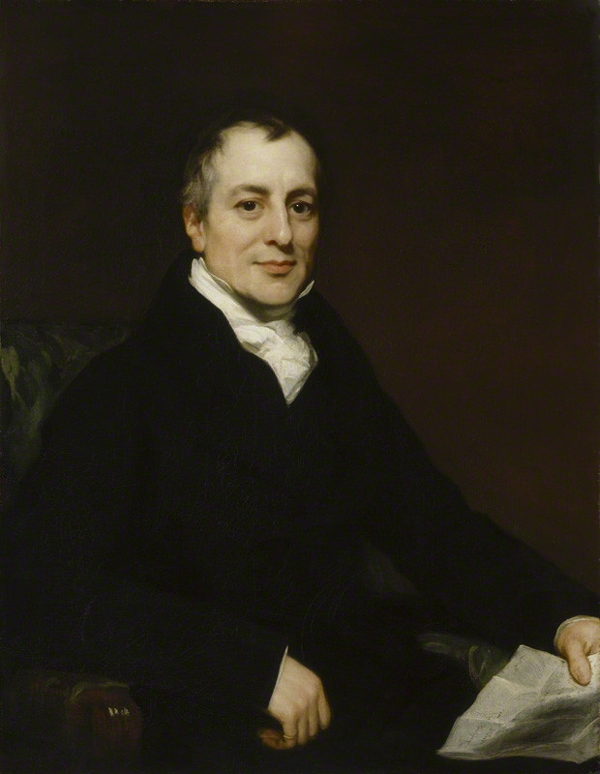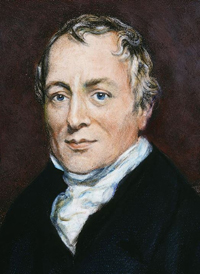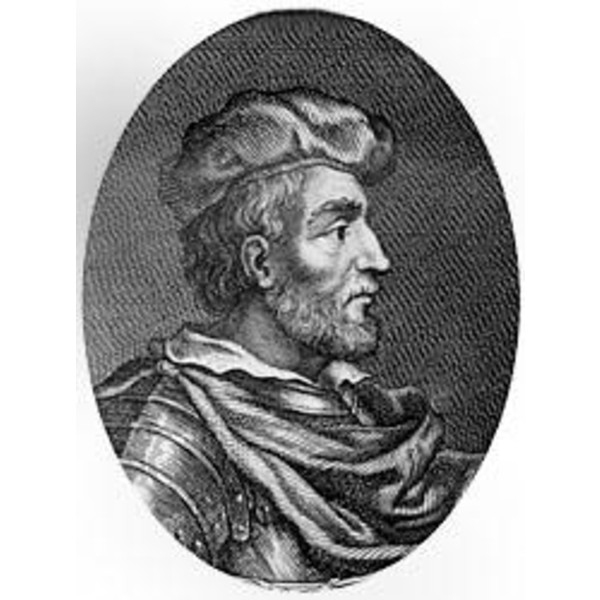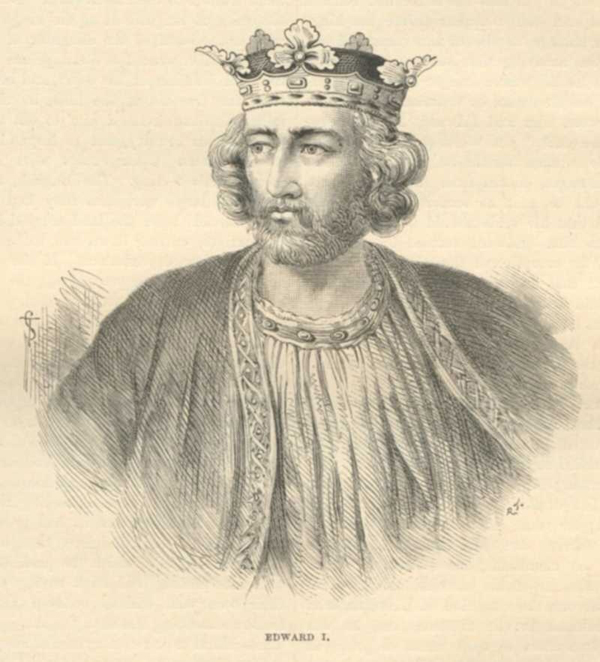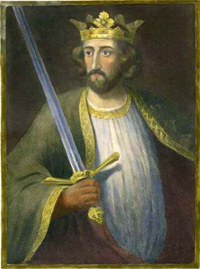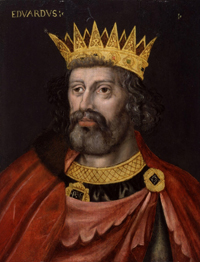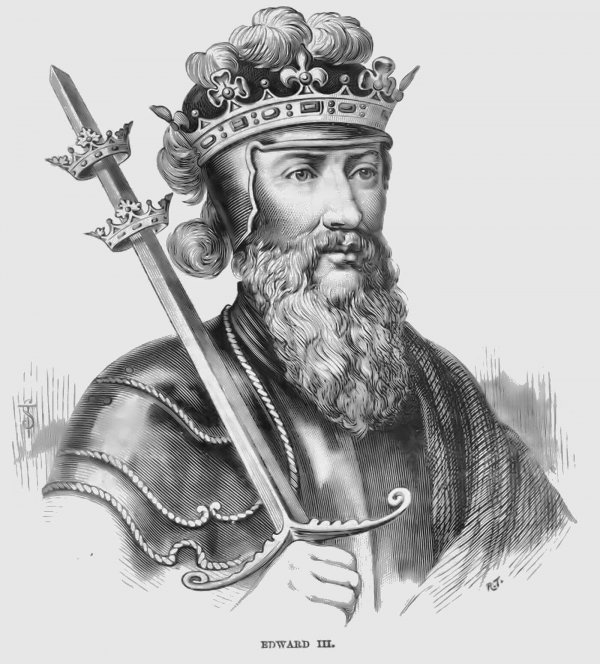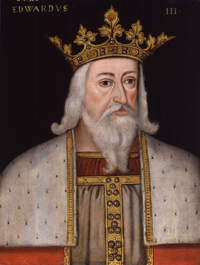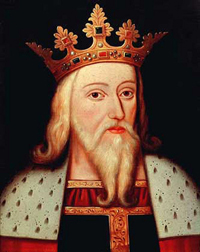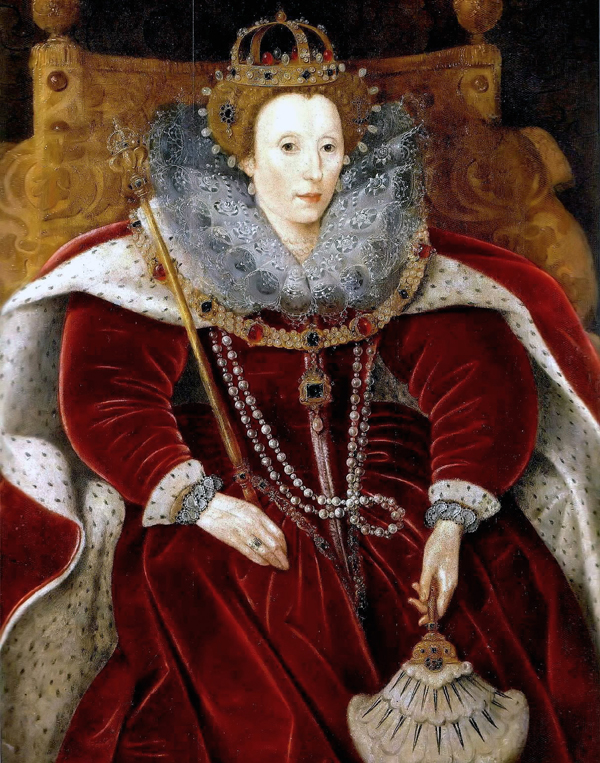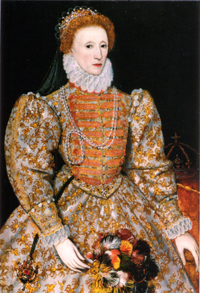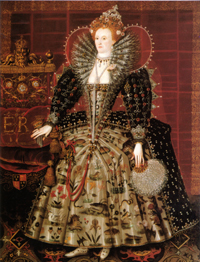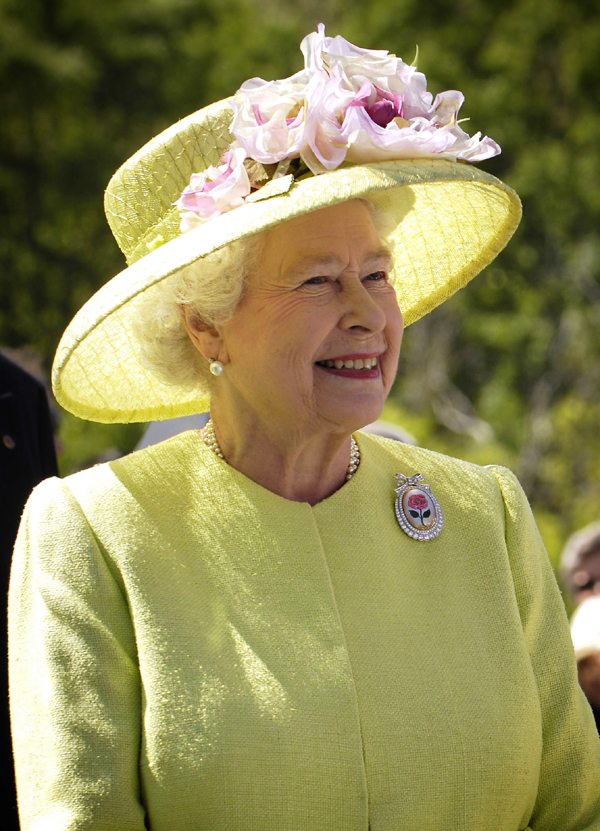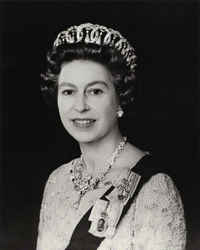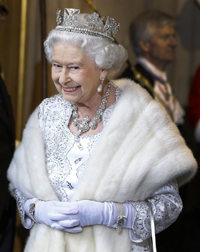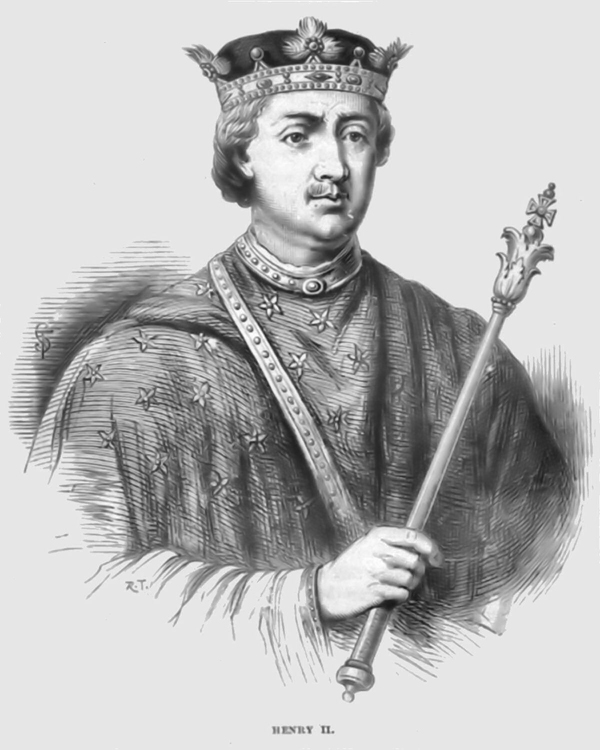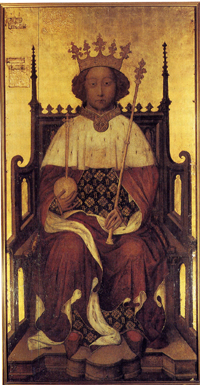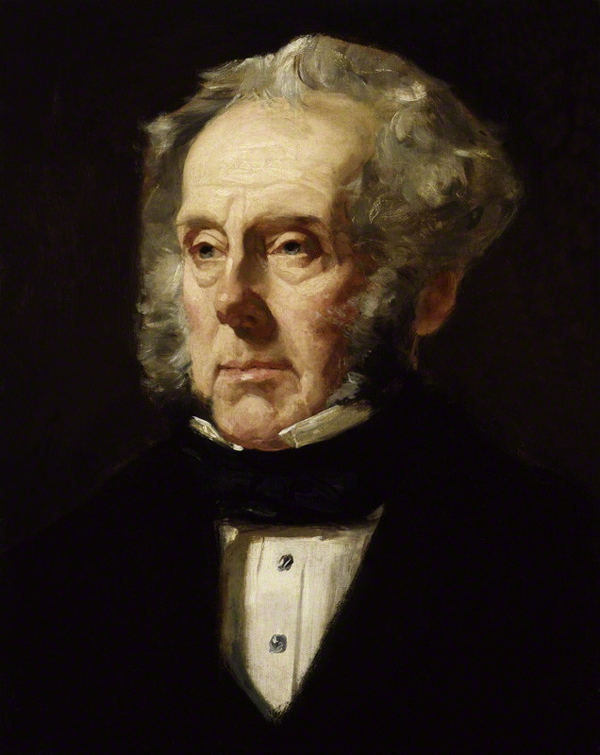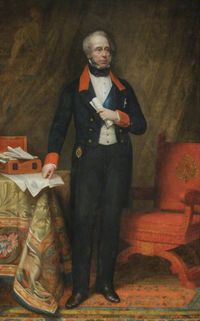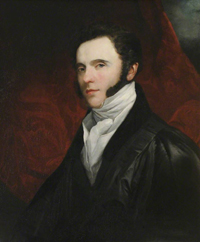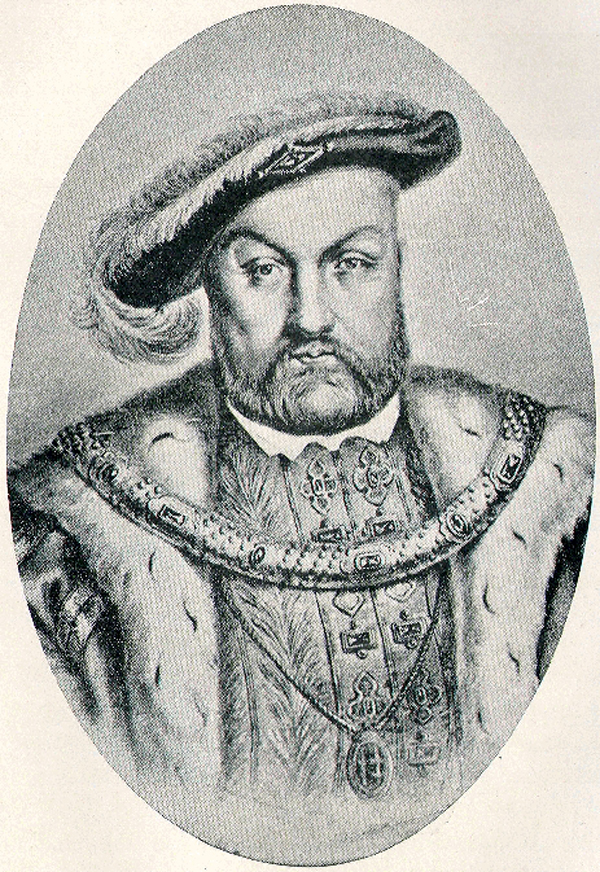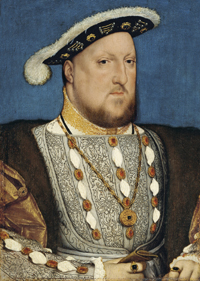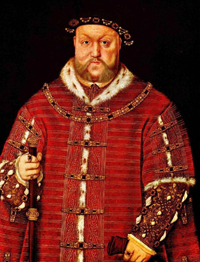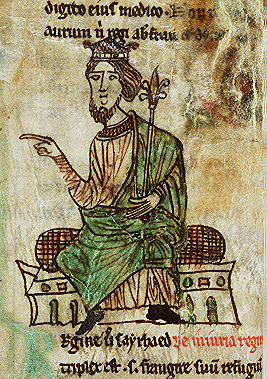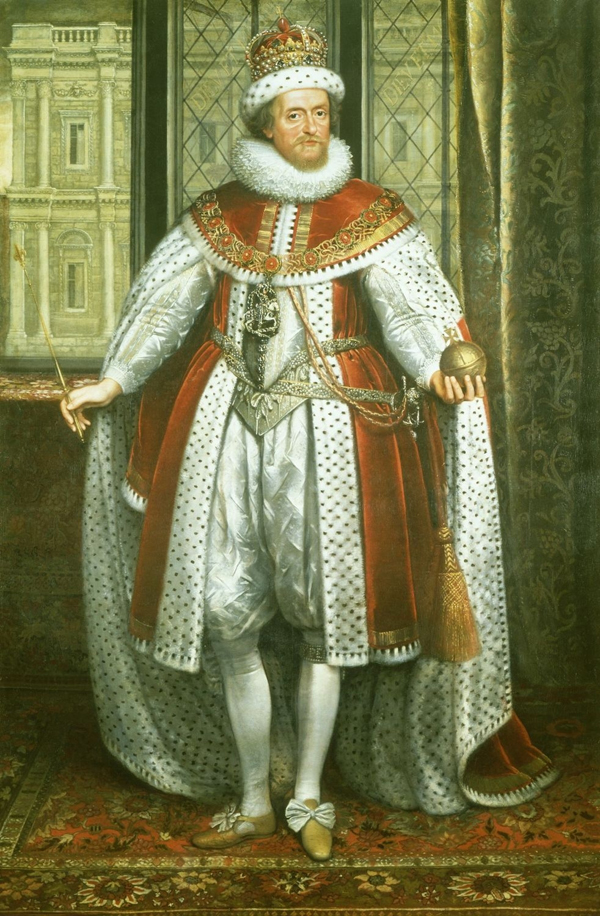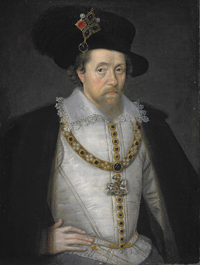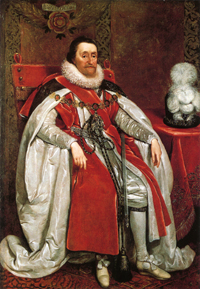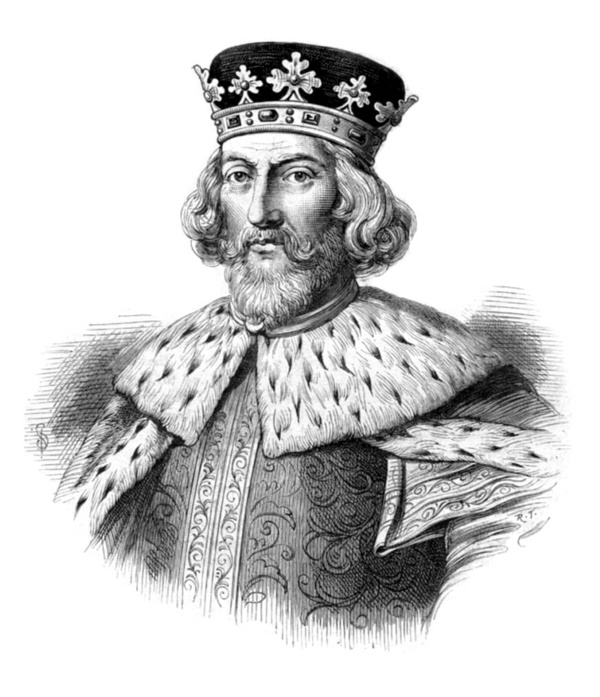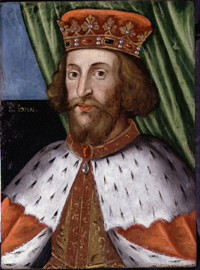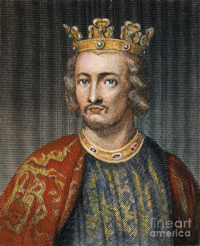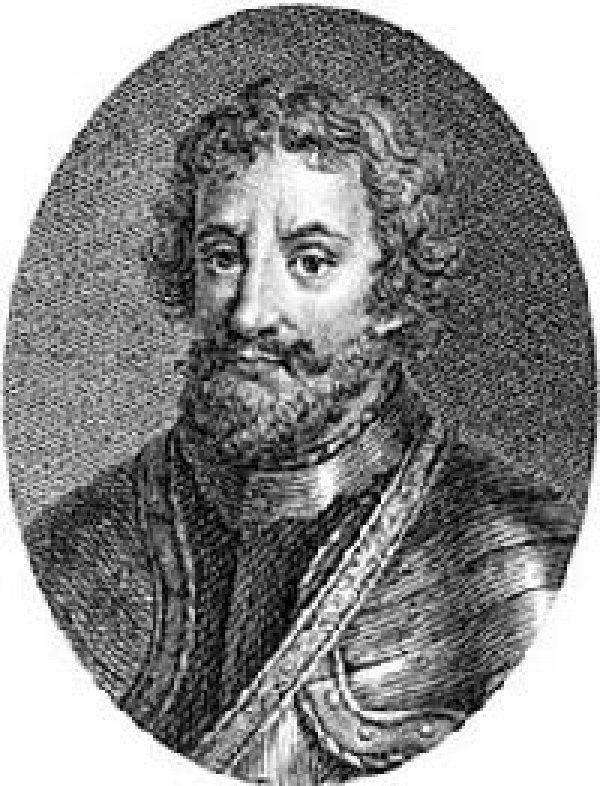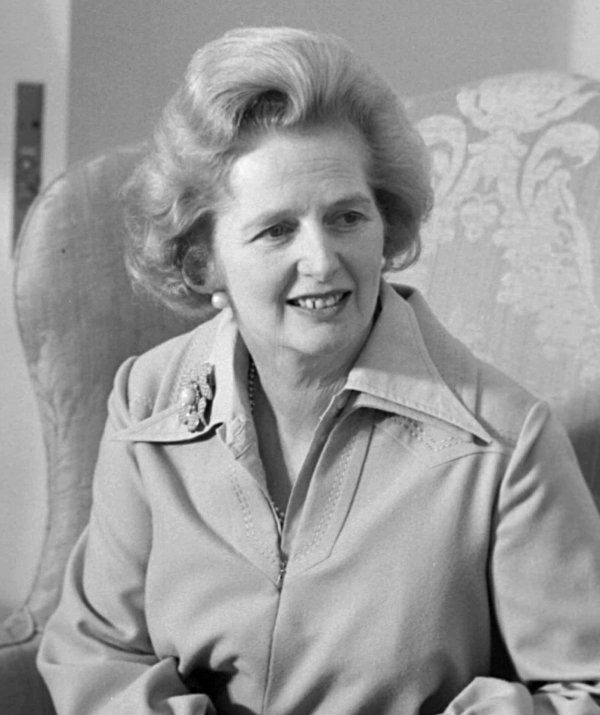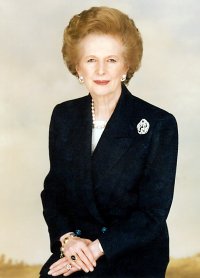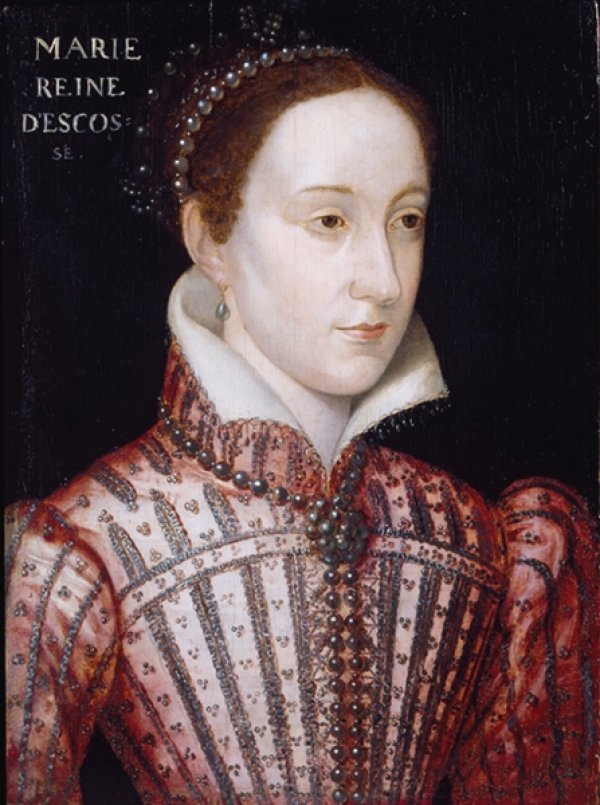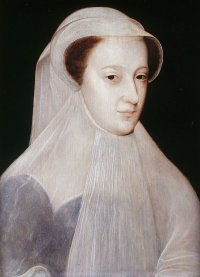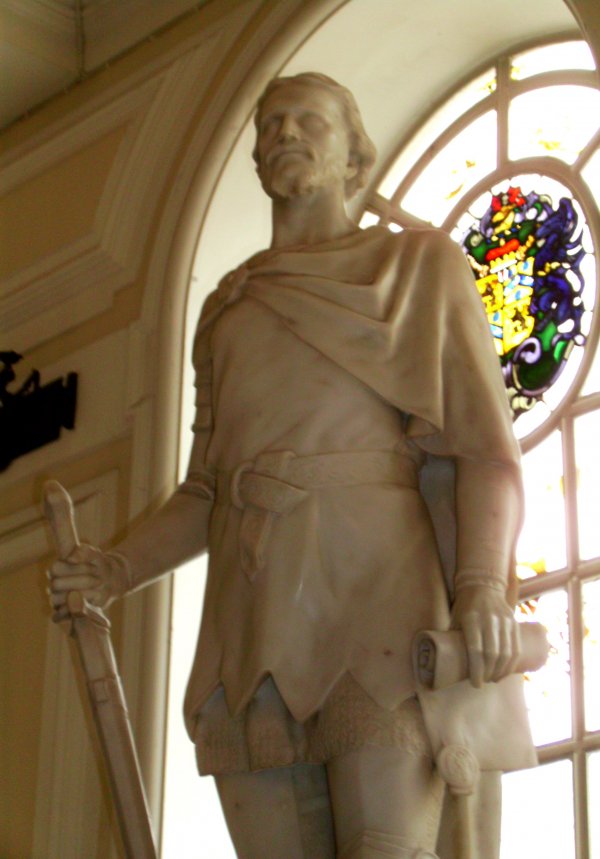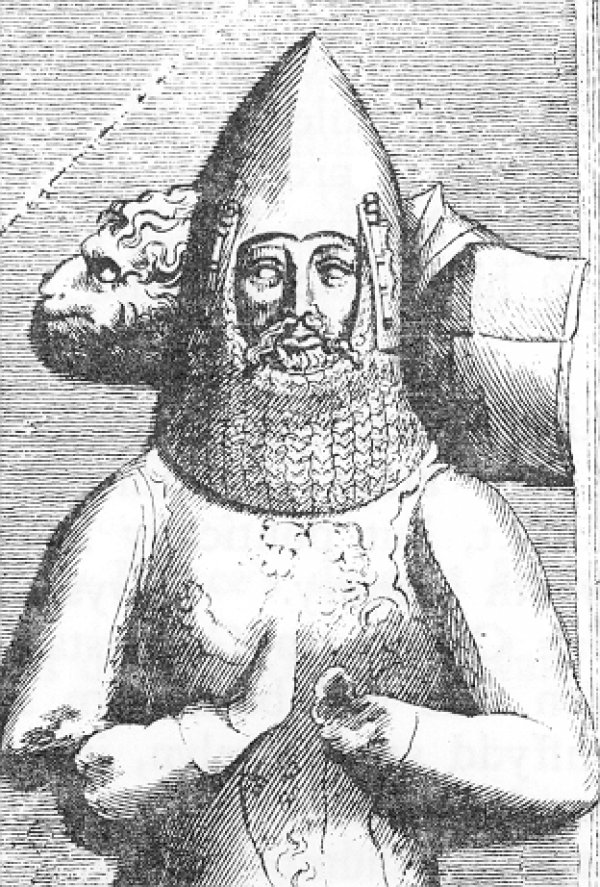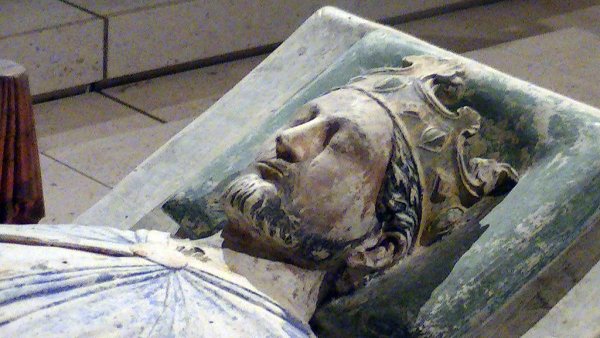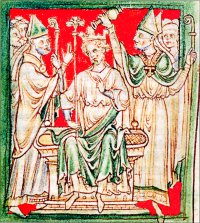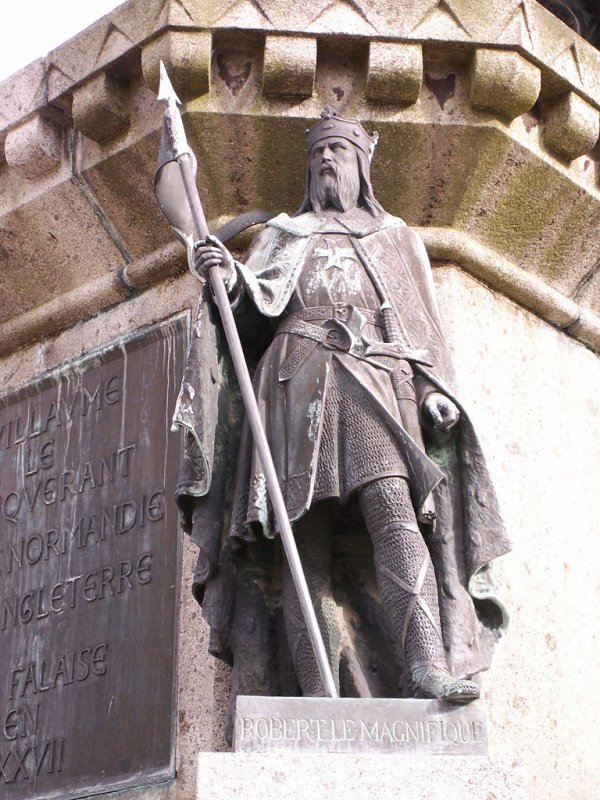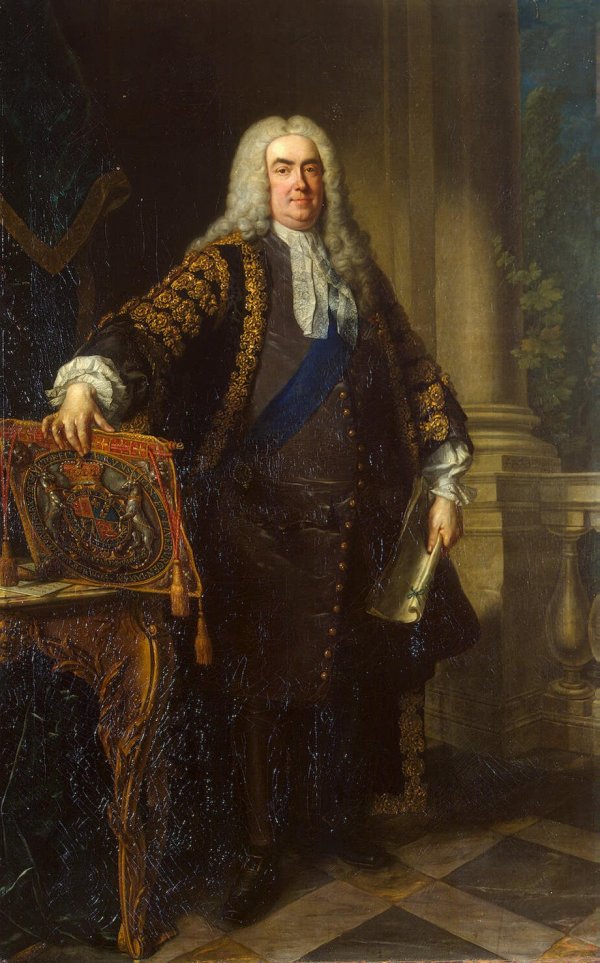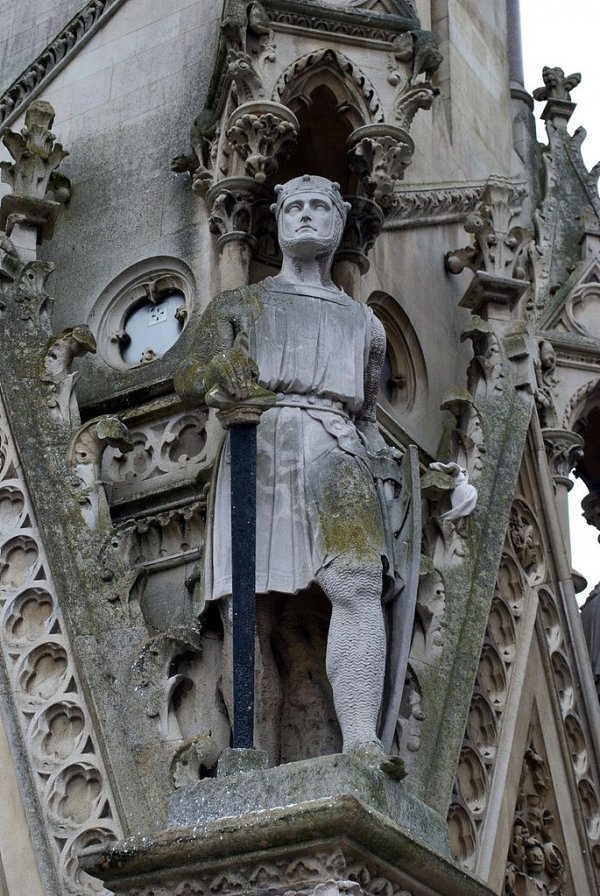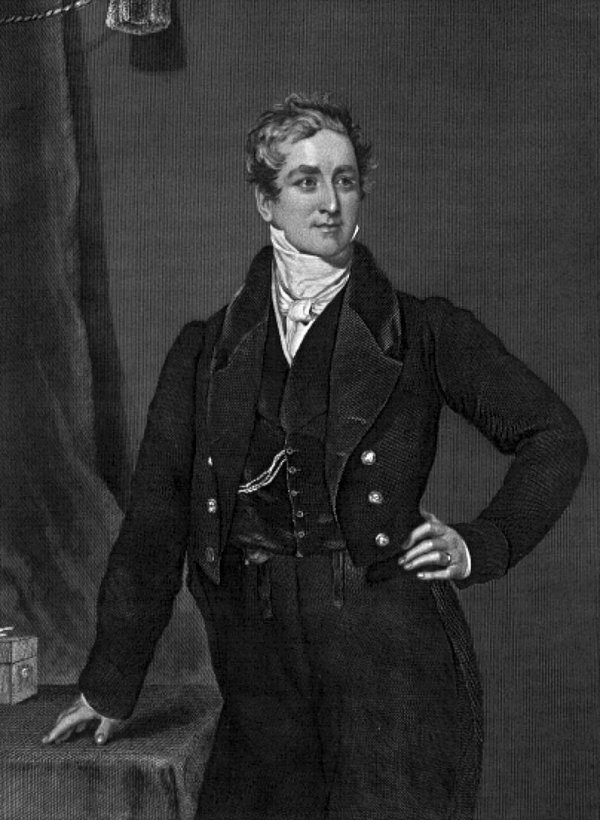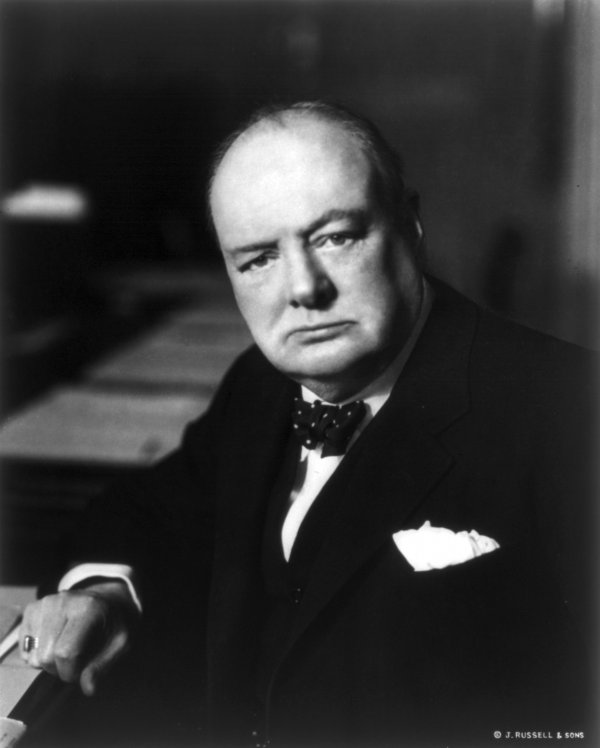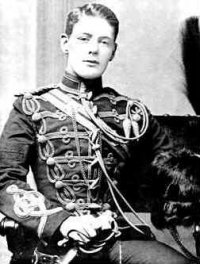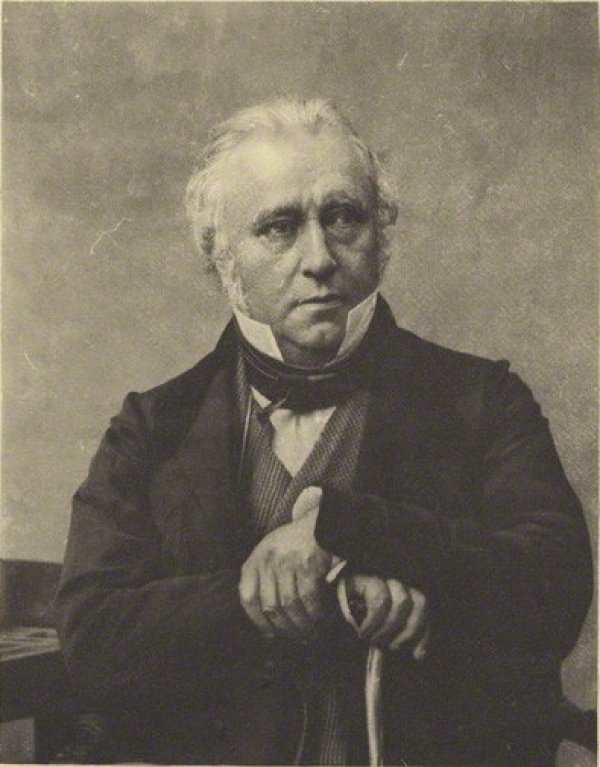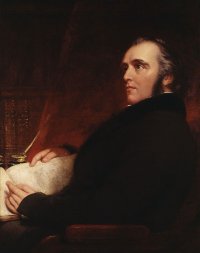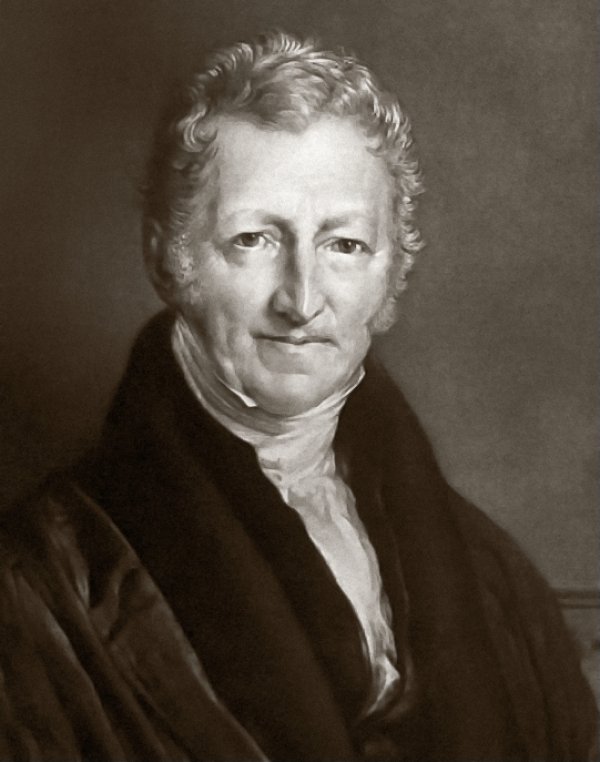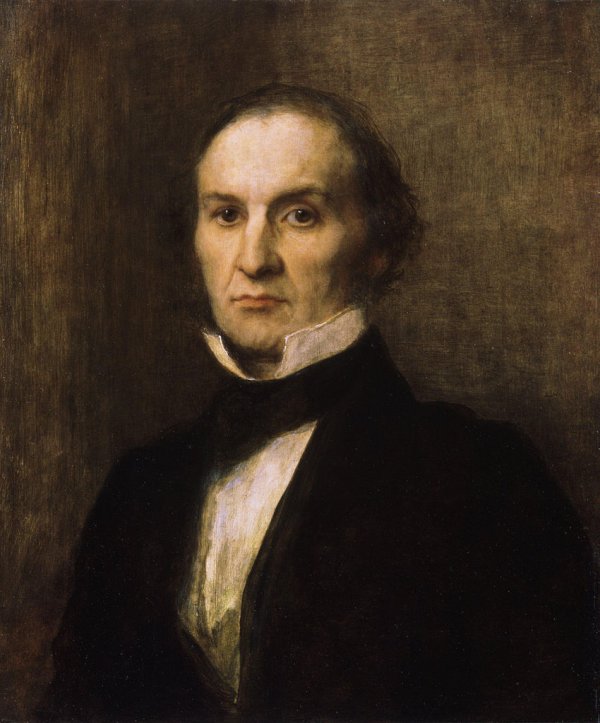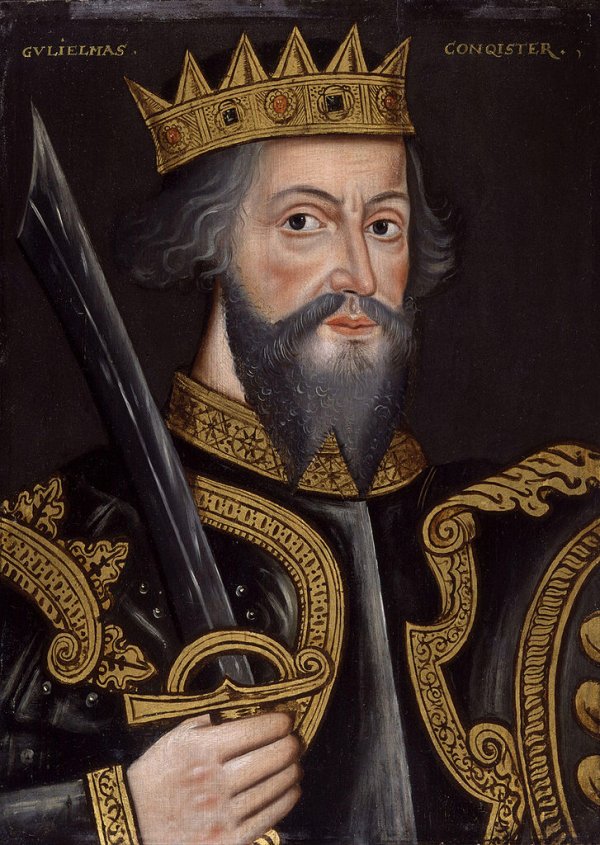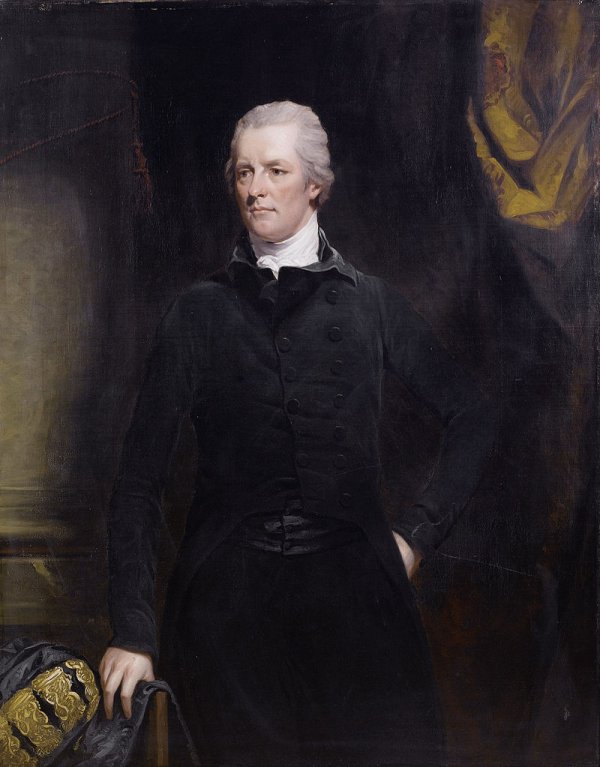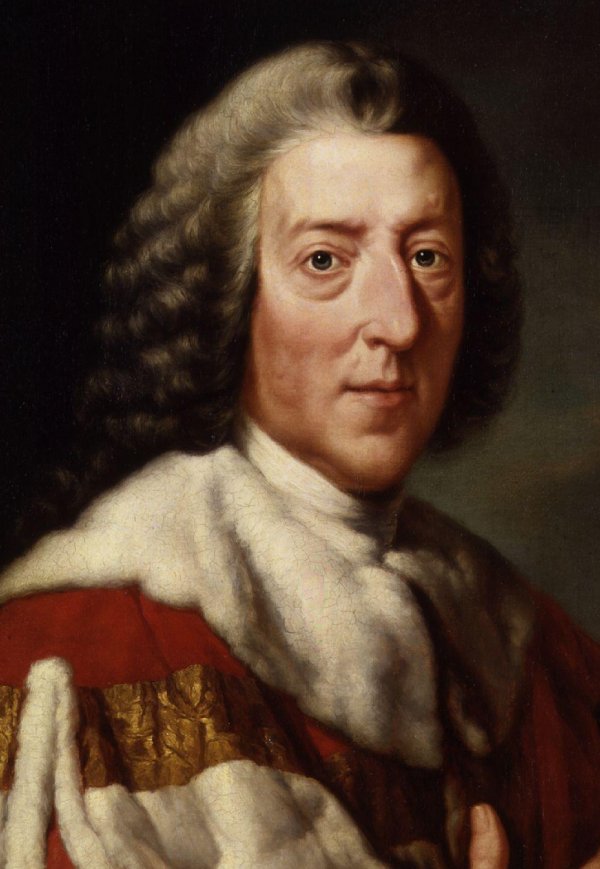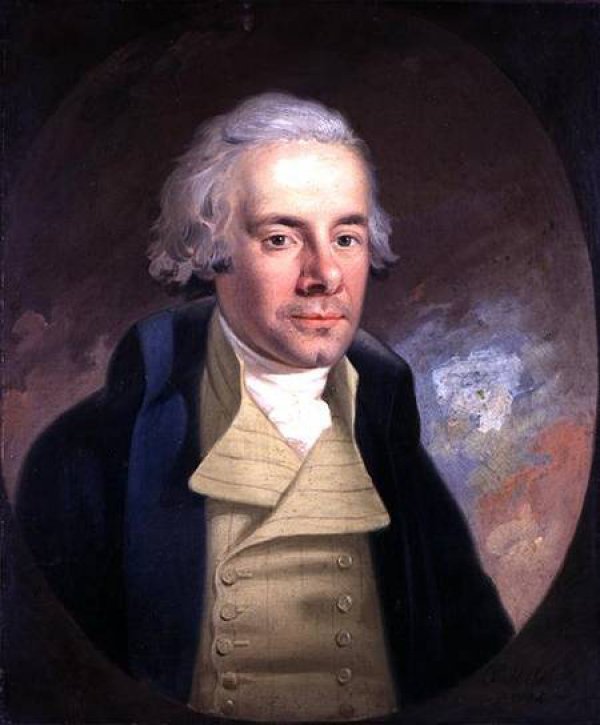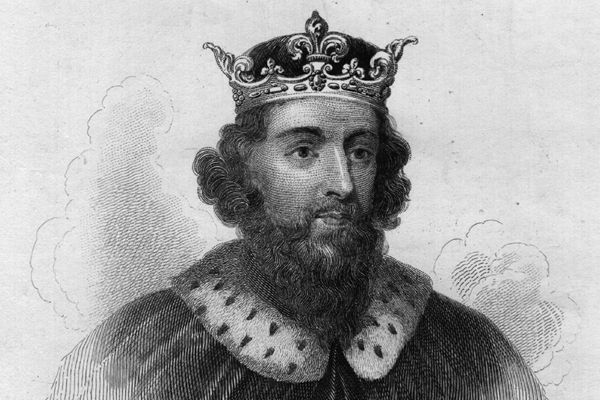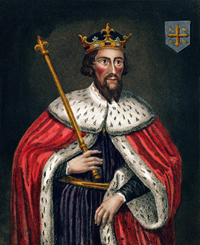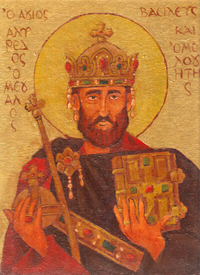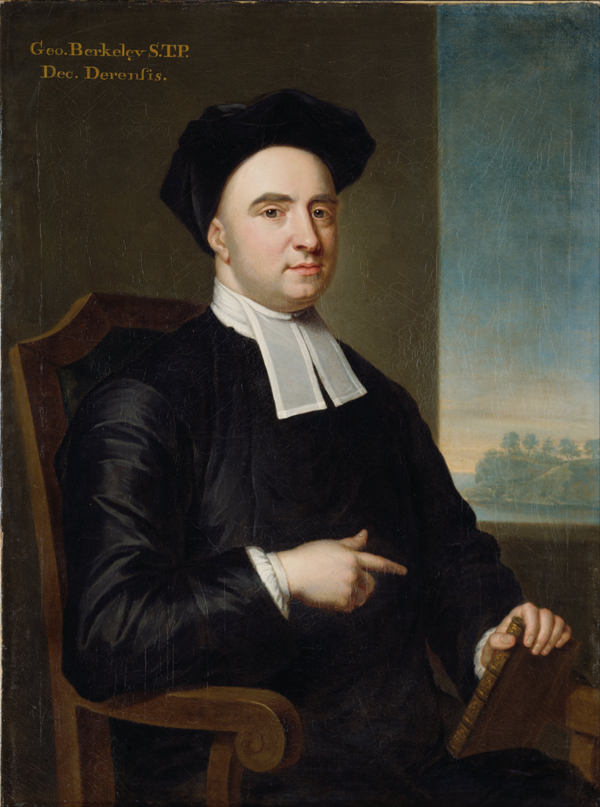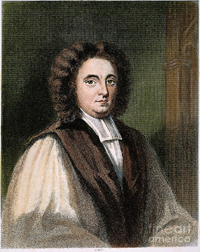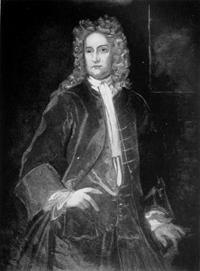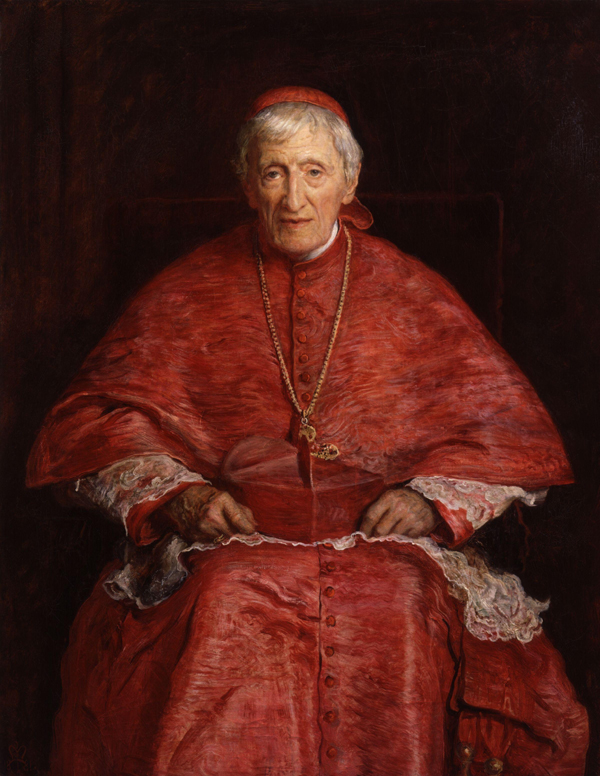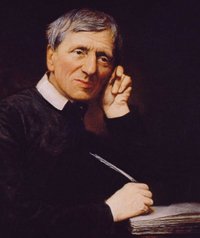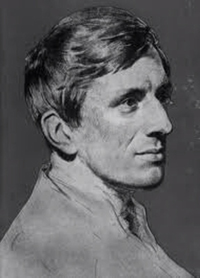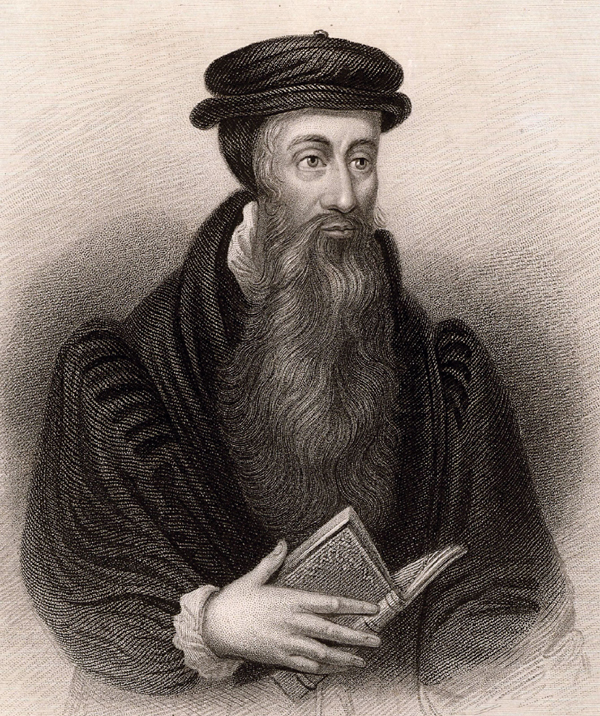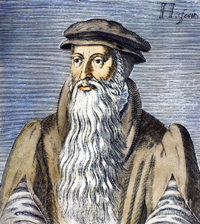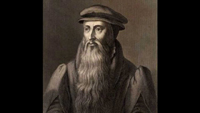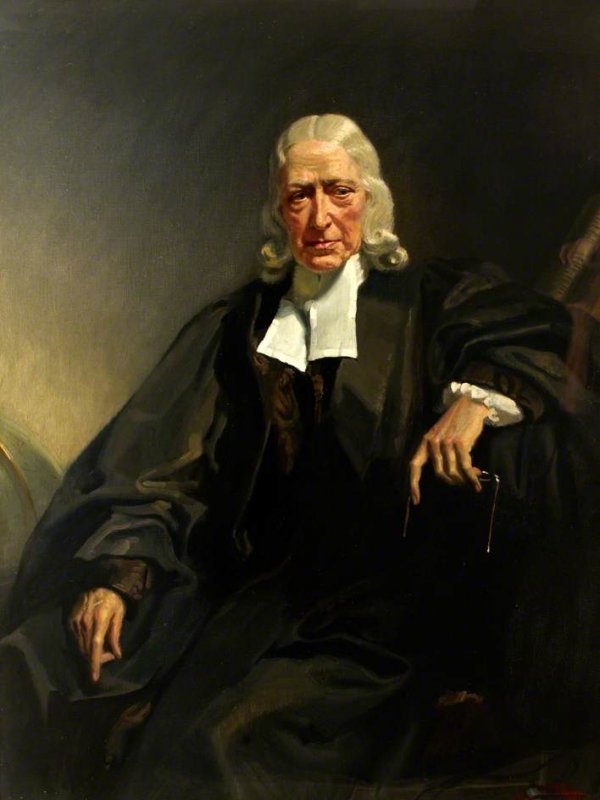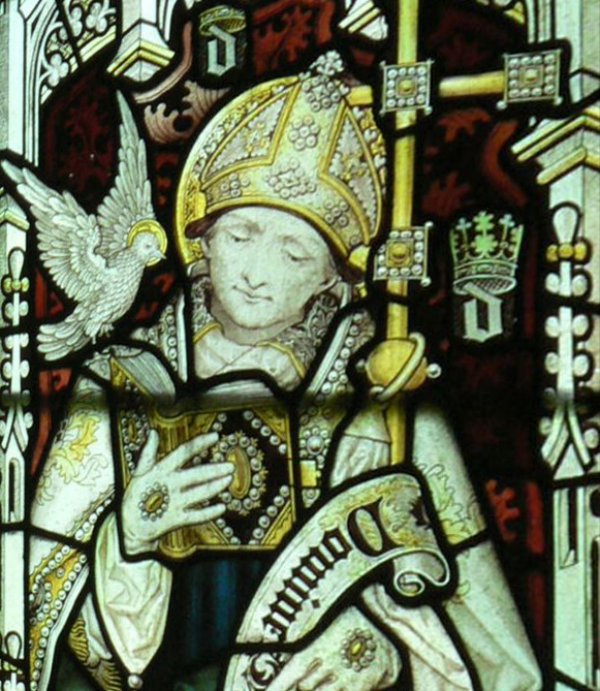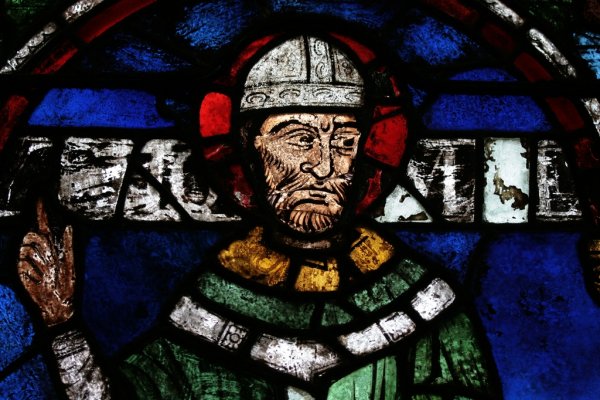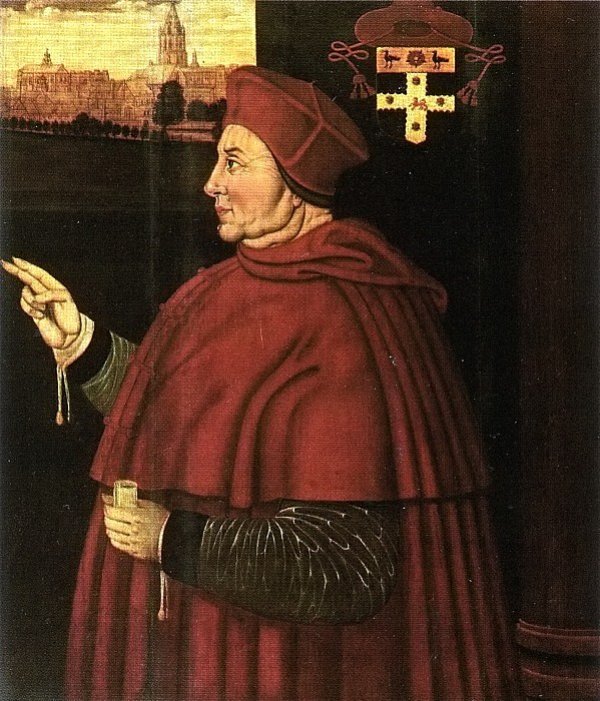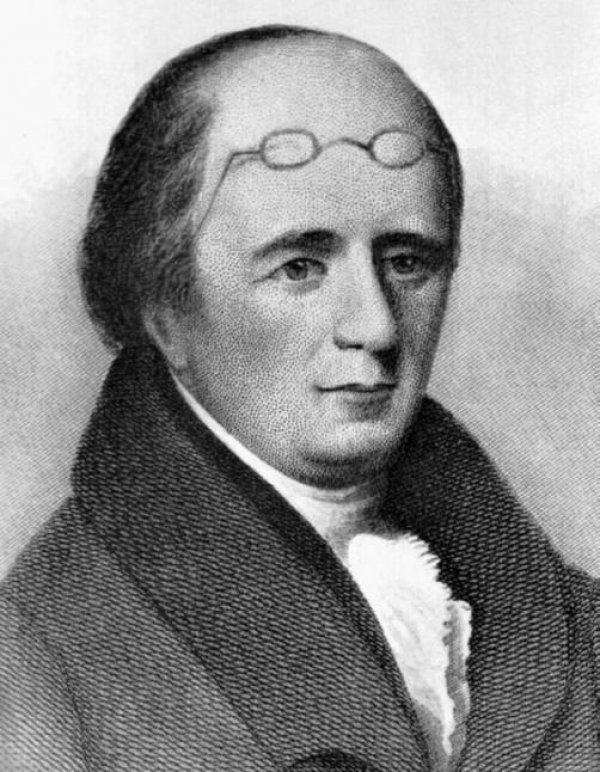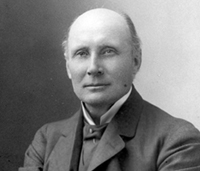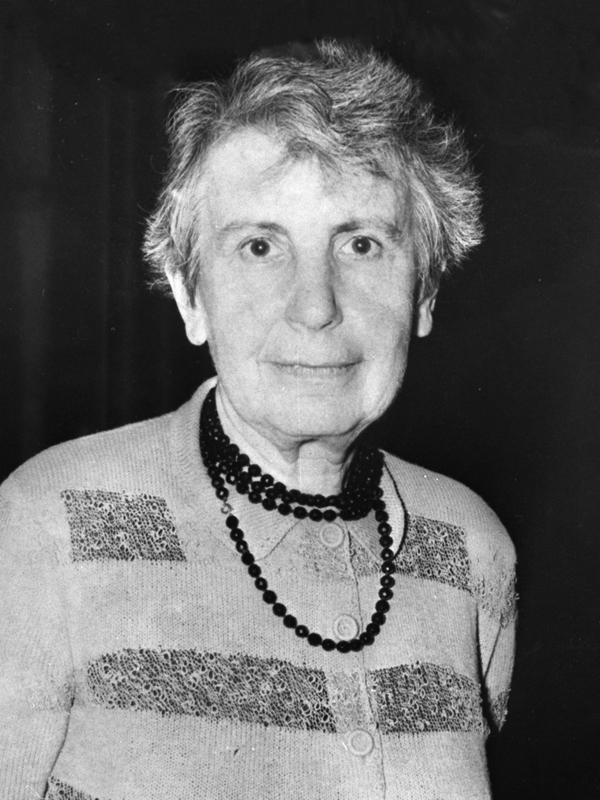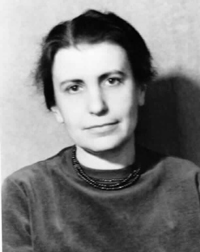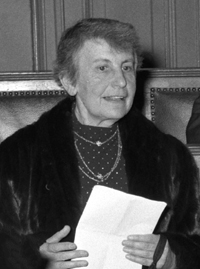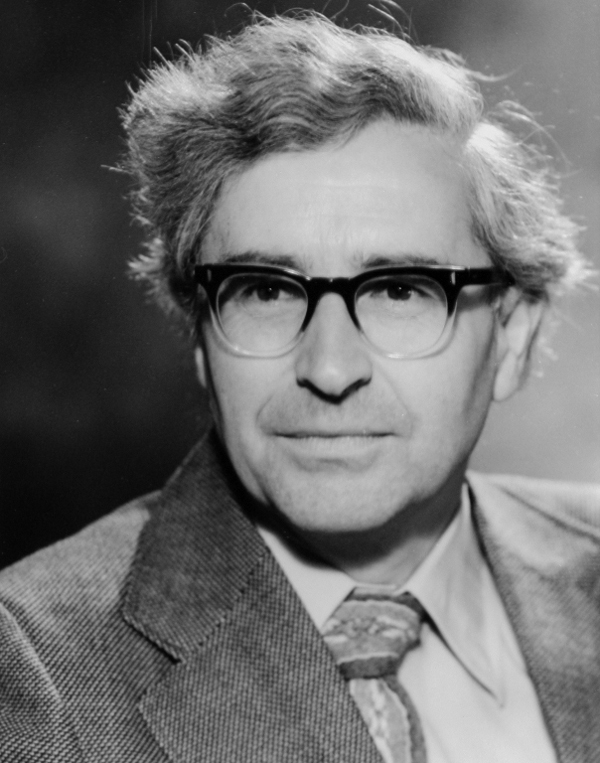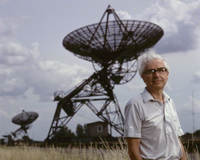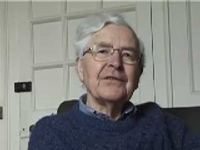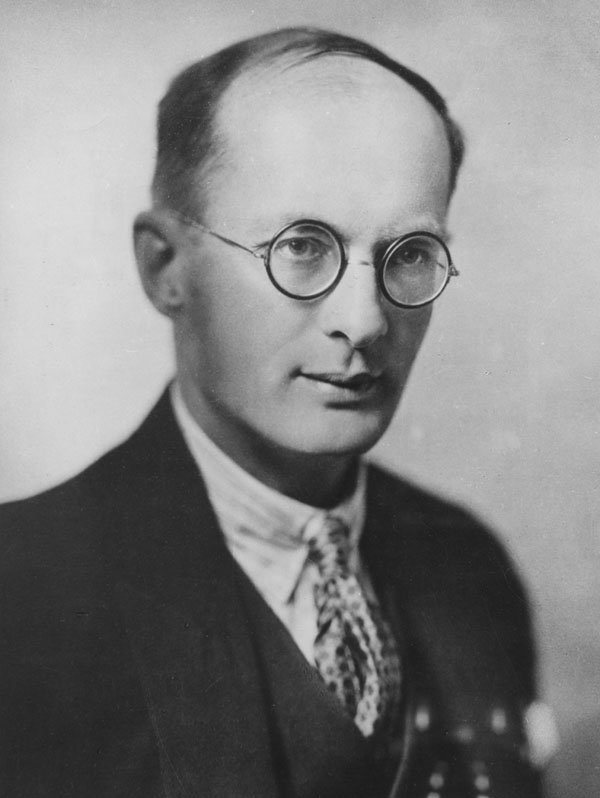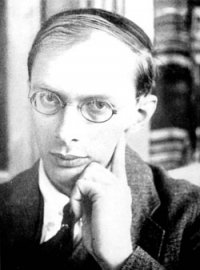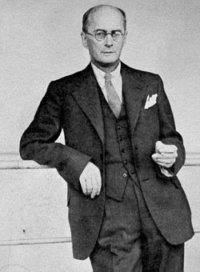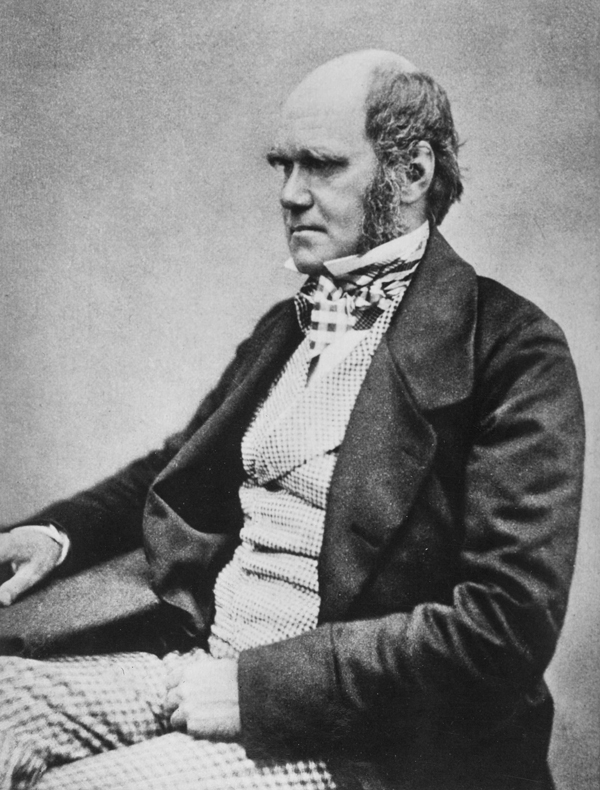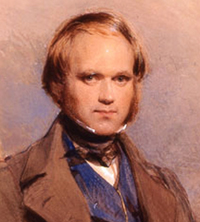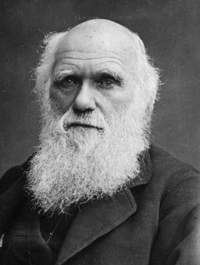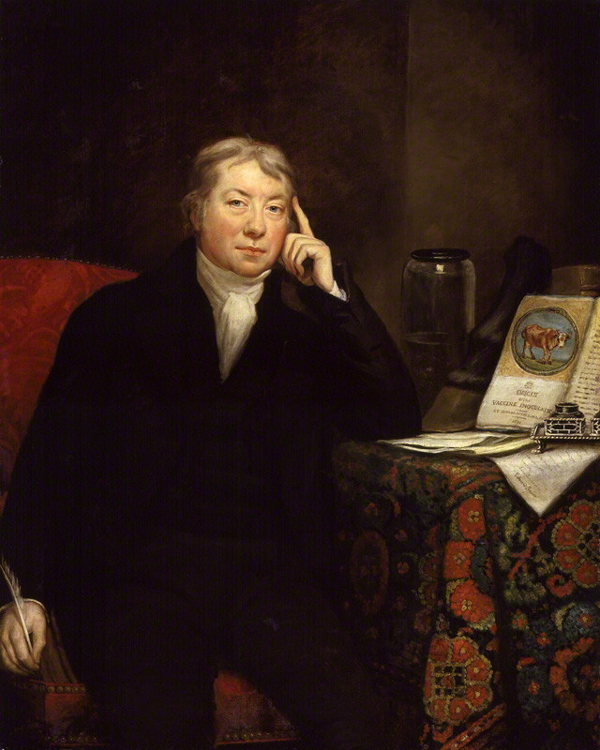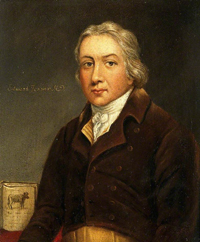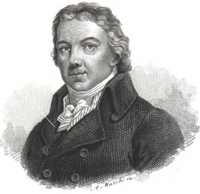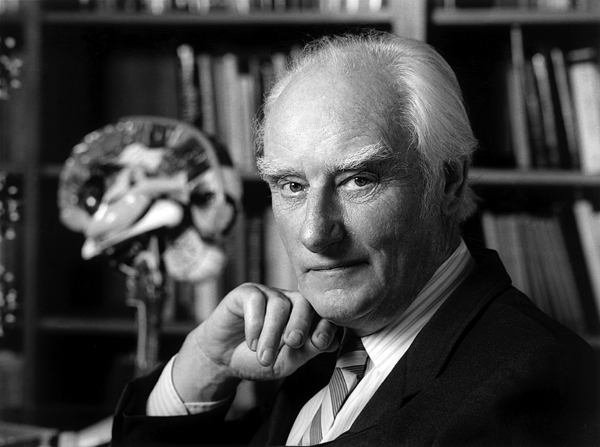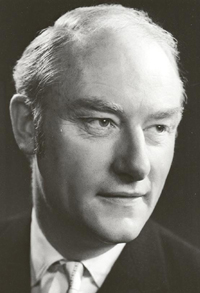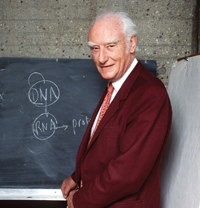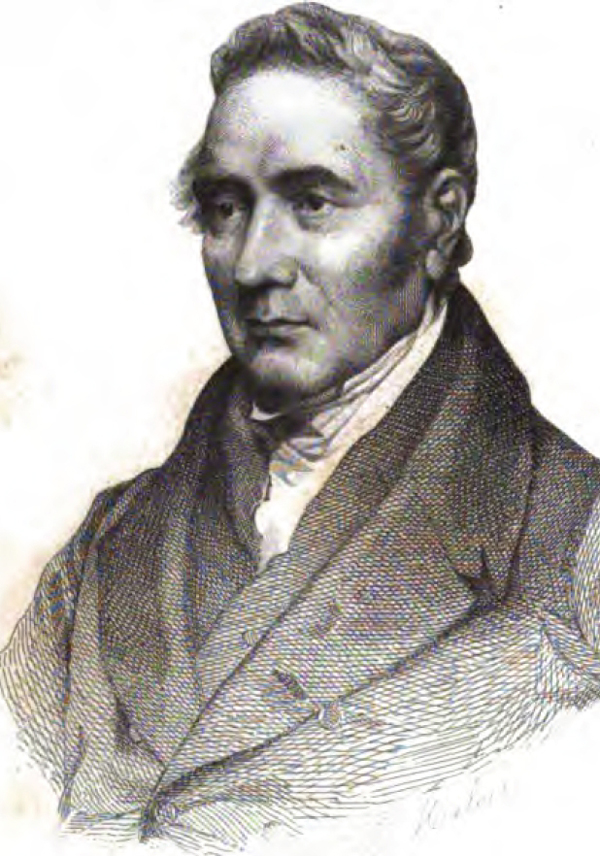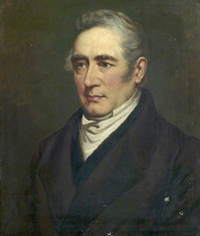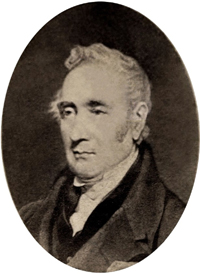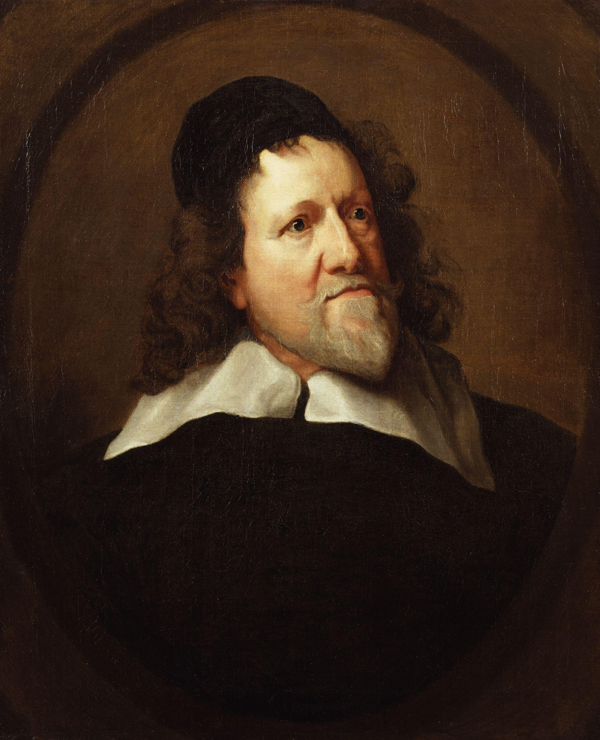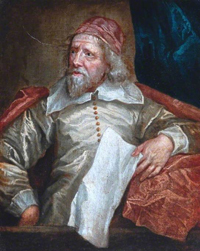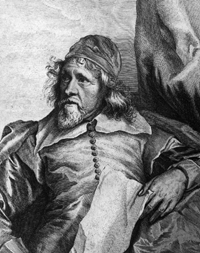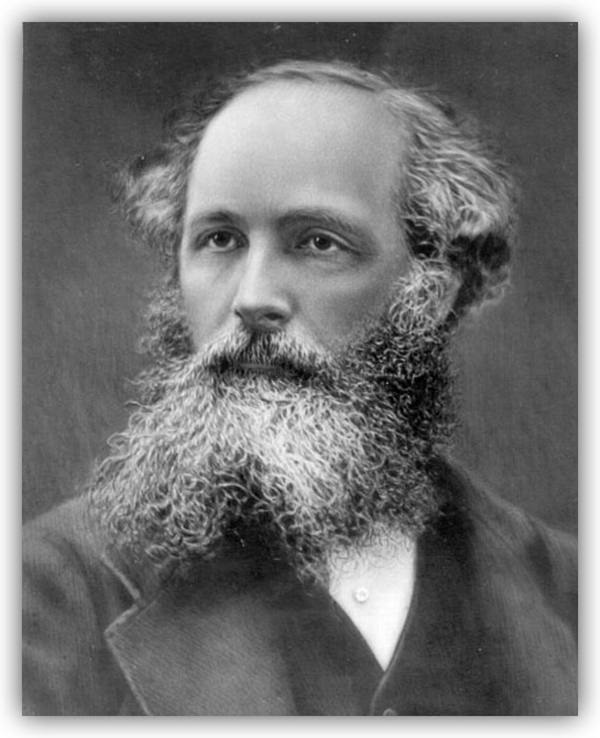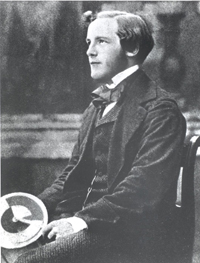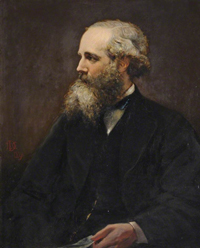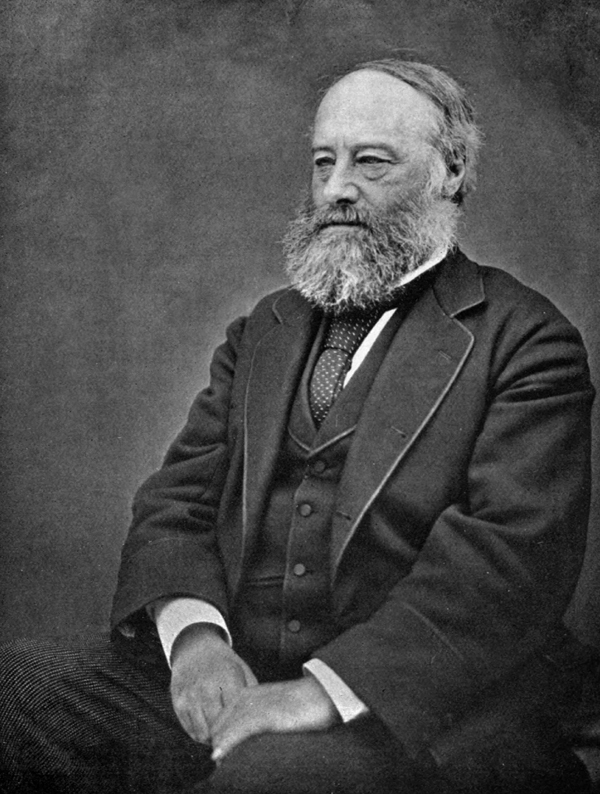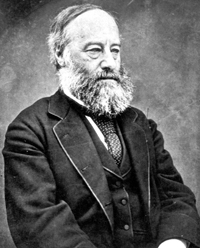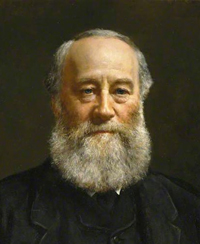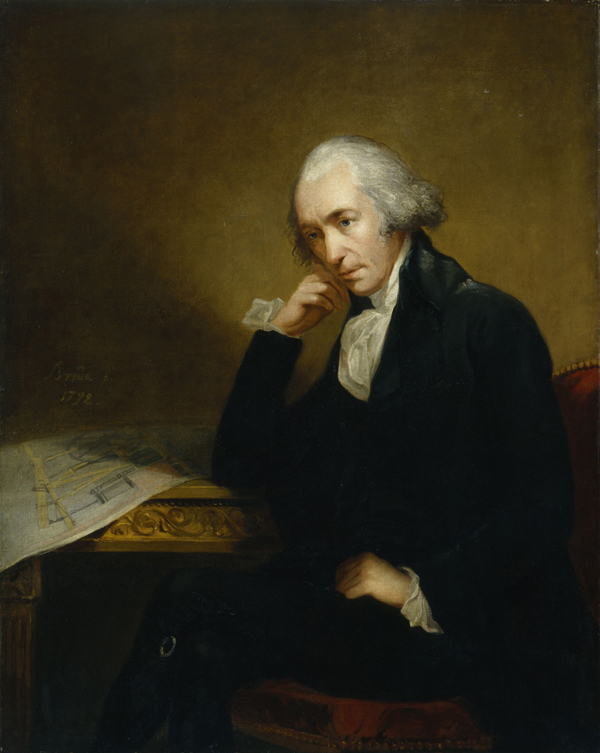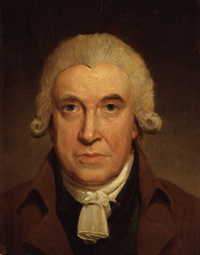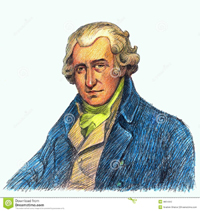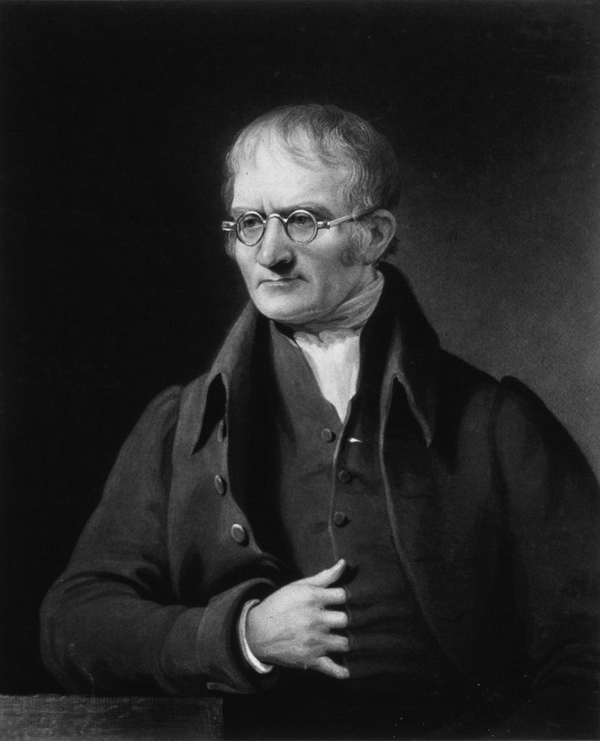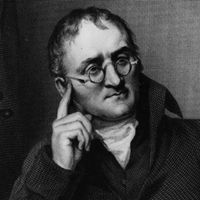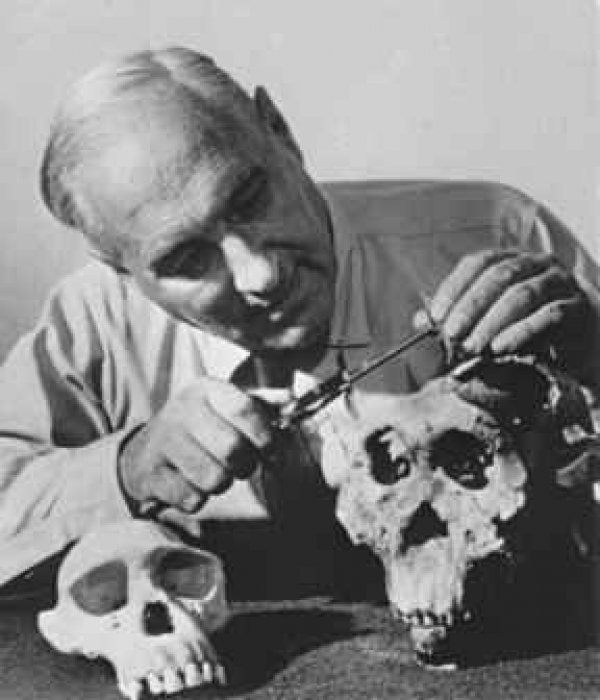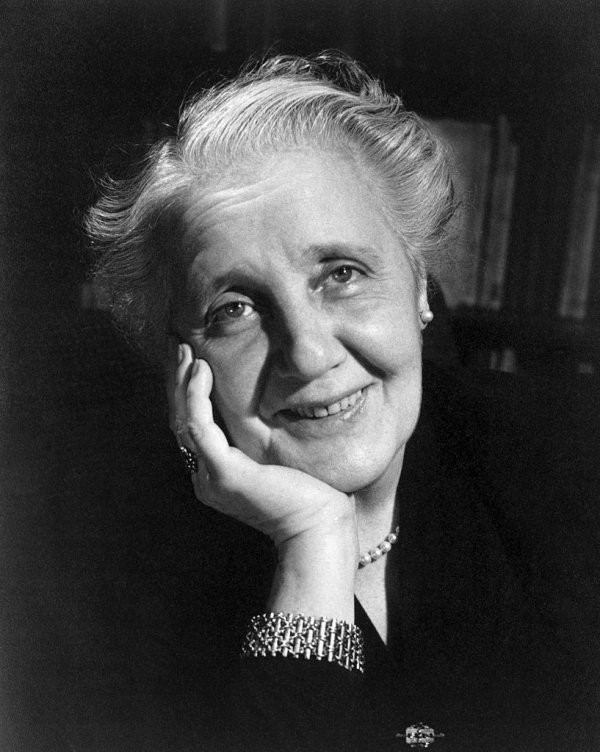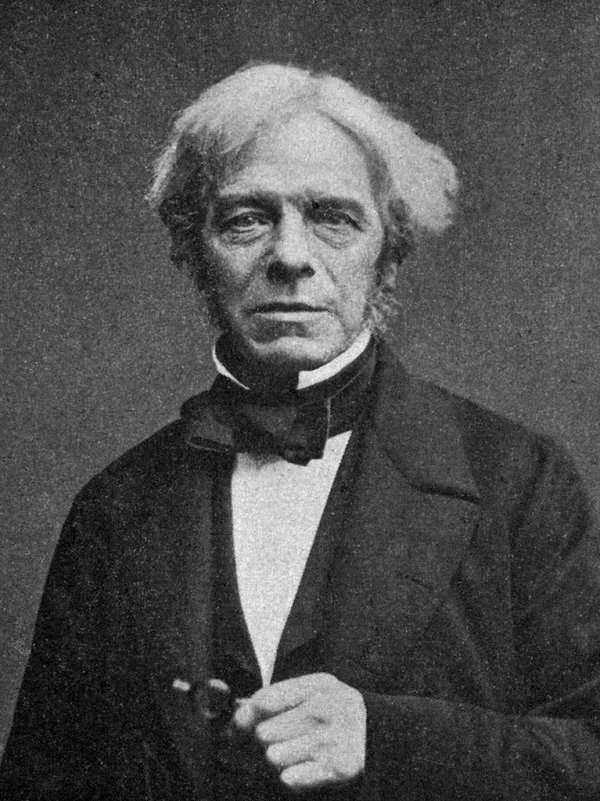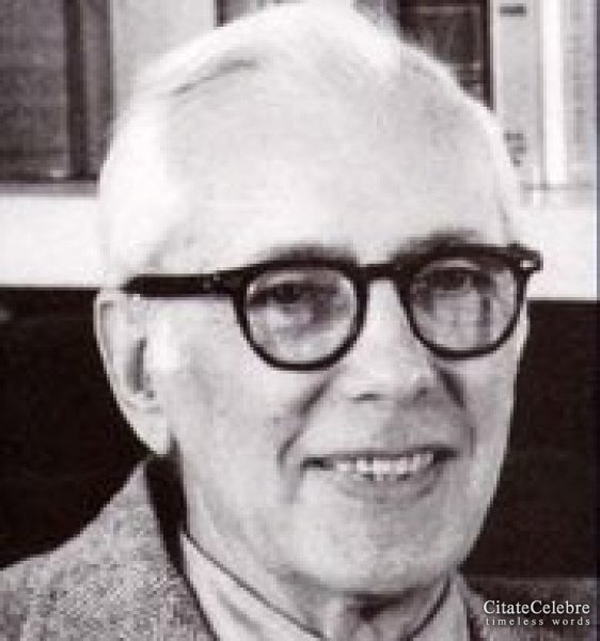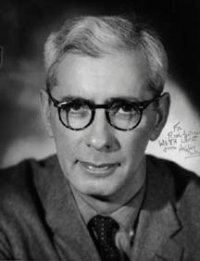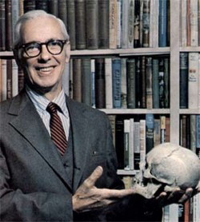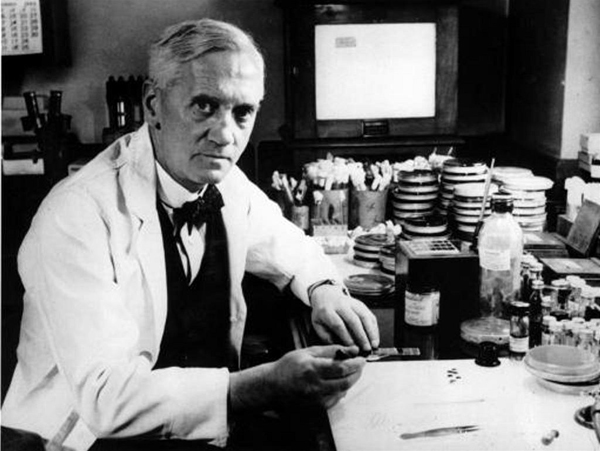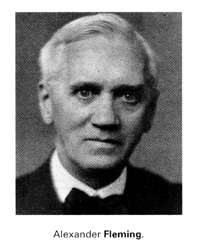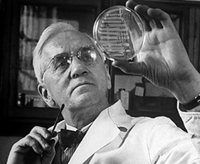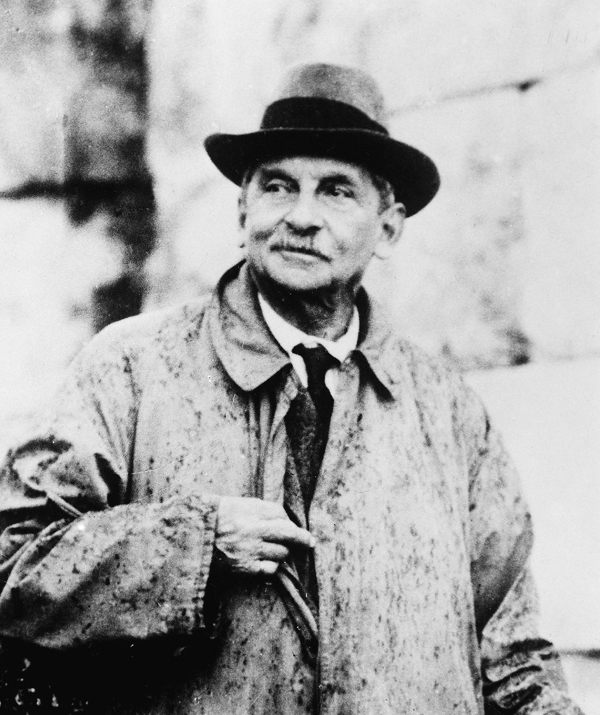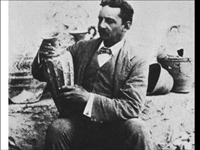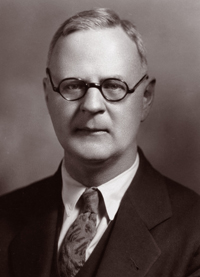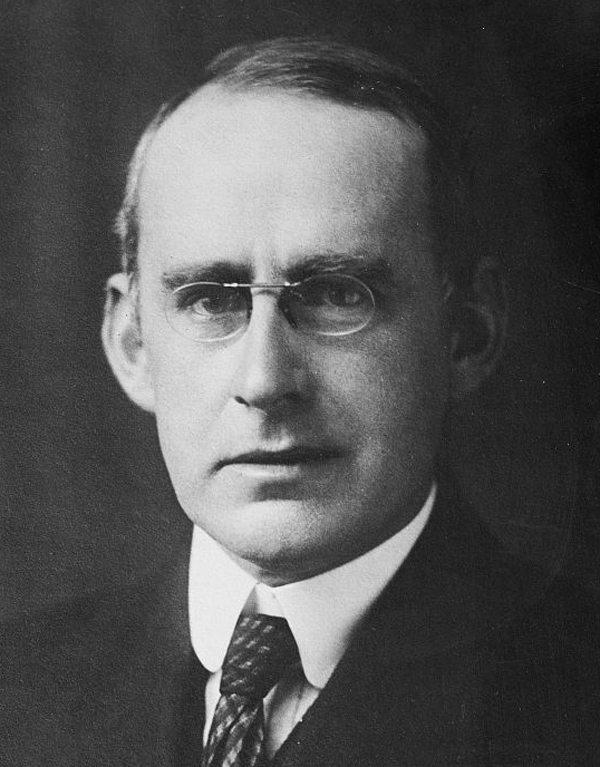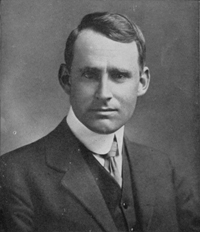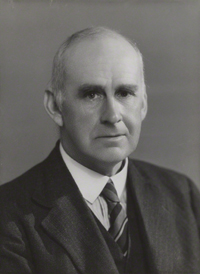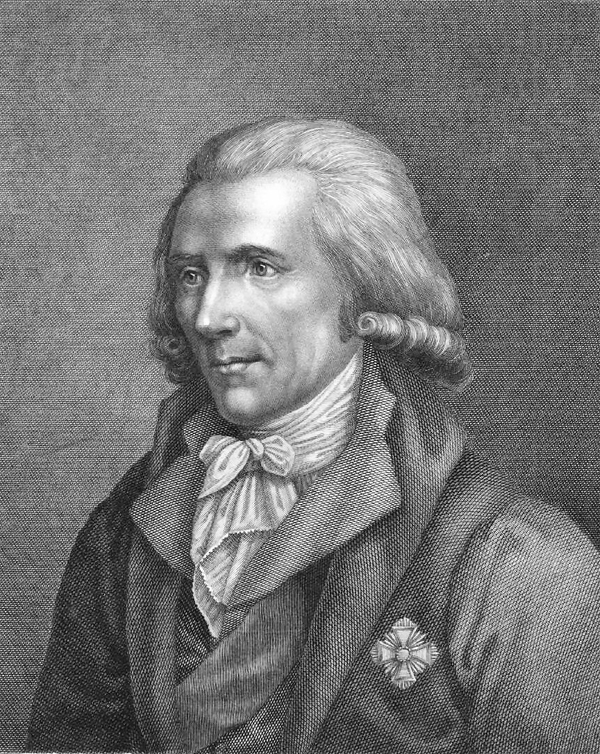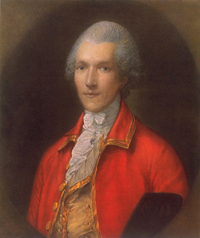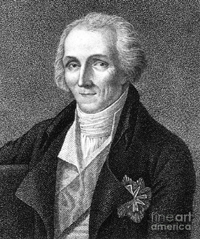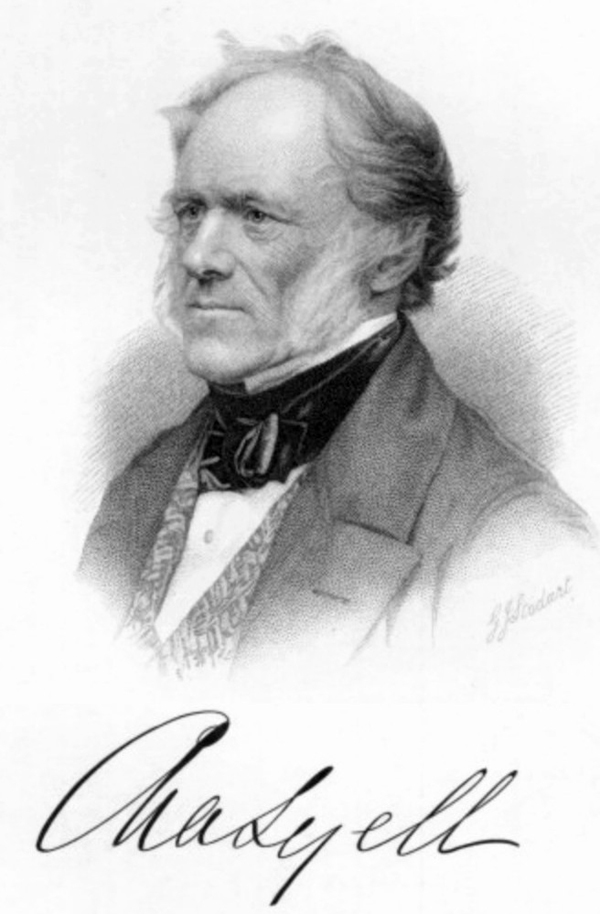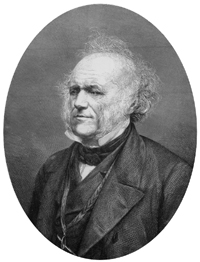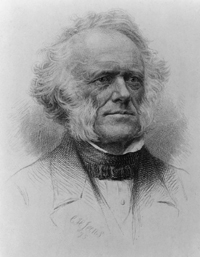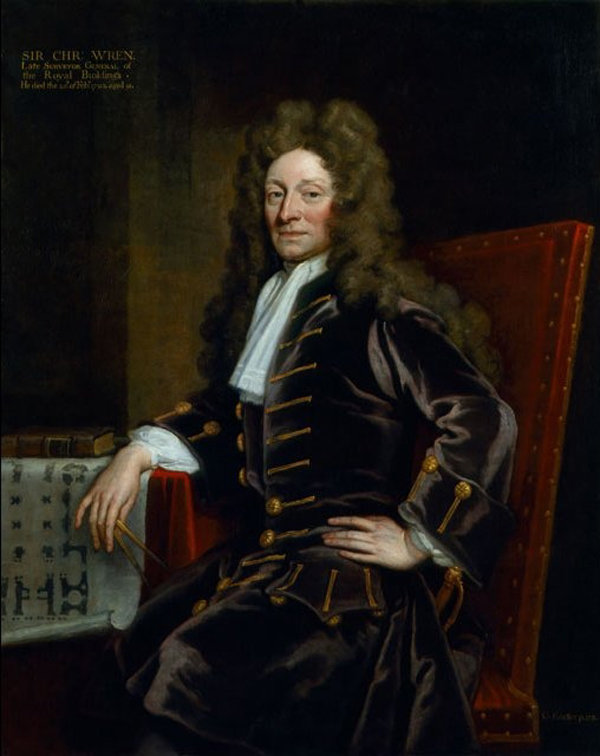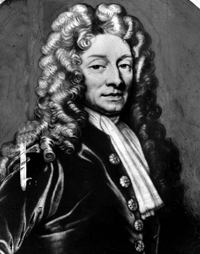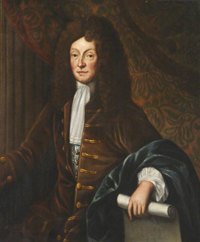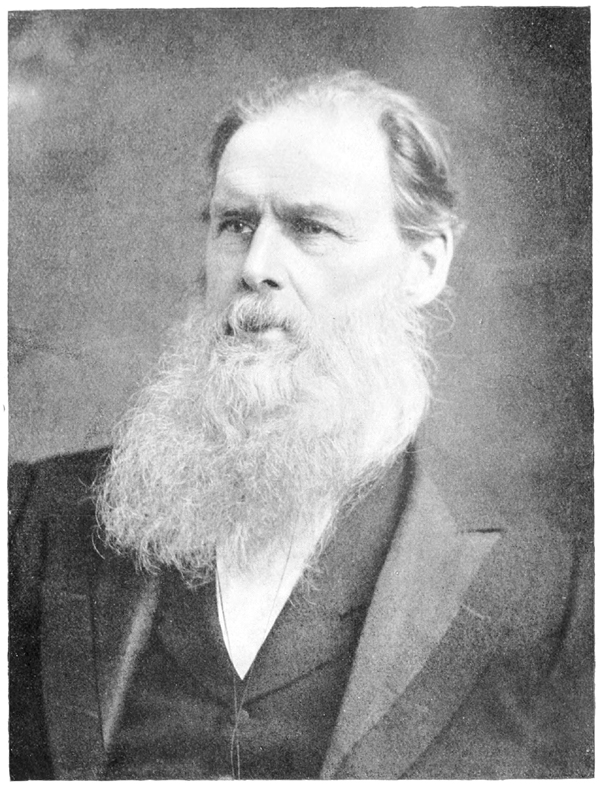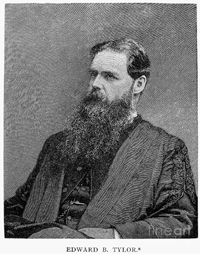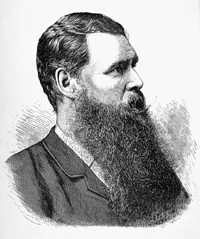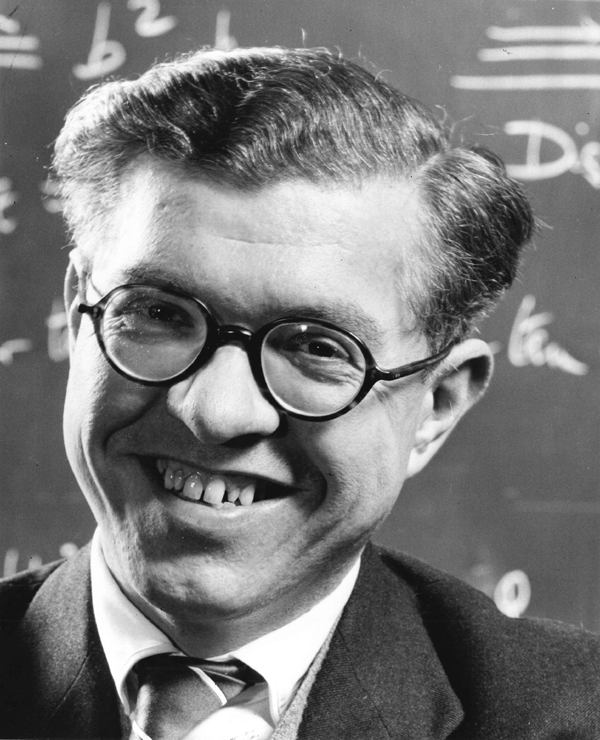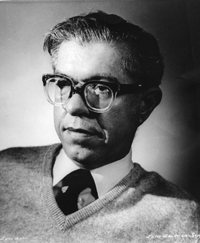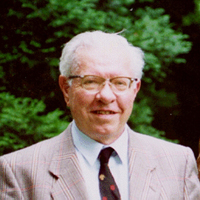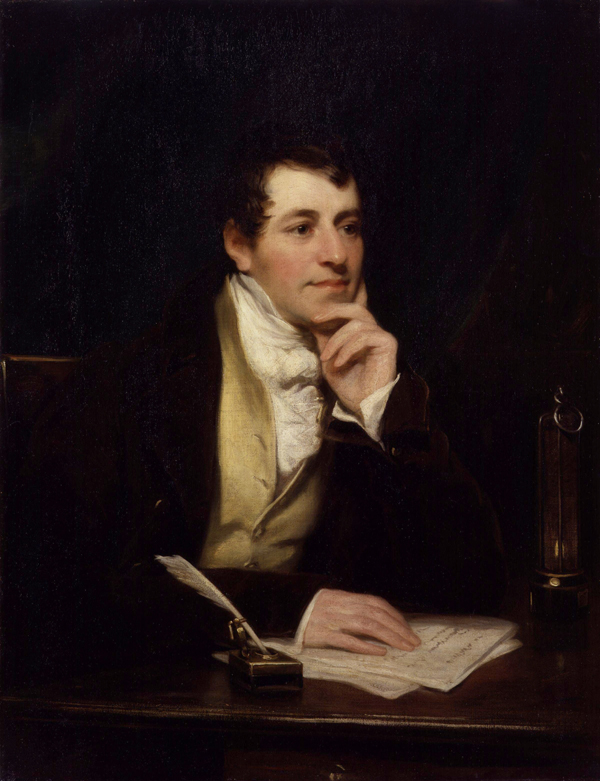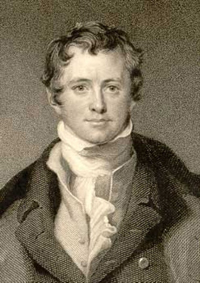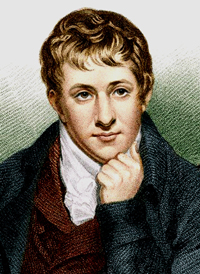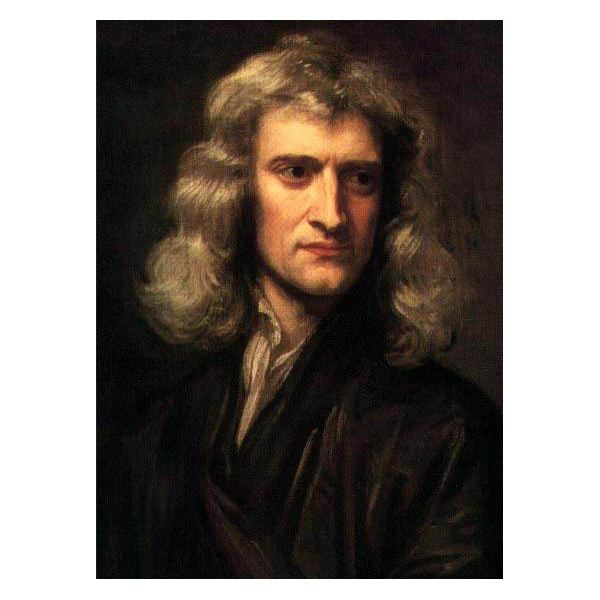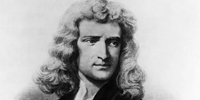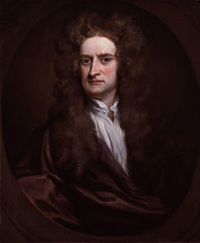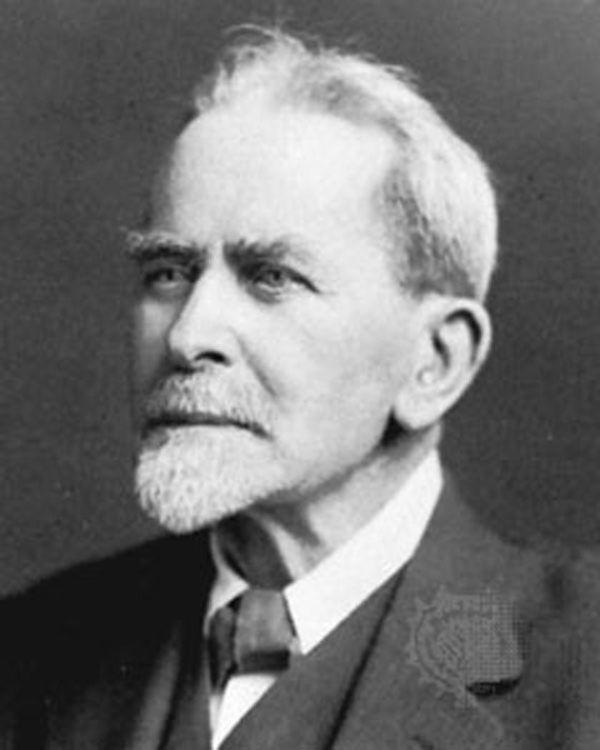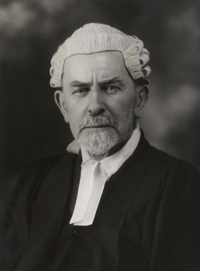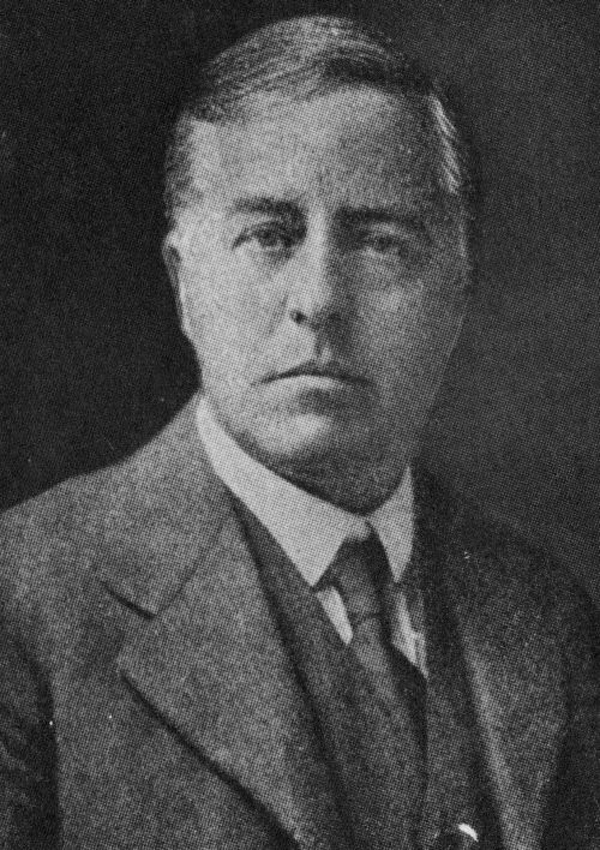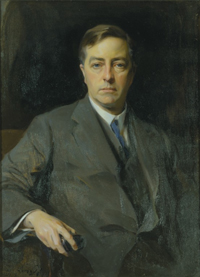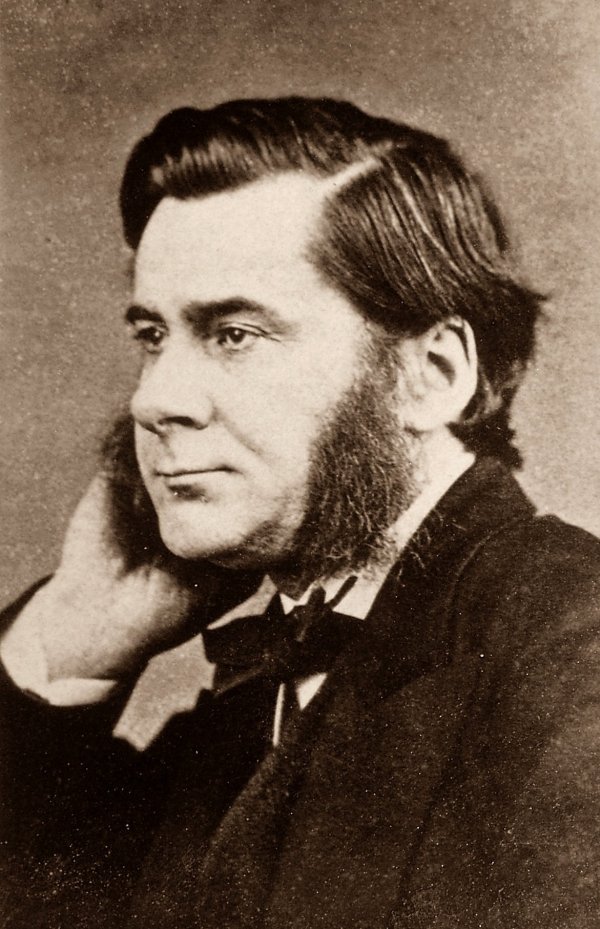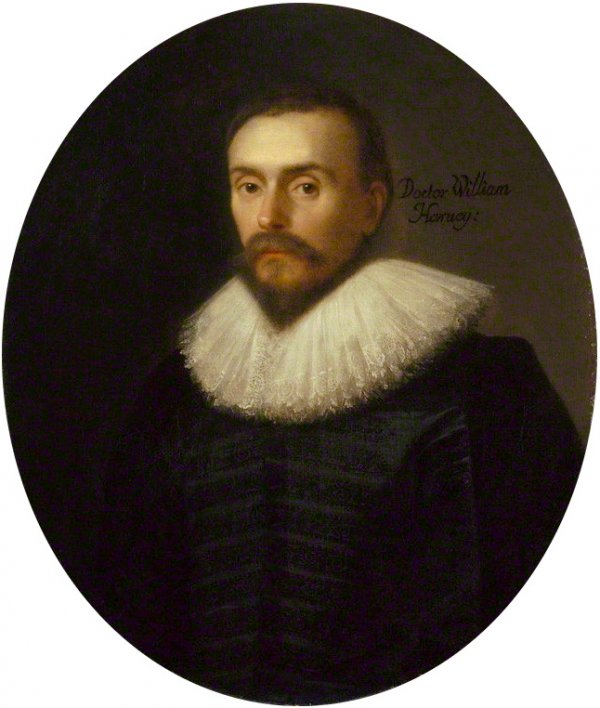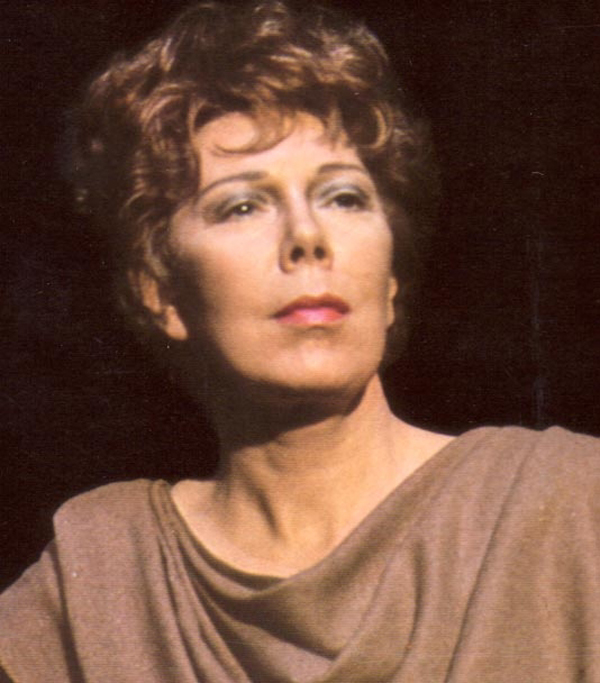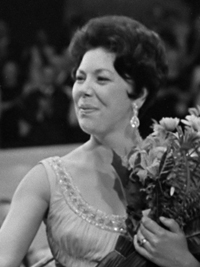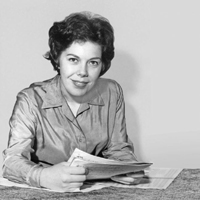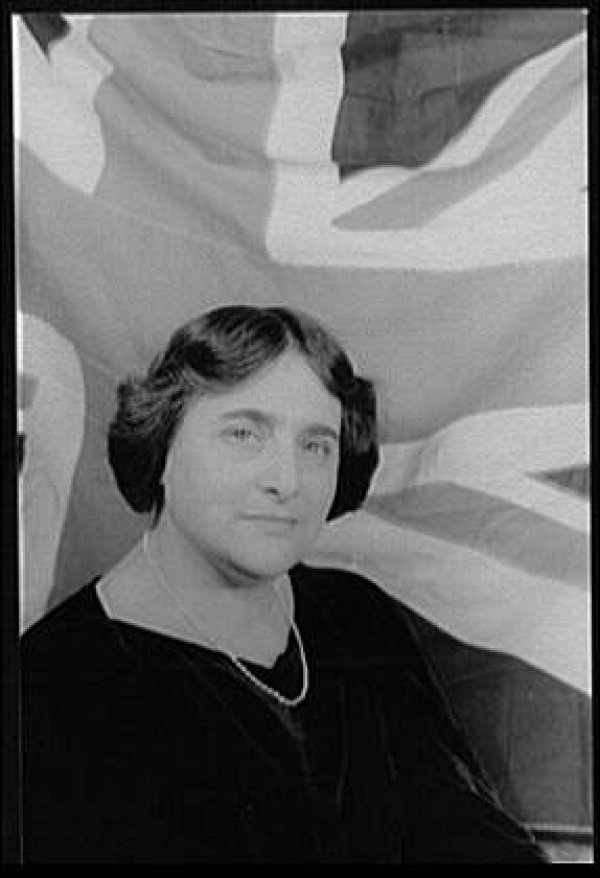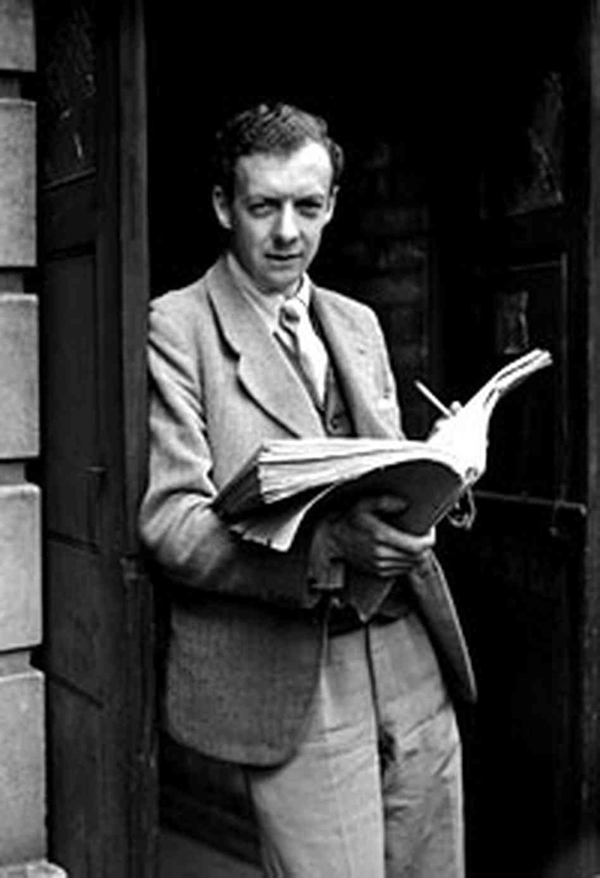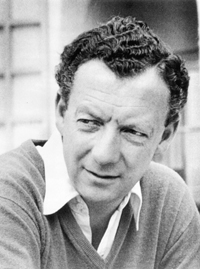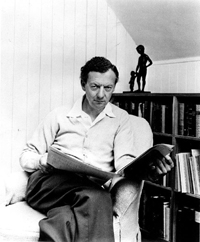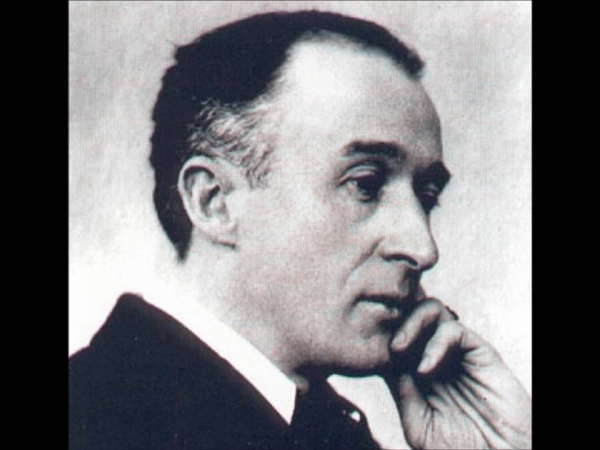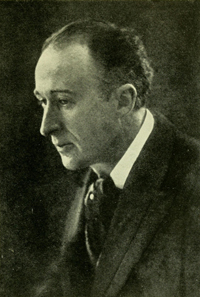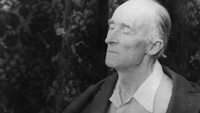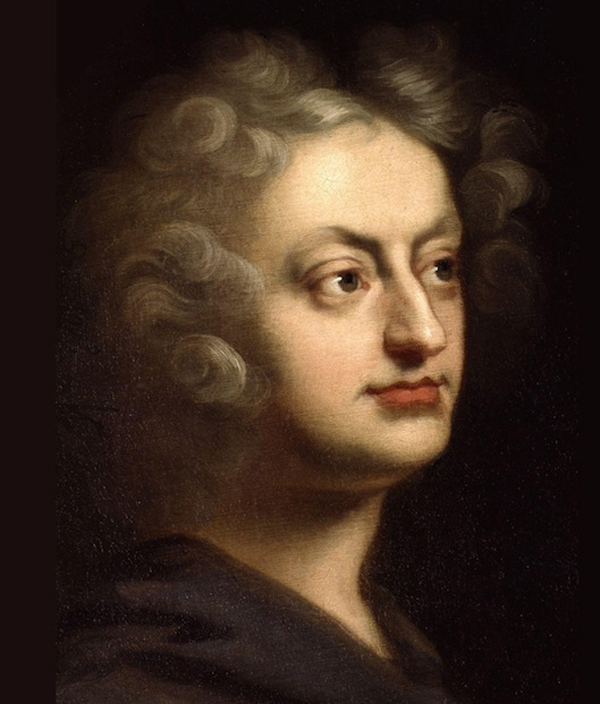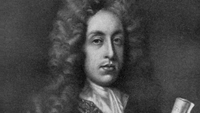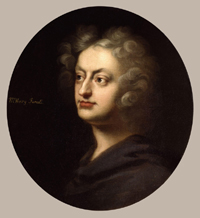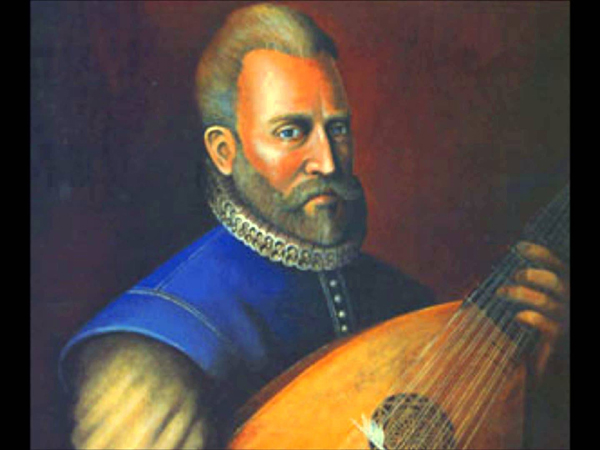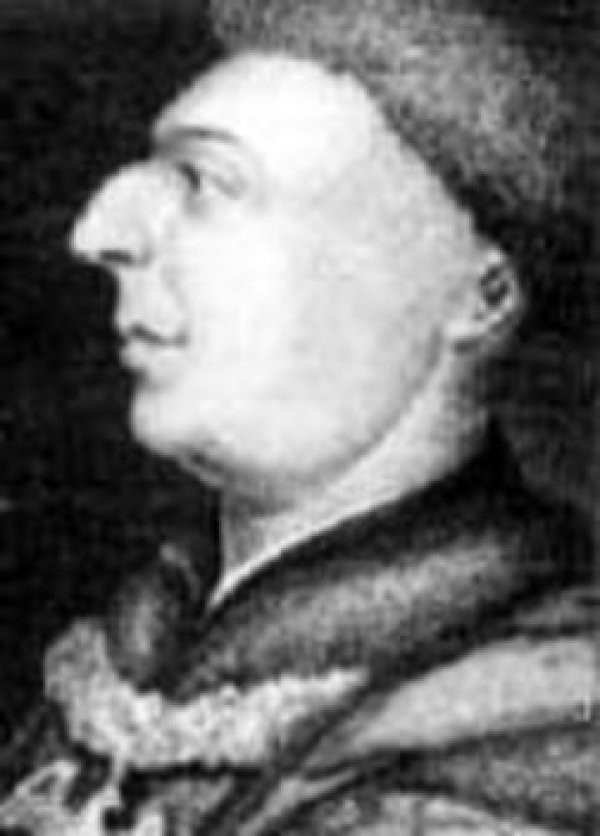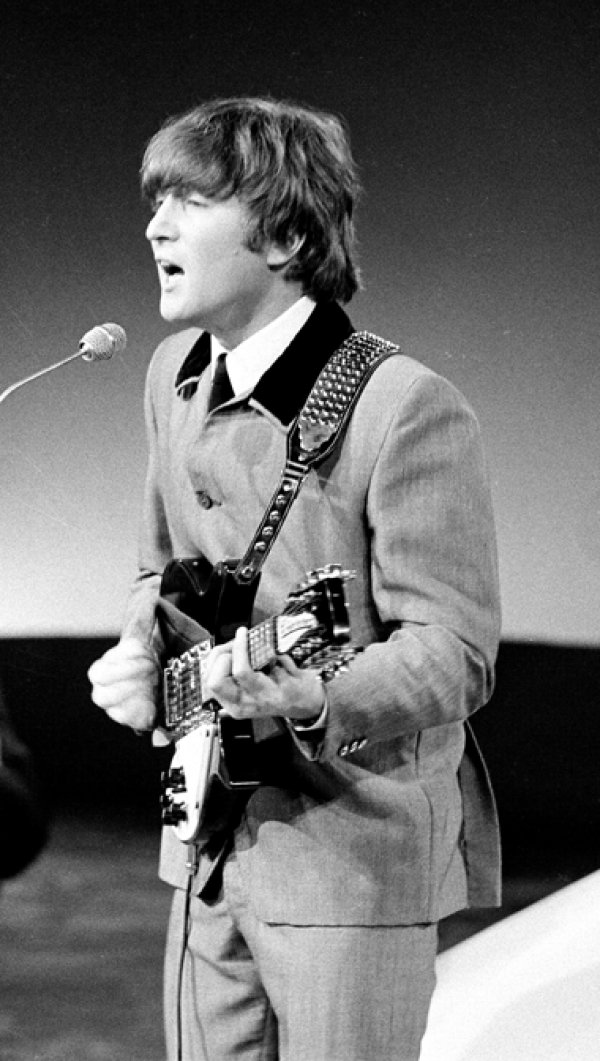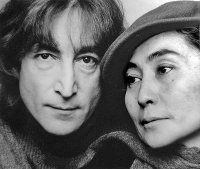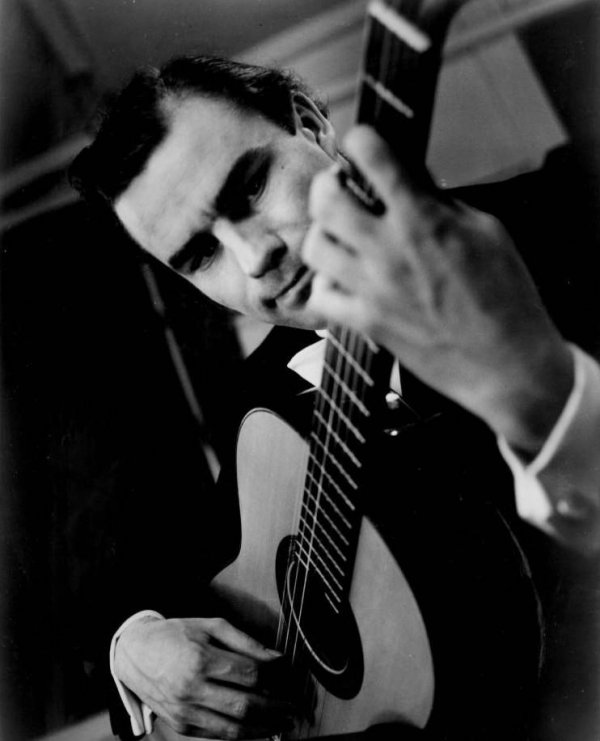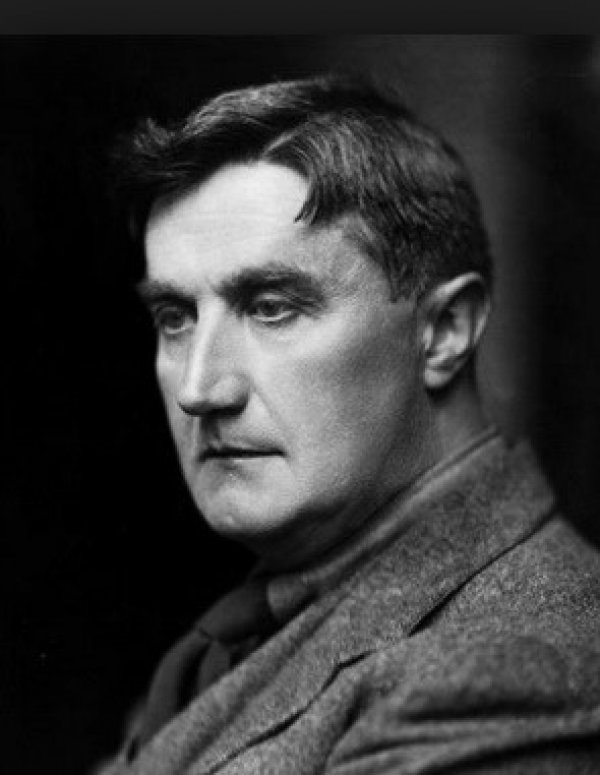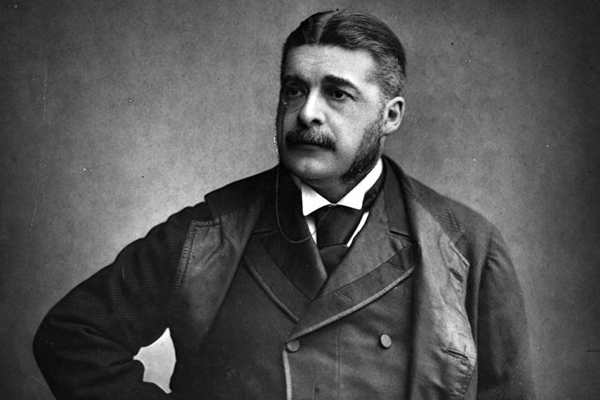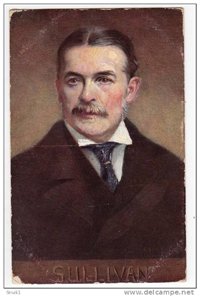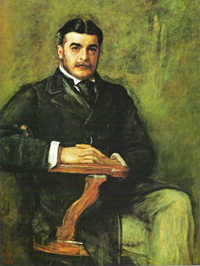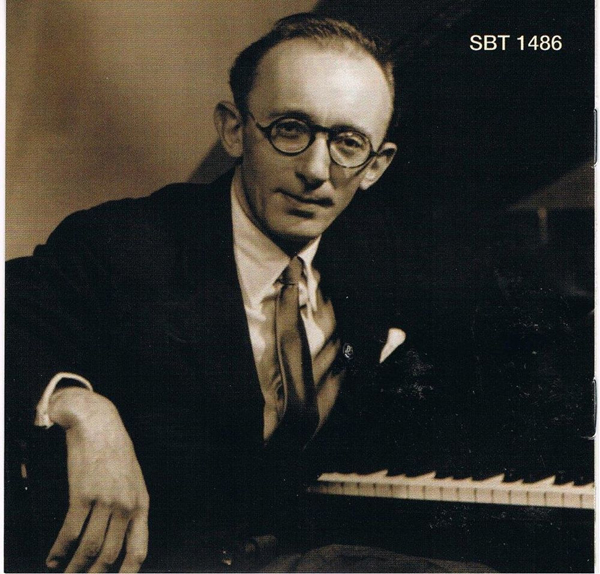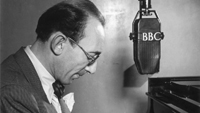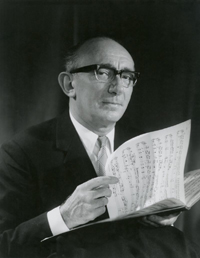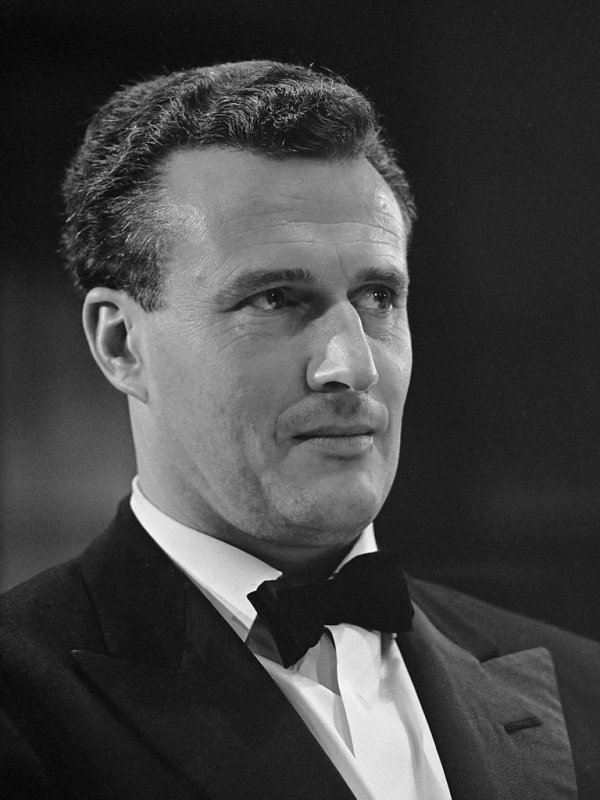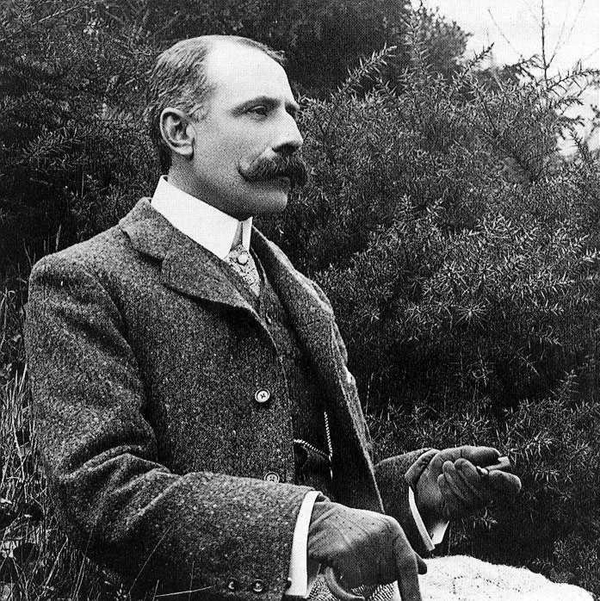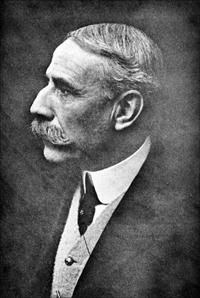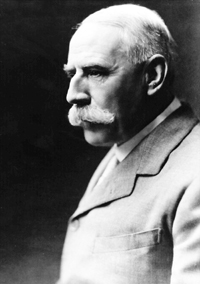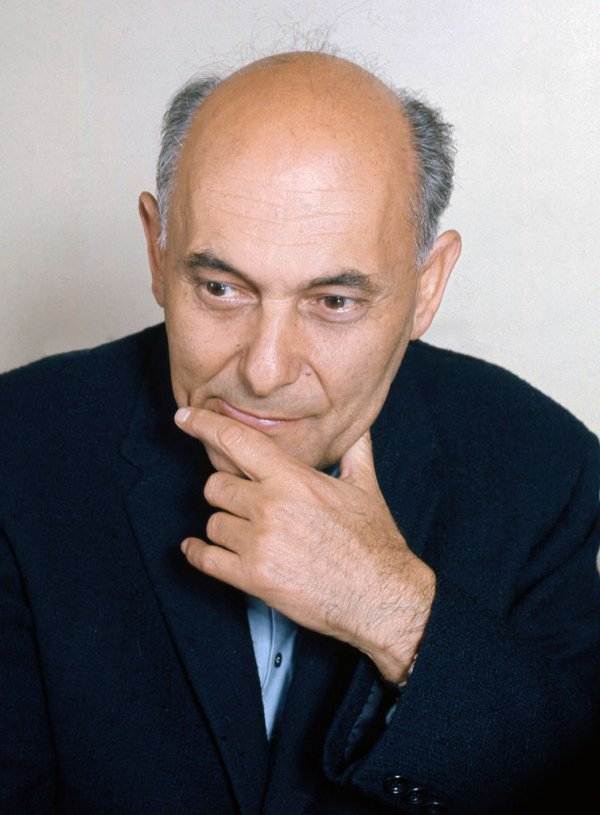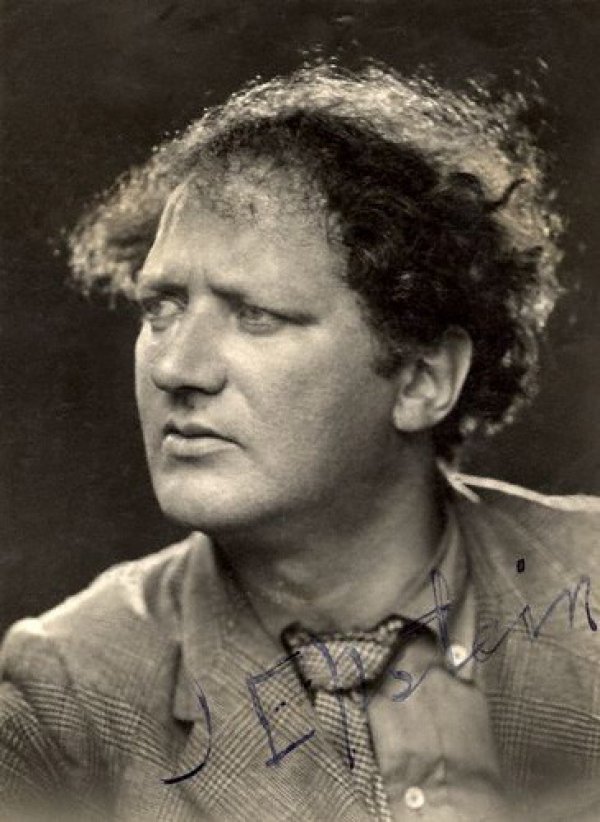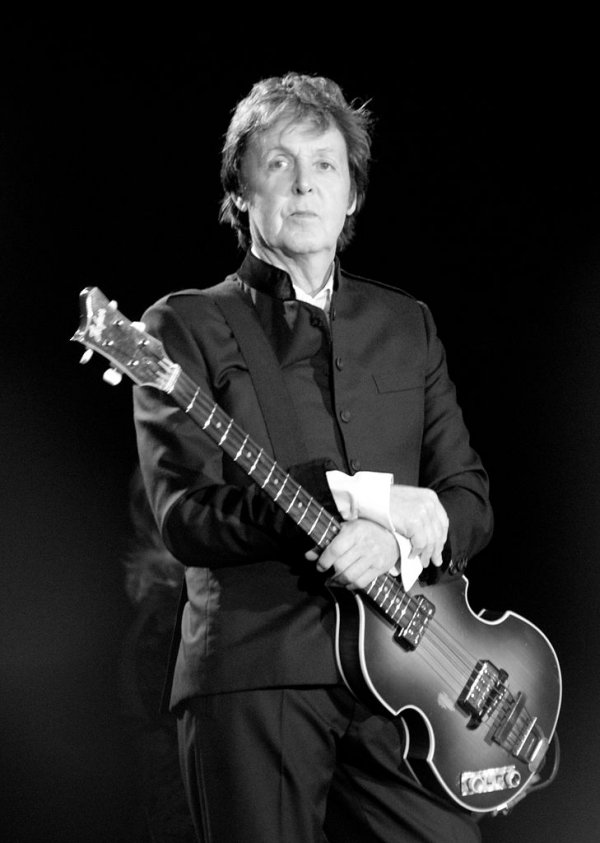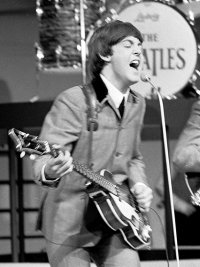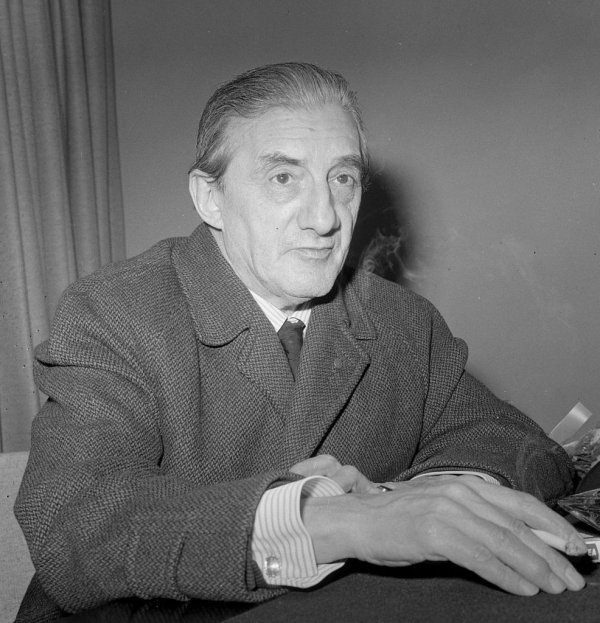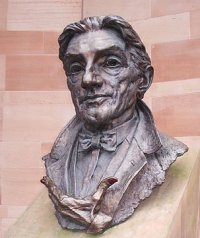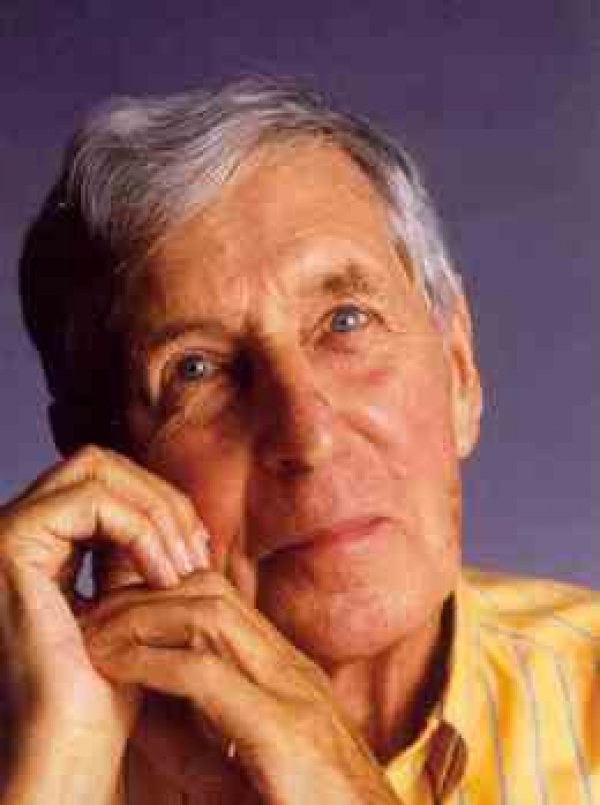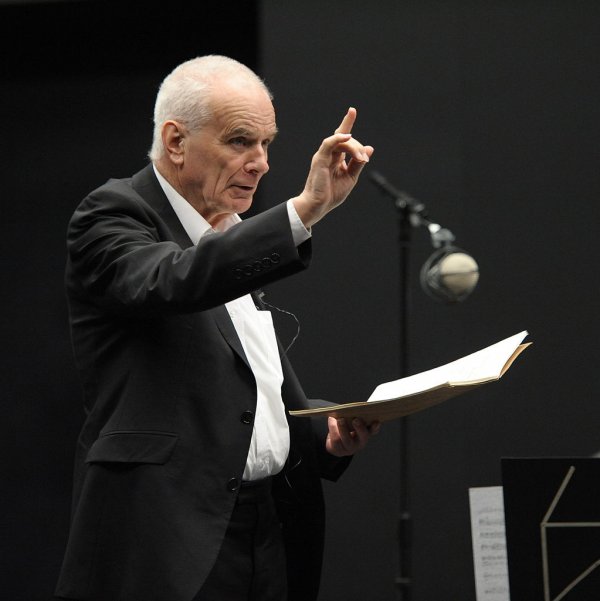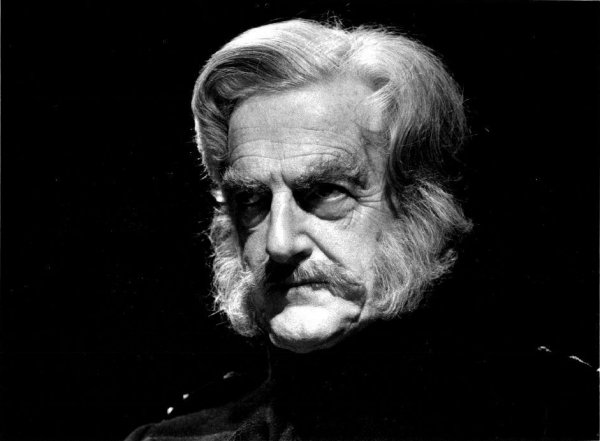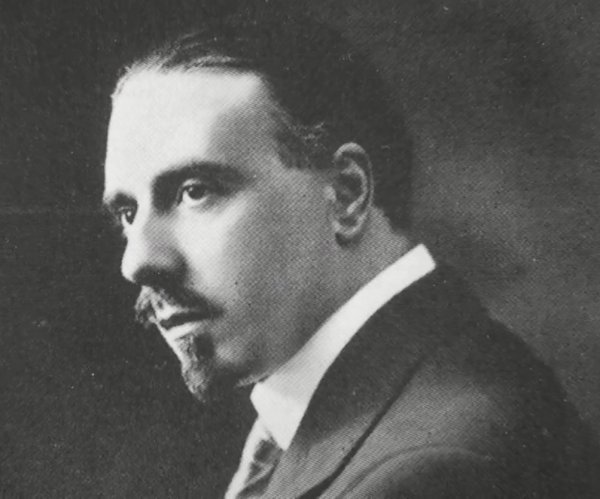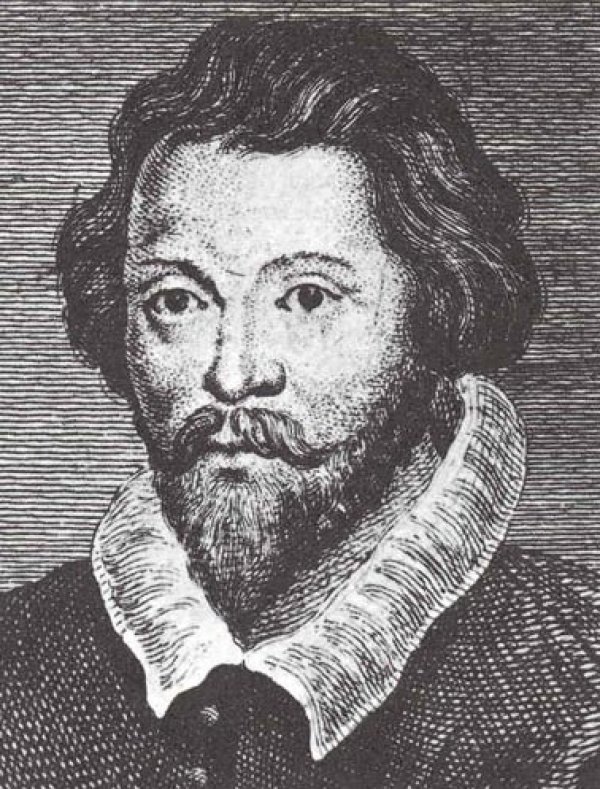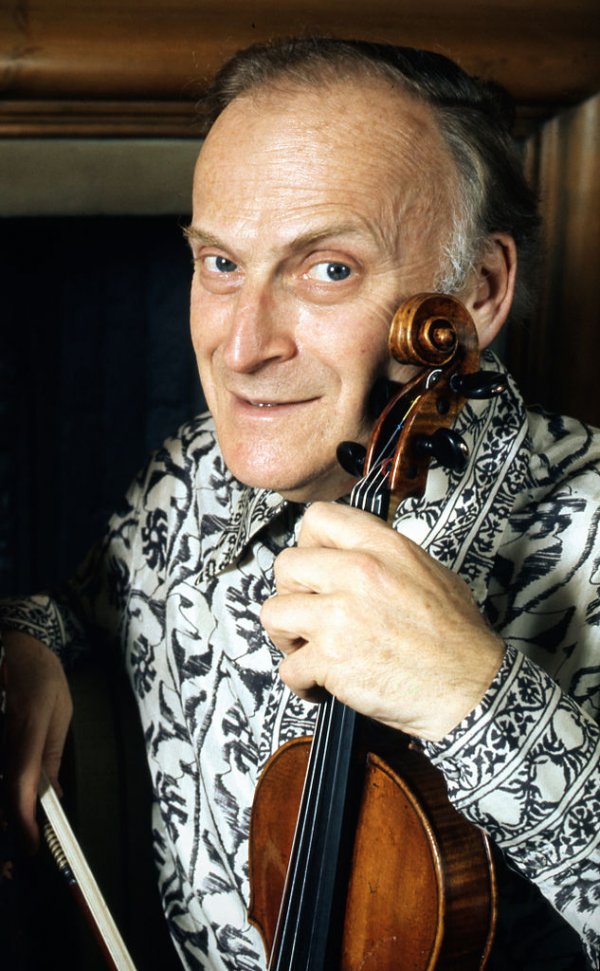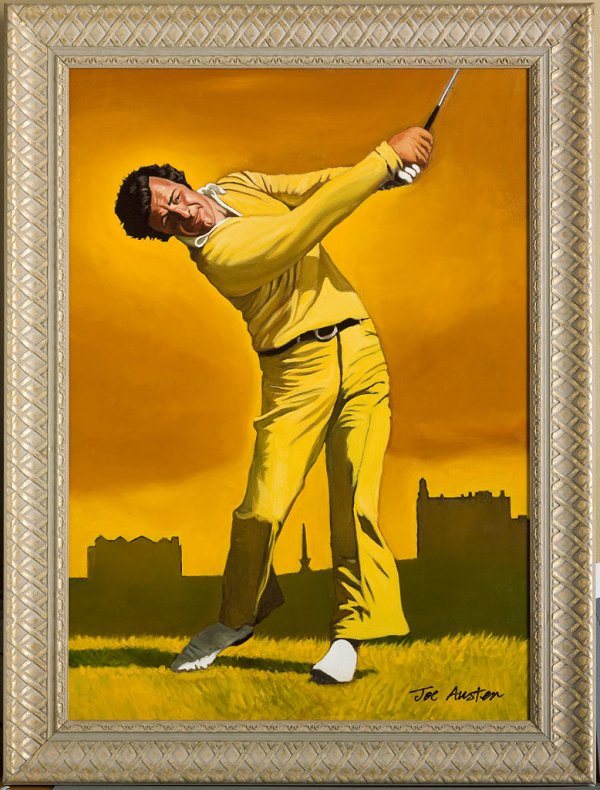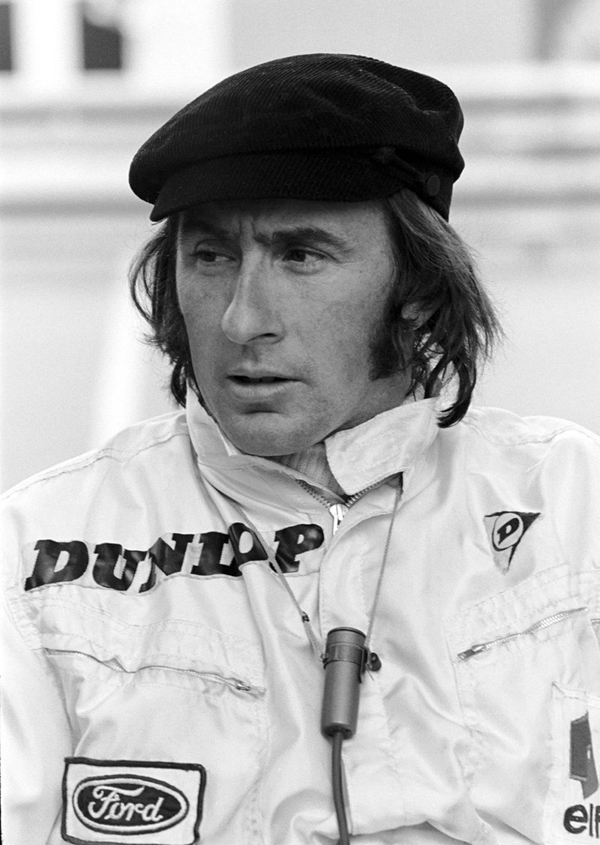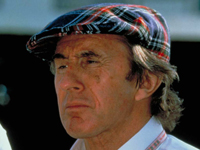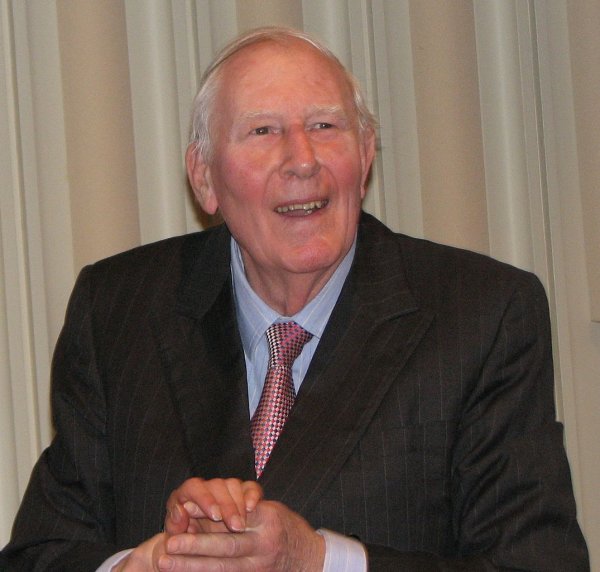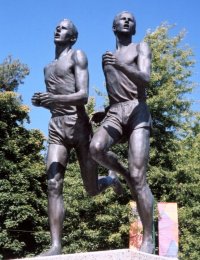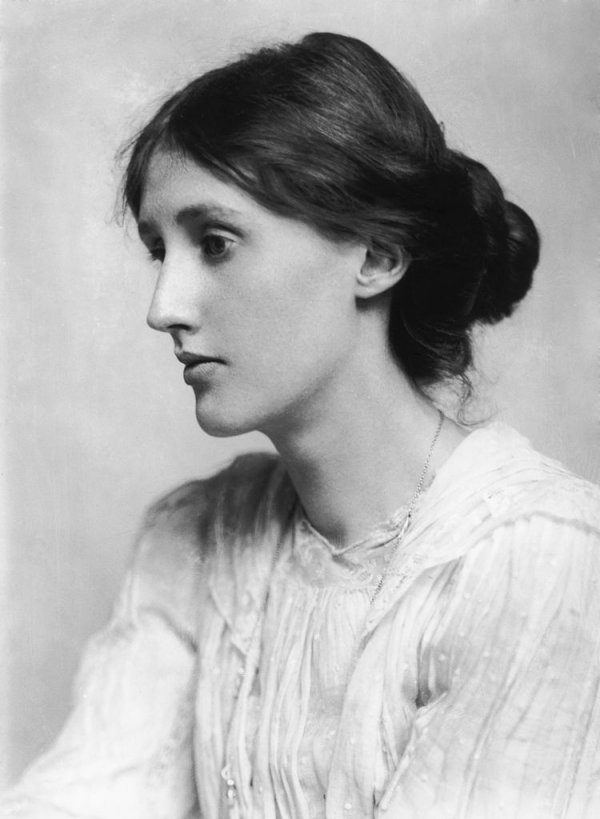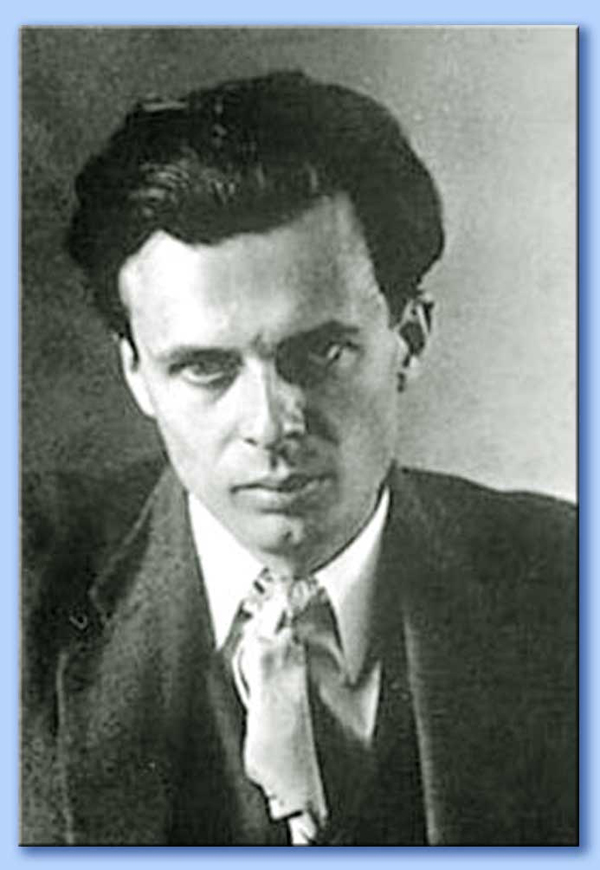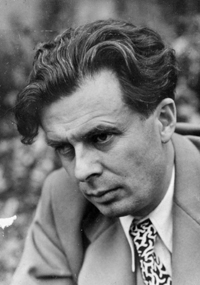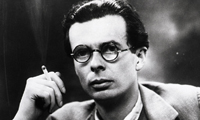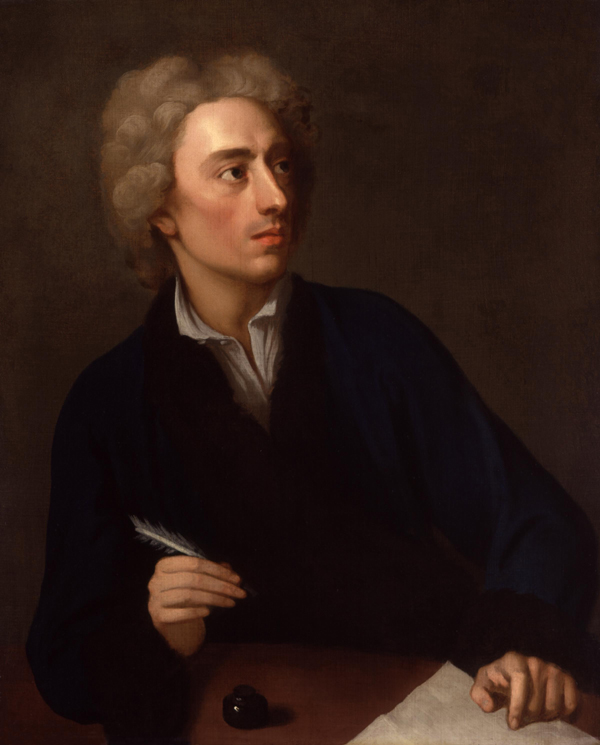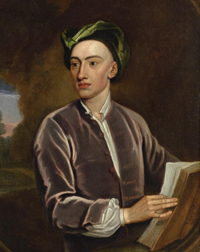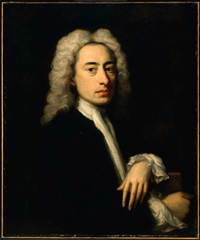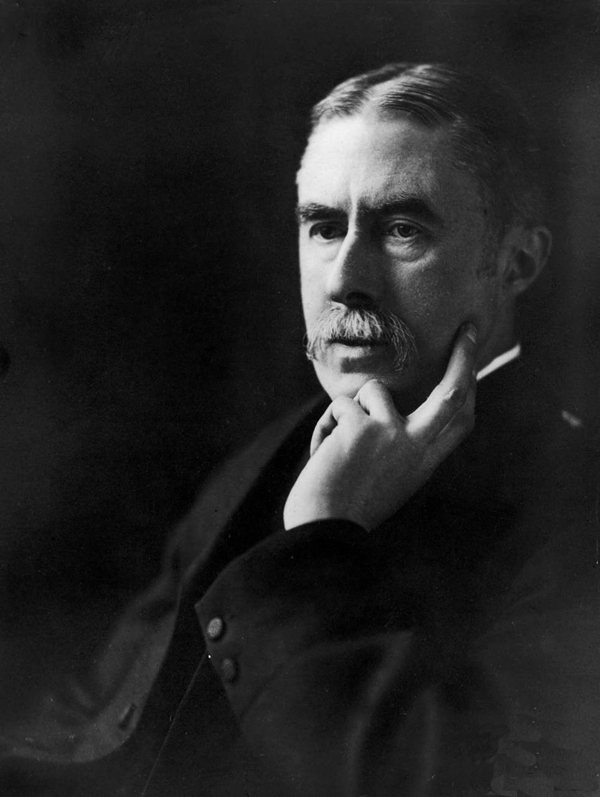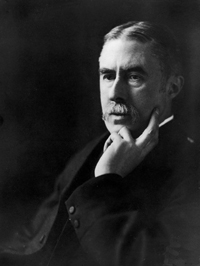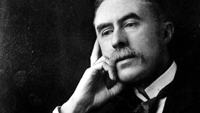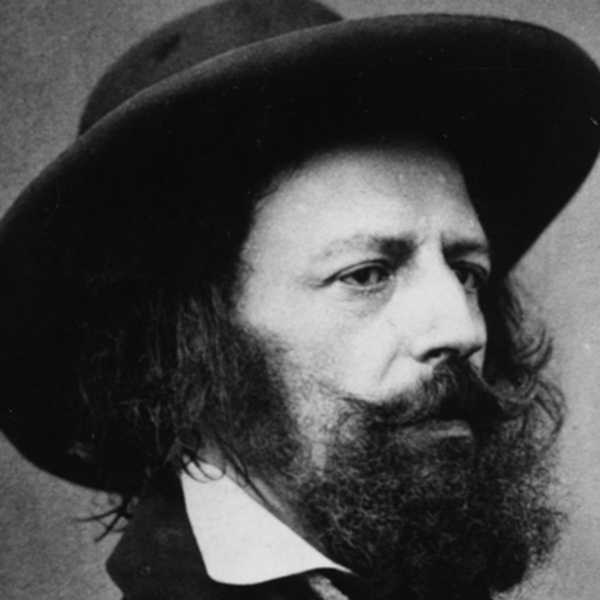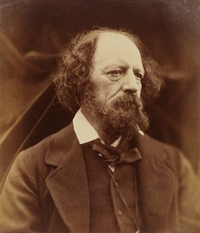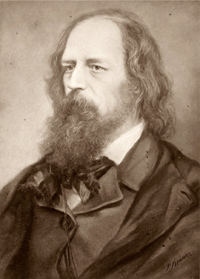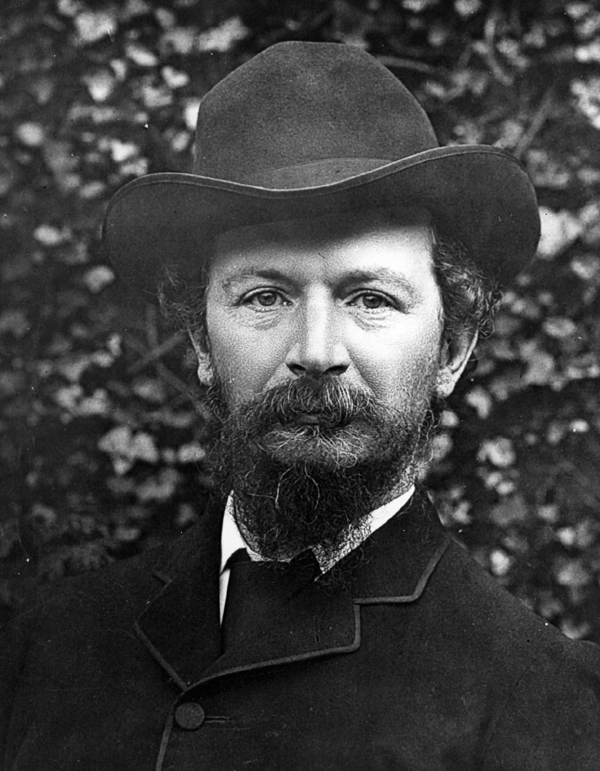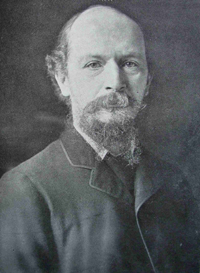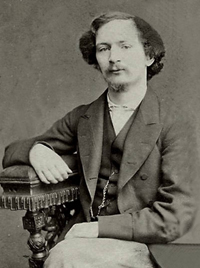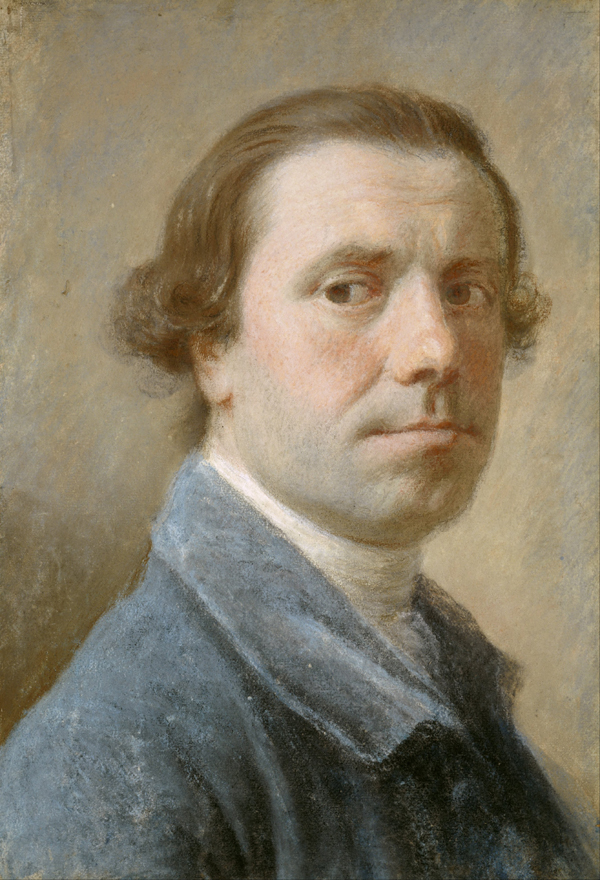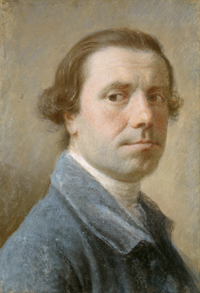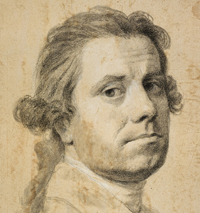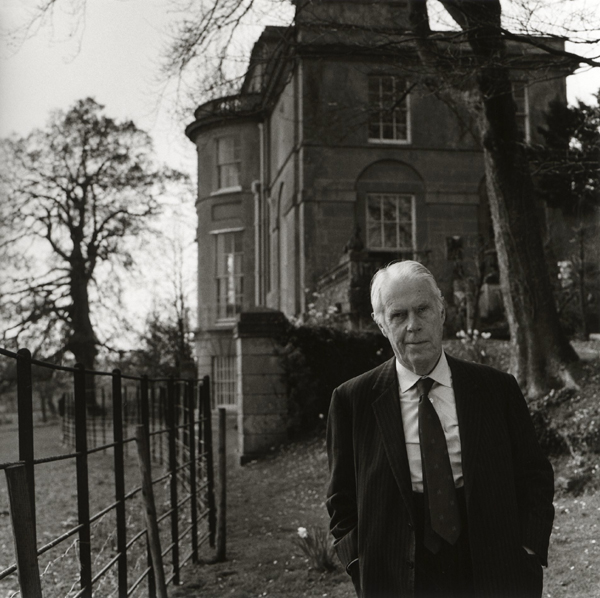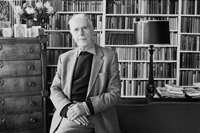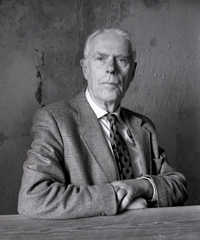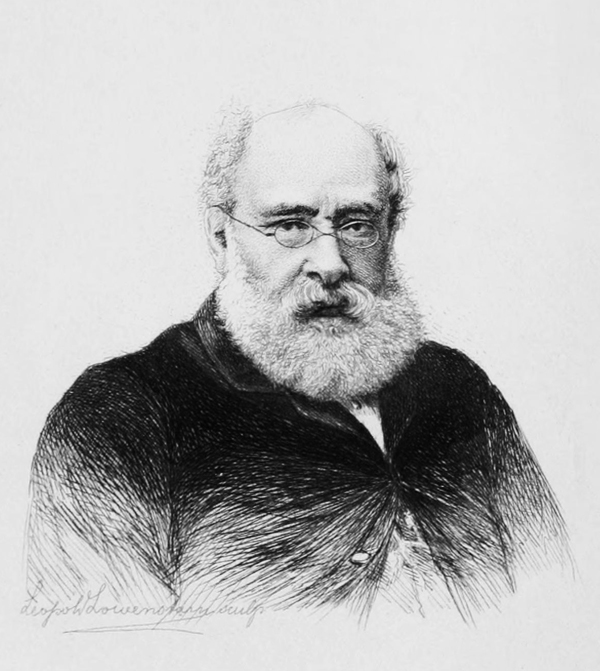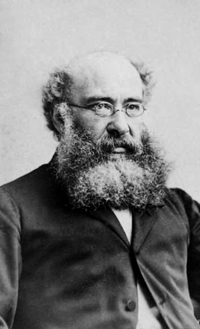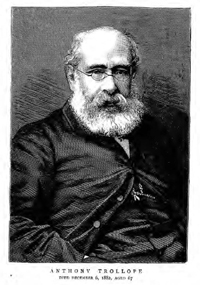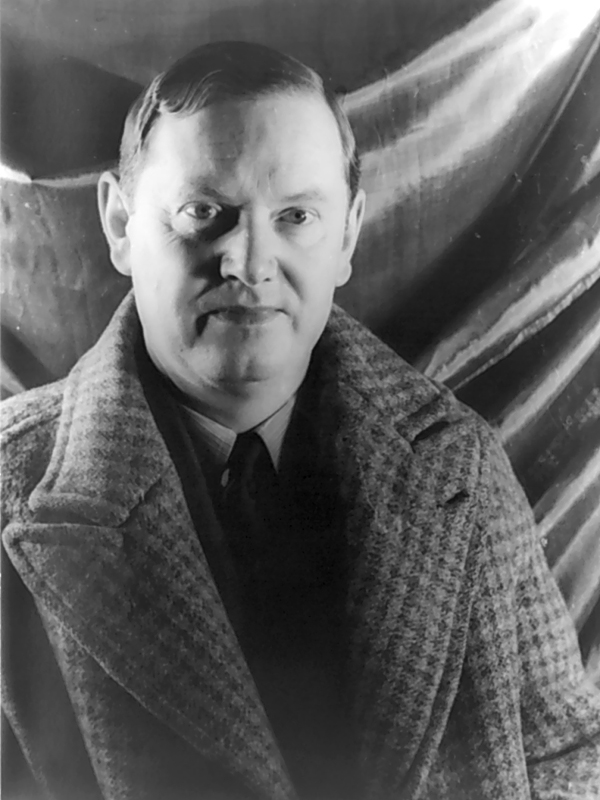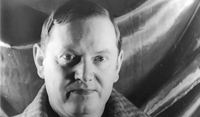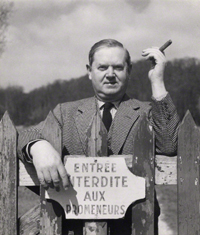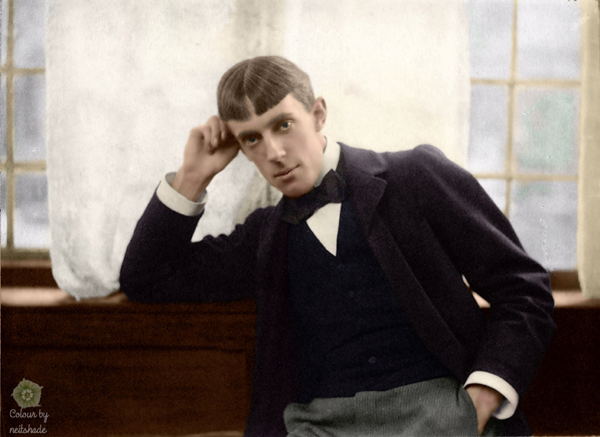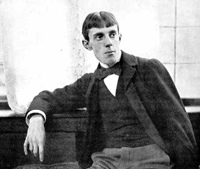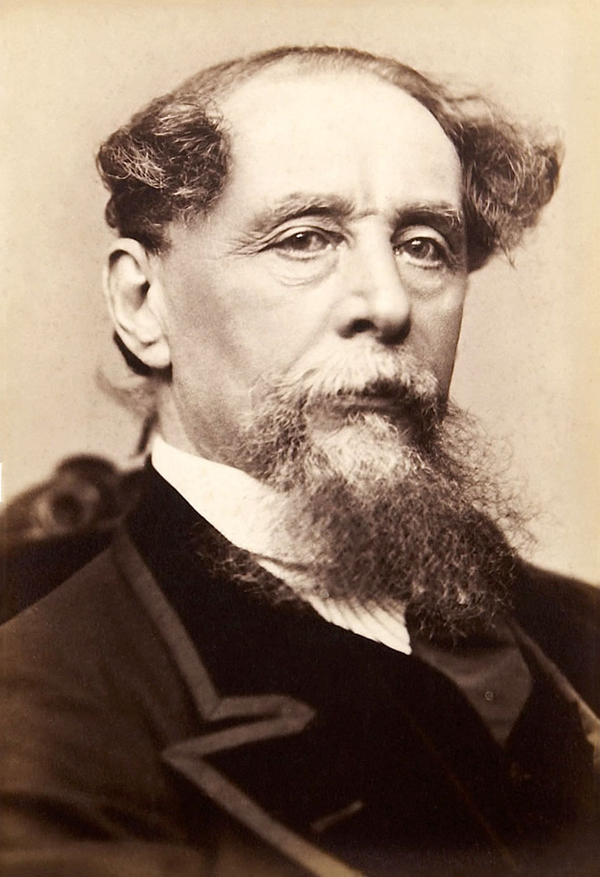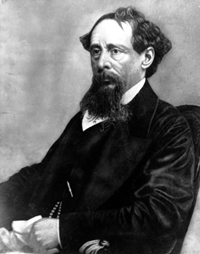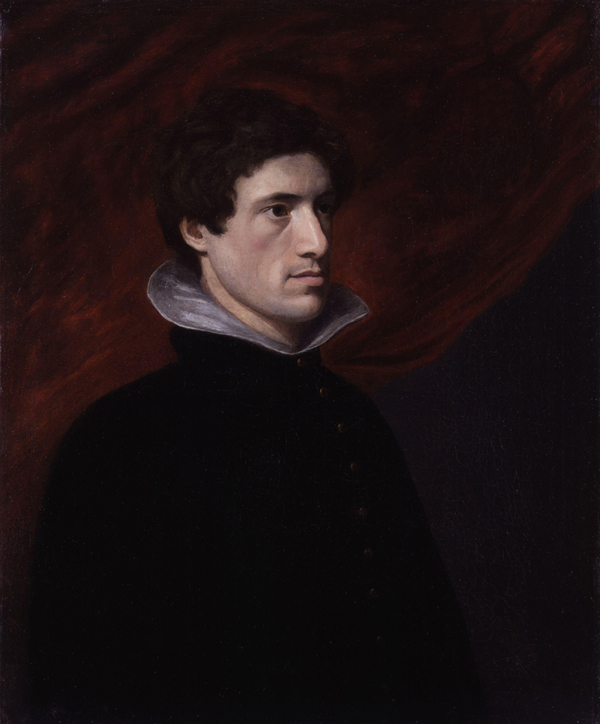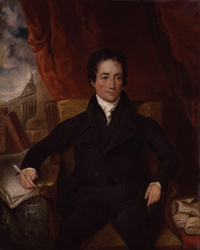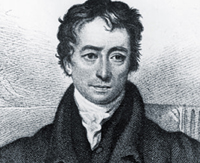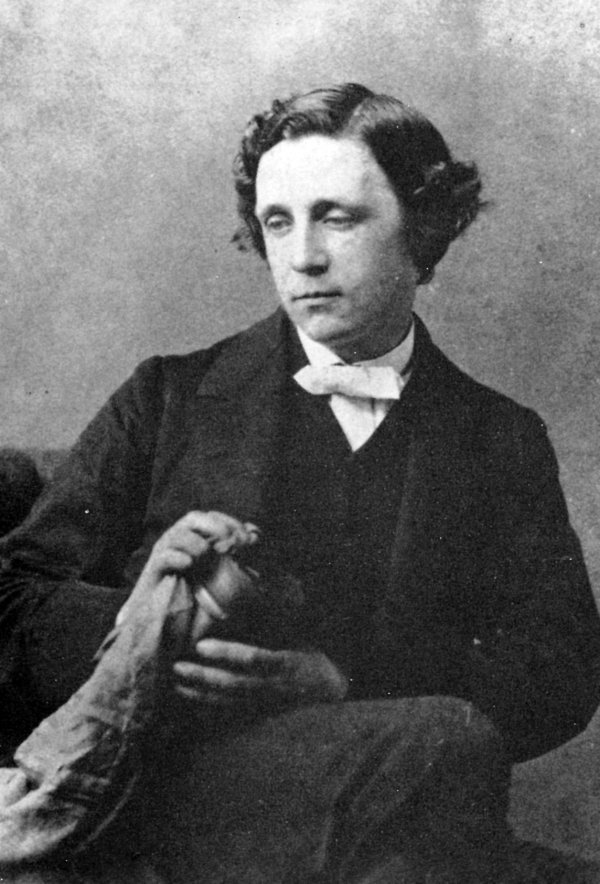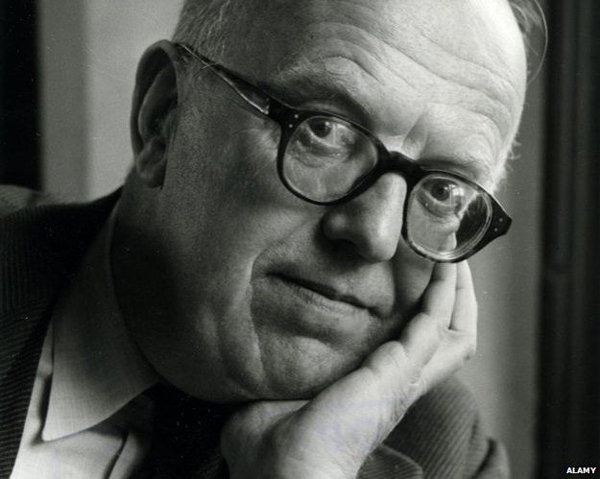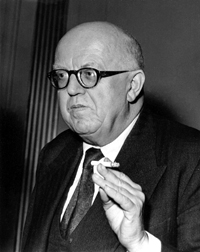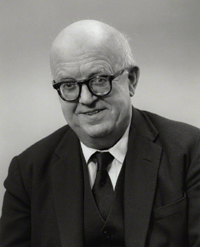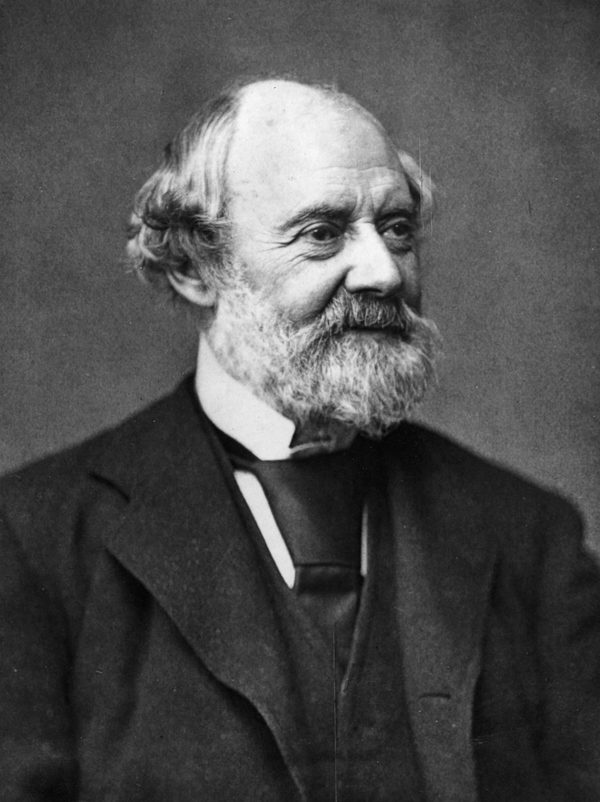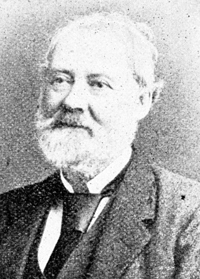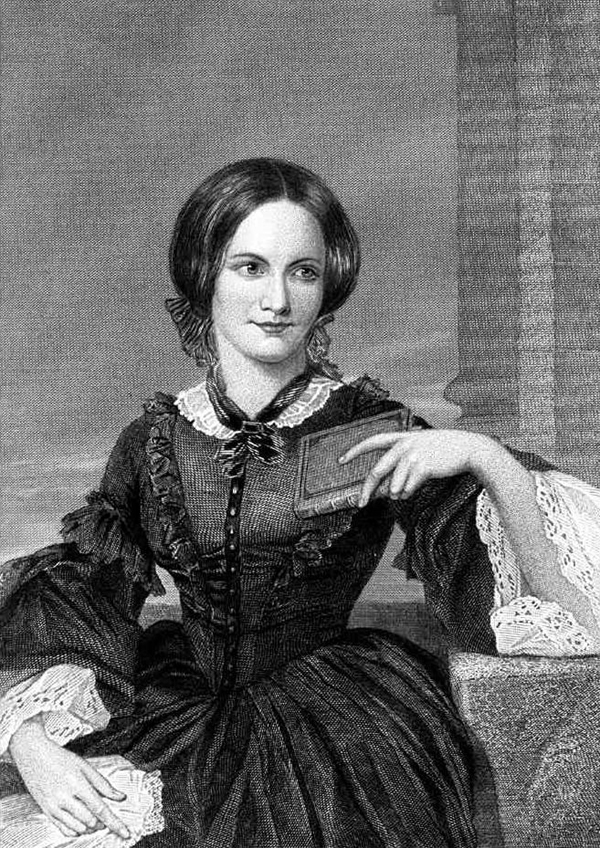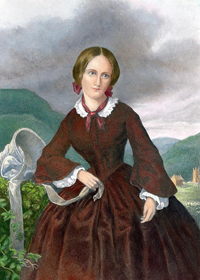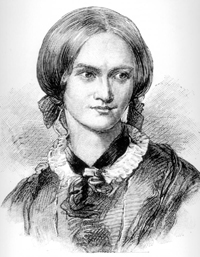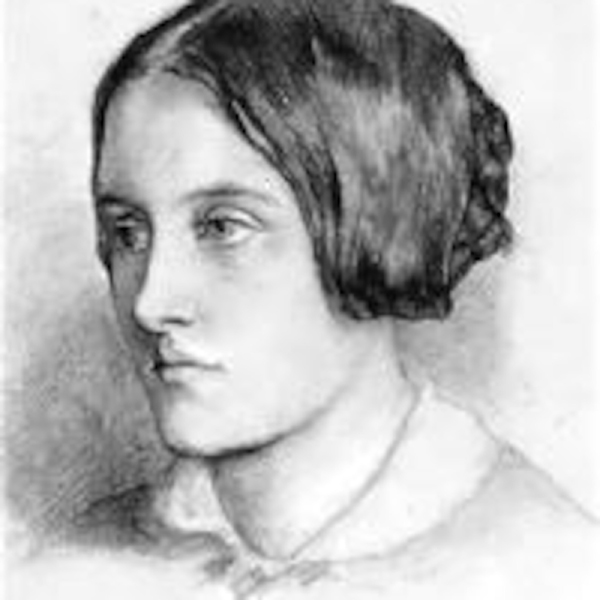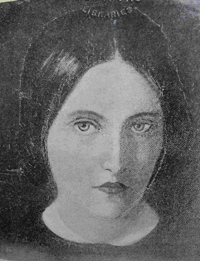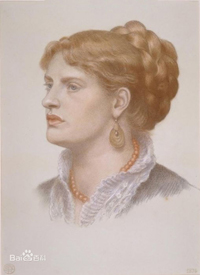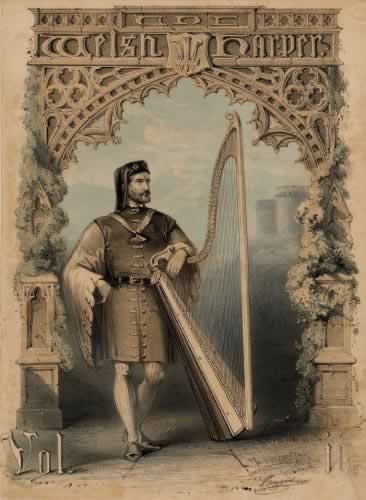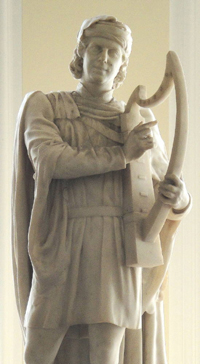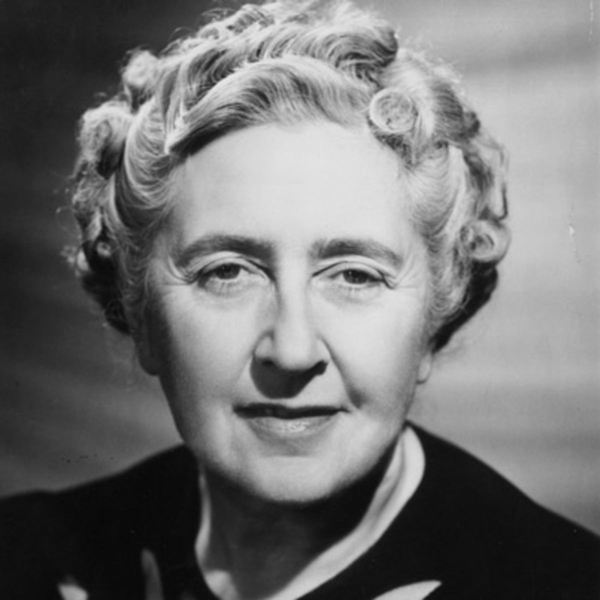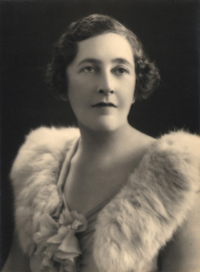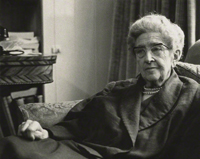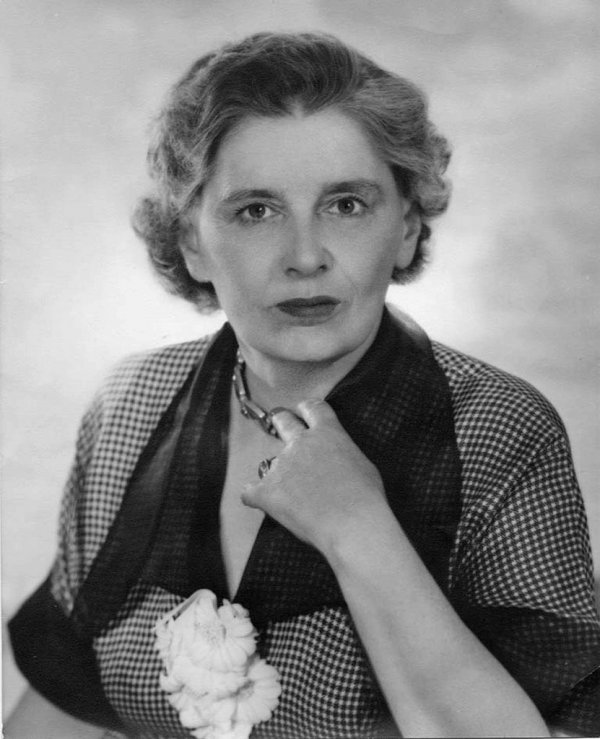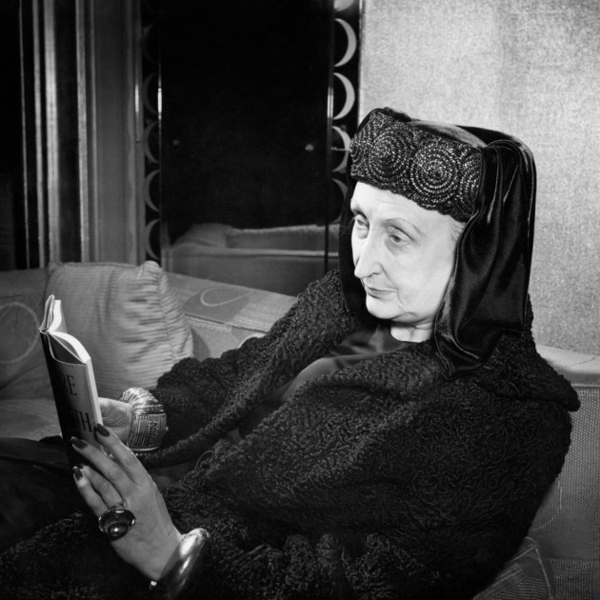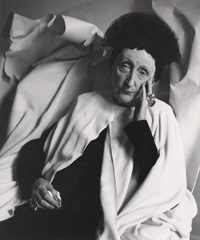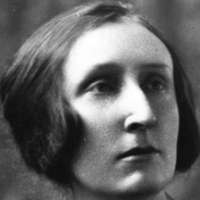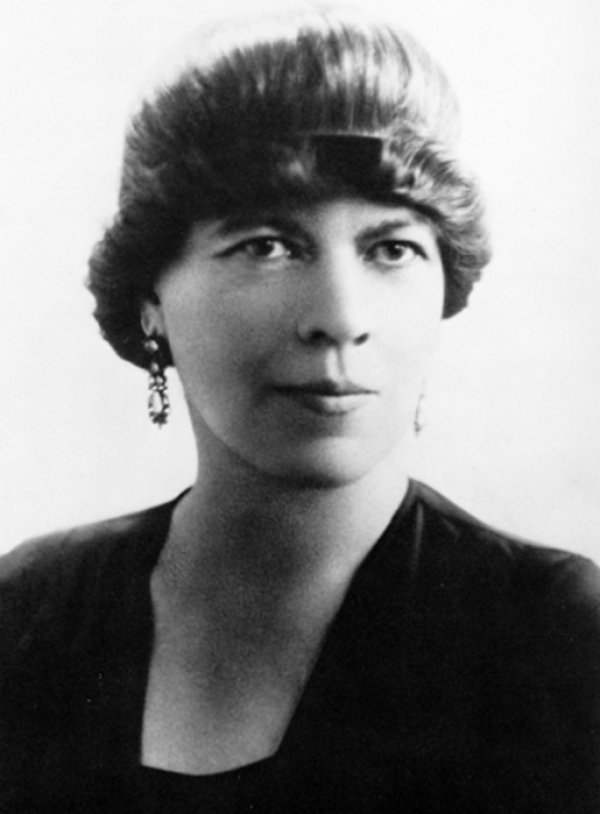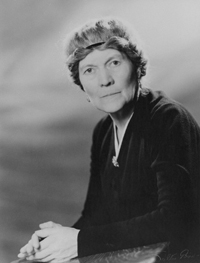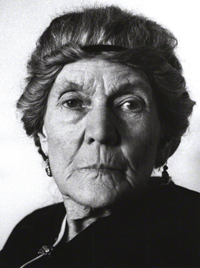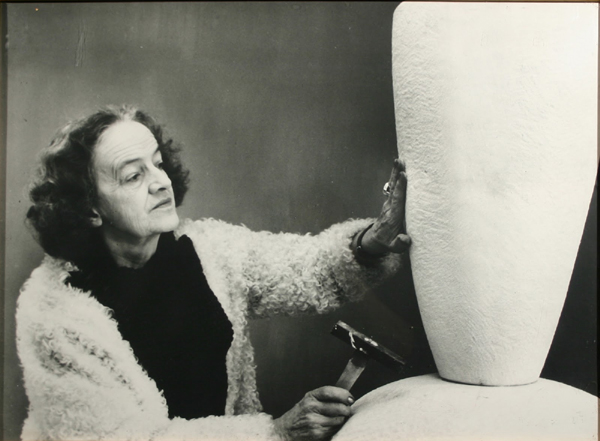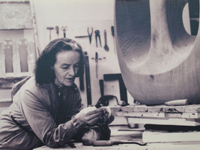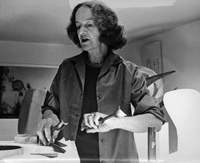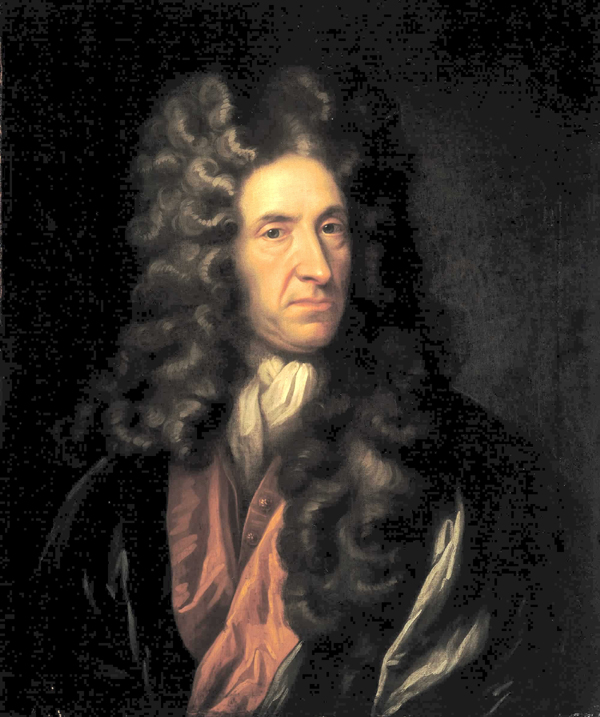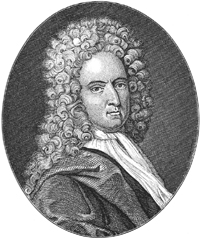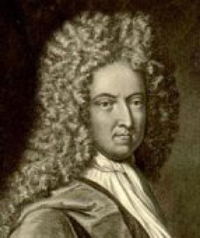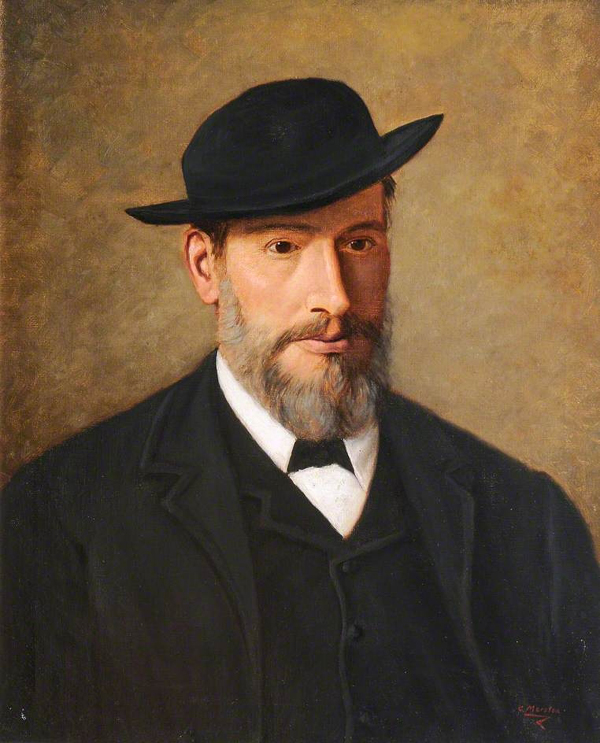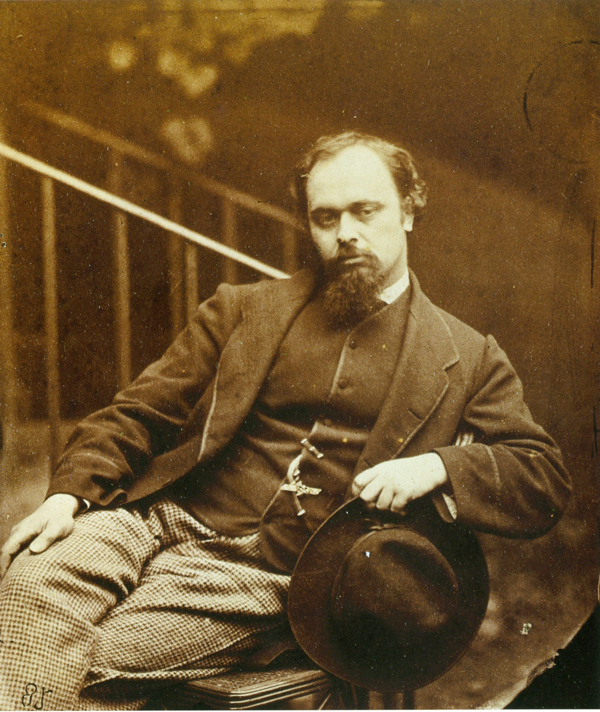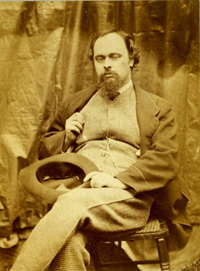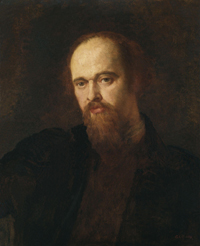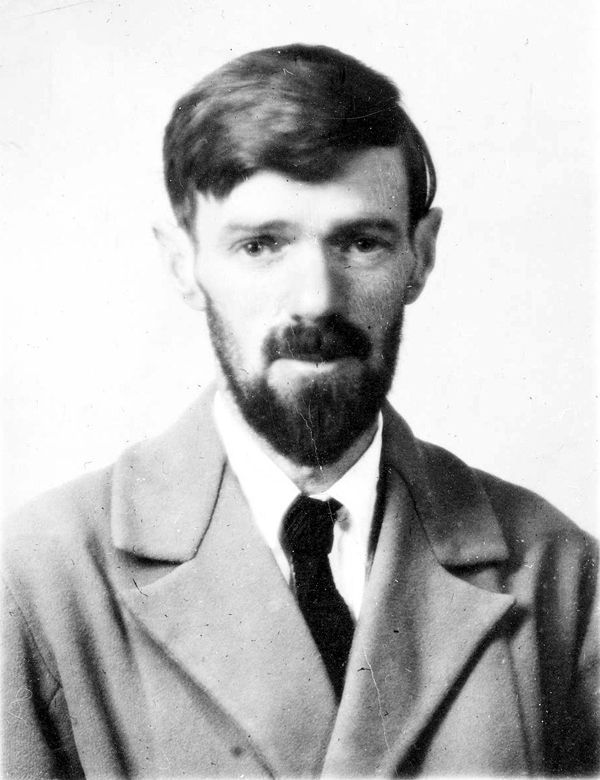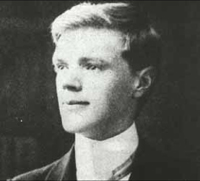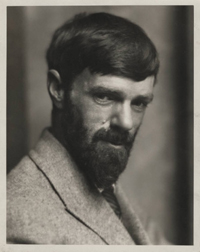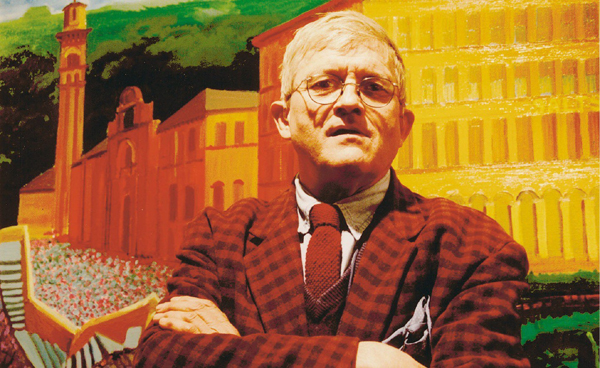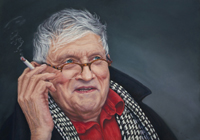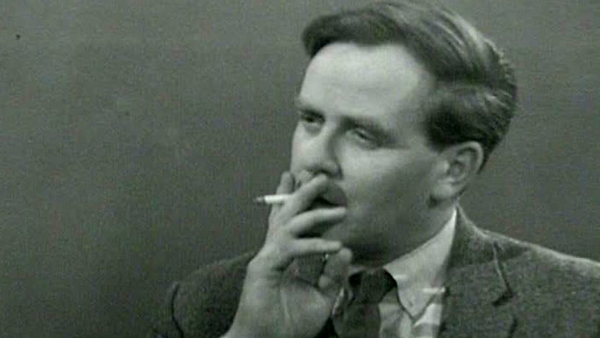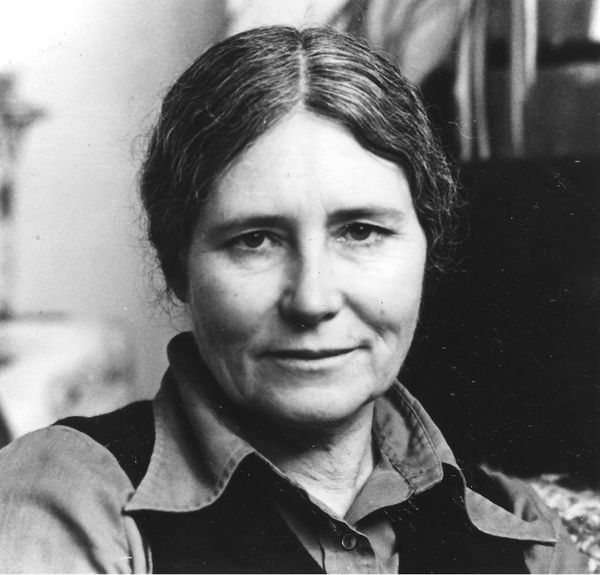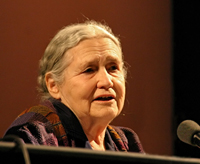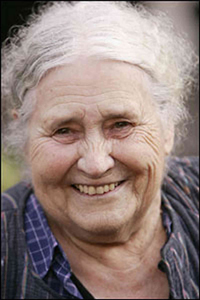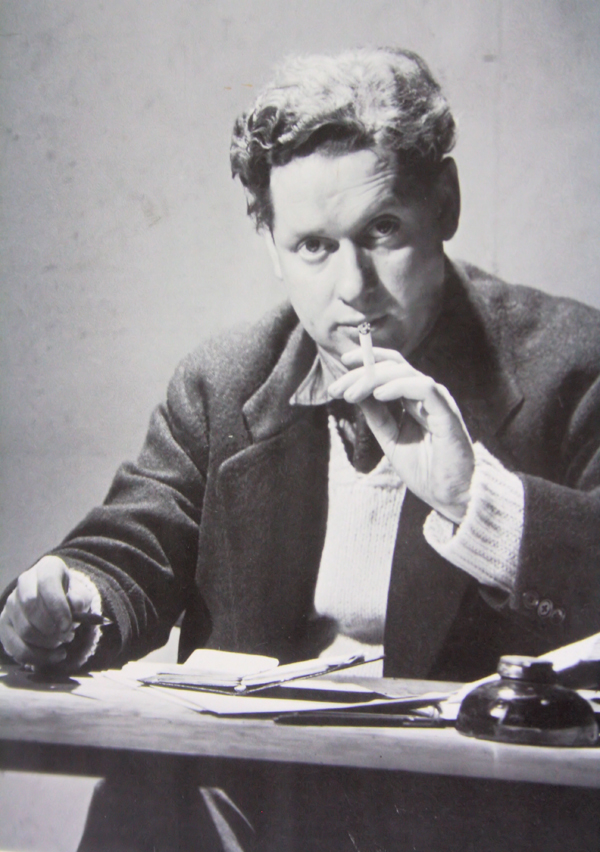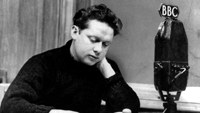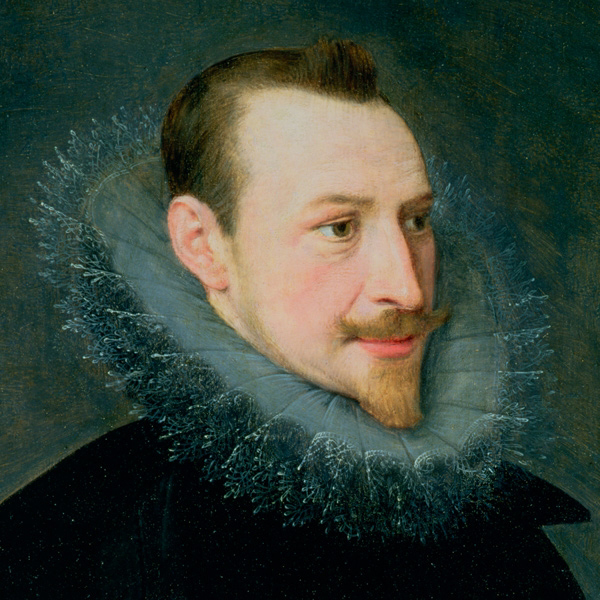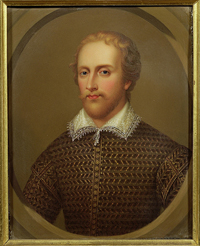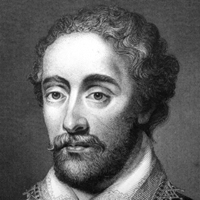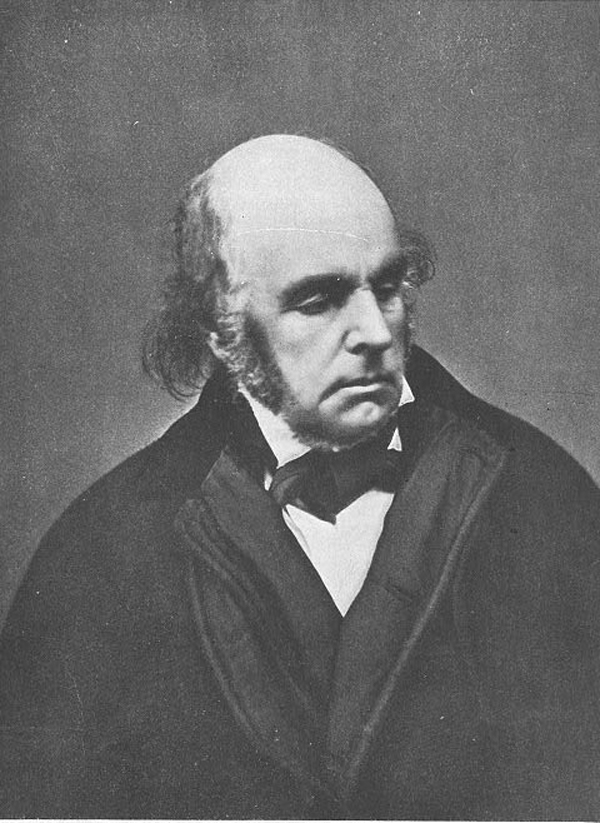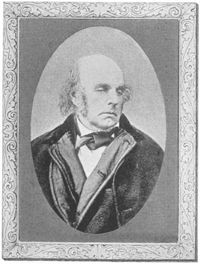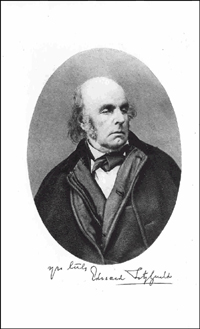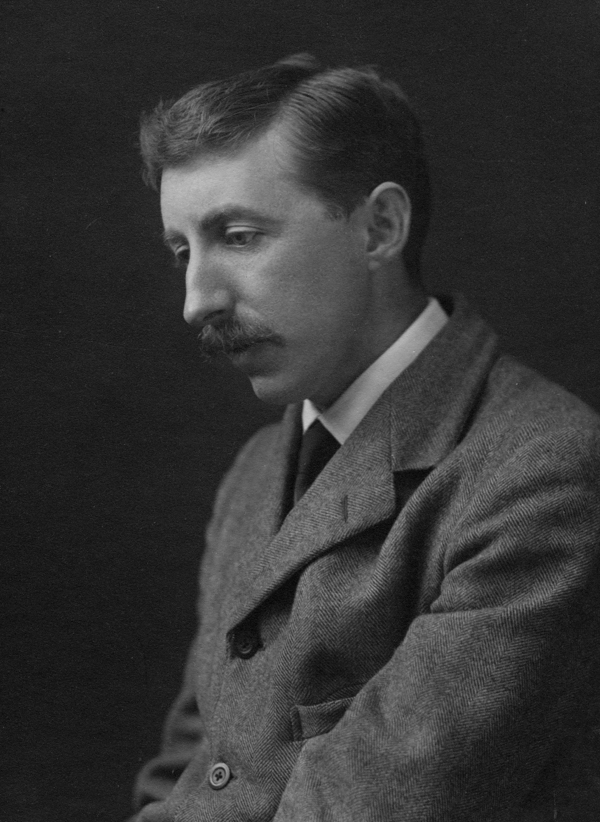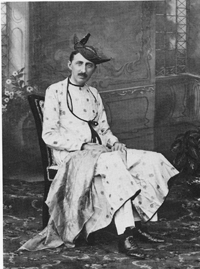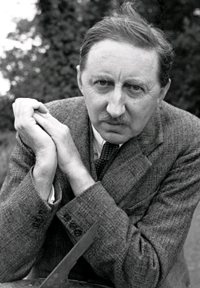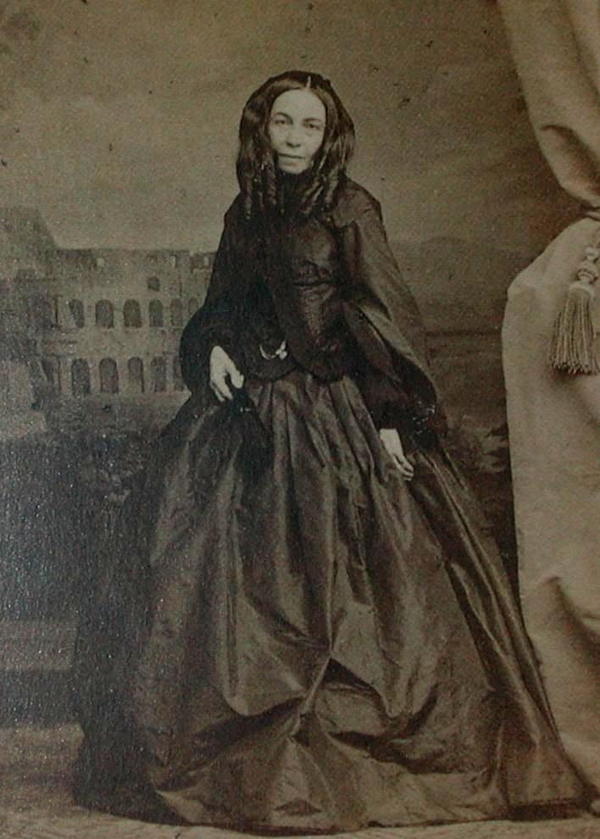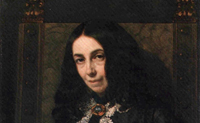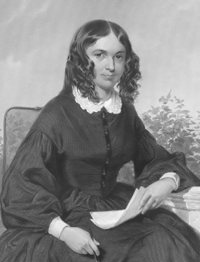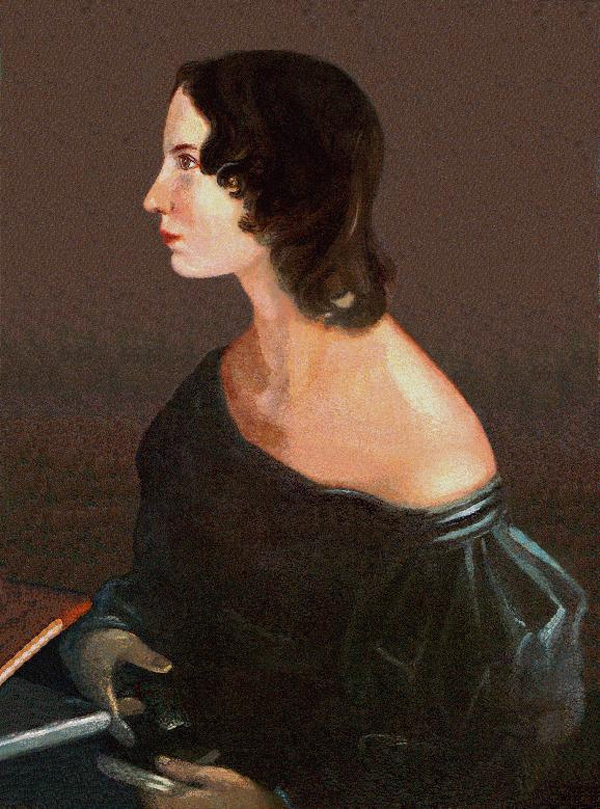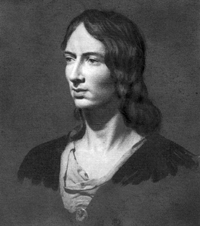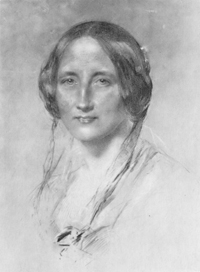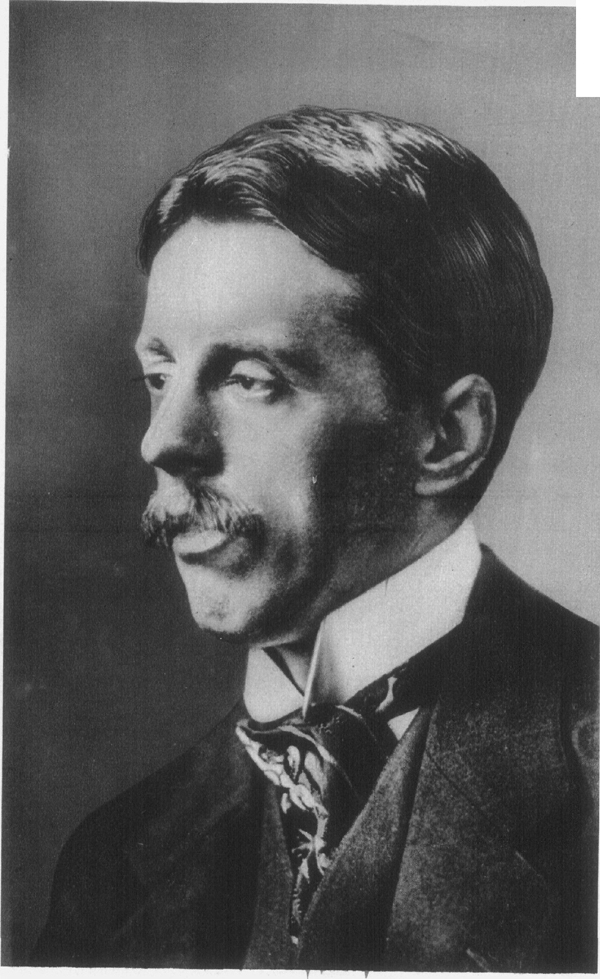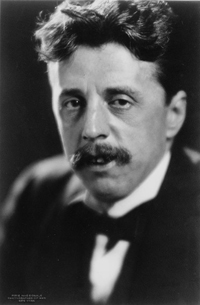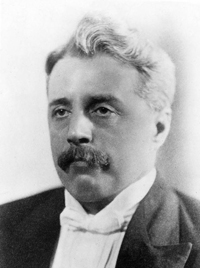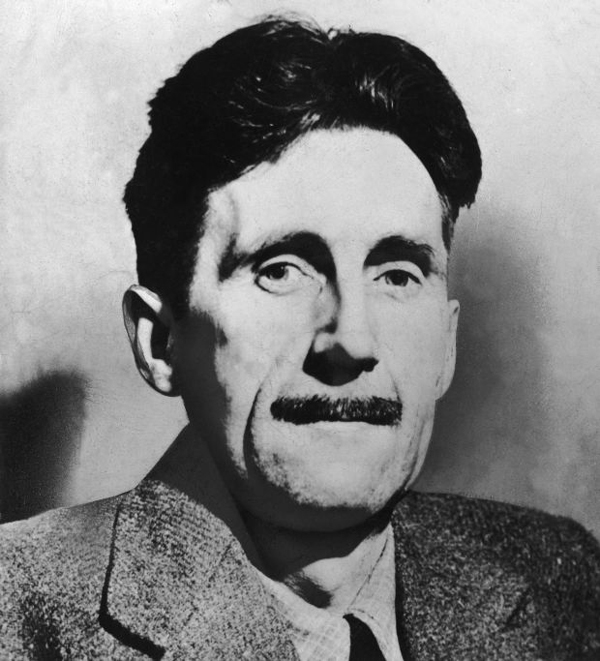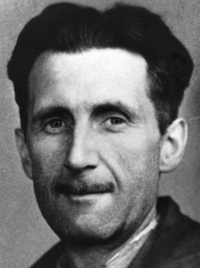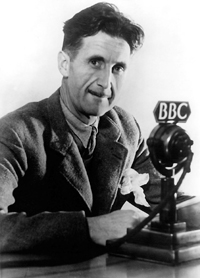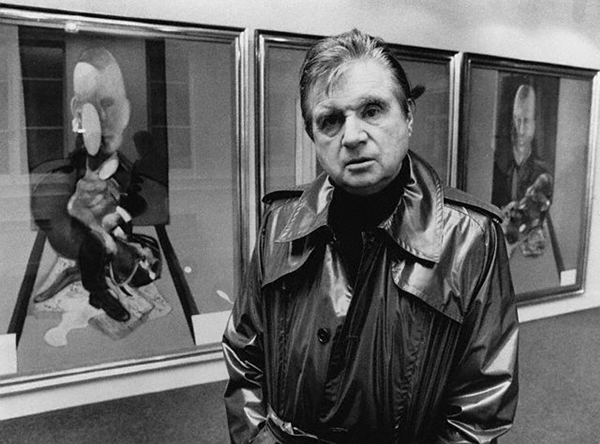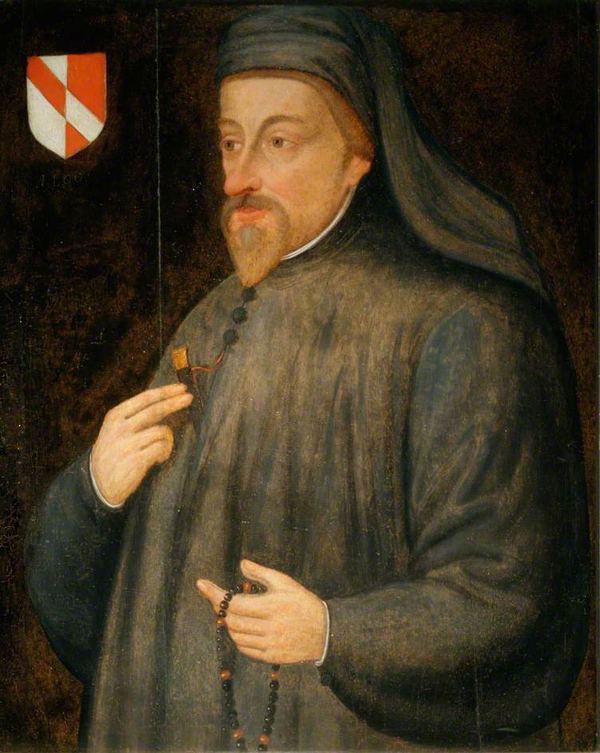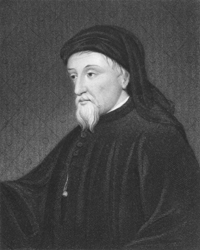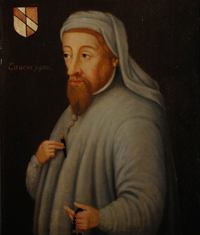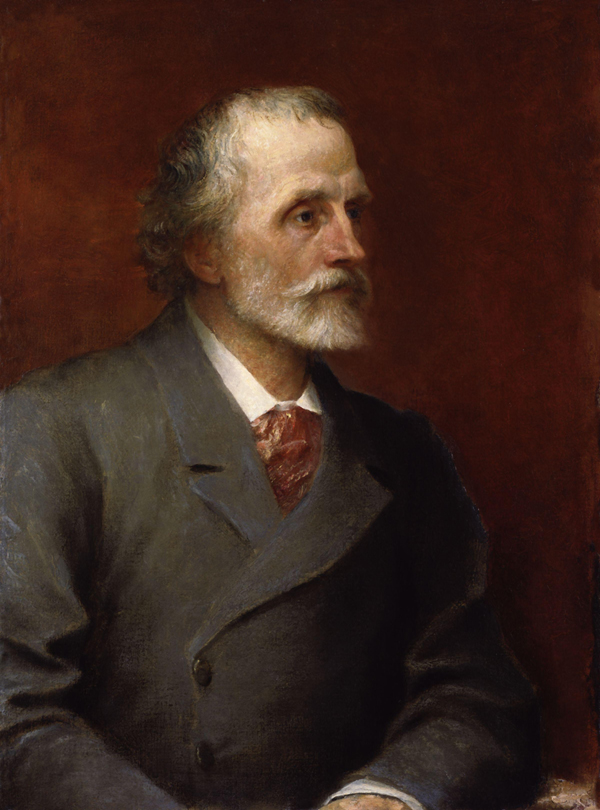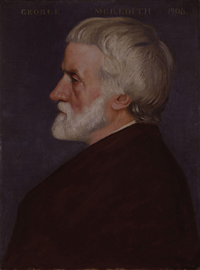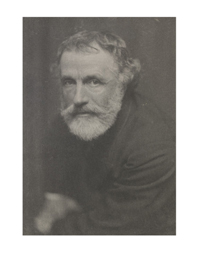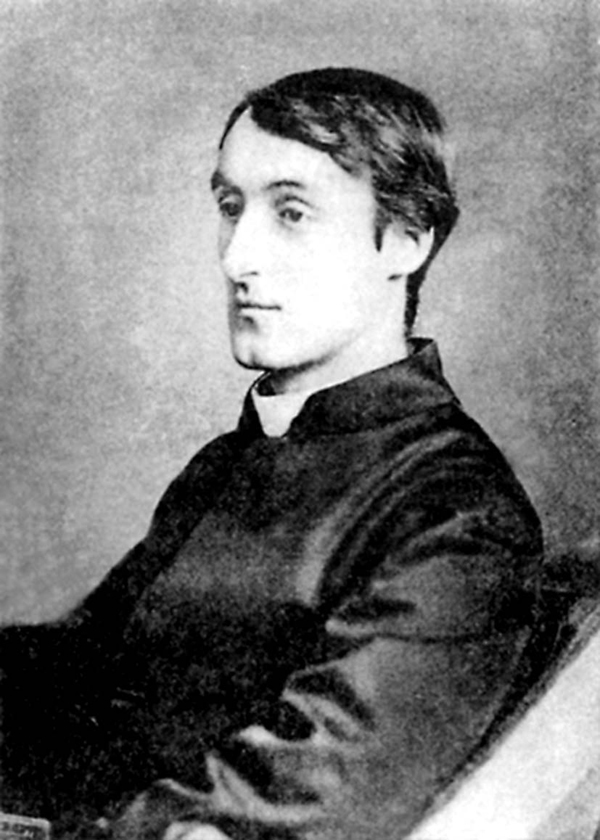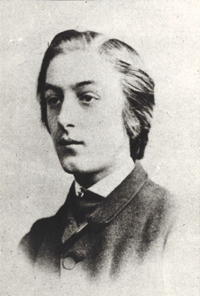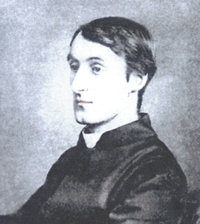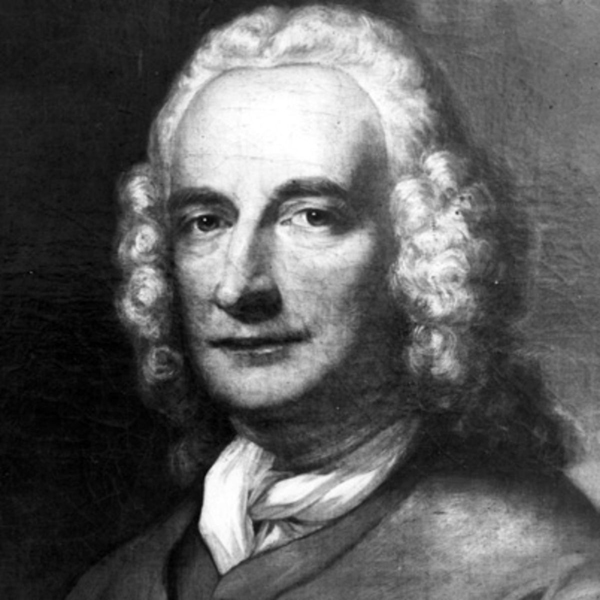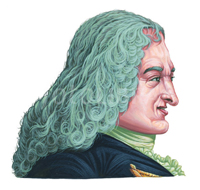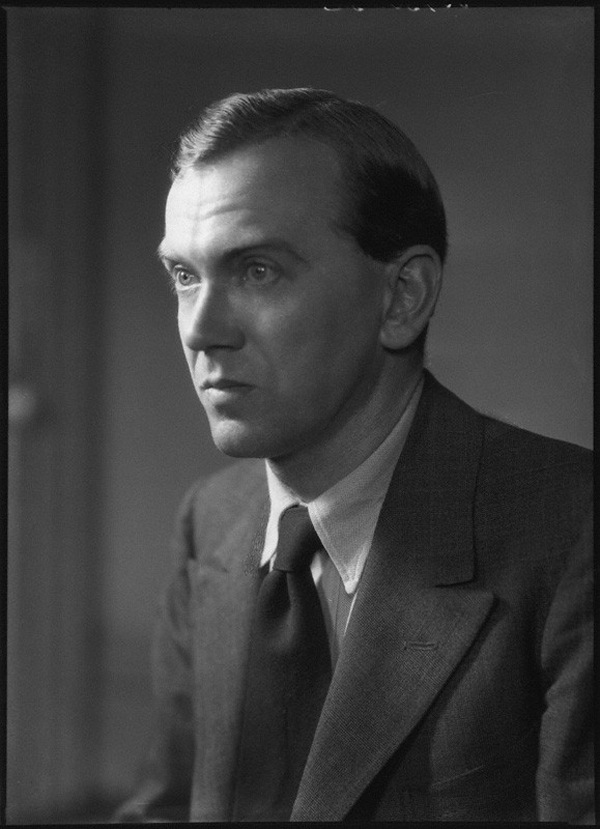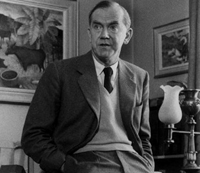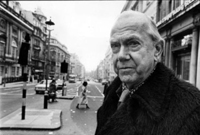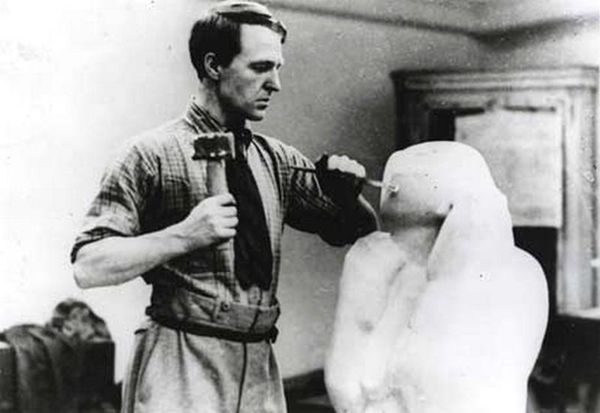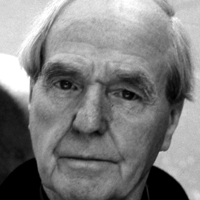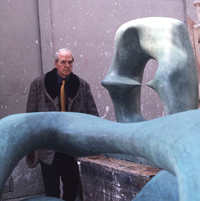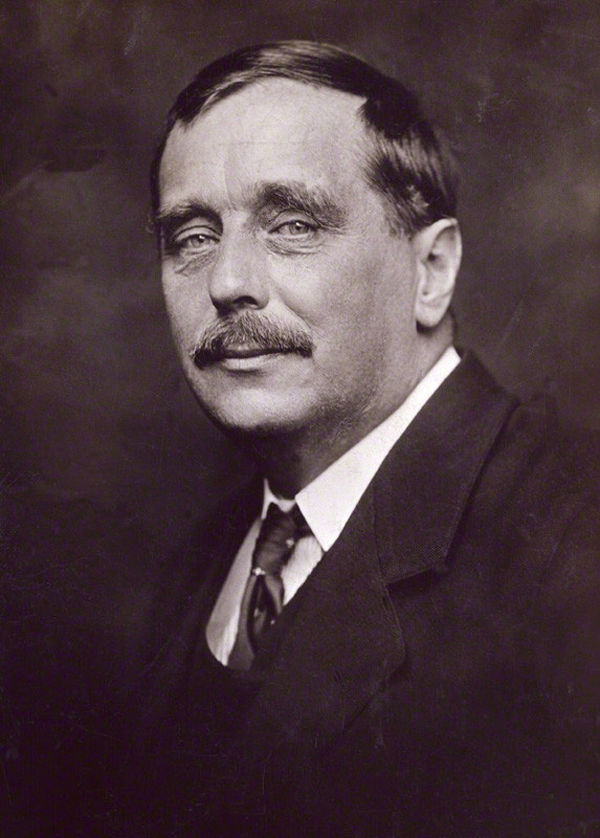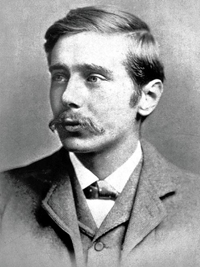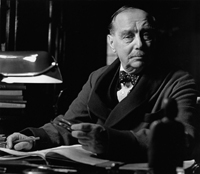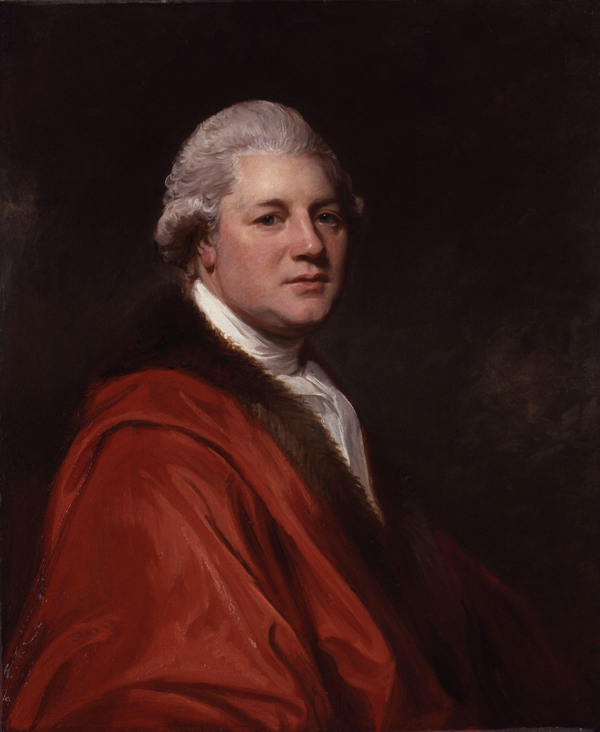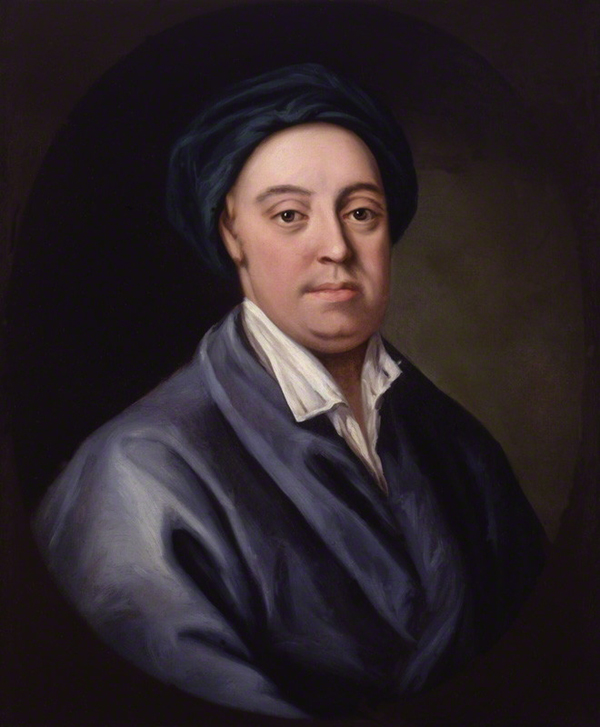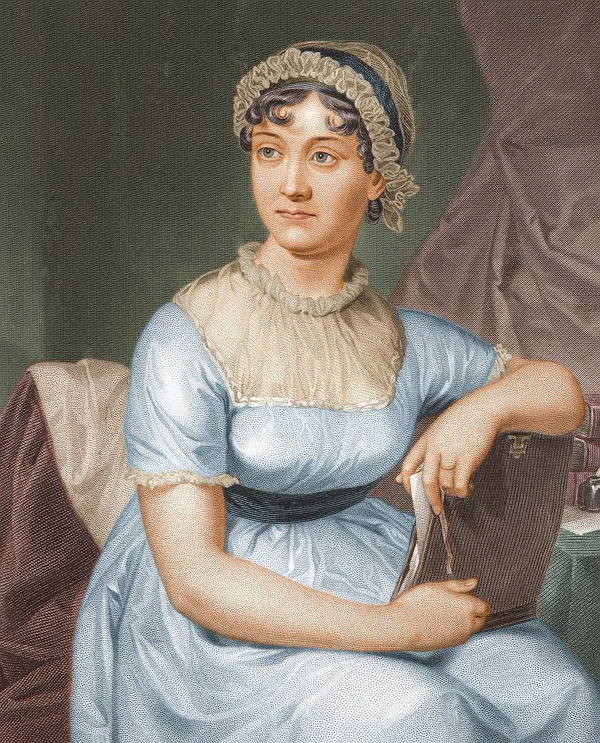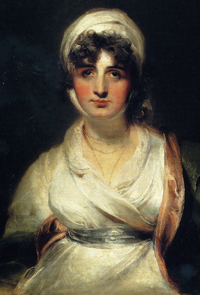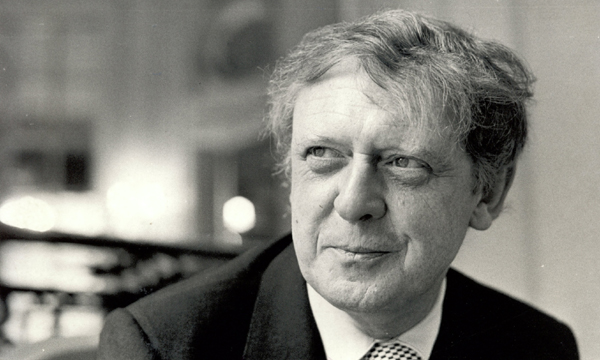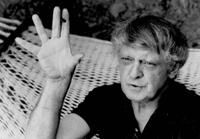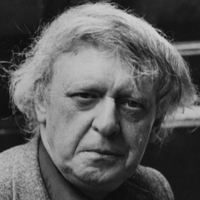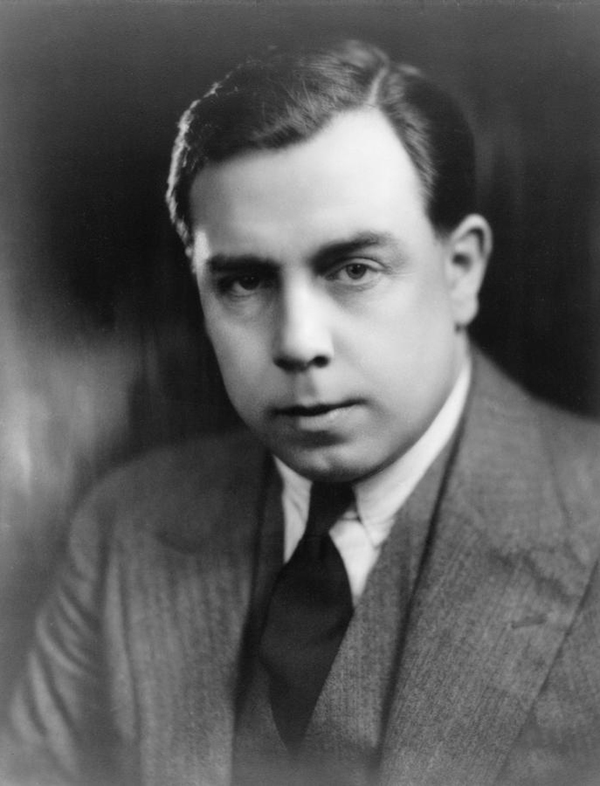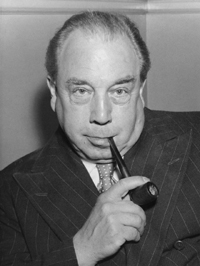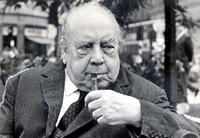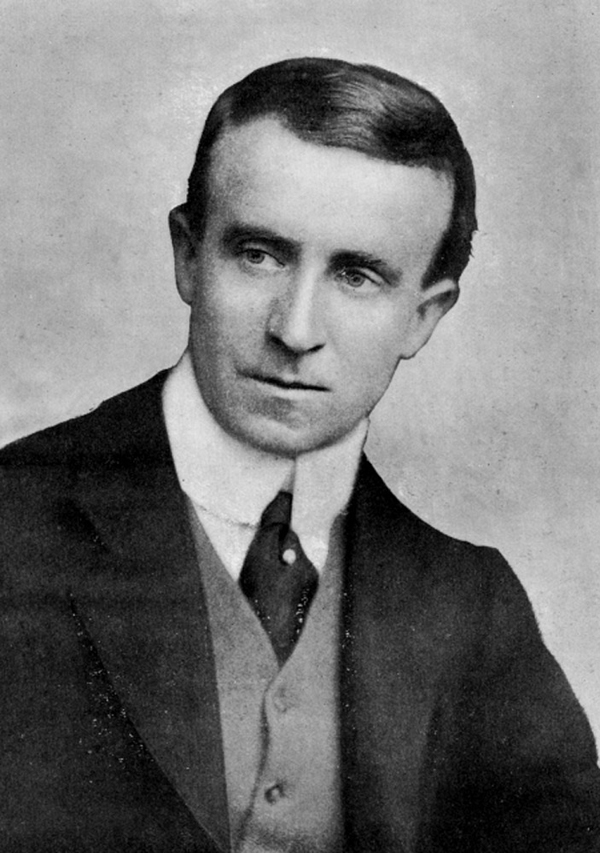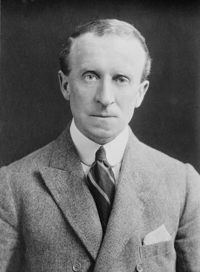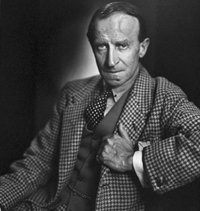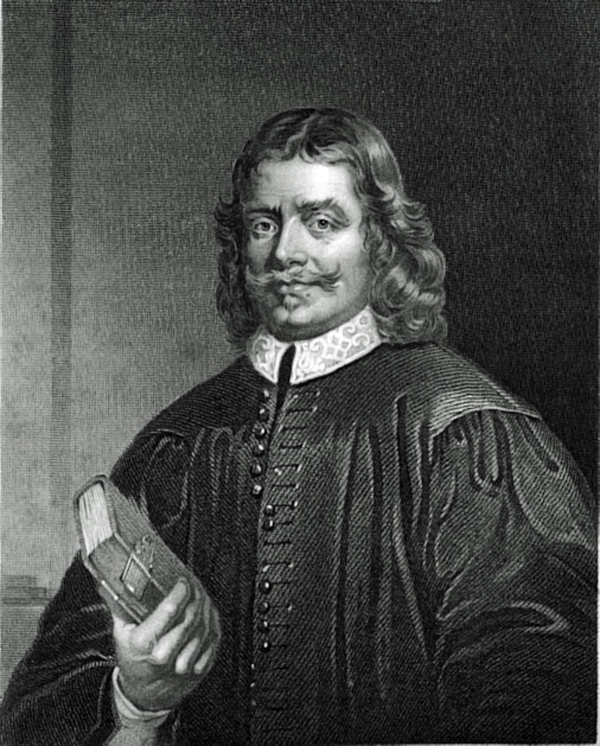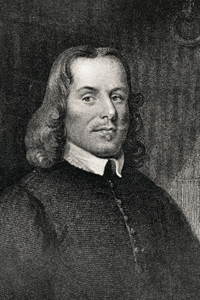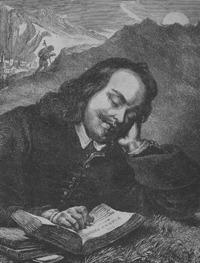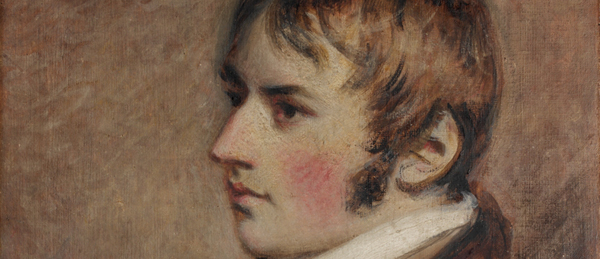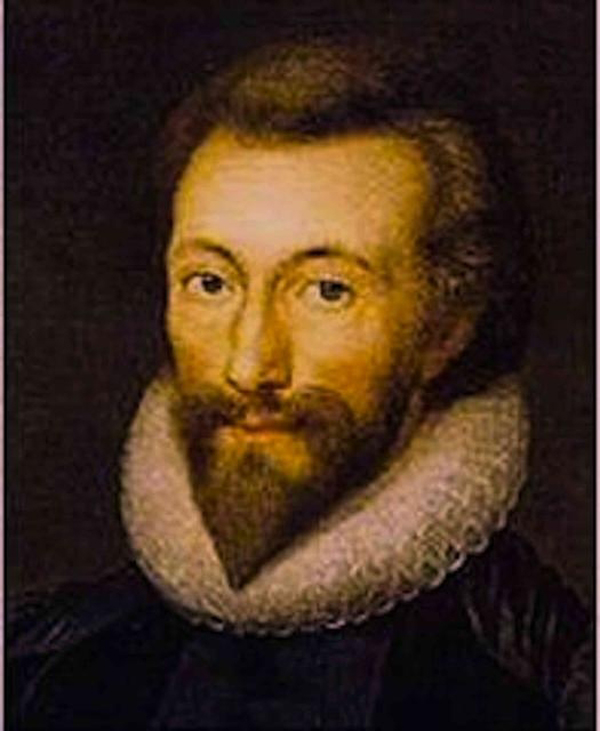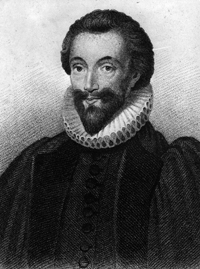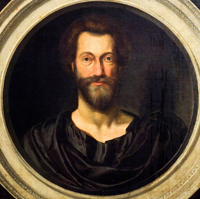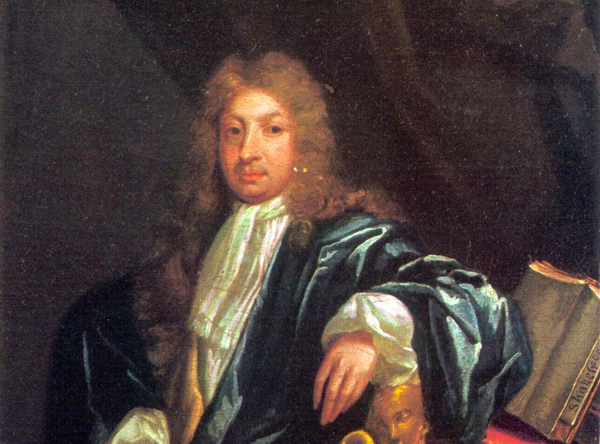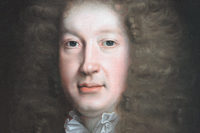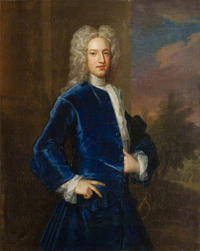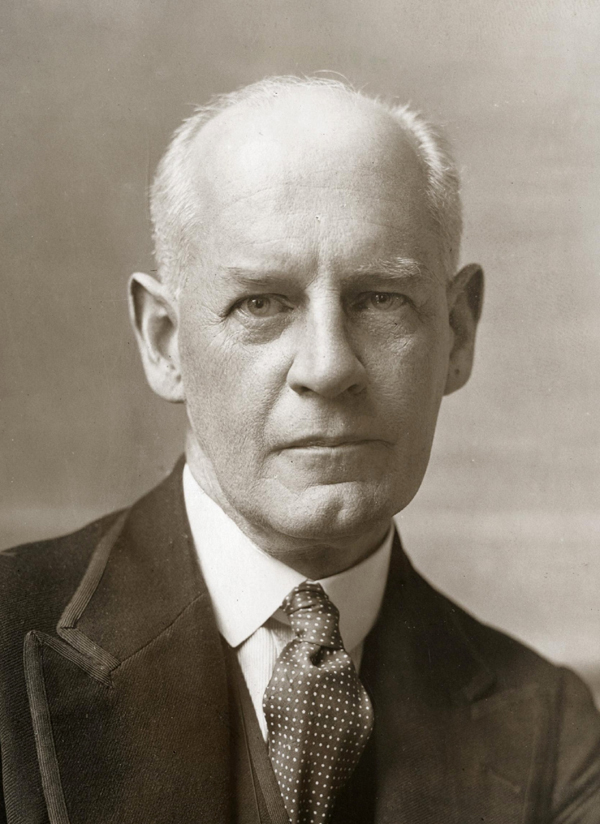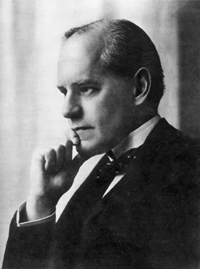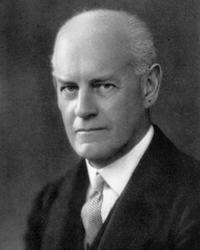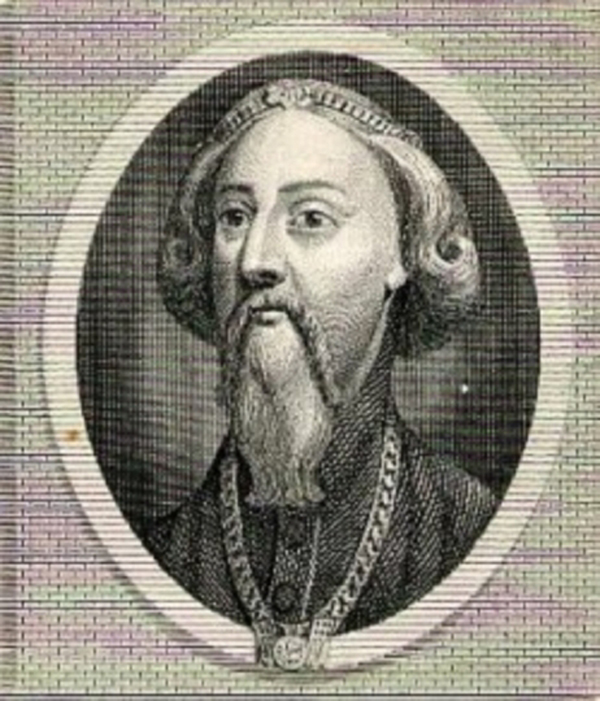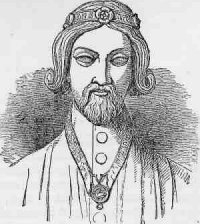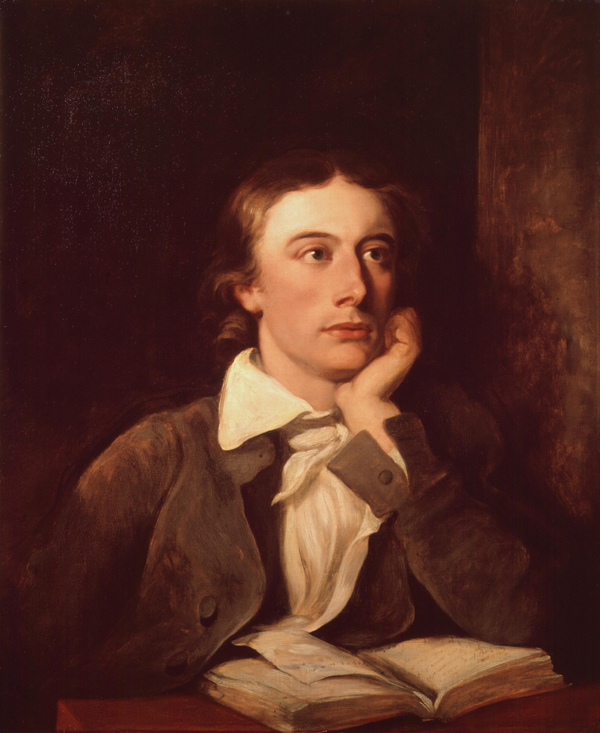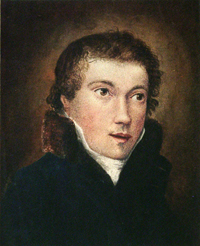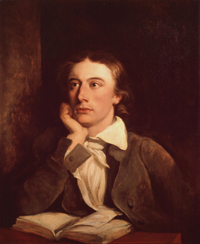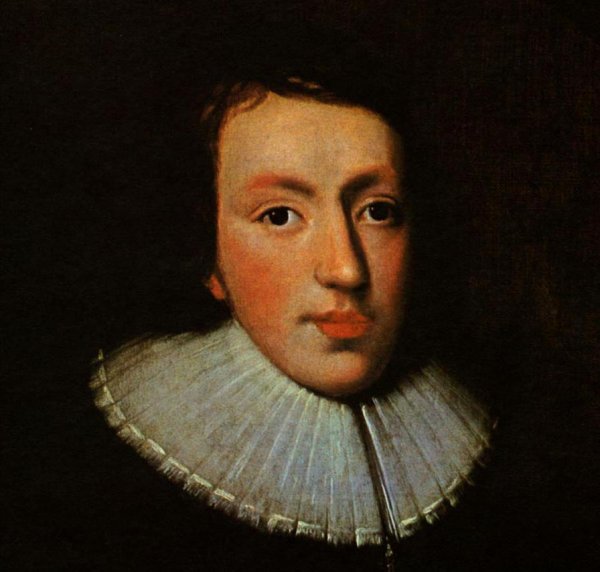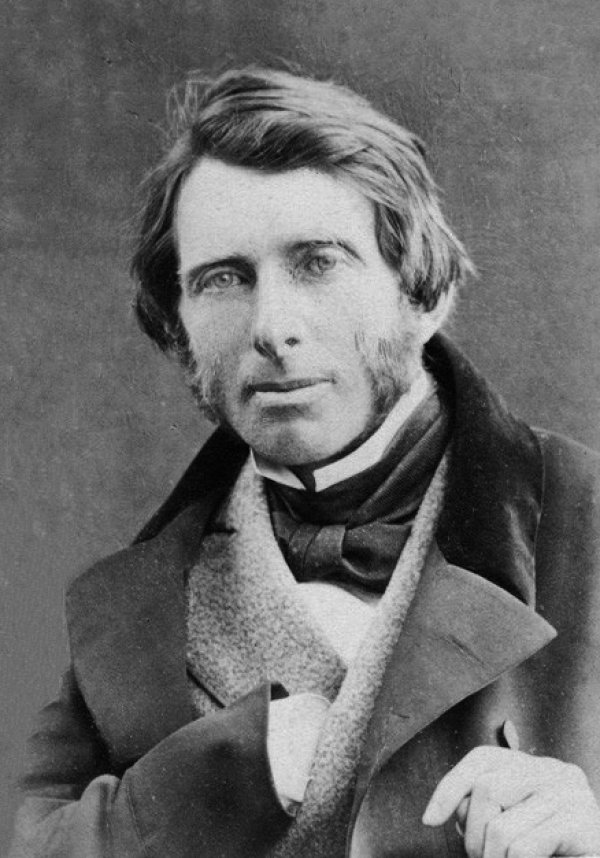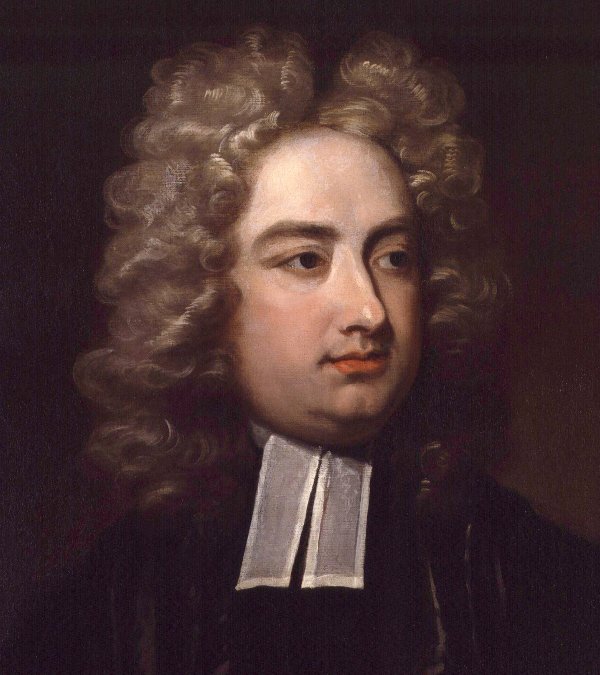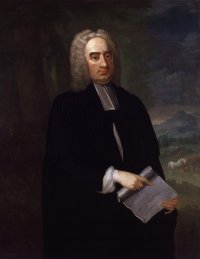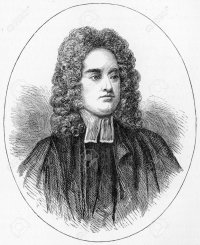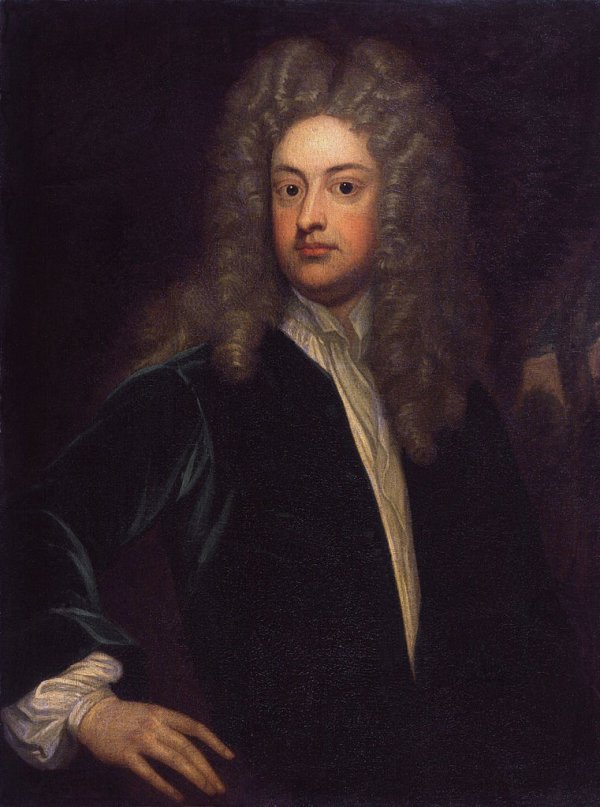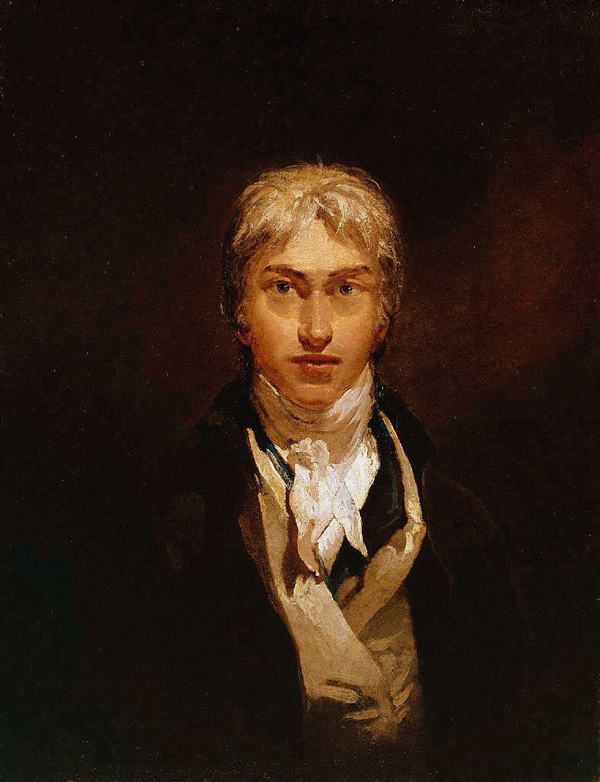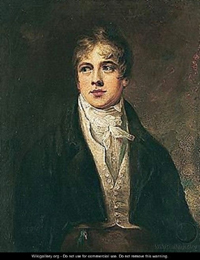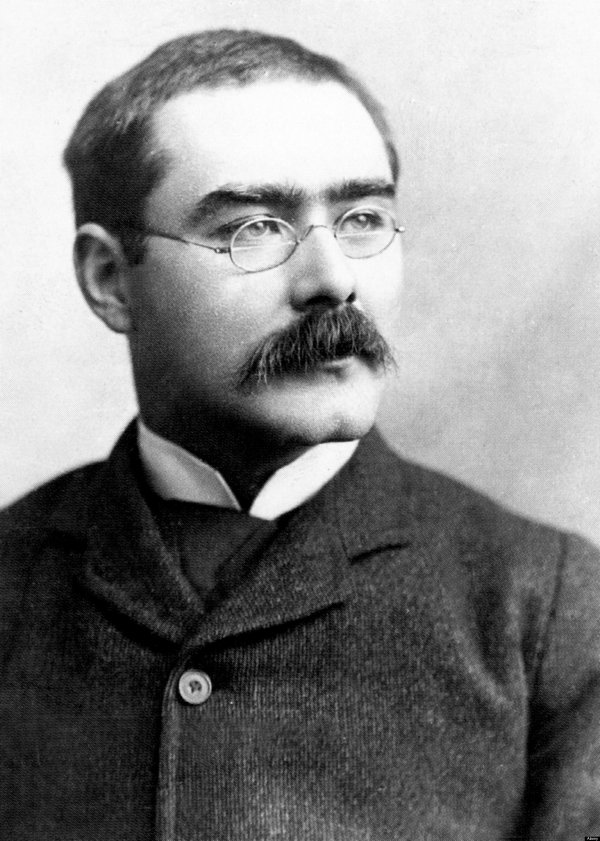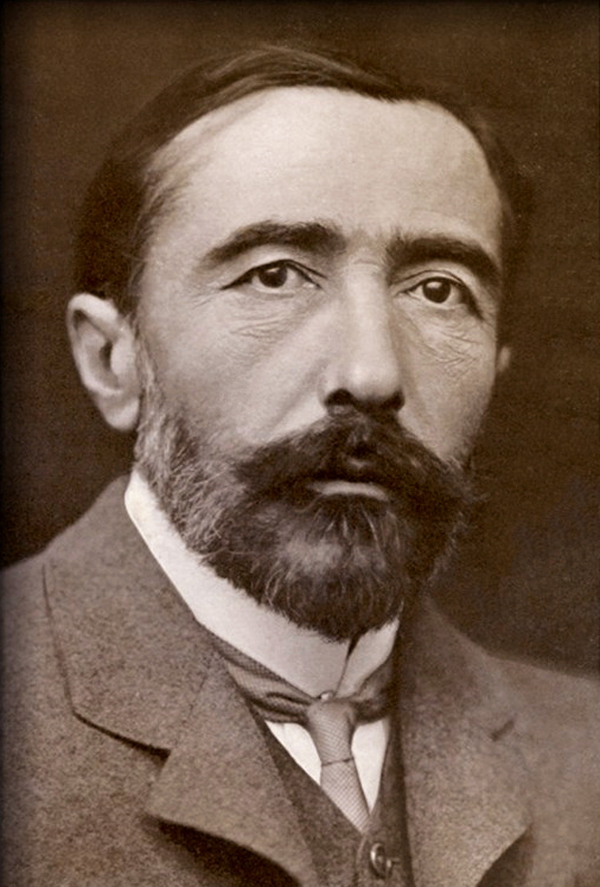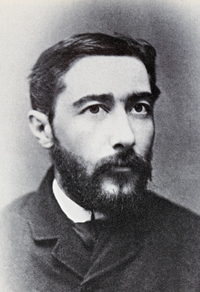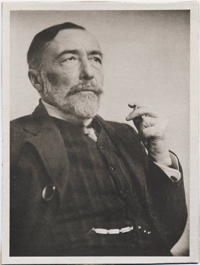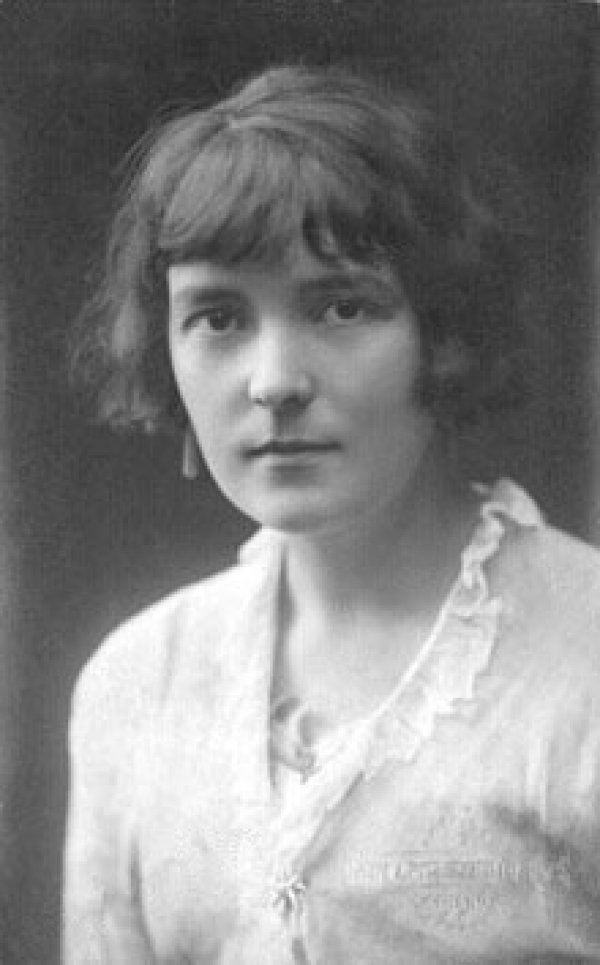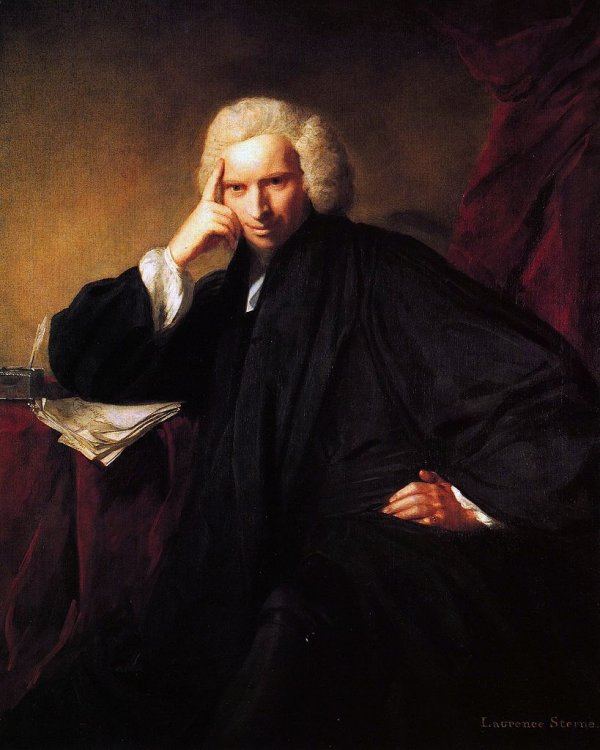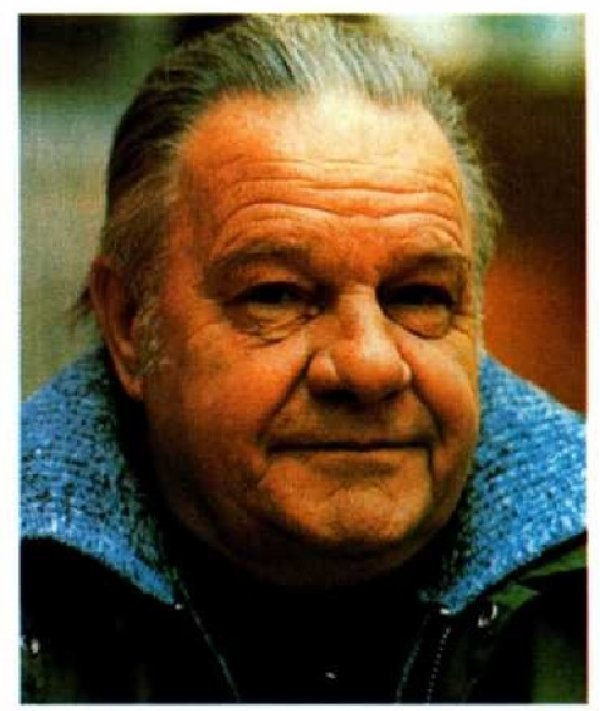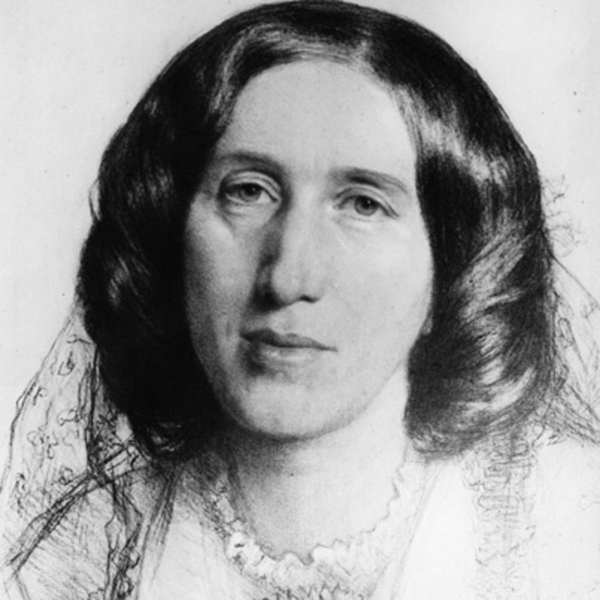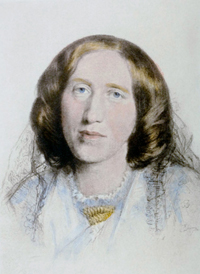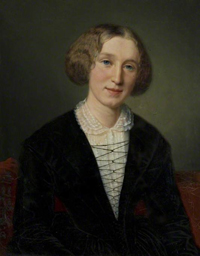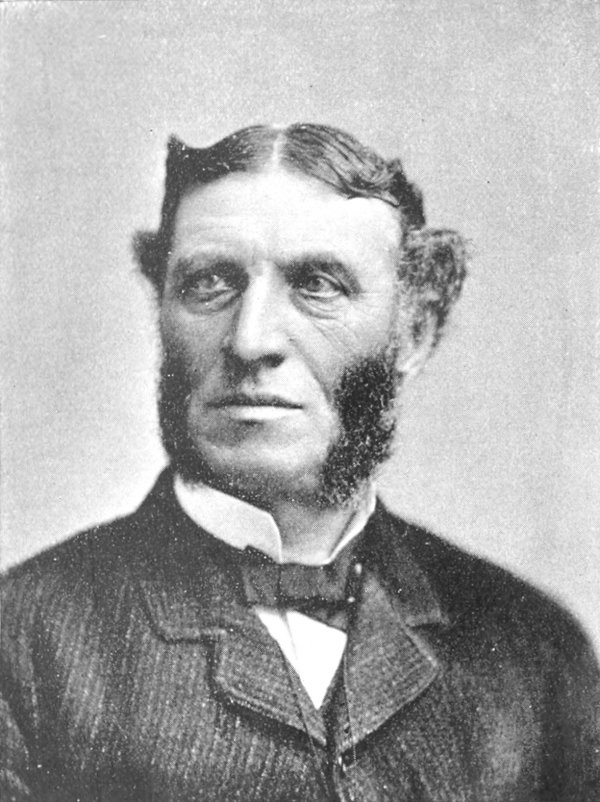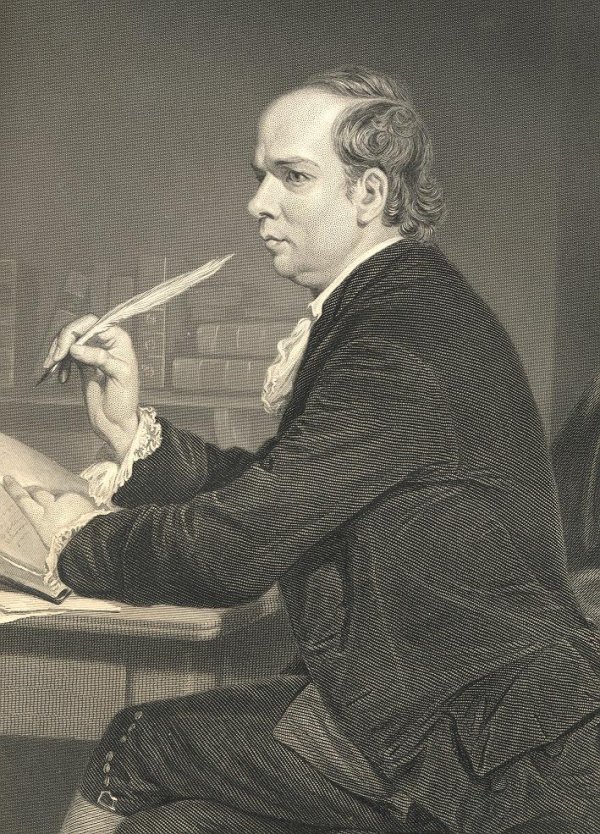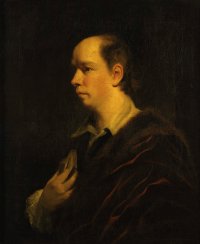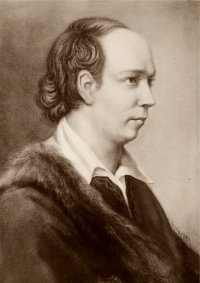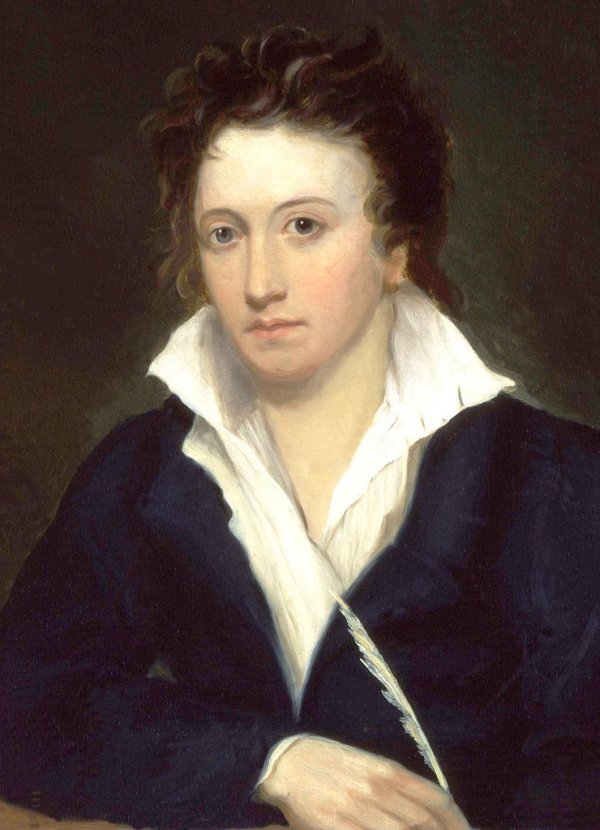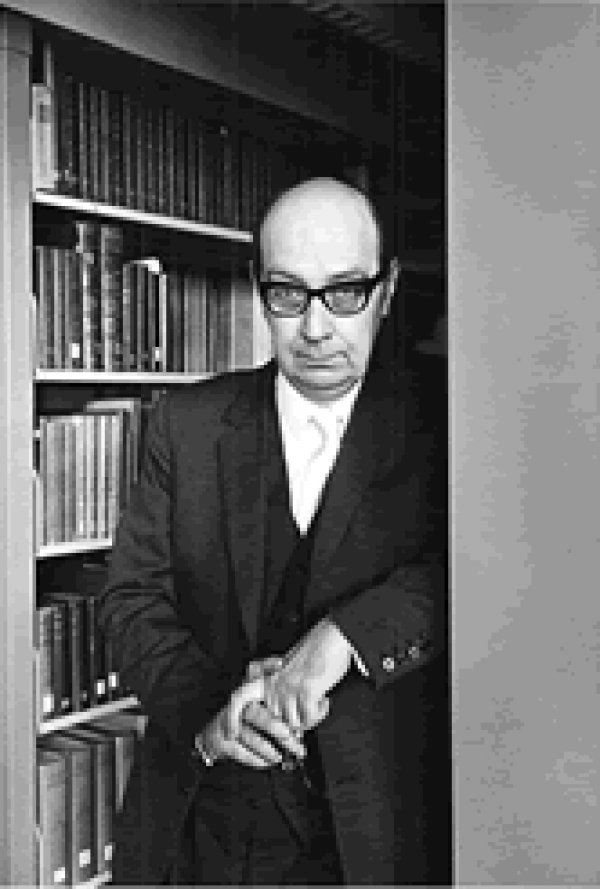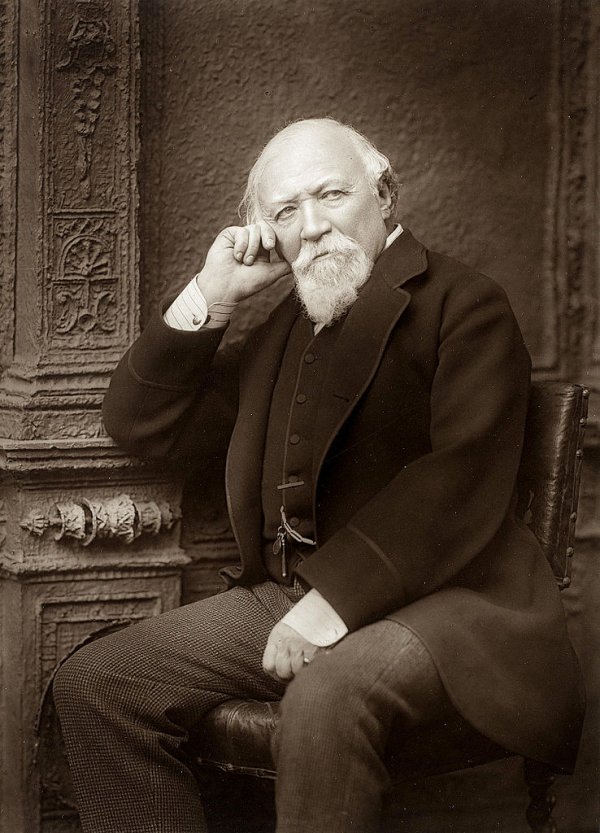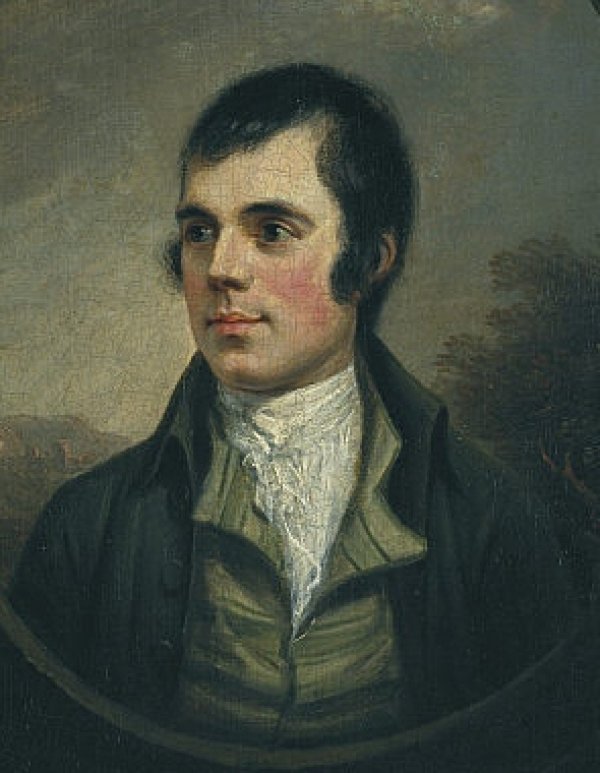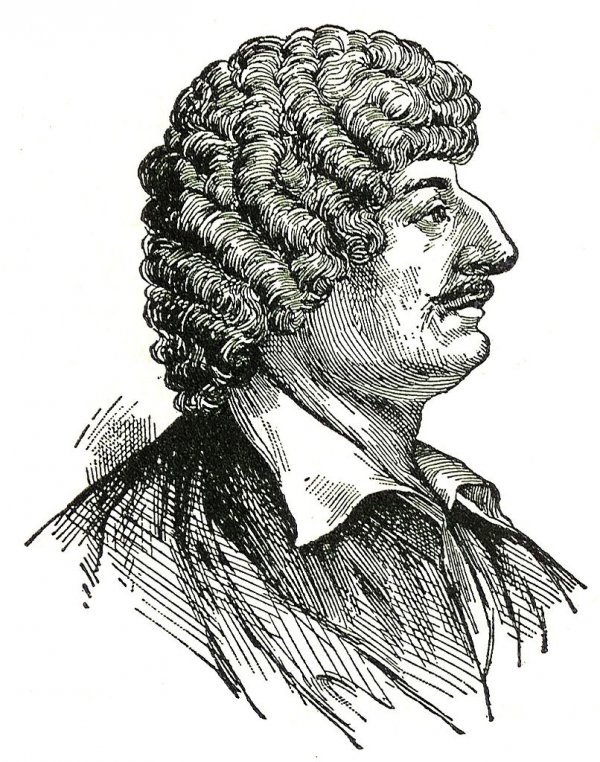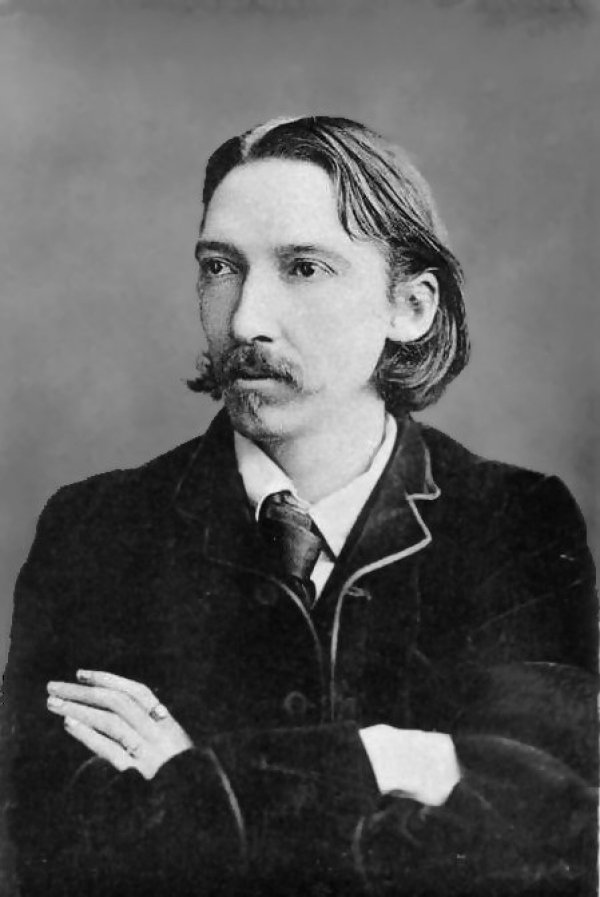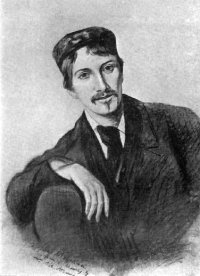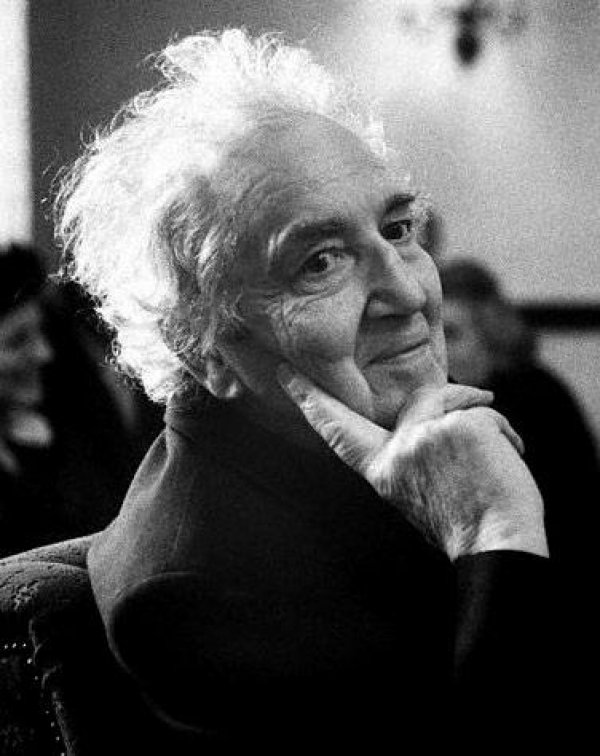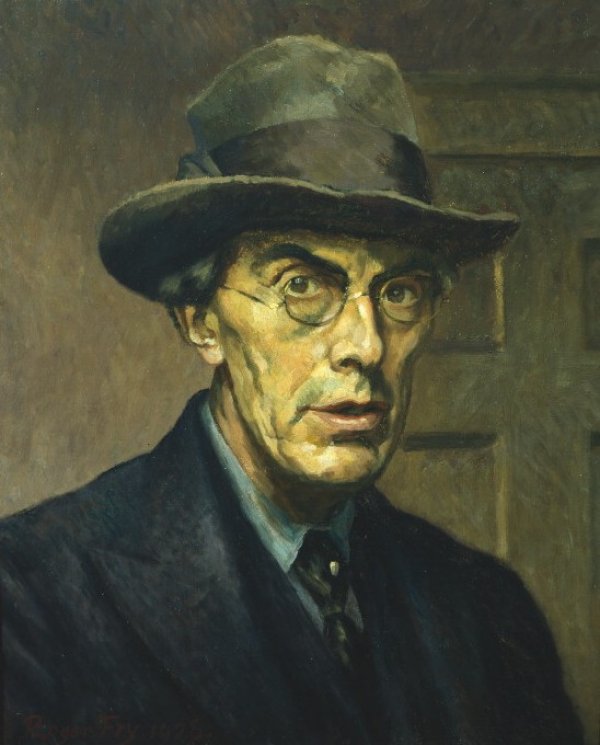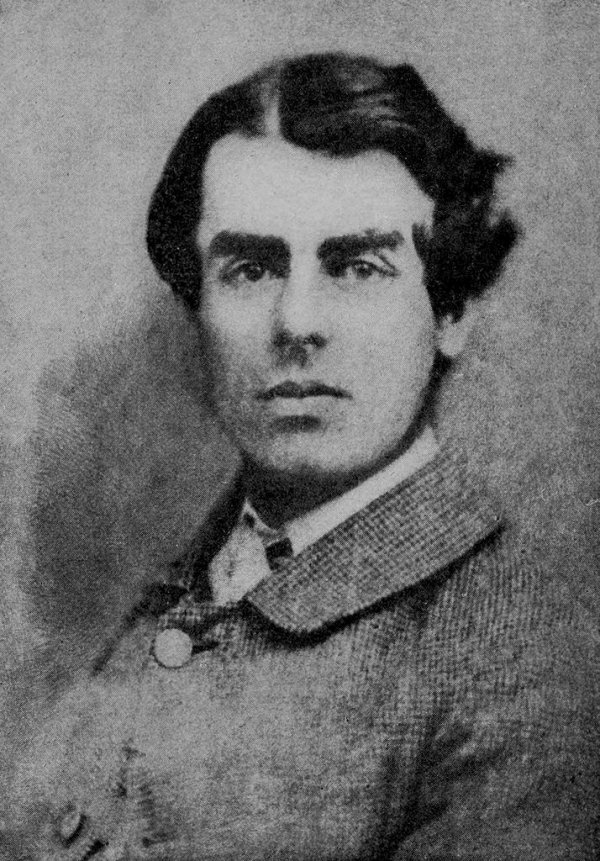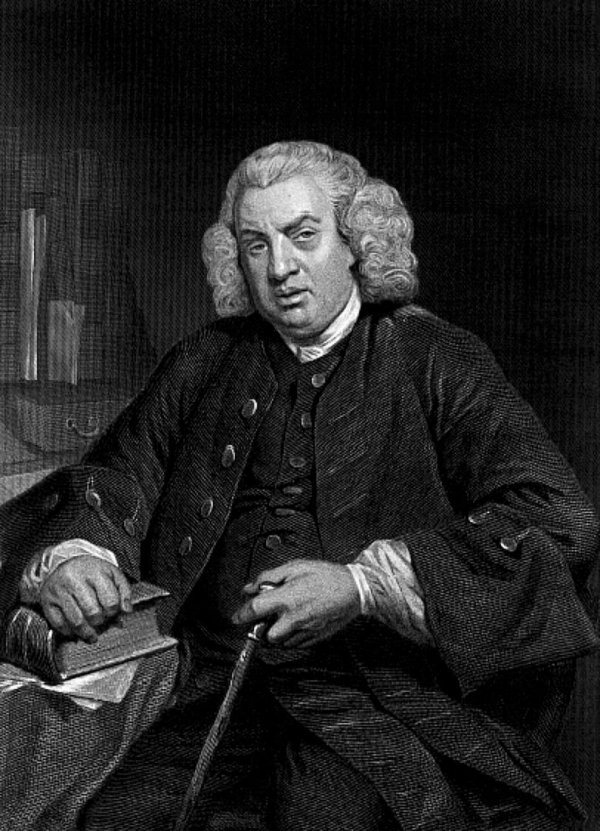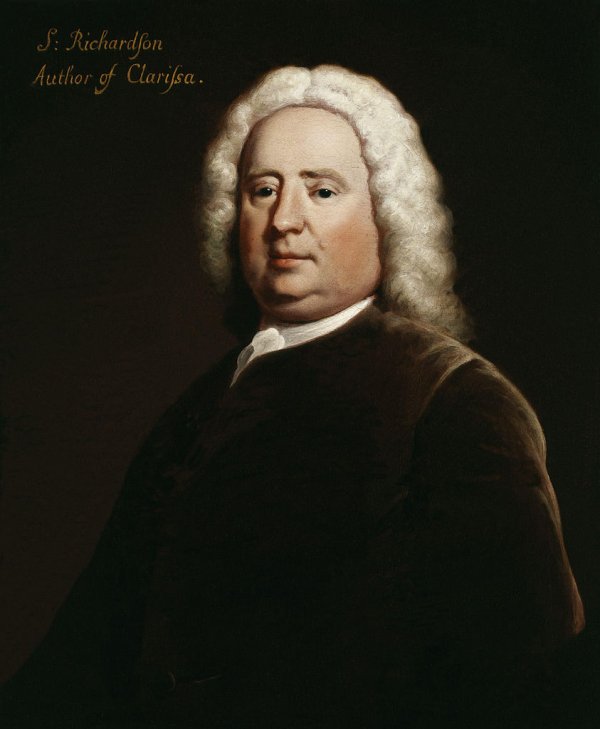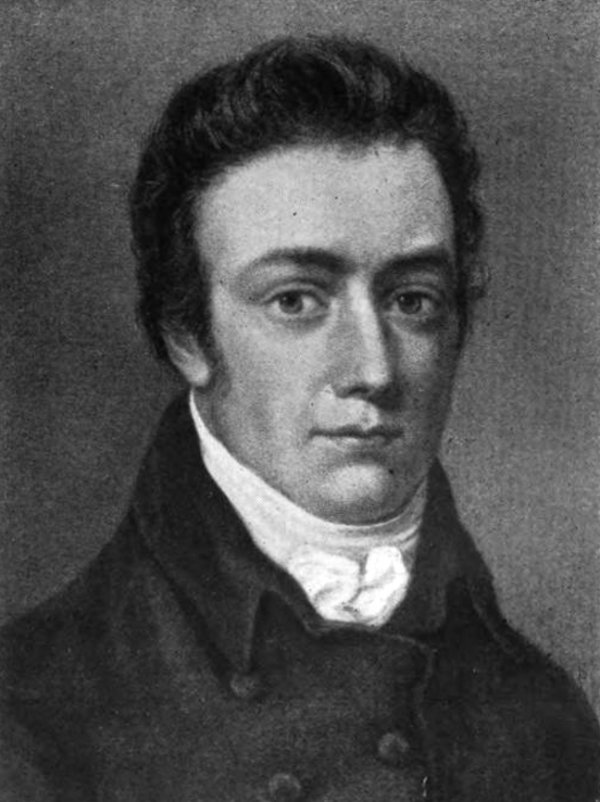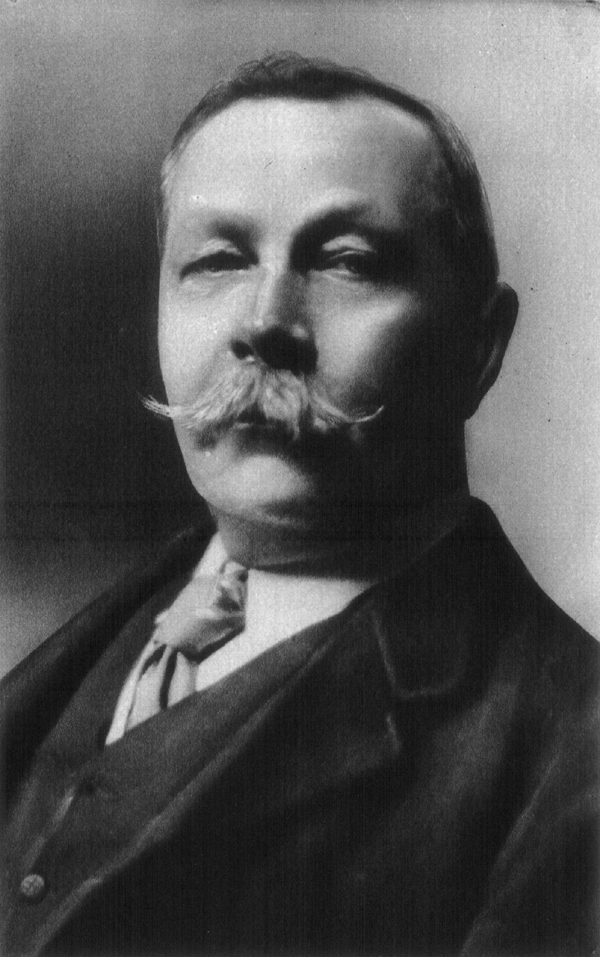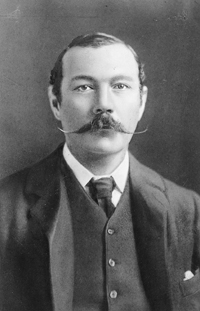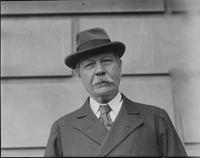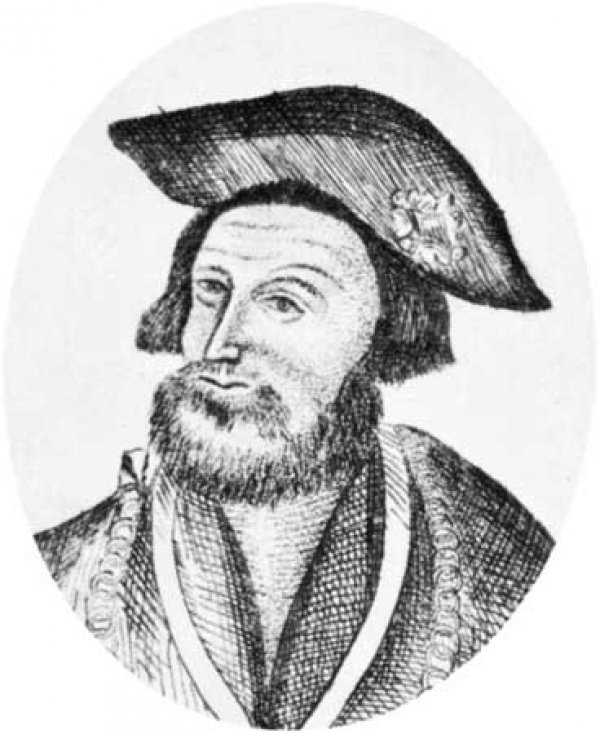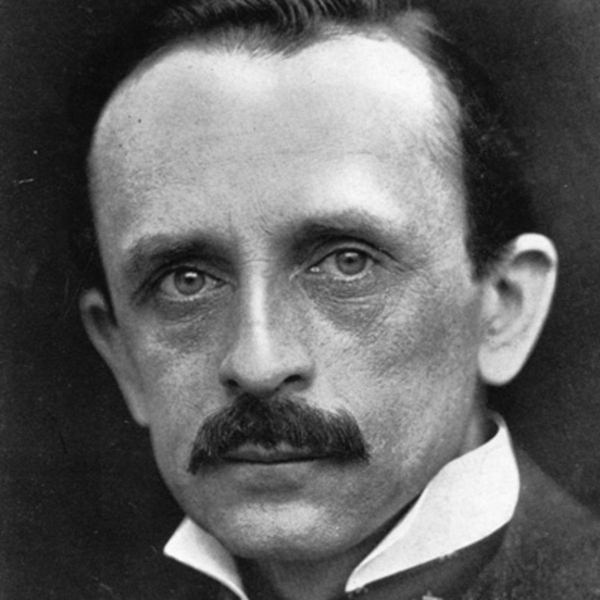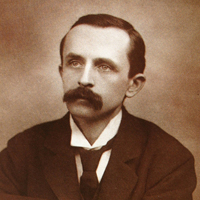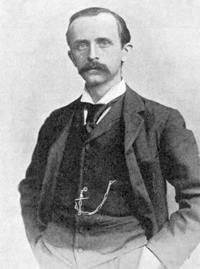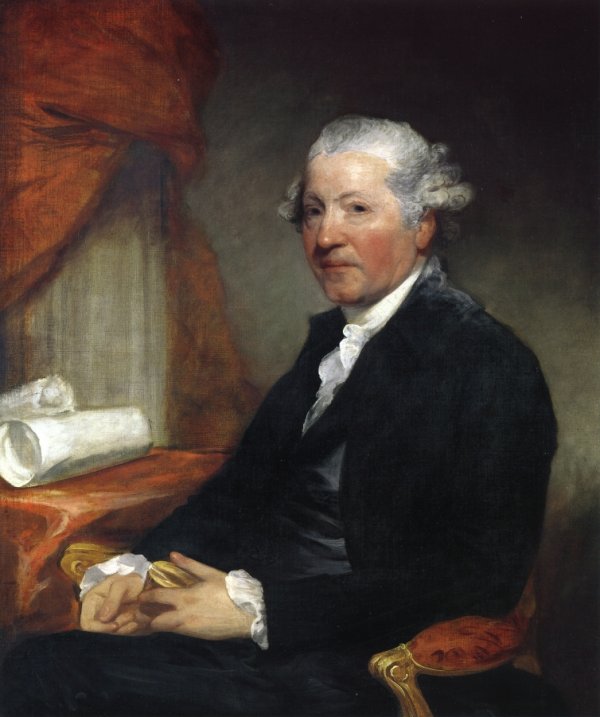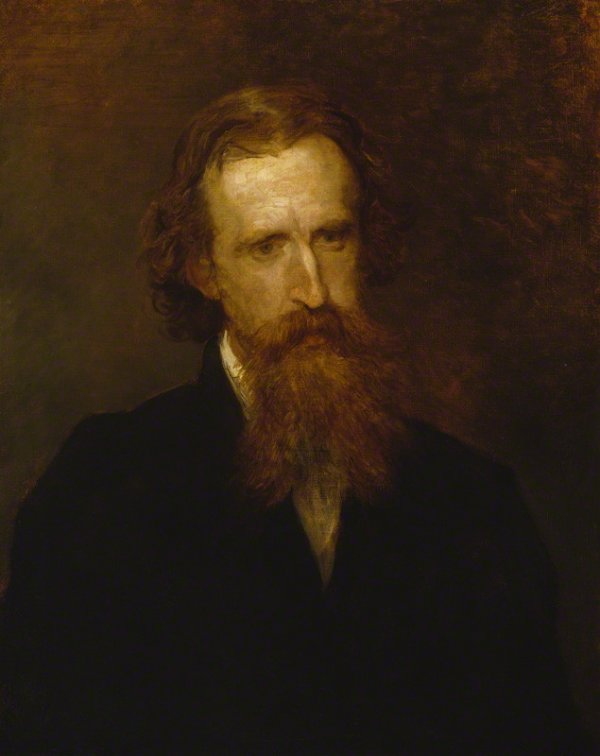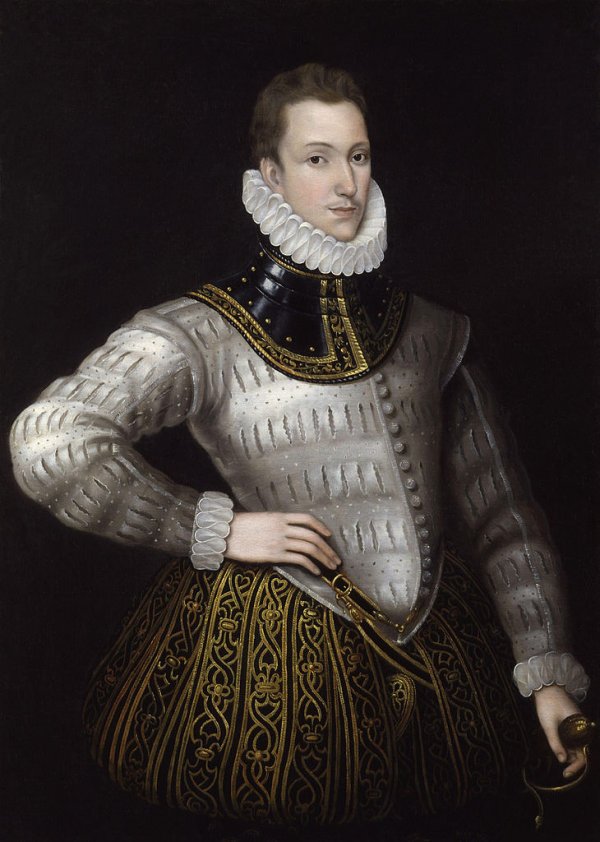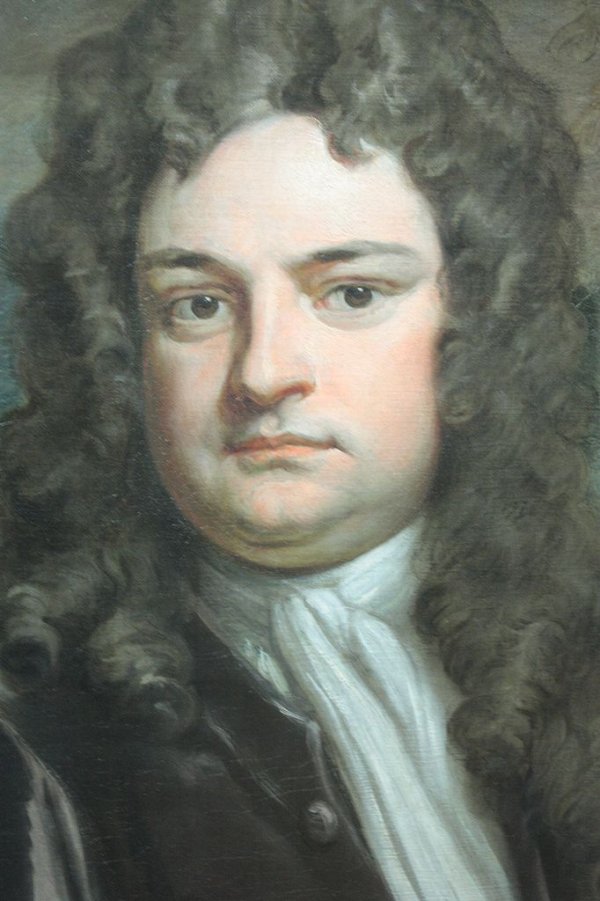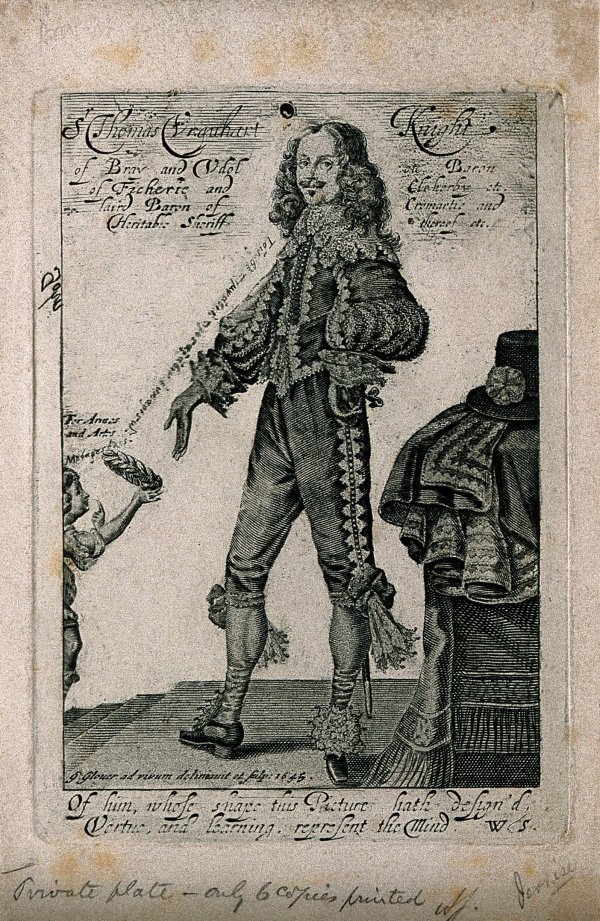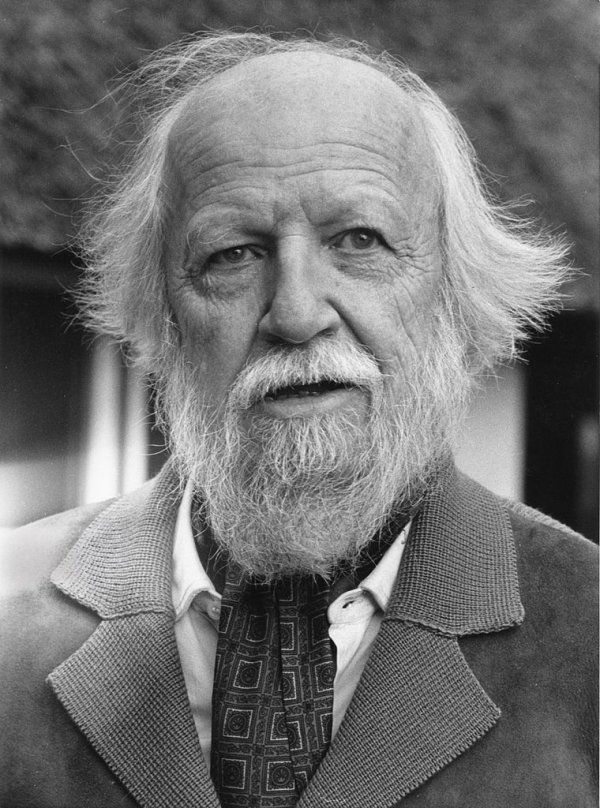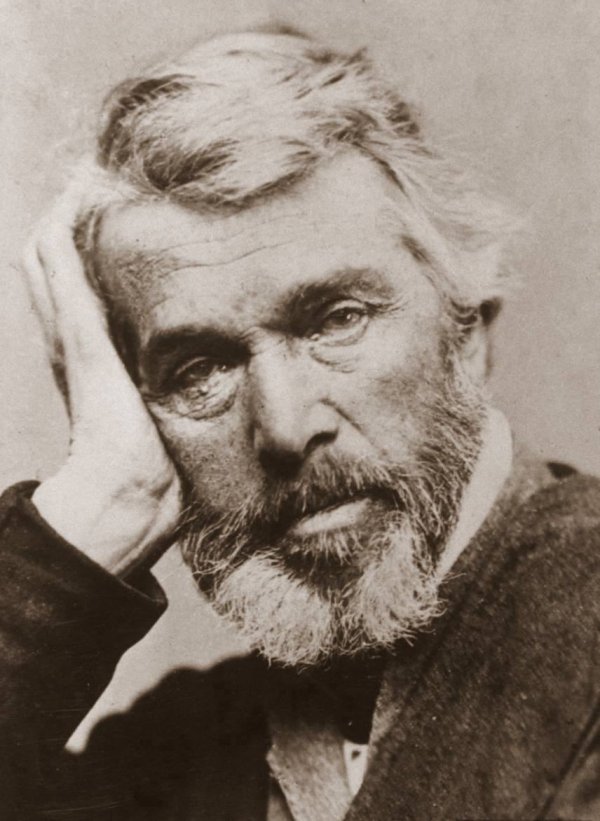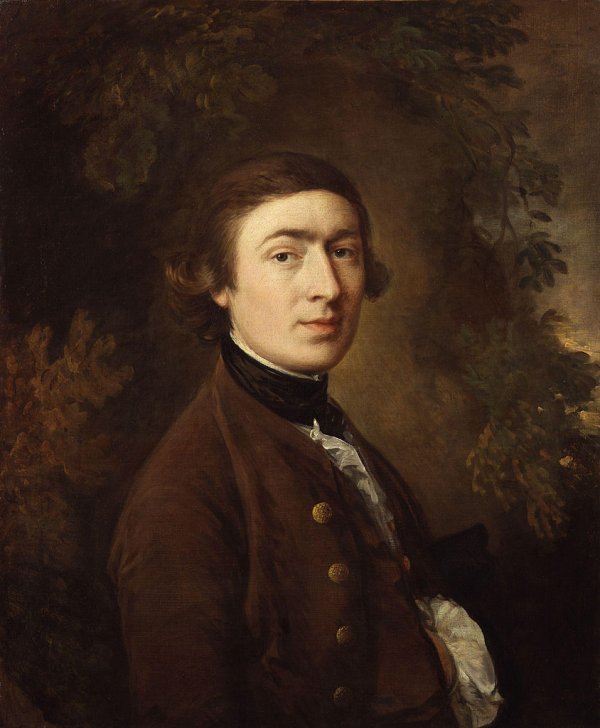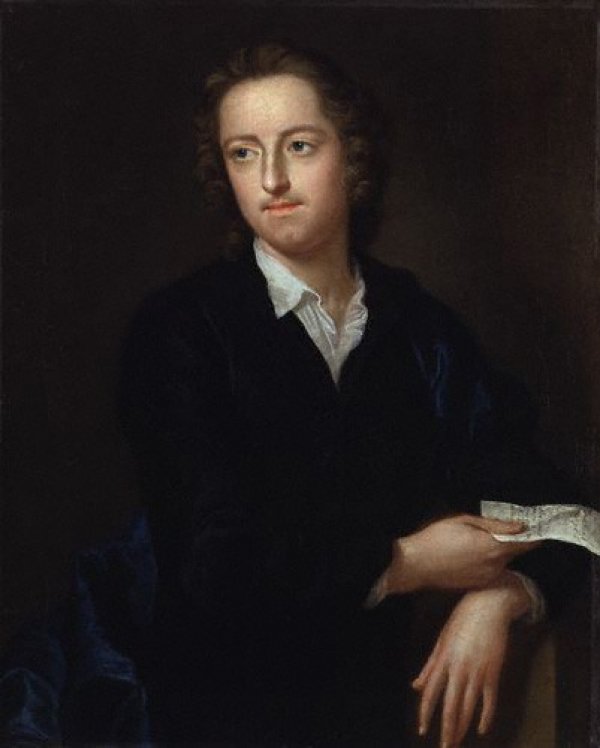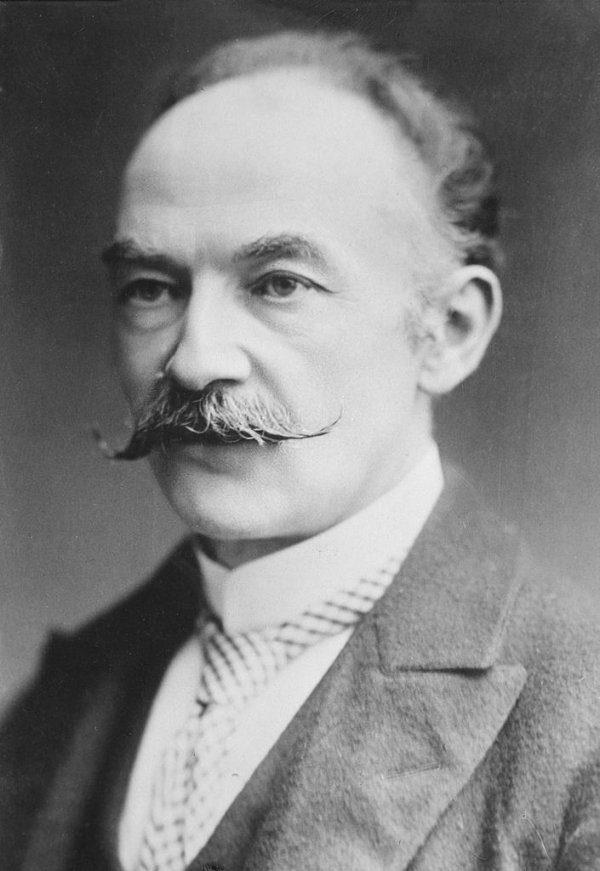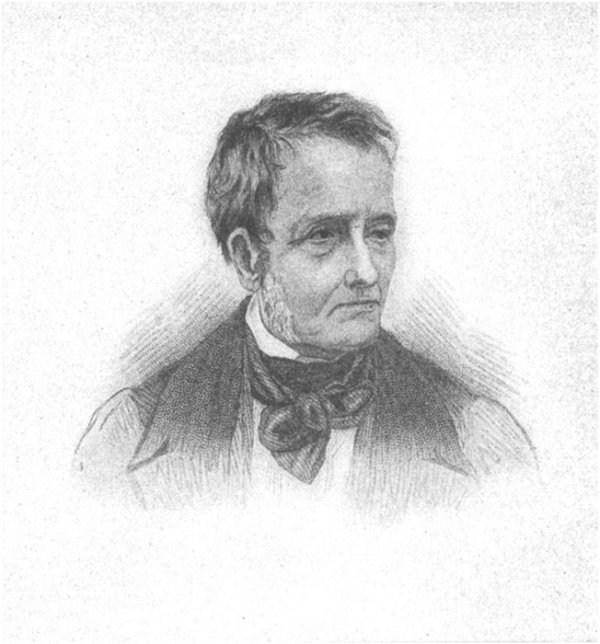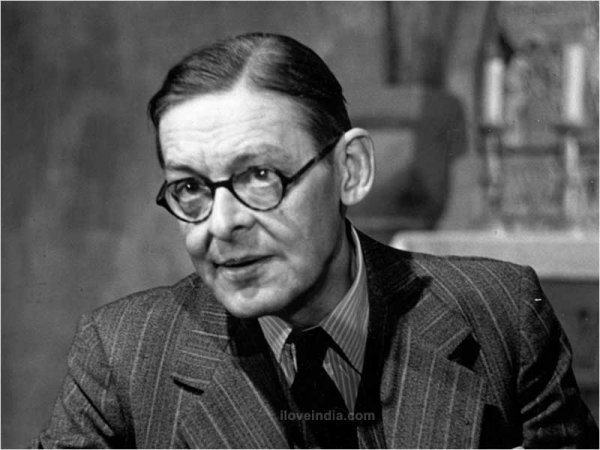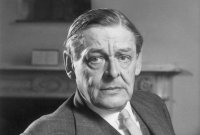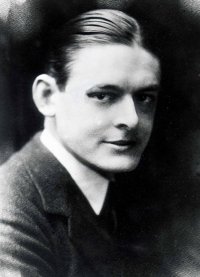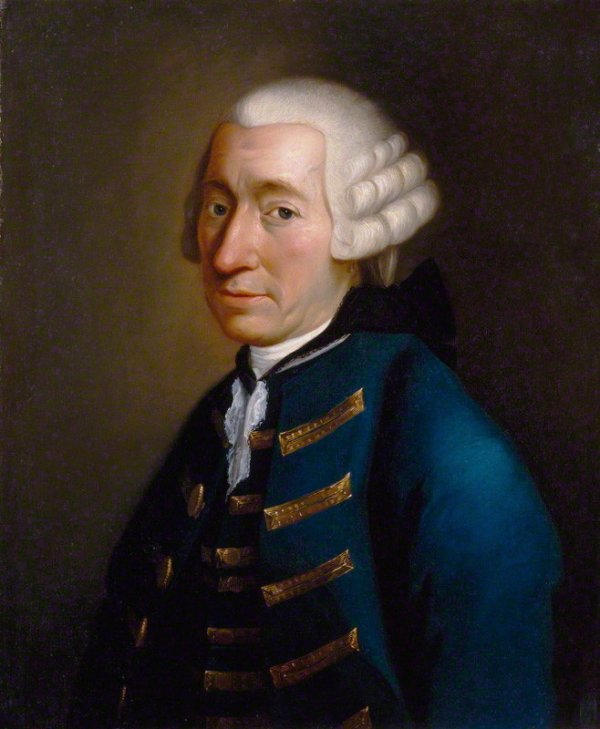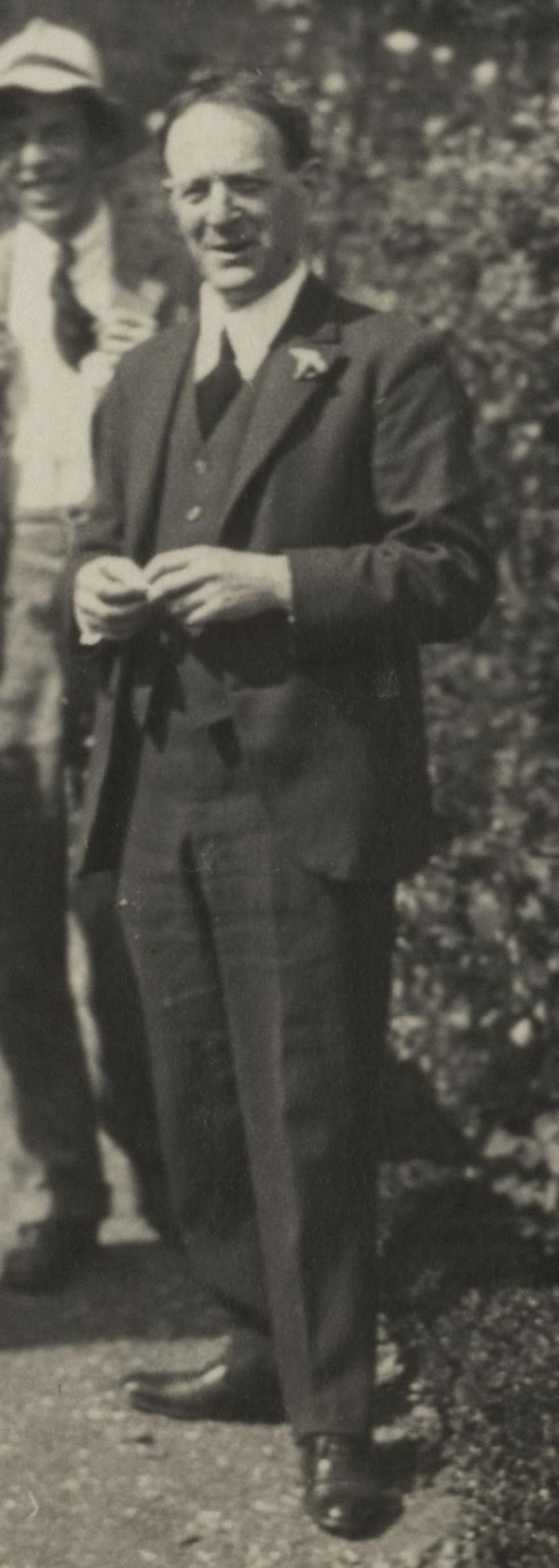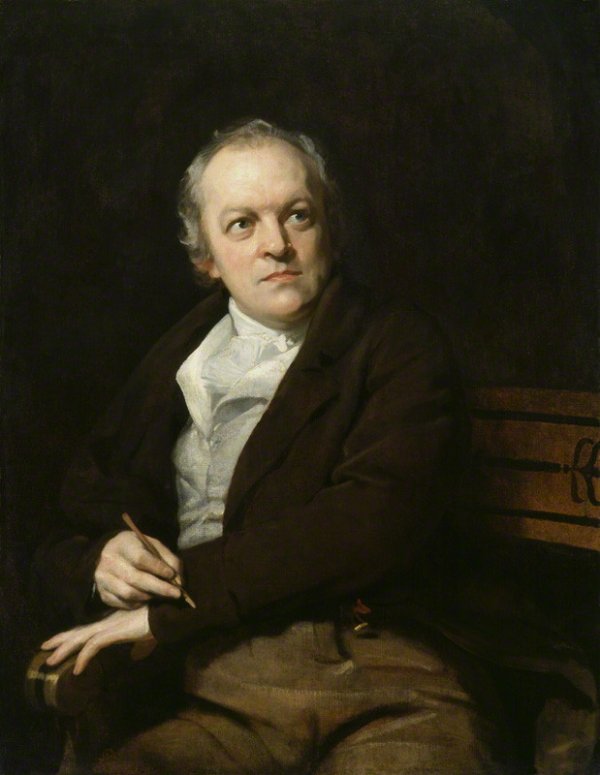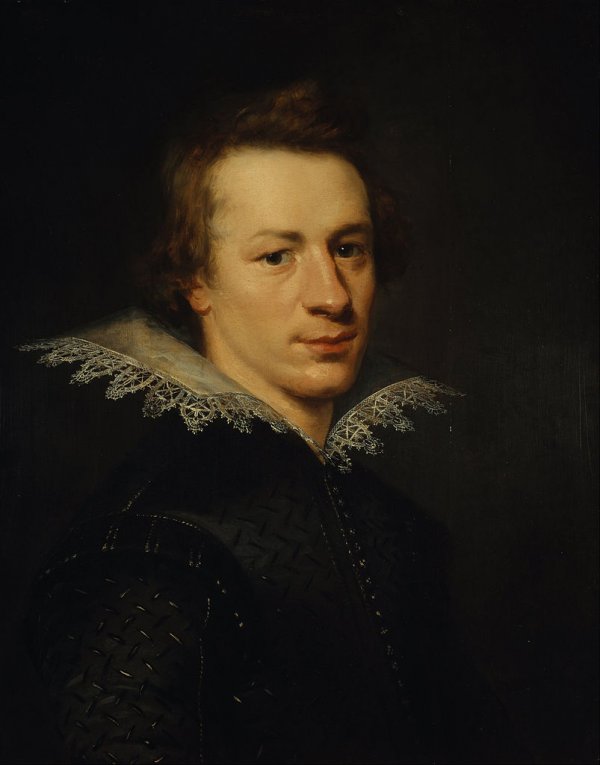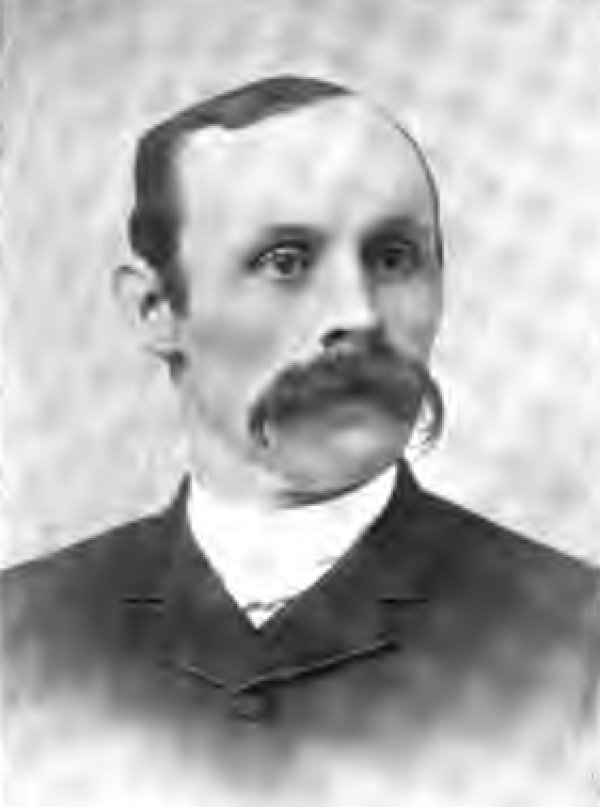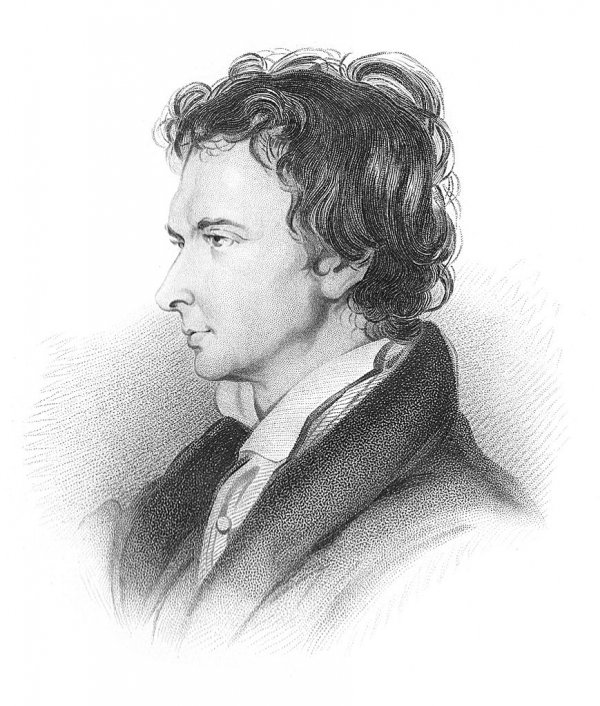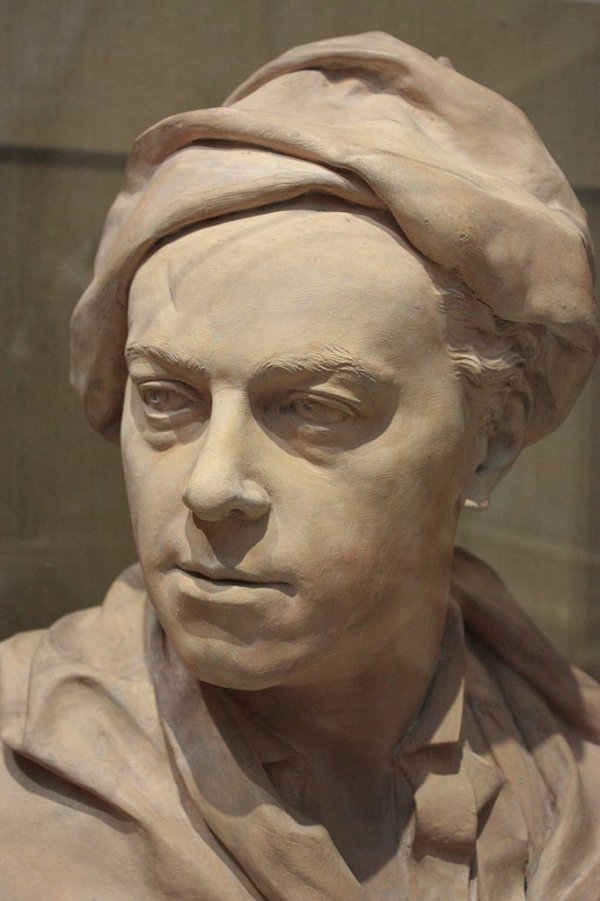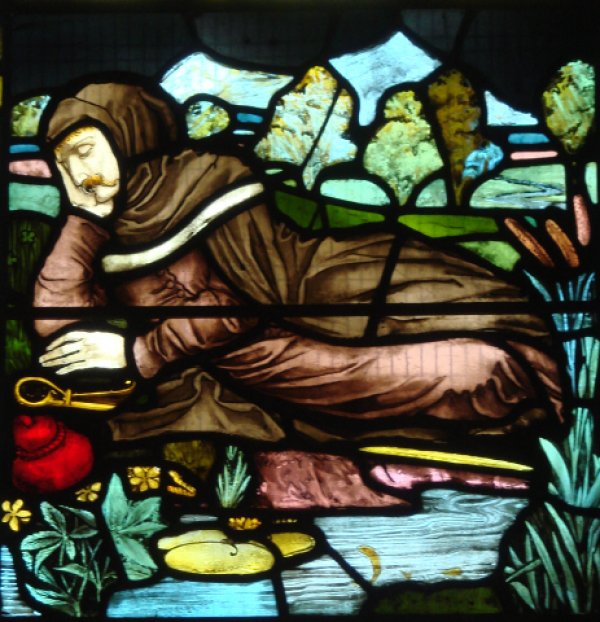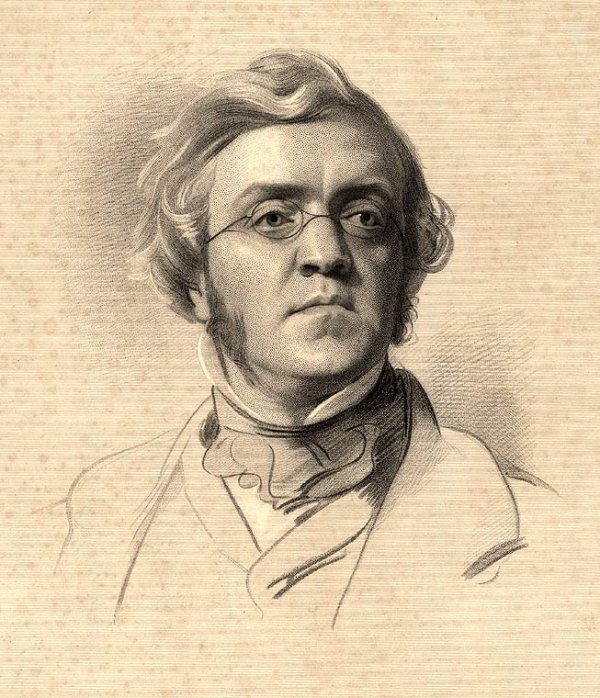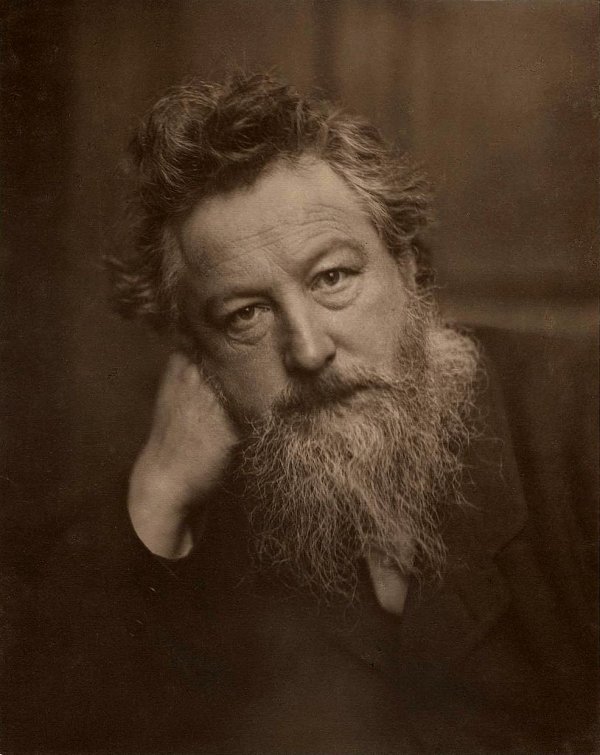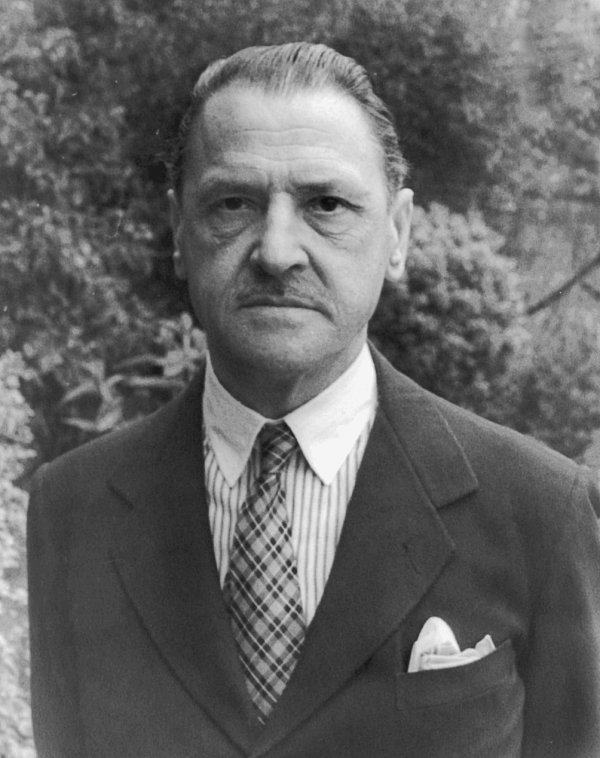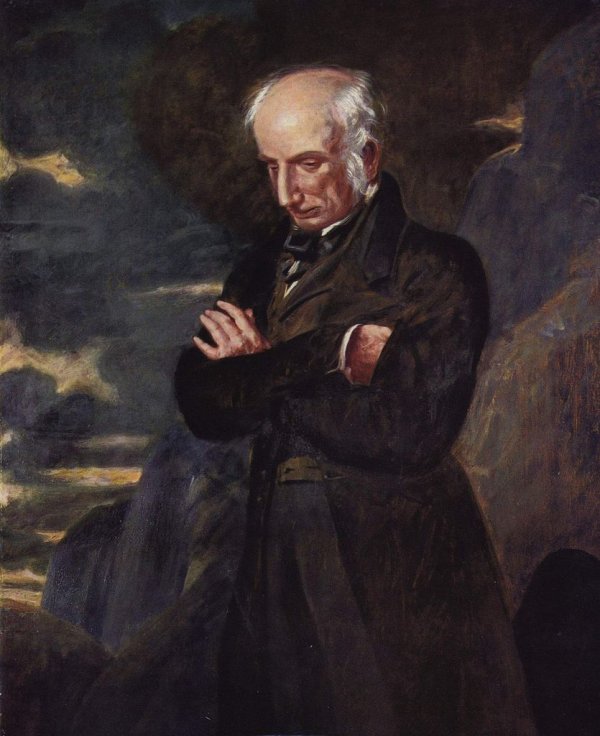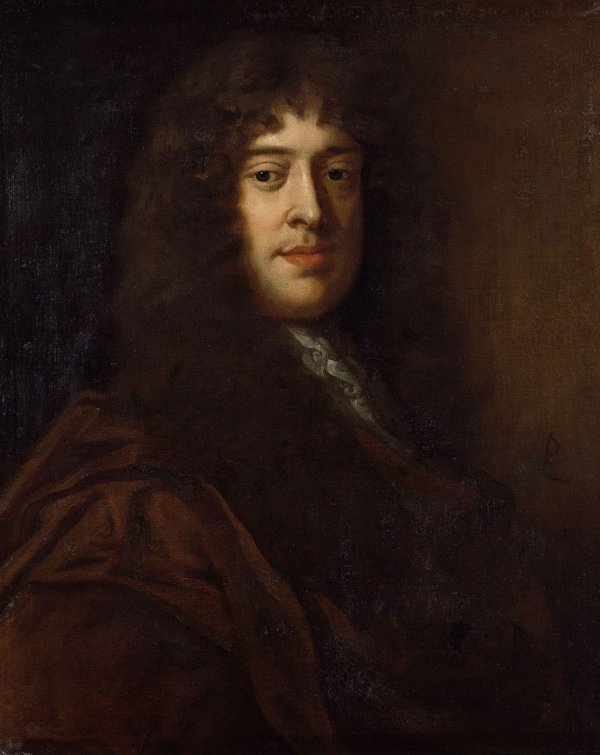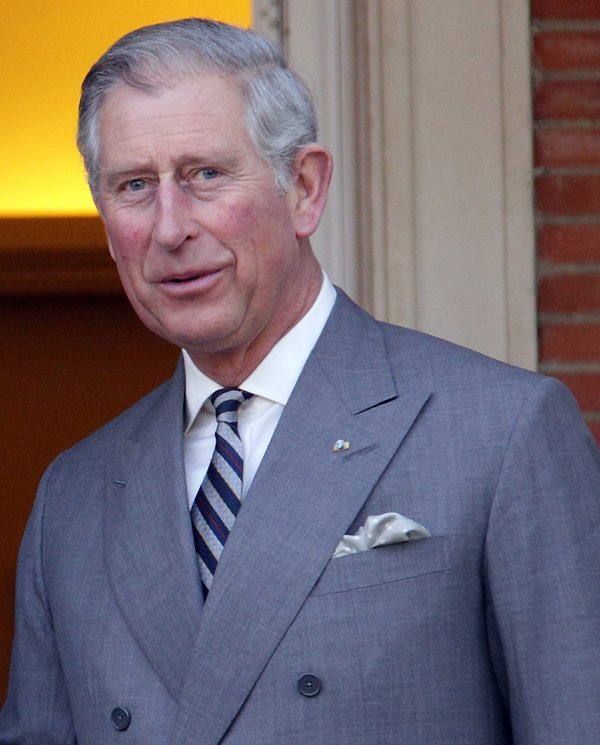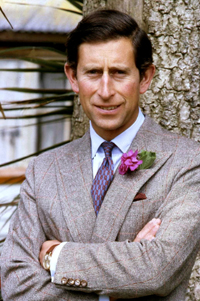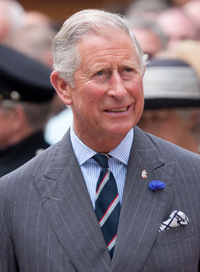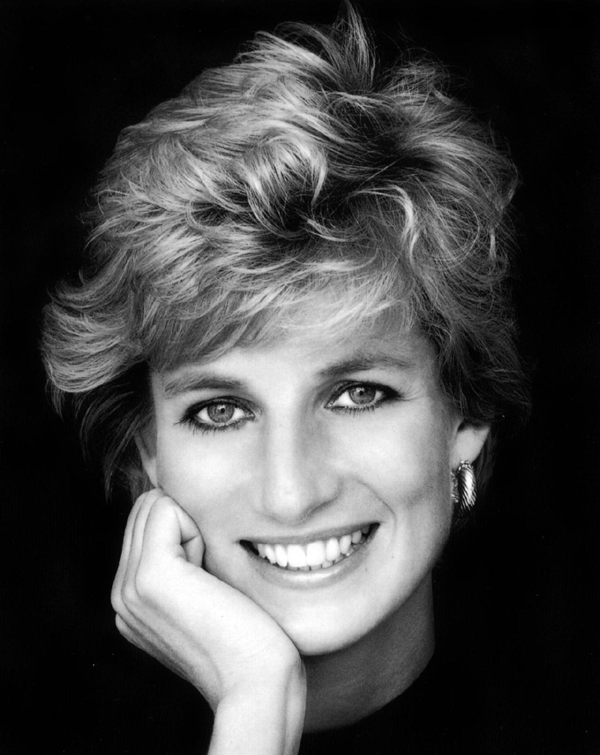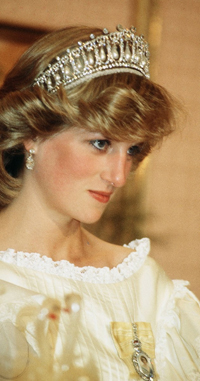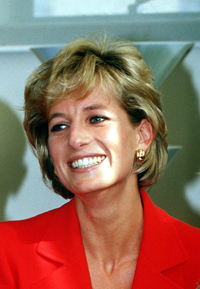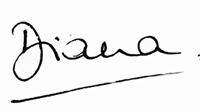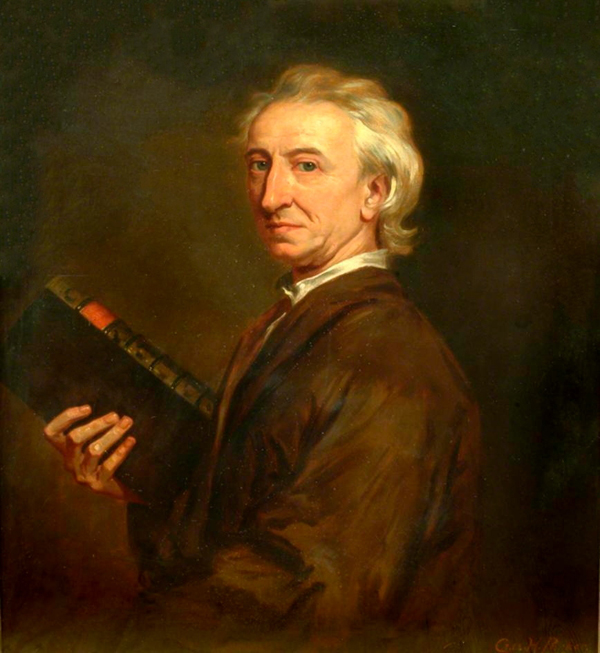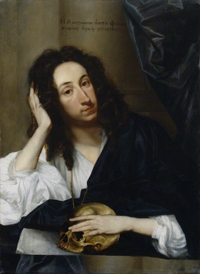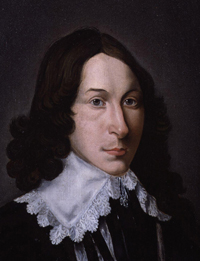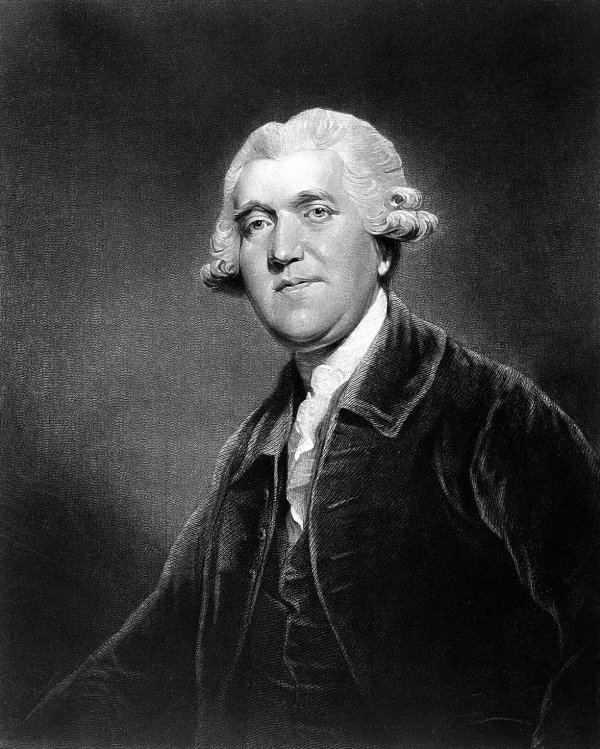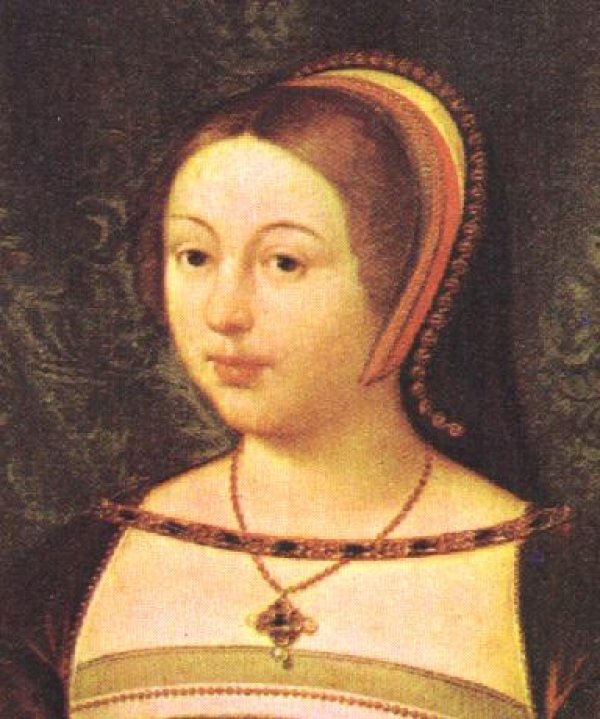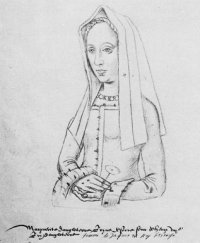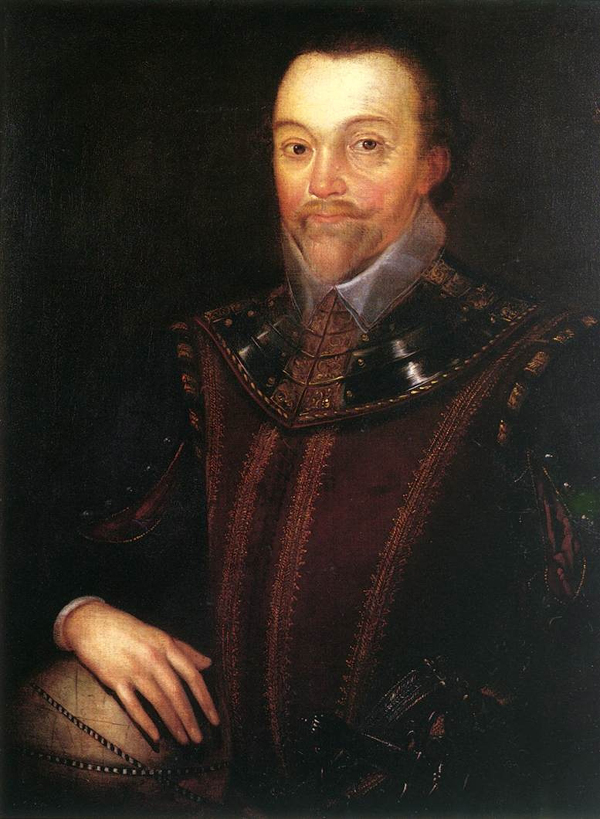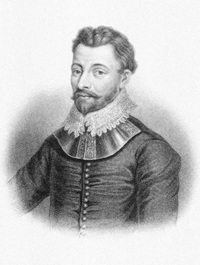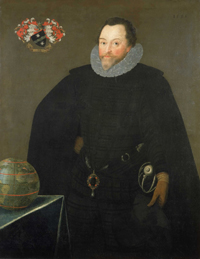History
Academics and Intellectuals
Adam Smith
Known For:
The Wealth of Nations (1776), The Theory of Moral Sentiments (1759)
Economist and philosopher Adam Smith (1723–90) influenced the development of world economy and politics.
Adam Smith was a Scottish moral philosopher, pioneer of political economy, and key Scottish Enlightenment figure. Smith is best known for two classic works: The Theory of Moral Sentiments (1759), and An Inquiry into the Nature and Causes of the Wealth of Nations (1776). The latter, usually abbreviated as The Wealth of Nations, is considered his magnum opus and the first modern work of economics. Smith is cited as the "father of modern economics" and is still among the most influential thinkers in the field of economics today. Smith studied social philosophy at the University of Glasgow and at Balliol College, Oxford, where he was one of the first students to benefit from scholarships set up by fellow Scot, John Snell. After graduating, he delivered a successful series of public lectures at the University of Edinburgh, leading him to collaborate with David Hume during the Scottish Enlightenment. Smith obtained a professorship at Glasgow teaching moral philosophy, and during this time he wrote and published The Theory of Moral Sentiments. In his later life, he took a tutoring position that allowed him to travel throughout Europe, where he met other intellectual leaders of his day. Smith laid the foundations of classical free market economic theory. The Wealth of Nations was a precursor to the modern academic discipline of economics. In this and other works, he expounded upon how rational self-interest and competition can lead to economic prosperity. Smith was controversial in his own day and his general approach and writing style were often satirised by Tory writers in the moralising tradition of William Hogarth and Jonathan Swift. In 2005, The Wealth of Nations was named among the 100 Best Scottish Books of all time. It is said former UK Prime Minister Margaret Thatcher carried a copy of the book in her handbag.
Country: United Kingdom
Date of Birth: 16 June 1723
Place of Birth: Kirkcaldy, Fife, Scotland
Date of Death: 17 July 1790
Please of Death: Edinburgh, Scotland
Arnold Joseph Toynbee
Known For: A Study of History (1934–61)Noted historians include Raphael Holinshed (d.1580?), Edward Gibbon (1737–94), John Emerich Edward Dalberg-Acton, first Baron Acton (1834–92), William Edward Hartpole Lecky (1836–1903), John Richard Green (1837–83), Frederic William Maitland (1850–1906), George Macaulay Trevelyan (1876–1962), Giles Lytton Strachey (1880–1932), Sir Lewis Bernstein Namier (1880–1960), Arnold Joseph Toynbee (1889–1975), and Edward Hallett Carr (1892–1982).Arnold Joseph Toynbee CH was a British historian, philosopher of history, research professor of International History at the London School of Economics and the University of London and author of numerous books. Toynbee in the 1918–1950 period was a leading specialist on international affairs. He is best known for his 12-volume A Study of History (1934–61), through which he ...examined the rise and fall of 26 civilizations in the course of human history, and he concluded that they rose by responding successfully to challenges under the leadership of creative minorities composed of elite leaders. With his endless output of papers, articles, speeches and presentations, and numerous books translated into many languages, Toynbee was perhaps the world’s most read and discussed scholar in the 1940s and 1950s. Yet Toynbee's work lost favor among both the general public and scholars by the 1960s, due to the religious and spiritual outlook that permeates the largest part of his work. His work has been seldom read or cited in recent decades.
Country: United Kingdom
Date of Birth: 14 April 1889
Place of Birth: London, England
Date of Death: 22 October 1975
Please of Death: York, England
Spouse: Rosalind Murray (1913–1946) Veronica M. Boulter (1946–1975)
Bertrand Arthur William Russell, 3rd Earl Russell
Known For: One of the founders of of Analytic Philosophy, On Denoting (1905), Principia Mathematica (1910–1913), Mysticism and Logic and Other Essays (1918), Why I Am Not a Christian (1927), Marriage and Morals (1929), Power: A New Social Analysis (1938), A History of Western Philosophy and Its Connection with Political and Social Circumstances from the Earliest Times to the Present Day (1945), My Philosophical Development ( 1959)A philosopher and mathematician who widely influenced contemporary social thought was Bertrand Arthur William Russell, third Earl Russell (1872–1970).Bertrand Arthur William Russell, 3rd Earl Russell, OM, FRS was a British philosopher, logician, mathematician, historian, writer, social critic and political activist. At various points in his life he considered himself a liberal, a socialist, and a pacifist, but he also admitted that he had never been any of these in any profound sense. He was born in Monmouthshire, into one of the most prominent aristocratic families in Britain. In the early 20th century, Russell led the British "revolt against idealism". He is considered one of the founders of analytic philosophy along with his predecessor Gottlob Frege, colleague G. E. Moore, and his protégé Ludwig Wittgenstein. He is widely held to be one of the 20th century's premier logicians. With A. N. Whitehead he wrote Principia Mathematica, an attempt to create a logical basis for mathematics. His philosophical essay "On Denoting" has been considered a "paradigm of philosophy". His work has had a considerable influence on logic, mathematics, set theory, linguistics, artificial intelligence, cognitive science, computer science (see type theory and type system), and philosophy, especially philosophy of language, epistemology, and metaphysics. Russell was a prominent anti-war activist; he championed anti-imperialism and went to prison for his pacifism during World War I. Later, he campaigned against Adolf Hitler, then criticised Stalinist totalitarianism, attacked the involvement of the United States in the Vietnam War, and was an outspoken proponent of nuclear disarmament. In 1950 Russell was awarded the Nobel Prize in Literature "in recognition of his varied and significant writings in which he champions humanitarian ideals and freedom of thought".
Country: United Kingdom
Date of Birth: 18 May 1872
Place of Birth: Trellech, Monmouthshire, United Kingdom
Date of Death: 2 February 1970
Please of Death: Penrhyndeudraeth, Wales, United Kingdom
Spouse: Alys Pearsall Smith, Dora Black, Patricia ("Peter") Spence, Edith Finch
David Hume
Known For: Problem of causation, Induction Bundle theory, Association of ideas, Is–ought problem, Utility Science of manDavid Hume (1711–76) was an outstanding philosopher and historian.David Hume was a Scottish historian, philosopher, economist, diplomat and essayist known today especially for his radical philosophical empiricism and scepticism. In light of Hume's central role in the Scottish Enlightenment, and in the history of Western philosophy, Bryan Magee judged him as a philosopher "widely regarded as the greatest who has ever written in the English language." While Hume failed in his attempts to start a university career, he took part in various diplomatic and military missions of the time. He wrote The History of England which became a bestseller, and it became the standard history of England in its day. His empirical approach places him with John Locke, George Berkeley, and a handful of others at the time as a British Empiricist. Beginning with his A Treatise of Human Nature (1739), Hume strove to create a total naturalistic "science of man" that examined the psychological basis of human nature. In opposition to the rationalists who preceded him, most notably René Descartes, he concluded that desire rather than reason governed human behaviour. He also argued against the existence of innate ideas, concluding that humans have knowledge only of things they directly experience. He argued that inductive reasoning and therefore causality cannot be justified rationally. Our assumptions in favour of these result from custom and constant conjunction rather than logic. He concluded that humans have no actual conception of the self, only of a bundle of sensations associated with the self. Hume's compatibilist theory of free will proved extremely influential on subsequent moral philosophy. He was also a sentimentalist who held that ethics are based on feelings rather than abstract moral principles, and expounded the is–ought problem. Hume has proved extremely influential on subsequent western philosophy, especially on utilitarianism, logical positivism, William James, the philosophy of science, early analytic philosophy, cognitive philosophy, theology and other movements and thinkers. In addition, according to philosopher Jerry Fodor, Hume's Treatise is "the founding document of cognitive science". Hume engaged with contemporary intellectual luminaries such as Jean-Jacques Rousseau, James Boswell, and Adam Smith (who acknowledged Hume's influence on his economics and political philosophy). Immanuel Kant credited Hume with awakening him from "dogmatic slumbers".
Country: United Kingdom
Date of Birth: 7 May 1711
Place of Birth: Edinburgh, Scotland, Great Britain
Date of Death: 25 August 1776
Please of Death: Edinburgh, Scotland, Great Britain
Edward Gibbon
Known For: The History of the Decline and Fall of the Roman Empire (1776 and 1788)Noted historians include Raphael Holinshed (d.1580?), Edward Gibbon (1737–94), John Emerich Edward Dalberg-Acton, first Baron Acton (1834–92), William Edward Hartpole Lecky (1836–1903), John Richard Green (1837–83), Frederic William Maitland (1850–1906), George Macaulay Trevelyan (1876–1962), Giles Lytton Strachey (1880–1932), Sir Lewis Bernstein Namier (1880–1960), Arnold Joseph Toynbee (1889–1975), and Edward Hallett Carr (1892–1982).Edward Gibbon was an English historian and Member of Parliament. His most important work, The History of the Decline and Fall of the Roman Empire, was published in six volumes between 1776 and 1788. The Decline and Fall is known for the quality and irony of its prose, its use of primary sources, and its open criticism of organised religion.
Country: United Kingdom
Date of Birth: 27 April 1737
Place of Birth: Putney, Surrey, England
Date of Death: 16 January 1794
Please of Death: London, England
Edward Hallett Carr
Known For: A History of Soviet Russia (14 volumes) (1950–1978), The Twenty Years' Crisis (1919–1939), What Is History? (1961)Noted historians include Raphael Holinshed (d.1580?), Edward Gibbon (1737–94), John Emerich Edward Dalberg-Acton, first Baron Acton (1834–92), William Edward Hartpole Lecky (1836–1903), John Richard Green (1837–83), Frederic William Maitland (1850–1906), George Macaulay Trevelyan (1876–1962), Giles Lytton Strachey (1880–1932), Sir Lewis Bernstein Namier (1880–1960), Arnold Joseph Toynbee (1889–1975), and Edward Hallett Carr (1892–1982).Edward Hallett "Ted" Carr CBE was an English historian, diplomat, journalist and international relations theorist, and an opponent of empiricism within historiography. Carr was best known for his 14-volume history of the Soviet Union, in which he provided an account of Soviet history from 1917-29, for his writings on international relations, particularly The Twenty Years' Crisis, and for his book What Is History?, in which he laid out historiographical principles rejecting traditional historical methods and practices. Educated at the Merchant Taylors' School, London, and at Trinity College, Cambridge, Carr began his career as a diplomat in 1916. Becoming increasingly preoccupied with the study of international relations and of the Soviet Union, he resigned from the Foreign Office in 1936 to begin an academic career. From 1941 to 1946, Carr worked as an assistant editor at The Times, where he was noted for his leaders (editorials) urging a socialist system and an Anglo-Soviet alliance as the basis of a post-war order. Afterwards, Carr worked on a massive 14-volume work on Soviet history entitled A History of Soviet Russia, a project that he was still engaged on at the time of his death in 1982. In 1961, he delivered the G. M. Trevelyan lectures at the University of Cambridge that became the basis of his book, What Is History? Moving increasingly towards the left throughout his career, Carr saw his role as the theorist who would work out the basis of a new international order.
Country: United Kingdom
Date of Birth: 28 June 1892
Place of Birth: London
Date of Death: 3 November 1982
Please of Death: London
Spouse: Anne Ward Howe, Betty Behrens
Francis Bacon, 1st Viscount St. Alban
Known For: Established and popularised inductive methodologies for scientific inquiryOutstanding writers of the Stuart period include the philosopher, scientist, and essayist Francis Bacon (1561–1626), first Baron Verulam Viscount St. Albans; John Donne (1572–1631), the greatest of the metaphysical poets; the lyric poet Robert Herrick (1591–1674); John Milton (1608–74), author of Paradise Lost and other poems and political essays; John Bunyan (1628–88), who created the classic allegory Pilgrim's Progress; and the poet, playwright, and critic John Dryden (1631–1700).Francis Bacon, 1st Viscount St. Alban, QC, was an English philosopher, statesman, scientist, jurist, orator, essayist and author. He served both as Attorney General and Lord Chancellor of England. After his death, he remained extremely influential through his works, especially as philosophical advocate and practitioner of the scientific method during the scientific revolution. Bacon has been called the father of empiricism. His works established and popularised inductive methodologies for scientific inquiry, often called the Baconian method, or simply the scientific method. His demand for a planned procedure of investigating all things natural marked a new turn in the rhetorical and theoretical framework for science, much of which still surrounds conceptions of proper methodology today. Bacon was knighted in 1603, and created Baron Verulam in 1618 and Viscount St. Alban in 1621; as he died without heirs, both peerages became extinct upon his death. He died of pneumonia, supposedly contracted while studying the effects of freezing on the preservation of meat.
Country: United Kingdom
Date of Birth: 22 January 1561
Place of Birth: Strand, London, England
Date of Death: 9 April 1626
Please of Death: Highgate, Middlesex, England
Spouse: Alice Barnham
Frank Raymond Leavis
Known For: New Bearings in English Poetry (1932), Revaluation (1936)Prominent critics include Frank Raymond Leavis (1895–1978) and Sir William Empson (1906–84).Frank Raymond "F. R." Leavis, was an influential British literary critic of the early-to-mid-twentieth century. He taught for much of his career at Downing College, Cambridge but often latterly at the University of York.
Country: United Kingdom
Date of Birth: 14 July 1895
Place of Birth: Cambridge
Date of Death: 14 April 1978
Please of Death: Unknown
Spouse: Queenie Roth
Frederic William Maitland
Known For: Domesday Book and Beyond (1897)Noted historians include Raphael Holinshed (d.1580?), Edward Gibbon (1737–94), John Emerich Edward Dalberg-Acton, first Baron Acton (1834–92), William Edward Hartpole Lecky (1836–1903), John Richard Green (1837–83), Frederic William Maitland (1850–1906), George Macaulay Trevelyan (1876–1962), Giles Lytton Strachey (1880–1932), Sir Lewis Bernstein Namier (1880–1960), Arnold Joseph Toynbee (1889–1975), and Edward Hallett Carr (1892–1982).Frederic William Maitland was an English jurist and historian, generally regarded as the modern father of English legal history.
Country: United Kingdom
Date of Birth: 28 May 1850
Place of Birth: London
Date of Death: 19 December 1906
Please of Death: Gran Canaria
Spouse: Florence Henrietta Fisher
George Edward Moore
Known For: Naturalistic fallacy, Moore's paradox, Paradox of analysis, "Here is one hand"Chief among modern philosophers are Thomas Hobbes (1588–1679), John Locke (1632–1704), the Irish-born bishop and idealist thinker George Berkeley (1685–1753), John Stuart Mill (1806–73), Alfred North Whitehead (1861–1947), George Edward Moore (1873–1958), Ludwig Joseph Johann Wittgenstein (b.Austria, 1889–1951), and Sir Alfred Jules Ayer(b.1910-1989).George Edward "G. E." Moore OM, FBA was an English philosopher. He was, with Bertrand Russell, Ludwig Wittgenstein, and (before them) Gottlob Frege, one of the founders of the analytic tradition in philosophy. Along with Russell, he led the turn away from idealism in British philosophy, and became well known for his advocacy of common sense concepts, his contributions to ethics, epistemology, and metaphysics, and "his exceptional personality and moral character." He was Professor of Philosophy at the University of Cambridge, highly influential among (though not a member of) the Bloomsbury Group, and the editor of the influential journal Mind. He was elected a fellow of the British Academy in 1918. He was a member of the Cambridge Apostles, the intellectual secret society, from 1894, and the Cambridge University Moral Sciences Club.
Country: United Kingdom
Date of Birth: 4 November 1873
Place of Birth: Hastings Lodge, Victoria Road, Dulwich Wood Park, Upper Norwood, London
Date of Death: 24 October 1958
Please of Death: Evelyn Nursing Home, Cambridge, England
Spouse: Dorothy Ely
George Macaulay Trevelyan
Known For: England Under the Stuarts (1904), Garibaldi's Defence of the Roman Republic (1907), Lord Grey of the Reform Bill (1920)Noted historians include Raphael Holinshed (d.1580?), Edward Gibbon (1737–94), John Emerich Edward Dalberg-Acton, first Baron Acton (1834–92), William Edward Hartpole Lecky (1836–1903), John Richard Green (1837–83), Frederic William Maitland (1850–1906), George Macaulay Trevelyan (1876–1962), Giles Lytton Strachey (1880–1932), Sir Lewis Bernstein Namier (1880–1960), Arnold Joseph Toynbee (1889–1975), and Edward Hallett Carr (1892–1982).George Macaulay Trevelyan, OM, CBE, FRS, FBA was a British historian. Trevelyan was the third son of Sir George Otto Trevelyan, 2nd Baronet, and great-nephew of Thomas Babington Macaulay, whose staunch liberal Whig principles he espoused in accessible works of literate narrative avoiding a consciously dispassionate analysis, that became old-fashioned during his long and productive career. The noted historian E. H. Carr considered Trevelyan to be one of the last historians of the Whig tradition. Many of his writings promoted the Whig Party, an important aspect of British politics from the 17th century to the mid-19th century, and its successor, the Liberal Party. Whigs and Liberals believed the common people had a more positive effect on history than did royalty and that democratic government would bring about steady social progress. Trevelyan's history is engaged and partisan. Of his Garibaldi trilogy, "reeking with bias", he remarked in his essay "Bias in History", "Without bias, I should never have written them at all. For I was moved to write them by a poetical sympathy with the passions of the Italian patriots of the period, which I retrospectively shared.
Country: United Kingdom
Date of Birth: 16 February 1876
Place of Birth: Stratford-upon-Avon, Warwickshire, England
Date of Death: 21 July 1962
Please of Death: Cambridge, Cambridgeshire, England
Herbert Spencer
Known For: Social Darwinism, Survival of the fittestHerbert Spencer (1820–1903) was an influential economic and social philosopher.Herbert Spencer was an English philosopher, biologist, anthropologist, sociologist, and prominent classical liberal political theorist of the Victorian era. Spencer developed an all-embracing conception of evolution as the progressive development of the physical world, biological organisms, the human mind, and human culture and societies. He was "an enthusiastic exponent of evolution" and even "wrote about evolution before Darwin did." As a polymath, he contributed to a wide range of subjects, including ethics, religion, anthropology, economics, political theory, philosophy, literature, biology, sociology, and psychology. During his lifetime he achieved tremendous authority, mainly in English-speaking academia. "The only other English philosopher to have achieved anything like such widespread popularity was Bertrand Russell, and that was in the 20th century." Spencer was "the single most famous European intellectual in the closing decades of the nineteenth century" but his influence declined sharply after 1900; "Who now reads Spencer?" asked Talcott Parsons in 1937. Spencer is best known for the expression "survival of the fittest", which he coined in Principles of Biology (1864), after reading Charles Darwin's On the Origin of Species. This term strongly suggests natural selection, yet as Spencer extended evolution into realms of sociology and ethics, he also made use of Lamarckism.
Country: United Kingdom
Date of Birth: 27 April 1820
Place of Birth: Derby, Derbyshire, England
Date of Death: 8 December 1903
Please of Death: Brighton, Sussex, England
Jeremy Bentham
Known For: Ideas influenced the development of welfarism, advocated individual and economic freedom, the separation of church and state, freedom of expression, equal rights for women, the right to divorce, and the decriminalising of homosexual acts, called for the abolition of slavery, the abolition of the death penalty, and the abolition of physical punishment including that of childrenThe jurist-philosopher Jeremy Bentham (1748–1832) championed liberal law reform.Jeremy Bentham was a British philosopher, jurist, and social reformer. He is regarded as the founder of modern utilitarianism. Bentham became a leading theorist in Anglo-American philosophy of law, and a political radical whose ideas influenced the development of welfarism. He advocated individual and economic freedom, the separation of church and state, freedom of expression, equal rights for women, the right to divorce, and the decriminalising of homosexual acts. He called for the abolition of slavery, the abolition of the death penalty, and the abolition of physical punishment, including that of children. He has also become known in recent years as an early advocate of animal rights. Though strongly in favour of the extension of individual legal rights, he opposed the idea of natural law and natural rights, calling them "nonsense upon stilts". Bentham's students included his secretary and collaborator James Mill, the latter's son, John Stuart Mill, the legal philosopher John Austin, as well as Robert Owen, one of the founders of utopian socialism. Bentham has been described as the "spiritual founder" of University College London, though he played little direct part in its foundation.
Country: United Kingdom
Date of Birth: 15 February 1748
Place of Birth: London, England
Date of Death: 6 June 1832
Please of Death: London, England
John Duns Scotus
Known For: Doctrine of "univocity of being", Doctrine of the formal distinction, The idea of haecceity, Developed a complex argument for the existence of God, Argued for the Immaculate Conception of MaryJohn Duns Scotus (1265?–1308) was a Scottish-born dialectician and theologian.John Duns, O.F.M., commonly called Scotus or Duns Scotus is generally considered to be one of the three most important philosopher-theologians of the High Middle Ages. Scotus has had considerable influence on both Catholic and secular thought. The doctrines for which he is best known are the "univocity of being," that existence is the most abstract concept we have, applicable to everything that exists; the formal distinction, a way of distinguishing between different aspects of the same thing; and the idea of haecceity, the property supposed to be in each individual thing that makes it an individual. Scotus also developed a complex argument for the existence of God, and argued for the Immaculate Conception of Mary. Duns Scotus was given the medieval accolade Doctor Subtilis (Subtle Doctor) for his penetrating and subtle manner of thought. He was beatified by Pope John Paul II in 1993.
Country: United Kingdom
Date of Birth: ca. 1266
Place of Birth: Duns, County of Berwick, Kingdom of Scotland
Date of Death: 8 November 1308
Please of Death: Cologne, Electorate of Cologne, Holy Roman Empire
John Emerich Edward Dalberg-Acton, 1st Baron Acton
Known For: Editor of the Roman Catholic monthly paper The Rambler, Opposed the moves to promulgate the doctrine of papal infallibility in the First Vatican Council, Remarked "Power tends to corrupt, and absolute power corrupts absolutely. Great men are almost always bad men."Noted historians include Raphael Holinshed (d.1580?), Edward Gibbon (1737–94), John Emerich Edward Dalberg-Acton, first Baron Acton (1834–92), William Edward Hartpole Lecky (1836–1903), John Richard Green (1837–83), Frederic William Maitland (1850–1906), George Macaulay Trevelyan (1876–1962), Giles Lytton Strachey (1880–1932), Sir Lewis Bernstein Namier (1880–1960), Arnold Joseph Toynbee (1889–1975), and Edward Hallett Carr (1892–1982).John Emerich Edward Dalberg-Acton, 1st Baron Acton, KCVO, DL known as Sir John Dalberg-Acton, 8th Bt from 1837 to 1869 and usually referred to simply as Lord Acton—was an English Catholic historian, politician, and writer. He was the only son of Sir Ferdinand Dalberg-Acton, 7th Baronet and a grandson of the Neapolitan admiral Sir John Acton, 6th Baronet. He is famous for his remark, "Power tends to corrupt, and absolute power corrupts absolutely. Great men are almost always bad men.
Country: United Kingdom
Date of Birth: 10 January 1834
Place of Birth: Naples, Two Sicilies
Date of Death: 19 June 1902
Please of Death: Tegernsee, Bavaria German Empire
Spouse: Countess Marie Anna
John Locke
Known For: Tabula rasa, "government with the consent of the governed", state of nature; rights of life, liberty and propertyChief among modern philosophers are Thomas Hobbes (1588–1679), John Locke (1632–1704), the Irish-born bishop and idealist thinker George Berkeley (1685–1753), John Stuart Mill (1806–73), Alfred North Whitehead (1861–1947), George Edward Moore (1873–1958), Ludwig Joseph Johann Wittgenstein (b.Austria, 1889–1951), and Sir Alfred Jules Ayer(b.1910-1989).John Locke FRS was an English philosopher and physician regarded as one of the most influential of Enlightenment thinkers and known as the "Father of Classical Liberalism". Considered one of the first of the British empiricists, following the tradition of Sir Francis Bacon, he is equally important to social contract theory. His work greatly affected the development of epistemology and political philosophy. His writings influenced Voltaire and Rousseau, many Scottish Enlightenment thinkers, as well as the American revolutionaries. His contributions to classical republicanism and liberal theory are reflected in the United States Declaration of Independence. Locke's theory of mind is often cited as the origin of modern conceptions of identity and the self, figuring prominently in the work of later philosophers such as Hume, Rousseau, and Kant. Locke was the first to define the self through a continuity of consciousness. He postulated that, at birth, the mind was a blank slate or tabula rasa. Contrary to Cartesian philosophy based on pre-existing concepts, he maintained that we are born without innate ideas, and that knowledge is instead determined only by experience derived from sense perception.
Country: United Kingdom
Date of Birth: 29 August 1632
Place of Birth: Wrington, Somerset, England
Date of Death: 28 October 1704
Please of Death: High Laver, Essex, England
John Maynard Keynes, 1st Baron Keynes
Known For: Macroeconomics, Keynesian economics, Liquidity preference, Spending multiplier, AD–AS model, Deficit spendingThe theories of John Maynard Keynes (Baron Keynes, 1883–1946) have strongly influenced the economic practices of many governments in recent years.John Maynard Keynes, 1st Baron Keynes, CB, FBA was a British economist whose ideas have fundamentally affected the theory and practice of modern macroeconomics and informed the economic policies of governments. He built on and greatly refined earlier work on the causes of business cycles, and he is widely considered to be one of the founders of modern macroeconomics and the most influential economist of the 20th century. His ideas are the basis for the school of thought known as Keynesian economics and its various offshoots. In the 1930s, Keynes spearheaded a revolution in economic thinking, overturning the older ideas of neoclassical economics that held that free markets would, in the short to medium term, automatically provide full employment, as long as workers were flexible in their wage demands. Keynes instead argued that aggregate demand determined the overall level of economic activity and that inadequate aggregate demand could lead to prolonged periods of high unemployment. According to Keynesian economics, state intervention was necessary to moderate "boom and bust" cycles of economic activity. He advocated the use of fiscal and monetary measures to mitigate the adverse effects of economic recessions and depressions. Following the outbreak of World War II, Keynes's ideas concerning economic policy were adopted by leading Western economies. In 1942, Keynes was awarded a hereditary peerage as Baron Keynes of Tilton in the County of Sussex. Keynes died in 1946; but, during the 1950s and 1960s, the success of Keynesian economics resulted in almost all capitalist governments adopting its policy recommendations. Keynes's influence waned in the 1970s, partly as a result of problems that began to afflict the Anglo-American economies from the start of the decade and partly because of critiques from Milton Friedman and other economists who were pessimistic about the ability of governments to regulate the business cycle with fiscal policy. However, the advent of the global financial crisis of 2007–08 caused a resurgence in Keynesian thought. Keynesian economics provided the theoretical underpinning for economic policies undertaken in response to the crisis by President Barack Obama of the United States, Prime Minister Gordon Brown of the United Kingdom, and other heads of governments. In 1999, Time magazine included Keynes in their list of the 100 most important and influential people of the 20th century, commenting that: "His radical idea that governments should spend money they don't have may have saved capitalism." He has been described by The Economist as "Britain's most famous 20th-century economist." In addition to being an economist, Keynes was also a civil servant, a director of the Bank of England, a part of the Bloomsbury Group of intellectuals, a patron of the arts and an art collector, a director of the British Eugenics Society, an advisor to several charitable trusts, a successful private investor, a writer, a philosopher, and a farmer.
Country: United Kingdom
Date of Birth: 5 June 1883
Place of Birth: Cambridge, Cambridgeshire, England
Date of Death: 21 April 1946
Please of Death: Tilton, near Firle, East Sussex, England
Spouse: Lydia Lopokova
John Richard Green
Known For: A Short History of the English People (1874)Noted historians include Raphael Holinshed (d.1580?), Edward Gibbon (1737–94), John Emerich Edward Dalberg-Acton, first Baron Acton (1834–92), William Edward Hartpole Lecky (1836–1903), John Richard Green (1837–83), Frederic William Maitland (1850–1906), George Macaulay Trevelyan (1876–1962), Giles Lytton Strachey (1880–1932), Sir Lewis Bernstein Namier (1880–1960), Arnold Joseph Toynbee (1889–1975), and Edward Hallett Carr (1892–1982).John Richard Green was an English historian.
Country: United Kingdom
Date of Birth: 12 December 1837
Place of Birth: Oxford, England
Date of Death: 7 March 1883
Please of Death: Mentone
Spouse: Alice Stopford
John Stuart Mill
Known For: Public/private sphere, hierarchy of pleasures in Utilitarianism, liberalism, early liberal feminism, harm principle, Mill's MethodsChief among modern philosophers are Thomas Hobbes (1588–1679), John Locke (1632–1704), the Irish-born bishop and idealist thinker George Berkeley (1685–1753), John Stuart Mill (1806–73), Alfred North Whitehead (1861–1947), George Edward Moore (1873–1958), Ludwig Joseph Johann Wittgenstein (b.Austria, 1889–1951), and Sir Alfred Jules Ayer(b.1910-1989).John Stuart Mill was a British philosopher, political economist and civil servant. He was an influential contributor to social theory, political theory and political economy. He has been called "the most influential English-speaking philosopher of the nineteenth century". Mill's conception of liberty justified the freedom of the individual in opposition to unlimited state control. Mill expresses his view on freedom by illustrating how an individual's amelioration of personal quality and self-improvement is the sole source of true freedom. Only when an individual is able to attain such a beneficial standard of one's self, whilst in the absence of rendering external onerosity upon others, in their own journey to procure a higher calibre of self-worth, can true freedom prevail. Mill's attitude toward freedom and individual accomplishment through self-improvement has inspired many. By establishing an appreciable level of worthiness concerned with one's ability to fulfill personal standards of notability and merit, Mill was able to provide many with a principal example of how they should achieve such particular values. He was a proponent of utilitarianism, an ethical theory developed by Jeremy Bentham. He worked on the theory of the scientific method. Mill was also a Member of Parliament and an important figure in liberal political philosophy.
Country: United Kingdom
Date of Birth: 20 May 1806
Place of Birth: Pentonville, England, United Kingdom
Date of Death: 8 May 1873
Please of Death: Avignon, France
Spouse: Harriet Taylor
John Wycliffe
Known For:
Wycliffe's Bible, Translation of the Bible into the common language
Two religious reformers who translated the Bible into English, making it accessible to the common people, were John Wycliffe (1320?–84), who made the first complete translation, and William Tyndale (1492?–1536), who made the first translation from the original languages instead of Latin.
John Wycliffe was an English Scholastic philosopher, theologian, lay preacher, translator, reformer and university teacher at Oxford in England. He was an influential dissident in the Roman Catholic Church during the 14th century. His followers were known as Lollards, a somewhat rebellious movement, which preached anticlerical and biblically-centred reforms. The Lollard movement was a precursor to the Protestant Reformation. He has been characterized as the evening star of scholasticism and the Morning Star of the Reformation. He was one of the earliest opponents of papal authority over secular power. In assessing Wycliffe’s historical role, Lacey Baldwin Smith argues that Wycliffe expounded three doctrines that the established church recognized as major threats. First was his emphasis upon an individual's interpretation of the Bible as the best guide to a moral life, as opposed to the Church’s emphasis on receiving its sacraments as the only way to salvation. Second he insisted that holiness of an individual was more important than official office; that is, a truly pious person was morally superior to a wicked ordained cleric. Wycliffe challenged the privileged status of the clergy, which was central to their powerful role in England. Finally he attacked the exorbitant luxury and pomp of the churches and their ceremonies. Wycliffe was also an early advocate for translation of the Bible into the common language. He completed his translation directly from the Vulgate into vernacular English in the year 1382, now known as Wycliffe's Bible. It is probable that he personally translated the Gospels of Matthew, Mark, Luke, and John; and it is possible he translated the entire New Testament, while his associates translated the Old Testament. Wycliffe's Bible appears to have been completed by 1384, with additional updated versions being done by Wycliffe's assistant John Purvey and others in 1388 and 1395.
Country: United Kingdom
Date of Birth: ca. 1331
Place of Birth: Ipreswell, Yorkshire, England
Date of Death: 31 December 1384
Please of Death: Lutterworth, Leicestershire, England
Ludwig Josef Johann Wittgenstein
Known For: Picture theory of language, Truth functions, States of affairs, Logical necessity, Meaning is use, Language-games, Private language argument, Family resemblance, Rule following, Forms of life, Wittgensteinian fideism, Anti-realism, Wittgenstein's philosophy of mathematics, Ordinary language philosophy, Ideal language analysis, Meaning scepticism, Memory scepticism, Semantic externalism, Quietism, Critique of set theoryOne of the most influential philosophers of the contemporary age was Ludwig Josef Johann Wittgenstein (1889–1951).Ludwig Josef Johann Wittgenstein was an Austrian-British philosopher who worked primarily in logic, the philosophy of mathematics, the philosophy of mind, and the philosophy of language. From 1929–1947, Wittgenstein taught at the University of Cambridge. During his lifetime he published just one slim book, the 75-page Tractatus Logico-Philosophicus (1921), one article, one book review and a children's dictionary. His voluminous manuscripts were edited and published posthumously. Philosophical Investigations appeared as a book in 1953 and by the end of the century it was considered an important modern classic. Philosopher Bertrand Russell described Wittgenstein as "the most perfect example I have ever known of genius as traditionally conceived; passionate, profound, intense, and dominating". Born in Vienna into one of Europe's richest families, he inherited a large fortune from his father in 1913. He gave some considerable sums to poor artists. In a period of severe personal depression after the first World War, he then gave away his entire fortune to his brothers and sisters. Three of his brothers committed suicide, with Wittgenstein contemplating it too. He left academia several times—serving as an officer on the front line during World War I, where he was decorated a number of times for his courage; teaching in schools in remote Austrian villages where he encountered controversy for hitting children when they made mistakes in mathematics; and working as a hospital porter during World War II in London where he told patients not to take the drugs they were prescribed while largely managing to keep secret the fact that he was one of the world's most famous philosophers. He described philosophy, however, as "the only work that gives me real satisfaction." His philosophy is often divided into an early period, exemplified by the Tractatus, and a later period, articulated in the Philosophical Investigations. The early Wittgenstein was concerned with the logical relationship between propositions and the world and believed that by providing an account of the logic underlying this relationship, he had solved all philosophical problems. The later Wittgenstein rejected many of the assumptions of the Tractatus, arguing that the meaning of words is best understood as their use within a given language-game. Wittgenstein's influence has been felt in nearly every field of the humanities and social sciences, yet there are diverging interpretations of his thought. In the words of his friend and colleague Georg Henrik von Wright: He was of the opinion... that his ideas were generally misunderstood and distorted even by those who professed to be his disciples. He doubted he would be better understood in the future. He once said he felt as though he was writing for people who would think in a different way, breathe a different air of life, from that of present-day men.
Country: United Kingdom
Date of Birth: 26 April 1889
Place of Birth: Vienna, Austria-Hungary
Date of Death: 29 April 1951
Please of Death: Cambridge, England
Robert Boyle
Known For: Boyle's Law, Regarded today as the first modern chemistOther British scientists and inventors who won fame for major contributions to knowledge include William Harvey (1578–1657), physician and anatomist, who discovered the circulation of the blood; Irish-born Robert Boyle (1627–91), physicist and chemist, who investigated the properties of gases; Sir Isaac Newton (1642–1727), natural philosopher and mathematician, who discovered gravity and made important advances in calculus and optics; German-born physicist Gabriel Daniel Fahrenheit (1686–1736), who introduced the temperature scale named after him; James Watt (1736–1819), the Scottish-born engineer who invented the modern condensing steam engine; Edward Jenner (1749–1823), who discovered the principle of vaccination; the great chemists John Dalton (1766–1844), who advanced the atomic theory, and Sir Humphry Davy (1778–1829); George Stephenson (1781–1848), inventor of the locomotive steam engine; Michael Faraday (1791–1867), a chemist and physicist noted for his experiments in electricity; Scottish-born geologist Sir Charles Lyell (1797–1875), the father of modern geology; Charles Darwin (1809–82), the great naturalist who advanced the theory of evolution; James Prescott Joule (1818–89), a physicist who studied heat and electrical energy; Thomas Henry Huxley (1825–95), a biologist who championed Darwin's theory; James Clerk Maxwell (1831–79), the Scottish-born physicist who developed the hypothesis that light and electromagnetism are fundamentally of the same nature; Sir Alexander Fleming (1881–1955), bacteriologist, who received the 1945 Nobel Prize for medicine for the discovery of penicillin in 1928; and Francis Harry Compton Crick (b.1916) and Maurice Hugh Frederick Wilkins (b.New Zealand, 1916), two of the three winners of the 1962 Nobel Prize in physiology or medicine for their research into the structure of the DNA molecule.Robert Boyle, FRS was an Anglo-Irish natural philosopher, chemist, physicist and inventor born in Lismore, County Waterford, Ireland. Boyle is largely regarded today as the first modern chemist, and therefore one of the founders of modern chemistry, and one of the pioneers of modern experimental scientific method. He is best known for Boyle's law, which describes the inversely proportional relationship between the absolute pressure and volume of a gas, if the temperature is kept constant within a closed system. Among his works, The Sceptical Chymist is seen as a cornerstone book in the field of chemistry. He was noted for his writings in theology.
Country: United Kingdom
Date of Birth: 25 January 1627
Place of Birth: Lismore, County Waterford, Ireland
Date of Death: 31 December 1691
Please of Death: London, England
Roger Bacon
Known For: one of the earliest European advocates of the modern scientific methodRoger Bacon (1214?–92), philosopher and scientist, wrote treatises ranging over the whole field of human knowledge.Roger Bacon, OFM was an English philosopher and Franciscan friar who placed considerable emphasis on the study of nature through empirical methods. He is sometimes credited (mainly since the nineteenth century) as one of the earliest European advocates of the modern scientific method inspired by Aristotle and later Arabic scholars such as the Muslim scientist Alhazen. However, more recent re-evaluations emphasise that he was essentially a medieval thinker, with much of his "experimental" knowledge obtained from books, in the scholastic tradition. A survey of how Bacon's work was received over the centuries found that it often reflected the concerns and controversies that were central to his readers. Roger Bacon was born in Ilchester in Somerset, England, possibly in 1213 or 1214 at the Ilchester Friary. The only source for his birth date is his statement in the Opus Tertium, written in 1267, that "forty years have passed since I first learned the alphabet". The 1214 birth date assumes he meant exactly 40 years had passed since he matriculated at Oxford at age 13. If he had been literal, it is more likely he was born around 1220 to 1222, but the figure forty was also widely used in the Middle Ages simply as a synonym for many, leaving his actual date of birth in doubt. In the same passage he said that for all but two of the forty years he had been engaged in study. His family appears to have been well-off, but during the stormy reign of Henry III of England their property was seized and several family members driven into exile. Bacon studied at Oxford and may have been a disciple of Grosseteste. He became a master at Oxford, lecturing on Aristotle. There is no evidence he was ever awarded a doctorate—the title Doctor Mirabilis was posthumous and figurative. Sometime between 1237 and 1245, he began lecturing at the University of Paris, then the centre of European intellectual life. Where he was between 1247 and 1256 is unknown, but about 1256 he became a friar in the Franciscan Order, and no longer held a teaching post. After 1260, his activities were restricted by a Franciscan statute prohibiting friars from publishing books or pamphlets without prior approval. Bacon circumvented this through his acquaintance with Cardinal Guy le Gros de Foulques, who became Pope Clement IV in 1265. Clement IV issued a mandate ordering Bacon to write to him concerning the place of philosophy within theology. Bacon sent the Pope his Opus Majus, which presented his views on how to incorporate the philosophy of Aristotle and science into a new Theology. Bacon also sent his Opus minus, De multiplicatione specierum, and possibly other works on alchemy and astrology. Pope Clement died in 1268 and Bacon lost his protector. Some time between 1277 and 1279, Bacon was apparently imprisoned or placed under house arrest for his excessive credulity in alchemy and for his harsh regard for the other innovators of his time. Some time after 1278 Bacon returned to the Franciscan House at Oxford, where he continued his studies and is presumed to have spent most of the rest of his life. He is said to have died in June of 1292 (the year of his last dateable writing, Compendium studii theologiae) and to be buried in Oxford.
Country: United Kingdom
Date of Birth: ca. 1214
Place of Birth: Ilchester, Somerset
Date of Death: ca. 1292
Please of Death: Oxford
Sir Alfred Jules Ayer
Known For: Language, Truth, and Logic (1936), The Problem of Knowledge (1956)Chief among modern philosophers are Thomas Hobbes (1588–1679), John Locke (1632–1704), the Irish-born bishop and idealist thinker George Berkeley (1685–1753), John Stuart Mill (1806–73), Alfred North Whitehead (1861–1947), George Edward Moore (1873–1958), Ludwig Joseph Johann Wittgenstein (b.Austria, 1889–1951), and Sir Alfred Jules Ayer(b.1910-1989).Sir Alfred Jules "Freddie" Ayer was a British philosopher known for his promotion of logical positivism, particularly in his books Language, Truth, and Logic (1936) and The Problem of Knowledge (1956). Ayer was a Special Operations Executive and MI6 agent during the Second World War. He was the Grote Professor of the Philosophy of Mind and Logic at University College London from 1946 until 1959, when he became Wykeham Professor of Logic at the University of Oxford. He was president of the Aristotelian Society from 1951 to 1952. He was knighted in 1970.
Country: United Kingdom
Date of Birth: 29 October 1910
Place of Birth: London, England
Date of Death: 27 June 1989
Please of Death: London, England
Spouse: Grace Isabel (1932–1941), Alberta Constance (Dee) Wells (1925–2003), Vanessa Mary Addison (1983)
Sir Lewis Bernstein Namier
Known For: The Structure of Politics at the Accession of George III (1929), England in the Age of the American Revolution (1930)Noted historians include Raphael Holinshed (d.1580?), Edward Gibbon (1737–94), John Emerich Edward Dalberg-Acton, first Baron Acton (1834–92), William Edward Hartpole Lecky (1836–1903), John Richard Green (1837–83), Frederic William Maitland (1850–1906), George Macaulay Trevelyan (1876–1962), Giles Lytton Strachey (1880–1932), Sir Lewis Bernstein Namier (1880–1960), Arnold Joseph Toynbee (1889–1975), and Edward Hallett Carr (1892–1982).Sir Lewis Bernstein Namier was a historian. He was born Ludwik Niemirowski in Wola Okrzejska in what was then part of Congress Poland and is now in Poland. His best-known works were The Structure of Politics at the Accession of George III (1929), England in the Age of the American Revolution (1930) and the History of Parliament series (begun 1940) he edited later in his life with John Brooke.
Country: United Kingdom
Date of Birth: 27 June 1888
Place of Birth: Ludwik Niemirowski in Wola Okrzejska
Date of Death: 19 August 1960
Please of Death: Unknown
Sir Owen Morgan Edwards
Known For: Clych Adgof (1906), O'r Bala i Geneva (1889), Ystraeon o Hanes Cymru (1894), Hanes Cymru (1895, 1899), Cartrefi Cymru (1896), A Short History of Wales (1906), Llyfr Del (1906), Hwiangerddi (1911), Llyfr Nest (1913), Tro yn Llydaw, Tro yn y Wlad (1920)Among literary figures are Ellis Wynne (1671–1734), Daniel Owen (1836–95), and Sir Owen Morgan Edwards (1858–1920).Sir Owen Morgan Edwards was a Welsh historian, educationalist and writer. He is often known as O. M. Edwards. Owen Edwards was born in Llanuwchllyn near Bala, the eldest son of Owen and Beti Edwards. He gives a vivid description of his early education in his autobiography Clych Adgof ("Bells of Remembrance") published in 1906. Llanuwchllyn was then and remains a strongly Welsh-speaking area, but the Welsh Not was in use at the local school and usually found itself round Owen's neck, as a punishment for speaking Welsh. After studying at Bala and University College of Wales, Aberystwyth, graduating with a pass degree in 1883. He then spent a year at the University of Glasgow studying philosophy before studying at Balliol College, Oxford from 1884 to 1887, winning all the university's three main prizes for history. He came under the influence of the Dafydd ap Gwilym Society at Oxford, establishing friendships with other students who later became prominent in Welsh life such as John Morris-Jones and becoming a strong cultural nationalist. He then spent a year on the continent before returning to Oxford, where he was appointed a Fellow of Lincoln College and became tutor in history there and at other colleges. He remained in this position until 1907 . In 1907 he was appointed as the first Chief Inspector of Schools for Wales under the recently established Welsh Education Department. He took the first steps towards ensuring that the Welsh language was taught in the schools of Wales. He came into conflict with the Central Welsh Board because of his conviction that the new intermediate schools were anglicising influences in Wales and his determination to resist this. He was also a prolific writer, starting and editing the periodical Cymru in 1891 and Cymru'r Plant for children in 1892, intended to arouse interest among the people of Wales in their own language and history. An English-language version of Cymru, Wales, was less successful. He wrote a number of books on Welsh history, notably Cartrefi Cymru ("Welsh homes") which describes visits to the homes of a number of important historical figures, and published the works of other writers in a series of Welsh classics Cyfres y Fil. Edwards was elected as a Liberal Member of Parliament for Merionethshire following the premature death of T. E. Ellis MP in April 1899. He did not enjoy parliamentary life and did not seek re-election in 1900. He was knighted in 1916 and awarded the degree of D.Litt. by the University of Wales in 1918. Edwards died at Llanuwchllyn in 1920, his wife Ellen having died the previous year. His fist son died at the age of five. His second son, Ifan ab Owen Edwards, founded Urdd Gobaith Cymru ("The Welsh League of Youth"). His only daughter Hâf married Sir David Hughes Parry.
Country: United Kingdom
Date of Birth: 26 December 1858
Place of Birth: Llanuwchllyn near Bala
Date of Death: 15 May 1920
Please of Death: Llanuwchllyn
Sir Walter Scott, 1st Baronet
Known For: Ivanhoe, Rob Roy, The Lady of the Lake, The Bride of LammermoorScottish novelists of prominence include Tobias George Smollett (1721–71); Sir Walter Scott (1771–1832); Robert Louis Stevenson (1850–94), also a poet; John Buchan, first Lord Tweedsmuir (1875–1940); and Sir James Matthew Barrie (1860–1937), who also wrote popular plays.Sir Walter Scott, was a Scottish historical novelist, playwright, and poet. Scott was the first English-language author to have a truly international career in his lifetime, with many contemporary readers in Europe, Australia, and North America. His novels and poetry are still read, and many of his works remain classics of both English-language literature and of Scottish literature. Famous titles include Ivanhoe, Rob Roy, The Lady of the Lake, Waverley, The Heart of Midlothian and The Bride of Lammermoor. Although primarily remembered for his extensive literary works and his political engagement, Scott was an advocate, judge and legal administrator by profession, and throughout his career combined his writing and editing work with his daily occupation as Clerk of Session and Sheriff-Depute of Selkirkshire. A prominent member of the Tory establishment in Edinburgh, Scott was an active member of the Highland Society and served a long term as President of the Royal Society of Edinburgh (1820–32).
Country: United Kingdom
Date of Birth: 15 August 1771
Place of Birth: College Wynd, Edinburgh, Scotland
Date of Death: 21 September 1832
Please of Death: Abbotsford, Roxburghshire, Scotland
Spouse: Charlotte Carpenter
Sir William Empson
Known For: Seven Types of Ambiguity (1930)Prominent critics include Frank Raymond Leavis (1895–1978) and Sir William Empson (1906–84).Sir William Empson was an English literary critic and poet, widely influential for his practice of closely reading literary works, a practice fundamental to New Criticism. His best-known work is his first, Seven Types of Ambiguity, published in 1930. Jonathan Bate has written that the three greatest English literary critics of the 18th, 19th and 20th centuries are Johnson, Hazlitt and Empson, "not least because they are the funniest".
Country: United Kingdom
Date of Birth: 27 September 1906
Place of Birth: Yokefleet Hall, Yorkshire
Date of Death: 15 April 1984
Please of Death: London
Thomas Hobbes of Malmesbury
Known For: Modern founder of the social contract tradition; life in the state of nature is "solitary, poor, nasty, brutish and short"Chief among modern philosophers are Thomas Hobbes (1588–1679), John Locke (1632–1704), the Irish-born bishop and idealist thinker George Berkeley (1685–1753), John Stuart Mill (1806–73), Alfred North Whitehead (1861–1947), George Edward Moore (1873–1958), Ludwig Joseph Johann Wittgenstein (b.Austria, 1889–1951), and Sir Alfred Jules Ayer(b.1910-1989).Thomas Hobbes of Malmesbury in some older texts Thomas Hobbs of Malmsbury, was an English philosopher, best known today for his work on political philosophy. His 1651 book Leviathan established social contract theory, the foundation of most later Western political philosophy. Though on rational grounds a champion of absolutism for the sovereign, Hobbes also developed some of the fundamentals of European liberal thought: the right of the individual; the natural equality of all men; the artificial character of the political order (which led to the later distinction between civil society and the state); the view that all legitimate political power must be "representative" and based on the consent of the people; and a liberal interpretation of law which leaves people free to do whatever the law does not explicitly forbid. He was one of the founders of modern political philosophy and political science. His understanding of humans as being matter and motion, obeying the same physical laws as other matter and motion, remains influential; and his account of human nature as self-interested cooperation, and of political communities as being based upon a "social contract" remains one of the major topics of political philosophy. In addition to political philosophy, Hobbes also contributed to a diverse array of other fields, including history, geometry, the physics of gases, theology, ethics, and general philosophy.
Country: United Kingdom
Date of Birth: 5 April 1588
Place of Birth: Westport near Malmesbury, Wiltshire, England
Date of Death: 4 December 1679
Please of Death: Derbyshire, England
William Edward Hartpole Lecky
Known For: A History of the Rise and Influence of Rationalism in Europe (1865), A History of European Morals from Augustus to Charlemagne (1869), A History of England during the Eighteenth Century (1878)Noted historians include Raphael Holinshed (d.1580?), Edward Gibbon (1737–94), John Emerich Edward Dalberg-Acton, first Baron Acton (1834–92), William Edward Hartpole Lecky (1836–1903), John Richard Green (1837–83), Frederic William Maitland (1850–1906), George Macaulay Trevelyan (1876–1962), Giles Lytton Strachey (1880–1932), Sir Lewis Bernstein Namier (1880–1960), Arnold Joseph Toynbee (1889–1975), and Edward Hallett Carr (1892–1982).William Edward Hartpole Lecky, OM was an Irish historian and political theorist.
Country: United Kingdom
Date of Birth: 26 March 1838
Place of Birth: Newtown Park, near Dublin
Date of Death: 22 October 1903
Please of Death: Unknown
Spouse: Elizabeth
William of Ockham
Known For: Occam's razorWilliam of Ockham (1300?–1349) laid the foundation of the modern theory of the separation of church and state.William of Ockham was an English Franciscan friar and scholastic philosopher and theologian, who is believed to have been born in Ockham, a small village in Surrey. He is considered to be one of the major figures of medieval thought and was at the centre of the major intellectual and political controversies of the fourteenth century. He is commonly known for Occam's razor, the methodological principle that bears his name, and also produced significant works on logic, physics, and theology. In the Church of England, his day of commemoration is 10 April.
Country: United Kingdom
Date of Birth: ca. 1287
Place of Birth: Ockham, England
Date of Death: ca. 1347
Please of Death: Munich, Holy Roman Empire
William Tyndale
Known For: Protestant reformer, Tyndale Bible (translation of the Bible into English)Two religious reformers who translated the Bible into English, making it accessible to the common people, were John Wycliffe (1320?–84), who made the first complete translation, and William Tyndale (1492?–1536), who made the first translation from the original languages instead of Latin.William Tyndale was an English scholar who became a leading figure in Protestant reform in the years leading up to his execution. He is well known for his translation of the Bible into English. He was influenced by the work of Desiderius Erasmus, who made the Greek New Testament available in Europe, and by Martin Luther. While a number of partial and incomplete translations had been made from the seventh century onward, the spread of Wycliffe's Bible resulted in a death sentence for any unlicensed possession of Scripture in English—even though translations in all other major European languages had been accomplished and made available. Tyndale's translation was the first English Bible to draw directly from Hebrew and Greek texts, the first English one to take advantage of the printing press, and first of the new English Bibles of the Reformation. It was taken to be a direct challenge to the hegemony of both the Roman Catholic Church and the laws of England to maintain the church's position. In 1530, Tyndale also wrote The Practyse of Prelates, opposing Henry VIII's divorce from Catherine of Aragon on the grounds that it contravened Scripture. Reuchlin's Hebrew grammar was published in 1506. Tyndale worked in an age in which Greek was available to the European scholarly community for the first time in centuries. Erasmus compiled and edited Greek Scriptures into the Textus Receptus—ironically, to improve upon the Latin Vulgate—following the Renaissance-fueling Fall of Constantinople in 1453 and the dispersion of Greek-speaking intellectuals and texts into a Europe which previously had access to none. When a copy of The Obedience of a Christian Man fell into the hands of Henry VIII, the king found the rationale to break the Church in England from the Roman Catholic Church in 1534. In 1535, Tyndale was arrested and jailed in the castle of Vilvoorde (Filford) outside Brussels for over a year. In 1536 he was convicted of heresy and executed by strangulation, after which his body was burnt at the stake. His dying prayer that the King of England's eyes would be opened seemed to find its fulfillment just two years later with Henry's authorization of The Great Bible for the Church of England—which was largely Tyndale's own work. Hence, the Tyndale Bible, as it was known, continued to play a key role in spreading Reformation ideas across the English-speaking world and, eventually, to the British Empire. In 1611, the 54 scholars who produced the King James Bible drew significantly from Tyndale, as well as from translations that descended from his. One estimate suggests the New Testament in the King James Version is 83% Tyndale's and the Old Testament 76%. With his translation of the Bible the first to be printed in English, and a model for subsequent English translations, in 2002, Tyndale was placed at number 26 in the BBC's poll of the 100 Greatest Britons.
Country: United Kingdom
Date of Birth: ca. 1484–1496
Place of Birth: Gloucestershire, England
Date of Death: ca. 6 October 1536
Please of Death: near Vilvoorde, Duchy of Brabant, Seventeen Provinces
Activists and Revolutionaries
Betty Williams
Known For: Cofounder of Community of Peace People (organisation dedicated to promoting a peaceful resolution to the Troubles in Northern Ireland)Two natives of Northern Ireland—Betty Williams (b.1943), a Protestant, and Mairead Corrigan (b.1944), a Roman Catholic— received the Nobel Peace Prize (awarded in 1977) for their leadership of a peace movement in Ulster.Betty Williams in the city of Belfast in Northern Ireland, is a co-recipient with Mairead Corrigan of the Nobel Peace Prize in 1976 for her work as a cofounder of Community of Peace People, an organisation dedicated to promoting a peaceful resolution to the Troubles in Northern Ireland. Williams heads the Global Children's Foundation and is the President of the World Centre of Compassion for Children International. She is also the Chair of Institute for Asian Democracy in Washington D.C. and a Distinguished Visiting Professor at Nova Southeastern University. She lectures widely on topics of peace, education, inter-cultural and inter-faith understanding, anti-extremism, and children's rights. Williams is a founding member of the Nobel Laureate Summit, which has taken place annually since 2000. In 2006, Williams became a founder of the Nobel Women's Initiative along with Nobel Peace Laureates Mairead Corrigan Maguire, Shirin Ebadi, Wangari Maathai, Jody Williams and Rigoberta Menchu Tum. These six women representing North and South America, the Middle East, Europe and Africa, bring together their experiences in a united effort for peace with justice and equality. It is the goal of the Nobel Women's Initiative to help strengthen work being done in support of women's rights around the world.
Country: United Kingdom
Date of Birth: 22 May 1943
Place of Birth: Belfast, Northern Ireland
Spouse: Ralph Williams, James Perkins
Mairead Corrigan Maguire
Known For: Cofounder of Community of Peace People (organisation dedicated to promoting a peaceful resolution to the Troubles in Northern Ireland)Two natives of Northern Ireland—Betty Williams (b.1943), a Protestant, and Mairead Corrigan (b.1944), a Roman Catholic— received the Nobel Peace Prize (awarded in 1977) for their leadership of a peace movement in Ulster.Mairead Maguire is a peace activist from Northern Ireland. She co-founded, with Betty Williams and Ciaran McKeown, the Women for Peace, which later became the Community for Peace People, an organisation dedicated to encouraging a peaceful resolution of the Troubles in Northern Ireland. Maguire and Williams were awarded the 1976 Nobel Peace Prize. Maguire has also won several other awards. In recent years, she has criticised the Israeli government's policy towards Gaza, in particular to the naval blockade. In June 2010, Maguire went on board the MV Rachel Corrie as part of a flotilla that unsuccessfully attempted to breach the blockade.
Country: United Kingdom
Date of Birth: 27 January 1944
Place of Birth: Belfast, Northern Ireland
Spouse: Jackie Maguire
Robert Owen
Known For: One of the founders of utopian socialism and the cooperative movementRobert Owen (1771–1858) was an influential Welsh-born socialist, industrial reformer, and philanthropist.Robert Owen was a Welsh social reformer and one of the founders of utopian socialism and the cooperative movement. In 1824, Owen came to America to invest the bulk of his fortune in an experimental 1,000-member colony on the banks of Indiana's Wabash River, called New Harmony. New Harmony was to be a utopian, or ideal/perfect, society.
Country: United Kingdom
Date of Birth: 14 May 1771
Place of Birth: Newtown, Montgomeryshire, Wales
Date of Death: 17 November 1858
Please of Death: Newtown, Montgomeryshire, Wales
Spouse: Caroline Dale
Business Leaders
Walter Bagehot
Known For: Founded the National Review, editor-in-chief of The Economist, The English Constitution (book) (1867), Universal Money (book) (1869), Lombard Street: A Description of the Money Market (book) (1873)Walter Bagehot (1826–77) was a distinguished critic and social scientist.Walter Bagehot was a British journalist, businessman, and essayist, who wrote extensively about government, economics, and literature.
Country: United Kingdom
Date of Birth: 3 February 1826
Place of Birth: Langport, Somerset, England
Date of Death: 24 March 1877
Please of Death: Langport, Somerset, England
William Caxton
Known For: Thought to be the first English person to work as a printer, First to introduce a printing press into England (1476)William Caxton (1422–91) was the first English printer.William Caxton was an English merchant, diplomat, writer and printer. He is thought to be the first English person to work as a printer and the first to introduce a printing press into England, which he did in 1476. He was also the first English retailer of printed books (his London contemporaries in the same trade were all Flemish, German or French). In 2002 he was named among the 100 Greatest Britons in a BBC poll.
Country: United Kingdom
Date of Birth: ca. 1415
Place of Birth: Weald, Kent
Date of Death: ca. March 1492
Please of Death: Unknown
Inventors, Discoverers, & Explorers
David Livingstone
Known For: Exploration of AfricaScottish-born David Livingstone (1813–73) explored central Africa while doing missionary work.David Livingstone was a Scottish Congregationalist pioneer medical missionary with the London Missionary Society and an explorer in Africa. His meeting with H. M. Stanley on 10 November 1871 gave rise to the popular quotation "Dr. Livingstone, I presume?" Perhaps one of the most popular national heroes of the late 19th century in Victorian Britain, Livingstone had a mythic status, which operated on a number of interconnected levels: Protestant missionary martyr, working-class "rags to riches" inspirational story, scientific investigator and explorer, imperial reformer, anti-slavery crusader, and advocate of commercial empire. His fame as an explorer helped drive forward the obsession with discovering the sources of the River Nile that formed the culmination of the classic period of European geographical discovery and colonial penetration of the African continent. At the same time, his missionary travels, "disappearance" and death in Africa, and subsequent glorification as posthumous national hero in 1874 led to the founding of several major central African Christian missionary initiatives carried forward in the era of the European "Scramble for Africa".
Country: United Kingdom
Date of Birth: 19 March 1813
Place of Birth: Blantyre, South Lanarkshire, Scotland, UK
Date of Death: 1 May 1873
Please of Death: Chief Chitambo's Village (in modern-day Zambia)
Spouse: Mary (née Moffat; m. 1845 – 27 April 1862; her death)
Henry Hudson
Known For: Made two attempts on behalf of English merchants to find a prospective Northwest Passage to Cathay (today's China) via a route above the Arctic Circle, Explored the region around modern New York metropolitan areaHenry Hudson (d.1611) explored the Arctic regions and North America.Henry Hudson was an English sea explorer and navigator in the early 17th century. Hudson made two attempts on behalf of English merchants to find a prospective Northwest Passage to Cathay (today's China) via a route above the Arctic Circle. Hudson explored the region around modern New York metropolitan area while looking for a western route to Asia while in the employment of the Dutch East India Company. He explored the river which eventually was named for him, and laid thereby the foundation for Dutch colonization of the region. Hudson discovered a strait and immense bay on his final expedition while searching for the Northwest Passage. In 1611, after wintering on the shore of James Bay, Hudson wanted to press on to the west, but most of his crew mutinied. The mutineers cast Hudson, his son and 7 others adrift; the Hudsons, and those cast off at their side, were never seen again.
Country: United Kingdom
Date of Birth: ca. 1565
Place of Birth: England
Date of Death: ca. 1611
Please of Death: Unknown
James Cook
Known For: Made detailed maps of Newfoundland, Made three voyages to the Pacific Ocean, Achieved the first recorded European contact with the eastern coastline of Australia and the Hawaiian Islands, First recorded circumnavigation of New ZealandJames Cook (1728–79) charted the coasts of Australia and New Zealand.Captain James Cook, FRS, RN was a British explorer, navigator, cartographer, and captain in the Royal Navy. Cook made detailed maps of Newfoundland prior to making three voyages to the Pacific Ocean, during which he achieved the first recorded European contact with the eastern coastline of Australia and the Hawaiian Islands, and the first recorded circumnavigation of New Zealand. Cook joined the British merchant navy as a teenager and joined the Royal Navy in 1755. He saw action in the Seven Years' War, and subsequently surveyed and mapped much of the entrance to the Saint Lawrence River during the siege of Quebec. This helped bring Cook to the attention of the Admiralty and Royal Society. This notice came at a crucial moment in both Cook's career and the direction of British overseas exploration, and led to his commission in 1766 as commander of HM Bark Endeavour for the first of three Pacific voyages. In three voyages Cook sailed thousands of miles across largely uncharted areas of the globe. He mapped lands from New Zealand to Hawaii in the Pacific Ocean in greater detail and on a scale not previously achieved. As he progressed on his voyages of discovery he surveyed and named features, and recorded islands and coastlines on European maps for the first time. He displayed a combination of seamanship, superior surveying and cartographic skills, physical courage and an ability to lead men in adverse conditions. Cook was killed in Hawaii in a fight with Hawaiians during his third exploratory voyage in the Pacific in 1779. He left a legacy of scientific and geographical knowledge which was to influence his successors well into the 20th century and numerous memorials worldwide have been dedicated to him.
Country: United Kingdom
Date of Birth: 7 November 1728
Place of Birth: Marton (in present-day Middlesbrough) Yorkshire,
Date of Death: 14 February 1779
Please of Death: Kealakekua Bay, Hawaii
Spouse: Elizabeth Batts
John Davis
Known For: Led several voyages to discover the Northwest Passage, Discoverer of the Falkland Islands, Inventor of the backstaffJohn Davis (1550?–1605) explored the Arctic and Antarctic, sailed to the South Seas, and discovered the Falkland Islands.John Davis or Davys was one of the chief English navigators and explorers under Elizabeth I. He led several voyages to discover the Northwest Passage, served as pilot and captain on both Dutch and English voyages to the East Indies. He discovered the Falkland Islands (today a Crown Dependency of the United Kingdom) in August 1592. Davis was born in the Parish of Stoke Gabriel circa 1550 and spent his childhood in Sandridge. It has been suggested that he learned much of his seamanship as a child while plying boats along the river Dart, and went to sea at an early age. His childhood neighbors included Adrian and Humphrey Gilbert and their half-brother Walter Raleigh. From early on, he also became friends with John Dee. On 28 September 1582, Davis married Mistress Faith Fulford, daughter of Sir John Fulford (the High Sheriff of Devon) and Dorithy Bourchier, the daughter of the Earl of Bath. He had five children: his first son, Gilbert was baptised on 27 March 1583; a daughter Elizabeth who died in infancy; Arthur, born 1586; John, born and died 1587; and Philip. It is important that Captain John Davis of Sandridge should not be confused with a contemporary, Captain John Davis of Limehouse. Both served in the fleet of Captain Lancaster during the first voyage of the East India Company to the East Indies.
Country: United Kingdom
Date of Birth: ca. 1550
Place of Birth: Sandridge, Devon, England
Date of Death: 29 December 1605
Please of Death: off Malay peninsula
Spouse: Faith Fulford
John Hanning Speke
Known For: Discoverer of the source of the Nile, Hamitic hypothesisSir Richard Francis Burton (1821–90), an Orientalist known for his translation of the Arabian Nights, and John Hanning Speke (1827–64) explored central Africa while searching for the source of the Nile.John Hanning Speke was an officer in the British Indian Army who made three exploratory expeditions to Africa and who is most associated with the search for the source of the Nile and was in fact the first European that reached Lake Victoria and as such is the "discoverer of the source of the Nile". He is also known for propounding the Hamitic hypothesis in 1863 - his writings are an example of scientific racism. In this hypothesis, he supposed that the Tutsi ethnic group were descendants of the biblical figure, Ham, and had lighter skin and more “European” features than the Bantu-featured Hutu over whom they ruled.
Country: United Kingdom
Date of Birth: 4 May 1827
Place of Birth: Bideford, Devon, England
Date of Death: 15 September 1864
Please of Death: Neston Park, Wiltshire, England
Sir Francis Charles Chichester
Known For: First person to sail single-handed around the world by the clipper routeNotable British athletes include Sir Roger Bannister (b.1929), who on 6 May 1954 became the first person to run a mile in under four minutes; golfer Tony Jacklin (b.1944), winner of the British Open in 1969 and the US Open in 1970; three-time world champion John Young "Jackie" Stewart (b.1939), a Scottish race-car driver; and the yachtsman Sir Francis Chichester (1901–72), winner of the first single-handed transatlantic race (1970) and the first sailor to make a solo circumnavigation of the globe (1966–67).Sir Francis Charles Chichester KBE, aviator and sailor, was knighted by Queen Elizabeth II for becoming the first person to sail single-handed around the world by the clipper route, and the fastest circumnavigator, in nine months and one day overall.
Country: United Kingdom
Date of Birth: 17 September 1901
Place of Birth: Barnstaple, Devon, England
Date of Death: 26 August 1972
Please of Death: Plymouth, Devon
Spouse: Sheila
Sir Henry Morton Stanley
Known For: Ecplored Central Africa, Searched for explorer David Livingstone, Searched for the source of the Nile, Commanded the Emin Pasha Relief ExpeditionWelsh-born Henry Morton Stanley (John Rowlands, 1841–1904) was sent by a US newspaper to find Livingstone in 1871 and, having done so, returned for further exploration of Africa.Sir Henry Morton Stanley GCB was a Welsh journalist and explorer famous for his exploration of central Africa and his search for missionary and explorer David Livingstone. Upon finding Livingstone, Stanley allegedly asked, "Dr. Livingstone, I presume?" Stanley is also known for his search for the source of the Nile, his work in and development of the Congo Basin region in association with King Leopold II of Belgium and for commanding the Emin Pasha Relief Expedition. He was knighted in 1899.
Country: United Kingdom
Date of Birth: 28 January 1841
Place of Birth: Denbigh, Wales, UK
Date of Death: 10 May 1904
Please of Death: London, England, UK
Spouse: Dorothy Tennant
Sir Martin Frobisher
Known For: Three voyages to the New World to look for the Northwest PassageBritish explorers and navigators played an important part in charting the course of empire. Sir Martin Frobisher (1535?–94), who set sail from England in search of the Northwest Passage, reached Canada in 1576.Sir Martin Frobisher was an English seaman and privateer (licenced pirate) who made three voyages to the New World to look for the Northwest Passage. All landed in northeastern Canada, around today's Resolution Island and Frobisher Bay. On his second voyage, Frobisher found what he thought was gold ore and carried 200 tons of it home on three ships, where initial assaying determined it to be worth a profit of £5.2 per ton. Encouraged, Frobisher returned to Canada with an even larger fleet and dug several mines around Frobisher Bay. He carted 1,350 tons of the ore back where, after years of smelting, it was realised that both that batch of ore and the earlier one he had taken were worthless iron pyrite. As an English privateer/pirate, he collected riches from French ships. He was later knighted for his service in repelling the Spanish Armada in 1588.
Country: United Kingdom
Date of Birth: ca. 1535 or 1539
Place of Birth: Altofts, Yorkshire
Date of Death: 15 November 1594
Please of Death: Plymouth, England
Spouse: Dorothy Wentworth (1543 – 3 January 1601)
Sir Richard Francis Burton
Known For: Travels and explorations within Asia, Africa and the Americas, unexpurgated translation of One Thousand and One NightsSir Richard Francis Burton (1821–90), an Orientalist known for his translation of the Arabian Nights, and John Hanning Speke (1827–64) explored central Africa while searching for the source of the Nile.Sir Richard Francis Burton KCMG FRGS was a British explorer, geographer, translator, writer, soldier, orientalist, cartographer, ethnologist, spy, linguist, poet, fencer, and diplomat. He was known for his travels and explorations within Asia, Africa and the Americas, as well as his extraordinary knowledge of languages and cultures. According to one count, he spoke 29 European, Asian and African languages. Burton's best-known achievements include traveling in disguise to Mecca, an unexpurgated translation of One Thousand and One Nights (commonly called The Arabian Nights in English after early translations of Antoine Galland's French version), bringing the Kama Sutra to publication in English, and journeying with John Hanning Speke as the first Europeans to visit the Great Lakes of Africa in search of the source of the Nile. Burton's works and letters extensively criticized colonial policies of the British Empire, to the detriment of his career. He was a prolific and erudite author and wrote numerous books and scholarly articles about subjects including human behaviour, travel, falconry, fencing, sexual practices and ethnography. A characteristic feature of his books is the copious footnotes and appendices containing remarkable observations and information. Burton was a captain in the army of the East India Company, serving in India (and later, briefly, in the Crimean War). Following this, he was engaged by the Royal Geographical Society to explore the east coast of Africa and led an expedition guided by the locals and was the first European to see Lake Tanganyika. In later life, he served as British consul in Fernando Pó, Santos, Damascus and, finally, Trieste. He was a Fellow of the Royal Geographical Society and was awarded a knighthood (KCMG) in 1886.
Country: United Kingdom
Date of Birth: 19 March 1821
Place of Birth: Torquay, Devon, England
Date of Death: 20 October 1890
Please of Death: Trieste, Austria-Hungary
Spouse: Isabel Burton
Sir Walter Raleigh
Known For: Granted a royal patent to explore Virginia, Searched for a a "City of Gold" in South AmericaSir Walter Raleigh (1552?–1618) was a historian and poet, as well as a navigator and colonizer of the New World.Sir Walter Raleigh was an English landed gentleman, writer, poet, soldier, politician, courtier, spy, and explorer. He was cousin to Sir Richard Grenville and younger half-brother of Sir Humphrey Gilbert. He is also well known for popularising tobacco in England. Raleigh was born to a Protestant family in Devon, the son of Walter Raleigh and Catherine Champernowne. Little is known of his early life, though he spent some time in Ireland, in Killua Castle, Clonmellon, County Westmeath, taking part in the suppression of rebellions and participating in the Siege of Smerwick. Later, he became a landlord of property confiscated from the native Irish. He rose rapidly in the favour of Queen Elizabeth I and was knighted in 1585. Instrumental in the English colonisation of North America, Raleigh was granted a royal patent to explore Virginia, which paved the way for future English settlements. In 1591, he secretly married Elizabeth Throckmorton, one of the Queen's ladies-in-waiting, without the Queen's permission, for which he and his wife were sent to the Tower of London. After his release, they retired to his estate at Sherborne, Dorset. In 1594, Raleigh heard of a "City of Gold" in South America and sailed to find it, publishing an exaggerated account of his experiences in a book that contributed to the legend of "El Dorado". After Queen Elizabeth died in 1603, Raleigh was again imprisoned in the Tower, this time for being involved in the Main Plot against King James I, who was not favourably disposed toward him. In 1616, he was released to lead a second expedition in search of El Dorado. This was unsuccessful, and men under his command ransacked a Spanish outpost. He returned to England and, to appease the Spanish, was arrested and executed in 1618. Raleigh was one of the most notable figures of the Elizabethan era. In 2002, he featured in the BBC poll of the 100 Greatest Britons.
Country: United Kingdom
Date of Birth: ca. 22 January 1552 (or 1554)
Place of Birth: Hayes Barton, East Budleigh, Devon, England
Date of Death: 29 October 1618
Please of Death: London, England
Spouse: Elizabeth Throckmorton
Law: Criminals, Lawyers, & Judges
James Boswell, 9th Laird of Auchinleck
Known For: Life of Johnson (1791)James Boswell (1740–95) wrote the brilliant Life of Samuel Johnson.James Boswell, was a Scottish lawyer, diarist, and author born in Edinburgh. He is best known for the biography he wrote of one of his contemporaries, the English literary figure Samuel Johnson, which the modern Johnsonian critic Harold Bloom has claimed is the greatest biography written in the English language. Boswell's surname has passed into the English language as a term (Boswell, Boswellian, Boswellism) for a constant companion and observer, especially one who records those observations in print. In A Scandal in Bohemia, Sir Arthur Conan Doyle's character Sherlock Holmes affectionately says of Dr. Watson, who narrates the tales, "I am lost without my Boswell."
Country: United Kingdom
Date of Birth: 29 October 1740
Place of Birth: Edinburgh, Scotland
Date of Death: 19 May 1795
Please of Death: London, England
Spouse: Margaret Montgomerie
Sir Edward Coke
Known For: Chief Justice of the King's Bench (25 October 1613 – 15 November 1616), Chief Justice of the Common Pleas (30 June 1606 – 25 October 1613), Attorney General for England and Wales (Solicitor General for England and Wales (16 June 1592 – 10 April 1594)Sir Edward Coke (1552–1634), a champion of the common law, wrote the Institutes of the Laws of England, popularly known as Coke on Littleton.Sir Edward Coke SL PC was an English barrister, judge and, later, opposition politician, who is considered to be the greatest jurist of the Elizabethan and Jacobean eras. Born into a middle-class family, Coke was educated at Trinity College, Cambridge before leaving to study at the Inner Temple, where he was called to the Bar on 20 April 1578. As a barrister he took part in several notable cases, including Slade's Case, before earning enough political favour to be elected to Parliament, where he served first as Solicitor General and then as Speaker of the House of Commons. Following a promotion to Attorney General he led the prosecution in several notable cases, including those against Robert Devereux, Sir Walter Raleigh and the Gunpowder Plot conspirators. As a reward for his services he was first knighted and then made Chief Justice of the Common Pleas. As Chief Justice, Coke restricted the use of the ex officio (Star Chamber) oath and, in the Case of Proclamations and Dr. Bonham's Case, declared the king to be subject to the law, and the laws of Parliament to be void if in violation of "common right and reason". These actions eventually led to his transfer to the Chief Justiceship of the King's Bench, where it was felt he could do less damage. Coke then successively restricted the definition of treason and declared a royal letter illegal, leading to his dismissal from the bench on 14 November 1616. With no chance of regaining his judicial posts, he instead returned to Parliament, where he swiftly became a leading member of the opposition. During his time as a Member of Parliament he wrote and campaigned for the Statute of Monopolies, which substantially restricted the ability of the monarch to grant patents, and authored and was instrumental in the passage of the Petition of Right, a document considered one of the three crucial constitutional documents of England, along with the Magna Carta and the Bill of Rights 1689. With the passage of the Petition of Right in 1628, Coke retired to his estates, where he revised and finished his Reports and the Institutes of the Lawes of England before dying on 3 September 1634. Coke is best known in modern times for his Institutes, described by John Rutledge as "almost the foundations of our law", and his Reports, which have been called "perhaps the single most influential series of named reports". Historically, he was a highly influential judge; within England and Wales, his statements and works were used to justify the right to silence, while the Statute of Monopolies is considered to be one of the first actions in the conflict between Parliament and monarch that led to the English Civil War. In America, Coke's decision in Dr. Bonham's Case was used to justify the voiding of both the Stamp Act 1765 and writs of assistance, which led to the American War of Independence; after the establishment of the United States his decisions and writings profoundly influenced the Third and Fourth amendments to the United States Constitution while necessitating the Sixteenth.
Country: United Kingdom
Date of Birth: 1 February 1552
Place of Birth: Mileham, Breckland, Norfolk, England
Date of Death: 3 September 1634
Please of Death: Godwick, Breckland, Norfolk, England
Spouse: Bridget Paston (died 1598) Elizabeth Cecil (died 1646)
Sir Thomas de Littleton
Known For: Wrote Treatise on Tenures, the first text-book upon the English law of propertySir Thomas Littleton (1407?–81) wrote Tenures, a comprehensive work on English land law that was used as a textbook for over three centuries.Sir Thomas de Littleton or de Lyttleton was an English judge and legal writer.
Country: United Kingdom
Date of Birth: ca. 1407
Place of Birth: Unknown
Date of Death: 23 August 1481
Please of Death: Unknown
Spouse: Joan Burley
Sir William Blackstone
Known For: Wrote Commentaries on the Laws of England, designed to provide a complete overview of English lawSir William Blackstone (1723–80) wrote Commentaries on the Laws of England, which became a basic text in modern legal education and strongly influenced the evolution of jurisprudence in the US as well as in Britain.Sir William Blackstone KC SL was an English jurist, judge and Tory politician of the eighteenth century. He is most noted for writing the Commentaries on the Laws of England. Born into a middle-class family in London, Blackstone was educated at Charterhouse School before matriculating at Pembroke College, Oxford in 1738. After switching to and completing a Bachelor of Civil Law degree, he was made a Fellow of All Souls, Oxford on 2 November 1743, admitted to Middle Temple, and called to the Bar there in 1746. Following a slow start to his career as a barrister, Blackstone became heavily involved in university administration, becoming accountant, treasurer and bursar on 28 November 1746 and Senior Bursar in 1750. Blackstone is considered responsible for completing the Codrington Library and Warton Building, and simplifying the complex accounting system used by the college. On 3 July 1753 he formally gave up his practice as a barrister and instead embarked on a series of lectures on English law, the first of their kind. These were massively successful, earning him a total of £453 (£61,000 in 2015 terms), and led to the publication of An Analysis of the Laws of England in 1756, which repeatedly sold out and was used to preface his later works. On 20 October 1758 Blackstone was confirmed as the first Vinerian Professor of English Law, immediately embarking on another series of lectures and publishing a similarly successful second treatise, titled A Discourse on the Study of the Law. With his growing fame, Blackstone successfully returned to the bar and maintained a good practice, also securing election as Tory Member of Parliament for the rotten borough of Hindon on 30 March 1761. In February 1766 he published the first volume of Commentaries on the Laws of England, considered his magnum opus—the completed work earned Blackstone £14000 (£1,699,000 in 2015 terms). After repeated failures, he successfully gained appointment to the judiciary as a Justice of the Court of King's Bench on 16 February 1770, leaving to replace Edward Clive as a Justice of the Common Pleas on 25 June. He remained in this position until his death, on 14 February 1780. Blackstone's legacy and main work of note is his Commentaries. Designed to provide a complete overview of English law, the four-volume treatise was repeatedly republished in 1770, 1773, 1774, 1775, 1778 and in a posthumous edition in 1783. Reprints of the first edition, intended for practical use rather than antiquary interest, were published until the 1870s in England and Wales, and a working version by Henry John Stephen, first published in 1841, was reprinted until after the Second World War. Legal education in England had stalled; Blackstone's work gave the law "at least a veneer of scholarly respectability". William Searle Holdsworth, one of Blackstone's successors as Vinerian Professor, argued that "If the Commentaries had not been written when they were written, I think it very doubtful that (the United States}, and other English speaking countries would have so universally adopted the common law." In the United States, the Commentaries influenced John Marshall, James Wilson, John Jay, John Adams, James Kent and Abraham Lincoln, and remain frequently cited in Supreme Court decisions.
Country: United Kingdom
Date of Birth: 10 July 1723
Place of Birth: London
Date of Death: 14 February 1780
Please of Death: Wallingford, Oxfordshire
Spouse: Sarah Clitherow
Movie, Film, TV, & Theater
Benjamin Jonson
Known For: Every Man in His Humour (1598), Volpone or The Foxe (1605), The Alchemist (1610), Bartholomew Fayre: A Comedy (1614)Among them were Edmund Spenser (1552?–99), Irish-born author of the Faerie Queene; the poet and soldier Sir Philip Sidney (1554–86); and the dramatists Christopher Marlowe (1564–93) and Ben Jonson (1572–1637).Ben Jonson was an English playwright, poet, and literary critic of the seventeenth century, whose artistry exerted a lasting impact upon English poetry and stage comedy. He popularised the comedy of humours. He is best known for the satirical plays Every Man in His Humour (1598), Volpone, or The Foxe (1605), The Alchemist (1610), and Bartholomew Fayre: A Comedy (1614), and for his lyric poetry; he is generally regarded as the second most important English dramatist, after William Shakespeare, during the reign of James I. Jonson was a classically educated, well-read, and cultured man of the English Renaissance with an appetite for controversy (personal and political, artistic and intellectual) whose cultural influence was of unparalleled breadth upon the playwrights and the poets of the Jacobean era (1603–1625) and of the Caroline era (1625–1642).
Country: United Kingdom
Date of Birth: ca. 11 June 1572
Place of Birth: Westminster, London, England
Date of Death: 6 August 1637
Please of Death: England
Christopher Marlowe
Known For: Hero and Leander, Edward the Second, The Tragical History of Doctor FaustusAmong them were Edmund Spenser (1552?–99), Irish-born author of the Faerie Queene; the poet and soldier Sir Philip Sidney (1554–86); and the dramatists Christopher Marlowe (1564–93) and Ben Jonson (1572–1637).Christopher Marlowe was an English playwright, poet and translator of the Elizabethan era. Marlowe was the foremost Elizabethan tragedian of his day. He greatly influenced William Shakespeare, who was born in the same year as Marlowe and who rose to become the pre-eminent Elizabethan playwright after Marlowe's mysterious early death. Marlowe's plays are known for the use of blank verse and their overreaching protagonists. A warrant was issued for Marlowe's arrest on 18 May 1593. No reason was given for it, though it was thought to be connected to allegations of blasphemy—a manuscript believed to have been written by Marlowe was said to contain "vile heretical conceipts". On 20 May he was brought to the court to attend upon the Privy Council for questioning. There is no record of their having met that day, however, and he was commanded to attend upon them each day thereafter until "licensed to the contrary." Ten days later, he was stabbed to death by Ingram Frizer. Whether the stabbing was connected to his arrest has never been resolved.
Country: United Kingdom
Date of Birth: Unknown
Place of Birth: Canterbury, Kent, England
Date of Death: 30 May 1593
Please of Death: Deptford, Kent, England
Dame Agnes Sybil Thorndike
Known For: Shakespearean actress, Bernard Shaw wrote Saint Joan specially for herLuminaries of the modern theater are Dame Ellen Alicia Terry (1848–1928), Dame Sybil Thorndike (1882–1976), Dame Edith Evans (1888–1976), Sir Ralph Richardson (1902–83), Sir John Gielgud (1904–2000), Laurence Olivier (Baron Olivier of Brighton, 1907–1989), Sir Michael Redgrave (1908–85), and Derek George Jacobi (b.1938).Dame Agnes Sybil Thorndike was an English actress who toured internationally in Shakespearean productions, often appearing with her husband Lewis Casson. Bernard Shaw wrote Saint Joan specially for her, and she starred in it with great success. She was made Dame Commander of the Order of the British Empire in 1931, and Companion of Honour in 1970.
Country: United Kingdom
Date of Birth: 24 October 1882
Place of Birth: Gainsborough, Lincolnshire, England
Date of Death: 9 June 1976
Please of Death: Chelsea, London, England
Spouse: Lewis Casson
Dame Edith Mary Evans
Known For: Played more than 100 roles in plays by Shakespeare, Congreve,Goldsmith, Sheridan, Wilde, Bernard Shaw, Enid Bagnold, Christopher Fry, Noël Coward., Created roles in two of Shaw's plays: Orinthia in The Apple Cart (1929), and Epifania in The Millionairess (1940)Luminaries of the modern theater are Dame Ellen Alicia Terry (1848–1928), Dame Sybil Thorndike (1882–1976), Dame Edith Evans (1888–1976), Sir Ralph Richardson (1902–83), Sir John Gielgud (1904–2000), Laurence Olivier (Baron Olivier of Brighton, 1907–1989), Sir Michael Redgrave (1908–85), and Derek George Jacobi (b.1938).Dame Edith Mary Evans, was an English actress. She was best known for her work on the stage, but also appeared in films towards the beginning and end of her career. Evans's stage career spanned sixty years during which she played more than 100 roles, in classics by Shakespeare, Congreve, Goldsmith, Sheridan and Wilde, and plays by contemporary writers including Bernard Shaw, Enid Bagnold, Christopher Fry and Noël Coward. She created roles in two of Shaw's plays: Orinthia in The Apple Cart (1929), and Epifania in The Millionairess (1940) and was in the British premieres of two others: Heartbreak House (1921) and Back to Methuselah (1923). Evans became widely known for portraying haughty aristocratic women, as in two of her most famous roles: Lady Bracknell in The Importance of Being Earnest, and Miss Western in the 1963 film of Tom Jones. By contrast, she played a downtrodden maid in The Late Christopher Bean (1933), a deranged, impoverished old woman in The Whisperers (1967) and – one of her most celebrated roles – the Nurse in Romeo and Juliet, which she played in four productions between 1926 and 1961.
Country: United Kingdom
Date of Birth: 8 February 1888
Place of Birth: London, UK
Date of Death: 14 October 1976
Please of Death: Cranbrook, Kent, UK
Spouse: George Booth
Dame Ellen Alice Terry
Known For: Known for portraying Portia in The Merchant of Veniceand Beatrice in Much Ado About NothingLuminaries of the modern theater are Dame Ellen Alicia Terry (1848–1928), Dame Sybil Thorndike (1882–1976), Dame Edith Evans (1888–1976), Sir Ralph Richardson (1902–83), Sir John Gielgud (1904–2000), Laurence Olivier (Baron Olivier of Brighton, 1907–1989), Sir Michael Redgrave (1908–85), and Derek George Jacobi (b.1938).Dame Ellen Terry, was an English stage actress who became the leading Shakespearean actress in Britain. Born into a family of actors, Terry began performing as a child, acting in Shakespeare plays in London and toured throughout the British provinces in her teens. At 16 she married the 46-year-old artist George Frederic Watts, but they separated within a year. She soon returned to the stage but began a relationship with the architect Edward William Godwin and left performing for six years. She resumed acting in 1874 and was immediately acclaimed for her portrayal of roles in Shakespeare and other classics. In 1878 she joined Henry Irving's company as his leading lady, and for more than the next two decades she was considered the leading Shakespearean and comic actress in Britain. Two of her most famous roles were Portia in The Merchant of Venice and Beatrice in Much Ado About Nothing. She and Irving also toured with great success in America and Britain. In 1903 Terry took over management of London's Imperial Theatre, focusing on the plays of George Bernard Shaw and Henrik Ibsen. The venture was a financial failure, and Terry turned to touring and lecturing. She continued to find acting success until 1920, while also appearing in films until 1922. Her career lasted nearly seven decades.
Country: United Kingdom
Date of Birth: 27 February 1847
Place of Birth: Coventry, England
Date of Death: 21 July 1928
Please of Death: Small Hythe, Kent, England
Spouse: George Frederic Watts, Charles Clavering Wardell Kelly, James Carew
Dame Margaret Natalie Smith
Known For: The Private Ear and The Public Eye (stage) (1962), Hedda Gabler (stage) (1970), Virginia (stage) (1981), The Way of the World (stage) (1984), Three Tall Women (stage) (1994) Private Lives (stage) (1975), Night and Day (stage) (1979), Lettice and Lovage (stage) (1990), Nowhere to Go (film) (1958), Shakespeare's Othello (film) (1965), The Prime of Miss Jean Brodie (film) (1969), California Suite (film) (1978) Travels with My Aunt (film) (1972), A Room with a View (film) (1986), Gosford Park (film) (2001), A Private Function (film) (1984), The Lonely Passion of Judith Hearne (1987), Tea with Mussolini (film) (1999)Major contributors to the cinema have included the comic actor and director Charlie (Sir Charles Spencer) Chaplin (1889–1977); the directors Sir Alexander Korda (Sandor Corda, b.Hungary, 1893–1956), Sir Alfred Hitchcock (1899–1980), Sir Carol Reed (1906–76), Sir David Lean (1908–91), and Sir Richard Attenborough (b.1923); and actors Cary Grant (Archibald Alexander Leach, 1904–86), Sir Alec Guinness (1914–2000), Deborah Kerr (b.1921), Welsh-born Richard Burton (1925–84), Irish-born Peter O'Toole (b.1932), Maggie Natalie Smith (b.1934), Vanessa Redgrave (b.1937), and Glenda Jackson (b.1936).Dame Margaret Natalie Smith, is an English actress. She made her stage debut in 1952 and has had an extensive, varied career in stage, film and television spanning over sixty years. Smith has appeared in over 50 films and is one of Britain's most recognisable actresses. She was appointed Dame Commander of the Order of the British Empire (DBE) in the 1990 New Year Honours for services to the performing arts, and Member of the Order of the Companions of Honour (CH) in the 2014 Birthday Honours for services to drama. Smith began her career on stage at the Oxford Playhouse in 1952 and made her Broadway debut in New Faces of '56. For her work on the London stage, she has won a record five Best Actress Evening Standard Awards: for The Private Ear and The Public Eye (1962), Hedda Gabler (1970), Virginia (1981), The Way of the World (1984) and Three Tall Women (1994). In New York, she received Tony Award nominations for Private Lives (1975), Night and Day (1979) and Lettice and Lovage (1990). For the latter, she won the 1990 Tony Award for Best Actress in a Play. Other stage roles include Stratford Shakespeare Festival productions of Antony And Cleopatra (1976) and Macbeth (1978), and West End productions of Edward Albee's A Delicate Balance (1997) and David Hare's The Breath of Life (2002), both at the Theatre Royal Haymarket. On screen, she first drew praise for the crime film Nowhere to Go (1958), for which she received her first BAFTA Award nomination. Her 1965 film role as Desdemona, in William Shakespeare's Othello, earned her an Academy Award nomination and a Golden Globe nomination. Since then Smith has worked consistently in film, television and stage. Smith has won two Academy Awards, winning Best Actress for The Prime of Miss Jean Brodie (1969) and Best Supporting Actress for California Suite (1978) opposite Michael Caine. She is one of only six actresses to win the Academy Award in both Best Actress and Best Supporting Actress categories. A six-time nominee, her other Academy Award nominations were for Travels with My Aunt (1972), A Room with a View (1986) and Gosford Park (2001). She has also won a record four Best Actress BAFTA Awards: for The Prime of Miss Jean Brodie, A Private Function (1984), A Room with a View and The Lonely Passion of Judith Hearne (1987). She would add a fifth competitive BAFTA for the 1999 film Tea with Mussolini, this time as Best Supporting Actress. Other notable films include Love and Pain and the Whole Damn Thing (1973), Death on the Nile (1978), Clash of the Titans (1981), Evil Under the Sun (1982), Hook (1991), Sister Act (1992), The First Wives Club (1996), The Best Exotic Marigold Hotel (2012), and as Professor Minerva McGonagall in the highly successful Harry Potter film series (2001–2011). She currently stars as Violet Crawley, Dowager Countess of Grantham, on Downton Abbey, for which she has won a Golden Globe, two Screen Actors Guild awards and two consecutive Emmy awards. She previously won an Emmy for the 2003 TV film My House in Umbria. As well as her numerous competitive awards for acting in theatre, film and television, including two Academy Awards, five BAFTA Awards, three Emmy Awards, three Golden Globes, four Screen Actors Guild Awards and a Tony Award, Smith has also received several honorary awards, including two more BAFTAs, the Special Award in 1993 and the BAFTA Fellowship in 1996. She also received the Honorary Olivier Award in 2011. Smith is one of the few actresses to have achieved the Triple Crown of Acting. In September 2012, she was awarded the Stratford Shakespeare Festival's Legacy Award, which she accepted from Christopher Plummer, who presented it to her in a ceremony at the Fairmont Royal York Hotel in Toronto ON, Canada.
Country: United Kingdom
Date of Birth: 28 December 1934
Place of Birth: Ilford, Essex, England
Spouse: Robert Stephens (1967–1974; divorced), Beverley Cross (1975–1998; his death)
Deborah Jane Kerr-Trimmer
Known For: Anna Leonowens in The King and I, An Affair to Remember, From Here to Eternity, Quo Vadis, The Innocents, Black Narcissus, Heaven Knows, Mr. Allison, King Solomon's Mines, The Life and Death of Colonel Blimp, The Sundowners, Separate TablesMajor contributors to the cinema have included the comic actor and director Charlie (Sir Charles Spencer) Chaplin (1889–1977); the directors Sir Alexander Korda (Sandor Corda, b.Hungary, 1893–1956), Sir Alfred Hitchcock (1899–1980), Sir Carol Reed (1906–76), Sir David Lean (1908–91), and Sir Richard Attenborough (b.1923); and actors Cary Grant (Archibald Alexander Leach, 1904–86), Sir Alec Guinness (1914–2000), Deborah Kerr (b.1921), Welsh-born Richard Burton (1925–84), Irish-born Peter O'Toole (b.1932), Maggie Natalie Smith (b.1934), Vanessa Redgrave (b.1937), and Glenda Jackson (b.1936).Deborah Kerr CBE was a Scottish-born, internationally known film, theatre and television actress. During her career, she won a Golden Globe for her performance as Anna Leonowens in the motion picture The King and I and the Sarah Siddons Award for her performance as "Laura Reynolds" in the play Tea and Sympathy (a role she originated on Broadway). She was also a three-time winner of the New York Film Critics Circle Award for Best Actress. Kerr was nominated six times for the Academy Award for Best Actress, but never won, the most of any actress. In 1994, however, having already received honorary awards from the Cannes Film Festival and BAFTA, she received an Academy Honorary Award with a citation recognising her as "an artist of impeccable grace and beauty, a dedicated actress whose motion picture career has always stood for perfection, discipline and elegance". As well as The King and I, her films include An Affair to Remember, From Here to Eternity, Quo Vadis, The Innocents, Black Narcissus, Heaven Knows, Mr. Allison, King Solomon's Mines, The Life and Death of Colonel Blimp, The Sundowners and Separate Tables.
Country: United Kingdom
Date of Birth: 30 September 1921
Place of Birth: Helensburgh, Scotland, UK
Date of Death: 16 October 2007
Please of Death: Botesdale, Suffolk, England, UK
Spouse: Anthony Bartley (married 1945, divorced 1959), Peter Viertel (married 1960–2007; her death)
Edmund Kean
Known For: Shakespearean stage actorThe British stage tradition dates back to Richard Burbage (d.1619), the greatest actor of Shakespeare's time, and Edmund Kean (1787–1833), the greatest tragedian of the Romantic era.Edmund Kean was celebrated Shakespearean stage actor born in England, who performed in London, Belfast, New York, Quebec, and Paris among other places. He was well known for his short stature, tumultuous personal life, and controversial divorce. He expired of dissipation at the age of 44.
Country: United Kingdom
Date of Birth: 4 November 1787
Place of Birth: Westminster London
Date of Death: 15 May 1833
Please of Death: Richmond, Surrey
George Bernard Shaw
Known For: Man and Superman (1903), Pygmalion (1912), Heartbreak House (1919), Saint Joan (1923)The dominant literary figure of the 20th century was George Bernard Shaw (1856–1950), Dublin-born playwright, essayist, critic, and wit.George Bernard Shaw was an Irish playwright and a co-founder of the London School of Economics. Although his first profitable writing was music and literary criticism, in which capacity he wrote many highly articulate pieces of journalism, his main talent was for drama, and he wrote more than 60 plays. He was also an essayist, novelist and short story writer. Nearly all his writings address prevailing social problems with a vein of comedy which makes their stark themes more palatable. Issues which engaged Shaw's attention included education, marriage, religion, government, health care, and class privilege. He was most angered by what he perceived as the exploitation of the working class. An ardent socialist, Shaw wrote many brochures and speeches for the Fabian Society. He became an accomplished orator in the furtherance of its causes, which included gaining equal rights for men and women, alleviating abuses of the working class, rescinding private ownership of productive land, and promoting healthy lifestyles. For a short time he was active in local politics, serving on the St Pancras Vestry. Shaw was noted for expressing his views in uncompromising language, whether on vegetarianism (branding his own pre-vegetarian self a "cannibal"), the development of the human race (his own brand of eugenics was driven by encouragement of miscegenation and marrying across class lines), or on political questions (in spite of his own generally liberal views he was not an uncritical supporter of democracy, and is even recorded as supporting, or at least condoning, the dictators of the 1930s). In 1898, Shaw married Charlotte Payne-Townshend, a fellow Fabian, whom he survived. They settled in Ayot St Lawrence in a house now called Shaw's Corner. Shaw died there, aged 94, from chronic problems exacerbated by injuries he incurred by falling from a ladder. He is the only person to have been awarded both a Nobel Prize in Literature (1925) and an Academy Award (1938), for his contributions to literature and for his work on the film Pygmalion (an adaptation of his play of the same name), respectively. Shaw refused all other awards and honours, including the offer of a knighthood.
Country: United Kingdom
Date of Birth: 26 July 1856
Place of Birth: Dublin, Ireland
Date of Death: 2 November 1950
Please of Death: Ayot St Lawrence, Hertfordshire, England
Spouse: Charlotte Payne-Townshend
Glenda May Jackson
Known For: Four years as a member of the Royal Shakespeare Company from 1964, Women in Love (film) (1970) and A Touch of Class (film) (1973)Sunday Bloody Sunday (film) (1971), Elizabeth R (TV) (1971)Major contributors to the cinema have included the comic actor and director Charlie (Sir Charles Spencer) Chaplin (1889–1977); the directors Sir Alexander Korda (Sandor Corda, b.Hungary, 1893–1956), Sir Alfred Hitchcock (1899–1980), Sir Carol Reed (1906–76), Sir David Lean (1908–91), and Sir Richard Attenborough (b.1923); and actors Cary Grant (Archibald Alexander Leach, 1904–86), Sir Alec Guinness (1914–2000), Deborah Kerr (b.1921), Welsh-born Richard Burton (1925–84), Irish-born Peter O'Toole (b.1932), Maggie Natalie Smith (b.1934), Vanessa Redgrave (b.1937), and Glenda Jackson (b.1936).Glenda May Jackson, is a British Labour Party politician and former actress. She first became a Member of Parliament (MP) in 1992, and represented Hampstead and Kilburn until 2015. As a professional actress from the late 1950s, she spent four years as a member of the Royal Shakespeare Company from 1964, being particularly associated with the work of director Peter Brook. During her film career, she won two Academy Awards for Best Actress: for Women in Love (1970) and A Touch of Class (1973). She appeared in several other award-winning performances such as Alex in the film Sunday Bloody Sunday (1971) and the BBC television serial Elizabeth R (also 1971); for the latter she received an Emmy. Before 2010, Jackson was the MP for Hampstead and Highgate, and early in the government of Tony Blair served as a Junior Transport minister from 1997 to 1999, later becoming critical of Blair. After constituency boundary changes for the 2010 general election, her majority of 42 votes was one of the closest results of the entire election. She announced in 2011 that she would stand down as an MP at the next general election, presuming that to be the 2015 general election.
Country: United Kingdom
Date of Birth: 9 May 1936
Place of Birth: Birkenhead, England
Spouse: Roy Hodges
Harold Pinter
Known For: The Birthday Party (1957), The Homecoming (1964), and Betrayal (1978)Harold Pinter (b.1930) has been a highly influential playwright.Harold Pinter, was a Nobel Prize-winning English playwright, screenwriter, director and actor. One of the most influential modern British dramatists, his writing career spanned more than 50 years. His best-known plays include The Birthday Party (1957), The Homecoming (1964), and Betrayal (1978), each of which he adapted for the screen. His screenplay adaptations of others' works include The Servant (1963), The Go-Between (1971), The French Lieutenant's Woman (1981), The Trial (1993), and Sleuth (2007). He also directed or acted in radio, stage, television, and film productions of his own and others' works. Pinter was born and raised in Hackney, east London, and educated at Hackney Downs School. He was a sprinter and a keen cricket player, acting in school plays and writing poetry. He attended the Royal Academy of Dramatic Art but did not complete the course. He was fined for refusing National Service as a conscientious objector. Subsequently, he continued training at the Central School of Speech and Drama and worked in repertory theatre in Ireland and England. In 1956 he married actress Vivien Merchant and had a son, Daniel born in 1958. He left Merchant in 1975 and married author Lady Antonia Fraser in 1980. Pinter's career as a playwright began with a production of The Room in 1957. His second play, The Birthday Party, closed after eight performances, but was enthusiastically reviewed by critic Harold Hobson. His early works were described by critics as "comedy of menace". Later plays such as No Man's Land (1975) and Betrayal (1978) became known as "memory plays". He appeared as an actor in productions of his own work on radio and film. He also undertook a number of roles in works by other writers. He directed nearly 50 productions for stage, theatre and screen. Pinter received over 50 awards, prizes, and other honours, including the Nobel Prize in Literature in 2005 and the French Légion d'honneur in 2007. Despite frail health after being diagnosed with oesophageal cancer in December 2001, Pinter continued to act on stage and screen, last performing the title role of Samuel Beckett's one-act monologue Krapp's Last Tape, for the 50th anniversary season of the Royal Court Theatre, in October 2006. He died from liver cancer on 24 December 2008.
Country: United Kingdom
Date of Birth: 10 October 1930
Place of Birth: Hackney, London, England
Date of Death: 24 December 2008
Please of Death: London, England, United Kingdom
Spouse: Vivien Merchant (1956–1980; divorced), Lady Antonia Fraser (1980–2008; his death)
Laurence Kerr Olivier, Baron Olivier
Known For: Noël Coward's Private Lives (stage), Romeo and Juliet (stage), Wuthering Heights (film) (1939), Rebecca (film) (1940), Henry V (film) (1944), Hamlet (film) (1948), Richard III (film) (1955), Sleuth (film) (1972), Marathon Man (film) (1976), The Boys from Brazil (film) (1978) The Moon and Sixpence (TV) (1960), Long Day's Journey into Night (TV) (1973), Love Among the Ruins (TV) (1975), Cat on a Hot Tin Roof (TV) (1976), Brideshead Revisited (TV) (1981) King Lear (TV) (1983)Luminaries of the modern theater are Dame Ellen Alicia Terry (1848–1928), Dame Sybil Thorndike (1882–1976), Dame Edith Evans (1888–1976), Sir Ralph Richardson (1902–83), Sir John Gielgud (1904–2000), Laurence Olivier (Baron Olivier of Brighton, 1907–1989), Sir Michael Redgrave (1908–85), and Derek George Jacobi (b.1938).Laurence Kerr Olivier, Baron Olivier, OM was an English actor who, along with his contemporaries Ralph Richardson and John Gielgud, dominated the British stage of the mid-20th century. He also worked in films throughout his career, playing more than fifty cinema roles. Late in his career, he had considerable success in television roles. His family had no theatrical connections, but Olivier's father, a clergyman, decided that his son should become an actor. After attending a drama school in London, Olivier learned his craft in a succession of acting jobs during the late 1920s. In 1930 he had his first important West End success in Noël Coward's Private Lives, and he appeared in his first film. In 1935 he played in a celebrated production of Romeo and Juliet alongside Gielgud and Peggy Ashcroft, and by the end of the decade he was an established star. In the 1940s, together with Richardson and John Burrell, Olivier was the co-director of the Old Vic, building it into a highly respected company. There his most celebrated roles included Shakespeare's Richard III and Sophocles's Oedipus. In the 1950s Olivier was an independent actor-manager, but his stage career was in the doldrums until he joined the avant garde English Stage Company in 1957 to play the title role in The Entertainer, a part he later played on film. From 1963 to 1973 he was the founding director of Britain's National Theatre, running a resident company that fostered many future stars. His own parts there included the title role in Othello (1964) and Shylock in The Merchant of Venice (1970). Among Olivier's films are Wuthering Heights (1939), Rebecca (1940), and a trilogy of Shakespeare films as actor-director: Henry V (1944), Hamlet (1948), and Richard III (1955). His later films included Sleuth (1972), Marathon Man (1976), and The Boys from Brazil (1978). His television appearances included an adaptation of The Moon and Sixpence (1960), Long Day's Journey into Night (1973), Love Among the Ruins (1975), Cat on a Hot Tin Roof (1976), Brideshead Revisited (1981) and King Lear (1983). Olivier's honours included a knighthood (1947), a life peerage (1970) and the Order of Merit (1981). For his on-screen work he received four Academy Awards, two British Academy Film Awards, five Emmy Awards and three Golden Globe Awards. The National Theatre's largest auditorium is named in his honour, and he is commemorated in the Laurence Olivier Awards, given annually by the Society of London Theatre. He was married three times, to the actresses Jill Esmond from 1930 to 1940, Vivien Leigh between 1940 and 1960, and Joan Plowright from 1961 until his death.
Country: United Kingdom
Date of Birth: 22 May 1907
Place of Birth: Dorking, Surrey
Date of Death: 11 July 1989
Please of Death: Steyning, West Sussex
Spouse: Jill Esmond (1930 to 1940), Vivien Leigh (1940 and 1960), Joan Plowright (1961 until his death)
Peter Seamus O'Toole
Known For: T. E. Lawrence in Lawrence of Arabia (1962), Becket (1964), The Lion in Winter (1968), Goodbye, Mr. Chips (1969), The Ruling Class (1972), The Stunt Man (1980), My Favorite Year (1982), Venus (2006) Major contributors to the cinema have included the comic actor and director Charlie (Sir Charles Spencer) Chaplin (1889–1977); the directors Sir Alexander Korda (Sandor Corda, b.Hungary, 1893–1956), Sir Alfred Hitchcock (1899–1980), Sir Carol Reed (1906–76), Sir David Lean (1908–91), and Sir Richard Attenborough (b.1923); and actors Cary Grant (Archibald Alexander Leach, 1904–86), Sir Alec Guinness (1914–2000), Deborah Kerr (b.1921), Welsh-born Richard Burton (1925–84), Irish-born Peter O'Toole (b.1932), Maggie Natalie Smith (b.1934), Vanessa Redgrave (b.1937), and Glenda Jackson (b.1936).Peter Seamus O'Toole was a British-Irish stage and film actor. He attended the Royal Academy of Dramatic Art, and began working in the theatre, gaining recognition as a Shakespearean actor at the Bristol Old Vic and with the English Stage Company, before making his film debut in 1959. He achieved international recognition playing T. E. Lawrence in Lawrence of Arabia (1962) for which he received his first Academy Award nomination. He received seven further Oscar nominations – for Becket (1964), The Lion in Winter (1968), Goodbye, Mr. Chips (1969), The Ruling Class (1972), The Stunt Man (1980), My Favorite Year (1982) and Venus (2006) – and holds the record for the most Academy Award acting nominations without a win. He won four Golden Globes, a BAFTA and an Emmy, and was the recipient of an Honorary Academy Award in 2003.
Country: United Kingdom
Date of Birth: 2 August 1932
Place of Birth: County Galway, Ireland or Leeds, Yorkshire, England, United Kingdom
Date of Death: 14 December 2013
Please of Death: London, England, UK
Spouse: Siân Phillips
Peter Stephen Paul Brook
Known For: Measure for Measure with John Gielgud (Shakespeare Memorial Theatre) (1950), The Winter's Tale with John Gielgud (Shakespeare Memorial Theatre) (1952), Hamlet with Paul Scofield (1955), Titus Andronicus with Laurence Olivier (Shakespeare Memorial Theatre) ( 1958), The Visit with Alfred Lunt and Lynn Fontanne (1958), King Lear with Paul Scofield ( 1962), Marat/Sade (1964), Oedipus with John Gielgud and Irene Worth (1968), A Midsummer Night's Dream with John Kane (Puck), Frances de la Tour (Helena), Ben Kingsley (Demetrius) and Patrick Stewart (Snout) (1970) Prominent stage directors are Peter Stephen Paul Brook (b.1925) and Sir Peter Reginald Frederick Hall (b.1930).Peter Stephen Paul Brook CH, CBE is an English theatre and film director who has been based in France since the early 1970s.
Country: United Kingdom
Date of Birth: 21 March 1925
Place of Birth: Chiswick, London
Spouse: Natasha Parry
Richard Brinsley Butler Sheridan
Known For: The Rivals, The School for Scandal, A Trip to ScarboroughDistinguished writers of the 18th century include the Irish-born satirist Jonathan Swift (1667–1745), author of Gulliver's Travels; the essayists Joseph Addison (1672–1719) and Sir Richard Steele (1672–1729), whose journals were the prototypes of modern magazines; the poets Alexander Pope (1688–1744) and Thomas Gray (1716–71); the critic, biographer, and lexicographer Samuel Johnson (1709–84); and the Irish-born playwrights Oliver Goldsmith (1730?–74), also a poet and novelist, and Richard Brinsley Sheridan (1751–1816).Richard Brinsley Butler Sheridan was an Irish playwright and poet and long-term owner of the London Theatre Royal, Drury Lane. He is known for his plays such as The Rivals, The School for Scandal and A Trip to Scarborough. For thirty-two years he was also a Whig Member of the British House of Commons for Stafford (1780–1806), Westminster (1806–1807) and Ilchester (1807–1812). He was buried at Poets' Corner in Westminster Abbey.
Country: United Kingdom
Date of Birth: 30 October 1751
Place of Birth: Dublin, Ireland
Date of Death: 7 July 1816
Please of Death: 14 Savile Row, London, England
Spouse: Elizabeth Ann Linley, Esther Jane Ogle
Richard Burbage
Known For: Co-owner of The Blackfriars TheatreThe British stage tradition dates back to Richard Burbage (d.1619), the greatest actor of Shakespeare's time, and Edmund Kean (1787–1833), the greatest tragedian of the Romantic era.Richard Burbage was an English stage actor and theatre owner. He was the younger brother of Cuthbert Burbage. They were both actors in drama. The son of James Burbage, a joiner who became a theatrical impresario, Burbage was a popular actor by his early 20s. His early acting career is poorly documented. As many young actors of his time, he may have played the part of women in productions before taking any of the roles he is known for. It has been suggested that he spent time working with the Earl of Leicester's company, but there is no good evidence for this. He probably was acting with the Admiral's Men in 1590, with Lord Strange's Men in 1592, and with the Earl of Pembroke's Men in 1593; but most famously he was the star of William Shakespeare's theatre company, the Lord Chamberlain's Men which became the King's Men on the ascension of James I in 1603. He played the title role in the first performances of many of Shakespeare's plays, including Hamlet, Othello, Richard III, and King Lear. But he was in great demand and also appeared in the plays of many of the great contemporary writers, such as Ben Jonson (the title role in Volpone, and Subtle in The Alchemist), John Marston (The Malcontent), John Webster (The Duchess of Malfi) and Beaumont and Fletcher (The Maid's Tragedy). Burbage's power and scope as an actor is revealed in the sheer size of the roles he played. Of the hundreds of plays and thousands of roles for actors that date from the 1580–1610 era, there are only twenty or so roles that are longer than 800 lines. Edward Alleyn was the first English actor to manage such roles, in Marlowe's Tamburlaine and The Jew of Malta; but the majority of these star roles, thirteen of the twenty, were acted by Burbage.
Country: United Kingdom
Date of Birth: 6 January 1567
Place of Birth: Unknown
Date of Death: 12 March 1619
Please of Death: Unknown
Richard Samuel Attenborough, Baron Attenborough
Known For: Brighton Rock, The Great Escape, 10 Rillington Place, Miracle on 34th Street Jurassic ParkMajor contributors to the cinema have included the comic actor and director Charlie (Sir Charles Spencer) Chaplin (1889–1977); the directors Sir Alexander Korda (Sandor Corda, b.Hungary, 1893–1956), Sir Alfred Hitchcock (1899–1980), Sir Carol Reed (1906–76), Sir David Lean (1908–91), and Sir Richard Attenborough (b.1923); and actors Cary Grant (Archibald Alexander Leach, 1904–86), Sir Alec Guinness (1914–2000), Deborah Kerr (b.1921), Welsh-born Richard Burton (1925–84), Irish-born Peter O'Toole (b.1932), Maggie Natalie Smith (b.1934), Vanessa Redgrave (b.1937), and Glenda Jackson (b.1936).Richard Samuel Attenborough, Baron Attenborough, was an English actor, film director, film producer, entrepreneur and politician. He was the President of the Royal Academy of Dramatic Art (RADA) and the British Academy of Film and Television Arts (BAFTA). As a film director and producer, Attenborough won two Academy Awards for Gandhi in 1983. He also won four BAFTA Awards and four Golden Globe Awards. As an actor, he is perhaps best known for his roles in Brighton Rock, The Great Escape, 10 Rillington Place, Miracle on 34th Street and Jurassic Park. He was the older brother of David Attenborough, a naturalist and broadcaster, and John Attenborough, an executive at Alfa Romeo. He was married to actress Sheila Sim from 1945 until his death. Their daughter and one of their grandchildren were killed in the 2004 Indian Ocean tsunami.
Country: United Kingdom
Date of Birth: 29 August 1923
Place of Birth: Cambridge, England, U.K.
Date of Death: 24 August 2014
Please of Death: London, England, U.K.
Spouse: Sheila Sim
Richard Walter Jenkins
Known For: Camelot (stage) (1961), Hamlet (stage) 1964, The Spy Who Came in from the Cold (film) (1965), Who's Afraid of Virginia Woolf? (film) (1966), The Taming of the Shrew (film) (1967), Equus (film) (1977)Major contributors to the cinema have included the comic actor and director Charlie (Sir Charles Spencer) Chaplin (1889–1977); the directors Sir Alexander Korda (Sandor Corda, b.Hungary, 1893–1956), Sir Alfred Hitchcock (1899–1980), Sir Carol Reed (1906–76), Sir David Lean (1908–91), and Sir Richard Attenborough (b.1923); and actors Cary Grant (Archibald Alexander Leach, 1904–86), Sir Alec Guinness (1914–2000), Deborah Kerr (b.1921), Welsh-born Richard Burton (1925–84), Irish-born Peter O'Toole (b.1932), Maggie Natalie Smith (b.1934), Vanessa Redgrave (b.1937), and Glenda Jackson (b.1936).Richard Burton, was a Welsh stage and cinema actor noted for his mellifluous baritone voice and his great acting talent. Establishing himself as a formidable Shakespearean actor in the 1950s, with a memorable performance of Hamlet in 1964, Burton was called "the natural successor to Olivier" by critic and dramaturg Kenneth Tynan. An alcoholic, Burton's failure to live up to those expectations disappointed critics and colleagues and fueled his legend as a great thespian wastrel. Burton was nominated seven times for an Academy Award without ever winning. He was a recipient of BAFTA, Golden Globe and Tony Awards for Best Actor. In the mid-1960s Burton ascended into the ranks of the top box office stars, and by the late 1960s was one of the highest-paid actors in the world, receiving fees of $1 million or more plus a share of the gross receipts. Burton remains closely associated in the public consciousness with his second wife, actress Elizabeth Taylor. The couple's turbulent relationship was rarely out of the news.
Country: United Kingdom
Date of Birth: 10 November 1925
Place of Birth: Pontrhydyfen, Wales
Date of Death: 5 August 1984
Please of Death: Céligny, Switzerland
Spouse: Sybil Williams (m. 1949–1963, divorced), Elizabeth Taylor (m. 1964–1974; 1975–1976, divorced), Suzy Hunt (m. 1976–1982, divorced), Sally Hay (m. 1983–1984; his death)
Sir Alec Guinness
Known For: The Ladykillers, eight roles in Kind Hearts and Coronets, Herbert Pocket in Great Expectations (1946), Fagin in Oliver Twist (1948), Col. Nicholson in The Bridge on the River Kwai (1957), Prince Faisal in Lawrence of Arabia (1962), Yevgraf in Doctor Zhivago (1965), Professor Godbole in A Passage to India (1984), Obi-Wan Kenobi in George Lucas's original Star Wars trilogyMajor contributors to the cinema have included the comic actor and director Charlie (Sir Charles Spencer) Chaplin (1889–1977); the directors Sir Alexander Korda (Sandor Corda, b.Hungary, 1893–1956), Sir Alfred Hitchcock (1899–1980), Sir Carol Reed (1906–76), Sir David Lean (1908–91), and Sir Richard Attenborough (b.1923); and actors Cary Grant (Archibald Alexander Leach, 1904–86), Sir Alec Guinness (1914–2000), Deborah Kerr (b.1921), Welsh-born Richard Burton (1925–84), Irish-born Peter O'Toole (b.1932), Maggie Natalie Smith (b.1934), Vanessa Redgrave (b.1937), and Glenda Jackson (b.1936).Sir Alec Guinness, was an English actor. After an early career on the stage he was featured in several of the Ealing Comedies, including The Ladykillers and Kind Hearts and Coronets in which he played eight different characters. He is also known for his six collaborations with David Lean: Herbert Pocket in Great Expectations (1946), Fagin in Oliver Twist (1948), Col. Nicholson in The Bridge on the River Kwai (1957, for which he won the Academy Award for Best Actor), Prince Faisal in Lawrence of Arabia (1962), Yevgraf in Doctor Zhivago (1965), and Professor Godbole in A Passage to India (1984). He is also known for his portrayal of Obi-Wan Kenobi in George Lucas's original Star Wars trilogy, receiving a nomination for an Academy Award for Best Supporting Actor. Guinness was one of three major British actors, along with Laurence Olivier and John Gielgud, who successfully made the transition from Shakespearean theatre in their home country to Hollywood blockbusters immediately after the Second World War. As well as an Academy Award, he has also won a BAFTA Award, Golden Globe and a Tony Award. In 1959, he was knighted by Elizabeth II for services to the arts. He received a star on the Hollywood Walk of Fame in 1960, received the Academy Honorary Award for lifetime achievement in 1980, and the BAFTA Academy Fellowship Award in 1989.
Country: United Kingdom
Date of Birth: 2 April 1914
Place of Birth: Paddington, London, England
Date of Death: 5 August 2000
Please of Death: Midhurst, West Sussex, England
Spouse: Merula Salaman
Sir Alexander Korda
Known For: Founder of London Films,Owner of British Lion Films distribution companyMajor contributors to the cinema have included the comic actor and director Charlie (Sir Charles Spencer) Chaplin (1889–1977); the directors Sir Alexander Korda (Sandor Corda, b.Hungary, 1893–1956), Sir Alfred Hitchcock (1899–1980), Sir Carol Reed (1906–76), Sir David Lean (1908–91), and Sir Richard Attenborough (b.1923); and actors Cary Grant (Archibald Alexander Leach, 1904–86), Sir Alec Guinness (1914–2000), Deborah Kerr (b.1921), Welsh-born Richard Burton (1925–84), Irish-born Peter O'Toole (b.1932), Maggie Natalie Smith (b.1934), Vanessa Redgrave (b.1937), and Glenda Jackson (b.1936).Sir Alexander Korda was a Hungarian-born British film producer and director. He worked in Hollywood the first time during the transition to "talkies", from 1926 to 1930. The change led to divorce from his first wife, a popular Hungarian actress who could not make the transition because of her strong accent in English. From 1930, Korda became a leading figure in the British film industry, the founder of London Films and the owner of British Lion Films, a film distributing company.
Country: United Kingdom
Date of Birth: 16 September 1893
Place of Birth: Pusztatúrpásztó, Austria-Hungary (now Hungary)
Date of Death: 23 January 1956
Please of Death: London, England
Spouse: María Corda (1919–1930), Merle Oberon (1939–1945), Alexandra Boycun (1953–1956)(d.1966)
Sir Arthur John Gielgud
Known For: Stage and screen actorLuminaries of the modern theater are Dame Ellen Alicia Terry (1848–1928), Dame Sybil Thorndike (1882–1976), Dame Edith Evans (1888–1976), Sir Ralph Richardson (1902–83), Sir John Gielgud (1904–2000), Laurence Olivier (Baron Olivier of Brighton, 1907–1989), Sir Michael Redgrave (1908–85), and Derek George Jacobi (b.1938).Sir Arthur John Gielgud, was an English actor and theatre director whose career spanned eight decades. With Ralph Richardson and Laurence Olivier, he was one of the trinity of actors who dominated the British stage for much of the 20th century. A member of the Terry family theatrical dynasty, he gained his first paid acting work as a junior member of his cousin Phyllis Neilson-Terry's company in 1922. After studying at the Royal Academy of Dramatic Art he worked in repertory theatre and in the West End before establishing himself at the Old Vic as an exponent of Shakespeare in 1929–31. During the 1930s Gielgud was a stage star in the West End and on Broadway, appearing in new works and classics. He began a parallel career as a director, and set up his own company at the Queen's Theatre, London. He was regarded by many as the finest Hamlet of his era, and was also known for high comedy roles such as John Worthing in The Importance of Being Earnest. In the 1950s Gielgud feared that his career was threatened when he was convicted and fined for a homosexual offence, but his colleagues and the public supported him loyally. When avant-garde plays began to supersede traditional West End productions in the later 1950s he found no new suitable stage roles, and for several years he was best known in the theatre for his one-man Shakespeare show, The Ages of Man. From the late 1960s he found new plays that suited him, by authors including Alan Bennett, David Storey and Harold Pinter. During the first half of his career Gielgud did not take the cinema seriously. Though he made his first film in 1924, and had successes with The Good Companions (1933) and Julius Caesar (1953), he did not begin a regular film career until his sixties. Between Becket in 1964, for which he received an Oscar nomination, and Elizabeth in 1998 he appeared in more than sixty films. As the acid-tongued Hobson in Arthur (1981) he won an Academy Award for Best Supporting Actor. Although largely indifferent to awards, Gielgud had the rare distinction of winning an Oscar, an Emmy, a Grammy, and a Tony. He was famous from the start of his career for his voice and his mastery of Shakespearean verse. He broadcast more than a hundred radio and television dramas, between 1929 and 1994, and made commercial recordings of many plays, including ten of Shakespeare's. Among his honours, he was knighted in 1953 and the Gielgud Theatre was named after him. From 1977 to 1989, he was president of the Royal Academy of Dramatic Art.
Country: United Kingdom
Date of Birth: 14 April 1904
Place of Birth: South Kensington, London
Date of Death: 21 May 2000
Please of Death: Unknown
Sir Carol Reed
Known For: Odd Man Out (1947), The Fallen Idol (1948) and The Third Man (1949).[2] For Oliver! (1968)Major contributors to the cinema have included the comic actor and director Charlie (Sir Charles Spencer) Chaplin (1889–1977); the directors Sir Alexander Korda (Sandor Corda, b.Hungary, 1893–1956), Sir Alfred Hitchcock (1899–1980), Sir Carol Reed (1906–76), Sir David Lean (1908–91), and Sir Richard Attenborough (b.1923); and actors Cary Grant (Archibald Alexander Leach, 1904–86), Sir Alec Guinness (1914–2000), Deborah Kerr (b.1921), Welsh-born Richard Burton (1925–84), Irish-born Peter O'Toole (b.1932), Maggie Natalie Smith (b.1934), Vanessa Redgrave (b.1937), and Glenda Jackson (b.1936).Sir Carol Reed was an English film director best known for Odd Man Out (1947), The Fallen Idol (1948) and The Third Man (1949). For Oliver! (1968), he received the Academy Award for Best Director.
Country: United Kingdom
Date of Birth: 30 December 1906
Place of Birth: Putney, London, England
Date of Death: 25 April 1976
Please of Death: Chelsea, London, England
Spouse: Diana Wynyard (1943–1947), Penelope Dudley-Ward (1948–1976; his death)
Sir David Lean
Known For: The Bridge on the River Kwai (1957), Lawrence of Arabia (1962), Doctor Zhivago (1965), Great Expectations (1946), Oliver Twist (1948), Brief Encounter (1945)Major contributors to the cinema have included the comic actor and director Charlie (Sir Charles Spencer) Chaplin (1889–1977); the directors Sir Alexander Korda (Sandor Corda, b.Hungary, 1893–1956), Sir Alfred Hitchcock (1899–1980), Sir Carol Reed (1906–76), Sir David Lean (1908–91), and Sir Richard Attenborough (b.1923); and actors Cary Grant (Archibald Alexander Leach, 1904–86), Sir Alec Guinness (1914–2000), Deborah Kerr (b.1921), Welsh-born Richard Burton (1925–84), Irish-born Peter O'Toole (b.1932), Maggie Natalie Smith (b.1934), Vanessa Redgrave (b.1937), and Glenda Jackson (b.1936).Sir David Lean, was an English film director, producer, screenwriter and editor, best remembered for big-screen epics such as The Bridge on the River Kwai (1957), Lawrence of Arabia (1962), and Doctor Zhivago (1965); for perhaps the most highly regarded of all the adaptations of Dickens' novels, Great Expectations (1946) and Oliver Twist (1948); and for the renowned romantic drama Brief Encounter (1945). Lauded by directors including Steven Spielberg and Stanley Kubrick, Lean was voted 9th greatest film director of all time in the British Film Institute Sight & Sound "Directors' Top Directors" poll 2002. Nominated seven times for the Academy Award for Best Director, for which he won twice for The Bridge on the River Kwai, and Lawrence of Arabia, has three films in the top five of the British Film Institute's Top 100 British Films. and was awarded the AFI Lifetime Achievement award in 1990.
Country: United Kingdom
Date of Birth: 25 March 1908
Place of Birth: Croydon, Surrey, England
Date of Death: 16 April 1991
Please of Death: Limehouse, London, England
Spouse: Isabel Lean (1930–1936; divorced), Kay Walsh (1940–1949; divorced), Ann Todd (1949–1957; divorced), Leila Matkar (1960–1978; divorced), Sandra Hotz (1981–1984; divorced), Sandra Cooke (1990–1991; his death)
Sir Derek George Jacobi
Known For: Hamlet (stage), Uncle Vanya (stage), and Oedipus the King (stage), Cyrano de Bergerac (stage) (1983), Malvolio in Twelfth Night (stage) (2009), Much Ado About Nothing (stage) (1984), played Octavius Caesar (stage), played Edward II (stage), played Richard III (stage), played Thomas Becket (stage), I Claudius (TV) (1976), Cadfael (TV) (1994-1998), Stanley Baldwin in The Gathering Storm (TV)(2002), Alan Buttershaw in Last Tango in Halifax (TV), The Day of the Jackal (film) (1973), Henry V (film) (1989), Dead Again (film) (1991), Gladiator (film) (2000), Gosford Park (film) (2001), The King's Speech (film) (2010), My Week with Marilyn (film) (2011)Luminaries of the modern theater are Dame Ellen Alicia Terry (1848–1928), Dame Sybil Thorndike (1882–1976), Dame Edith Evans (1888–1976), Sir Ralph Richardson (1902–83), Sir John Gielgud (1904–2000), Laurence Olivier (Baron Olivier of Brighton, 1907–1989), Sir Michael Redgrave (1908–85), and Derek George Jacobi (b.1938).Sir Derek George Jacobi CBE is an English actor and stage director. A "forceful, commanding stage presence", Jacobi has enjoyed a highly successful stage career, appearing in such stage productions as Hamlet, Uncle Vanya, and Oedipus the King. He has twice been awarded a Laurence Olivier Award, first for his performance of the eponymous hero in Cyrano de Bergerac in 1983 and the second for his Malvolio in Twelfth Night in 2009. He also received a Tony Award for his performance in Much Ado About Nothing in 1984 and a Primetime Emmy Award in 1988 for The Tenth Man. His stage work includes playing Octavius Caesar, Edward II, Richard III, and Thomas Becket. In addition to being a founder member of the Royal National Theatre and winning several prestigious theatre awards, Jacobi has also enjoyed a successful television career, starring in the critically praised adaptation of Robert Graves's I, Claudius (1976), for which he won a BAFTA; in the titular role in the medieval drama series Cadfael (1994-1998), as Stanley Baldwin in The Gathering Storm (2002) and as Alan Buttershaw in Last Tango in Halifax (2012-present). Though principally a stage actor, Jacobi has appeared in a number of films, such as The Day of the Jackal (1973), Henry V (1989), Dead Again (1991), Gladiator (2000), Gosford Park (2001), The King's Speech (2010) and My Week with Marilyn (2011). He holds a British knighthood and has been appointed a Knight 1st Class of the Order of the Dannebrog.
Country: United Kingdom
Date of Birth: 22 October 1938
Place of Birth: Leytonstone, London, England
Sir Michael Scudamore Redgrave
Known For: Berowne in Love's Labours Lost (stage), Marlow in She Stoops to Conquer (stage), Hamlet (stage), Alfred Hitchcock's The Lady Vanishes (film) (1938), Rosalind Russell in Mourning Becomes Electra (film) (1947), The Importance of Being Earnest (film) (1952), The Dambusters (film) (1954), 1984 (film) (1956), and The Quiet American (film) (1958)Luminaries of the modern theater are Dame Ellen Alicia Terry (1848–1928), Dame Sybil Thorndike (1882–1976), Dame Edith Evans (1888–1976), Sir Ralph Richardson (1902–83), Sir John Gielgud (1904–2000), Laurence Olivier (Baron Olivier of Brighton, 1907–1989), Sir Michael Redgrave (1908–85), and Derek George Jacobi (b.1938).Sir Michael Scudamore Redgrave CBE was an English stage and film actor, director, manager and author.
Country: United Kingdom
Date of Birth: 20 March 1908
Place of Birth: Bristol, England
Date of Death: 21 March 1985
Please of Death: Denham, Buckinghamshire, England
Spouse: Rachel Kempson
Sir Noël Peirce Coward
Known For: Hay Fever (1925), Private Lives (1930), Design for Living (1932), Present Laughter (1942), Blithe Spirit (1941), Blithe Spirit (1941)The playwright-composer-lyricist Sir Noel Coward (1899–1973) directed and starred in many of his sophisticated comedies.Sir Noël Peirce Coward was an English playwright, composer, director, actor and singer, known for his wit, flamboyance, and what Time magazine called "a sense of personal style, a combination of cheek and chic, pose and poise". Born in Teddington, southwest London, Coward attended a dance academy in London as a child, making his professional stage début at the age of eleven. As a teenager he was introduced into the high society in which most of his plays would be set. Coward achieved enduring success as a playwright, publishing more than 50 plays from his teens onwards. Many of his works, such as Hay Fever, Private Lives, Design for Living, Present Laughter and Blithe Spirit, have remained in the regular theatre repertoire. He composed hundreds of songs, in addition to well over a dozen musical theatre works (including the operetta Bitter Sweet and comic revues), poetry, several volumes of short stories, the novel Pomp and Circumstance, and a three-volume autobiography. Coward's stage and film acting and directing career spanned six decades, during which he starred in many of his own works. At the outbreak of the Second World War Coward volunteered for war work, running the British propaganda office in Paris. He also worked with the Secret Service, seeking to use his influence to persuade the American public and government to help Britain. Coward won an Academy Honorary Award in 1943 for his naval film drama, In Which We Serve, and was knighted in 1969. In the 1950s he achieved fresh success as a cabaret performer, performing his own songs, such as "Mad Dogs and Englishmen", "London Pride" and "I Went to a Marvellous Party". His plays and songs achieved new popularity in the 1960s and 1970s, and his work and style continue to influence popular culture. Coward did not publicly acknowledge his homosexuality, but it was discussed candidly after his death by biographers including Graham Payn, his long-time partner, and in Coward's diaries and letters, published posthumously. The former Albery Theatre (originally the New Theatre) in London was renamed the Noël Coward Theatre in his honour in 2006.
Country: United Kingdom
Date of Birth: 16 December 1899
Place of Birth: Teddington, Middlesex
Date of Death: 26 March 1973
Please of Death: Firefly Estate, in Jamaica
Sir Peter Reginald Frederick Hall
Known For: Founded the Royal Shakespeare Company (1960–68), Directed the National Theatre (1973–88)Prominent stage directors are Peter Stephen Paul Brook (b.1925) and Sir Peter Reginald Frederick Hall (b.1930).Sir Peter Reginald Frederick Hall, CBE is an English theatre and film director. Hall founded the Royal Shakespeare Company (1960–68) and directed the National Theatre (1973–88). He has also been prominent in defending public subsidy of the arts in Britain.
Country: United Kingdom
Date of Birth: 22 November 1930
Place of Birth: Bury St. Edmunds, West Suffolk, England
Spouse: Leslie Caron (1956–1965), Jacqueline Taylor (1965–1981), Maria Ewing (1982–1990), Nikki Frei (1990–present)
Sir Ralph David Richardson
Known For: Member of Birmingham Repertory Theatre, later member of the Old Vic, Co-directed Old Vic in the 1940s, acted roles in Shakespeare, The Heiress, Home at Seven and Three SistersLuminaries of the modern theater are Dame Ellen Alicia Terry (1848–1928), Dame Sybil Thorndike (1882–1976), Dame Edith Evans (1888–1976), Sir Ralph Richardson (1902–83), Sir John Gielgud (1904–2000), Laurence Olivier (Baron Olivier of Brighton, 1907–1989), Sir Michael Redgrave (1908–85), and Derek George Jacobi (b.1938).Sir Ralph David Richardson was an English actor who, along with his contemporaries John Gielgud and Laurence Olivier, dominated the British stage of the mid-20th century. He worked in films throughout most of his career, and played more than sixty cinema roles. From an artistic but not theatrical background, Richardson had no thought of a stage career until a production of Hamlet in Brighton inspired him to become an actor. He learned his craft in the 1920s with a touring company and later the Birmingham Repertory Theatre. In 1931 he joined the Old Vic, playing mostly Shakespearean roles. He led the company the following season, succeeding Gielgud, who had taught him much about stage technique. After he left the company, a series of leading roles took him to stardom in the West End and on Broadway. In the 1940s, together with Olivier and John Burrell, Richardson was the co-director of the Old Vic company. There, his most celebrated roles included Peer Gynt and Falstaff. He and Olivier led the company to Europe and Broadway in 1945 and 1946, before their success provoked resentment among the governing board of the Old Vic, leading to their dismissal from the company in 1947. In the 1950s, in the West End and occasionally on tour, Richardson played in modern and classic works including The Heiress, Home at Seven and Three Sisters. He continued on stage and in films until shortly before his sudden death, at the age of eighty. He was celebrated in later years for his work with Peter Hall's National Theatre and his frequent stage partnership with Gielgud. He was not known for his portrayal of the great tragic roles in the classics, preferring character parts in old and new plays. Richardson's film career began as an extra in 1931. He was soon cast in leading roles in British and American films including Things to Come in the 1930s, The Fallen Idol and The Heiress in the 1940s, and Long Day's Journey into Night and Doctor Zhivago in the 1960s. He received nominations and awards in the UK, Europe and the US for his stage and screen work from 1948 until his death, and beyond, with a posthumous Academy Award nomination for his final film, Greystoke. Throughout his career, and increasingly in later years, Richardson was known for his eccentric behaviour on and off stage. He was often seen as detached from conventional ways of looking at the world, and his acting was regularly described as poetic or magical.
Country: United Kingdom
Date of Birth: 19 December 1902
Place of Birth: Cheltenham, Gloucestershire
Date of Death: 10 October 1983
Please of Death: Unknown
Spouse: Muriel Hewitt, Meriel Forbes
Sir William Schwenck Gilbert
Known For: H.M.S. Pinafore, The Pirates of Penzance, The Mikado, Bab BalladsEnglish composers of note include John Dunstable (1370?–1453), whose works exerted a profound influence on continental musicians; William Byrd (1543–1623) and Orlando Gibbons (1583–1625), who were proficient in both sacred and secular music; the great lutenist and songwriter John Dowland (1563–1626); the madrigalists John Wilbye (1574–1638) and Thomas Weelkes (1575?–1623); Henry Purcell (1659?–95), a brilliant creator of vocal and chamber works; German-born George Frederick Handel (Georg Friedrich Händel, 1685–1759), a master of baroque operas, oratorios, and concerti; and Sir Arthur Seymour Sullivan (1842–1900), whose musical settings of the librettos of Sir William Schwenk Gilbert (1836–1911) are among the most popular comic operas of all time.Sir William Schwenck Gilbert was an English dramatist, librettist, poet and illustrator best known for the fourteen comic operas (known as the Savoy operas) produced in collaboration with the composer Sir Arthur Sullivan. The most famous of these include H.M.S. Pinafore, The Pirates of Penzance and one of the most frequently performed works in the history of musical theatre, The Mikado. These, as well as several of the other Savoy operas, continue to be frequently performed in the English-speaking world and beyond by opera companies, repertory companies, schools and community theatre groups. Lines from these works have become part of the English language, such as "short, sharp shock", "What, never? Well, hardly ever!", and "Let the punishment fit the crime". Gilbert also wrote the Bab Ballads, an extensive collection of light verse accompanied by his own comical drawings. His creative output included over 75 plays and libretti, numerous stories, poems, lyrics and various other comic and serious pieces. His plays and realistic style of stage direction inspired other dramatists, including Oscar Wilde and George Bernard Shaw. According to The Cambridge History of English and American Literature, Gilbert's "lyrical facility and his mastery of metre raised the poetical quality of comic opera to a position that it had never reached before and has not reached since".
Country: United Kingdom
Date of Birth: 18 November 1836
Place of Birth: Southampton Street, Strand, London
Date of Death: 29 May 1911
Please of Death: Unknown
Spouse: Lucy Agnes Turner
Vanessa Redgrave
Known For: Rosalind in As You Like It with the Royal Shakespeare Company (1961), The Aspern Papers (stage), Long Days Journey into Night (stage) (2003), The Year of Magical Thinking (stage), Driving Miss Daisy (stage), Blowup (film) (1966), The Devils (film) (1971), Murder on the Orient Express (film) (1974), Julia (film) (1977), Morgan: A Suitable Case for Treatment (film) (1966), Isadora (film) (1968), Mary Queen of Scots (film) (1971), The Bostonians (film) (1984), Prick Up Your Ears (film) (1987), Howards End (film) (1992), Atonement (film) (2007), Coriolanus (film) (2011), The Butler (film) (2013)Major contributors to the cinema have included the comic actor and director Charlie (Sir Charles Spencer) Chaplin (1889–1977); the directors Sir Alexander Korda (Sandor Corda, b.Hungary, 1893–1956), Sir Alfred Hitchcock (1899–1980), Sir Carol Reed (1906–76), Sir David Lean (1908–91), and Sir Richard Attenborough (b.1923); and actors Cary Grant (Archibald Alexander Leach, 1904–86), Sir Alec Guinness (1914–2000), Deborah Kerr (b.1921), Welsh-born Richard Burton (1925–84), Irish-born Peter O'Toole (b.1932), Maggie Natalie Smith (b.1934), Vanessa Redgrave (b.1937), and Glenda Jackson (b.1936).Vanessa Redgrave, is an English actress of stage, screen and television, as well as a political activist. She is a 2003 American Theatre Hall of Fame inductee, and received the 2010 BAFTA Fellowship. Redgrave rose to prominence in 1961 playing Rosalind in As You Like It with the Royal Shakespeare Company and has since starred in more than 35 productions in London's West End and on Broadway, winning the 1984 Olivier Award for Best Actress in a Revival for The Aspern Papers, and the 2003 Tony Award for Best Actress in a Play for the revival of Long Days Journey into Night. She also received Tony nominations for The Year of Magical Thinking and Driving Miss Daisy. On screen, she has starred in more than 80 films and is a six-time Oscar nominee, winning the Academy Award for Best Supporting Actress for the title role in the 1977 film Julia. Her other nominations were for Morgan: A Suitable Case for Treatment (1966), Isadora (1968), Mary, Queen of Scots (1971), The Bostonians (1984) and Howards End (1992). Her other films include Blowup (1966), The Devils (1971), Murder on the Orient Express (1974), Prick Up Your Ears (1987), Mission: Impossible (1996), Atonement (2007), Coriolanus (2011) and The Butler (2013). Redgrave was proclaimed by Arthur Miller and Tennessee Williams as "the greatest living actress of our times", and she remains the only British actress ever to win the Oscar, Emmy, Tony, Olivier, Cannes, Golden Globe, and the Screen Actors Guild awards. A member of the Redgrave family of actors, she is the daughter of Sir Michael Redgrave and Lady Redgrave (the actress Rachel Kempson), the sister of Lynn Redgrave and Corin Redgrave, the mother of actresses Joely Richardson and Natasha Richardson, and the aunt of British actress Jemma Redgrave.
Country: United Kingdom
Date of Birth: 30 January 1937
Place of Birth: Greenwich, London, England
Spouse: Tony Richardson (m. 1962–67), Franco Nero (m. 2006)
William Congreve
Known For: The Old Bachelor (1693), The Double Dealer (1694), Love for Love (1695), The Mourning Bride (1697), The Way of the World (1700)The greatest Restoration dramatists were William Wycherley (1640–1716) and William Congreve (1670–1729).William Congreve was an English playwright and poet.
Country: United Kingdom
Date of Birth: 24 January 1670
Place of Birth: Bardsey, England
Date of Death: 19 January 1729
Please of Death: London, England
William Shakespeare
Known For: Richard III (1592–1593), The Comedy of Errors (1592–1593), The Taming of the Shrew (1593–1594), Love's Labour's Lost (1594–1595), Romeo and Juliet (1594–1595), A Midsummer Night's Dream (1595–1596), The Merchant of Venice (1596–1597), Much Ado About Nothing (1598–1599), Julius Caesar (1599–1600), As You Like It (1599–1600), Twelfth Night (1599–1600), Hamlet (1600–1601), All's Well That Ends Well (1602–1603), Measure for Measure (1604–1605), Othello (1604–1605), King Lear (1605–1606), Macbeth (1605–1606), Antony and Cleopatra (1606–1607), The Winter's Tale (1610–1611), The Tempest (1611–1612)During the reign of Elizabeth I, England's golden age, emerged the dramatist and poet William Shakespeare (1564–1616), a giant of English and world literature, and a galaxy of other fine poets and playwrights.William Shakespeare was an English poet, playwright, and actor, widely regarded as the greatest writer in the English language and the world's pre-eminent dramatist. He is often called England's national poet and the "Bard of Avon". His extant works, including some collaborations, consist of about 38 plays, 154 sonnets, two long narrative poems, and a few other verses, of which the authorship of some is uncertain. His plays have been translated into every major living language and are performed more often than those of any other playwright. Shakespeare was born and brought up in Stratford-upon-Avon. At the age of 18, he married Anne Hathaway, with whom he had three children: Susanna, and twins Hamnet and Judith. Between 1585 and 1592, he began a successful career in London as an actor, writer, and part-owner of a playing company called the Lord Chamberlain's Men, later known as the King's Men. He appears to have retired to Stratford around 1613 at age 49, where he died three years later. Few records of Shakespeare's private life survive, and there has been considerable speculation about such matters as his physical appearance, sexuality, religious beliefs, and whether the works attributed to him were written by others. Shakespeare produced most of his known work between 1589 and 1613. His early plays were mainly comedies and histories and these works remain regarded as some of the best work produced in these genres. He then wrote mainly tragedies until about 1608, including Hamlet, Othello, King Lear, and Macbeth, considered some of the finest works in the English language. In his last phase, he wrote tragicomedies, also known as romances, and collaborated with other playwrights. Many of his plays were published in editions of varying quality and accuracy during his lifetime. In 1623, John Heminges and Henry Condell, two friends and fellow actors of Shakespeare, published the First Folio, a collected edition of his dramatic works that included all but two of the plays now recognised as Shakespeare's. It was prefaced with a poem by Ben Jonson, in which Shakespeare is hailed, presciently, as "not of an age, but for all time". In the 20th and 21st century, his work has been repeatedly adopted and rediscovered by new movements in scholarship and performance. His plays remain highly popular today and are constantly studied, performed, and reinterpreted in diverse cultural and political contexts throughout the world.
Country: United Kingdom
Date of Birth: Unknown
Place of Birth: Stratford-upon-Avon, Warwickshire, England
Date of Death: 23 April 1616
Please of Death: Stratford-upon-Avon, Warwickshire, England
Spouse: Anne Hathaway
Military Leaders
Arthur Wellesley, 1st Duke of Wellington
Known For: Prime Minister of the United Kingdom (22 January 1828 – 16 November 1830) (14 November 1834 – 10 December 1834), Leader of the House of Lords (3 September 1841 – 27 June 1846) (14 November 1834 – 18 April 1835) (22 January 1828 – 22 November 1830), Foreign Secretary (14 November 1834 – 18 April 1835), Home Secretary (17 November 1834 – 15 December 1834), Secretary of State for War and the Colonies (17 November 1834 – 9 December 1834)Great British military figures include John Churchill, first duke of Marlborough (1650–1722), who attained many victories in the War of the Spanish Succession and in later campaigns against the French; Horatio, Viscount Nelson (1758–1805), the foremost British naval hero, whose career was climaxed by victory and death at Trafalgar; the Irish-born soldier-statesman Arthur Wellesley, first Duke of Wellington (1769–1852), whose brilliant campaigns culminated in the defeat of Napoleon at Waterloo; General Charles George Gordon (1833–85), who gained victories in China, acquiring the nickname "Chinese," and died while fighting against the Mahdi in Khartoum; Field Marshal Viscount Montgomery (Bernard Law Montgomery, 1887–1976), British military leader during World War II; Welsh-born Thomas Edward Lawrence (1888–1935), known as "Lawrence of Arabia," who led the Arabs in uprisings against the Turks during World War I; and Lord Mountbatten of Burma (Louis Battenberg, 1900–1979), supreme Allied commander in Southeast Asia (1943–46) and last viceroy and first governor-general of India (1946–48).Field Marshal Arthur Wellesley, 1st Duke of Wellington, KG GCB GCH PC FRS was an Anglo-Irish soldier and statesman, a native of Ireland belonging to the Protestant Ascendancy, and one of the leading military and political figures of the 19th century. His importance in British history is such that he is often referred to as "the Duke of Wellington" instead of "the 1st Duke of Wellington". Wellesley was commissioned as an ensign in the British Army in 1787. Serving in Ireland as aide-de-camp to two successive Lords Lieutenant of Ireland he was also elected as a Member of Parliament in the Irish House of Commons. A colonel by 1796, Wellesley saw action in the Netherlands and in India, where he fought in the Fourth Anglo-Mysore War at the Battle of Seringapatam. He was appointed governor of Seringapatam and Mysore in 1799 and as a newly appointed major-general won a decisive victory over the Maratha Confederacy at the Battle of Assaye in 1803. Wellesley rose to prominence as a general during the Peninsular campaign of the Napoleonic Wars, and was promoted to the rank of field marshal after leading the allied forces to victory against the French at the Battle of Vitoria in 1813. Following Napoleon's exile in 1814, he served as the ambassador to France and was granted a dukedom. During the Hundred Days in 1815, he commanded the allied army which, together with a Prussian army under Blücher, defeated Napoleon at the Battle of Waterloo. Wellesley's battle record is exemplary; he ultimately participated in some 60 battles during the course of his military career. Wellesley is famous for his adaptive defensive style of warfare, resulting in several victories against a numerically superior force while minimising his own losses. He is regarded as one of the greatest defensive commanders of all time, and many of his tactics and battle plans are still studied in military academies around the world. Regarded as one of Britain's most significant military figures, in 2002, he was placed at number 15 in the BBC's poll of the 100 Greatest Britons. He was twice British prime minister under the Tory party: from 1828–30 and for a little less than a month in 1834. He oversaw the passage of the Catholic Relief Act 1829, but opposed the Reform Act 1832. He continued as one of the leading figures in the House of Lords until his retirement and remained Commander-in-Chief of the British Army until his death.
Country: United Kingdom
Date of Birth: 1 May 1769
Place of Birth: 6 Merrion Street, Dublin, Ireland
Date of Death: 14 September 1852
Please of Death: Walmer Castle, Kent, United Kingdom
Spouse: Catherine Pakenham
Bernard Law Montgomery, 1st Viscount Montgomery of Alamein
Known For: Great British military figures include John Churchill, first duke of Marlborough (1650–1722), who attained many victories in the War of the Spanish Succession and in later campaigns against the French; Horatio, Viscount Nelson (1758–1805), the foremost British naval hero, whose career was climaxed by victory and death at Trafalgar; the Irish-born soldier-statesman Arthur Wellesley, first Duke of Wellington (1769–1852), whose brilliant campaigns culminated in the defeat of Napoleon at Waterloo; General Charles George Gordon (1833–85), who gained victories in China, acquiring the nickname "Chinese," and died while fighting against the Mahdi in Khartoum; Field Marshal Viscount Montgomery (Bernard Law Montgomery, 1887–1976), British military leader during World War II; Welsh-born Thomas Edward Lawrence (1888–1935), known as "Lawrence of Arabia," who led the Arabs in uprisings against the Turks during World War I; and Lord Mountbatten of Burma (Louis Battenberg, 1900–1979), supreme Allied commander in Southeast Asia (1943–46) and last viceroy and first governor-general of India (1946–48).Field Marshal Bernard Law Montgomery, 1st Viscount Montgomery of Alamein, KG, GCB, DSO, PC nicknamed "Monty" and the "Spartan General", was a British Army officer. He saw action in the First World War as a junior officer in the Royal Warwickshire Regiment. At Méteren, near the Belgian border at Bailleul, he was shot through the right lung by a sniper. He returned to the Western Front as a general staff officer and took part in the Battle of Arras in April/May 1917. He also took part in the Battle of Passchendaele in Autumn 1917 before finishing the war as chief of staff of the 47th (2nd London) Division. In the inter-war years he commanded the 17th Battalion, Royal Fusiliers and, later, the 1st Battalion, Royal Warwickshire Regiment before becoming commander of 9th Infantry Brigade and then General Officer Commanding 8th Infantry Division. During the Second World War he commanded the British Eighth Army from August 1942 in the Western Desert until the final Allied victory in Tunisia. This command included the Battle of El Alamein, a turning point in the Western Desert Campaign. He subsequently commanded the British Eighth Army during the Allied invasion of Sicily and then during the Allied invasion of Italy. He was in command of all Allied ground forces during Operation Overlord from the initial landings until after the Battle of Normandy. He then continued in command of the 21st Army Group for the rest of the campaign in North West Europe. As such he was the principal field commander for the failed airborne attempt to bridge the Rhine at Arnhem and the Allied Rhine crossing. On 4 May 1945 he took the German surrender at Lüneburg Heath in northern Germany. After the war he became Commander-in-Chief of the British Army of the Rhine (BAOR) in Germany and then Chief of the Imperial General Staff.
Country: United Kingdom
Date of Birth: 17 November 1887
Place of Birth: Kennington, London
Date of Death: 24 March 1976
Please of Death: Alton, Hampshire
Spouse: Elizabeth Carver
Charles George Gordon
Known For: Crimean War, Second Opium War, Taiping Rebellion, Mahdist War, Governor-General of the SudanGreat British military figures include John Churchill, first duke of Marlborough (1650–1722), who attained many victories in the War of the Spanish Succession and in later campaigns against the French; Horatio, Viscount Nelson (1758–1805), the foremost British naval hero, whose career was climaxed by victory and death at Trafalgar; the Irish-born soldier-statesman Arthur Wellesley, first Duke of Wellington (1769–1852), whose brilliant campaigns culminated in the defeat of Napoleon at Waterloo; General Charles George Gordon (1833–85), who gained victories in China, acquiring the nickname "Chinese," and died while fighting against the Mahdi in Khartoum; Field Marshal Viscount Montgomery (Bernard Law Montgomery, 1887–1976), British military leader during World War II; Welsh-born Thomas Edward Lawrence (1888–1935), known as "Lawrence of Arabia," who led the Arabs in uprisings against the Turks during World War I; and Lord Mountbatten of Burma (Louis Battenberg, 1900–1979), supreme Allied commander in Southeast Asia (1943–46) and last viceroy and first governor-general of India (1946–48).Major-General Charles George Gordon, CB also known as Chinese Gordon, Gordon Pasha, and Gordon of Khartoum, was a British army officer and administrator. He saw action in the Crimean War as an officer in the British Army. For this service he was appointed a Chevalier of the Legion of Honour by the Government of France on 16 July 1856. But he made his military reputation in China, where he was placed in command of the "Ever Victorious Army," a force of Chinese soldiers led by European officers. In the early 1860s, Gordon and his men were instrumental in putting down the Taiping Rebellion, regularly defeating much larger forces. For these accomplishments, he was given the nickname "Chinese" Gordon and honours from both the Emperor of China and the British. He entered the service of the Khedive in 1873 (with British government approval) and later became the Governor-General of the Sudan, where he did much to suppress revolts and the slave trade. Exhausted, he resigned and returned to Europe in 1880. A serious revolt then broke out in the Sudan, led by a Muslim reformer and self-proclaimed Mahdi, Muhammad Ahmad. Gordon was sent to Khartoum with instructions to secure the evacuation of loyal soldiers and civilians, and depart with them. After evacuating about 2,500 British civilians he retained a smaller group of soldiers and non-military men. In the buildup to battle, the two leaders corresponded, each attempting to convert the other to his faith, but neither would accede. Besieged by the Mahdi's forces, Gordon organized a city-wide defence lasting almost a year that gained him the admiration of the British public, but not the government, which had not wished to become entrenched (as Gordon was instructed before setting out). Only when public pressure to act had become too great did the government reluctantly send a relief force. It arrived two days after the city had fallen and Gordon had been killed.
Country: United Kingdom
Date of Birth: 28 January 1833
Place of Birth: London, England
Date of Death: 26 January 1885
Please of Death: Khartoum, Sudan
Horatio Nelson, 1st Viscount Nelson
Known For: American War of Independence, War of the First Coalition, War of the Second Coalition, War of the Third CoalitionGreat British military figures include John Churchill, first duke of Marlborough (1650–1722), who attained many victories in the War of the Spanish Succession and in later campaigns against the French; Horatio, Viscount Nelson (1758–1805), the foremost British naval hero, whose career was climaxed by victory and death at Trafalgar; the Irish-born soldier-statesman Arthur Wellesley, first Duke of Wellington (1769–1852), whose brilliant campaigns culminated in the defeat of Napoleon at Waterloo; General Charles George Gordon (1833–85), who gained victories in China, acquiring the nickname "Chinese," and died while fighting against the Mahdi in Khartoum; Field Marshal Viscount Montgomery (Bernard Law Montgomery, 1887–1976), British military leader during World War II; Welsh-born Thomas Edward Lawrence (1888–1935), known as "Lawrence of Arabia," who led the Arabs in uprisings against the Turks during World War I; and Lord Mountbatten of Burma (Louis Battenberg, 1900–1979), supreme Allied commander in Southeast Asia (1943–46) and last viceroy and first governor-general of India (1946–48).Horatio Nelson, 1st Viscount Nelson, KB was a British flag officer in the Royal Navy. He was noted for his inspirational leadership and superb grasp of strategy and unconventional tactics, which resulted in a number of decisive naval victories, particularly during the Napoleonic Wars. He was wounded several times in combat, losing one arm in the unsuccessful attempt to conquer Santa Cruz de Tenerife and the sight in one eye in Corsica. He was shot and killed during his final victory at the Battle of Trafalgar in 1805. Nelson was born into a moderately prosperous Norfolk family and joined the navy through the influence of his uncle, Maurice Suckling. He rose rapidly through the ranks and served with leading naval commanders of the period before obtaining his own command in 1778. He developed a reputation in the service through his personal valour and firm grasp of tactics but suffered periods of illness and unemployment after the end of the American War of Independence. The outbreak of the French Revolutionary Wars allowed Nelson to return to service, where he was particularly active in the Mediterranean. He fought in several minor engagements off Toulon and was important in the capture of Corsica and subsequent diplomatic duties with the Italian states. In 1797, he distinguished himself while in command of HMS Captain at the Battle of Cape St Vincent. Shortly after the battle, Nelson took part in the Battle of Santa Cruz de Tenerife, where his attack was defeated and he was badly wounded, losing his right arm, and was forced to return to England to recuperate. The following year, he won a decisive victory over the French at the Battle of the Nile and remained in the Mediterranean to support the Kingdom of Naples against a French invasion. In 1801, he was dispatched to the Baltic and won another victory, this time over the Danes at the Battle of Copenhagen. He subsequently commanded the blockade of the French and Spanish fleets at Toulon and, after their escape, chased them to the West Indies and back but failed to bring them to battle. After a brief return to England, he took over the Cádiz blockade in 1805. On 21 October 1805, the Franco-Spanish fleet came out of port, and Nelson's fleet engaged them at the Battle of Trafalgar. The battle was Britain's greatest naval victory, but during the action Nelson, aboard HMS Victory, was fatally wounded by a French sharpshooter. His body was brought back to England where he was accorded a state funeral. Nelson's death at Trafalgar secured his position as one of Britain's most heroic figures. The significance of the victory and his death during the battle led to his signal, "England expects that every man will do his duty", being regularly quoted, paraphrased and referenced up to the modern day. Numerous monuments, including Nelson's Column in Trafalgar Square, London, and the Nelson Monument in Edinburgh, have been created in his memory and his legacy remains highly influential.
Country: United Kingdom
Date of Birth: 29 September 1758
Place of Birth: Burnham Thorpe, Norfolk, England, Great Britain
Date of Death: 21 October 1805
Please of Death: Battle of Trafalgar, Cape Trafalgar, Spain
Spouse: Frances Nisbet
John Churchill, 1st Duke of Marlborough
Known For: Battle of Sedgemoor, Battle of Walcourt, Battle of Schellenberg, Battle of Blenheim, Battle of Elixheim, Battle of Ramillies, Battle of Oudenarde, Siege of Lille, Battle of Malplaquet, Siege of Bouchain, Governor of The Hudson's Bay CompanyGreat British military figures include John Churchill, first duke of Marlborough (1650–1722), who attained many victories in the War of the Spanish Succession and in later campaigns against the French; Horatio, Viscount Nelson (1758–1805), the foremost British naval hero, whose career was climaxed by victory and death at Trafalgar; the Irish-born soldier-statesman Arthur Wellesley, first Duke of Wellington (1769–1852), whose brilliant campaigns culminated in the defeat of Napoleon at Waterloo; General Charles George Gordon (1833–85), who gained victories in China, acquiring the nickname "Chinese," and died while fighting against the Mahdi in Khartoum; Field Marshal Viscount Montgomery (Bernard Law Montgomery, 1887–1976), British military leader during World War II; Welsh-born Thomas Edward Lawrence (1888–1935), known as "Lawrence of Arabia," who led the Arabs in uprisings against the Turks during World War I; and Lord Mountbatten of Burma (Louis Battenberg, 1900–1979), supreme Allied commander in Southeast Asia (1943–46) and last viceroy and first governor-general of India (1946–48).John Churchill, 1st Duke of Marlborough, Prince of Mindelheim, Prince of Mellenburg, KG, PC was an English soldier and statesman whose career spanned the reigns of five monarchs. Rising from a lowly page at the court of the House of Stuart, he served James, Duke of York, through the 1670s and early 1680s, earning military and political advancement through his courage and diplomatic skill. Churchill's role in defeating the Monmouth Rebellion in 1685 helped secure James on the throne, yet just three years later he abandoned his Catholic patron for the Protestant Dutchman, William of Orange. Honoured for his services at William's coronation with the earldom of Marlborough, he served with further distinction in the early years of the Nine Years' War, but persistent charges of Jacobitism brought about his fall from office and temporary imprisonment in the Tower. It was not until the accession of Queen Anne in 1702 that Marlborough reached the zenith of his powers and secured his fame and fortune. His marriage to the hot-tempered Sarah Jennings – Anne's intimate friend – ensured Marlborough's rise, first to the Captain-Generalcy of British forces, then to a dukedom. Becoming de facto leader of Allied forces during the War of the Spanish Succession, his victories on the fields of Blenheim (1704), Ramillies (1706), Oudenarde (1708), and Malplaquet (1709), ensured his place in history as one of Europe's great generals. But his wife's stormy relationship with the Queen, and her subsequent dismissal from court, was central to his own fall. Incurring Anne's disfavour, and caught between Tory and Whig factions, Marlborough, who had brought glory and success to Anne's reign, was forced from office and went into self-imposed exile. He returned to England and to influence under the House of Hanover with the accession of George I to the British throne in 1714. Marlborough's insatiable ambition made him the richest of all Anne's subjects. His family connections wove him into the fabric of European politics (his sister Arabella became James II's mistress, and their son, the Duke of Berwick, emerged as one of Louis XIV's greatest Marshals). His leadership of the allied armies consolidated Britain's emergence as a front-rank power. He successfully maintained unity among the allies, thereby demonstrating his diplomatic skills. Throughout ten consecutive campaigns during the Spanish Succession war Marlborough held together a discordant coalition through his sheer force of personality and raised the standing of British arms to a level not known since the Middle Ages. Although in the end he could not compel total capitulation from his enemies, his victories allowed Britain to rise from a minor to a major power, ensuring the country's growing prosperity throughout the 18th century.
Country: United Kingdom
Date of Birth: 26 May 1650
Place of Birth: Ashe House, Devon, England
Date of Death: 16 June 1722
Please of Death: Windsor Lodge, Berkshire, England
Spouse: Sarah Jennings
Louis Francis Albert Victor Nicholas Mountbatten, 1st Earl Mountbatten of Burma
Known For: Governor General of India (15 August 1947 – 21 June 1948), Viceroy of India (12 February 1947 – 15 August 1947)Great British military figures include John Churchill, first duke of Marlborough (1650–1722), who attained many victories in the War of the Spanish Succession and in later campaigns against the French; Horatio, Viscount Nelson (1758–1805), the foremost British naval hero, whose career was climaxed by victory and death at Trafalgar; the Irish-born soldier-statesman Arthur Wellesley, first Duke of Wellington (1769–1852), whose brilliant campaigns culminated in the defeat of Napoleon at Waterloo; General Charles George Gordon (1833–85), who gained victories in China, acquiring the nickname "Chinese," and died while fighting against the Mahdi in Khartoum; Field Marshal Viscount Montgomery (Bernard Law Montgomery, 1887–1976), British military leader during World War II; Welsh-born Thomas Edward Lawrence (1888–1935), known as "Lawrence of Arabia," who led the Arabs in uprisings against the Turks during World War I; and Lord Mountbatten of Burma (Louis Battenberg, 1900–1979), supreme Allied commander in Southeast Asia (1943–46) and last viceroy and first governor-general of India (1946–48).Admiral of the Fleet Louis Francis Albert Victor Nicholas Mountbatten, 1st Earl Mountbatten of Burma KG GCB OM GCSI GCIE GCVO DSO PC FRS known informally as Lord Mountbatten was a British statesman and naval officer, an uncle of Prince Philip, Duke of Edinburgh, and second cousin once removed to Elizabeth II. During the Second World War, he was Supreme Allied Commander South East Asia Command (1943–46). He was the last Viceroy of India (1947) and the first Governor-General of the independent Dominion of India (1947–48), from which the modern Republic of India was to emerge in 1950. From 1954 until 1959 he was First Sea Lord, a position that had been held by his father, Prince Louis of Battenberg, some forty years earlier. Thereafter he served as Chief of the Defence Staff until 1965, making him the longest serving professional head of the British Armed Forces to date. During this period Mountbatten also served as Chairman of the NATO Military Committee for a year. In 1979, Mountbatten, his grandson Nicholas, and two others were killed by the Provisional Irish Republican Army (IRA), who had placed a bomb in his fishing boat, the Shadow V, at Mullaghmore, County Sligo, in Ireland.
Country: United Kingdom
Date of Birth: 25 June 1900
Place of Birth: Windsor, United Kingdom
Date of Death: 27 August 1979
Please of Death: Mullaghmore, Ireland
Spouse: Edwina Ashley
Oliver Cromwell
Known For: 1st Lord Protector of the Commonwealth of England, Scotland and Ireland (25 December 1653 – 3 September 1658), Member of Parliament for Cambridge (1640–1649), Member of Parliament for Huntingdon (1628–1629)Oliver Cromwell (1599–1658) established a republican and Puritan Commonwealth.Oliver Cromwell was an English military and political leader and later Lord Protector of the Commonwealth of England, Scotland and Ireland. Born into the middle gentry, albeit to a family descended from the sister of Henry VIII's minister Thomas Cromwell, Cromwell was relatively obscure for the first 40 years of his life. After undergoing a religious conversion in the 1630s, he became an independent puritan, taking a generally tolerant view towards the many Protestant sects of his period. An intensely religious man—a self-styled Puritan Moses—he fervently believed that God was guiding his victories. He was elected Member of Parliament for Huntingdon in 1628 and for Cambridge in the Short (1640) and Long (1640–49) Parliaments. He entered the English Civil War on the side of the "Roundheads" or Parliamentarians. Nicknamed "Old Ironsides", he was quickly promoted from leading a single cavalry troop to become one of the principal commanders of the New Model Army, playing an important role in the defeat of the royalist forces. Cromwell was one of the signatories of King Charles I's death warrant in 1649, and, as a member of the Rump Parliament (1649–53), he dominated the short-lived Commonwealth of England. He was selected to take command of the English campaign in Ireland in 1649–50. Cromwell's forces defeated the Confederate and Royalist coalition in Ireland and occupied the country – bringing to an end the Irish Confederate Wars. During this period a series of Penal Laws were passed against Roman Catholics (a significant minority in England and Scotland but the vast majority in Ireland), and a substantial amount of their land was confiscated. Cromwell also led a campaign against the Scottish army between 1650 and 1651. On 20 April 1653 he dismissed the Rump Parliament by force, setting up a short-lived nominated assembly known as Barebone's Parliament, before being invited by his fellow leaders to rule as Lord Protector of England, Wales, Scotland and Ireland from 16 December 1653.As a ruler he executed an aggressive and effective foreign policy. After his death from natural causes in 1658 he was buried in Westminster Abbey, but after the Royalists returned to power in 1660 they had his corpse dug up, hung in chains, and beheaded. Cromwell is one of the most controversial figures in the history of the British Isles, considered a regicidal dictator by historians such as David Sharp, a military dictator by Winston Churchill, but a hero of liberty by John Milton, Thomas Carlyle and Samuel Rawson Gardiner, and a class revolutionary by Leon Trotsky. In a 2002 BBC poll in Britain, Cromwell was selected as one of the ten greatest Britons of all time. However, his measures against Catholics in Scotland and Ireland have been characterised as genocidal or near-genocidal, and in Ireland his record is harshly criticised
Country: United Kingdom
Date of Birth: 25 April 1599
Place of Birth: Huntingdon, Huntingdonshire, England
Date of Death: 3 September 1658
Please of Death: Whitehall, London, England
Spouse: Elizabeth Bourchier
Sir William Wallace
Known For: Commander in the Scottish Wars of IndependenceWilliam Wallace (1272?–1306) led a rebellion against the English occupation.Sir William Wallace was a Scottish landowner who became one of the main leaders during the Wars of Scottish Independence. Along with Andrew Moray, Wallace defeated an English army at the Battle of Stirling Bridge in September 1297. He was appointed Guardian of Scotland and served until his defeat at the Battle of Falkirk in July 1298. In August 1305, Wallace was captured in Robroyston, near Glasgow, and handed over to King Edward I of England, who had him hanged, drawn, and quartered for high treason and crimes against English civilians. Since his death, Wallace has obtained an iconic status far beyond his homeland. He is the protagonist of Blind Harry's 15th-century epic poem The Wallace and the subject of literary works by Sir Walter Scott and Jane Porter, and of the Academy Award-winning film Braveheart (1995).
Country: United Kingdom
Date of Birth: ca. 1270
Place of Birth: Elderslie, Renfrewshire, Scotland
Date of Death: 23 August 1305
Please of Death: Smithfield, London, Middlesex, England
Thomas Edward Lawrence
Known For: liaison role during the Sinai and Palestine Campaign, liaison role in the Arab Revolt against Ottoman Turkish rule of 1916–18, Seven Pillars of Wisdom (book)Great British military figures include John Churchill, first duke of Marlborough (1650–1722), who attained many victories in the War of the Spanish Succession and in later campaigns against the French; Horatio, Viscount Nelson (1758–1805), the foremost British naval hero, whose career was climaxed by victory and death at Trafalgar; the Irish-born soldier-statesman Arthur Wellesley, first Duke of Wellington (1769–1852), whose brilliant campaigns culminated in the defeat of Napoleon at Waterloo; General Charles George Gordon (1833–85), who gained victories in China, acquiring the nickname "Chinese," and died while fighting against the Mahdi in Khartoum; Field Marshal Viscount Montgomery (Bernard Law Montgomery, 1887–1976), British military leader during World War II; Welsh-born Thomas Edward Lawrence (1888–1935), known as "Lawrence of Arabia," who led the Arabs in uprisings against the Turks during World War I; and Lord Mountbatten of Burma (Louis Battenberg, 1900–1979), supreme Allied commander in Southeast Asia (1943–46) and last viceroy and first governor-general of India (1946–48).Thomas Edward Lawrence CB DSO was an archaeologist and British Army officer renowned especially for his liaison role during the Sinai and Palestine Campaign, and the Arab Revolt against Ottoman Turkish rule of 1916–18. The breadth and variety of his activities and associations, and his ability to describe them vividly in writing, earned him international fame as Lawrence of Arabia, a title which was later used for the 1962 film based on his First World War activities. Lawrence was born out of wedlock in Tremadog, Wales, in August 1888 to Sir Thomas Chapman and Sarah Junner, a governess who was herself illegitimate. Chapman had left his wife and first family in Ireland to live with Junner, and they called themselves Mr and Mrs Lawrence. In the summer of 1896 the Lawrences moved to Oxford, where in 1907–10 young Lawrence studied History at Jesus College and graduated with First Class Honours. He became a practising archaeologist in the Middle East, working at various excavations with David George Hogarth and Leonard Woolley. In 1908, he joined the Oxford University Officers' Training Corps and underwent a two-year training course. In January 1914, before the outbreak of the Great War, Lawrence was commissioned by the British Army to undertake a military survey of the Negev Desert while doing archaeological research. Lawrence's public image resulted in part from the sensationalized reportage of the Arab revolt by an American journalist, Lowell Thomas, as well as from Lawrence's autobiographical account Seven Pillars of Wisdom (1922). In 1935, Lawrence was fatally injured in a motorcycle accident in Dorset.
Country: United Kingdom
Date of Birth: 16 August 1888
Place of Birth: Tremado, Caernarfonshire, Wales, United Kingdom
Date of Death: 19 May 1935
Please of Death: Bovington Camp, Dorset, England, United Kingdom
Political Leaders
Alexandrina Victoria
Known For: Queen of the United Kingdom, Empress of India English rulers of renown include Alfred the Great (849–99), king of the West Saxons, who defeated and held off the Danish invaders; William I (the Conqueror, 1027–87), duke of Normandy, who conquered England (1066–70) and instituted many changes in the structure of English government and society; Henry II (1133–89), who centralized the power of the royal government, and his sons Richard I (the Lion-Hearted, 1157–99), leader of the Third Crusade, and John (1167?–1216), from whom the barons wrested the Magna Carta; Edward I (1239–1307), who subdued Wales and established the parliamentary system; Edward III (1312–77), who for a time conquered part of France, and did much to promote English commerce; Henry VIII (1491–1547), who separated the Anglican Church from the Roman Catholic Church and centralized administrative power; Elizabeth I (1533–1603), during whose reign, begun in 1558, England achieved great commercial, industrial, and political power, and the arts flourished; and Victoria (1819–1901), under whom Britain attained unprecedented prosperity and empire.Victoria was Queen of the United Kingdom of Great Britain and Ireland from 20 June 1837 until her death. From 1 May 1876, she used the additional title of Empress of India. Victoria was the daughter of Prince Edward, Duke of Kent and Strathearn, the fourth son of King George III. Both the Duke of Kent and King George III died in 1820, and Victoria was raised under close supervision by her German-born mother Princess Victoria of Saxe-Coburg-Saalfeld. She inherited the throne at the age of 18, after her father's three elder brothers had all died, leaving no legitimate, surviving children. The United Kingdom was already an established constitutional monarchy, in which the sovereign held relatively little direct political power. Privately, Victoria attempted to influence government policy and ministerial appointments. Publicly, she became a national icon, and was identified with strict standards of personal morality. Victoria married her first cousin, Prince Albert of Saxe-Coburg and Gotha, in 1840. Their nine children married into royal and noble families across the continent, tying them together and earning her the nickname "the grandmother of Europe". After Albert's death in 1861, Victoria plunged into deep mourning and avoided public appearances. As a result of her seclusion, republicanism temporarily gained strength, but in the latter half of her reign, her popularity recovered. Her Golden and Diamond Jubilees were times of public celebration. Her reign of 63 years and seven months, which is longer than that of any other British monarch and the longest of any female monarch in history, is known as the Victorian era. It was a period of industrial, cultural, political, scientific, and military change within the United Kingdom, and was marked by a great expansion of the British Empire. She was the last British monarch of the House of Hanover. Her son and successor, Edward VII, belonged to the House of Saxe-Coburg and Gotha, the line of his father.
Country: United Kingdom
Date of Birth: 24 May 1819
Place of Birth: Kensington Palace, London
Date of Death: 22 January 1901
Please of Death: Osborne House, Isle of Wight
Spouse: Albert of Saxe-Coburg and Gotha
Benjamin Disraeli, 1st Earl of Beaconsfield
Known For: Prime Minister of the United Kingdom (20 February 1874 – 21 April 1880) (27 February 1868 – 1 December 1868), Leader of the Opposition (21 April 1880 – 19 April 1881) (1 December 1868 – 17 February 1874), Chancellor of the Exchequer (6 July 1866 – 29 February 1868) (26 February 1858 – 11 June 1859) (27 February 1852 – 17 December 1852)Outstanding statesmen of the 19th century were William Wilberforce (1759–1833); Henry John Temple, third Viscount Palmerston (1784–1865); Sir Robert Peel (1788–1850); Benjamin Disraeli, earl of Beaconsfield (1804–81); and William Ewart Gladstone (1809–98).Benjamin Disraeli, 1st Earl of Beaconsfield, KG, PC, FRS, was a British Conservative politician and writer, who twice served as Prime Minister. He played a central role in the creation of the modern Conservative Party, defining its policies and its broad outreach. Disraeli is remembered for his influential voice in world affairs, his political battles with the Liberal leader William Ewart Gladstone, and his one-nation conservatism or "Tory democracy". He made the Conservatives the party most identified with the glory and power of the British Empire. He is, at 2015, the only British Prime Minister of Jewish birth. Disraeli was born in London. His father left Judaism after a dispute at his synagogue; young Benjamin became an Anglican at age 12. After several unsuccessful attempts, Disraeli entered the House of Commons in 1837. When the Conservatives gained power in 1841, Disraeli was given no office by the Prime Minister, Sir Robert Peel. In 1846, Peel split the party over his proposal to repeal the Corn Laws, which imposed a tariff on imported grain. Disraeli clashed with Peel in the Commons. The Conservatives who split from Peel had few who were adept in Parliament, and Disraeli became a major figure in the party, though many in it did not favour him. When Lord Derby, the party leader, thrice formed governments in the 1850s and 1860s, Disraeli served as Chancellor of the Exchequer and Leader of the House of Commons. He also forged a bitter rivalry with the Liberal Party's William Ewart Gladstone. Upon Derby's retirement due to ill health in 1868, Disraeli became Prime Minister briefly before losing that year's election. He returned to opposition, before leading the party to a majority in the 1874 election. He maintained a close friendship with Queen Victoria, who in 1876 created him Earl of Beaconsfield. Disraeli's second term was dominated by the Eastern Question—the slow decay of the Ottoman Empire and the desire of other countries, such as Russia, to gain at its expense. Disraeli arranged for the British to purchase a major interest in the Suez Canal Company (in Ottoman-controlled Egypt). In 1878, faced with Russian victories against the Ottomans, he worked at the Congress of Berlin to maintain peace in the Balkans and made terms favourable to Britain which weakened Russia, its longstanding enemy. This diplomatic victory over Russia established Disraeli as one of Europe's leading statesmen. World events thereafter moved against the Conservatives. Controversial wars in Afghanistan and South Africa undermined his public support. He angered British farmers by refusing to reinstitute the Corn Laws in response to poor harvests and cheap American grain. With Gladstone conducting a massive speaking campaign, his Liberals bested Disraeli's Conservatives in the 1880 election. In his final months, Disraeli led the Conservatives in opposition. He had throughout his career written novels, beginning in 1826, and he published his last completed novel, Endymion, shortly before he died at the age of 76.
Country: United Kingdom
Date of Birth: 21 December 1804
Place of Birth: London, United Kingdom
Date of Death: 19 April 1881
Please of Death: London, United Kingdom
Spouse: Mary Anne Lewis
Charles James Fox
Known For: Secretary of State for Foreign Affairs (7 February 1806 – 13 September 1806) (2 April 1783 – 19 December 1783) (27 March 1782 – 5 July 1782), Leader of the House of Commons (27 March 1782 – 5 July 1782)As England moved increasingly toward democratic government, important progress was achieved under the liberal statesmen William Pitt, first earl of Chatham (1708–78); his son William Pitt (1759–1806); and Charles James Fox (1749–1806).Charles James Fox PC styled The Honourable from 1762, was a prominent British Whig statesman whose parliamentary career spanned 38 years of the late 18th and early 19th centuries and who was particularly noted for being the arch-rival of William Pitt the Younger. His father Henry, a leading Whig of his day, had similarly been the great rival of Pitt's famous father. Fox rose to prominence in the House of Commons as a forceful and eloquent speaker with a notorious and colourful private life, though his opinions were rather conservative and conventional. However, with the coming of the American War of Independence and the influence of the Whig Edmund Burke, Fox's opinions evolved into some of the most radical ever to be aired in the Parliament of his era. Fox became a prominent and staunch opponent of George III, whom he regarded as an aspiring tyrant; he supported the American Patriots, even dressing in the colours of George Washington's army. Briefly serving as Britain's first Foreign Secretary in the ministry of the Marquess of Rockingham in 1782, he returned to the post in a coalition government with his old enemy Lord North in 1783. However, the King forced Fox and North out of government before the end of the year, replacing them with the twenty-four-year-old Pitt the Younger, and Fox spent the following twenty-two years facing Pitt and the government benches from across the Commons. Though Fox had little interest in the actual exercise of power and spent almost the entirety of his political career in opposition, he became noted as an anti-slavery campaigner, a supporter of the French Revolution, and a leading parliamentary advocate of religious tolerance and individual liberty. His friendship with his mentor Burke and his parliamentary credibility were both casualties of Fox's support for France during the Revolutionary Wars, but he went on to attack Pitt's wartime legislation and to defend the liberty of religious minorities and political radicals. After Pitt's death in January 1806, Fox served briefly as Foreign Secretary in the 'Ministry of All the Talents' of William Grenville, before he died on 13 September 1806, aged fifty-seven.
Country: United Kingdom
Date of Birth: 24 January 1749
Place of Birth: Westminster, England
Date of Death: 13 September 1806
Please of Death: Chiswick, England
Spouse: Elizabeth Armistead
David Lloyd George, 1st Earl Lloyd-George of Dwyfor
Known For: Prime Minister of the United Kingdom (6 December 1916 – 19 October 1922), Leader of the Liberal Party (14 October 1926 – 4 November 1931), Secretary of State for War (6 June 1916 – 5 December 1916), Minister of Munitions (25 May 1915 – 9 July 1916), Chancellor of the Exchequer (12 April 1908 – 25 May 1915), President of the Board of Trade (10 December 1905 – 12 April 1908), Father of the House (31 May 1929 – 26 March 1945), Member of Parliament for Carnarvon Boroughs (10 April 1890 – 26 March 1945)Twentieth-century leaders include David Lloyd George, first earl of Dwyfor (1863–1945), prime minister during World War I; and Sir Winston Leonard Spencer Churchill (1874–1965), prime minister during World War II, historian, and winner of the Nobel Prize for literature in 1953.David Lloyd George, 1st Earl Lloyd-George of Dwyfor, OM PC was a British Liberal politician and statesman. As Chancellor of the Exchequer (1908–1915), Lloyd George was a key figure in the introduction of many reforms which laid the foundations of the modern welfare state. His most important role came as the highly energetic Prime Minister of the Wartime Coalition Government (1916–22), during and immediately after the First World War. He was a major player at the Paris Peace Conference of 1919 that reordered Europe after the defeat of Germany in the Great War. He arguably made a greater impact on British public life than any other 20th-century leader, thanks to his pre-war introduction of Britain's social welfare system, his leadership in winning the war, his post-war role in reshaping Europe and his partitioning Ireland (between the Irish Free State and Northern Ireland which remained part of the UK). He was the last Liberal to serve as Prime Minister. Parliamentary support for the coalition premiership was mostly from Conservatives rather than his own Liberals. The Liberal split led to the long-term decline of that party as a serious political force. Although he became leader of the Liberal Party in the late 1920s, he was unable to regain power, and by the 1930s he was a marginalised and widely mistrusted figure. In the Second World War he was known for defeatism. Although many barristers have been Prime Minister, Lloyd George is to date the only solicitor to have held that office. He is also so far the only British Prime Minister to have been Welsh and to have spoken English as a second language. He was voted the third greatest British prime minister of the 20th century in a poll of 139 academics organised by MORI, and in 2002 he was named among the 100 Greatest Britons following a UK-wide vote.
Country: United Kingdom
Date of Birth: 17 January 1863
Place of Birth: Chorlton-on-Medlock, Manchester, Lancashire, England, UK
Date of Death: 26 March 1945
Please of Death: Tŷ Newydd, Llanystumdwy, Caernarfonshire, Wales, UK
Spouse: Margaret Owen (m.1888–1941; her death) Frances Stevenson (m.1943–1945; his death)
David Ricardo
Known For: Ricardian equivalence, labour theory of value, comparative advantage, law of diminishing returns, Economic rentThomas Robert Malthus (1766–1834) and David Ricardo (1772–1823) were among the first modern economists.David Ricardo was a British political economist. He was one of the most influential of the classical economists, along with Thomas Malthus, Adam Smith, and James Mill. He began his professional life as a broker and financial market speculator. He amassed a considerable personal fortune, largely from financial market speculation and, having retired, bought a seat in the U.K. Parliament. He held his parliamentary seat for the last four years of his life. Perhaps his most important legacy is his theory of comparative advantage, which suggests that a nation should concentrate its resources solely in industries where it is most internationally competitive and trade with other countries to obtain products not produced nationally. In essence, Ricardo promoted the idea of extreme industry specialization by nations, to the point of dismantling internationally uncompetitive and otherwise profitable industries. In this thinking Ricardo assumed the existence of a national industry policy aimed at promoting some industries to the detriment of others. For Ricardo some form of Central Economic Planning was a given. Ricardo's theory of comparative advantage has been challenged by, among others, Joan Robinson and Piero Sraffa, but remains the cornerstone of the argument in favour of international free trade as a means of increasing economic prosperity. The theory of comparative advantage was the forerunner of the push towards globalization via increased international trade, the guiding theme in economic policy currently promoted by the OECD and the World Trade Organization.
Country: United Kingdom
Date of Birth: 18 April 1772
Place of Birth: London, England
Date of Death: 11 September 1823
Please of Death: Gatcombe Park, Gloucestershire, England
Donnchad mac Crinain
Known For: King of Alba Duncan I (r.1034–40) was the first ruler of the historical kingdom of Scotland.Donnchad mac Crinain was king of Scotland (Alba) from 1034 to 1040. He is the historical basis of the "King Duncan" in Shakespeare's play Macbeth.
Country: United Kingdom
Date of Birth: ca. 1001
Place of Birth: Scotland, United Kingdom
Date of Death: 14 August 1040
Please of Death: Pitgaveny, near Elgin
Spouse: Suthen
Edward I
Known For: King of EnglandEnglish rulers of renown include Alfred the Great (849–99), king of the West Saxons, who defeated and held off the Danish invaders; William I (the Conqueror, 1027–87), duke of Normandy, who conquered England (1066–70) and instituted many changes in the structure of English government and society; Henry II (1133–89), who centralized the power of the royal government, and his sons Richard I (the Lion-Hearted, 1157–99), leader of the Third Crusade, and John (1167?–1216), from whom the barons wrested the Magna Carta; Edward I (1239–1307), who subdued Wales and established the parliamentary system; Edward III (1312–77), who for a time conquered part of France, and did much to promote English commerce; Henry VIII (1491–1547), who separated the Anglican Church from the Roman Catholic Church and centralized administrative power; Elizabeth I (1533–1603), during whose reign, begun in 1558, England achieved great commercial, industrial, and political power, and the arts flourished; and Victoria (1819–1901), under whom Britain attained unprecedented prosperity and empire.Edward I also known as Edward Longshanks and the Hammer of the Scots was King of England from 1272 to 1307. The first son of Henry III, Edward was involved early in the political intrigues of his father's reign, which included an outright rebellion by the English barons. In 1259, he briefly sided with a baronial reform movement, supporting the Provisions of Oxford. After reconciliation with his father, however, he remained loyal throughout the subsequent armed conflict, known as the Second Barons' War. After the Battle of Lewes, Edward was hostage to the rebellious barons, but escaped after a few months and joined the fight against Simon de Montfort. Montfort was defeated at the Battle of Evesham in 1265, and within two years the rebellion was extinguished. With England pacified, Edward joined the Ninth Crusade to the Holy Land. The crusade accomplished little, and Edward was on his way home in 1272 when he was informed that his father had died. Making a slow return, he reached England in 1274 and was crowned at Westminster on 19 August. He spent much of his reign reforming royal administration and common law. Through an extensive legal inquiry, Edward investigated the tenure of various feudal liberties, while the law was reformed through a series of statutes regulating criminal and property law. Increasingly, however, Edward's attention was drawn towards military affairs. After suppressing a minor rebellion in Wales in 1276–77, Edward responded to a second rebellion in 1282–83 with a full-scale war of conquest. After a successful campaign, Edward subjected Wales to English rule, built a series of castles and towns in the countryside and settled them with English people. Next, his efforts were directed towards Scotland. Initially invited to arbitrate a succession dispute, Edward claimed feudal suzerainty over the kingdom. In the war that followed, the Scots persevered, even though the English seemed victorious at several points. At the same time there were problems at home. In the mid-1290s, extensive military campaigns required high levels of taxation, and Edward met with both lay and ecclesiastical opposition. These crises were initially averted, but issues remained unsettled. When the King died in 1307, he left to his son, Edward II, an ongoing war with Scotland and many financial and political problems. Edward I was a tall man for his era, hence the nickname "Longshanks". He was temperamental, and this, along with his height, made him an intimidating man, and he often instilled fear in his contemporaries. Nevertheless, he held the respect of his subjects for the way he embodied the medieval ideal of kingship, as a soldier, an administrator and a man of faith. Modern historians are divided on their assessment of the King: while some have praised him for his contribution to the law and administration, others have criticised him for his uncompromising attitude towards his nobility. Currently, Edward I is credited with many accomplishments during his reign, including restoring royal authority after the reign of Henry III, establishing Parliament as a permanent institution and thereby also a functional system for raising taxes, and reforming the law through statutes. At the same time, he is also often criticised for other actions, such as his brutal conduct towards the Scots, and issuing the Edict of Expulsion in 1290, by which the Jews were expelled from England. The Edict remained in effect for the rest of the Middle Ages, and it would be over 350 years until it was formally overturned under Oliver Cromwell in 1656.
Country: United Kingdom
Date of Birth: ca. 17/18 June 1239
Place of Birth: Palace of Westminster, London, England
Date of Death: 7 July 1307
Please of Death: Burgh by Sands, Cumberland, England
Spouse: Eleanor of Castile (1254–1290), Margaret of France (1299–1307)
Edward III
Known For: King of EnglandEnglish rulers of renown include Alfred the Great (849–99), king of the West Saxons, who defeated and held off the Danish invaders; William I (the Conqueror, 1027–87), duke of Normandy, who conquered England (1066–70) and instituted many changes in the structure of English government and society; Henry II (1133–89), who centralized the power of the royal government, and his sons Richard I (the Lion-Hearted, 1157–99), leader of the Third Crusade, and John (1167?–1216), from whom the barons wrested the Magna Carta; Edward I (1239–1307), who subdued Wales and established the parliamentary system; Edward III (1312–77), who for a time conquered part of France, and did much to promote English commerce; Henry VIII (1491–1547), who separated the Anglican Church from the Roman Catholic Church and centralized administrative power; Elizabeth I (1533–1603), during whose reign, begun in 1558, England achieved great commercial, industrial, and political power, and the arts flourished; and Victoria (1819–1901), under whom Britain attained unprecedented prosperity and empire.Edward III was King of England from 25 January 1327 until his death; he is noted for his military success and for restoring royal authority after the disastrous reign of his father, Edward II. Edward III transformed the Kingdom of England into one of the most formidable military powers in Europe. His long reign of fifty years also saw vital developments in legislation and government—in particular the evolution of the English parliament—as well as the ravages of the Black Death. Edward was crowned at age fourteen after his father was deposed by his mother and her lover Roger Mortimer. At age seventeen he led a successful coup against Mortimer, the de facto ruler of the country, and began his personal reign. After a successful campaign in Scotland he declared himself rightful heir to the French throne in 1337 but his claim was denied due to the Salic law. This started what would become known as the Hundred Years' War. Following some initial setbacks the war went exceptionally well for England; victories at Crécy and Poitiers led to the highly favourable Treaty of Brétigny. Edward's later years, however, were marked by international failure and domestic strife, largely as a result of his inactivity and poor health. Edward III was a temperamental man but capable of unusual clemency. He was in many ways a conventional king whose main interest was warfare. Admired in his own time and for centuries after, Edward was denounced as an irresponsible adventurer by later Whig historians such as William Stubbs. This view has been challenged recently and modern historians credit him with some significant achievements
Country: United Kingdom
Date of Birth: 13 November 1312
Place of Birth: Windsor Castle, Berkshire
Date of Death: 21 June 1377
Please of Death: Sheen Palace, Richmond
Spouse: Philippa of Hainault
Elizabeth I
Known For: Queen of EnglandEnglish rulers of renown include Alfred the Great (849–99), king of the West Saxons, who defeated and held off the Danish invaders; William I (the Conqueror, 1027–87), duke of Normandy, who conquered England (1066–70) and instituted many changes in the structure of English government and society; Henry II (1133–89), who centralized the power of the royal government, and his sons Richard I (the Lion-Hearted, 1157–99), leader of the Third Crusade, and John (1167?–1216), from whom the barons wrested the Magna Carta; Edward I (1239–1307), who subdued Wales and established the parliamentary system; Edward III (1312–77), who for a time conquered part of France, and did much to promote English commerce; Henry VIII (1491–1547), who separated the Anglican Church from the Roman Catholic Church and centralized administrative power; Elizabeth I (1533–1603), during whose reign, begun in 1558, England achieved great commercial, industrial, and political power, and the arts flourished; and Victoria (1819–1901), under whom Britain attained unprecedented prosperity and empire.Elizabeth I was Queen of England and Ireland from 17 November 1558 until her death. Sometimes called The Virgin Queen, Gloriana or Good Queen Bess, the childless Elizabeth was the fifth and last monarch of the Tudor dynasty. Elizabeth was the daughter of Henry VIII by second wife, Anne Boleyn, who was executed two and a half years after Elizabeth's birth. Anne's marriage to Henry VIII was annulled, and Elizabeth was declared illegitimate. Her half-brother, Edward VI, ruled until his death in 1553, bequeathing the crown to Lady Jane Grey and ignoring the claims of his two half-sisters, Elizabeth and the Roman Catholic Mary, in spite of statute law to the contrary. Edward's will was set aside and Mary became queen, deposing Lady Jane Grey. During Mary's reign, Elizabeth was imprisoned for nearly a year on suspicion of supporting Protestant rebels. In 1558, Elizabeth succeeded her half-sister to the throne and set out to rule by good counsel. She depended heavily on a group of trusted advisers, led by William Cecil, Baron Burghley. One of her first actions as queen was the establishment of an English Protestant church, of which she became the Supreme Governor. This Elizabethan Religious Settlement was to evolve into the Church of England. It was expected that Elizabeth would marry and produce an heir to continue the Tudor line. She never did, despite numerous courtships. As she grew older, Elizabeth became famous for her virginity. A cult grew around her which was celebrated in the portraits, pageants, and literature of the day. In government, Elizabeth was more moderate than her father and half-siblings had been. One of her mottoes was "video et taceo" ("I see, and say nothing").In religion she was relatively tolerant and avoided systematic persecution. After 1570, when the pope declared her illegitimate and released her subjects from obedience to her, several conspiracies threatened her life, all of which were defeated with the help of her ministers' secret service. Elizabeth was cautious in foreign affairs, manoeuvring between the major powers of France and Spain. She only half-heartedly supported a number of ineffective, poorly resourced military campaigns in the Netherlands, France, and Ireland. By the mid-1580s, England could no longer avoid war with Spain. England's defeat of the Spanish Armada in 1588 associated Elizabeth with one of the greatest military victories in English history. Elizabeth's reign is known as the Elizabethan era. The period is famous for the flourishing of English drama, led by playwrights such as William Shakespeare and Christopher Marlowe, and for the seafaring prowess of English adventurers such as Francis Drake. Some historians depict Elizabeth as a short-tempered, sometimes indecisive ruler, who enjoyed more than her share of luck. Towards the end of her reign, a series of economic and military problems weakened her popularity. Elizabeth is acknowledged as a charismatic performer and a dogged survivor in an era when government was ramshackle and limited, and when monarchs in neighbouring countries faced internal problems that jeopardised their thrones. Such was the case with Elizabeth's rival, Mary, Queen of Scots, whom she imprisoned in 1568 and had executed in 1587. After the short reigns of Elizabeth's half-siblings, her 44 years on the throne provided welcome stability for the kingdom and helped forge a sense of national identity.
Country: United Kingdom
Date of Birth: 7 September 1533
Place of Birth: Palace of Placentia, Greenwich, England
Date of Death: 24 March 1603
Please of Death: Richmond Palace, Surrey, England
Spouse: Robert Dudley
Elizabeth II
Known For: Queen of the United KingdomThe reigning monarch since 1952 has been Queen Elizabeth II (b.1926).Elizabeth II is the Queen of 16 of the 53 member states in the Commonwealth of Nations. She is Head of the Commonwealth and Supreme Governor of the Church of England. Upon her accession on 6 February 1952, Elizabeth became Head of the Commonwealth and queen regnant of seven independent Commonwealth countries: the United Kingdom, Canada, Australia, New Zealand, South Africa, Pakistan and Ceylon. Her coronation the following year was the first to be televised. From 1956 to 1992, the number of her realms varied as territories gained independence and some realms became republics. Today, in addition to the first four of the aforementioned countries, Elizabeth is Queen of Jamaica, Barbados, the Bahamas, Grenada, Papua New Guinea, Solomon Islands, Tuvalu, Saint Lucia, Saint Vincent and the Grenadines, Belize, Antigua and Barbuda, and Saint Kitts and Nevis. She is the world's oldest reigning monarch as well as Britain's longest-lived and second longest-reigning head of state. Elizabeth was born in London and educated privately at home. Her father acceded to the throne as George VI on the abdication of his brother Edward VIII in 1936, from which time she was the heir presumptive. She began to undertake public duties during the Second World War, in which she served in the Auxiliary Territorial Service. In 1947, she married Prince Philip, Duke of Edinburgh, with whom she has four children: Charles, Anne, Andrew, and Edward. Elizabeth's many historic visits and meetings include a state visit to the Republic of Ireland, the first state visit of an Irish president to the United Kingdom, and reciprocal visits to and from the Pope. She has seen major constitutional changes, such as devolution in the United Kingdom, Canadian patriation, and the decolonisation of Africa. She has also reigned through various wars and conflicts involving many of her realms. Times of personal significance have included the births and marriages of her children and grandchildren, the investiture of the Prince of Wales, and the celebration of milestones such as her Silver, Golden, and Diamond Jubilees in 1977, 2002, and 2012, respectively. Moments of sorrow for her include the death of her father, aged 56, the assassination of Prince Philip's uncle, Lord Mountbatten, the breakdown of her children's marriages in 1992 (a year deemed her annus horribilis), the death in 1997 of her son's former wife, Diana, Princess of Wales, and the deaths of her mother and sister in 2002. Elizabeth has occasionally faced republican sentiments and severe press criticism of the royal family, but support for the monarchy and her personal popularity remain high.
Country: United Kingdom
Date of Birth: 21 April 1926
Place of Birth: London, United Kingdom
Spouse: Prince Philip, Duke of Edinburgh
Henry II
Known For: King of EnglandEnglish rulers of renown include Alfred the Great (849–99), king of the West Saxons, who defeated and held off the Danish invaders; William I (the Conqueror, 1027–87), duke of Normandy, who conquered England (1066–70) and instituted many changes in the structure of English government and society; Henry II (1133–89), who centralized the power of the royal government, and his sons Richard I (the Lion-Hearted, 1157–99), leader of the Third Crusade, and John (1167?–1216), from whom the barons wrested the Magna Carta; Edward I (1239–1307), who subdued Wales and established the parliamentary system; Edward III (1312–77), who for a time conquered part of France, and did much to promote English commerce; Henry VIII (1491–1547), who separated the Anglican Church from the Roman Catholic Church and centralized administrative power; Elizabeth I (1533–1603), during whose reign, begun in 1558, England achieved great commercial, industrial, and political power, and the arts flourished; and Victoria (1819–1901), under whom Britain attained unprecedented prosperity and empire.Henry II also known as Henry Curtmantle Henry FitzEmpress or Henry Plantagenet, ruled as Count of Anjou, Count of Maine, Duke of Normandy, Duke of Aquitaine, Count of Nantes, King of England (1154–89) and Lord of Ireland; at various times, he also controlled Wales, Scotland and Brittany. Henry was the son of Geoffrey of Anjou and Matilda, daughter of Henry I of England. He became actively involved by the age of 14 in his mother's efforts to claim the throne of England, then occupied by Stephen of Blois, and was made Duke of Normandy at 17. He inherited Anjou in 1151 and shortly afterwards married Eleanor of Aquitaine, whose marriage to Louis VII of France had recently been annulled. Stephen agreed to a peace treaty after Henry's military expedition to England in 1153: Henry inherited the kingdom on Stephen's death a year later. Henry was an energetic and sometimes ruthless ruler, driven by a desire to restore the lands and privileges of his royal grandfather, Henry I. During the early years of the younger Henry's reign he restored the royal administration in England, re-established hegemony over Wales and gained full control over his lands in Anjou, Maine and Touraine. Henry's desire to reform the relationship with the Church led to conflict with his former friend Thomas Becket, the Archbishop of Canterbury. This controversy lasted for much of the 1160s and resulted in Becket's murder in 1170. Henry soon came into conflict with Louis VII and the two rulers fought what has been termed a "cold war" over several decades. Henry expanded his empire, often at Louis' expense, taking Brittany and pushing east into central France and south into Toulouse; despite numerous peace conferences and treaties no lasting agreement was reached. By 1172, he controlled England, large parts of Wales, the eastern half of Ireland and the western half of France, an area that would later come to be called the Angevin Empire. Henry and Eleanor had eight children. As they grew up, tensions over the future inheritance of the empire began to emerge, encouraged by Louis and his son King Philip II. In 1173 Henry's heir apparent, "Young Henry", rebelled in protest; he was joined by his brothers Richard and Geoffrey and by their mother, Eleanor. France, Scotland, Flanders and Boulogne allied themselves with the rebels. The Great Revolt was only defeated by his vigorous military action and talented local commanders, many of them "new men" appointed for their loyalty and administrative skills. Young Henry and Geoffrey revolted again in 1183, resulting in Young Henry's death. The Norman invasion of Ireland provided lands for his youngest son John, but Henry struggled to find ways to satisfy all his sons' desires for land and immediate power. Philip successfully played on Richard's fears that Henry would make John king, and a final rebellion broke out in 1189. Decisively defeated by Philip and Richard and suffering from a bleeding ulcer, Henry retreated to Chinon in Anjou, where he died. Henry's empire quickly collapsed during the reign of his youngest son John. Many of the changes Henry introduced during his long rule, however, had long-term consequences. Henry's legal changes are generally considered to have laid the basis for the English Common Law, while his intervention in Brittany, Wales and Scotland shaped the development of their societies and governmental systems. Historical interpretations of Henry's reign have changed considerably over time. In the 18th century, scholars argued that Henry was a driving force in the creation of a genuinely English monarchy and, ultimately, a unified Britain. During the Victorian expansion of the British Empire, historians were keenly interested in the formation of Henry's own empire, but they also expressed concern over his private life and treatment of Becket. Late-20th-century historians have combined British and French historical accounts of Henry, challenging earlier Anglo-centric interpretations of his reign.
Country: United Kingdom
Date of Birth: 5 March 1133
Place of Birth: Le Mans, France
Date of Death: 6 July 1189
Please of Death: Chinon Castle, France
Spouse: Eleanor of Aquitaine
Henry John Temple, 3rd Viscount Palmerston
Known For: Prime Minister of the United Kingdom (12 June 1859 – 18 October 1865) (6 February 1855 – 19 February 1858), Leader of the Opposition (19 February 1858 – 11 June 1859), Home Secretary (28 December 1852 – 6 February 1855), Secretary of State for Foreign Affairs (6 July 1846 – 26 December 1851)Outstanding statesmen of the 19th century were William Wilberforce (1759–1833); Henry John Temple, third Viscount Palmerston (1784–1865); Sir Robert Peel (1788–1850); Benjamin Disraeli, earl of Beaconsfield (1804–81); and William Ewart Gladstone (1809–98).Henry John Temple, 3rd Viscount Palmerston, KG, GCB, PC was a British statesman who served twice as Prime Minister in the mid-19th century. Popularly nicknamed "Pam", he was in government office almost continuously from 1807 until his death in 1865, beginning his parliamentary career as a Tory and concluding it as a Liberal. He is best remembered for his direction of British foreign policy through a period when Britain was at the height of its power, serving terms as both Foreign Secretary and Prime Minister. Some of his aggressive actions, now sometimes termed liberal interventionist, were highly controversial at the time, and remain so today. He was the only Prime Minister to be over 70 years old at the beginning of his first term and is the most recent British Prime Minister to die in office.
Country: United Kingdom
Date of Birth: 20 October 1784
Place of Birth: Westminster, Middlesex, England
Date of Death: 18 October 1865
Please of Death: Brocket Hall, Hertfordshire, England
Spouse: Emily
Henry VIII
Known For: King of EnglandEnglish rulers of renown include Alfred the Great (849–99), king of the West Saxons, who defeated and held off the Danish invaders; William I (the Conqueror, 1027–87), duke of Normandy, who conquered England (1066–70) and instituted many changes in the structure of English government and society; Henry II (1133–89), who centralized the power of the royal government, and his sons Richard I (the Lion-Hearted, 1157–99), leader of the Third Crusade, and John (1167?–1216), from whom the barons wrested the Magna Carta; Edward I (1239–1307), who subdued Wales and established the parliamentary system; Edward III (1312–77), who for a time conquered part of France, and did much to promote English commerce; Henry VIII (1491–1547), who separated the Anglican Church from the Roman Catholic Church and centralized administrative power; Elizabeth I (1533–1603), during whose reign, begun in 1558, England achieved great commercial, industrial, and political power, and the arts flourished; and Victoria (1819–1901), under whom Britain attained unprecedented prosperity and empire.Henry VIII was King of England from 21 April 1509 until his death. He was Lord, and later assumed the Kingship, of Ireland, and continued the nominal claim by English monarchs to the Kingdom of France. Henry was the second monarch of the Tudor dynasty, succeeding his father, Henry VII. Besides his six marriages, Henry VIII is known for his role in the separation of the Church of England from the Roman Catholic Church. His disagreements with the Pope led to his separation of the Church of England from papal authority, with himself, as King, as the Supreme Head of the Church of England, and to the Dissolution of the Monasteries. Because his principal dispute was with papal authority, rather than with doctrinal matters, he remained a believer in core Catholic theological teachings, despite his excommunication from the Roman Catholic Church. Henry oversaw the legal union of England and Wales with the Laws in Wales Acts 1535 and 1542. He is also well known for a long personal rivalry with both Francis I of France and the Habsburg monarch Emperor Charles V of the Holy Roman Empire (King Charles I of Spain), his contemporaries with whom he frequently warred. Domestically, he is known for his radical changes to the English Constitution, ushering in the theory of the divine right of kings to England. Besides asserting the sovereign's supremacy over the Church of England, thus initiating the English Reformation, he greatly expanded royal power. Charges of treason and heresy were commonly used to quash dissent, and those accused were often executed without a formal trial, by means of bills of attainder. He achieved many of his political aims through the work of his chief ministers, some of whom were banished or executed when they fell out of his favour. Figures such as Thomas Wolsey, Thomas More, Thomas Cromwell, Richard Rich, and Thomas Cranmer figured prominently in Henry's administration. An extravagant spender, he used the proceeds from the Dissolution of the Monasteries and acts of the Reformation Parliament to convert to royal revenue money formerly paid to Rome. Despite the influx of money from these sources, Henry was continually on the verge of financial ruin, due to his personal extravagance, as well as his numerous costly continental wars. His contemporaries considered Henry in his prime to be an attractive, educated and accomplished king, and he has been described as "one of the most charismatic rulers to sit on the English throne". Besides ruling with considerable power, he was also an author and composer. His desire to provide England with a male heir – which stemmed partly from personal vanity and partly from his belief that a daughter would be unable to consolidate Tudor power and maintain the fragile peace that existed following the Wars of the Roses – led to the two things for which Henry is most remembered: his six marriages and his break with the Pope (who would not allow an annulment of Henry's first marriage) and the Roman Catholic Church, leading to the English Reformation. Henry became severely obese and his health suffered, contributing to his death in 1547. He is frequently characterised in his later life as a lustful, egotistical, harsh, and insecure king. He was succeeded by his son Edward VI.
Country: United Kingdom
Date of Birth: 28 June 1491
Place of Birth: Greenwich Palace, Greenwich
Date of Death: 28 January 1547
Please of Death: Palace of Whitehall, London
Spouse: Catherine of Aragon, Anne Boleyn, Jane Seymour, Anne of Cleves, Catherine Howard, Catherine Parr
Hywel Dda
Known For: King of Dyfed Distinguished figures who were active primarily in Wales include the 6th-century monk Dewi (d.588?), who became St. David, the patron saint of Wales; Rhodri the Great (844–77), who attained rule over most of Wales and founded two great ruling houses; Howel the Good (Hywel Dda, 910–50), whose reformed legal code became the standard of Welsh law for centuries; the Lord Rhys ap Gruffydd (1155–97), ruler of southern Wales, who founded the national Eisteddfod; Dafydd ap Gwilym (fl.1340–70), a remarkable poet; and Owen Glendower (Owain ap Gruffydd, 1359?–1416), the national hero of Wales, who led a rebellion against English rule.Hywel Dda was a King of Deheubarth who eventually came to rule most of Wales. He became the sole king of Seisyllwg in 920 and shortly thereafter established Deheubarth, and proceeded to gain control over the entire country from Prestatyn to Pembroke. As a descendant of Rhodri Mawr through his father Cadell, Hywel was a member of the Dinefwr branch of the dynasty. He was recorded as King of the Britons in the Annales Cambriae and the Annals of Ulster. Hywel is highly esteemed among other medieval Welsh rulers. His name is particularly linked with the codification of traditional Welsh law, which were thenceforth known as the Laws of Hywel Dda. The latter part of his name (Dda, lit. “Good”) refers to the fact that his laws were just and good. The historian Dafydd Jenkins sees in them compassion rather than punishment, plenty of common sense and recognition of the rights of women. Hywel Dda was a well-educated man even by modern standards, having a good knowledge of Welsh, Latin, and English. The office building and original home of the National Assembly for Wales is named Tŷ Hywel (“Hywel House” or “Hywel's House”) in honour of Hywel Dda. The original Assembly chamber, now known as Siambr Hywel (“Hywel's Chamber”), is used for educational courses and for children and young people's debates. The local health board of south-west Wales also bears his name.
Country: United Kingdom
Date of Birth: ca. 880
Place of Birth: Unknown
Date of Death: ca. 950
Please of Death: Unknown
Spouse: Elen ferch Llywarch
James VI and I
Known For: King of Scots, King of England and IrelandHer son James VI (1566–1625) became England's King James I.James VI and I was King of Scotland as James VI from 24 July 1567 and King of England and Ireland as James I from the union of the Scottish and English crowns on 24 March 1603 until his death. The kingdoms of Scotland and England were individual sovereign states, with their own parliaments, judiciary, and laws, though both were ruled by James in personal union. James was the son of Mary, Queen of Scots, and a great-great-grandson of Henry VII, King of England and Lord of Ireland (through both his parents), uniquely positioning him to eventually accede to all three thrones. James succeeded to the Scottish throne at the age of thirteen months, after his mother Mary was compelled to abdicate in his favour. Four different regents governed during his minority, which ended officially in 1578, though he did not gain full control of his government until 1583. In 1603, he succeeded the last Tudor monarch of England and Ireland, Elizabeth I, who died without issue. He continued to reign in all three kingdoms for 22 years, a period known as the Jacobean era after him, until his death in 1625 at the age of 58. After the Union of the Crowns, he based himself in England (the largest of the three realms) from 1603, only returning to Scotland once in 1617, and styled himself "King of Great Britain and Ireland". He was a major advocate of a single parliament for both England and Scotland. In his reign, the Plantation of Ulster and British colonisation of the Americas began. At 57 years and 246 days, James's reign in Scotland was longer than those of any of his predecessors. He achieved most of his aims in Scotland but faced great difficulties in England, including the Gunpowder Plot in 1605 and repeated conflicts with the English Parliament. Under James, the "Golden Age" of Elizabethan literature and drama continued, with writers such as William Shakespeare, John Donne, Ben Jonson, and Sir Francis Bacon contributing to a flourishing literary culture. James himself was a talented scholar, the author of works such as Daemonologie (1597), True Law of Free Monarchies (1598), and Basilikon Doron (1599). He sponsored the translation of the Bible that was named after him: the Authorised King James Version. Sir Anthony Weldon claimed that James had been termed "the wisest fool in Christendom", an epithet associated with his character ever since. Since the latter half of the 20th century, historians have tended to revise James's reputation and treat him as a serious and thoughtful monarch.
Country: United Kingdom
Date of Birth: 19 June 1566
Place of Birth: Edinburgh Castle, Scotland
Date of Death: 27 March 1625
Please of Death: Theobalds House, England
Spouse: Anne of Denmark
John
Known For: King of EnglandEnglish rulers of renown include Alfred the Great (849–99), king of the West Saxons, who defeated and held off the Danish invaders; William I (the Conqueror, 1027–87), duke of Normandy, who conquered England (1066–70) and instituted many changes in the structure of English government and society; Henry II (1133–89), who centralized the power of the royal government, and his sons Richard I (the Lion-Hearted, 1157–99), leader of the Third Crusade, and John (1167?–1216), from whom the barons wrested the Magna Carta; Edward I (1239–1307), who subdued Wales and established the parliamentary system; Edward III (1312–77), who for a time conquered part of France, and did much to promote English commerce; Henry VIII (1491–1547), who separated the Anglican Church from the Roman Catholic Church and centralized administrative power; Elizabeth I (1533–1603), during whose reign, begun in 1558, England achieved great commercial, industrial, and political power, and the arts flourished; and Victoria (1819–1901), under whom Britain attained unprecedented prosperity and empire.John also known as John Lackland was King of England from 6 April 1199 until his death in 1216. Following the battle of Bouvines, John lost the duchy of Normandy to King Philip II of France, which resulted in the collapse of most of the Angevin Empire and contributed to the subsequent growth in power of the Capetian dynasty during the 13th century. The baronial revolt at the end of John's reign led to the sealing of the Magna Carta, a document sometimes considered to be an early step in the evolution of the constitution of the United Kingdom. John, the youngest of five sons of King Henry II of England and Eleanor of Aquitaine, was at first not expected to inherit significant lands. Following the failed rebellion of his elder brothers between 1173 and 1174, however, John became Henry's favourite child. He was appointed the Lord of Ireland in 1177 and given lands in England and on the continent. John's elder brothers William, Henry and Geoffrey died young; by the time Richard I became king in 1189, John was a potential heir to the throne. John unsuccessfully attempted a rebellion against Richard's royal administrators whilst his brother was participating in the Third Crusade. Despite this, after Richard died in 1199, John was proclaimed King of England, and came to an agreement with Philip II of France to recognise John's possession of the continental Angevin lands at the peace treaty of Le Goulet in 1200. When war with France broke out again in 1202, John achieved early victories, but shortages of military resources and his treatment of Norman, Breton and Anjou nobles resulted in the collapse of his empire in northern France in 1204. John spent much of the next decade attempting to regain these lands, raising huge revenues, reforming his armed forces and rebuilding continental alliances. John's judicial reforms had a lasting impact on the English common law system, as well as providing an additional source of revenue. An argument with Pope Innocent III led to John's excommunication in 1209, a dispute finally settled by the king in 1213. John's attempt to defeat Philip in 1214 failed due to the French victory over John's allies at the battle of Bouvines. When he returned to England, John faced a rebellion by many of his barons, who were unhappy with his fiscal policies and his treatment of many of England's most powerful nobles. Although both John and the barons agreed to the Magna Carta peace treaty in 1215, neither side complied with its conditions. Civil war broke out shortly afterwards, with the barons aided by Louis of France. It soon descended into a stalemate. John died of dysentery contracted whilst on campaign in eastern England during late 1216; supporters of his son Henry III went on to achieve victory over Louis and the rebel barons the following year. Contemporary chroniclers were mostly critical of John's performance as king, and his reign has since been the subject of significant debate and periodic revision by historians from the 16th century onwards. Historian Jim Bradbury has summarised the contemporary historical opinion of John's positive qualities, observing that John is today usually considered a "hard-working administrator, an able man, an able general". Nonetheless, modern historians agree that he also had many faults as king, including what historian Ralph Turner describes as "distasteful, even dangerous personality traits", such as pettiness, spitefulness and cruelty. These negative qualities provided extensive material for fiction writers in the Victorian era, and John remains a recurring character within Western popular culture, primarily as a villain in films and stories depicting the Robin Hood legends.
Country: United Kingdom
Date of Birth: 24 December 1166
Place of Birth: Beaumont Palace, Oxford
Date of Death: 19 October 1216
Please of Death: Newark Castle, Newark-on-Trent, Nottinghamshire
Spouse: Isabella, Countess of Gloucester, Isabella, Countess of Angoulême
Mac Bethad mac Findlaích
Known For: King of Alba, Mormaer of Moray Macbeth (r.1040–57), who killed Duncan and seized the throne, furnished the subject of one of Shakespeare's greatest plays.Mac Bethad mac Findlaích was King of the Scots (also known as the King of Alba, and earlier as King of Moray and King of Fortriu) from 1040 until his death. He is best known as the subject of William Shakespeare's tragedy Macbeth and the many works it has inspired, although the play presents a highly inaccurate picture of his reign and personality.
Country: United Kingdom
Date of Birth: ca. 1005
Place of Birth: Scotland, United Kingdom
Date of Death: 15 August 1057
Please of Death: Lumphanan or Scone
Spouse: Gruoch
Margaret Hilda Thatcher, Baroness Thatcher
Known For: Prime Minister of the United Kingdom (4 May 1979 – 28 November 1990), Leader of the Opposition (11 February 1975 – 4 May 1979), Leader of the Conservative Party (11 February 1975 – 28 November 1990), Shadow Secretary of State for the Environment (5 March 1974 – 11 February 1975), Secretary of State for Education and Science (20 June 1970 – 4 March 1974)In 1979, Margaret (Hilda Roberts) Thatcher (b.1925) became the nation's first woman prime minister.Margaret Hilda Thatcher, Baroness Thatcher, LG, OM, PC, FRS was the Prime Minister of the United Kingdom from 1979 to 1990 and the Leader of the Conservative Party from 1975 to 1990. She was the longest-serving British Prime Minister of the 20th century and is the only woman to have held the office. A Soviet journalist called her the "Iron Lady", a nickname that became associated with her uncompromising politics and leadership style. As Prime Minister, she implemented policies that have come to be known as Thatcherism. Originally a research chemist before becoming a barrister, Thatcher was elected Member of Parliament (MP) for Finchley in 1959. Edward Heath appointed her Secretary of State for Education and Science in his 1970 government. In 1975, Thatcher defeated Heath in the Conservative Party leadership election to become Leader of the Opposition and became the first woman to lead a major political party in the United Kingdom. She became Prime Minister after winning the 1979 general election. On moving into 10 Downing Street, Thatcher introduced a series of political and economic initiatives intended to reverse high unemployment and Britain's struggles in the wake of the Winter of Discontent and an ongoing recession. Her political philosophy and economic policies emphasised deregulation (particularly of the financial sector), flexible labour markets, the privatisation of state-owned companies, and reducing the power and influence of trade unions. Thatcher's popularity during her first years in office waned amid recession and high unemployment until the 1982 Falklands War brought a resurgence of support, resulting in her re-election in 1983. Thatcher was re-elected for a third term in 1987. During this period her support for a Community Charge (referred to as the "poll tax") was widely unpopular and her views on the European Community were not shared by others in her Cabinet. She resigned as Prime Minister and party leader in November 1990, after Michael Heseltine launched a challenge to her leadership. After retiring from the Commons in 1992, she was given a life peerage as Baroness Thatcher, of Kesteven in the county of Lincolnshire, which entitled her to sit in the House of Lords. After a series of small strokes in 2002, she was advised to withdraw from public speaking, and in 2013 she died of another stroke in London at the age of 87.
Country: United Kingdom
Date of Birth: 13 October 1925
Place of Birth: Grantham, Lincolnshire England
Date of Death: 8 April 2013
Please of Death: London, England
Spouse: Denis Thatcher
Mary, Queen of Scots
Known For: Queen of Scots Mary, Queen of Scots (Mary Stuart, 1542–87), a romantic historical figure, is the subject of many plays and novels.Mary, Queen of Scots was Queen of Scotland from 14 December 1542 to 24 July 1567 and Queen consort of France from 10 July 1559 to 5 December 1560. Mary, the only surviving legitimate child of King James V of Scotland, was six days old when her father died and she acceded to the throne. She spent most of her childhood in France while Scotland was ruled by regents, and in 1558, she married the Dauphin of France, Francis. He ascended the French throne as King Francis II in 1559, and Mary briefly became queen consort of France, until his death in December 1560. Widowed, Mary returned to Scotland, arriving in Leith on 19 August 1561. Four years later, she married her first cousin, Henry Stuart, Lord Darnley, but their union was unhappy. In February 1567, his residence was destroyed by an explosion, and Darnley was found murdered in the garden. James Hepburn, 4th Earl of Bothwell, was generally believed to have orchestrated Darnley's death, but he was acquitted of the charge in April 1567, and the following month he married Mary. Following an uprising against the couple, Mary was imprisoned in Loch Leven Castle. On 24 July 1567, she was forced to abdicate in favour of James, her one-year-old son by Darnley. After an unsuccessful attempt to regain the throne, she fled southwards seeking the protection of her first cousin once removed, Queen Elizabeth I of England. Mary had previously claimed Elizabeth's throne as her own and was considered the legitimate sovereign of England by many English Catholics, including participants in a rebellion known as the Rising of the North. Perceiving her as a threat, Elizabeth had her confined in various castles and manor houses in the interior of England. After eighteen and a half years in custody, Mary was found guilty of plotting to assassinate Elizabeth, and was subsequently executed.
Country: United Kingdom
Date of Birth: ca. 7/8 December 1542
Place of Birth: Linlithgow Palace, Linlithgow
Date of Death: 8 February 1587
Please of Death: Fotheringhay Castle, Northamptonshire
Spouse: Francis II of France (m. 1558; dec. 1560), Henry Stuart, Lord Darnley (m. 1565; dec. 1567), James Hepburn, 4th Earl of Bothwell (m. 1567; dec. 1578)
Owain Glyndŵr
Known For: Prince of Wales Distinguished figures who were active primarily in Wales include the 6th-century monk Dewi (d.588?), who became St. David, the patron saint of Wales; Rhodri the Great (844–77), who attained rule over most of Wales and founded two great ruling houses; Howel the Good (Hywel Dda, 910–50), whose reformed legal code became the standard of Welsh law for centuries; the Lord Rhys ap Gruffydd (1155–97), ruler of southern Wales, who founded the national Eisteddfod; Dafydd ap Gwilym (fl.1340–70), a remarkable poet; and Owen Glendower (Owain ap Gruffydd, 1359?–1416), the national hero of Wales, who led a rebellion against English rule.Owain Glyndŵr was a Welsh ruler and the last native Welshman to hold the title Prince of Wales (Tywysog Cymru). He instigated a fierce and long-running but ultimately unsuccessful revolt against the English rule of Wales. Glyndŵr was a descendant of the Princes of Powys through his father Gruffydd Fychan II, hereditary Tywysog of Powys Fadog and Lord of Glyndyfrdwy, and of those of Deheubarth through his mother Elen ferch Tomas ap Llywelyn. On 16 September 1400, Glyndŵr instigated the Welsh Revolt against the rule of Henry IV of England. The uprising was initially very successful and rapidly gained control of large areas of Wales, but it suffered from key weaknesses – particularly a lack of artillery, which made capturing defended fortresses difficult, and of ships, which made their coastlands vulnerable. The uprising was eventually overborne by the superior resources of the English. Glyndŵr was driven from his last strongholds in 1409, but he avoided capture and the last documented sighting of him was in 1412. He twice ignored offers of a pardon from his military nemesis, the new king Henry V of England, and despite the large rewards offered, Glyndŵr was never betrayed to the English. His death was recorded by a former follower in the year 1415. Glyndŵr is portrayed in William Shakespeare's play Henry IV, Part 1 (anglicised as Owen Glendower) as a wild and exotic man ruled by magic and emotion. With his death Owain acquired a mythical status along with Cadwaladr, Cynan and Arthur as the hero awaiting the call to return and liberate his people. In the late 19th century the Cymru Fydd movement recreated him as the father of Welsh nationalism.
Country: United Kingdom
Date of Birth: ca. 1349 or 1359
Place of Birth: Welsh Marches, Wales
Date of Death: ca. 1416
Please of Death: Unknown
Spouse: Margaret Hanmer
Rhodri ap Merfyn
Known For: King of Gwynedd, King of Powys, Steward of SeisyllwgDistinguished figures who were active primarily in Wales include the 6th-century monk Dewi (d.588?), who became St. David, the patron saint of Wales; Rhodri the Great (844–77), who attained rule over most of Wales and founded two great ruling houses; Howel the Good (Hywel Dda, 910–50), whose reformed legal code became the standard of Welsh law for centuries; the Lord Rhys ap Gruffydd (1155–97), ruler of southern Wales, who founded the national Eisteddfod; Dafydd ap Gwilym (fl.1340–70), a remarkable poet; and Owen Glendower (Owain ap Gruffydd, 1359?–1416), the national hero of Wales, who led a rebellion against English rule.Rhodri ap Merfyn succeeded his father, Merfyn Frych, as King of Gwynedd in 844. Rhodri annexed Powys c. 856 and Seisyllwg c. 871. He is called "King of the Britons" by the Annals of Ulster. In some later histories, he is referred to as "King of Wales", although the title is anachronistic and his realm did not include southern Wales.
Country: United Kingdom
Date of Birth: ca. 820
Place of Birth: Unknown
Date of Death: ca. 878
Please of Death: Unknown
Spouse: Angharad
Rhys ap Gruffydd
Known For: Prince of Deheubarth Distinguished figures who were active primarily in Wales include the 6th-century monk Dewi (d.588?), who became St. David, the patron saint of Wales; Rhodri the Great (844–77), who attained rule over most of Wales and founded two great ruling houses; Howel the Good (Hywel Dda, 910–50), whose reformed legal code became the standard of Welsh law for centuries; the Lord Rhys ap Gruffydd (1155–97), ruler of southern Wales, who founded the national Eisteddfod; Dafydd ap Gwilym (fl.1340–70), a remarkable poet; and Owen Glendower (Owain ap Gruffydd, 1359?–1416), the national hero of Wales, who led a rebellion against English rule.Rhys ap Gruffydd or ap Gruffudd was the ruler of the kingdom of Deheubarth in south Wales from 1155 to 1197. Today, he is commonly known as The Lord Rhys, in Welsh Yr Arglwydd Rhys, although this title may have not been used in his lifetime. He usually used the title "Proprietary Prince of Deheubarth" or "Prince of South Wales", but two documents have been discovered in which he uses the title "Prince of Wales" or "Prince of the Welsh". Rhys was one of the most successful and powerful Welsh princes, and, after the death of Owain Gwynedd of Gwynedd in 1170, the dominant power in Wales. Rhys's grandfather, Rhys ap Tewdwr, was king of Deheubarth, and was killed at Brecon in 1093 by Bernard de Neufmarché. Following his death, most of Deheubarth was taken over by the Normans. Rhys's father, Gruffydd ap Rhys, eventually was able to become ruler of a small portion, and more territory was won back by Rhys's older brothers after Gruffydd's death. Rhys became ruler of Deheubarth in 1155. He was forced to submit to King Henry II of England in 1158. Henry invaded Deheubarth in 1163, stripped Rhys of all his lands and took him prisoner. A few weeks later he was released and given back a small part of his holdings. Rhys made an alliance with Owain Gwynedd and, after the failure of another invasion of Wales by Henry in 1165, was able to win back most of his lands. In 1171 Rhys made peace with King Henry and was confirmed in possession of his recent conquests as well as being named Justiciar of South Wales. He maintained good relations with King Henry until the latter's death in 1189. Following Henry's death Rhys revolted against Richard I and attacked the Norman lordships surrounding his territory, capturing a number of castles. In his later years Rhys had trouble keeping control of his sons, particularly Maelgwn and Gruffydd, who maintained a feud with each other. Rhys launched his last campaign against the Normans in 1196 and captured a number of castles. The following year he died unexpectedly and was buried in St David's Cathedral.
Country: United Kingdom
Date of Birth: ca. 1132
Place of Birth: Cantref Mawr
Date of Death: 28 April 1197
Please of Death: Unknown
Spouse: Gwenllian ferch Madog
Richard I
Known For: King of EnglandEnglish rulers of renown include Alfred the Great (849–99), king of the West Saxons, who defeated and held off the Danish invaders; William I (the Conqueror, 1027–87), duke of Normandy, who conquered England (1066–70) and instituted many changes in the structure of English government and society; Henry II (1133–89), who centralized the power of the royal government, and his sons Richard I (the Lion-Hearted, 1157–99), leader of the Third Crusade, and John (1167?–1216), from whom the barons wrested the Magna Carta; Edward I (1239–1307), who subdued Wales and established the parliamentary system; Edward III (1312–77), who for a time conquered part of France, and did much to promote English commerce; Henry VIII (1491–1547), who separated the Anglican Church from the Roman Catholic Church and centralized administrative power; Elizabeth I (1533–1603), during whose reign, begun in 1558, England achieved great commercial, industrial, and political power, and the arts flourished; and Victoria (1819–1901), under whom Britain attained unprecedented prosperity and empire.Richard I was King of England from 6 July 1189 until his death. He also ruled as Duke of Normandy (as Richard IV), Duke of Aquitaine, Duke of Gascony, Lord of Cyprus, Count of Poitiers, Count of Anjou, Count of Maine, Count of Nantes, and Overlord of Brittany at various times during the same period. He was the third of five sons of King Henry II of England and Eleanor of Aquitaine. He was known as Richard Cœur de Lion or Richard the Lionheart because of his reputation as a great military leader and warrior. The Muslims called him Melek-Ric (King Richard) or Malek al-Inkitar (King of England). He was also known in Occitan as Oc e No (Yes and No), because of his reputation for terseness. By the age of 16, Richard had taken command of his own army, putting down rebellions in Poitou against his father. Richard was a central Christian commander during the Third Crusade, leading the campaign after the departure of Philip II of France and scoring considerable victories against his Muslim counterpart, Saladin, although he did not retake Jerusalem from Saladin. Richard spoke langue d'oïl, a French dialect, and Occitan, a Romance language spoken in southern France and nearby regions. Born in England, where he spent his childhood, he lived for most of his adult life before becoming king in his Duchy of Aquitaine in the southwest of France. Following his accession he spent very little time, perhaps as little as six months, in England, preferring to use his kingdom as a source of revenue to support his armies. Nevertheless, he was seen as a pious hero by his subjects. He remains one of the few kings of England remembered by his epithet, rather than regnal number, and is an enduring iconic figure both in England and in France
Country: United Kingdom
Date of Birth: 8 September 1157
Place of Birth: Beaumont Palace, Oxford, England
Date of Death: 6 April 1199
Please of Death: Châlus, Duchy of Aquitaine
Spouse: Berengaria of Navarre
Robert I
Known For: King of Scots Robert the Bruce (1274–1329), ruler of Scotland (1306–29), won its independence from England.Robert I was King of Scots from 1306 until his death in 1329. Robert was one of the most famous warriors of his generation, and eventually led Scotland during the Wars of Scottish Independence against England. He fought successfully during his reign to regain Scotland's place as an independent nation and is today remembered in Scotland as a national hero. Descended from the Anglo-Norman and Gaelic nobilities, he was a paternal fourth-great grandson of David I. Robert’s grandfather, Robert de Brus, 5th Lord of Annandale, was one of the claimants to the Scottish throne during the "Great Cause". As Earl of Carrick, Robert the Bruce supported his family’s claim to the throne and took part in William Wallace’s revolt against Edward I of England. In 1298, Bruce became a Guardian of Scotland alongside his great rival for the Scottish throne, John Comyn, and William Lamberton, Bishop of St. Andrews. Bruce resigned as guardian in 1300 due in part to his quarrels with Comyn but chiefly because the restoration of King John seemed imminent. In 1302, he submitted to Edward I and returned to "the king’s peace". When his father died in 1304, Bruce inherited his family’s claim to the throne. In February 1306, following an argument during a meeting at Greyfriars monastery, Dumfries, Bruce killed Comyn. He was excommunicated by the Pope but absolved by Robert Wishart, Bishop of Glasgow. Bruce moved quickly to seize the throne and was crowned king of Scots on 25 March 1306, at Scone. Edward I’s forces defeated Robert in battle, and Bruce was forced to flee into hiding in the Hebrides and Ireland before returning in 1307 to defeat an English army at Loudoun Hill and wage a highly successful guerrilla war against the English. Bruce defeated the Comyns and his other Scots enemies, destroying their strongholds and devastating their lands from Buchan to Galloway. In 1309, he held his first parliament at St Andrews, and a series of military victories between 1310 and 1314 won him control of much of Scotland. At the Battle of Bannockburn in June 1314, Bruce defeated a much larger English army under Edward II, confirming the re-establishment of an independent Scottish monarchy. The battle marked a significant turning point, and, freed from English threats, Scotland's armies could now invade northern England; Bruce launched devastating raids into Lancashire and Yorkshire. He also decided to expand his war against the English and create a second front by sending an army under his younger brother, Edward, to invade Ireland, appealing to the native Irish to rise against Edward II's rule. Despite Bannockburn and the capture of the final English stronghold at Berwick in 1318, Edward II refused to give up his claim to the overlordship of Scotland. In 1320, the Scottish magnates and nobles submitted the Declaration of Arbroath to Pope John XXII, declaring Bruce as their rightful monarch and asserting Scotland’s status as an independent kingdom. In 1324, the Pope recognised Bruce as king of an independent Scotland, and in 1326, the Franco-Scottish alliance was renewed in the Treaty of Corbeil. In 1327, the English deposed Edward II in favour of his son, Edward III, and peace was temporarily concluded between Scotland and England with the Treaty of Edinburgh-Northampton, by which Edward III renounced all claims to sovereignty over Scotland. Robert I died on 7 June 1329. His body is buried in Dunfermline Abbey, while his heart was interred in Melrose Abbey. Bruce's lieutenant and friend Sir James Douglas agreed to take the late King's embalmed heart on crusade to the Lord's Sepulchre in the Holy Land, but he only reached Moorish Granada. Douglas was killed in battle during the siege of Teba while fulfilling his promise. His body and the casket containing the embalmed heart were found upon the field. They were both conveyed back to Scotland by Sir William Keith of Galston.
Country: United Kingdom
Date of Birth: 11 July 1274
Place of Birth: Turnberry Castle, Ayrshire
Date of Death: 7 June 1329
Please of Death: Manor of Cardross
Spouse: Isabella of Mar, Elizabeth de Burgh
Robert Walpole, 1st Earl of Orford
Known For: Prime Minister of Great Britain (4 April 1721 – 11 February 1742), Chancellor of the Exchequer (4 April 1727 – 12 February 1740) (12 October 1715 – 15 April 1717)Sir Robert Walpole, first earl of Oxford (1676–1745), unified cabinet government in the person of the prime minister and laid the foundations for free trade and a modern colonial policy.Robert Walpole, 1st Earl of Orford, KG, KB, PC known before 1742 as Sir Robert Walpole, was a British statesman who is generally regarded as the first Prime Minister of Great Britain. Although the exact dates of his dominance are a matter of scholarly debate, 1721–1742 are often used. He dominated the Walpole–Townshend Ministry and the Ministry and holds the record as the longest serving Prime Minister in British history. Critics called his system the "Robinocracy." Speck says that Walpole's uninterrupted run of 20 years as Prime Minister "is rightly regarded as one of the major feats of British political history.... Explanations are usually offered in terms of his expert handling of the political system after 1720 and his unique blending of the surviving powers of the crown with the increasing influence of the Commons. He was a Whig from the gentry class, who was first elected to parliament in 1701, and held many senior positions. He was a country squire and looked to country gentlemen for his political base. Historian Frank O'Gorman says his leadership in Parliament reflected his "reasonable and persuasive oratory, his ability to move both the emotions as well as the minds of men, and, above all, his extraordinary self-confidence." Hoppit says Walpole's policies sought moderation: he worked for peace, lower taxes, growing exports, and allowed a little more tolerance for Protestant Dissenters. He avoided controversy and high-intensity disputes, as his middle way attracted moderates from both the Whig and Tory camps. Dickinson sums up his historical role: Walpole was one of the greatest politicians in British history. He played a significant role in sustaining the Whig party, safeguarding the Hanoverian succession, and defending the principles of the Glorious Revolution (1688)....He established a stable political supremacy for the Whig party and taught succeeding ministers how best to establish an effective working relationship between Crown and Parliament.
Country: United Kingdom
Date of Birth: 26 August 1676
Place of Birth: Houghton, Norfolk, England
Date of Death: 18 March 1745
Please of Death: St James's, Middlesex, Great Britain
Spouse: Catherine (1700–1737), Maria (1738)
Simon de Montfort, 6th Earl of Leicester
Known For: Led the rebellion against King Henry III of England during the Second Barons' War of 1263–64, Subsequently became de facto ruler of EnglandAmong the statesmen distinguished in English history are Thomas à Becket (1118?–70), archbishop of Canterbury, who defended the rights of the church against the crown; Simon de Montfort, earl of Leicester (1208?–65), who in 1265 summoned the first Parliament; and Thomas Wolsey (1475?–1530), cardinal, archbishop of York, and Henry VIII's brilliant lord chancellor.Simon de Montfort, 6th Earl of Leicester also called Simon de Munford and sometimes referred to as Simon V de Montfort to distinguish him from other Simons de Montfort, was a French nobleman who inherited the title and estates of the earldom of Leicester in England. He led the rebellion against King Henry III of England during the Second Barons' War of 1263–64, and subsequently became de facto ruler of England. During his rule, de Montfort called two famous parliaments. The first stripped the King of unlimited authority, the second included ordinary citizens from the towns. For this reason, Montfort is regarded today as one of the progenitors of modern parliamentary democracy. After a rule of just over a year, Montfort was killed by forces loyal to the King in the Battle of Evesham
Country: United Kingdom
Date of Birth: ca. 1208
Place of Birth: Montfort-l'Amaury
Date of Death: 4 August 1265
Please of Death: Evesham, Worcestershire
Spouse: Eleanor
Sir Robert Peel, 2nd Baronet
Known For: Prime Minister of the United Kingdom (30 August 1841 – 29 June 1846) (10 December 1834 – 8 April 1835)Outstanding statesmen of the 19th century were William Wilberforce (1759–1833); Henry John Temple, third Viscount Palmerston (1784–1865); Sir Robert Peel (1788–1850); Benjamin Disraeli, earl of Beaconsfield (1804–81); and William Ewart Gladstone (1809–98).Sir Robert Peel, 2nd Baronet was a British Conservative statesman, who twice served as Prime Minister of the United Kingdom from 10 December 1834 to 8 April 1835, and again from 30 August 1841 to 29 June 1846. The son of a wealthy textile manufacturer, he served in many top offices over four decades. While serving as Home Secretary, Peel reformed and liberalised the criminal law, and created the modern police force, leading to a new type of officer known in tribute to him as "bobbies" (in England) and "peelers" (in Ireland). He cut tariffs to stimulate business; to replace the lost revenue he pushed through a 3% income tax. He played a central role in making Free Trade a reality and set up a modern banking system. Initially a supporter of legal discrimination against Catholics, Peel eventually supported the Roman Catholic Relief Act 1829, claiming "though emancipation was a great danger, civil strife was a greater danger". In 1834, Peel issued the Tamworth Manifesto, laying down the principles upon which the modern British Conservative Party is based. Peel often started from a traditional Tory position in opposition to a measure, then reversed himself and became the leader in supporting liberal legislation. This happened with the Test Act (1828), Catholic Emancipation (1829), the Reform Act of 1832, the income tax (1842) and most notably the repeal of the Corn Laws (1846) as the first two years of the Irish famine forced this resolution because of the urgent need for new food supplies. Prime Minister Sir Robert Peel, a Conservative, achieved repeal with the support of the Whigs in Parliament, overcoming the opposition of most of his own party. Therefore many critics said he was a traitor to the Tory cause, or "a Liberal wolf in sheep's clothing" because his final position reflected liberal ideas. Historian A.J.P. Taylor says: Peel was in the first rank of 19th century statesman. He carried Catholic Emancipation; he repealed the Corn Laws; he created the modern Conservative Party on the ruins of the old Toryism.
Country: United Kingdom
Date of Birth: 5 February 1788
Place of Birth: Ramsbottom, Lancashire, England, Great Britain
Date of Death: 2 July 1850
Please of Death: Westminster, Middlesex, England, United Kingdom
Spouse: Julia
Sir Winston Leonard Spencer-Churchill
Known For: Prime Minister of the United Kingdom (26 October 1951 – 6 April 1955) (10 May 1940 – 26 July 1945), Leader of the Opposition (26 July 1945 – 26 October 1951), Leader of the Conservative Party (9 November 1940 – 6 April 1955), Minister of Defence (28 October 1951 – 1 March 1952) (10 May 1940 – 26 July 1945), First Lord of the Admiralty (3 September 1939 – 11 May 1940) (24 October 1911 – 25 May 1915), Chancellor of the Exchequer (6 November 1924 – 4 June 1929), Secretary of State for the Colonies (13 February 1921 – 19 October 1922), Secretary of State for Air (10 January 1919 – 13 February 1921), Secretary of State for War (10 January 1919 – 13 February 1921), Minister of Munitions (17 July 1917 – 10 January 1919), Chancellor of the Duchy of Lancaster (25 May 1915 – 25 November 1915), Home Secretary (19 February 1910 – 24 October 1911), President of the Board of Trade (12 April 1908 – 14 February 1910)Twentieth-century leaders include David Lloyd George, first earl of Dwyfor (1863–1945), prime minister during World War I; and Sir Winston Leonard Spencer Churchill (1874–1965), prime minister during World War II, historian, and winner of the Nobel Prize for literature in 1953.Sir Winston Leonard Spencer-Churchill, KG, OM, CH, TD, DL, FRS, RA was a British politician who was the Prime Minister of the United Kingdom from 1940 to 1945 and again from 1951 to 1955. Widely regarded as one of the greatest wartime leaders of the 20th century, Churchill was also an officer in the British Army, a historian, a writer (as Winston S. Churchill), and an artist. He won the Nobel Prize in Literature, and was the first person to be made an honorary citizen of the United States. Churchill was born into the aristocratic family of the Dukes of Marlborough, a branch of the Spencer family. His father, Lord Randolph Churchill, was a charismatic politician who served as Chancellor of the Exchequer; his mother, Jennie Jerome, was an American socialite. As a young army officer, he saw action in British India, the Sudan, and the Second Boer War. He gained fame as a war correspondent and wrote books about his campaigns. At the forefront of politics for fifty years, he held many political and cabinet positions. Before the First World War, he served as President of the Board of Trade, Home Secretary, and First Lord of the Admiralty as part of Asquith's Liberal government. During the war, he continued as First Lord of the Admiralty until the disastrous Gallipoli Campaign caused his departure from government. He then briefly resumed active army service on the Western Front as commander of the 6th Battalion of the Royal Scots Fusiliers. He returned to government as Minister of Munitions, Secretary of State for War, and Secretary of State for Air. In 1921–1922 Churchill served as Secretary of State for the Colonies, then Chancellor of the Exchequer in Baldwin's Conservative government of 1924–1929, controversially returning the pound sterling in 1925 to the gold standard at its pre-war parity, a move widely seen as creating deflationary pressure on the UK economy. Also controversial were his opposition to increased home rule for India and his resistance to the 1936 abdication of Edward VIII. Out of office and politically "in the wilderness" during the 1930s, Churchill took the lead in warning about Nazi Germany and in campaigning for rearmament. At the outbreak of the Second World War, he was again appointed First Lord of the Admiralty. Following the resignation of Neville Chamberlain on 10 May 1940, Churchill became Prime Minister. His steadfast refusal to consider surrender helped inspire British resistance, especially during the difficult early days of the war when the British Commonwealth and Empire stood alone in its active opposition to Adolf Hitler. Churchill was particularly noted for his speeches and radio broadcasts, which helped inspire the British people. He led Britain as Prime Minister until victory over Nazi Germany had been secured. After the Conservative Party lost the 1945 election, he became Leader of the Opposition to the Labour Government. After winning the 1951 election, he again became Prime Minister, before retiring in 1955. Upon his death, Elizabeth II granted him the honour of a state funeral, which saw one of the largest assemblies of world statesmen in history. Named the Greatest Briton of all time in a 2002 poll, Churchill is widely regarded as being among the most influential people in British history, consistently ranking well in opinion polls of Prime Ministers of the United Kingdom.
Country: United Kingdom
Date of Birth: 30 November 1874
Place of Birth: Blenheim Palace, Woodstock, England
Date of Death: 24 January 1965
Please of Death: London, England
Spouse: Clementine Churchill
Thomas Babington Macaulay, 1st Baron Macaulay
Known For: Lays of Ancient Rome, The History of England from the Accession of James II, 5 vols. (1848)Thomas Babington Macaulay (1800–1859) was a distinguished statesman, essayist, and historian.Thomas Babington Macaulay, was a British historian and Whig politician. He wrote extensively as an essayist and reviewer; his books on British history have been hailed as literary masterpieces. Macaulay held political office as the Secretary at War between 1839 and 1841, and the Paymaster-General between 1846 and 1848. He played a major role in introducing English and western concepts to education in India. He supported the replacement of Persian by English as the official language, the use of English as the medium of instruction in all schools, and the training of English-speaking Indians as teachers. In his view, Macaulay divided the world into civilised nations and barbarism, with Britain representing the high point of civilisation. In his Minute on Indian Education of February 1835, he asserted, "It is, I believe, no exaggeration to say that all the historical information which has been collected from all the books written in the Sanskrit language is less valuable than what may be found in the most paltry abridgement used at preparatory schools in England". He was wedded to the Idea of Progress, especially in terms of the liberal freedoms. He opposed radicalism while idealising historic British culture and traditions.
Country: United Kingdom
Date of Birth: 25 October 1800
Place of Birth: Leicestershire, England
Date of Death: 28 December 1859
Please of Death: London, England
Thomas Robert Malthus
Known For: Malthusian growth modelThomas Robert Malthus (1766–1834) and David Ricardo (1772–1823) were among the first modern economists.The Reverend Thomas Robert Malthus FRS was an English cleric and scholar, influential in the fields of political economy and demography. Malthus himself used only his middle name Robert. His An Essay on the Principle of Population observed that sooner or later population will be checked by famine and disease, leading to what is known as a Malthusian catastrophe. He wrote in opposition to the popular view in 18th-century Europe that saw society as improving and in principle as perfectible. He thought that the dangers of population growth precluded progress towards a utopian society: "The power of population is indefinitely greater than the power in the earth to produce subsistence for man". As a cleric, Malthus saw this situation as divinely imposed to teach virtuous behaviour. Malthus wrote: That the increase of population is necessarily limited by the means of subsistence, That population does invariably increase when the means of subsistence increase, and, That the superior power of population is repressed, and the actual population kept equal to the means of subsistence, by misery and vice. Malthus placed the longer-term stability of the economy above short-term expediency. He criticized the Poor Laws, and (alone among important contemporary economists) supported the Corn Laws, which introduced a system of taxes on British imports of wheat. His views became influential, and controversial, across economic, political, social and scientific thought. Pioneers of evolutionary biology read him, notably Charles Darwin and Alfred Russel Wallace. He remains a much-debated writer.
Country: United Kingdom
Date of Birth: 13 February 1766
Place of Birth: Westcott, Surrey, Great Britain
Date of Death: 29 December 1834
Please of Death: Bath, Somerset, United Kingdom
Spouse: Harriet
William Ewart Gladstone
Known For: Prime Minister of the United Kingdom (15 August 1892 – 2 March 1894) (1 February 1886 – 20 July 1886) (23 April 1880 – 9 June 1885) (3 December 1868 – 17 February 1874), Lord Privy Seal (15 August 1892 – 2 March 1894) (1 February 1886 – 20 July 1886), Leader of the Opposition (20 July 1886 – 11 August 1892) (9 June 1885 – 28 January 1886) (17 February 1874 – 17 January 1875), Chancellor of the Exchequer (28 April 1880 – 16 December 1882) (11 August 1873 – 17 February 1874) (18 June 1859 – 26 June 1866) (28 December 1852 – 28 February 1855), Secretary of State for War and the Colonies (23 December 1845 – 27 June 1846), President of the Board of Trade (15 May 1843 – 5 February 1845)Outstanding statesmen of the 19th century were William Wilberforce (1759–1833); Henry John Temple, third Viscount Palmerston (1784–1865); Sir Robert Peel (1788–1850); Benjamin Disraeli, earl of Beaconsfield (1804–81); and William Ewart Gladstone (1809–98).William Ewart Gladstone was a British Liberal politician. In a career lasting over sixty years, he served as Prime Minister four separate times (1868–74, 1880–85, February–July 1886 and 1892–94), more than any other person, and served as Chancellor of the Exchequer four times. Gladstone was also Britain's oldest Prime Minister; he resigned for the final time when he was 84 years old. Gladstone first entered Parliament in 1832. Beginning as a High Tory, Gladstone served in the Cabinet of Sir Robert Peel. After the split of the Conservatives Gladstone was a Peelite – in 1859 the Peelites merged with the Whigs and the Radicals to form the Liberal Party. As Chancellor Gladstone became committed to low public spending and to electoral reform, earning him the sobriquet "The People's William". Gladstone's first ministry saw many reforms including Disestablishment of the Church of Ireland and the introduction of secret voting. After his electoral defeat in 1874, Gladstone resigned as leader of the Liberal Party, but from 1876 began a comeback based on opposition to Turkey's Bulgarian atrocities. Gladstone's Midlothian Campaign of 1879–80 was an early example of many modern political campaigning techniques. After the 1880 election, he formed his second ministry, which saw crises in Egypt (culminating in the death of General Gordon in 1885), and in Ireland, where the government passed repressive measures but also improved the legal rights of Irish tenant farmers. The government also passed the Third Reform Act. Back in office in early 1886, Gladstone proposed Irish home rule but this was defeated in the House of Commons in July. The resulting split in the Liberal Party helped keep them out of office, with one short break, for twenty years. In 1892 Gladstone formed his last government at the age of 82. The Second Irish Home Rule Bill passed the Commons but was defeated in the Lords in 1893. Gladstone resigned in March 1894, in opposition to increased naval expenditure. He left Parliament in 1895 and died three years later aged 88. Gladstone is famous for his oratory, his religiosity, his liberalism, his rivalry with the Conservative Leader Benjamin Disraeli, and for his poor relations with Queen Victoria, who once complained, "He always addresses me as if I were a public meeting." Gladstone was known affectionately by his supporters as "The People's William" or the "G.O.M." ("Grand Old Man", or, according to Disraeli, "God's Only Mistake"). Gladstone is consistently ranked as one of Britain's greatest Prime Ministers.
Country: United Kingdom
Date of Birth: 29 December 1809
Place of Birth: Liverpool, Lancashire, England
Date of Death: 19 May 1898
Please of Death: Hawarden Castle, Flintshire, Wales
Spouse: Catherine Gladstone
William I
Known For: King of England, Duke of Normandy, (First Norman King of England)English rulers of renown include Alfred the Great (849–99), king of the West Saxons, who defeated and held off the Danish invaders; William I (the Conqueror, 1027–87), duke of Normandy, who conquered England (1066–70) and instituted many changes in the structure of English government and society; Henry II (1133–89), who centralized the power of the royal government, and his sons Richard I (the Lion-Hearted, 1157–99), leader of the Third Crusade, and John (1167?–1216), from whom the barons wrested the Magna Carta; Edward I (1239–1307), who subdued Wales and established the parliamentary system; Edward III (1312–77), who for a time conquered part of France, and did much to promote English commerce; Henry VIII (1491–1547), who separated the Anglican Church from the Roman Catholic Church and centralized administrative power; Elizabeth I (1533–1603), during whose reign, begun in 1558, England achieved great commercial, industrial, and political power, and the arts flourished; and Victoria (1819–1901), under whom Britain attained unprecedented prosperity and empire.William I usually known as William the Conqueror and sometimes William the Bastard, was the first Norman King of England, reigning from 1066 until his death in 1087. The descendant of Viking raiders, he had been Duke of Normandy since 1035 under the style William II. After a long struggle to establish his power, by 1060 his hold on Normandy was secure, and he launched the Norman conquest of England in 1066. The rest of his life was marked by struggles to consolidate his hold over England and his continental lands and by difficulties with his eldest son. William was the son of the unmarried Robert I, Duke of Normandy, by Robert's mistress Herleva. His illegitimate status and his youth caused some difficulties for him after he succeeded his father, as did the anarchy that plagued the first years of his rule. During his childhood and adolescence, members of the Norman aristocracy battled each other, both for control of the child duke and for their own ends. In 1047 William was able to quash a rebellion and begin to establish his authority over the duchy, a process that was not complete until about 1060. His marriage in the 1050s to Matilda of Flanders provided him with a powerful ally in the neighbouring county of Flanders. By the time of his marriage, William was able to arrange the appointments of his supporters as bishops and abbots in the Norman church. His consolidation of power allowed him to expand his horizons, and by 1062 William was able to secure control of the neighbouring county of Maine. In the 1050s and early 1060s William became a contender for the throne of England, then held by the childless Edward the Confessor, his first cousin once removed. There were other potential claimants, including the powerful English earl Harold Godwinson, who was named the next king by Edward on the latter's deathbed in January 1066. William argued that Edward had previously promised the throne to him, and that Harold had sworn to support William's claim. William built a large fleet and invaded England in September 1066, decisively defeating and killing Harold at the Battle of Hastings on 14 October 1066. After further military efforts William was crowned king on Christmas Day 1066, in London. He made arrangements for the governance of England in early 1067 before returning to Normandy. Several unsuccessful rebellions followed, but by 1075 William's hold on England was mostly secure, allowing him to spend the majority of the rest of his reign on the continent. William's final years were marked by difficulties in his continental domains, troubles with his eldest son, and threatened invasions of England by the Danes. In 1086 William ordered the compilation of the Domesday Book, a survey listing all the landholders in England along with their holdings. William died in September 1087 while leading a campaign in northern France, and was buried in Caen. His reign in England was marked by the construction of castles, the settling of a new Norman nobility on the land, and change in the composition of the English clergy. He did not try to integrate his various domains into one empire, but instead continued to administer each part separately. William's lands were divided after his death: Normandy went to his eldest son, Robert, and his second surviving son, William, received England.
Country: United Kingdom
Date of Birth: ca. 1028
Place of Birth: Falaise, Normandy
Date of Death: 9 September 1087
Please of Death: Priory of Saint Gervase, Rouen, Normandy
Spouse: Matilda of Flanders
William Pitt
Known For: Prime Minister of Great Britain (10 May 1804 – 23 January 1806) (19 December 1783 – 1 January 1801), Chancellor of the Exchequer (10 May 1804 – 23 January 1806) (19 December 1783 – 14 March 1801) (10 July 1782 – 31 March 1783)As England moved increasingly toward democratic government, important progress was achieved under the liberal statesmen William Pitt, first earl of Chatham (1708–78); his son William Pitt (1759–1806); and Charles James Fox (1749–1806).William Pitt the Younger was a British politician of the late 18th and early 19th centuries. He became the youngest Prime Minister in 1783 at the age of 24. He left office in 1801, but was Prime Minister again from 1804 until his death in 1806. He was also the Chancellor of the Exchequer throughout his premiership. He is known as "the Younger" to distinguish him from his father, William Pitt the Elder, who had previously served as Prime Minister. The younger Pitt's prime ministerial tenure, which came during the reign of George III, was dominated by major events in Europe, including the French Revolution and the Napoleonic Wars. Pitt, although often referred to as a Tory, or "new Tory", called himself an "independent Whig" and was generally opposed to the development of a strict partisan political system. He is best known for leading Britain in the great wars against France and Napoleon. Pitt was an outstanding administrator who worked for efficiency and reform, bringing in a new generation of outstanding administrators. He raised taxes to pay for the great war against France and cracked down on radicalism. To meet the threat of Irish support for France, he engineered the Acts of Union 1800 and tried (but failed) to get Catholic Emancipation as part of the Union. Pitt created the "new Toryism", which revived the Tory Party and enabled it to stay in power for the next quarter-century. Historian Asa Briggs points out that his personality did not endear itself to the British mind, for Pitt was too solitary, too colourless, and too often exuded superiority. His greatness came in the war with France, with the adversary setting the pace. Pitt reacted to become what Lord Minto called "the Atlas of our reeling globe". His integrity and industry and his role as defender of the threatened nation allowed him to inspire and access all the national reserves of strength. William Wilberforce said that, "For personal purity, disinterestedness and love of this country, I have never known his equal."Historian Charles Petrie concludes that he was one of the greatest prime ministers "if on no other ground than that he enabled the country to pass from the old order to the new without any violent upheaval....He understood the new Britain." For this he is ranked highly amongst British Prime Ministers.
Country: United Kingdom
Date of Birth: 28 May 1759
Place of Birth: Hayes, Kent, England
Date of Death: 23 January 1806
Please of Death: Putney, Surrey, England
William Pitt, 1st Earl of Chatham
Known For: Prime Minister of Great Britain (30 July 1766 – 14 October 1768), Lord Privy Seal (30 July 1766 – 14 October 1768), Leader of the House of Commons (27 June 1757 – 6 October 1761)(4 December 1756 – 6 April 1757), Secretary of State for the Southern Department (27 June 1757 – 5 October 1761) (4 December 1756 – 6 April 1757), Paymaster of the Forces (1746–1755)As England moved increasingly toward democratic government, important progress was achieved under the liberal statesmen William Pitt, first earl of Chatham (1708–78); his son William Pitt (1759–1806); and Charles James Fox (1749–1806).William Pitt, 1st Earl of Chatham PC was a British statesman of the Whig group who led the government of Great Britain twice in the middle of the 18th century. Historians call him Pitt or Chatham, or William Pitt the Elder to distinguish from his son, William Pitt the Younger, who also was a prime minister. Pitt was also known as The Great Commoner, because of his long-standing refusal to accept a title until 1766. Pitt was the member of the British cabinet and its informal leader from 1756 to 1761 (with a brief interlude in 1757), during the Seven Years' War (known as the French and Indian War in North America). He again led the ministry, holding the official title of Lord Privy Seal, between 1766 and 1768. Much of his power came from his brilliant oratory. He was out of power for most of his career and became well known for his attacks on the government, such as those on Walpole's corruption in the 1730s, Hanoverian subsidies in the 1740s, peace with France in the 1760s, and the uncompromising policy towards the American colonies in the 1770s. Pitt is best known as the wartime political leader of Britain in the Seven Years' War, especially for his single-minded devotion to victory over France, a victory which ultimately solidified Britain's dominance over world affairs. He is also known for his popular appeal, his opposition to corruption in government, his support for the colonial position in the run-up to the American War of Independence, his advocacy of British greatness, expansionism and colonialism, and his antagonism toward Britain's chief enemies and rivals for colonial power, Spain and France. Peters argues his statesmanship was based on a clear, consistent, and distinct appreciation of the value of the Empire. British parliamentary historian, Peter D.G. Thomas, (2003) argues that Pitt's power was based not on his family connections but his extraordinary parliamentary skills by which he dominated the House of Commons. He displayed a commanding manner, brilliant rhetoric, and sharp debating skills that cleverly utilized broad literary and historical knowledge.
Country: United Kingdom
Date of Birth: 15 November 1708
Place of Birth: Westminster, Middlesex, England
Date of Death: 11 May 1778
Please of Death: Hayes, Kent, England
Spouse: Hester
William Wilberforce
Known For: Member of Parliament for Bramber (24 November 1812 – February 1825), Member of Parliament for Yorkshire (1 January 1801 – 29 September 1812) (29 November 1784 – 1 January 1801) , Member of Parliament for Kingston upon Hull (31 October 1780 – 25 March 1784)Outstanding statesmen of the 19th century were William Wilberforce (1759–1833); Henry John Temple, third Viscount Palmerston (1784–1865); Sir Robert Peel (1788–1850); Benjamin Disraeli, earl of Beaconsfield (1804–81); and William Ewart Gladstone (1809–98).William Wilberforce was an English politician, philanthropist, and a leader of the movement to abolish the slave trade. A native of Kingston upon Hull, Yorkshire, he began his political career in 1780, eventually becoming the independent Member of Parliament for Yorkshire (1784–1812). In 1785, he underwent a conversion experience and became an evangelical Christian, which resulted in major changes to his lifestyle and a lifelong concern for reform. In 1787, he came into contact with Thomas Clarkson and a group of anti-slave-trade activists, including Granville Sharp, Hannah More and Charles Middleton. They persuaded Wilberforce to take on the cause of abolition, and he soon became one of the leading English abolitionists. He headed the parliamentary campaign against the British slave trade for twenty-six years until the passage of the Slave Trade Act of 1807. Wilberforce was convinced of the importance of religion, morality and education. He championed causes and campaigns such as the Society for the Suppression of Vice, British missionary work in India, the creation of a free colony in Sierra Leone, the foundation of the Church Mission Society, and the Society for the Prevention of Cruelty to Animals. His underlying conservatism led him to support politically and socially repressive legislation, and resulted in criticism that he was ignoring injustices at home while campaigning for the enslaved abroad. In later years, Wilberforce supported the campaign for the complete abolition of slavery, and continued his involvement after 1826, when he resigned from Parliament because of his failing health. That campaign led to the Slavery Abolition Act 1833, which abolished slavery in most of the British Empire; Wilberforce died just three days after hearing that the passage of the Act through Parliament was assured. He was buried in Westminster Abbey, close to his friend William Pitt.
Country: United Kingdom
Date of Birth: 24 August 1759
Place of Birth: Kingston upon Hull, Great Britain
Date of Death: 29 July 1833
Please of Death: London, United Kingdom
Spouse: Barbara Spooner
Ælfred of Wessex
Known For: King of WessexEnglish rulers of renown include Alfred the Great (849–99), king of the West Saxons, who defeated and held off the Danish invaders; William I (the Conqueror, 1027–87), duke of Normandy, who conquered England (1066–70) and instituted many changes in the structure of English government and society; Henry II (1133–89), who centralized the power of the royal government, and his sons Richard I (the Lion-Hearted, 1157–99), leader of the Third Crusade, and John (1167?–1216), from whom the barons wrested the Magna Carta; Edward I (1239–1307), who subdued Wales and established the parliamentary system; Edward III (1312–77), who for a time conquered part of France, and did much to promote English commerce; Henry VIII (1491–1547), who separated the Anglican Church from the Roman Catholic Church and centralized administrative power; Elizabeth I (1533–1603), during whose reign, begun in 1558, England achieved great commercial, industrial, and political power, and the arts flourished; and Victoria (1819–1901), under whom Britain attained unprecedented prosperity and empire.Alfred the Great was King of Wessex from 871 to 899. Alfred successfully defended his kingdom against the Viking attempt at conquest, and by the time of his death had become the dominant ruler in England. He is the only English monarch to be accorded the epithet "the Great". Alfred was the first King of the West Saxons to style himself "King of the Anglo-Saxons". Details of Alfred's life are described in a work by the 10th-century Welsh scholar and bishop Asser. A devout Christian, Alfred had a reputation as a learned and merciful man of a gracious and level-headed nature who encouraged education and improved his kingdom's legal system, military structure and his people's quality of life.
Country: United Kingdom
Date of Birth: ca. 849
Place of Birth: The Royal Palace, Wantage, Oxfordshire
Date of Death: 26 October 899
Please of Death: Winchester
Spouse: Ealhswith
Religious Leaders
George Berkeley
Known For: An Essay towards a New Theory of Vision (1709), A Treatise Concerning the Principles of Human Knowledge (1710), Three Dialogues between Hylas and Philonous (1713)Chief among modern philosophers are Thomas Hobbes (1588–1679), John Locke (1632–1704), the Irish-born bishop and idealist thinker George Berkeley (1685–1753), John Stuart Mill (1806–73), Alfred North Whitehead (1861–1947), George Edward Moore (1873–1958), Ludwig Joseph Johann Wittgenstein (b.Austria, 1889–1951), and Sir Alfred Jules Ayer(b.1910-1989).George Berkeley also known as Bishop Berkeley (Bishop of Cloyne), was an Anglo-Irish philosopher whose primary achievement was the advancement of a theory he called "immaterialism" (later referred to as "subjective idealism" by others). This theory denies the existence of material substance and instead contends that familiar objects like tables and chairs are only ideas in the minds of perceivers, and as a result cannot exist without being perceived. Berkeley is also known for his critique of abstraction, an important premise in his argument for immaterialism. In 1709, Berkeley published his first major work, An Essay towards a New Theory of Vision, in which he discussed the limitations of human vision and advanced the theory that the proper objects of sight are not material objects, but light and colour. This foreshadowed his chief philosophical work A Treatise Concerning the Principles of Human Knowledge in 1710 which, after its poor reception, he rewrote in dialogue form and published under the title Three Dialogues between Hylas and Philonous in 1713. In this book, Berkeley's views were represented by Philonous (Greek: "lover of mind"), while Hylas (Greek: "matter") embodies the Irish thinker's opponents, in particular John Locke. Berkeley argued against Sir Isaac Newton's doctrine of absolute space, time and motion in De Motu (On Motion), published 1721. His arguments were a precursor to the views of Mach and Einstein. In 1732, he published Alciphron, a Christian apologetic against the free-thinkers, and in 1734, he published The Analyst, a critique of the foundations of calculus, which was influential in the development of mathematics. His last major philosophical work, Siris (1744), begins by advocating the medicinal use of tar water, and then continues to discuss a wide range of topics including science, philosophy, and theology. Interest in Berkeley's work increased after World War II, because he tackled many of the issues of paramount interest to philosophy in the 20th century such as the problems of perception, the difference between primary and secondary qualities, and the importance of language.
Country: United Kingdom
Date of Birth: 12 March 1685
Place of Birth: County Kilkenny, Ireland
Date of Death: 14 January 1753
Please of Death: Oxford, England
Spouse: Anne Forster
John Henry Newman
Known For: Tracts for the Times (1833-1841), Apologia Pro Vita Sua (1865–66), Grammar of Assent (1870), poem The Dream of Gerontius (1865)John Henry Cardinal Newman (1801–90) was an outstanding Roman Catholic theologian.John Henry Newman was an important figure in the religious history of England in the 19th century. He was known nationally by the mid-1830s. Originally an evangelical Oxford academic and priest in the Church of England, Newman then became drawn to the high-church part of Anglicanism and became known as a leader of, and able polemicist for, the Oxford Movement. This influential and controversial grouping of Anglicans wished to return the Church of England to many Catholic beliefs and forms of worship traditional in the medieval times to restore ritual expression. In this it had some success. However, in 1845 Newman, joined by some but not all of his followers, left the Church of England and his teaching post in Oxford University and was received into the Catholic Church. He was quickly ordained as a priest and continued as an influential religious leader, based in Birmingham. In 1879, he was created cardinal by Pope Leo XIII in recognition of his services to the cause of religion in England. He was instrumental in the founding of the Catholic University of Ireland, which evolved into University College, Dublin, today the largest university in Ireland. Newman's beatification was officially proclaimed by Pope Benedict XVI on 19 September 2010 during his visit to the United Kingdom. His canonisation is dependent on the documentation of additional miracles. Newman was also a literary figure of note: his major writings including the Tracts for the Times (1833-1841), his autobiography Apologia Pro Vita Sua (1865–66), the Grammar of Assent (1870), and the poem The Dream of Gerontius (1865), which was set to music in 1900 by Edward Elgar. He wrote the popular hymns "Lead, Kindly Light" and "Praise to the Holiest in the Height" (taken from Gerontius).
Country: United Kingdom
Date of Birth: 21 February 1801
Place of Birth: London, England, United Kingdom
Date of Death: 11 August 1890
Please of Death: Edgbaston, Birmingham, England, United Kingdom
John Knox
Known For: The first blast of the trumpet against the monstruous regiment of women (pamphlet) (1558)John Knox (1514?–72) was the founder of Presbyterianism.John Knox was a Scottish clergyman and writer who was a leader of the Protestant Reformation and is considered the founder of the Presbyterian denomination in Scotland. He is believed to have been educated at the University of St Andrews and worked as a notary-priest. Influenced by early church reformers such as George Wishart, he joined the movement to reform the Scottish church. He was caught up in the ecclesiastical and political events that involved the murder of Cardinal Beaton in 1546 and the intervention of the regent of Scotland Mary of Guise. He was taken prisoner by French forces the following year and exiled to England on his release in 1549. While in exile, Knox was licensed to work in the Church of England, where he rose in the ranks to serve King Edward VI of England as a royal chaplain. He exerted a reforming influence on the text of the Book of Common Prayer. In England he met and married his first wife, Margery Bowes. When Mary Tudor ascended the throne and re-established Roman Catholicism, Knox was forced to resign his position and leave the country. Knox moved to Geneva and then to Frankfurt. In Geneva he met John Calvin, from whom he gained experience and knowledge of Reformed theology and Presbyterian polity. He created a new order of service, which was eventually adopted by the reformed church in Scotland. He left Geneva to head the English refugee church in Frankfurt but he was forced to leave over differences concerning the liturgy, thus ending his association with the Church of England. On his return to Scotland he led the Protestant Reformation in Scotland, in partnership with the Scottish Protestant nobility. The movement may be seen as a revolution, since it led to the ousting of Mary of Guise, who governed the country in the name of her young daughter Mary, Queen of Scots. Knox helped write the new confession of faith and the ecclesiastical order for the newly created reformed church, the Kirk. He continued to serve as the religious leader of the Protestants throughout Mary's reign. In several interviews with the Queen, Knox admonished her for supporting Catholic practices. When she was imprisoned for her alleged role in the murder of her husband Lord Darnley, and King James VI enthroned in her stead, he openly called for her execution. He continued to preach until his final days.
Country: United Kingdom
Date of Birth: ca. 1514 or 1513
Place of Birth: Haddington, East Lothian, Kingdom of Scotland
Date of Death: 24 November 1572
Please of Death: Edinburgh, Kingdom of Scotland
Spouse: Margery Bowes, Margaret Stewart
John Wesley
Known For: One of the founders of the evangelical movement known as MethodismJohn Wesley (1703–91) was the founder of Methodism.John Wesley was an Anglican divine and theologian who, with his brother Charles Wesley and fellow cleric George Whitefield, is credited with the foundation of the evangelical movement known as Methodism. His work and writings also played a leading role in the development of the Holiness movement and Pentecostalism. Educated at Charterhouse School and Oxford University, Wesley was elected a fellow of Lincoln College, Oxford in 1726 and ordained a priest two years later. Returning to Oxford in 1729 after serving as curate at his father's parish, he led the Holy Club, a club for the purpose of study and the pursuit of a devout Christian life; it had been founded by his brother Charles, and counted George Whitefield among its members. After an unsuccessful ministry of two years at Savannah in the Georgia Colony, Wesley returned to London and joined a religious society led by Moravian Christians. On 24 May 1738 he experienced what has come to be called his evangelical conversion, when he felt his "heart strangely warmed". He subsequently departed from the Moravians, beginning his own ministry. A key step in the development of Wesley's ministry was, like Whitefield, to travel and preach outdoors. In contrast to Whitefield's Calvinism, however, Wesley embraced the Arminian doctrines that dominated the Church of England at the time. Moving across Great Britain, North America and Ireland, he helped to form and organise small Christian groups that developed intensive and personal accountability, discipleship and religious instruction. Most importantly, he appointed itinerant, unordained evangelists to travel and preach as he did and to care for these groups of people. Under Wesley's direction, Methodists became leaders in many social issues of the day, including prison reform and abolitionism. Although he was not a systematic theologian, Wesley argued for the notion of Christian perfection and against Calvinism – and, in particular, against its doctrine of predestination. He held that, in this life, Christians could achieve a state where the love of God "reigned supreme in their hearts", giving them outward holiness. His evangelicalism, firmly grounded in sacramental theology, maintained that means of grace were the manner by which God sanctifies and transforms the believer, encouraging people to experience Jesus Christ personally. Throughout his life, Wesley remained within the established Anglican church, insisting that the Methodist movement lay well within its tradition. Although sometimes maverick in his interpretation and use of church policy, he became widely respected and, by the end of his life, had been described as "the best loved man in England".
Country: United Kingdom
Date of Birth: 28 June 1703
Place of Birth: Epworth, Lincolnshire, England
Date of Death: 2 March 1791
Please of Death: London, England
Spouse: Mary Vazeille
Saint David
Known For: Patron saint of WalesDistinguished figures who were active primarily in Wales include the 6th-century monk Dewi (d.588?), who became St. David, the patron saint of Wales; Rhodri the Great (844–77), who attained rule over most of Wales and founded two great ruling houses; Howel the Good (Hywel Dda, 910–50), whose reformed legal code became the standard of Welsh law for centuries; the Lord Rhys ap Gruffydd (1155–97), ruler of southern Wales, who founded the national Eisteddfod; Dafydd ap Gwilym (fl.1340–70), a remarkable poet; and Owen Glendower (Owain ap Gruffydd, 1359?–1416), the national hero of Wales, who led a rebellion against English rule.Saint David was a Welsh bishop of Menevia during the 6th century; he was later regarded as a saint. He is the patron saint of Wales. David was a native of Wales, and a relatively large amount of information is known about his life. However, his birth date is uncertain: suggestions range from 462 to 512. The Welsh annals placed his death 569 years after the birth of Christ, but Phillimore's dating revised this to 601.
Country: United Kingdom
Date of Birth: ca. 500
Place of Birth: Caerfai, Pembrokeshire, Wales
Date of Death: 1 March 589
Please of Death: St David's, Pembrokeshire, Wales
Thomas Becket
Known For: Archbishop of CanterburyAmong the statesmen distinguished in English history are Thomas à Becket (1118?–70), archbishop of Canterbury, who defended the rights of the church against the crown; Simon de Montfort, earl of Leicester (1208?–65), who in 1265 summoned the first Parliament; and Thomas Wolsey (1475?–1530), cardinal, archbishop of York, and Henry VIII's brilliant lord chancellor.Thomas Becket was Archbishop of Canterbury from 1162 until his murder in 1170. He is venerated as a saint and martyr by both the Catholic Church and the Anglican Communion. He engaged in conflict with Henry II of England over the rights and privileges of the Church and was murdered by followers of the king in Canterbury Cathedral. Soon after his death, he was canonised by Pope Alexander III.
Country: United Kingdom
Date of Birth: ca. 21 December 1118 (or 1120)
Place of Birth: Cheapside, London
Date of Death: 29 December 1170
Please of Death: Canterbury
Thomas Wolsey
Known For: Lord Chancellor (1515–1529)Among the statesmen distinguished in English history are Thomas à Becket (1118?–70), archbishop of Canterbury, who defended the rights of the church against the crown; Simon de Montfort, earl of Leicester (1208?–65), who in 1265 summoned the first Parliament; and Thomas Wolsey (1475?–1530), cardinal, archbishop of York, and Henry VIII's brilliant lord chancellor.Thomas Wolsey was an English political figure and cardinal of the Roman Catholic Church. When Henry VIII became King of England in 1509, Wolsey became the King's almoner. Wolsey's affairs prospered, and by 1514 he was the controlling figure in virtually all matters of state and was extremely powerful within the Church. The highest political position he attained was Lord Chancellor, the King's chief adviser. In that position, he enjoyed great freedom, and was often depicted as an alter rex (other king). Despite his expansive power as the King's "right-hand man", he fell out of favour due to his failure to negotiate an annulment of Henry's marriage to Catherine of Aragon. He was ultimately stripped of his government posts and retreated to York to oversee his clerical duties as Archbishop of York, a post he nominally held but never exercised during his many years in government. He was recalled to London to answer to charges of treason (a common charge used by Henry against ministers who fell out of favour), but died en route of natural causes before arriving in London. Within the Church, he became Archbishop of York, the second most important seat in England, and then was made a cardinal in 1515, giving him precedence, even over the Archbishop of Canterbury. His main legacy is from his interest in architecture, in particular his old home of Hampton Court Palace, which stands today.
Country: United Kingdom
Date of Birth: ca. March 1473
Place of Birth: Ipswich, Suffolk, England
Date of Death: 29 November 1530
Please of Death: Leicester, Leicestershire, England
William Morgan
Known For: Translator of the first version of the whole Bible into Welsh from Greek and HebrewBishop William Morgan (1541?–1604) made a Welsh translation of the Bible which, with revisions, is still in use.William Morgan was Bishop of Llandaff and of St Asaph, and the translator of the first version of the whole Bible into Welsh from Greek and Hebrew.
Country: United Kingdom
Date of Birth: ca. 1545
Place of Birth: Penmachno
Date of Death: 10 September 1604
Please of Death: St Asaph
Spouse: Ellen Salesbury, Catherine
Sciences: Architects, Engineers, Scientists, Physicians
Alfred North Whitehead
Known For: Process philosophy, Process theologyChief among modern philosophers are Thomas Hobbes (1588–1679), John Locke (1632–1704), the Irish-born bishop and idealist thinker George Berkeley (1685–1753), John Stuart Mill (1806–73), Alfred North Whitehead (1861–1947), George Edward Moore (1873–1958), Ludwig Joseph Johann Wittgenstein (b.Austria, 1889–1951), and Sir Alfred Jules Ayer(b.1910-1989).Alfred North Whitehead, OM FRS was an English mathematician and philosopher. He is best known as the defining figure of the philosophical school known as process philosophy, which today has found application to a wide variety of disciplines, including ecology, theology, education, physics, biology, economics, and psychology, among other areas. In his early career Whitehead wrote primarily on mathematics, logic, and physics. His most notable work in these fields is the three-volume Principia Mathematica (1910–13), which he co-wrote with former student Bertrand Russell. Principia Mathematica is considered one of the twentieth century's most important works in mathematical logic, and placed 23rd in a list of the top 100 English-language nonfiction books of the twentieth century by Modern Library. Beginning in the late 1910s and early 1920s, Whitehead gradually turned his attention from mathematics to philosophy of science, and finally to metaphysics. He developed a comprehensive metaphysical system which radically departed from most of western philosophy. Whitehead argued that reality consists of processes rather than material objects, and that processes are best defined by their relations with other processes, thus rejecting the theory that reality is fundamentally constructed by bits of matter that exist independently of one another. Today Whitehead's philosophical works – particularly Process and Reality – are regarded as the foundational texts of process philosophy. Whitehead's process philosophy argues that "there is urgency in coming to see the world as a web of interrelated processes of which we are integral parts, so that all of our choices and actions have consequences for the world around us." For this reason, one of the most promising applications of Whitehead's thought in recent years has been in the area of ecological civilization and environmental ethics pioneered by John B. Cobb, Jr.
Country: United Kingdom
Date of Birth: 15 February 1861
Place of Birth: Ramsgate, Kent, England
Date of Death: 30 December 1947
Please of Death: Cambridge, Massachusetts, United States
Spouse: Evelyn Wade
Anna Freud
Known For: Work on the nature of ego, Considered the founder of psychoanalytic child psychologyAnna Freud (b.Austria, 1895–1982), daughter of Sigmund Freud, and Melanie Klein (b.Austria, 1882–1960) were psychoanalysts influential in the study of child development.Anna Freud was the 6th and last child of Sigmund Freud and Martha Bernays. She followed the path of her father and contributed to the field of psychoanalysis. Alongside Melanie Klein, she may be considered the founder of psychoanalytic child psychology: as her father put it, child analysis 'had received a powerful impetus through "the work of Frau Melanie Klein and of my daughter, Anna Freud"'. Compared to her father, her work emphasized the importance of the ego and its ability to be trained socially.
Country: United Kingdom
Date of Birth: 3 December 1895
Place of Birth: Vienna, Austria-Hungary
Date of Death: 9 October 1982
Please of Death: London, England
Antony Hewish
Known For: Worked on development of radio aperture synthesis, Discovery of pulsarsPresent-day concepts of the universe largely derive from the theories of the astronomer and physicist Sir James Hopwood Jeans (1877–1946), the astronomers Sir Arthur Stanley Eddington (1882–1946) and Sir Fred Hoyle (1915–2001), and the radio astronomers Sir Martin Ryle (1918–84) and Anthony Hewish (b.1924), who shared the Nobel Prize for physics in 1974.Antony Hewish FRS is a British radio astronomer who won the Nobel Prize for Physics in 1974 (together with fellow radio-astronomer Martin Ryle) for his work on the development of radio aperture synthesis and its role in the discovery of pulsars. He was also awarded the Eddington Medal of the Royal Astronomical Society in 1969.
Country: United Kingdom
Date of Birth: 11 May 1924
Place of Birth: Fowey, Cornwall, England
Spouse: Marjorie Richards
Bronisław Kasper Malinowski
Known For: Father of Social AnthropologyNoted anthropologists include Sir Edward Burnett Tylor (1832–1917); Polish-born Bronislaw Kasper Malinowski (1884–1942); Louis Seymour Bazett Leakey (1903–72) and his wife, Mary Leakey (1913–96), who discovered important fossil remains of early hominids in Tanzania; and Ashley Montagu (1905–1999).Bronisław Kasper Malinowski was a Polish anthropologist, one of the most important 20th-century anthropologists. He has been also referred to as a sociologist and ethnographer. From 1910, Malinowski studied exchange and economics at the London School of Economics (LSE) under Seligman and Westermarck, analysing patterns of exchange in Aboriginal Australia through ethnographic documents. In 1914 he was given a chance to travel to New Guinea accompanying anthropologist R.R. Marett, but as World War I broke out and Malinowski was an Austrian subject, and thereby an enemy of the British commonwealth, he was unable to travel back to England. The Australian government nonetheless provided him with permission and funds to undertake ethnographic work within their territories and Malinowski chose to go to the Trobriand Islands, in Melanesia where he stayed for several years, studying the indigenous culture. Upon his return to England after the war he published his main work Argonauts of the Western Pacific (1922) which established him as one of the most important anthropologists in Europe of that time. He took posts as lecturer and later as a chair in Anthropology at the LSE, attracting large numbers of students and exerting great influence on the development of British Social Anthropology. Among his students in this period were such prominent anthropologists as Raymond Firth, E.E. Evans-Pritchard, Hortense Powdermaker, Edmund Leach, Audrey Richards and Meyer Fortes. From 1933 he visited several American universities and when World War II broke out he decided to stay there, taking an appointment at Yale. Here he stayed the remainder of his life, also influencing a generation of American anthropologists. His ethnography of the Trobriand Islands described the complex institution of the Kula ring, and became foundational for subsequent theories of reciprocity and exchange. He was also widely regarded as an eminent fieldworker and his texts regarding the anthropological field methods were foundational to early anthropology, for example coining the term participatory observation. His approach to social theory was a brand of functionalism emphasizing how social and cultural institutions serve basic human needs, a perspective opposed to Radcliffe-Brown's Structural functionalism that emphasized the ways in which social institutions function in relation to society as a whole.
Country: United Kingdom
Date of Birth: 7 April 1884
Place of Birth: Kraków, Austria-Hungary (now Poland)
Date of Death: 16 May 1942
Please of Death: New Haven, Connecticut, U.S.
Charles Robert Darwin
Known For:
The Voyage of the Beagle (1839), On the Origin of Species (1859), Evolution by natural selection, Common descent
Other British scientists and inventors who won fame for major contributions to knowledge include William Harvey (1578–1657), physician and anatomist, who discovered the circulation of the blood; Irish-born Robert Boyle (1627–91), physicist and chemist, who investigated the properties of gases; Sir Isaac Newton (1642–1727), natural philosopher and mathematician, who discovered gravity and made important advances in calculus and optics; German-born physicist Gabriel Daniel Fahrenheit (1686–1736), who introduced the temperature scale named after him; James Watt (1736–1819), the Scottish-born engineer who invented the modern condensing steam engine; Edward Jenner (1749–1823), who discovered the principle of vaccination; the great chemists John Dalton (1766–1844), who advanced the atomic theory, and Sir Humphry Davy (1778–1829); George Stephenson (1781–1848), inventor of the locomotive steam engine; Michael Faraday (1791–1867), a chemist and physicist noted for his experiments in electricity; Scottish-born geologist Sir Charles Lyell (1797–1875), the father of modern geology; Charles Darwin (1809–82), the great naturalist who advanced the theory of evolution; James Prescott Joule (1818–89), a physicist who studied heat and electrical energy; Thomas Henry Huxley (1825–95), a biologist who championed Darwin's theory; James Clerk Maxwell (1831–79), the Scottish-born physicist who developed the hypothesis that light and electromagnetism are fundamentally of the same nature; Sir Alexander Fleming (1881–1955), bacteriologist, who received the 1945 Nobel Prize for medicine for the discovery of penicillin in 1928; and Francis Harry Compton Crick (b.1916) and Maurice Hugh Frederick Wilkins (b.New Zealand, 1916), two of the three winners of the 1962 Nobel Prize in physiology or medicine for their research into the structure of the DNA molecu
Charles Robert Darwin, FRS was an English naturalist and geologist, best known for his contributions to evolutionary theory. He established that all species of life have descended over time from common ancestors, and in a joint publication with Alfred Russel Wallace introduced his scientific theory that this branching pattern of evolution resulted from a process that he called natural selection, in which the struggle for existence has a similar effect to the artificial selection involved in selective breeding. Darwin published his theory of evolution with compelling evidence in his 1859 book On the Origin of Species, overcoming scientific rejection of earlier concepts of transmutation of species. By the 1870s the scientific community and much of the general public had accepted evolution as a fact. However, many favoured competing explanations and it was not until the emergence of the modern evolutionary synthesis from the 1930s to the 1950s that a broad consensus developed in which natural selection was the basic mechanism of evolution. In modified form, Darwin's scientific discovery is the unifying theory of the life sciences, explaining the diversity of life. Darwin's early interest in nature led him to neglect his medical education at the University of Edinburgh; instead, he helped to investigate marine invertebrates. Studies at the University of Cambridge (Christ's College) encouraged his passion for natural science. His five-year voyage on HMS Beagle established him as an eminent geologist whose observations and theories supported Charles Lyell's uniformitarian ideas, and publication of his journal of the voyage made him famous as a popular author. Puzzled by the geographical distribution of wildlife and fossils he collected on the voyage, Darwin began detailed investigations and in 1838 conceived his theory of natural selection. Although he discussed his ideas with several naturalists, he needed time for extensive research and his geological work had priority. He was writing up his theory in 1858 when Alfred Russel Wallace sent him an essay which described the same idea, prompting immediate joint publication of both of their theories. Darwin's work established evolutionary descent with modification as the dominant scientific explanation of diversification in nature. In 1871 he examined human evolution and sexual selection in The Descent of Man, and Selection in Relation to Sex, followed by The Expression of the Emotions in Man and Animals. His research on plants was published in a series of books, and in his final book, he examined earthworms and their effect on soil. Darwin became internationally famous, and his pre-eminence as a scientist was honoured by burial in Westminster Abbey. Darwin has been described as one of the most influential figures in human history.
Country: United Kingdom
Date of Birth: 12 February 1809
Place of Birth: The Mount, Shrewsbury, Shropshire, United Kingdom
Date of Death: 19 April 1882
Please of Death: Down House, Luxted Road, Downe, Kent, UK
Spouse: Emma Darwin
Edward Jenner
Known For: Smallpox vaccine; VaccinationOther British scientists and inventors who won fame for major contributions to knowledge include William Harvey (1578–1657), physician and anatomist, who discovered the circulation of the blood; Irish-born Robert Boyle (1627–91), physicist and chemist, who investigated the properties of gases; Sir Isaac Newton (1642–1727), natural philosopher and mathematician, who discovered gravity and made important advances in calculus and optics; German-born physicist Gabriel Daniel Fahrenheit (1686–1736), who introduced the temperature scale named after him; James Watt (1736–1819), the Scottish-born engineer who invented the modern condensing steam engine; Edward Jenner (1749–1823), who discovered the principle of vaccination; the great chemists John Dalton (1766–1844), who advanced the atomic theory, and Sir Humphry Davy (1778–1829); George Stephenson (1781–1848), inventor of the locomotive steam engine; Michael Faraday (1791–1867), a chemist and physicist noted for his experiments in electricity; Scottish-born geologist Sir Charles Lyell (1797–1875), the father of modern geology; Charles Darwin (1809–82), the great naturalist who advanced the theory of evolution; James Prescott Joule (1818–89), a physicist who studied heat and electrical energy; Thomas Henry Huxley (1825–95), a biologist who championed Darwin's theory; James Clerk Maxwell (1831–79), the Scottish-born physicist who developed the hypothesis that light and electromagnetism are fundamentally of the same nature; Sir Alexander Fleming (1881–1955), bacteriologist, who received the 1945 Nobel Prize for medicine for the discovery of penicillin in 1928; and Francis Harry Compton Crick (b.1916) and Maurice Hugh Frederick Wilkins (b.New Zealand, 1916), two of the three winners of the 1962 Nobel Prize in physiology or medicine for their research into the structure of the DNA molecule.Edward Jenner, FRS was an English physician and scientist who was the pioneer of smallpox vaccine, the world's first vaccine. He is often called "the father of immunology", and his work is said to have "saved more lives than the work of any other human".
Country: United Kingdom
Date of Birth: 17 May 1749
Place of Birth: Berkeley, Gloucestershire
Date of Death: 26 January 1823
Please of Death: Berkeley, Gloucestershire
Spouse: Catharine Kingscote
Francis Harry Compton Crick
Known For: DNA Structure, Consciousness, Adaptor HypothesisOther British scientists and inventors who won fame for major contributions to knowledge include William Harvey (1578–1657), physician and anatomist, who discovered the circulation of the blood; Irish-born Robert Boyle (1627–91), physicist and chemist, who investigated the properties of gases; Sir Isaac Newton (1642–1727), natural philosopher and mathematician, who discovered gravity and made important advances in calculus and optics; German-born physicist Gabriel Daniel Fahrenheit (1686–1736), who introduced the temperature scale named after him; James Watt (1736–1819), the Scottish-born engineer who invented the modern condensing steam engine; Edward Jenner (1749–1823), who discovered the principle of vaccination; the great chemists John Dalton (1766–1844), who advanced the atomic theory, and Sir Humphry Davy (1778–1829); George Stephenson (1781–1848), inventor of the locomotive steam engine; Michael Faraday (1791–1867), a chemist and physicist noted for his experiments in electricity; Scottish-born geologist Sir Charles Lyell (1797–1875), the father of modern geology; Charles Darwin (1809–82), the great naturalist who advanced the theory of evolution; James Prescott Joule (1818–89), a physicist who studied heat and electrical energy; Thomas Henry Huxley (1825–95), a biologist who championed Darwin's theory; James Clerk Maxwell (1831–79), the Scottish-born physicist who developed the hypothesis that light and electromagnetism are fundamentally of the same nature; Sir Alexander Fleming (1881–1955), bacteriologist, who received the 1945 Nobel Prize for medicine for the discovery of penicillin in 1928; and Francis Harry Compton Crick (b.1916) and Maurice Hugh Frederick Wilkins (b.New Zealand, 1916), two of the three winners of the 1962 Nobel Prize in physiology or medicine for their research into the structure of the DNA molecule.Francis Harry Compton Crick, OM, FRS was a British molecular biologist, biophysicist, and neuroscientist, most noted for being a co-discoverer of the structure of the DNA molecule in 1953 with James Watson. Together with Watson, and Maurice Wilkins he was jointly awarded the 1962 Nobel Prize for Physiology or Medicine "for their discoveries concerning the molecular structure of nucleic acids and its significance for information transfer in living material". Crick was an important theoretical molecular biologist and played a crucial role in research related to revealing the genetic code. He is widely known for use of the term "central dogma" to summarize the idea that genetic information flow in cells is essentially one-way, from DNA to RNA to protein. During the remainder of his career, he held the post of J.W. Kieckhefer Distinguished Research Professor at the Salk Institute for Biological Studies in La Jolla, California. His later research centered on theoretical neurobiology and attempts to advance the scientific study of human consciousness. He remained in this post until his death; "he was editing a manuscript on his death bed, a scientist until the bitter end" according to Christof Koch.
Country: United Kingdom
Date of Birth: 8 June 1916
Place of Birth: Weston Favell, Northamptonshire, England, UK
Date of Death: 28 July 2004
Please of Death: San Diego, California, U.S.
Spouse: Ruth Doreen Crick (née Dodd) (m. 1940) Odile Crick (née Speed) (m. 1949)
George Stephenson
Known For: Built the first public inter-city railway line in the world to use steam locomotivesOther British scientists and inventors who won fame for major contributions to knowledge include William Harvey (1578–1657), physician and anatomist, who discovered the circulation of the blood; Irish-born Robert Boyle (1627–91), physicist and chemist, who investigated the properties of gases; Sir Isaac Newton (1642–1727), natural philosopher and mathematician, who discovered gravity and made important advances in calculus and optics; German-born physicist Gabriel Daniel Fahrenheit (1686–1736), who introduced the temperature scale named after him; James Watt (1736–1819), the Scottish-born engineer who invented the modern condensing steam engine; Edward Jenner (1749–1823), who discovered the principle of vaccination; the great chemists John Dalton (1766–1844), who advanced the atomic theory, and Sir Humphry Davy (1778–1829); George Stephenson (1781–1848), inventor of the locomotive steam engine; Michael Faraday (1791–1867), a chemist and physicist noted for his experiments in electricity; Scottish-born geologist Sir Charles Lyell (1797–1875), the father of modern geology; Charles Darwin (1809–82), the great naturalist who advanced the theory of evolution; James Prescott Joule (1818–89), a physicist who studied heat and electrical energy; Thomas Henry Huxley (1825–95), a biologist who championed Darwin's theory; James Clerk Maxwell (1831–79), the Scottish-born physicist who developed the hypothesis that light and electromagnetism are fundamentally of the same nature; Sir Alexander Fleming (1881–1955), bacteriologist, who received the 1945 Nobel Prize for medicine for the discovery of penicillin in 1928; and Francis Harry Compton Crick (b.1916) and Maurice Hugh Frederick Wilkins (b.New Zealand, 1916), two of the three winners of the 1962 Nobel Prize in physiology or medicine for their research into the structure of the DNA molecule.George Stephenson was an English civil engineer and mechanical engineer who built the first public inter-city railway line in the world to use steam locomotives, the Liverpool and Manchester Railway which opened in 1830. Renowned as the "Father of Railways", the Victorians considered him a great example of diligent application and thirst for improvement, with self-help advocate Samuel Smiles particularly praising his achievements. His rail gauge of 4 feet 8 1⁄2 inches (1,435 mm), sometimes called "Stephenson gauge", is the standard gauge by name and by convention for most of the world's railways.
Country: United Kingdom
Date of Birth: 9 June 1781
Place of Birth: Wylam, Northumberland, England
Date of Death: 12 August 1848
Please of Death: Tapton House, Chesterfield, Derbyshire, England
Spouse: Frances née Henderson
Inigo Jones
Known For: Banqueting House, Whitehall Queen's House Wilton House Covent GardenGreat English architects were Inigo Jones (1573–1652) and Sir Christopher Wren (1632–1723).Inigo Jones is the first significant English architect of the early modern period, and the first to employ Vitruvian rules of proportion and symmetry in his buildings. He left his mark on London by single buildings, such as the Banqueting House, Whitehall, and in area design for Covent Garden square which became a model for future developments in the West End. He made major contributions to stage design by his work as theatrical designer for several dozen masques, most by royal command and many in collaboration with Ben Jonson.
Country: United Kingdom
Date of Birth: 15 July 1573
Place of Birth: London, England
Date of Death: 21 June 1652
Please of Death: Somerset House, London, England
James Clerk Maxwell
Known For: Maxwell's equations, Maxwell distribution, Maxwell's demon, Maxwell's discs, Maxwell speed distribution, Maxwell's theorem, Maxwell material, Generalized Maxwell model, Displacement current, Maxwell coil, Maxwell's wheelOther British scientists and inventors who won fame for major contributions to knowledge include William Harvey (1578–1657), physician and anatomist, who discovered the circulation of the blood; Irish-born Robert Boyle (1627–91), physicist and chemist, who investigated the properties of gases; Sir Isaac Newton (1642–1727), natural philosopher and mathematician, who discovered gravity and made important advances in calculus and optics; German-born physicist Gabriel Daniel Fahrenheit (1686–1736), who introduced the temperature scale named after him; James Watt (1736–1819), the Scottish-born engineer who invented the modern condensing steam engine; Edward Jenner (1749–1823), who discovered the principle of vaccination; the great chemists John Dalton (1766–1844), who advanced the atomic theory, and Sir Humphry Davy (1778–1829); George Stephenson (1781–1848), inventor of the locomotive steam engine; Michael Faraday (1791–1867), a chemist and physicist noted for his experiments in electricity; Scottish-born geologist Sir Charles Lyell (1797–1875), the father of modern geology; Charles Darwin (1809–82), the great naturalist who advanced the theory of evolution; James Prescott Joule (1818–89), a physicist who studied heat and electrical energy; Thomas Henry Huxley (1825–95), a biologist who championed Darwin's theory; James Clerk Maxwell (1831–79), the Scottish-born physicist who developed the hypothesis that light and electromagnetism are fundamentally of the same nature; Sir Alexander Fleming (1881–1955), bacteriologist, who received the 1945 Nobel Prize for medicine for the discovery of penicillin in 1928; and Francis Harry Compton Crick (b.1916) and Maurice Hugh Frederick Wilkins (b.New Zealand, 1916), two of the three winners of the 1962 Nobel Prize in physiology or medicine for their research into the structure of the DNA molecule.James Clerk Maxwell FRS FRSE was a Scottish scientist in the field of mathematical physics. His most notable achievement was to formulate the classical theory of electromagnetic radiation, bringing together for the first time electricity, magnetism, and light as manifestations of the same phenomenon. Maxwell's equations for electromagnetism have been called the "second great unification in physics" after the first one realised by Isaac Newton. With the publication of A Dynamical Theory of the Electromagnetic Field in 1865, Maxwell demonstrated that electric and magnetic fields travel through space as waves moving at the speed of light. Maxwell proposed that light is an undulation in the same medium that is the cause of electric and magnetic phenomena. The unification of light and electrical phenomena led to the prediction of the existence of radio waves. Maxwell helped develop the Maxwell–Boltzmann distribution, a statistical means of describing aspects of the kinetic theory of gases. He is also known for presenting the first durable colour photograph in 1861 and for his foundational work on analysing the rigidity of rod-and-joint frameworks (trusses) like those in many bridges. His discoveries helped usher in the era of modern physics, laying the foundation for such fields as special relativity and quantum mechanics. Many physicists regard Maxwell as the 19th-century scientist having the greatest influence on 20th-century physics. His contributions to the science are considered by many to be of the same magnitude as those of Isaac Newton and Albert Einstein. In the millennium poll—a survey of the 100 most prominent physicists—Maxwell was voted the third greatest physicist of all time, behind only Newton and Einstein. On the centenary of Maxwell's birthday, Einstein described Maxwell's work as the "most profound and the most fruitful that physics has experienced since the time of Newton".
Country: United Kingdom
Date of Birth: 13 June 1831
Place of Birth: Edinburgh, Scotland
Date of Death: 5 November 1879
Please of Death: Cambridge, England
Spouse: Katherine Mary Dewar
James Prescott Joule
Known For: First law of thermodynamics Disproving Caloric TheoryOther British scientists and inventors who won fame for major contributions to knowledge include William Harvey (1578–1657), physician and anatomist, who discovered the circulation of the blood; Irish-born Robert Boyle (1627–91), physicist and chemist, who investigated the properties of gases; Sir Isaac Newton (1642–1727), natural philosopher and mathematician, who discovered gravity and made important advances in calculus and optics; German-born physicist Gabriel Daniel Fahrenheit (1686–1736), who introduced the temperature scale named after him; James Watt (1736–1819), the Scottish-born engineer who invented the modern condensing steam engine; Edward Jenner (1749–1823), who discovered the principle of vaccination; the great chemists John Dalton (1766–1844), who advanced the atomic theory, and Sir Humphry Davy (1778–1829); George Stephenson (1781–1848), inventor of the locomotive steam engine; Michael Faraday (1791–1867), a chemist and physicist noted for his experiments in electricity; Scottish-born geologist Sir Charles Lyell (1797–1875), the father of modern geology; Charles Darwin (1809–82), the great naturalist who advanced the theory of evolution; James Prescott Joule (1818–89), a physicist who studied heat and electrical energy; Thomas Henry Huxley (1825–95), a biologist who championed Darwin's theory; James Clerk Maxwell (1831–79), the Scottish-born physicist who developed the hypothesis that light and electromagnetism are fundamentally of the same nature; Sir Alexander Fleming (1881–1955), bacteriologist, who received the 1945 Nobel Prize for medicine for the discovery of penicillin in 1928; and Francis Harry Compton Crick (b.1916) and Maurice Hugh Frederick Wilkins (b.New Zealand, 1916), two of the three winners of the 1962 Nobel Prize in physiology or medicine for their research into the structure of the DNA molecule.James Prescott Joule FRS was an English physicist and brewer, born in Salford, Lancashire. Joule studied the nature of heat, and discovered its relationship to mechanical work. This led to the law of conservation of energy, which led to the development of the first law of thermodynamics. The SI derived unit of energy, the joule, is named after James Joule. He worked with Lord Kelvin to develop the absolute scale of temperature the kelvin. Joule also made observations of magnetostriction, and he found the relationship between the current through a resistor and the heat dissipated, which is now called Joule's first law.
Country: United Kingdom
Date of Birth: 24 December 1818
Place of Birth: Salford, Lancashire, England, UK
Date of Death: 11 October 1889
Please of Death: Sale, Cheshire, England, UK
Spouse: Amelia Grimes
James Watt
Known For: Improving the steam engineOther British scientists and inventors who won fame for major contributions to knowledge include William Harvey (1578–1657), physician and anatomist, who discovered the circulation of the blood; Irish-born Robert Boyle (1627–91), physicist and chemist, who investigated the properties of gases; Sir Isaac Newton (1642–1727), natural philosopher and mathematician, who discovered gravity and made important advances in calculus and optics; German-born physicist Gabriel Daniel Fahrenheit (1686–1736), who introduced the temperature scale named after him; James Watt (1736–1819), the Scottish-born engineer who invented the modern condensing steam engine; Edward Jenner (1749–1823), who discovered the principle of vaccination; the great chemists John Dalton (1766–1844), who advanced the atomic theory, and Sir Humphry Davy (1778–1829); George Stephenson (1781–1848), inventor of the locomotive steam engine; Michael Faraday (1791–1867), a chemist and physicist noted for his experiments in electricity; Scottish-born geologist Sir Charles Lyell (1797–1875), the father of modern geology; Charles Darwin (1809–82), the great naturalist who advanced the theory of evolution; James Prescott Joule (1818–89), a physicist who studied heat and electrical energy; Thomas Henry Huxley (1825–95), a biologist who championed Darwin's theory; James Clerk Maxwell (1831–79), the Scottish-born physicist who developed the hypothesis that light and electromagnetism are fundamentally of the same nature; Sir Alexander Fleming (1881–1955), bacteriologist, who received the 1945 Nobel Prize for medicine for the discovery of penicillin in 1928; and Francis Harry Compton Crick (b.1916) and Maurice Hugh Frederick Wilkins (b.New Zealand, 1916), two of the three winners of the 1962 Nobel Prize in physiology or medicine for their research into the structure of the DNA molecule.James Watt, FRS, FRSE was a Scottish inventor and mechanical engineer whose improvements to the Newcomen steam engine were fundamental to the changes brought by the Industrial Revolution in both his native Great Britain and the rest of the world. While working as an instrument maker at the University of Glasgow, Watt became interested in the technology of steam engines. He realised that contemporary engine designs wasted a great deal of energy by repeatedly cooling and reheating the cylinder. Watt introduced a design enhancement, the separate condenser, which avoided this waste of energy and radically improved the power, efficiency, and cost-effectiveness of steam engines. Eventually he adapted his engine to produce rotary motion, greatly broadening its use beyond pumping water. Watt attempted to commercialise his invention, but experienced great financial difficulties until he entered a partnership with Matthew Boulton in 1775. The new firm of Boulton and Watt was eventually highly successful and Watt became a wealthy man. In his retirement, Watt continued to develop new inventions though none was as significant as his steam engine work. He died in 1819 at the age of 83. He developed the concept of horsepower, and the SI unit of power, the watt, was named after him.
Country: United Kingdom
Date of Birth: 19 January 1736
Place of Birth: Greenock, Renfrewshire, Scotland
Date of Death: 25 August 1819
Please of Death: Handsworth, Birmingham, England
Spouse: Margaret (Peggy) Miller, Ann MacGregor
John Dalton
Known For: Atomic theory, Law of Multiple Proportions, Dalton's Law of Partial Pressures, DaltonismOther British scientists and inventors who won fame for major contributions to knowledge include William Harvey (1578–1657), physician and anatomist, who discovered the circulation of the blood; Irish-born Robert Boyle (1627–91), physicist and chemist, who investigated the properties of gases; Sir Isaac Newton (1642–1727), natural philosopher and mathematician, who discovered gravity and made important advances in calculus and optics; German-born physicist Gabriel Daniel Fahrenheit (1686–1736), who introduced the temperature scale named after him; James Watt (1736–1819), the Scottish-born engineer who invented the modern condensing steam engine; Edward Jenner (1749–1823), who discovered the principle of vaccination; the great chemists John Dalton (1766–1844), who advanced the atomic theory, and Sir Humphry Davy (1778–1829); George Stephenson (1781–1848), inventor of the locomotive steam engine; Michael Faraday (1791–1867), a chemist and physicist noted for his experiments in electricity; Scottish-born geologist Sir Charles Lyell (1797–1875), the father of modern geology; Charles Darwin (1809–82), the great naturalist who advanced the theory of evolution; James Prescott Joule (1818–89), a physicist who studied heat and electrical energy; Thomas Henry Huxley (1825–95), a biologist who championed Darwin's theory; James Clerk Maxwell (1831–79), the Scottish-born physicist who developed the hypothesis that light and electromagnetism are fundamentally of the same nature; Sir Alexander Fleming (1881–1955), bacteriologist, who received the 1945 Nobel Prize for medicine for the discovery of penicillin in 1928; and Francis Harry Compton Crick (b.1916) and Maurice Hugh Frederick Wilkins (b.New Zealand, 1916), two of the three winners of the 1962 Nobel Prize in physiology or medicine for their research into the structure of the DNA molecule.John Dalton FRS was an English chemist, physicist and meteorologist. He is best known for his pioneering work in the development of modern atomic theory, and his research into colour blindness (sometimes referred to as Daltonism, in his honour).
Country: United Kingdom
Date of Birth: 6 September 1766
Place of Birth: Eaglesfield, Cumberland, England
Date of Death: 27 July 1844
Please of Death: Manchester, England
Louis Seymour Bazett Leakey
Known For: Pioneering the study of human evolution, Human evolutionary development in AfricaNoted anthropologists include Sir Edward Burnett Tylor (1832–1917); Polish-born Bronislaw Kasper Malinowski (1884–1942); Louis Seymour Bazett Leakey (1903–72) and his wife, Mary Leakey (1913–96), who discovered important fossil remains of early hominids in Tanzania; and Ashley Montagu (1905–1999).Louis Seymour Bazett Leakey also known as L. S. B. Leakey, was a Kenyan paleoanthropologist and archaeologist whose work was important in establishing human evolutionary development in Africa, particularly through his discoveries in the Olduvai Gorge. He also played a major role in creating organizations for future research in Africa and for protecting wildlife there. Having been a prime mover in establishing a tradition of palaeoanthropological inquiry, he was able to motivate the next generation to continue it, notably within his own family, many of whom also became prominent. Leakey participated in national events of British East Africa and Kenya during the 1950s. In natural philosophy, he asserted Charles Darwin's theory of evolution unswervingly and set about to test Darwin's hypothesis that humans arose in Africa. Leakey was also a devout Christian. One of Louis's greatest legacies stems from his role in fostering field research of primates in their natural habitats, which he understood as key to unraveling the mysteries of human evolution. He personally chose three female researchers, Jane Goodall, Dian Fossey, and Birute Galdikas, calling them The Trimates. Each went on to become an important scholar in the field of primatology. Leakey also encouraged and supported many other Ph.D. candidates, most notably from Cambridge University.
Country: United Kingdom
Date of Birth: 7 August 1903
Place of Birth: Kabete, British East Africa (modern-day Kenya)
Date of Death: 1 October 1972
Please of Death: London, United Kingdom
Spouse: Mary Leakey
Mary Leakey
Known For: Discovered the first fossilised Proconsul skull, Discovered the robust Zinjanthropus skull at Olduvai Gorge. Discovered fifteen new species of other animals, and one new genusNoted anthropologists include Sir Edward Burnett Tylor (1832–1917); Polish-born Bronislaw Kasper Malinowski (1884–1942); Louis Seymour Bazett Leakey (1903–72) and his wife, Mary Leakey (1913–96), who discovered important fossil remains of early hominids in Tanzania; and Ashley Montagu (1905–1999).Mary Leakey was a British paleoanthropologist who discovered the first fossilised Proconsul skull, an extinct ape now believed to be ancestral to humans. She also discovered the robust Zinjanthropus skull at Olduvai Gorge. For much of her career she worked with her husband, Louis Leakey, in the Olduvai Gorge, in eastern Africa, uncovering the tools and fossils of ancient hominines. Leakey developed a system for classifying the stone tools found at Olduvai. She discovered the Laetoli footprints. It was here, at the Laetoli site, that she discovered Hominin fossils that were more than 3.75 million years old. During her career, Leakey discovered fifteen new species of other animals, and one new genus. In 1972, after the death of her husband, Leakey became director of excavation at Olduvai. She helped to establish a Leakey family tradition of palaeoanthropology by training her son, Richard, in the field.
Country: United Kingdom
Date of Birth: 6 February 1913
Place of Birth: London, England, United Kingdom
Date of Death: 9 December 1996
Please of Death: Nairobi, Kenya, East Africa
Spouse: Louis Leakey
Maurice Hugh Frederick Wilkins
Known For: X-ray diffraction, DNAOther British scientists and inventors who won fame for major contributions to knowledge include William Harvey (1578–1657), physician and anatomist, who discovered the circulation of the blood; Irish-born Robert Boyle (1627–91), physicist and chemist, who investigated the properties of gases; Sir Isaac Newton (1642–1727), natural philosopher and mathematician, who discovered gravity and made important advances in calculus and optics; German-born physicist Gabriel Daniel Fahrenheit (1686–1736), who introduced the temperature scale named after him; James Watt (1736–1819), the Scottish-born engineer who invented the modern condensing steam engine; Edward Jenner (1749–1823), who discovered the principle of vaccination; the great chemists John Dalton (1766–1844), who advanced the atomic theory, and Sir Humphry Davy (1778–1829); George Stephenson (1781–1848), inventor of the locomotive steam engine; Michael Faraday (1791–1867), a chemist and physicist noted for his experiments in electricity; Scottish-born geologist Sir Charles Lyell (1797–1875), the father of modern geology; Charles Darwin (1809–82), the great naturalist who advanced the theory of evolution; James Prescott Joule (1818–89), a physicist who studied heat and electrical energy; Thomas Henry Huxley (1825–95), a biologist who championed Darwin's theory; James Clerk Maxwell (1831–79), the Scottish-born physicist who developed the hypothesis that light and electromagnetism are fundamentally of the same nature; Sir Alexander Fleming (1881–1955), bacteriologist, who received the 1945 Nobel Prize for medicine for the discovery of penicillin in 1928; and Francis Harry Compton Crick (b.1916) and Maurice Hugh Frederick Wilkins (b.New Zealand, 1916), two of the three winners of the 1962 Nobel Prize in physiology or medicine for their research into the structure of the DNA molecule.Maurice Hugh Frederick Wilkins CBE FRS was a New Zealand-born English physicist and molecular biologist, and Nobel Laureate whose research contributed to the scientific understanding of phosphorescence, isotope separation, optical microscopy and X-ray diffraction, and to the development of radar. He is best known for his work at King's College, London on the structure of DNA which falls into three distinct phases. The first was in 1948–50 where his initial studies produced the first clear X-ray images of DNA which he presented at a conference in Naples in 1951 attended by James Watson. During the second phase of work (1951–52) he produced clear "B form" "X" shaped images from squid sperm which he sent to James Watson and Francis Crick causing Watson to write "Wilkins... has obtained extremely excellent X-ray diffraction photographs". Throughout this period Wilkins was consistent in his belief that DNA was helical even when Rosalind Franklin expressed strong views to the contrary. In 1953 Franklin instructed Raymond Gosling to give Wilkins, without condition, a high quality image of "B" form DNA which she had unexpectedly produced months earlier but had “put it aside” to concentrate on other work. Wilkins, having checked that he was free to personally use the photograph to confirm his earlier results, showed it to Watson without the consent of Rosalind Franklin. This image, along with the knowledge that Linus Pauling had published an incorrect structure of DNA, “mobilised” Watson to restart model building efforts with Crick. Important contributions and data from Wilkins, Franklin (obtained via Max Perutz) and colleagues in Cambridge enabled Watson and Crick to propose a double-helix model for DNA. The third and longest phase of Wilkins' work on DNA took place from 1953 onwards. Here Wilkins led a major project at King's College, London, to test, verify and make significant corrections to the DNA model proposed by Watson and Crick and to study the structure of RNA. Wilkins, Crick and Watson were awarded the 1962 Nobel Prize for Physiology or Medicine, "for their discoveries concerning the molecular structure of nucleic acids and its significance for information transfer in living material.
Country: United Kingdom
Date of Birth: 15 December 1916
Place of Birth: Pongaroa, Wairarap,New Zealand
Date of Death: 5 October 2004
Please of Death: Blackheath, London,United Kingdom
Spouse: Ruth, Patricia Ann Chidgey
Melanie Reizes Klein
Known For: Devising therapeutic techniques for children, Coining the term 'reparation', Klein's theory splitting, Projective identificationAnna Freud (b.Austria, 1895–1982), daughter of Sigmund Freud, and Melanie Klein (b.Austria, 1882–1960) were psychoanalysts influential in the study of child development.Melanie Reizes Klein was an Austrian-British psychoanalyst who devised novel therapeutic techniques for children that had an impact on child psychology and contemporary psychoanalysis. She was a leading innovator in theorizing object relations theory.
Country: United Kingdom
Date of Birth: 30 March 1882
Place of Birth: Vienna, Austria-Hungary
Date of Death: 22 September 1960
Please of Death: London, England
Michael Faraday
Known For: Faraday's Law of Induction, Electrochemistry, Faraday Effect, Faraday Cage, Faraday Constant, Faraday Cup, Faraday's Laws of Electrolysis, Faraday Paradox, Faraday Rotator, Faraday-Efficiency Effect, Faraday Wave, Faraday Wheel, Lines of ForceOther British scientists and inventors who won fame for major contributions to knowledge include William Harvey (1578–1657), physician and anatomist, who discovered the circulation of the blood; Irish-born Robert Boyle (1627–91), physicist and chemist, who investigated the properties of gases; Sir Isaac Newton (1642–1727), natural philosopher and mathematician, who discovered gravity and made important advances in calculus and optics; German-born physicist Gabriel Daniel Fahrenheit (1686–1736), who introduced the temperature scale named after him; James Watt (1736–1819), the Scottish-born engineer who invented the modern condensing steam engine; Edward Jenner (1749–1823), who discovered the principle of vaccination; the great chemists John Dalton (1766–1844), who advanced the atomic theory, and Sir Humphry Davy (1778–1829); George Stephenson (1781–1848), inventor of the locomotive steam engine; Michael Faraday (1791–1867), a chemist and physicist noted for his experiments in electricity; Scottish-born geologist Sir Charles Lyell (1797–1875), the father of modern geology; Charles Darwin (1809–82), the great naturalist who advanced the theory of evolution; James Prescott Joule (1818–89), a physicist who studied heat and electrical energy; Thomas Henry Huxley (1825–95), a biologist who championed Darwin's theory; James Clerk Maxwell (1831–79), the Scottish-born physicist who developed the hypothesis that light and electromagnetism are fundamentally of the same nature; Sir Alexander Fleming (1881–1955), bacteriologist, who received the 1945 Nobel Prize for medicine for the discovery of penicillin in 1928; and Francis Harry Compton Crick (b.1916) and Maurice Hugh Frederick Wilkins (b.New Zealand, 1916), two of the three winners of the 1962 Nobel Prize in physiology or medicine for their research into the structure of the DNA molecule.Michael Faraday was an English scientist who contributed to the fields of electromagnetism and electrochemistry. His main discoveries include those of electromagnetic induction, diamagnetism and electrolysis. Although Faraday received little formal education, he was one of the most influential scientists in history. It was by his research on the magnetic field around a conductor carrying a direct current that Faraday established the basis for the concept of the electromagnetic field in physics. Faraday also established that magnetism could affect rays of light and that there was an underlying relationship between the two phenomena. He similarly discovered the principle of electromagnetic induction, diamagnetism, and the laws of electrolysis. His inventions of electromagnetic rotary devices formed the foundation of electric motor technology, and it was largely due to his efforts that electricity became practical for use in technology. As a chemist, Faraday discovered benzene, investigated the clathrate hydrate of chlorine, invented an early form of the Bunsen burner and the system of oxidation numbers, and popularised terminology such as anode, cathode, electrode, and ion. Faraday ultimately became the first and foremost Fullerian Professor of Chemistry at the Royal Institution of Great Britain, a lifetime position. Faraday was an excellent experimentalist who conveyed his ideas in clear and simple language; his mathematical abilities, however, did not extend as far as trigonometry or any but the simplest algebra. James Clerk Maxwell took the work of Faraday and others, and summarized it in a set of equations that is accepted as the basis of all modern theories of electromagnetic phenomena. On Faraday's uses of the lines of force, Maxwell wrote that they show Faraday "to have been in reality a mathematician of a very high order – one from whom the mathematicians of the future may derive valuable and fertile methods." The SI unit of capacitance is named in his honour: the farad. Albert Einstein kept a picture of Faraday on his study wall, alongside pictures of Isaac Newton and James Clerk Maxwell. Physicist Ernest Rutherford stated; "When we consider the magnitude and extent of his discoveries and their influence on the progress of science and of industry, there is no honour too great to pay to the memory of Faraday, one of the greatest scientific discoverers of all time".
Country: United Kingdom
Date of Birth: 22 September 1791
Place of Birth: Newington Butts, England
Date of Death: 25 August 1867
Please of Death: Hampton Court, Middlesex, England
Spouse: Sarah Barnard
Montague Francis Ashley-Montagu
Known For: Appointed investigator for the UNESCO statement The Race Question ( 1950), Popularized topics such as race and gender and their relation to politics and developmentNoted anthropologists include Sir Edward Burnett Tylor (1832–1917); Polish-born Bronislaw Kasper Malinowski (1884–1942); Louis Seymour Bazett Leakey (1903–72) and his wife, Mary Leakey (1913–96), who discovered important fossil remains of early hominids in Tanzania; and Ashley Montagu (1905–1999).Montague Francis Ashley-Montagu (June 28, 1905 – November 26, 1999) was a British-American anthropologist who popularized topics such as race and gender and their relation to politics and development. He was the rapporteur (appointed investigator), in 1950, for the UNESCO statement The Race Question. As a young man he changed his name to "Montague Francis Ashley-Montagu". After relocating to the United States he used the name "Ashley Montagu". Montagu, who became a naturalized American citizen in 1940, taught and lectured at Harvard, Princeton University, Rutgers University, the University of California, and New York University. He authored over sixty books throughout this lifetime. In 1995, the American Humanist Association named him the Humanist of the Year.
Country: United Kingdom
Date of Birth: 28 June 1905
Place of Birth: London, United Kingdom
Date of Death: 26 November 1999
Please of Death: Princeton, New Jersey, U.S.
Sir Alexander Fleming
Known For: Discovery of PenicillinOther British scientists and inventors who won fame for major contributions to knowledge include William Harvey (1578–1657), physician and anatomist, who discovered the circulation of the blood; Irish-born Robert Boyle (1627–91), physicist and chemist, who investigated the properties of gases; Sir Isaac Newton (1642–1727), natural philosopher and mathematician, who discovered gravity and made important advances in calculus and optics; German-born physicist Gabriel Daniel Fahrenheit (1686–1736), who introduced the temperature scale named after him; James Watt (1736–1819), the Scottish-born engineer who invented the modern condensing steam engine; Edward Jenner (1749–1823), who discovered the principle of vaccination; the great chemists John Dalton (1766–1844), who advanced the atomic theory, and Sir Humphry Davy (1778–1829); George Stephenson (1781–1848), inventor of the locomotive steam engine; Michael Faraday (1791–1867), a chemist and physicist noted for his experiments in electricity; Scottish-born geologist Sir Charles Lyell (1797–1875), the father of modern geology; Charles Darwin (1809–82), the great naturalist who advanced the theory of evolution; James Prescott Joule (1818–89), a physicist who studied heat and electrical energy; Thomas Henry Huxley (1825–95), a biologist who championed Darwin's theory; James Clerk Maxwell (1831–79), the Scottish-born physicist who developed the hypothesis that light and electromagnetism are fundamentally of the same nature; Sir Alexander Fleming (1881–1955), bacteriologist, who received the 1945 Nobel Prize for medicine for the discovery of penicillin in 1928; and Francis Harry Compton Crick (b.1916) and Maurice Hugh Frederick Wilkins (b.New Zealand, 1916), two of the three winners of the 1962 Nobel Prize in physiology or medicine for their research into the structure of the DNA molecule.Sir Alexander Fleming, FRSE, FRS, FRCS was a Scottish biologist, pharmacologist and botanist. He wrote many articles on bacteriology, immunology, and chemotherapy. His best-known discoveries are the enzyme lysozyme in 1923 and the antibiotic substance penicillin from the mould Penicillium notatum in 1928, for which he shared the Nobel Prize in Physiology or Medicine in 1945 with Howard Florey and Ernst Boris Chain.
Country: United Kingdom
Date of Birth: 6 August 1881
Place of Birth: Lochfield, Ayrshire, Scotland
Date of Death: 11 March 1955
Please of Death: London, England
Spouse: Sarah Marion McElroy, Dr. Amalia Koutsouri-Vourekas
Sir Arthur John Evans
Known For: Excavations at Knossos; developing the concept of Minoan civilizationSir Arthur John Evans (1851–1941) was an archaeologist who explored the ruins of ancient Crete.Sir Arthur John Evans FRS FREng was an English archaeologist most famous for unearthing the palace of Knossos on the Greek island of Crete and for developing the concept of Minoan civilization from the structures and artifacts found there and elsewhere throughout the eastern Mediterranean. Evans was the first to define Cretan scripts Linear A and Linear B, as well as an earlier pictographic writing. Along with Heinrich Schliemann, Evans was a pioneer in the study of Aegean civilization in the Bronze Age. The two men knew of each other. Evans visited Schliemann's sites. Schliemann had planned to excavate at Knossos, but died before fulfilling that dream. Evans bought the site and stepped in to take charge of the project, which was then still in its infancy. He continued Schliemann's concept of Mycenaean civilization but soon found that he needed to distinguish another civilization, the Minoan. Although he was not a professional statesman or soldier, and was probably never a paid agent of the government, he nevertheless negotiated or played a role in negotiating unofficially with foreign powers in the Balkans and Middle East, such as the Ottoman Empire. He was, on request of the revolutionary organizations of the peoples of the Balkans, a significant player in the formation of the nation of Yugoslavia. That nation sent representatives to his funeral in 1941.
Country: United Kingdom
Date of Birth: 8 July 1851
Place of Birth: Nash Mills, Hertfordshire
Date of Death: 11 July 1941
Please of Death: Youlbury, Oxfordshire
Spouse: Harriet
Sir Arthur Stanley Eddington
Known For: Eddington limit, Eddington number, Eddington–Dirac number, Eddington–Finkelstein, coordinatesPresent-day concepts of the universe largely derive from the theories of the astronomer and physicist Sir James Hopwood Jeans (1877–1946), the astronomers Sir Arthur Stanley Eddington (1882–1946) and Sir Fred Hoyle (1915–2001), and the radio astronomers Sir Martin Ryle (1918–84) and Anthony Hewish (b.1924), who shared the Nobel Prize for physics in 1974.Sir Arthur Stanley Eddington, OM, FRS was a British astronomer, physicist, and mathematician of the early 20th century who did his greatest work in astrophysics. He was also a philosopher of science and a popularizer of science. The Eddington limit, the natural limit to the luminosity of stars, or the radiation generated by accretion onto a compact object, is named in his honour. He is famous for his work regarding the theory of relativity. Eddington wrote a number of articles that announced and explained Einstein's theory of general relativity to the English-speaking world. World War I severed many lines of scientific communication and new developments in German science were not well known in England. He also conducted an expedition to observe the Solar eclipse of 29 May 1919 that provided one of the earliest confirmations of relativity, and he became known for his popular expositions and interpretations of the theory.
Country: United Kingdom
Date of Birth: 28 December 1882
Place of Birth: Kendal, Westmorland, England
Date of Death: 22 November 1944
Please of Death: Cambridge, Cambridgeshire, England
Sir Benjamin Thompson, Count Rumford
Known For: Challenges to established physical theory were part of the 19th century revolution in thermodynamicsBenjamin Thompson, Count Rumford (1753–1814), developed devices for measuring light and heat, and the physicist Joseph Henry (1797–1878) did important work in magnetism and electricity.Sir Benjamin Thompson, Count Rumford was an American-born British physicist and inventor whose challenges to established physical theory were part of the 19th century revolution in thermodynamics. He also served as a Lieutenant-Colonel in the Loyalist forces in America during the American Revolutionary War. After the end of the war he moved to London where his administrative talents were recognized when he was appointed a full Colonel, and in 1784 received a knighthood from King George III. A prolific designer, he also drew designs for warships. He later moved to Bavaria and entered government service there, being appointed Bavarian Army Minister and re-organizing the army, and, in 1791, was made a Count of the Holy Roman Empire.
Country: United Kingdom
Date of Birth: 26 March 1753
Place of Birth: Woburn, Massachusetts
Date of Death: 21 August 1814
Please of Death: Paris
Spouse: Sarah Rolfe, Marie-Anne Lavoisier
Sir Charles Lyell, 1st Baronet
Known For: Principles of Geology (1830), Elements of Geology (1838)Other British scientists and inventors who won fame for major contributions to knowledge include William Harvey (1578–1657), physician and anatomist, who discovered the circulation of the blood; Irish-born Robert Boyle (1627–91), physicist and chemist, who investigated the properties of gases; Sir Isaac Newton (1642–1727), natural philosopher and mathematician, who discovered gravity and made important advances in calculus and optics; German-born physicist Gabriel Daniel Fahrenheit (1686–1736), who introduced the temperature scale named after him; James Watt (1736–1819), the Scottish-born engineer who invented the modern condensing steam engine; Edward Jenner (1749–1823), who discovered the principle of vaccination; the great chemists John Dalton (1766–1844), who advanced the atomic theory, and Sir Humphry Davy (1778–1829); George Stephenson (1781–1848), inventor of the locomotive steam engine; Michael Faraday (1791–1867), a chemist and physicist noted for his experiments in electricity; Scottish-born geologist Sir Charles Lyell (1797–1875), the father of modern geology; Charles Darwin (1809–82), the great naturalist who advanced the theory of evolution; James Prescott Joule (1818–89), a physicist who studied heat and electrical energy; Thomas Henry Huxley (1825–95), a biologist who championed Darwin's theory; James Clerk Maxwell (1831–79), the Scottish-born physicist who developed the hypothesis that light and electromagnetism are fundamentally of the same nature; Sir Alexander Fleming (1881–1955), bacteriologist, who received the 1945 Nobel Prize for medicine for the discovery of penicillin in 1928; and Francis Harry Compton Crick (b.1916) and Maurice Hugh Frederick Wilkins (b.New Zealand, 1916), two of the three winners of the 1962 Nobel Prize in physiology or medicine for their research into the structure of the DNA molecule.Sir Charles Lyell, 1st Baronet, FRS was a British lawyer and the foremost geologist of his day. He is best known as the author of Principles of Geology, which popularised James Hutton's concepts of uniformitarianism—the idea that the Earth was shaped by the same processes still in operation today. Principles of Geology also challenged theories popularized by Georges Cuvier, which were the most accepted and circulated ideas about geology in England at the time. His scientific contributions included an explanation of earthquakes, the theory of gradual "backed up-building" of volcanoes, and in stratigraphy the division of the Tertiary period into the Pliocene, Miocene, and Eocene. He also coined the currently-used names for geological eras, Paleozoic, Mesozoic and Cenozoic. He wrongly conjectured that icebergs might transport glacial erratics, and that silty loess deposits might have settled out of flood waters. Lyell was one of the first to believe that the world is older than 300 million years, on the basis of its geological anomalies. He was a close friend of Charles Darwin, and contributed significantly to Darwin's thinking on the processes involved in evolution. He helped to arrange the simultaneous publication in 1858 of papers by Darwin and Alfred Russel Wallace on natural selection, despite his personal religious qualms about the theory. He later published evidence from geology of the time man had existed on Earth.
Country: United Kingdom
Date of Birth: 14 November 1797
Place of Birth: Kinnordy, Angus, Scotland
Date of Death: 22 February 1875
Please of Death: Harley Street, London, England
Spouse: Mary Horner
Sir Christopher Michael Wren
Known For: Designer of 54 churches including St Paul's Cathedral, as well as many secular buildings of note in London after the Great FireGreat English architects were Inigo Jones (1573–1652) and Sir Christopher Wren (1632–1723).Sir Christopher Michael Wren is one of the most highly acclaimed English architects in history. He was accorded responsibility for rebuilding 52 churches in the City of London after the Great Fire in 1666, including his masterpiece, St. Paul's Cathedral, on Ludgate Hill, completed in 1710. The principal creative responsibility for a number of the churches is now more commonly attributed to others in his office, especially Nicholas Hawksmoor. Other notable buildings by Wren include the Royal Naval College, Greenwich, and the south front of Hampton Court Palace. The Wren Building, the main building at the College of William and Mary, is attributed to Wren. It is the oldest academic building in continuous use in the United States. Educated in Latin and Aristotelian physics at the University of Oxford, Wren was a notable anatomist, astronomer, geometer, and mathematician-physicist, as well as an architect. He was a founder of the Royal Society (president 1680–82), and his scientific work was highly regarded by Isaac Newton and Blaise Pascal.
Country: United Kingdom
Date of Birth: 20 October 1632
Place of Birth: East Knoyle, Wiltshire, England
Date of Death: 25 February 1723
Please of Death: London, Kingdom of Great Britain
Spouse: Faith Coghill, Jane Fitzwilliam
Sir Edward Burnett Tylor
Known For: Cultural EvolutionismNoted anthropologists include Sir Edward Burnett Tylor (1832–1917); Polish-born Bronislaw Kasper Malinowski (1884–1942); Louis Seymour Bazett Leakey (1903–72) and his wife, Mary Leakey (1913–96), who discovered important fossil remains of early hominids in Tanzania; and Ashley Montagu (1905–1999).Sir Edward Burnett Tylor was an English anthropologist, the founder of cultural anthropology. Tylor is representative of cultural evolutionism. In his works Primitive Culture and Anthropology, he defined the context of the scientific study of anthropology, based on the evolutionary theories of Charles Lyell. He believed that there was a functional basis for the development of society and religion, which he determined was universal. Tylor is considered by many to be a founding figure of the science of social anthropology, and his scholarly works helped to build the discipline of anthropology in the nineteenth century. He believed that "research into the history and prehistory of man... could be used as a basis for the reform of British society." Tylor reintroduced the term animism (faith in the individual soul or anima of all things, and natural manifestations) into common use. He considered animism to be the first phase of development of religions.
Country: United Kingdom
Date of Birth: 2 October 1832
Place of Birth: Camberwell, London, England
Date of Death: 2 January 1917
Please of Death: Wellingto, Somerset, England, United Kingdom
Sir Fred Hoyle
Known For: Theory of stellar nucleosynthesisPresent-day concepts of the universe largely derive from the theories of the astronomer and physicist Sir James Hopwood Jeans (1877–1946), the astronomers Sir Arthur Stanley Eddington (1882–1946) and Sir Fred Hoyle (1915–2001), and the radio astronomers Sir Martin Ryle (1918–84) and Anthony Hewish (b.1924), who shared the Nobel Prize for physics in 1974.Sir Fred Hoyle FRS was a famous English astronomer noted primarily for the theory of stellar nucleosynthesis and his often controversial stances on other scientific matters—in particular his rejection of the "Big Bang" theory, a term coined by him on BBC radio. While Hoyle was well-regarded for his works on nucleosynthesis and science popularization, his career was also noted for the controversial positions he held on a wide range of scientific issues, often in direct opposition to the prevailing theories supported by the majority of the scientific community. In addition to his work as an astronomer, Hoyle was a writer of science fiction, including a number of books co-written with his son Geoffrey Hoyle. Hoyle spent most of his working life at the Institute of Astronomy at Cambridge and served as its director for a number of years. He died in Bournemouth, England, after a series of strokes.
Country: United Kingdom
Date of Birth: 24 June 1915
Place of Birth: Gilstead, Bingley, West Riding of Yorkshire, England
Date of Death: 20 August 2001
Please of Death: Bournemouth, England
Sir Humphry Davy, 1st Baronet
Known For: Electrolysis, sodium, potassium, calcium, magnesium, barium, boron, Davy lampOther British scientists and inventors who won fame for major contributions to knowledge include William Harvey (1578–1657), physician and anatomist, who discovered the circulation of the blood; Irish-born Robert Boyle (1627–91), physicist and chemist, who investigated the properties of gases; Sir Isaac Newton (1642–1727), natural philosopher and mathematician, who discovered gravity and made important advances in calculus and optics; German-born physicist Gabriel Daniel Fahrenheit (1686–1736), who introduced the temperature scale named after him; James Watt (1736–1819), the Scottish-born engineer who invented the modern condensing steam engine; Edward Jenner (1749–1823), who discovered the principle of vaccination; the great chemists John Dalton (1766–1844), who advanced the atomic theory, and Sir Humphry Davy (1778–1829); George Stephenson (1781–1848), inventor of the locomotive steam engine; Michael Faraday (1791–1867), a chemist and physicist noted for his experiments in electricity; Scottish-born geologist Sir Charles Lyell (1797–1875), the father of modern geology; Charles Darwin (1809–82), the great naturalist who advanced the theory of evolution; James Prescott Joule (1818–89), a physicist who studied heat and electrical energy; Thomas Henry Huxley (1825–95), a biologist who championed Darwin's theory; James Clerk Maxwell (1831–79), the Scottish-born physicist who developed the hypothesis that light and electromagnetism are fundamentally of the same nature; Sir Alexander Fleming (1881–1955), bacteriologist, who received the 1945 Nobel Prize for medicine for the discovery of penicillin in 1928; and Francis Harry Compton Crick (b.1916) and Maurice Hugh Frederick Wilkins (b.New Zealand, 1916), two of the three winners of the 1962 Nobel Prize in physiology or medicine for their research into the structure of the DNA molecule.Sir Humphry Davy, 1st Baronet was a Cornish chemist and inventor. He is best remembered today for his discoveries of several alkali and alkaline earth metals, as well as contributions to the discoveries of the elemental nature of chlorine and iodine. Berzelius called Davy's 1806 Bakerian Lecture On Some Chemical Agencies of Electricity "one of the best memoirs which has ever enriched the theory of chemistry." He was a 1st Baronet, President of the Royal Society (PRS), Member of the Royal Irish Academy (MRIA), and Fellow of the Geological Society (FGS).
Country: United Kingdom
Date of Birth: 17 December 1778
Place of Birth: Penzance, Cornwall, England
Date of Death: 29 May 1829
Please of Death: Geneva, Switzerland
Spouse: Jane Apreece
Sir Isaac Newton
Known For: Newtonian Mechanic, Universal Gravitation, Calculus, Optics Binomial Series, Principia Newton's methodOther British scientists and inventors who won fame for major contributions to knowledge include William Harvey (1578–1657), physician and anatomist, who discovered the circulation of the blood; Irish-born Robert Boyle (1627–91), physicist and chemist, who investigated the properties of gases; Sir Isaac Newton (1642–1727), natural philosopher and mathematician, who discovered gravity and made important advances in calculus and optics; German-born physicist Gabriel Daniel Fahrenheit (1686–1736), who introduced the temperature scale named after him; James Watt (1736–1819), the Scottish-born engineer who invented the modern condensing steam engine; Edward Jenner (1749–1823), who discovered the principle of vaccination; the great chemists John Dalton (1766–1844), who advanced the atomic theory, and Sir Humphry Davy (1778–1829); George Stephenson (1781–1848), inventor of the locomotive steam engine; Michael Faraday (1791–1867), a chemist and physicist noted for his experiments in electricity; Scottish-born geologist Sir Charles Lyell (1797–1875), the father of modern geology; Charles Darwin (1809–82), the great naturalist who advanced the theory of evolution; James Prescott Joule (1818–89), a physicist who studied heat and electrical energy; Thomas Henry Huxley (1825–95), a biologist who championed Darwin's theory; James Clerk Maxwell (1831–79), the Scottish-born physicist who developed the hypothesis that light and electromagnetism are fundamentally of the same nature; Sir Alexander Fleming (1881–1955), bacteriologist, who received the 1945 Nobel Prize for medicine for the discovery of penicillin in 1928; and Francis Harry Compton Crick (b.1916) and Maurice Hugh Frederick Wilkins (b.New Zealand, 1916), two of the three winners of the 1962 Nobel Prize in physiology or medicine for their research into the structure of the DNA molecule.Sir Isaac Newton PRS MP was an English physicist and mathematician (described in his own day as a "natural philosopher") who is widely recognised as one of the most influential scientists of all time and as a key figure in the scientific revolution. His book Philosophiæ Naturalis Principia Mathematica ("Mathematical Principles of Natural Philosophy"), first published in 1687, laid the foundations for classical mechanics. Newton made seminal contributions to optics, and he shares credit with Gottfried Leibniz for the development of calculus. Newton's Principia formulated the laws of motion and universal gravitation, which dominated scientists' view of the physical universe for the next three centuries. By deriving Kepler's laws of planetary motion from his mathematical description of gravity, and then using the same principles to account for the trajectories of comets, the tides, the precession of the equinoxes, and other phenomena, Newton removed the last doubts about the validity of the heliocentric model of the Solar System. This work also demonstrated that the motion of objects on Earth and of celestial bodies could be described by the same principles. His prediction that Earth should be shaped as an oblate spheroid was later vindicated by the measurements of Maupertuis, La Condamine, and others, which helped convince most Continental European scientists of the superiority of Newtonian mechanics over the earlier system of Descartes. Newton built the first practical reflecting telescope and developed a theory of colour based on the observation that a prism decomposes white light into the many colours of the visible spectrum. He formulated an empirical law of cooling, studied the speed of sound, and introduced the notion of a Newtonian fluid. In addition to his work on calculus, as a mathematician Newton contributed to the study of power series, generalised the binomial theorem to non-integer exponents, developed a method for approximating the roots of a function, and classified most of the cubic plane curves. Newton was a fellow of Trinity College and the second Lucasian Professor of Mathematics at the University of Cambridge. He was a devout but unorthodox Christian and, unusually for a member of the Cambridge faculty of the day, he refused to take holy orders in the Church of England, perhaps because he privately rejected the doctrine of the Trinity. Beyond his work on the mathematical sciences, Newton dedicated much of his time to the study of biblical chronology and alchemy, but most of his work in those areas remained unpublished until long after his death. In his later life, Newton became president of the Royal Society. Newton served the British government as Warden and Master of the Royal Mint.
Country: United Kingdom
Date of Birth: 25 December 1642
Place of Birth: Woolsthorpe, Lincolnshire, England
Date of Death: ca. 20 March 1726/7
Please of Death: Kensington, Middlesex, England, Great Britain
Sir James George Frazer
Known For: Influential in the early stages of the modern studies of mythology and comparative religion, The Golden Bough (book) (1890)Sir James George Frazer (1854–1941), a Scottish-born anthropologist and author of The Golden Bough, was a pioneer in the fields of comparative religion and comparative mythology.Sir James George Frazer OM FRS FRSE FBA was a Scottish social anthropologist influential in the early stages of the modern studies of mythology and comparative religion. He is often considered one of the founding fathers of modern anthropology. His most famous work, The Golden Bough (1890), documents and details the similarities among magical and religious beliefs around the globe. Frazer posited that human belief progressed through three stages: primitive magic, replaced by religion, in turn replaced by science.
Country: United Kingdom
Date of Birth: 1 January 1854
Place of Birth: Glasgow, Scotland, United Kingdom
Date of Death: 7 May 1941
Please of Death: Cambridge, England, United Kingdom
Spouse: Lily
Sir James Hopwood Jeans
Known For: Rayleigh–Jeans law, Jeans mass, Jeans lengthPresent-day concepts of the universe largely derive from the theories of the astronomer and physicist Sir James Hopwood Jeans (1877–1946), the astronomers Sir Arthur Stanley Eddington (1882–1946) and Sir Fred Hoyle (1915–2001), and the radio astronomers Sir Martin Ryle (1918–84) and Anthony Hewish (b.1924), who shared the Nobel Prize for physics in 1974.Sir James Hopwood Jeans OM FRS MA DSc ScD LLD was an English physicist, astronomer and mathematician.
Country: United Kingdom
Date of Birth: 11 September 1877
Place of Birth: Ormskirk, Lancashire, England
Date of Death: 16 September 1946
Please of Death: Dorking, Surrey, England
Spouse: Charlotte Tiffany Mitchell (1907), Suzanne Hock (1935)
Sir Martin Ryle
Known For: Developed revolutionary radio telescope systems, Used them for accurate location and imaging of weak radio sourcesPresent-day concepts of the universe largely derive from the theories of the astronomer and physicist Sir James Hopwood Jeans (1877–1946), the astronomers Sir Arthur Stanley Eddington (1882–1946) and Sir Fred Hoyle (1915–2001), and the radio astronomers Sir Martin Ryle (1918–84) and Anthony Hewish (b.1924), who shared the Nobel Prize for physics in 1974.Sir Martin Ryle FRS was an English radio astronomer who developed revolutionary radio telescope systems and used them for accurate location and imaging of weak radio sources. In 1946 Ryle and Vonberg were the first people to publish interferometric astronomical measurements at radio wavelengths, Joseph Pawsey from the University of Sydney claimed to have actually made interferometric measurements earlier in the same year. With improved equipment, Ryle observed the most distant known galaxies in the universe at that time. He was the first Professor of Radio Astronomy at the University of Cambridge, and founding director of the Mullard Radio Astronomy Observatory. He was Astronomer Royal from 1972 to 1982. Ryle and Antony Hewish shared the Nobel Prize for Physics in 1974, the first Nobel prize awarded in recognition of astronomical research.
Country: United Kingdom
Date of Birth: 27 September 1918
Place of Birth: Brighton, England
Date of Death: 14 October 1984
Please of Death: Cambridge, England
Spouse: Rowena Palmer
Thomas Henry Huxley
Known For: Evolution, science education, agnosticism, Man's Place in Nature (book)Other British scientists and inventors who won fame for major contributions to knowledge include William Harvey (1578–1657), physician and anatomist, who discovered the circulation of the blood; Irish-born Robert Boyle (1627–91), physicist and chemist, who investigated the properties of gases; Sir Isaac Newton (1642–1727), natural philosopher and mathematician, who discovered gravity and made important advances in calculus and optics; German-born physicist Gabriel Daniel Fahrenheit (1686–1736), who introduced the temperature scale named after him; James Watt (1736–1819), the Scottish-born engineer who invented the modern condensing steam engine; Edward Jenner (1749–1823), who discovered the principle of vaccination; the great chemists John Dalton (1766–1844), who advanced the atomic theory, and Sir Humphry Davy (1778–1829); George Stephenson (1781–1848), inventor of the locomotive steam engine; Michael Faraday (1791–1867), a chemist and physicist noted for his experiments in electricity; Scottish-born geologist Sir Charles Lyell (1797–1875), the father of modern geology; Charles Darwin (1809–82), the great naturalist who advanced the theory of evolution; James Prescott Joule (1818–89), a physicist who studied heat and electrical energy; Thomas Henry Huxley (1825–95), a biologist who championed Darwin's theory; James Clerk Maxwell (1831–79), the Scottish-born physicist who developed the hypothesis that light and electromagnetism are fundamentally of the same nature; Sir Alexander Fleming (1881–1955), bacteriologist, who received the 1945 Nobel Prize for medicine for the discovery of penicillin in 1928; and Francis Harry Compton Crick (b.1916) and Maurice Hugh Frederick Wilkins (b.New Zealand, 1916), two of the three winners of the 1962 Nobel Prize in physiology or medicine for their research into the structure of the DNA molecule.Thomas Henry Huxley PC FRS FLS was an English biologist (comparative anatomist), known as "Darwin's Bulldog" for his advocacy of Charles Darwin's theory of evolution. Huxley's famous debate in 1860 with Samuel Wilberforce was a key moment in the wider acceptance of evolution and in his own career. Huxley had been planning to leave Oxford on the previous day, but, after an encounter with Robert Chambers, the author of Vestiges, he changed his mind and decided to join the debate. Wilberforce was coached by Richard Owen, against whom Huxley also debated about whether humans were closely related to apes. Huxley was slow to accept some of Darwin's ideas, such as gradualism, and was undecided about natural selection, but despite this he was wholehearted in his public support of Darwin. Instrumental in developing scientific education in Britain, he fought against the more extreme versions of religious tradition. Originally coining the term in 1869, Huxley elaborated on 'agnosticism' in 1889 to frame the nature of claims in terms of what is knowable and what is not. Huxley states, "Agnosticism, in fact, is not a creed, but a method, the essence of which lies in the rigorus application of a single principle... the fundamental axiom of modern science... In matters of the intellect, follow your reason as far as it will take you, without regard to any other consideration... In matters of the intellect, do not pretend that conclusions are certain which are not demonstrated or demonstrable.". Use of that term has continued to the present day. Huxley had little formal schooling and was virtually self-taught. He became perhaps the finest comparative anatomist of the latter 19th century. He worked on invertebrates, clarifying relationships between groups previously little understood. Later, he worked on vertebrates, especially on the relationship between apes and humans. After comparing Archaeopteryx with Compsognathus, he concluded that birds evolved from small carnivorous dinosaurs, a theory widely accepted today. The tendency has been for this fine anatomical work to be overshadowed by his energetic and controversial activity in favour of evolution, and by his extensive public work on scientific education, both of which had significant effects on society in Britain and elsewhere.
Country: United Kingdom
Date of Birth: 4 May 1825
Place of Birth: Ealing, Middlesex
Date of Death: 29 June 1895
Please of Death: Eastbourne, Sussex
Spouse: Henrietta Anne Heathorn
William Harvey
Known For: Described completely and in detail the systemic circulation and properties of blood being pumped to the brain and body by the heartOther British scientists and inventors who won fame for major contributions to knowledge include William Harvey (1578–1657), physician and anatomist, who discovered the circulation of the blood; Irish-born Robert Boyle (1627–91), physicist and chemist, who investigated the properties of gases; Sir Isaac Newton (1642–1727), natural philosopher and mathematician, who discovered gravity and made important advances in calculus and optics; German-born physicist Gabriel Daniel Fahrenheit (1686–1736), who introduced the temperature scale named after him; James Watt (1736–1819), the Scottish-born engineer who invented the modern condensing steam engine; Edward Jenner (1749–1823), who discovered the principle of vaccination; the great chemists John Dalton (1766–1844), who advanced the atomic theory, and Sir Humphry Davy (1778–1829); George Stephenson (1781–1848), inventor of the locomotive steam engine; Michael Faraday (1791–1867), a chemist and physicist noted for his experiments in electricity; Scottish-born geologist Sir Charles Lyell (1797–1875), the father of modern geology; Charles Darwin (1809–82), the great naturalist who advanced the theory of evolution; James Prescott Joule (1818–89), a physicist who studied heat and electrical energy; Thomas Henry Huxley (1825–95), a biologist who championed Darwin's theory; James Clerk Maxwell (1831–79), the Scottish-born physicist who developed the hypothesis that light and electromagnetism are fundamentally of the same nature; Sir Alexander Fleming (1881–1955), bacteriologist, who received the 1945 Nobel Prize for medicine for the discovery of penicillin in 1928; and Francis Harry Compton Crick (b.1916) and Maurice Hugh Frederick Wilkins (b.New Zealand, 1916), two of the three winners of the 1962 Nobel Prize in physiology or medicine for their research into the structure of the DNA molecule.William Harvey was an English physician. He was the first known to describe completely and in detail the systemic circulation and properties of blood being pumped to the brain and body by the heart, though earlier writers, such as Jacques Dubois, had provided precursors of the theory. After his death the William Harvey Hospital was constructed in the town of Ashford, several miles from his birthplace of Folkestone.
Country: United Kingdom
Date of Birth: 1 April 1578
Place of Birth: Folkestone, England
Date of Death: 3 June 1657
Please of Death: Roehampton, London, England
Spouse: Elizabeth Browne
Singers, Musicians, Conductors
Dame Janet Abbott Baker
Known For: Mezzo-sopranoNotable performers include pianists Dame Myra Hess (1890–1965) and Sir Clifford Curzon (1907–82), violinist Sir Yehudi Menuhin (1916–1999), guitarist-lutenist Julian Bream(b.1933), singers Sir Peter Pears (1910–86) and Dame Janet Baker(b.1933), and conductors Sir Thomas Beecham (1879–1961), Sir Adrian Boult (1889–1983), Sir John Barbirolli (1899–1970), Sir Georg Solti (b.Hungary, 1912–1997), and Sir Colin Davis(b.1927).Dame Janet Abbott Baker, CH, DBE, FRSA is an English mezzo-soprano best known as an opera, concert, and lieder singer. She was particularly closely associated with baroque and early Italian opera and the works of Benjamin Britten. During her career, which spanned the 1950s to the 1980s, she was considered an outstanding singing actress and widely admired for her dramatic intensity, perhaps best represented in her famous portrayal as Dido, the tragic heroine of Berlioz's magnum opus, Les Troyens. As a concert performer, Dame Janet was noted for her interpretations of the music of Gustav Mahler and Edward Elgar. David Gutman, writing in Gramophone, described her performance of Mahler's Kindertotenlieder as "intimate, almost self-communing."
Country: United Kingdom
Date of Birth: 21 August 1933
Place of Birth: Hatfield, South Yorkshire
Spouse: James Keith Shelley
Dame Julia Myra Hess
Known For: Most renowned for her interpretations of the works of Mozart, Beethoven and Schumann, organized what would turn out to be some 1700 lunchtime concerts spanning a period of six years starting during the London Blitz held at the National Gallery in Trafalgar SquareNotable performers include pianists Dame Myra Hess (1890–1965) and Sir Clifford Curzon (1907–82), violinist Sir Yehudi Menuhin (1916–1999), guitarist-lutenist Julian Bream(b.1933), singers Sir Peter Pears (1910–86) and Dame Janet Baker(b.1933), and conductors Sir Thomas Beecham (1879–1961), Sir Adrian Boult (1889–1983), Sir John Barbirolli (1899–1970), Sir Georg Solti (b.Hungary, 1912–1997), and Sir Colin Davis(b.1927).Dame Julia Myra Hess, DBE was a British pianist.
Country: United Kingdom
Date of Birth: 25 February 1890
Place of Birth: London
Date of Death: 25 November 1965
Please of Death: London
Edward Benjamin Britten, Baron Britten
Known For: Peter Grimes (1945), War Requiem (1962), orchestral showpiece The Young Person's Guide to the Orchestra (1945).Significant 20th-century figures include Sir Edward Elgar (1857–1934), Frederick Delius (1862–1934), Ralph Vaughan Williams (1872–1958), Sir William Walton (1902–83), Sir Michael Kemp Tippett (b.1905), Edward Benjamin Britten (Baron Britten, 1913–76), Peter Maxwell Davies (b.1934), and, in popular music, John Winston Lennon (1940–80) and James Paul McCartney (b.1942) of the Beatles.Edward Benjamin Britten, Baron Britten, OM CH was an English composer, conductor and pianist. He was a central figure of 20th-century British classical music, with a range of works including opera, other vocal music, orchestral and chamber pieces. His best-known works include the opera Peter Grimes (1945), the War Requiem (1962) and the orchestral showpiece The Young Person's Guide to the Orchestra (1945). Born in Suffolk, the son of a dentist, Britten showed talent from an early age. He studied at the Royal College of Music in London and privately with the composer Frank Bridge. Britten first came to public attention with the a cappella choral work A Boy Was Born in 1934. With the premiere of Peter Grimes in 1945, he leapt to international fame. Over the next 28 years, he wrote 14 more operas, establishing himself as one of the leading 20th-century composers in the genre. In addition to large-scale operas for Sadler's Wells and Covent Garden, he wrote "chamber operas" for small forces, suitable for performance in venues of modest size. Among the best known of these is The Turn of the Screw (1954). Recurring themes in the operas are the struggle of an outsider against a hostile society, and the corruption of innocence. Britten's other works range from orchestral to choral, solo vocal, chamber and instrumental as well as film music. He took a great interest in writing music for children and amateur performers, including the opera Noye's Fludde, a Missa Brevis, and the song collection Friday Afternoons. He often composed with particular performers in mind. His most frequent and important muse was his personal and professional partner, the tenor Peter Pears; others included Kathleen Ferrier, Jennifer Vyvyan, Janet Baker, Dennis Brain, Julian Bream, Dietrich Fischer-Dieskau and Mstislav Rostropovich. Britten was a celebrated pianist and conductor, performing many of his own works in concert and on record. He also performed and recorded works by others, such as Bach's Brandenburg concertos, Mozart symphonies, and song cycles by Schubert and Schumann. Together with Pears and the librettist and producer Eric Crozier, Britten founded the annual Aldeburgh Festival in 1948, and he was responsible for the creation of Snape Maltings concert hall in 1967. In his last year, he was the first composer to be given a life peerage.
Country: United Kingdom
Date of Birth: 22 November 1913
Place of Birth: Lowestoft in Suffolk
Date of Death: 4 December 1976
Please of Death: Unknown
Spouse: Edith Hockey
Frederick Theodore Albert Delius
Known For: A Village Romeo and Juliet, Paa Vidderne, The Magic Fountain, Over the Hills and Far Away (1895–97), Appalachia (1896), Paris: The Song of a Great City (1899), Brigg Fair (1910), RequiemSignificant 20th-century figures include Sir Edward Elgar (1857–1934), Frederick Delius (1862–1934), Ralph Vaughan Williams (1872–1958), Sir William Walton (1902–83), Sir Michael Kemp Tippett (b.1905), Edward Benjamin Britten (Baron Britten, 1913–76), Peter Maxwell Davies (b.1934), and, in popular music, John Winston Lennon (1940–80) and James Paul McCartney (b.1942) of the Beatles.Frederick Theodore Albert Delius, CH was an English composer. Born in the north of England to a prosperous mercantile family, he resisted attempts to recruit him to commerce. He was sent to Florida in the United States in 1884 to manage an orange plantation. There he soon neglected his managerial duties, and in 1886 returned to Europe. Having been influenced by African-American music during his short stay in Florida, he began composing. After a brief period of formal musical study in Germany beginning in 1886, he embarked on a full-time career as a composer in Paris and then in nearby Grez-sur-Loing, where he and his wife Jelka lived for the rest of their lives, except during the First World War. Delius's first successes came in Germany, where Hans Haym and other conductors promoted his music from the late 1890s. In Delius's native Britain, it was 1907 before his music made regular appearances in concert programmes, after Thomas Beecham took it up. Beecham conducted the full premiere of A Mass of Life in London in 1909 (he had premiered Part II in Germany in 1908); he staged the opera A Village Romeo and Juliet at Covent Garden in 1910; and he mounted a six-day Delius festival in London in 1929, as well as making gramophone recordings of many of Delius's works. After 1918 Delius began to suffer the effects of syphilis, contracted during his earlier years in Paris. He became paralysed and blind, but completed some late compositions between 1928 and 1932 with the aid of an amanuensis, Eric Fenby. The lyricism in Delius's early compositions reflected the music he had heard in America and the influences of European composers such as Edvard Grieg and Richard Wagner. As his skills matured, he developed a style uniquely his own, characterised by his individual orchestration and his uses of chromatic harmony. Delius's music has been only intermittently popular, and often subject to critical attacks. The Delius Society, formed in 1962 by his more dedicated followers, continues to promote knowledge of the composer's life and works, and sponsors the annual Delius Prize competition for young musicians.
Country: United Kingdom
Date of Birth: 29 January 1862
Place of Birth: Bradford in Yorkshire
Date of Death: 10 June 1934
Please of Death: Grez
Spouse: Jelka Rosen
Henry Purcell
Known For: Twelve Sonatas(1683), I was glad (1685 ) My heart is inditing (1685), Arise, my muse (1690), Come Ye Sons of Art (1694), Te Deum(1694), Jubilate Deo (1694)English composers of note include John Dunstable (1370?–1453), whose works exerted a profound influence on continental musicians; William Byrd (1543–1623) and Orlando Gibbons (1583–1625), who were proficient in both sacred and secular music; the great lutenist and songwriter John Dowland (1563–1626); the madrigalists John Wilbye (1574–1638) and Thomas Weelkes (1575?–1623); Henry Purcell (1659?–95), a brilliant creator of vocal and chamber works; German-born George Frederick Handel (Georg Friedrich Händel, 1685–1759), a master of baroque operas, oratorios, and concerti; and Sir Arthur Seymour Sullivan (1842–1900), whose musical settings of the librettos of Sir William Schwenk Gilbert (1836–1911) are among the most popular comic operas of all time.Henry Purcell was an English composer. Although incorporating Italian and French stylistic elements into his compositions, Purcell's legacy was a uniquely English form of Baroque music. He is generally considered to be one of the greatest English composers; no other native-born English composer approached his fame until Edward Elgar.
Country: United Kingdom
Date of Birth: ca. 10 September 1659
Place of Birth: St Ann's Lane, Old Pye Street Westminster
Date of Death: 21 November 1695
Please of Death: Dean's Yard, Westminster
Spouse: Frances
John Dowland
Known For: "Come again", "Flow my tears", "I saw my Lady weepe" "In darkness let me dwell"English composers of note include John Dunstable (1370?–1453), whose works exerted a profound influence on continental musicians; William Byrd (1543–1623) and Orlando Gibbons (1583–1625), who were proficient in both sacred and secular music; the great lutenist and songwriter John Dowland (1563–1626); the madrigalists John Wilbye (1574–1638) and Thomas Weelkes (1575?–1623); Henry Purcell (1659?–95), a brilliant creator of vocal and chamber works; German-born George Frederick Handel (Georg Friedrich Händel, 1685–1759), a master of baroque operas, oratorios, and concerti; and Sir Arthur Seymour Sullivan (1842–1900), whose musical settings of the librettos of Sir William Schwenk Gilbert (1836–1911) are among the most popular comic operas of all time.John Dowland was an English Renaissance composer, lutenist, and singer. He is best known today for his melancholy songs such as "Come, heavy sleep" (the basis for Benjamin Britten's Nocturnal), "Come again", "Flow my tears", "I saw my Lady weepe" and "In darkness let me dwell", but his instrumental music has undergone a major revival, and with the 20th century's Early music revival has been a continuing source of repertoire for lutenists and classical guitarists.
Country: United Kingdom
Date of Birth: ca. 1563
Place of Birth: London
Date of Death: 20 February 1626
Please of Death: Unknown
John Dunstaple
Known For: Two complete masses, three sets of connected mass sections, fourteen individual mass sections, twelve complete isorhythmic motets (including the famous one which combines the hymn Veni creator spiritus and the sequence Veni sancte spiritus, Albanus roseo rutilat, twenty-seven separate settings of various liturgical textsEnglish composers of note include John Dunstable (1370?–1453), whose works exerted a profound influence on continental musicians; William Byrd (1543–1623) and Orlando Gibbons (1583–1625), who were proficient in both sacred and secular music; the great lutenist and songwriter John Dowland (1563–1626); the madrigalists John Wilbye (1574–1638) and Thomas Weelkes (1575?–1623); Henry Purcell (1659?–95), a brilliant creator of vocal and chamber works; German-born George Frederick Handel (Georg Friedrich Händel, 1685–1759), a master of baroque operas, oratorios, and concerti; and Sir Arthur Seymour Sullivan (1842–1900), whose musical settings of the librettos of Sir William Schwenk Gilbert (1836–1911) are among the most popular comic operas of all time.John Dunstaple was an English composer of polyphonic music of the late medieval era and early Renaissance periods. He was one of the most famous composers active in the early 15th century, a near-contemporary of Leonel Power, and was widely influential, not only in England but on the continent, especially in the developing style of the Burgundian School. The spelling "Dunstaple" is preferred by Margaret Bent, since it occurs in more than twice as many musical attributions as that of "Dunstable". The few English musical sources are equally divided between "b" and "p"; however, the contemporary non-musical sources, including those with a claim to a direct association with the composer, spell his name with a "p." Both spellings remain in common usage.
Country: United Kingdom
Date of Birth: ca. 1390
Place of Birth: Dunstable, Bedfordshire
Date of Death: 24 December 1453
Please of Death: London
John Wilbye
Known For: "Weep, weep mine eyes, Weep, O mine eyes", "Draw on, sweet night", "Love not me for comely grace"English composers of note include John Dunstable (1370?–1453), whose works exerted a profound influence on continental musicians; William Byrd (1543–1623) and Orlando Gibbons (1583–1625), who were proficient in both sacred and secular music; the great lutenist and songwriter John Dowland (1563–1626); the madrigalists John Wilbye (1574–1638) and Thomas Weelkes (1575?–1623); Henry Purcell (1659?–95), a brilliant creator of vocal and chamber works; German-born George Frederick Handel (Georg Friedrich Händel, 1685–1759), a master of baroque operas, oratorios, and concerti; and Sir Arthur Seymour Sullivan (1842–1900), whose musical settings of the librettos of Sir William Schwenk Gilbert (1836–1911) are among the most popular comic operas of all time.John Wilbye was an English madrigal composer.
Country: United Kingdom
Date of Birth: 7 March 1574
Place of Birth: Brome, Suffolk
Date of Death: ca. September 1638
Please of Death: Colchester
John Winston Ono Lennon
Known For: Member of The Beatles (1960 – 1970), Rubber Soul (album) (1965), Revolver (album) (1966), Sgt. Pepper's Lonely Hearts Club Band (album) (1967), The Beatles (album) (commonly known as the White Album, 1968) and Abbey Road (album) (1969), Solo artist (1970 – 1980), Imagine (album) (1971), Double Fantasy (with Yoko Ono) (album) (1980)Significant 20th-century figures include Sir Edward Elgar (1857–1934), Frederick Delius (1862–1934), Ralph Vaughan Williams (1872–1958), Sir William Walton (1902–83), Sir Michael Kemp Tippett (b.1905), Edward Benjamin Britten (Baron Britten, 1913–76), Peter Maxwell Davies (b.1934), and, in popular music, John Winston Lennon (1940–80) and James Paul McCartney (b.1942) of the Beatles.John Winston Ono Lennon MBE was an English singer and songwriter who rose to worldwide fame as a co-founder of the band the Beatles, the most commercially successful band in the history of popular music. With Paul McCartney, he formed a celebrated songwriting partnership. Born and raised in Liverpool, as a teenager Lennon became involved in the skiffle craze; his first band, the Quarrymen, evolved into the Beatles in 1960. When the group disbanded in 1970, Lennon embarked on a solo career that produced the critically acclaimed albums John Lennon/Plastic Ono Band and Imagine, and iconic songs such as "Give Peace a Chance" and "Working Class Hero". After his marriage to Yoko Ono in 1969, he changed his name to John Ono Lennon. Lennon disengaged himself from the music business in 1975 to raise his infant son Sean, but re-emerged with Ono in 1980 with the new album Double Fantasy. He was murdered three weeks after its release. Lennon revealed a rebellious nature and acerbic wit in his music, writing, drawings, on film and in interviews. Controversial through his political and peace activism, he moved to Manhattan in 1971, where his criticism of the Vietnam War resulted in a lengthy attempt by Richard Nixon's administration to deport him, while some of his songs were adopted as anthems by the anti-war movement and the larger counterculture. As of 2012, Lennon's solo album sales in the United States exceeded 14 million and, as writer, co-writer, or performer, he is responsible for 25 number-one singles on the US Hot 100 chart. In 2002, a BBC poll on the 100 Greatest Britons voted him eighth and, in 2008, Rolling Stone ranked him the fifth-greatest singer of all time. He was posthumously inducted into the Songwriters Hall of Fame in 1987 and into the Rock and Roll Hall of Fame twice; as a member of the Beatles in 1988 and as a solo artist in 1994.
Country: United Kingdom
Date of Birth: 9 October 1940
Place of Birth: Liverpool, England
Date of Death: 8 December 1980
Please of Death: New York City, New York, United States
Spouse: Cynthia Powell
Julian Bream
Known For: Renewed popular interest in the luteNotable performers include pianists Dame Myra Hess (1890–1965) and Sir Clifford Curzon (1907–82), violinist Sir Yehudi Menuhin (1916–1999), guitarist-lutenist Julian Bream(b.1933), singers Sir Peter Pears (1910–86) and Dame Janet Baker(b.1933), and conductors Sir Thomas Beecham (1879–1961), Sir Adrian Boult (1889–1983), Sir John Barbirolli (1899–1970), Sir Georg Solti (b.Hungary, 1912–1997), and Sir Colin Davis(b.1927).Julian Bream, CBE, is an English classical guitarist and lutenist, one of the most distinguished classical guitarists of the 20th century. He has also been successful in renewing popular interest in the lute.
Country: United Kingdom
Date of Birth: 15 July 1933
Place of Birth: London, England
Orlando Gibbons
Known For: "The Silver Swan", "This is the record of John", " Lord, in thy wrath", "O clap your hands together "English composers of note include John Dunstable (1370?–1453), whose works exerted a profound influence on continental musicians; William Byrd (1543–1623) and Orlando Gibbons (1583–1625), who were proficient in both sacred and secular music; the great lutenist and songwriter John Dowland (1563–1626); the madrigalists John Wilbye (1574–1638) and Thomas Weelkes (1575?–1623); Henry Purcell (1659?–95), a brilliant creator of vocal and chamber works; German-born George Frederick Handel (Georg Friedrich Händel, 1685–1759), a master of baroque operas, oratorios, and concerti; and Sir Arthur Seymour Sullivan (1842–1900), whose musical settings of the librettos of Sir William Schwenk Gilbert (1836–1911) are among the most popular comic operas of all time.Orlando Gibbons was an English composer, virginalist and organist of the late Tudor and early Jacobean periods. He was a leading composer in the England of his day.
Country: United Kingdom
Date of Birth: 25 December 1583
Place of Birth: Oxford
Date of Death: 5 June 1625
Please of Death: Canterbury of apoplexy
Spouse: Elizabeth
Ralph Vaughan Williams
Known For: Flos Campi, A Pastoral Symphony (Symphony No. 3), Toccata Marziale, Old King Cole (ballet), Piano Concerto, Sancta Civitas (oratorio), Five Tudor Portraits, Serenade to Music, Symphony No. 5 in D, Symphony No. 9 in E minor (1956–57)Significant 20th-century figures include Sir Edward Elgar (1857–1934), Frederick Delius (1862–1934), Ralph Vaughan Williams (1872–1958), Sir William Walton (1902–83), Sir Michael Kemp Tippett (b.1905), Edward Benjamin Britten (Baron Britten, 1913–76), Peter Maxwell Davies (b.1934), and, in popular music, John Winston Lennon (1940–80) and James Paul McCartney (b.1942) of the Beatles.Ralph Vaughan Williams OM was an English composer of symphonies, chamber music, opera, choral music, and film scores. He was also a collector of English folk music and song; this collecting activity influenced both his editorial approach to the English Hymnal, in which he included many folk song arrangements as hymn tunes, and several of his own original compositions.
Country: United Kingdom
Date of Birth: 12 October 1872
Place of Birth: Down Ampney, Gloucestershire
Date of Death: 26 August 1958
Please of Death: Unknown
Spouse: Adeline Fisher, Ursula Wood
Sir Adrian Cedric Boult
Known For: Conducted for the Royal Opera House, Conducted for Sergei Diaghilev's ballet company, Conductor of the City of Birmingham Orchestra (1924), director of music for British Broadcasting Corporation (appointed 1930), Established and became its chief conductor of BBC Symphony Orchestra, Chief conductor of London Philharmonic Orchestra (LPO)Notable performers include pianists Dame Myra Hess (1890–1965) and Sir Clifford Curzon (1907–82), violinist Sir Yehudi Menuhin (1916–1999), guitarist-lutenist Julian Bream(b.1933), singers Sir Peter Pears (1910–86) and Dame Janet Baker(b.1933), and conductors Sir Thomas Beecham (1879–1961), Sir Adrian Boult (1889–1983), Sir John Barbirolli (1899–1970), Sir Georg Solti (b.Hungary, 1912–1997), and Sir Colin Davis(b.1927).Sir Adrian Cedric Boult, CH was an English conductor. Brought up in a prosperous mercantile family, he followed musical studies in England and at Leipzig, Germany, with early conducting work in London for the Royal Opera House and Sergei Diaghilev's ballet company. His first prominent post was conductor of the City of Birmingham Orchestra in 1924. When the British Broadcasting Corporation appointed him director of music in 1930, he established the BBC Symphony Orchestra and became its chief conductor. The orchestra set standards of excellence that were rivalled in Britain only by the London Philharmonic Orchestra (LPO), founded two years later. Forced to leave the BBC in 1950 on reaching retirement age, Boult took on the chief conductorship of the LPO. The orchestra had declined from its peak of the 1930s, but under his guidance its fortunes were revived. He retired as its chief conductor in 1957, and later accepted the post of president. Although in the latter part of his career he worked with other orchestras, including the London Symphony Orchestra, the Philharmonia Orchestra, the Royal Philharmonic Orchestra, and his former orchestra, the BBC Symphony, it was the LPO with which he was primarily associated, conducting it in concerts and recordings until 1978, in what was widely called his "Indian Summer". Boult was known for his championing of British music. He gave the first performance of his friend Gustav Holst's The Planets, and introduced new works by, among others, Bliss, Britten, Delius, Tippett, Vaughan Williams and Walton. In his BBC years he introduced works by foreign composers, including Bartók, Berg, Stravinsky, Schoenberg and Webern. A modest man who disliked the limelight, Boult felt as comfortable in the recording studio as on the concert platform, making recordings throughout his career. From the mid-1960s until his retirement after his last sessions in 1978 he recorded extensively for EMI. As well as a series of recordings that have remained in the catalogue for three or four decades, Boult's legacy includes his influence on prominent conductors of later generations, including Colin Davis and Vernon Handley.
Country: United Kingdom
Date of Birth: 8 April 1889
Place of Birth: Chester, Cheshire, in North West England
Date of Death: 22 February 1983
Please of Death: London
Spouse: Ann, née Bowles
Sir Arthur Seymour Sullivan
Known For: H.M.S. Pinafore, The Pirates of Penzance, The Mikado, "Onward Christian Soldiers", "The Lost Chord"English composers of note include John Dunstable (1370?–1453), whose works exerted a profound influence on continental musicians; William Byrd (1543–1623) and Orlando Gibbons (1583–1625), who were proficient in both sacred and secular music; the great lutenist and songwriter John Dowland (1563–1626); the madrigalists John Wilbye (1574–1638) and Thomas Weelkes (1575?–1623); Henry Purcell (1659?–95), a brilliant creator of vocal and chamber works; German-born George Frederick Handel (Georg Friedrich Händel, 1685–1759), a master of baroque operas, oratorios, and concerti; and Sir Arthur Seymour Sullivan (1842–1900), whose musical settings of the librettos of Sir William Schwenk Gilbert (1836–1911) are among the most popular comic operas of all time.Sir Arthur Seymour Sullivan MVO was an English composer. He is best known for his series of 14 operatic collaborations with the dramatist W. S. Gilbert, including such enduring works as H.M.S. Pinafore, The Pirates of Penzance and The Mikado. Sullivan composed 23 operas, 13 major orchestral works, eight choral works and oratorios, two ballets, incidental music to several plays, and numerous hymns and other church pieces, songs, and piano and chamber pieces. The best known of his hymns and songs include "Onward Christian Soldiers" and "The Lost Chord". The son of a military bandmaster, Sullivan composed his first anthem at age eight. He was selected as soloist in the boys' choir of the Chapel Royal. In 1856, the Royal Academy of Music awarded the first Mendelssohn Scholarship to the 14-year-old Sullivan, allowing him to study first at the Academy and then in Germany, at the Leipzig Conservatoire. His graduation piece was a suite of incidental music to Shakespeare's The Tempest. When it was performed in London in 1862, it was an immediate sensation. Sullivan began his composing career with a series of ambitious works, interspersed with hymns, parlour ballads and other light pieces. Among his best received early pieces were a ballet, L'Île Enchantée (1864), and his Irish Symphony, Cello Concerto and Overture in C (In Memoriam) (all in 1866). From 1861 to 1872, he supplemented his income by working as a church organist and music teacher. In 1866, Sullivan composed a one-act comic opera, Cox and Box, which is still widely performed. His most successful orchestral work, the Overture di Ballo, premiered in 1870. Sullivan's talent and native charm earned him many friends in musical and social circles, including Queen Victoria's son Alfred, Duke of Edinburgh. In 1871, Sullivan wrote his first opera with W. S. Gilbert, Thespis. Sullivan then produced his Festival Te Deum (1872), an oratorio, The Light of the World (1873), and among other pieces incidental music for West End productions of several Shakespeare plays. He also had conducting and academic appointments. In 1875, producer Richard D'Oyly Carte reunited Gilbert and Sullivan to create a one-act piece, Trial by Jury, which was a surprise hit. Their 1878 opera H.M.S. Pinafore became an international sensation, as did The Pirates of Penzance (1879) and Patience (1881). Sullivan never married but had a long love affair with an American socialite, Fanny Ronalds. After the death of his brother Fred in 1877, Sullivan supported Fred's large family financially for the rest of his life, effectively adopting his nephew Bertie. Carte used his profits from the Gilbert and Sullivan partnership to build the Savoy Theatre in 1881, and their joint works then became known as the Savoy operas. Later hits in the series were Iolanthe (1882), The Mikado (1885), The Yeomen of the Guard (1888) and The Gondoliers (1889). Sullivan was knighted for his contributions to music in 1883. His infrequent serious pieces during the 1880s included two oratorios, The Martyr of Antioch (1880) and The Golden Legend (1886), his most popular choral work. Sullivan's only serious opera, Ivanhoe, though initially successful in 1891, was little-heard after that. Gilbert broke from Sullivan in 1890, quarrelling over expenses at the Savoy. They reunited in the 1890s for two more operas, but those did not achieve popularity. Sullivan continued to compose comic operas with other librettists and a number of other major and minor works throughout the decade. He died at the age of 58, regarded as Britain's foremost composer. His comic opera style served as a model for the generations of musical theatre composers that followed, and his music is still frequently performed, recorded and pastiched.
Country: United Kingdom
Date of Birth: 13 May 1842
Place of Birth: Lambeth, London
Date of Death: 22 November 1900
Please of Death: London
Sir Clifford Michael Curzon
Known For: Particularly well known for his interpretations of Mozart and SchubertNotable performers include pianists Dame Myra Hess (1890–1965) and Sir Clifford Curzon (1907–82), violinist Sir Yehudi Menuhin (1916–1999), guitarist-lutenist Julian Bream(b.1933), singers Sir Peter Pears (1910–86) and Dame Janet Baker(b.1933), and conductors Sir Thomas Beecham (1879–1961), Sir Adrian Boult (1889–1983), Sir John Barbirolli (1899–1970), Sir Georg Solti (b.Hungary, 1912–1997), and Sir Colin Davis(b.1927).Sir Clifford Michael Curzon, CBE was an English pianist.
Country: United Kingdom
Date of Birth: 18 May 1907
Place of Birth: London
Date of Death: 1 September 1982
Please of Death: Unknown
Spouse: Lucille Wallace
Sir Colin Rex Davis
Known For: chief conductor of the Bavarian Radio Symphony Orchestra from 1983 to 1993Notable performers include pianists Dame Myra Hess (1890–1965) and Sir Clifford Curzon (1907–82), violinist Sir Yehudi Menuhin (1916–1999), guitarist-lutenist Julian Bream(b.1933), singers Sir Peter Pears (1910–86) and Dame Janet Baker(b.1933), and conductors Sir Thomas Beecham (1879–1961), Sir Adrian Boult (1889–1983), Sir John Barbirolli (1899–1970), Sir Georg Solti (b.Hungary, 1912–1997), and Sir Colin Davis(b.1927).Sir Colin Rex Davis, CH, CBE was an English conductor. He was particularly noted for his advocacy of the music of Hector Berlioz and of Michael Tippett.
Country: United Kingdom
Date of Birth: 25 September 1927
Place of Birth: Weybridge, Surrey
Date of Death: 14 April 2013
Please of Death: London
Spouse: April Cantelo
Sir Edward William Elgar, 1st Baronet
Known For: Enigma Variations, the Pomp and Circumstance Marches, The Dream of GerontiusSignificant 20th-century figures include Sir Edward Elgar (1857–1934), Frederick Delius (1862–1934), Ralph Vaughan Williams (1872–1958), Sir William Walton (1902–83), Sir Michael Kemp Tippett (b.1905), Edward Benjamin Britten (Baron Britten, 1913–76), Peter Maxwell Davies (b.1934), and, in popular music, John Winston Lennon (1940–80) and James Paul McCartney (b.1942) of the Beatles.Sir Edward William Elgar, 1st Baronet, OM, GCVO was an English composer, many of whose works have entered the British and international classical concert repertoire. Among his best-known compositions are orchestral works including the Enigma Variations, the Pomp and Circumstance Marches, concertos for violin and cello, and two symphonies. He also composed choral works, including The Dream of Gerontius, chamber music and songs. He was appointed Master of the King's Musick in 1924. Although Elgar is often regarded as a typically English composer, most of his musical influences were not from England but from continental Europe. He felt himself to be an outsider, not only musically, but socially. In musical circles dominated by academics, he was a self-taught composer; in Protestant Britain, his Roman Catholicism was regarded with suspicion in some quarters; and in the class-conscious society of Victorian and Edwardian Britain, he was acutely sensitive about his humble origins even after he achieved recognition. He nevertheless married the daughter of a senior British army officer. She inspired him both musically and socially, but he struggled to achieve success until his forties, when after a series of moderately successful works his Enigma Variations (1899) became immediately popular in Britain and overseas. He followed the Variations with a choral work, The Dream of Gerontius (1900), based on a Roman Catholic text that caused some disquiet in the Anglican establishment in Britain, but it became, and has remained, a core repertory work in Britain and elsewhere. His later full-length religious choral works were well received but have not entered the regular repertory. In his fifties, Elgar composed a symphony and a violin concerto that were immensely successful. His second symphony and his cello concerto did not gain immediate public popularity and took many years to achieve a regular place in the concert repertory of British orchestras. Elgar's music came, in his later years, to be seen as appealing chiefly to British audiences. His stock remained low for a generation after his death. It began to revive significantly in the 1960s, helped by new recordings of his works. Some of his works have, in recent years, been taken up again internationally, but the music remains more played in Britain than elsewhere. Elgar has been described as the first composer to take the gramophone seriously. Between 1914 and 1925, he conducted a series of acoustic recordings of his works. The introduction of the microphone in 1925 made far more accurate sound reproduction possible, and Elgar made new recordings of most of his major orchestral works and excerpts from The Dream of Gerontius.
Country: United Kingdom
Date of Birth: 2 June 1857
Place of Birth: Lower Broadheath, outside Worcester, England
Date of Death: 23 February 1934
Please of Death: Unknown
Spouse: Ann Greening, Caroline Alice Roberts
Sir Georg Solti
Known For: Led Chicago Symphony Orchestra for 22 yearsNotable performers include pianists Dame Myra Hess (1890–1965) and Sir Clifford Curzon (1907–82), violinist Sir Yehudi Menuhin (1916–1999), guitarist-lutenist Julian Bream(b.1933), singers Sir Peter Pears (1910–86) and Dame Janet Baker(b.1933), and conductors Sir Thomas Beecham (1879–1961), Sir Adrian Boult (1889–1983), Sir John Barbirolli (1899–1970), Sir Georg Solti (b.Hungary, 1912–1997), and Sir Colin Davis(b.1927).Sir Georg Solti, KBE was an orchestral and operatic conductor, best known for his appearances with opera companies in Munich, Frankfurt and London, and as a long-serving music director of the Chicago Symphony Orchestra. Born in Budapest, he studied there with Béla Bartók, Leo Weiner and Ernő Dohnányi. In the 1930s, he was a répétiteur at the Hungarian State Opera and worked at the Salzburg Festival for Arturo Toscanini. His career was interrupted by the rise of the Nazis, and because he was a Jew he fled the increasingly restrictive anti-semitic laws in 1938. After conducting a season of Russian ballet in London at the Royal Opera House he found refuge in Switzerland, where he remained during the Second World War. Prohibited from conducting there, he earned a living as a pianist. After the war, Solti was appointed musical director of the Bavarian State Opera in Munich in 1946. In 1952 he moved to the Frankfurt Opera, where he remained in charge for nine years. He took West German citizenship in 1953. In 1961 he became musical director of the Covent Garden Opera Company, London. During his ten-year tenure, he introduced changes that raised standards to the highest international levels. Under his musical directorship the status of the company was recognised with the grant of the title "the Royal Opera". He became a British citizen in 1972. In 1969 Solti was appointed music director of the Chicago Symphony Orchestra, a post he held for 22 years. He restored the orchestra's reputation after it had been in decline for most of the previous decade. He became the orchestra's music director laureate on his retirement in 1991. During his time with the Chicago orchestra, he also had shorter spells in charge of the Orchestre de Paris and the London Philharmonic Orchestra. Known in his early years for the intensity of his music making, Solti was widely considered to have mellowed as a conductor in later years. He recorded many works two or three times at various stages of his career, and was a prolific recording artist, making more than 250 recordings, including 45 complete opera sets. The most famous of his recordings is probably Decca's complete set of Wagner's Der Ring des Nibelungen, made between 1958 and 1965. Solti's Ring has twice been voted the greatest recording ever made, in polls for Gramophone magazine in 1999 and the BBC's Music Magazine in 2012. Solti was repeatedly honoured by the recording industry with awards throughout his career.
Country: United Kingdom
Date of Birth: 21 October 1912
Place of Birth: Vérmező utca, Budapest
Date of Death: 5 September 1997
Please of Death: Antibes in the south of France
Spouse: Hedwig (Hedi) Oeschli, Valerie Pitts
Sir Jacob Epstein
Known For: 1911–12 Oscar Wilde Memorial (Père Lachaise Cemetery–Paris), 1913–4 The Rock Drill Bronze] — the Tate Collection (symbolising 'the terrible Frankenstein's monster we have made ourselves into'), 1917 Venus marble – Yale Center for British Art (New Haven CT), 1919 Christ Bronze – Wheathampstead–England, 1924–5 W. H. Hudson Memorial–Rima (Hyde Park–London), 1928–9 Night and Day Portland Stone (55 Broadway–London), 1933 Head of Albert Einstein Bronze (Honolulu Museum of Art), 1939 Adam Alabaster (Harewood House–Leeds), 1940–1 Jacob and the Angel Alabaster – the Tate Collection (originally controversially "anatomical"), 1947–8 Lazarus Hoptonwood Stone (chapel of New College–Oxford), 1950 Madonna and Child Bronze[35] (Convent of the Holy Child Jesus–London), 1954 Social Consciousness[36] – Philadelphia Museum of Art 1956 Liverpool Resurgent[37] (Lewis's Building–Liverpool), 1958 St Michael's Victory over the Devil Bronze – Coventry Cathedral, 1959 Rush of Green (Hyde Park–London)Sir Jacob Epstein (b.US, 1880–1959), Henry Moore (1898–1986), and Dame Barbara Hepworth (1903–75) are world-famous British sculptors.Sir Jacob Epstein KBE was an American-born British sculptor who helped pioneer modern sculpture. He was born in the United States, and moved to Europe in 1902, becoming a British citizen in 1911. He often produced controversial works which challenged taboos on what was appropriate subject matter for public artworks. He also made paintings and drawings, and often exhibited his work.
Country: United Kingdom
Date of Birth: 10 November 1880
Place of Birth: United States
Date of Death: 19 August 1959
Please of Death: London
Spouse: Margaret Dunlop
Sir James Paul McCartney
Known For: Member of The Beatles (1960 – 1970), Rubber Soul (album) (1965), Revolver (album) (1966), Sgt. Pepper's Lonely Hearts Club Band (album) (1967), The Beatles (album) (commonly known as the White Album, 1968) and Abbey Road (album) (1969), Member of Wings (1970–1981), SBand on the Run (album) (1973), Venus and Mars (album) (1975), Wings at the Speed of Sound (album) (1976), Solo artist Significant 20th-century figures include Sir Edward Elgar (1857–1934), Frederick Delius (1862–1934), Ralph Vaughan Williams (1872–1958), Sir William Walton (1902–83), Sir Michael Kemp Tippett (b.1905), Edward Benjamin Britten (Baron Britten, 1913–76), Peter Maxwell Davies (b.1934), and, in popular music, John Winston Lennon (1940–80) and James Paul McCartney (b.1942) of the Beatles.Sir James Paul McCartney MBE is an English singer-songwriter, multi-instrumentalist, and composer. With John Lennon, George Harrison, and Ringo Starr, he gained worldwide fame as a member of the Beatles, one of the most popular and influential groups in the history of pop music; his songwriting partnership with Lennon is one of the most celebrated of the 20th century. After the band's break-up, he pursued a solo career and formed Wings with his first wife, Linda, and Denny Laine. McCartney has been recognised as one of the most successful composers and performers of all time, with 60 gold discs and sales of over 100 million albums and 100 million singles of his work with the Beatles and as a solo artist. More than 2,200 artists have covered his Beatles song "Yesterday", more than any other copyrighted song in history. Wings' 1977 release "Mull of Kintyre" is one of the all-time best-selling singles in the UK. A two-time inductee into the Rock and Roll Hall of Fame (as a member of The Beatles in 1988, and as a solo artist in 1999), and a 21-time Grammy Award winner (having won both individually and with the Beatles), McCartney has written, or co-written 32 songs that have reached number one on the Billboard Hot 100, and as of 2014 he has sold more than 15.5 million RIAA-certified units in the United States. McCartney, Lennon, Harrison and Starr received MBEs in 1965, and in 1997, McCartney was knighted for his services to music. McCartney has released an extensive catalogue of songs as a solo artist and has composed classical and electronic music. He has taken part in projects to promote international charities related to such subjects as animal rights, seal hunting, land mines, vegetarianism, poverty, and music education. He has married three times and is the father of five children.
Country: United Kingdom
Date of Birth: 18 June 1942
Place of Birth: Liverpool, England
Spouse: Linda Eastman, Heather Mills, Nancy Shevell
Sir John Barbirolli
Known For: Music Director and Permanent Conductor of New York Philharmonic orchestra, Conductor of the Hallé OrchestraNotable performers include pianists Dame Myra Hess (1890–1965) and Sir Clifford Curzon (1907–82), violinist Sir Yehudi Menuhin (1916–1999), guitarist-lutenist Julian Bream(b.1933), singers Sir Peter Pears (1910–86) and Dame Janet Baker(b.1933), and conductors Sir Thomas Beecham (1879–1961), Sir Adrian Boult (1889–1983), Sir John Barbirolli (1899–1970), Sir Georg Solti (b.Hungary, 1912–1997), and Sir Colin Davis(b.1927).Sir John Barbirolli, CH, was a British conductor and cellist. He is remembered above all as conductor of the Hallé Orchestra in Manchester, which he helped save from dissolution in 1943 and conducted for the rest of his life. Earlier in his career he was Arturo Toscanini's successor as music director of the New York Philharmonic, serving from 1936 to 1943. He was also chief conductor of the Houston Symphony from 1961 to 1967, and was a guest conductor of many other orchestras, including the BBC Symphony Orchestra, London Symphony Orchestra, the Philharmonia, the Berlin Philharmonic and the Vienna Philharmonic, with all of which he made recordings. Born in London of Italian and French parentage, Barbirolli grew up in a family of professional musicians. After starting out as a cellist, he was given the chance to conduct, from 1926 with the British National Opera Company, and then with Covent Garden's touring company. On taking up the conductorship of the Hallé he had less opportunity to work in the opera house, but in the 1950s he conducted productions of works by Verdi, Wagner, Gluck, and Puccini at Covent Garden with such success that he was invited to become the company's permanent musical director, an invitation he declined. Late in his career he made several recordings of operas, of which his 1967 set of Puccini's Madama Butterfly for EMI is probably the best known. Both in the concert hall and on record, Barbirolli was particularly associated with the music of English composers such as Elgar, Delius and Vaughan Williams. His interpretations of other late romantic composers, such as Mahler and Sibelius, as well as of earlier classical composers, including Schubert, are also still admired.
Country: United Kingdom
Date of Birth: 2 December 1899
Place of Birth: Southampton Row, Holborn, London
Date of Death: 29 July 1970
Please of Death: London
Spouse: Marjorie Parry, Evelyn Rothwell
Sir Michael Kemp Tippett
Known For: A Child of Our Time, orchestral Fantasia Concertante on a Theme of Corelli, opera The Midsummer Marriage.Significant 20th-century figures include Sir Edward Elgar (1857–1934), Frederick Delius (1862–1934), Ralph Vaughan Williams (1872–1958), Sir William Walton (1902–83), Sir Michael Kemp Tippett (b.1905), Edward Benjamin Britten (Baron Britten, 1913–76), Peter Maxwell Davies (b.1934), and, in popular music, John Winston Lennon (1940–80) and James Paul McCartney (b.1942) of the Beatles.Sir Michael Kemp Tippett OM CH CBE was an English composer who rose to prominence during and immediately after the Second World War. In his lifetime he was sometimes ranked with his contemporary Benjamin Britten as one of the leading British composers of the 20th century. Among his best-known works are the oratorio A Child of Our Time, the orchestral Fantasia Concertante on a Theme of Corelli, and the opera The Midsummer Marriage. Tippett's talent developed slowly. He withdrew or destroyed his earliest compositions, and was 30 before any of his works were published. Until the mid-to-late 1950s his music was broadly lyrical in character, before changing to a more astringent and experimental style. New influences, including those of jazz and blues after his first visit to America in 1965, became increasingly evident in his compositions. While Tippett's stature with the public continued to grow, not all critics approved of these changes in style, some believing that the quality of his work suffered as a consequence. From around 1976 Tippett's late works began to reflect the works of his youth through a return to lyricism. Although he was much honoured in his lifetime, critical judgement on Tippett's legacy has been uneven, the greatest praise being generally reserved for his earlier works. His centenary in 2005 was a muted affair; apart from the few best-known works, his music has been performed infrequently in the 21st century. Having briefly embraced communism in the 1930s, Tippett avoided identifying with any political party. A pacifist after 1940, he was imprisoned in 1943 for refusing to carry out war-related duties required by his military exemption. His initial difficulties in accepting his homosexuality led him in 1939 to Jungian psychoanalysis; the Jungian dichotomy of "shadow" and "light" remained a recurring factor in his music. He was a strong advocate of music education, and was active for much of his life as a radio broadcaster and writer on music.
Country: United Kingdom
Date of Birth: 2 January 1905
Place of Birth: Eastcote, London, United Kingdom
Date of Death: 8 January 1998
Please of Death: London, United Kingdom
Sir Peter Maxwell Davies
Known For: Eight Songs for a Mad King (1968), Ave Maris Stella (1975), Symphony No. 1 (1973–76), The Martyrdom of St Magnus (1977), The Lighthouse, Symphony No. 2 (1980), Symphony No. 3 (1984), Orkney Wedding With Sunrise (1985), Symphony No. 4 (1989), Caroline Mathilde (1991), Strathclyde Concerto No. 5, Symphony No. 5 (1994), The Doctor of Myddfai (1996), Symphony No. 6 (1996), Mr Emmet Takes a Walk (2000), Symphony No. 7 (2000), Symphony No. 8 (Antarctic Symphony) (2001), Naxos Quartets (2001–2007), Kommilitonen! (2011), Symphony No. 9 (2012), Symphony No. 10 (Alla ricerca di Borromini) (2013)Significant 20th-century figures include Sir Edward Elgar (1857–1934), Frederick Delius (1862–1934), Ralph Vaughan Williams (1872–1958), Sir William Walton (1902–83), Sir Michael Kemp Tippett (b.1905), Edward Benjamin Britten (Baron Britten, 1913–76), Peter Maxwell Davies (b.1934), and, in popular music, John Winston Lennon (1940–80) and James Paul McCartney (b.1942) of the Beatles.Sir Peter Maxwell Davies, CH, CBE is an English composer and conductor. In 2004 he was made Master of the Queen's Music.
Country: United Kingdom
Date of Birth: 8 September 1934
Place of Birth: Salford, Lancashire
Sir Peter Neville Luard Pears
Known For: TenorNotable performers include pianists Dame Myra Hess (1890–1965) and Sir Clifford Curzon (1907–82), violinist Sir Yehudi Menuhin (1916–1999), guitarist-lutenist Julian Bream(b.1933), singers Sir Peter Pears (1910–86) and Dame Janet Baker(b.1933), and conductors Sir Thomas Beecham (1879–1961), Sir Adrian Boult (1889–1983), Sir John Barbirolli (1899–1970), Sir Georg Solti (b.Hungary, 1912–1997), and Sir Colin Davis(b.1927).Sir Peter Neville Luard Pears CBE was an English tenor. His career was closely associated with the composer Benjamin Britten, his personal and professional partner for nearly forty years. Pears's musical career started slowly. He was at first unsure whether to concentrate on playing or singing, and despite the efforts of some of his friends, it was not until he met Britten in 1937 that he threw himself wholeheartedly into singing. Once he and Britten were established as a partnership, the composer wrote many concert and operatic works with Pears's voice in mind, and the singer created roles in more than ten operas by his partner. In the concert hall, Pears and Britten were celebrated recitalists, known in particular for their performances of Lieder by Schubert and Schumann. Together they recorded most of the works written for Pears by Britten, as well as a wide range of music by other composers. Working with other musicians, Pears sang an extensive repertoire of music from four centuries, from the Tudor period to the most modern times. With Britten, Pears was a co-founder of the Aldeburgh Festival in 1947 and the Britten-Pears School in 1972. After Britten died in 1976, Pears remained an active participant in the festival and the school, where he was director of singing. His own voice had a distinctive timbre, not to all tastes, but such was his musical skill that he could use the voice to good effect in many styles of music.
Country: United Kingdom
Date of Birth: 22 June 1910
Place of Birth: Farnham, Surrey, England
Date of Death: 3 April 1986
Please of Death: Red House, Aldeburgh, Suffolk, England
Sir Thomas Beecham
Known For: Founded the Beecham Symphony Orchestra (1909)Notable performers include pianists Dame Myra Hess (1890–1965) and Sir Clifford Curzon (1907–82), violinist Sir Yehudi Menuhin (1916–1999), guitarist-lutenist Julian Bream(b.1933), singers Sir Peter Pears (1910–86) and Dame Janet Baker(b.1933), and conductors Sir Thomas Beecham (1879–1961), Sir Adrian Boult (1889–1983), Sir John Barbirolli (1899–1970), Sir Georg Solti (b.Hungary, 1912–1997), and Sir Colin Davis(b.1927).Sir Thomas Beecham, Bt, CH was an English conductor and impresario best known for his association with the London Philharmonic and the Royal Philharmonic orchestras. He was also closely associated with the Liverpool Philharmonic and Hallé orchestras. From the early 20th century until his death, Beecham was a major influence on the musical life of Britain and, according to the BBC, was Britain's first international conductor. Born to a rich industrial family, Beecham began his career as a conductor in 1899. He used his access to the family fortune to finance opera from the 1910s until the start of the Second World War, staging seasons at Covent Garden, Drury Lane and His Majesty's Theatre with international stars, his own orchestra and a wide repertoire. Among the works he introduced to England were Richard Strauss's Elektra, Salome and Der Rosenkavalier and three operas by Frederick Delius. Together with his younger colleague Malcolm Sargent, Beecham founded the London Philharmonic, and he conducted its first performance at the Queen's Hall in 1932. In the 1940s, he worked for three years in the United States, where he was music director of the Seattle Symphony and conducted at the Metropolitan Opera. After his return to Britain, he founded the Royal Philharmonic in 1946 and conducted it until his death in 1961. Beecham's repertoire was eclectic, sometimes favouring lesser-known composers over famous ones. His specialities included composers whose works were neglected in Britain before he became their advocate, such as Delius and Berlioz. Other composers with whose music he was frequently associated were Haydn, Schubert, Sibelius and the composer he revered above all others, Mozart.
Country: United Kingdom
Date of Birth: 29 April 1879
Place of Birth: St Helens, Lancashire
Date of Death: 8 March 1961
Please of Death: London
Spouse: Utica Celestina Welles, Betty, Shirley Hudson
Sir William Turner Walton
Known For: Façade, the cantata Belshazzar's Feast, Viola Concerto, First Symphony.Significant 20th-century figures include Sir Edward Elgar (1857–1934), Frederick Delius (1862–1934), Ralph Vaughan Williams (1872–1958), Sir William Walton (1902–83), Sir Michael Kemp Tippett (b.1905), Edward Benjamin Britten (Baron Britten, 1913–76), Peter Maxwell Davies (b.1934), and, in popular music, John Winston Lennon (1940–80) and James Paul McCartney (b.1942) of the Beatles.Sir William Turner Walton OM was an English composer. During a sixty-year career, he wrote music in several classical genres and styles, from film scores to opera. His best-known works include Façade, the cantata Belshazzar's Feast, the Viola Concerto and the First Symphony. Born in Oldham, Lancashire, the son of a musician, Walton was a chorister and then an undergraduate at Christ Church, Oxford. On leaving the university, he was taken up by the literary Sitwell siblings, who provided him with a home and a cultural education. His earliest work of note was a collaboration with Edith Sitwell, Façade, which at first brought him notoriety as a modernist, but later became a popular ballet score. In middle age, Walton left Britain and set up home with his young wife on the Italian island of Ischia. By this time, he had ceased to be regarded as a modernist, and some of his compositions of the 1950s were criticised as old-fashioned. His only full-length opera, Troilus and Cressida, was among the works to be so labelled and has made little impact in opera houses. In his last years, his works came back into critical fashion; his later compositions, dismissed by critics at the time of their premieres, were revalued and regarded alongside his earlier works. Walton was a slow worker, painstakingly perfectionist, and his complete body of work across his long career is not large. His most popular compositions continue to be frequently performed in the twenty-first century, and by 2010 almost all his works had been released on CD.
Country: United Kingdom
Date of Birth: 29 March 1902
Place of Birth: Oldham, Lancashire
Date of Death: 8 March 1983
Please of Death: La Mortella
Spouse: Susana Gil Passo
Thomas Weelkes
Known For: A Remembrance of my Friend Thomas MorleyEnglish composers of note include John Dunstable (1370?–1453), whose works exerted a profound influence on continental musicians; William Byrd (1543–1623) and Orlando Gibbons (1583–1625), who were proficient in both sacred and secular music; the great lutenist and songwriter John Dowland (1563–1626); the madrigalists John Wilbye (1574–1638) and Thomas Weelkes (1575?–1623); Henry Purcell (1659?–95), a brilliant creator of vocal and chamber works; German-born George Frederick Handel (Georg Friedrich Händel, 1685–1759), a master of baroque operas, oratorios, and concerti; and Sir Arthur Seymour Sullivan (1842–1900), whose musical settings of the librettos of Sir William Schwenk Gilbert (1836–1911) are among the most popular comic operas of all time.Thomas Weelkes was an English composer and organist. He became organist of Winchester College in 1598, moving to Chichester Cathedral. His works are chiefly vocal, and include madrigals, anthems and services.
Country: United Kingdom
Date of Birth: 25 October 1576
Place of Birth: church of Elsted in Sussex
Date of Death: 30 November 1623
Please of Death: London
Spouse: Elizabeth Sandham
William Byrd
Known For: Cantiones, quae ab argumento sacrae vocantur (1575). Liber primus sacrarum cantionum (Cantiones Sacrae I) (1589), Liber secundus sacrarum cantionum (Cantiones Sacrae II) (1591), Gradualia: ac cantiones sacrae, liber primus (Gradualia I) (1605), Gradualia: seu cantionum sacrarum, liber secundus (Gradualia II) (1607)English composers of note include John Dunstable (1370?–1453), whose works exerted a profound influence on continental musicians; William Byrd (1543–1623) and Orlando Gibbons (1583–1625), who were proficient in both sacred and secular music; the great lutenist and songwriter John Dowland (1563–1626); the madrigalists John Wilbye (1574–1638) and Thomas Weelkes (1575?–1623); Henry Purcell (1659?–95), a brilliant creator of vocal and chamber works; German-born George Frederick Handel (Georg Friedrich Händel, 1685–1759), a master of baroque operas, oratorios, and concerti; and Sir Arthur Seymour Sullivan (1842–1900), whose musical settings of the librettos of Sir William Schwenk Gilbert (1836–1911) are among the most popular comic operas of all time.William Byrd was an English composer of the Renaissance. He wrote in many of the forms current in England at the time, including various types of sacred and secular polyphony, keyboard (the so-called Virginalist school), and consort music. He produced sacred music for use in Anglican services, although he himself became a Roman Catholic in later life and wrote Catholic sacred music as well.
Country: United Kingdom
Date of Birth: ca. 1539/40 or 1543
Place of Birth: London
Date of Death: 4 July 1623
Please of Death: Unknown
Spouse: Julian Birley
Yehudi Menuhin, Baron Menuhin
Known For: Classical and nonclassical repertoryNotable performers include pianists Dame Myra Hess (1890–1965) and Sir Clifford Curzon (1907–82), violinist Sir Yehudi Menuhin (1916–1999), guitarist-lutenist Julian Bream(b.1933), singers Sir Peter Pears (1910–86) and Dame Janet Baker(b.1933), and conductors Sir Thomas Beecham (1879–1961), Sir Adrian Boult (1889–1983), Sir John Barbirolli (1899–1970), Sir Georg Solti (b.Hungary, 1912–1997), and Sir Colin Davis(b.1927).Yehudi Menuhin, Baron Menuhin, OM, KBE was an American-born violinist and conductor who spent most of his performing career in the United Kingdom. He became a citizen of Switzerland in 1970, and a British citizen in 1985. He is widely considered one of the greatest violinists of the 20th century.
Country: United Kingdom
Date of Birth: 22 April 1916
Place of Birth: New York City, United States
Date of Death: 12 March 1999
Please of Death: Berlin, Germany
Spouse: Nola Nicholas, Diana Gould
Sports Personalities
Anthony Jacklin
Known For: 4 PGA Tour wins, 8 European Tour wins, 2 Champions Tour winsNotable British athletes include Sir Roger Bannister (b.1929), who on 6 May 1954 became the first person to run a mile in under four minutes; golfer Tony Jacklin (b.1944), winner of the British Open in 1969 and the US Open in 1970; three-time world champion John Young "Jackie" Stewart (b.1939), a Scottish race-car driver; and the yachtsman Sir Francis Chichester (1901–72), winner of the first single-handed transatlantic race (1970) and the first sailor to make a solo circumnavigation of the globe (1966–67).Anthony Jacklin CBE is an English golfer, who was the most successful British player of his generation, winning two major championships. He was also the most successful European Ryder Cup captain ever.
Country: United Kingdom
Date of Birth: 7 July 1944
Place of Birth: Scunthorpe, Lincolnshire, England
Spouse: Vivien (m. 1966, d. 1988), Astrid (m. 1988)
Sir John Young Stewart
Known For: 3 Championships (1969, 1971, 1973)Notable British athletes include Sir Roger Bannister (b.1929), who on 6 May 1954 became the first person to run a mile in under four minutes; golfer Tony Jacklin (b.1944), winner of the British Open in 1969 and the US Open in 1970; three-time world champion John Young "Jackie" Stewart (b.1939), a Scottish race-car driver; and the yachtsman Sir Francis Chichester (1901–72), winner of the first single-handed transatlantic race (1970) and the first sailor to make a solo circumnavigation of the globe (1966–67).Sir John Young "Jackie" Stewart, is a British former Formula One racing driver from Scotland. Nicknamed the "Flying Scot", he competed in Formula One between 1965 and 1973, winning three World Drivers' Championships. He also competed in Can-Am. In 2009 he was ranked fifth of the fifty greatest Formula One drivers of all time by journalist Kevin Eason who wrote: "He has not only emerged as a great driver, but one of the greatest figures of motor racing." He is well known in the United States as a color commentator (pundit) of racing television broadcasts having worked in that role in the Indianapolis 500, Daytona 500 and the Monaco Grand Prix from 1971 to 1986. In 1976 Stewart became the play-by-play announcer for the 1976 Winter and 1976 Summer Olympics, and he served as host of the Indianapolis 500 coverage for ABC's Wide World of Sports and ABC Sports, from 1982 to 1984. He has also been a spokesman for Ford, Rolex and Moët. Between 1997 and 1999, in partnership with his son, Paul, he was team principal of the Stewart Grand Prix Formula One racing team.
Country: United Kingdom
Date of Birth: 11 June 1939
Place of Birth: Milton, West Dunbartonshire, Scotland
Spouse: Helen
Sir Roger Gilbert Bannister
Known For: Ran the first sub-four-minute mileNotable British athletes include Sir Roger Bannister (b.1929), who on 6 May 1954 became the first person to run a mile in under four minutes; golfer Tony Jacklin (b.1944), winner of the British Open in 1969 and the US Open in 1970; three-time world champion John Young "Jackie" Stewart (b.1939), a Scottish race-car driver; and the yachtsman Sir Francis Chichester (1901–72), winner of the first single-handed transatlantic race (1970) and the first sailor to make a solo circumnavigation of the globe (1966–67).Sir Roger Gilbert Bannister, CBE is an English former athlete, physician and academic, who ran the first sub-four-minute mile. In the 1952 Olympics in Helsinki, Bannister set a British record in the 1500 metres, but did not win the medal he expected. The humiliation strengthened his resolve to be the first 4-minute miler. He achieved it on 6 May 1954 at Iffley Road Track in Oxford, with Chris Chataway and Chris Brasher providing the pacing. When the announcer declared "The time was three...", the cheers of the crowd drowned-out the details of the result, which was 3 min 59.4 sec. Bannister's record lasted 46 days. More notable was that he had reached this record with so little training, while practising as a junior doctor. Bannister went on to become a distinguished neurologist and Master of Pembroke College, Oxford, before retiring in 1993. When asked whether the 4-minute mile was his proudest achievement, he said he felt prouder of his contribution to academic medicine through research into the responses of the nervous system. Bannister is patron of The MSA Trust. He was diagnosed with Parkinson's disease in 2011.
Country: United Kingdom
Date of Birth: 23 March 1929
Place of Birth: Harrow, England, United Kingdom
Writers, Painters, Photographers
Adeline Virginia Woolf
Known For: The Voyage Out (1915), Night and Day (1919), Jacob's Room (1922), Mrs Dalloway (1925), To the Lighthouse (1927), Orlando: A Biography (1928), A Room of One's Own (1929), The Waves (1931), The Years (1937) and Between the Acts (1941)Twentieth-century fiction writers of note include the Polish-born Joseph Conrad (Teodor Józef Konrad Korzeniowski, 1857–1924); Herbert George Wells (1866–1946), who was also a popular historian and a social reformer; Arnold Bennett (1867–1931); John Galsworthy (1867–1933), also a playwright, who received the Nobel Prize in 1932; William Somerset Maugham (1874–1965), also a playwright; Edward Morgan Forster (1879–1970); Virginia Woolf (1882–1941); David Herbert Lawrence (1885–1930); Joyce Cary (1888–1957); Katherine Mansfield(b.New Zealand, 1888–1923); Dame Agatha Christie (1881–1976), also a playwright; Dame Ivy Compton-Burnett (1892–1969); Dame Rebecca West (b.Ireland, 1892–1983), also known for her political writings and as an active feminist; Aldous Huxley (1894–1963); John Boynton Priestley (1894–1984), also a playwright; Irish-born Robert Ranke Graves (1895–1985), also a poet, novelist, scholar, and critic; George Orwell (Eric Blair, 1903–50), also a journalist and essayist; Evelyn Waugh (1903–66); Graham Greene (1904–91); Anthony Dymoke Powell(b.1905); Henry Green (Henry Vincent Yorke, 1905–74); Charles Percy Snow (Baron Snow, 1905–80), also an essayist and a physicist; William Golding (1911–93), Nobel Prize winner in 1983; Lawrence George Durrell (b.India, 1912–90); Anthony Burgess (1917–93); Doris Lessing (b.Iran, 1919); and John Le Carré (David John Moore Cornwell, b.1931).Adeline Virginia Woolf was an English writer and one of the foremost modernists of the twentieth century. During the interwar period, Woolf was a significant figure in London literary society and a central figure in the influential Bloomsbury Group of intellectuals. Her most famous works include the novels Mrs Dalloway (1925), To the Lighthouse (1927) and Orlando (1928), and the book-length essay A Room of One's Own (1929), with its famous dictum, "A woman must have money and a room of her own if she is to write fiction." Woolf suffered from severe bouts of mental illness throughout her life, thought to have been the result of what is now termed bipolar disorder, and committed suicide by drowning in 1941 at the age of 59.
Country: United Kingdom
Date of Birth: 25 January 1882
Place of Birth: Kensington, Middlesex, England
Date of Death: 28 March 1941
Please of Death: River Ouse, near Lewes, Sussex, England
Spouse: Leonard Woolf
Aldous Leonard Huxley
Known For: Brave New World, Island, Point Counter Point, The Doors of Perception, The Perennial PhilosophyTwentieth-century fiction writers of note include the Polish-born Joseph Conrad (Teodor Józef Konrad Korzeniowski, 1857–1924); Herbert George Wells (1866–1946), who was also a popular historian and a social reformer; Arnold Bennett (1867–1931); John Galsworthy (1867–1933), also a playwright, who received the Nobel Prize in 1932; William Somerset Maugham (1874–1965), also a playwright; Edward Morgan Forster (1879–1970); Virginia Woolf (1882–1941); David Herbert Lawrence (1885–1930); Joyce Cary (1888–1957); Katherine Mansfield(b.New Zealand, 1888–1923); Dame Agatha Christie (1881–1976), also a playwright; Dame Ivy Compton-Burnett (1892–1969); Dame Rebecca West (b.Ireland, 1892–1983), also known for her political writings and as an active feminist; Aldous Huxley (1894–1963); John Boynton Priestley (1894–1984), also a playwright; Irish-born Robert Ranke Graves (1895–1985), also a poet, novelist, scholar, and critic; George Orwell (Eric Blair, 1903–50), also a journalist and essayist; Evelyn Waugh (1903–66); Graham Greene (1904–91); Anthony Dymoke Powell(b.1905); Henry Green (Henry Vincent Yorke, 1905–74); Charles Percy Snow (Baron Snow, 1905–80), also an essayist and a physicist; William Golding (1911–93), Nobel Prize winner in 1983; Lawrence George Durrell (b.India, 1912–90); Anthony Burgess (1917–93); Doris Lessing (b.Iran, 1919); and John Le Carré (David John Moore Cornwell, b.1931).Aldous Leonard Huxley was an English writer, philosopher and a prominent member of the Huxley family. He was best known for his novels including Brave New World, set in a dystopian London, and for non-fiction books, such as The Doors of Perception, which recalls experiences when taking a psychedelic drug, and a wide-ranging output of essays. Early in his career Huxley edited the magazine Oxford Poetry, and published short stories and poetry. Mid career and later, he published travel writing, film stories and scripts. He spent the later part of his life in the US, living in Los Angeles from 1937 until his death. In 1962, a year before his death, he was elected Companion of Literature by the Royal Society of Literature. Huxley was a humanist, pacifist, and satirist. Huxley later became interested in spiritual subjects such as parapsychology and philosophical mysticism, in particular, Universalism. By the end of his life, Huxley was widely acknowledged as one of the pre-eminent intellectuals of his time. He was nominated for the Nobel Prize in Literature in seven different years.
Country: United Kingdom
Date of Birth: 26 July 1894
Place of Birth: Godalming, Surrey, England
Date of Death: 22 November 1963
Please of Death: Los Angeles, California, United States
Spouse: Maria Nys (m. 1919–55), Laura Huxley (m. 1956–63)
Alexander Pope
Known For: Essay on Criticism, The Rape of the Lock, The DunciadDistinguished writers of the 18th century include the Irish-born satirist Jonathan Swift (1667–1745), author of Gulliver's Travels; the essayists Joseph Addison (1672–1719) and Sir Richard Steele (1672–1729), whose journals were the prototypes of modern magazines; the poets Alexander Pope (1688–1744) and Thomas Gray (1716–71); the critic, biographer, and lexicographer Samuel Johnson (1709–84); and the Irish-born playwrights Oliver Goldsmith (1730?–74), also a poet and novelist, and Richard Brinsley Sheridan (1751–1816).Alexander Pope was an 18th-century English poet. He is best known for his satirical verse, as well as for his translation of Homer. Famous for his use of the heroic couplet, he is the third-most frequently quoted writer in The Oxford Dictionary of Quotations, after Shakespeare and Tennyson.
Country: United Kingdom
Date of Birth: 21 May 1688
Place of Birth: London, England
Date of Death: 30 May 1744
Please of Death: Twickenham, Middlesex, Great Britain
Alfred Edward Housman
Known For: A Shropshire LadMajor poets of the 20th century include Alfred Edward Housman (1859–1936); Walter John de la Mare (1873–1956); Dame Edith Sitwell (1887–1964); US-born Thomas Stearns Eliot (1888–1965), winner of the Nobel Prize in 1949; Wystan Hugh Auden (1907–73); Welsh-born Dylan Thomas (1914–53); Philip Larkin (1922–85); and Ted Hughes (b.1930).Alfred Edward Housman, was an English classical scholar and poet, best known to the general public for his cycle of poems A Shropshire Lad. Lyrical and almost epigrammatic in form, the poems wistfully evoke the dooms and disappointments of youth in the English countryside. Their beauty, simplicity and distinctive imagery appealed strongly to late Victorian and Edwardian taste, and to many early 20th-century English composers (beginning with Arthur Somervell) both before and after the First World War. Through their song-settings, the poems became closely associated with that era, and with Shropshire itself. Housman was one of the foremost classicists of his age and has been ranked as one of the greatest scholars who ever lived. He established his reputation publishing as a private scholar and, on the strength and quality of his work, was appointed Professor of Latin at University College London and then at Cambridge. His editions of Juvenal, Manilius and Lucan are still considered authoritative.
Country: United Kingdom
Date of Birth: 26 March 1859
Place of Birth: Bromsgrove, Worcestershire, England, United Kingdom
Date of Death: 30 April 1936
Please of Death: Cambridge, England, United Kingdom
Alfred Tennyson, 1st Baron Tennyson
Known For: The Kraken, The Lady of Shalott (1832), "Ulysses" (1833), Maud, Idylls of the King (composed 1833–1874), Crossing the Bar (1889)Victorian poets of note included Alfred, Lord Tennyson (1809–92); Elizabeth Barrett Browning (1806–61); her husband, Robert Browning (1812–89); Dante Gabriel Rossetti (1822–82); his sister, Christina Georgina Rossetti (1830–94); Algernon Charles Swinburne (1837–1909); and Gerard Manley Hopkins (1844–89).Alfred Tennyson, 1st Baron Tennyson, FRS was Poet Laureate of Great Britain and Ireland during much of Queen Victoria's reign and remains one of the most popular British poets. Tennyson excelled at penning short lyrics, such as "Break, Break, Break", "The Charge of the Light Brigade", "Tears, Idle Tears" and "Crossing the Bar". Much of his verse was based on classical mythological themes, such as Ulysses, although In Memoriam A.H.H. was written to commemorate his best friend Arthur Hallam, a fellow poet and fellow student at Trinity College, Cambridge, who was engaged to Tennyson's sister, but died from a brain haemorrhage before they could marry. Tennyson also wrote some notable blank verse including Idylls of the King, "Ulysses", and "Tithonus". During his career, Tennyson attempted drama, but his plays enjoyed little success. A number of phrases from Tennyson's work have become commonplaces of the English language, including "Nature, red in tooth and claw" (In Memoriam A.H.H.), "'Tis better to have loved and lost / Than never to have loved at all", "Theirs not to reason why, / Theirs but to do and die", "My strength is as the strength of ten, / Because my heart is pure", "To strive, to seek, to find, and not to yield", "Knowledge comes, but Wisdom lingers", and "The old order changeth, yielding place to new". He is the ninth most frequently quoted writer in The Oxford Dictionary of Quotations.
Country: United Kingdom
Date of Birth: 6 August 1809
Place of Birth: Somersby, Lincolnshire, England United Kingdom
Date of Death: 6 October 1892
Please of Death: Lurgashall, Sussex, England United Kingdom
Spouse: Emily Sellwood
Algernon Charles Swinburne
Known For: Atalanta in Calydon (1865), Poems and Ballads (1866), Songs before Sunrise (1871), Poems and Ballads Second Series, (1878) Tristram of Lyonesse (1882), Poems and Ballads Third Series (1889)Victorian poets of note included Alfred, Lord Tennyson (1809–92); Elizabeth Barrett Browning (1806–61); her husband, Robert Browning (1812–89); Dante Gabriel Rossetti (1822–82); his sister, Christina Georgina Rossetti (1830–94); Algernon Charles Swinburne (1837–1909); and Gerard Manley Hopkins (1844–89).Algernon Charles Swinburne was an English poet, playwright, novelist, and critic. He wrote several novels, and contributed to the famous Eleventh Edition of the Encyclopædia Britannica. He was nominated for the Nobel Prize in Literature in every year from 1903 to 1907 and again in 1909.
Country: United Kingdom
Date of Birth: 5 April 1837
Place of Birth: London, England
Date of Death: 10 April 1909
Please of Death: London, England
Allan Ramsay
Known For: The Tea-Table Miscellany 1724-1727), The Ever Green (1724-1727)The 18th century produced several important poets, notably Allan Ramsay (1686–1758), James Thomson (1700–48), James Macpherson (1736–96), and the national poet of Scotland, Robert Burns (1759–96).Allan Ramsay was a Scottish poet (or makar), playwright, publisher, librarian and wig-maker.
Country: United Kingdom
Date of Birth: 15 October 1686
Place of Birth: Leadhills, Lanarkshire, Scotland
Date of Death: 7 January 1758
Please of Death: Unknown
Spouse: Christian Ross
Anthony Dymoke Powell
Known For: A Dance to the Music of TimeTwentieth-century fiction writers of note include the Polish-born Joseph Conrad (Teodor Józef Konrad Korzeniowski, 1857–1924); Herbert George Wells (1866–1946), who was also a popular historian and a social reformer; Arnold Bennett (1867–1931); John Galsworthy (1867–1933), also a playwright, who received the Nobel Prize in 1932; William Somerset Maugham (1874–1965), also a playwright; Edward Morgan Forster (1879–1970); Virginia Woolf (1882–1941); David Herbert Lawrence (1885–1930); Joyce Cary (1888–1957); Katherine Mansfield(b.New Zealand, 1888–1923); Dame Agatha Christie (1881–1976), also a playwright; Dame Ivy Compton-Burnett (1892–1969); Dame Rebecca West (b.Ireland, 1892–1983), also known for her political writings and as an active feminist; Aldous Huxley (1894–1963); John Boynton Priestley (1894–1984), also a playwright; Irish-born Robert Ranke Graves (1895–1985), also a poet, novelist, scholar, and critic; George Orwell (Eric Blair, 1903–50), also a journalist and essayist; Evelyn Waugh (1903–66); Graham Greene (1904–91); Anthony Dymoke Powell(b.1905); Henry Green (Henry Vincent Yorke, 1905–74); Charles Percy Snow (Baron Snow, 1905–80), also an essayist and a physicist; William Golding (1911–93), Nobel Prize winner in 1983; Lawrence George Durrell (b.India, 1912–90); Anthony Burgess (1917–93); Doris Lessing (b.Iran, 1919); and John Le Carré (David John Moore Cornwell, b.1931).Anthony Dymoke Powell, was an English novelist best known for his twelve-volume work A Dance to the Music of Time, published between 1951 and 1975. Powell's major work has remained in print continuously and has been the subject of TV and radio dramatisations. In 2008, The Times newspaper named Powell among their list of "The 50 greatest British writers since 1945".
Country: United Kingdom
Date of Birth: 21 December 1905
Place of Birth: Westminster, England
Date of Death: 28 March 2000
Please of Death: Frome, Somerset
Spouse: Lady Violet Pakenham
Anthony Trollope
Known For: Chronicles of Barsetshire, Barchester Towers (1857)The English novel's distinguished history began with Daniel Defoe (1660–1731), Samuel Richardson (1689–1761), Henry Fielding (1707–54), and Laurence Sterne (1713–68). It was carried forward in the 19th century by Jane Austen (1775–1817), William Makepeace Thackeray (1811–63), Charles Dickens (1812–70), Charles Reade (1814–84), Anthony Trollope (1815–82), the Brontë Sisters—Charlotte (1816–55) and Emily (1818–48)—George Eliot (Mary Ann Evans, 1819–80), George Meredith (1828–1909), Samuel Butler (1835–1902), and Thomas Hardy (1840–1928), who was also a poet.Anthony Trollope was one of the most successful, prolific and respected English novelists of the Victorian era. Some of his best-loved works, collectively known as the Chronicles of Barsetshire, revolve around the imaginary county of Barsetshire. He also wrote perceptive novels on political, social, and gender issues, and on other topical matters. Trollope's literary reputation dipped somewhat during the last years of his life, but he regained the esteem of critics by the mid-twentieth century.
Country: United Kingdom
Date of Birth: 24 April 1815
Place of Birth: London, United Kingdom
Date of Death: 6 December 1882
Please of Death: London, United Kingdom
Spouse: Rose Heseltine
Arthur Evelyn St. John Waugh
Known For: Decline and Fall (1928) and A Handful of Dust (1934), Brideshead Revisited (1945), Sword of Honour (1952–61).(trilogy)Twentieth-century fiction writers of note include the Polish-born Joseph Conrad (Teodor Józef Konrad Korzeniowski, 1857–1924); Herbert George Wells (1866–1946), who was also a popular historian and a social reformer; Arnold Bennett (1867–1931); John Galsworthy (1867–1933), also a playwright, who received the Nobel Prize in 1932; William Somerset Maugham (1874–1965), also a playwright; Edward Morgan Forster (1879–1970); Virginia Woolf (1882–1941); David Herbert Lawrence (1885–1930); Joyce Cary (1888–1957); Katherine Mansfield(b.New Zealand, 1888–1923); Dame Agatha Christie (1881–1976), also a playwright; Dame Ivy Compton-Burnett (1892–1969); Dame Rebecca West (b.Ireland, 1892–1983), also known for her political writings and as an active feminist; Aldous Huxley (1894–1963); John Boynton Priestley (1894–1984), also a playwright; Irish-born Robert Ranke Graves (1895–1985), also a poet, novelist, scholar, and critic; George Orwell (Eric Blair, 1903–50), also a journalist and essayist; Evelyn Waugh (1903–66); Graham Greene (1904–91); Anthony Dymoke Powell(b.1905); Henry Green (Henry Vincent Yorke, 1905–74); Charles Percy Snow (Baron Snow, 1905–80), also an essayist and a physicist; William Golding (1911–93), Nobel Prize winner in 1983; Lawrence George Durrell (b.India, 1912–90); Anthony Burgess (1917–93); Doris Lessing (b.Iran, 1919); and John Le Carré (David John Moore Cornwell, b.1931).Arthur Evelyn St. John Waugh was an English writer of novels, biographies, and travel books; he was also a prolific journalist and reviewer. His best-known works include the early satires Decline and Fall (1928) and A Handful of Dust (1934), the novel Brideshead Revisited (1945), and the Second World War trilogy Sword of Honour (1952–61). As a writer, Evelyn Waugh is recognised as one of the great prose stylists of the English language in the 20th century. The son of a publisher, Waugh was educated at Lancing College and then at Hertford College, Oxford, and briefly worked as a schoolmaster before becoming a full-time writer. As a young man, he acquired many fashionable and aristocratic friends, and developed a taste for country house society that never left him. In the 1930s, he travelled extensively, often as a special newspaper correspondent; thus was he reporting from Abyssinia at the time of the 1935 Italian invasion. He served in the British armed forces throughout the Second World War (1939–45), first in the Royal Marines and then in the Royal Horse Guards. He was a perceptive writer who used the experiences and the wide range of people he encountered in his works of fiction, generally to humorous effect; Waugh's detachment was such that he fictionalised his own mental breakdown, which occurred in the early 1950s. After the failure of his first marriage, Waugh converted to Catholicism in 1930. His traditionalist stance led him to strongly oppose all attempts to reform the Church; the changes by the Second Vatican Council (1962–65) greatly disturbed his sensibilities, especially the introduction of the vernacular Mass. That blow to his religious traditionalism, his dislike for the welfare state culture of the post–War world, and the decline of his health, darkened his final years; nonetheless, he continued to write. To the public, Waugh displayed a mask of indifference, but he was capable of great kindness to those he considered his friends. After his death in 1966, Evelyn Waugh acquired a following of new readers, because of their exposure to the film and television versions of his works, such as the television serial Brideshead Revisited (1981).
Country: United Kingdom
Date of Birth: 28 October 1903
Place of Birth: London, United Kingdom
Date of Death: 10 April 1966
Please of Death: Combe Florey, Somerset, United Kingdom
Spouse: Evelyn Gardner (1929–1930, annulled 1936), Laura Herbert (1937)
Arthur Joyce Lunel Cary
Known For: Aissa Saved (1932), An American Visitor (1933), The African Witch (1936), Castle Corner (1938), Mister Johnson (1939), Charley is My Darling (1940), A House of Children (1941), Herself Surprised (1941), The Case for African Freedom (1941), To Be a Pilgrim (1942), The Horse's Mouth (1944), Marching Soldier (1945), The Moonlight (1946), A Fearful Joy (1949), Prisoner of Grace (1952), Except the Lord (1953), Not Honour More (1955), Art and Reality (1958), The Captive and the Free (1959), Spring Song and other Stories (1960), Memoir of the Bobotes (1964), Selected Essays (1976), ed. Alan BishopWriterTwentieth-century fiction writers of note include the Polish-born Joseph Conrad (Teodor Józef Konrad Korzeniowski, 1857–1924); Herbert George Wells (1866–1946), who was also a popular historian and a social reformer; Arnold Bennett (1867–1931); John Galsworthy (1867–1933), also a playwright, who received the Nobel Prize in 1932; William Somerset Maugham (1874–1965), also a playwright; Edward Morgan Forster (1879–1970); Virginia Woolf (1882–1941); David Herbert Lawrence (1885–1930); Joyce Cary (1888–1957); Katherine Mansfield(b.New Zealand, 1888–1923); Dame Agatha Christie (1881–1976), also a playwright; Dame Ivy Compton-Burnett (1892–1969); Dame Rebecca West (b.Ireland, 1892–1983), also known for her political writings and as an active feminist; Aldous Huxley (1894–1963); John Boynton Priestley (1894–1984), also a playwright; Irish-born Robert Ranke Graves (1895–1985), also a poet, novelist, scholar, and critic; George Orwell (Eric Blair, 1903–50), also a journalist and essayist; Evelyn Waugh (1903–66); Graham Greene (1904–91); Anthony Dymoke Powell(b.1905); Henry Green (Henry Vincent Yorke, 1905–74); Charles Percy Snow (Baron Snow, 1905–80), also an essayist and a physicist; William Golding (1911–93), Nobel Prize winner in 1983; Lawrence George Durrell (b.India, 1912–90); Anthony Burgess (1917–93); Doris Lessing (b.Iran, 1919); and John Le Carré (David John Moore Cornwell, b.1931).Arthur Joyce Lunel Cary was an Anglo-Irish novelist and artist
Country: United Kingdom
Date of Birth: 7 December 1888
Place of Birth: Londonderry, Ireland
Date of Death: 29 March 1957
Please of Death: Unknown
Spouse: Gertrude Oglivie
Aubrey Vincent Beardsley
Known For: Contribution to the development of the Art Nouveau and poster stylesFamous artists include William Hogarth (1697–1764), Sir Joshua Reynolds (1723–92), Thomas Gainsborough (1727–88), Joseph Mallord William Turner (1775–1851), John Constable (1776–1837), the illustrator Aubrey Beardsley (1872–98), Graham Sutherland (1903–80), Francis Bacon (b.Ireland, 1910–92), and David Hockney(b.1937).Aubrey Vincent Beardsley was an English illustrator and author. His drawings in black ink, influenced by the style of Japanese woodcuts, emphasized the grotesque, the decadent, and the erotic. He was a leading figure in the Aesthetic movement which also included Oscar Wilde and James A. McNeill Whistler. Beardsley's contribution to the development of the Art Nouveau and poster styles was significant, despite the brevity of his career before his early death from tuberculosis.
Country: United Kingdom
Date of Birth: 21 August 1872
Place of Birth: Brighton, England
Date of Death: 16 March 1898
Please of Death: Menton, France
Charles John Huffam Dickens
Known For: The Pickwick Papers, Oliver Twist, A Christmas Carol, David Copperfield, Bleak House, Hard Times, Little Dorrit, A Tale of Two Cities, Great ExpectationsThe English novel's distinguished history began with Daniel Defoe (1660–1731), Samuel Richardson (1689–1761), Henry Fielding (1707–54), and Laurence Sterne (1713–68). It was carried forward in the 19th century by Jane Austen (1775–1817), William Makepeace Thackeray (1811–63), Charles Dickens (1812–70), Charles Reade (1814–84), Anthony Trollope (1815–82), the Brontë Sisters—Charlotte (1816–55) and Emily (1818–48)—George Eliot (Mary Ann Evans, 1819–80), George Meredith (1828–1909), Samuel Butler (1835–1902), and Thomas Hardy (1840–1928), who was also a poet.Charles John Huffam Dickens was an English writer and social critic. He created some of the world's best-known fictional characters and is regarded as the greatest novelist of the Victorian era. His works enjoyed unprecedented popularity during his lifetime, and by the twentieth century critics and scholars had recognised him as a literary genius. His novels and short stories enjoy lasting popularity. Born in Portsmouth, Dickens left school to work in a factory when his father was incarcerated in a debtors' prison. Despite his lack of formal education, he edited a weekly journal for 20 years, wrote 15 novels, five novellas, hundreds of short stories and non-fiction articles, lectured and performed extensively, was an indefatigable letter writer, and campaigned vigorously for children's rights, education, and other social reforms. Dickens's literary success began with the 1836 serial publication of The Pickwick Papers. Within a few years he had become an international literary celebrity, famous for his humour, satire, and keen observation of character and society. His novels, most published in monthly or weekly instalments, pioneered the serial publication of narrative fiction, which became the dominant Victorian mode for novel publication. The instalment format allowed Dickens to evaluate his audience's reaction, and he often modified his plot and character development based on such feedback. For example, when his wife's chiropodist expressed distress at the way Miss Mowcher in David Copperfield seemed to reflect her disabilities, Dickens improved the character with positive features. His plots were carefully constructed, and he often wove elements from topical events into his narratives. Masses of the illiterate poor chipped in ha'pennies to have each new monthly episode read to them, opening up and inspiring a new class of readers. Dickens was regarded as the literary colossus of his age. His 1843 novella, A Christmas Carol, remains popular and continues to inspire adaptations in every artistic genre. Oliver Twist and Great Expectations are also frequently adapted, and, like many of his novels, evoke images of early Victorian London. His 1859 novel, A Tale of Two Cities, set in London and Paris, is his best-known work of historical fiction. Dickens's creative genius has been praised by fellow writers—from Leo Tolstoy to George Orwell and G. K. Chesterton—for its realism, comedy, prose style, unique characterisations, and social criticism. On the other hand Oscar Wilde, Henry James, and Virginia Woolf complained of a lack of psychological depth, loose writing, and a vein of saccharine sentimentalism. The term Dickensian is used to describe something that is reminiscent of Dickens and his writings, such as poor social conditions or comically repulsive characters.
Country: United Kingdom
Date of Birth: 7 February 1812
Place of Birth: Landport, Hampshire, England
Date of Death: 9 June 1870
Please of Death: Higham, Kent, England
Spouse: Catherine Thomson Hogarth
Charles Lamb
Known For: Essays of Elia, Tales from ShakespeareOther prominent critics and essayists include Charles Lamb (1775–1834), William Hazlitt (1778–1830), Thomas De Quincey (1785–1859), John Ruskin (1819–1900), Leslie Stephen (1832–1904), and William Morris (1834–96).Charles Lamb was an English writer and essayist, best known for his Essays of Elia and for the children's book Tales from Shakespeare, which he produced with his sister, Mary Lamb (1764–1847). He also wrote a number of poems, and was part of a literary circle in England, along with Samuel Taylor Coleridge and William Wordsworth, whom he befriended. He has been referred to by E. V. Lucas, his principal biographer, as "the most lovable figure in English literature".
Country: United Kingdom
Date of Birth: 10 February 1775
Place of Birth: Inner Temple, London, England
Date of Death: 27 December 1834
Please of Death: Edmonton, London, England
Charles Lutwidge Dodgson
Known For: Alice's Adventures in Wonderland, Through the Looking-Glass, Jabberwocky, The Hunting of the SnarkThe mathematician Lewis Carroll (Charles Lutwidge Dodgson, 1832–98) became world-famous for two children's books, Alice in Wonderland and Through the Looking Glass.Charles Lutwidge Dodgson, was an English writer, mathematician, logician, Anglican deacon and photographer. His most famous writings are Alice's Adventures in Wonderland, its sequel Through the Looking-Glass, which includes the poem Jabberwocky, and the poem The Hunting of the Snark, all examples of the genre of literary nonsense. He is noted for his facility at word play, logic, and fantasy. There are societies in many parts of the world dedicated to the enjoyment and promotion of his works and the investigation of his life.
Country: United Kingdom
Date of Birth: 27 January 1832
Place of Birth: Daresbury, Cheshire, England
Date of Death: 14 January 1898
Please of Death: Guildford, Surrey, England
Spouse: Frances Jane Lutwidge
Charles Percy Snow, Baron Snow
Known For: Strangers and Brothers (series of novels), The Two Cultures (1959)Twentieth-century fiction writers of note include the Polish-born Joseph Conrad (Teodor Józef Konrad Korzeniowski, 1857–1924); Herbert George Wells (1866–1946), who was also a popular historian and a social reformer; Arnold Bennett (1867–1931); John Galsworthy (1867–1933), also a playwright, who received the Nobel Prize in 1932; William Somerset Maugham (1874–1965), also a playwright; Edward Morgan Forster (1879–1970); Virginia Woolf (1882–1941); David Herbert Lawrence (1885–1930); Joyce Cary (1888–1957); Katherine Mansfield(b.New Zealand, 1888–1923); Dame Agatha Christie (1881–1976), also a playwright; Dame Ivy Compton-Burnett (1892–1969); Dame Rebecca West (b.Ireland, 1892–1983), also known for her political writings and as an active feminist; Aldous Huxley (1894–1963); John Boynton Priestley (1894–1984), also a playwright; Irish-born Robert Ranke Graves (1895–1985), also a poet, novelist, scholar, and critic; George Orwell (Eric Blair, 1903–50), also a journalist and essayist; Evelyn Waugh (1903–66); Graham Greene (1904–91); Anthony Dymoke Powell(b.1905); Henry Green (Henry Vincent Yorke, 1905–74); Charles Percy Snow (Baron Snow, 1905–80), also an essayist and a physicist; William Golding (1911–93), Nobel Prize winner in 1983; Lawrence George Durrell (b.India, 1912–90); Anthony Burgess (1917–93); Doris Lessing (b.Iran, 1919); and John Le Carré (David John Moore Cornwell, b.1931).Charles Percy Snow, Baron Snow, was an English physical chemist and novelist who also served in several important positions in the British Civil Service and briefly in the UK government. He is best known for his series of novels known collectively as Strangers and Brothers, and for The Two Cultures, a 1959 lecture in which he laments the gulf between scientists and "literary intellectuals".
Country: United Kingdom
Date of Birth: 15 October 1905
Place of Birth: Leicester
Date of Death: 1 July 1980
Please of Death: London
Spouse: Pamela Hansford Johnson
Charles Reade
Known For: The Cloister and the HearthThe English novel's distinguished history began with Daniel Defoe (1660–1731), Samuel Richardson (1689–1761), Henry Fielding (1707–54), and Laurence Sterne (1713–68). It was carried forward in the 19th century by Jane Austen (1775–1817), William Makepeace Thackeray (1811–63), Charles Dickens (1812–70), Charles Reade (1814–84), Anthony Trollope (1815–82), the Brontë Sisters—Charlotte (1816–55) and Emily (1818–48)—George Eliot (Mary Ann Evans, 1819–80), George Meredith (1828–1909), Samuel Butler (1835–1902), and Thomas Hardy (1840–1928), who was also a poet.Charles Reade was an English novelist and dramatist, best known for The Cloister and the Hearth.
Country: United Kingdom
Date of Birth: 8 June 1814
Place of Birth: Ipsden, Oxfordshire
Date of Death: 11 April 1884
Please of Death: Unknown
Charlotte Brontë
Known For: Jane Eyre (1847), Villette (1853)The English novel's distinguished history began with Daniel Defoe (1660–1731), Samuel Richardson (1689–1761), Henry Fielding (1707–54), and Laurence Sterne (1713–68). It was carried forward in the 19th century by Jane Austen (1775–1817), William Makepeace Thackeray (1811–63), Charles Dickens (1812–70), Charles Reade (1814–84), Anthony Trollope (1815–82), the Brontë Sisters—Charlotte (1816–55) and Emily (1818–48)—George Eliot (Mary Ann Evans, 1819–80), George Meredith (1828–1909), Samuel Butler (1835–1902), and Thomas Hardy (1840–1928), who was also a poet.Charlotte Brontë was an English novelist and poet, the eldest of the three Brontë sisters who survived into adulthood and whose novels have become classics of English literature. She first published her works (including her best known novel, Jane Eyre) under the pen name Currer Bell.
Country: United Kingdom
Date of Birth: 21 April 1816
Place of Birth: Thornton, West Riding of Yorkshire, England
Date of Death: 31 March 1855
Please of Death: Haworth, West Riding of Yorkshire, England
Spouse: Arthur Bell Nicholls
Christina Georgina Rossetti
Known For: In the Bleak Midwinter, Goblin Market Victorian poets of note included Alfred, Lord Tennyson (1809–92); Elizabeth Barrett Browning (1806–61); her husband, Robert Browning (1812–89); Dante Gabriel Rossetti (1822–82); his sister, Christina Georgina Rossetti (1830–94); Algernon Charles Swinburne (1837–1909); and Gerard Manley Hopkins (1844–89).Christina Georgina Rossetti was an English poet who wrote a variety of romantic, devotional, and children's poems. She wrote the poems Goblin Market and Remember, and the words of the Christmas carol In the Bleak Midwinter.
Country: United Kingdom
Date of Birth: 5 December 1830
Place of Birth: London, England
Date of Death: 29 December 1894
Please of Death: London, England
Dafydd ap Gwilym
Known For: Morfudd fel yr haul (Morfudd like the sun), Merched Llanbadarn (The girls of Llanbadarn), Trafferth mewn tafarn (Trouble in a tavern), Y Rhugl Groen (The Rattle Bag)Distinguished figures who were active primarily in Wales include the 6th-century monk Dewi (d.588?), who became St. David, the patron saint of Wales; Rhodri the Great (844–77), who attained rule over most of Wales and founded two great ruling houses; Howel the Good (Hywel Dda, 910–50), whose reformed legal code became the standard of Welsh law for centuries; the Lord Rhys ap Gruffydd (1155–97), ruler of southern Wales, who founded the national Eisteddfod; Dafydd ap Gwilym (fl.1340–70), a remarkable poet; and Owen Glendower (Owain ap Gruffydd, 1359?–1416), the national hero of Wales, who led a rebellion against English rule.Dafydd ap Gwilym is regarded as one of the leading Welsh poets and amongst the great poets of Europe in the Middle Ages. (Dafydd ap Gwilym scholar R. Geraint Gruffydd suggests ca.1315-ca.1350 as his dates; other scholars place him a little later, ca.1320-ca.1370.)
Country: United Kingdom
Date of Birth: ca. 1315/1320
Place of Birth: Brogynin, Penrhyn-coch (at the time Llanbadarn Fawr parish), Ceredigion
Date of Death: ca. 1350/1370
Please of Death: Unknown
Dame Agatha Mary Clarissa Christie
Known For: Creation of characters Hercule Poirot and Miss (Jane) Marple, Murder On The Orient Express, The Murder of Roger Ackroyd, The Murder at the Vicarage, Partners In Crime, The ABC Murders, And Then There Were NoneTwentieth-century fiction writers of note include the Polish-born Joseph Conrad (Teodor Józef Konrad Korzeniowski, 1857–1924); Herbert George Wells (1866–1946), who was also a popular historian and a social reformer; Arnold Bennett (1867–1931); John Galsworthy (1867–1933), also a playwright, who received the Nobel Prize in 1932; William Somerset Maugham (1874–1965), also a playwright; Edward Morgan Forster (1879–1970); Virginia Woolf (1882–1941); David Herbert Lawrence (1885–1930); Joyce Cary (1888–1957); Katherine Mansfield(b.New Zealand, 1888–1923); Dame Agatha Christie (1881–1976), also a playwright; Dame Ivy Compton-Burnett (1892–1969); Dame Rebecca West (b.Ireland, 1892–1983), also known for her political writings and as an active feminist; Aldous Huxley (1894–1963); John Boynton Priestley (1894–1984), also a playwright; Irish-born Robert Ranke Graves (1895–1985), also a poet, novelist, scholar, and critic; George Orwell (Eric Blair, 1903–50), also a journalist and essayist; Evelyn Waugh (1903–66); Graham Greene (1904–91); Anthony Dymoke Powell(b.1905); Henry Green (Henry Vincent Yorke, 1905–74); Charles Percy Snow (Baron Snow, 1905–80), also an essayist and a physicist; William Golding (1911–93), Nobel Prize winner in 1983; Lawrence George Durrell (b.India, 1912–90); Anthony Burgess (1917–93); Doris Lessing (b.Iran, 1919); and John Le Carré (David John Moore Cornwell, b.1931).Dame Agatha Mary Clarissa Christie, DBE was an English crime novelist, short story writer, and playwright. She also wrote six romances under the name Mary Westmacott, but she is best known for the 66 detective novels and 14 short story collections she wrote under her own name, most of which revolve around the investigations of such characters as Hercule Poirot, Jane Marple, Parker Pyne, Harley Quin/Mr Satterthwaite, and Tommy and Tuppence Beresford. She wrote the world's longest-running play, The Mousetrap. Born into a wealthy upper-middle-class family in Torquay, Devon, Christie served in a hospital during the First World War, before marrying and starting a family in London. She was initially unsuccessful at getting her work published; but in 1920 The Bodley Head press published her novel The Mysterious Affair at Styles, featuring the character of Hercule Poirot. This launched her literary career. The Guinness Book of World Records lists Christie as the best-selling novelist of all time. Her novels have sold roughly 2 billion copies, and her estate claims that her works come third in the rankings of the world's most-widely published books, behind Shakespeare's works and the Bible. According to Index Translationum, she remains the most-translated individual author – having been translated into at least 103 languages. And Then There Were None is Christie's best-selling novel with 100 million sales to date, making it the world's best-selling mystery ever, and one of the best-selling books of all time. In 1971, she was made a Dame by Queen Elizabeth II at Buckingham Palace. In 2013, The Murder of Roger Ackroyd was voted the best crime novel ever by 600 fellow writers of the Crime Writers' Association. Christie's stage play The Mousetrap holds the record for the longest initial run: it opened at the Ambassadors Theatre in London on 25 November 1952 and as of 2012 is still running after more than 25,000 performances. In 1955, Christie was the first recipient of the Mystery Writers of America's highest honour, the Grand Master Award, and in the same year Witness for the Prosecution was given an Edgar Award by the MWA for Best Play. Most of her books and short stories have been adapted for television, radio, video games and comics, and more than thirty feature films have been based on her work.
Country: United Kingdom
Date of Birth: 15 September 1890
Place of Birth: Torquay, Devon, England
Date of Death: 12 January 1976
Please of Death: Wallingford, Oxfordshire, England
Spouse: Archibald Christie (m. 1914; div. 1928) Sir Max Mallowan (m. 1930–76; her death)
Dame Cicely Isabel Fairfield
Known For: Black Lamb and Grey Falcon (1941), A Train of Powder (1955), The Meaning of Treason, The New Meaning of Treason, The Return of the Soldier (1918), The Fountain Overflows (1956), This Real Night (1984), Cousin Rosamund (1985)Twentieth-century fiction writers of note include the Polish-born Joseph Conrad (Teodor Józef Konrad Korzeniowski, 1857–1924); Herbert George Wells (1866–1946), who was also a popular historian and a social reformer; Arnold Bennett (1867–1931); John Galsworthy (1867–1933), also a playwright, who received the Nobel Prize in 1932; William Somerset Maugham (1874–1965), also a playwright; Edward Morgan Forster (1879–1970); Virginia Woolf (1882–1941); David Herbert Lawrence (1885–1930); Joyce Cary (1888–1957); Katherine Mansfield(b.New Zealand, 1888–1923); Dame Agatha Christie (1881–1976), also a playwright; Dame Ivy Compton-Burnett (1892–1969); Dame Rebecca West (b.Ireland, 1892–1983), also known for her political writings and as an active feminist; Aldous Huxley (1894–1963); John Boynton Priestley (1894–1984), also a playwright; Irish-born Robert Ranke Graves (1895–1985), also a poet, novelist, scholar, and critic; George Orwell (Eric Blair, 1903–50), also a journalist and essayist; Evelyn Waugh (1903–66); Graham Greene (1904–91); Anthony Dymoke Powell(b.1905); Henry Green (Henry Vincent Yorke, 1905–74); Charles Percy Snow (Baron Snow, 1905–80), also an essayist and a physicist; William Golding (1911–93), Nobel Prize winner in 1983; Lawrence George Durrell (b.India, 1912–90); Anthony Burgess (1917–93); Doris Lessing (b.Iran, 1919); and John Le Carré (David John Moore Cornwell, b.1931).Dame Cicely Isabel Fairfield DBE known as Rebecca West, or Dame Rebecca West, was a British author, journalist, literary critic and travel writer. An author who wrote in many genres, West reviewed books for The Times, the New York Herald Tribune, the Sunday Telegraph, and the New Republic, and she was a correspondent for The Bookman. Her major works include Black Lamb and Grey Falcon (1941), on the history and culture of Yugoslavia; A Train of Powder (1955), her coverage of the Nuremberg trials, published originally in The New Yorker; The Meaning of Treason, later The New Meaning of Treason, a study of the trial of the British Fascist William Joyce and others; The Return of the Soldier, a modernist World War I novel; and the "Aubrey trilogy" of autobiographical novels, The Fountain Overflows, This Real Night, and Cousin Rosamund. Time called her "indisputably the world's number one woman writer" in 1947. She was made CBE in 1949 and DBE in 1959 in each case, the citation reads 'writer and literary critic'.
Country: United Kingdom
Date of Birth: 21 December 1892
Place of Birth: London, England
Date of Death: 15 March 1983
Please of Death: London, England
Dame Edith Louisa Sitwell
Known For: Clowns' Houses (1918), Mother and Other Poems (1918), The Wooden Pegasus (1920), Façade (1922), Bucolic Comedies (1923), The Sleeping Beauty (1924), Troy Park (1925), Rustic Elegies (1927), Gold Coast Customs (1929), Collected Poems (1930), Five Variations on a Theme (1933), Street Songs (1942), Green Song and Other Poems (1944), The Song of the Cold (1945), The Shadow of Cain (1947), The Canticle of the Rose: Selected Poems 1920–1947 (1949), Façade, and Other Poems 1920–1935 (1950), Gardeners and Astronomers: New Poems (1953), Collected Poems (1954), The Outcasts (1962)Major poets of the 20th century include Alfred Edward Housman (1859–1936); Walter John de la Mare (1873–1956); Dame Edith Sitwell (1887–1964); US-born Thomas Stearns Eliot (1888–1965), winner of the Nobel Prize in 1949; Wystan Hugh Auden (1907–73); Welsh-born Dylan Thomas (1914–53); Philip Larkin (1922–85); and Ted Hughes (b.1930).Dame Edith Louisa Sitwell was a British poet and critic and the eldest of the three literary Sitwells. Like her brothers Osbert and Sacheverell, Edith reacted badly to her eccentric, unloving parents, and lived for much of her life with her governess. She never married, but became passionately attached to the homosexual Russian painter Pavel Tchelitchew, and her home was always open to London's poetic circle, to whom she was unfailingly generous and helpful. Sitwell published poetry continuously from 1913, some of it abstract and set to music. With her dramatic style and exotic costumes, she was sometimes labelled a poseur, but her work was also praised for its solid technique and painstaking craftsmanship.
Country: United Kingdom
Date of Birth: 7 September 1887
Place of Birth: Scarborough, North Yorkshire, United Kingdom
Date of Death: 9 December 1964
Please of Death: London, United Kingdom
Dame Ivy Compton-Burnett
Known For: Dolores (1911), Pastors and Masters (1925), Brothers and Sisters (1929), Men and Wives (1931), More Women Than Men (1933), A House and Its Head (1935), Daughters and Sons (1937), A Family and a Fortune (1939), Parents and Children (1941), Elders and Betters (1944), Manservant and Maidservant (1947, published in the United States as Bullivant and the Lambs), Two Worlds and Their Ways (1949), Darkness and Day (1951), The Present and the Past (1953), Mother and Son (1955), A Father and His Fate (1957), A Heritage and Its History (1959), The Mighty and Their Fall (1961), A God and His Gifts (1963) and The Last and the First (published posthumously in 1971)Twentieth-century fiction writers of note include the Polish-born Joseph Conrad (Teodor Józef Konrad Korzeniowski, 1857–1924); Herbert George Wells (1866–1946), who was also a popular historian and a social reformer; Arnold Bennett (1867–1931); John Galsworthy (1867–1933), also a playwright, who received the Nobel Prize in 1932; William Somerset Maugham (1874–1965), also a playwright; Edward Morgan Forster (1879–1970); Virginia Woolf (1882–1941); David Herbert Lawrence (1885–1930); Joyce Cary (1888–1957); Katherine Mansfield(b.New Zealand, 1888–1923); Dame Agatha Christie (1881–1976), also a playwright; Dame Ivy Compton-Burnett (1892–1969); Dame Rebecca West (b.Ireland, 1892–1983), also known for her political writings and as an active feminist; Aldous Huxley (1894–1963); John Boynton Priestley (1894–1984), also a playwright; Irish-born Robert Ranke Graves (1895–1985), also a poet, novelist, scholar, and critic; George Orwell (Eric Blair, 1903–50), also a journalist and essayist; Evelyn Waugh (1903–66); Graham Greene (1904–91); Anthony Dymoke Powell(b.1905); Henry Green (Henry Vincent Yorke, 1905–74); Charles Percy Snow (Baron Snow, 1905–80), also an essayist and a physicist; William Golding (1911–93), Nobel Prize winner in 1983; Lawrence George Durrell (b.India, 1912–90); Anthony Burgess (1917–93); Doris Lessing (b.Iran, 1919); and John Le Carré (David John Moore Cornwell, b.1931).Dame Ivy Compton-Burnett, DBE was an English novelist, published (in the original hardback editions) as I. Compton-Burnett. She was awarded the 1955 James Tait Black Memorial Prize for her novel Mother and Son. Her subject matter focused on the late-Victorian upper classes. Manservant and Maidservant (1947) is often considered to be her best work.
Country: United Kingdom
Date of Birth: 5 June 1884
Place of Birth: Pinner, Middlesex
Date of Death: 27 August 1969
Please of Death: Kensington
Dame Jocelyn Barbara Hepworth
Known For: Figure for Landscape 1960, Winged Figure 1963, Single Form at Battersea ParkSir Jacob Epstein (b.US, 1880–1959), Henry Moore (1898–1986), and Dame Barbara Hepworth (1903–75) are world-famous British sculptors.Dame Jocelyn Barbara Hepworth DBE was an English artist and sculptor. Her work exemplifies Modernism and in particular modern sculpture. She was "one of the few women artists to achieve international prominence." Along with artists such as Ben Nicholson and Naum Gabo, Hepworth was a leading figure in the colony of artists who resided in St. Ives during the Second World War.
Country: United Kingdom
Date of Birth: 10 January 1903
Place of Birth: Wakefield, West Riding of Yorkshire
Date of Death: 20 May 1975
Please of Death: St. Ives, Cornwall
Spouse: Ben Nicholson
Daniel Defoe
Known For: Robinson Crusoe (1719), Moll Flanders (1722)The English novel's distinguished history began with Daniel Defoe (1660–1731), Samuel Richardson (1689–1761), Henry Fielding (1707–54), and Laurence Sterne (1713–68). It was carried forward in the 19th century by Jane Austen (1775–1817), William Makepeace Thackeray (1811–63), Charles Dickens (1812–70), Charles Reade (1814–84), Anthony Trollope (1815–82), the Brontë Sisters—Charlotte (1816–55) and Emily (1818–48)—George Eliot (Mary Ann Evans, 1819–80), George Meredith (1828–1909), Samuel Butler (1835–1902), and Thomas Hardy (1840–1928), who was also a poet.Daniel Defoe was an English trader, writer, journalist, pamphleteer and spy, now most famous for his novel Robinson Crusoe. Defoe is notable for being one of the earliest proponents of the novel, as he helped to popularise the form in Britain and with others such as Samuel Richardson, is among the founders of the English novel. A prolific and versatile writer, he wrote more than five hundred books, pamphlets and journals on various topics (including politics, crime, religion, marriage, psychology and the supernatural). He was also a pioneer of economic journalism.
Country: United Kingdom
Date of Birth: ca. 1659–1660
Place of Birth: London, England
Date of Death: 24 April 1731
Please of Death: London, England
Spouse: Mary Tuffley
Daniel Owen
Known For: Rhys Lewis (1885), Enoc Huws (1891)Among literary figures are Ellis Wynne (1671–1734), Daniel Owen (1836–95), and Sir Owen Morgan Edwards (1858–1920).Daniel Owen was a Welsh novelist, generally regarded as the foremost Welsh-language novelist of the 19th century, and as the first significant novelist to write in Welsh.
Country: United Kingdom
Date of Birth: 20 October 1836
Place of Birth: Mold, Flintshire
Date of Death: 22 October 1895
Please of Death: Unknown
Dante Gabriel Rossetti
Known For: The House of Life, The Girlhood of Mary Virgin (1849), Astarte Syriaca (1877)Victorian poets of note included Alfred, Lord Tennyson (1809–92); Elizabeth Barrett Browning (1806–61); her husband, Robert Browning (1812–89); Dante Gabriel Rossetti (1822–82); his sister, Christina Georgina Rossetti (1830–94); Algernon Charles Swinburne (1837–1909); and Gerard Manley Hopkins (1844–89).Dante Gabriel Rossetti was an English poet, illustrator, painter and translator. He founded the Pre-Raphaelite Brotherhood in 1848 with William Holman Hunt and John Everett Millais, and was later to be the main inspiration for a second generation of artists and writers influenced by the movement, most notably William Morris and Edward Burne-Jones. His work also influenced the European Symbolists and was a major precursor of the Aesthetic movement. Rossetti's art was characterised by its sensuality and its medieval revivalism. His early poetry was influenced by John Keats. His later poetry was characterised by the complex interlinking of thought and feeling, especially in his sonnet sequence The House of Life. Poetry and image are closely entwined in Rossetti's work; he frequently wrote sonnets to accompany his pictures, spanning from The Girlhood of Mary Virgin (1849) and Astarte Syriaca (1877), while also creating art to illustrate poems such as "Goblin Market" by the celebrated poet Christina Rossetti, his sister. Rossetti's personal life was closely linked to his work, especially his relationships with his models and muses Elizabeth Siddal, Fanny Cornforth and Jane Morris.
Country: United Kingdom
Date of Birth: 12 May 1828
Place of Birth: London, England
Date of Death: 9 April 1882
Please of Death: Birchington-on-Sea, Kent, England
Spouse: Elizabeth Siddal
David Herbert Richards Lawrence
Known For: Sons and Lovers (1913), The Rainbow (1915), Women in Love (1920), Lady Chatterley's Lover (1928), "Odour of Chrysanthemums" (1911), "The Virgin and the Gypsy" (1930), "The Rocking-Horse Winner" (1926)Twentieth-century fiction writers of note include the Polish-born Joseph Conrad (Teodor Józef Konrad Korzeniowski, 1857–1924); Herbert George Wells (1866–1946), who was also a popular historian and a social reformer; Arnold Bennett (1867–1931); John Galsworthy (1867–1933), also a playwright, who received the Nobel Prize in 1932; William Somerset Maugham (1874–1965), also a playwright; Edward Morgan Forster (1879–1970); Virginia Woolf (1882–1941); David Herbert Lawrence (1885–1930); Joyce Cary (1888–1957); Katherine Mansfield(b.New Zealand, 1888–1923); Dame Agatha Christie (1881–1976), also a playwright; Dame Ivy Compton-Burnett (1892–1969); Dame Rebecca West (b.Ireland, 1892–1983), also known for her political writings and as an active feminist; Aldous Huxley (1894–1963); John Boynton Priestley (1894–1984), also a playwright; Irish-born Robert Ranke Graves (1895–1985), also a poet, novelist, scholar, and critic; George Orwell (Eric Blair, 1903–50), also a journalist and essayist; Evelyn Waugh (1903–66); Graham Greene (1904–91); Anthony Dymoke Powell(b.1905); Henry Green (Henry Vincent Yorke, 1905–74); Charles Percy Snow (Baron Snow, 1905–80), also an essayist and a physicist; William Golding (1911–93), Nobel Prize winner in 1983; Lawrence George Durrell (b.India, 1912–90); Anthony Burgess (1917–93); Doris Lessing (b.Iran, 1919); and John Le Carré (David John Moore Cornwell, b.1931).David Herbert Richards Lawrence was an English novelist, poet, playwright, essayist, literary critic and painter who published as D. H. Lawrence. His collected works, among other things, represent an extended reflection upon the dehumanising effects of modernity and industrialisation. In them, some of the issues Lawrence explores are emotional health, vitality, spontaneity and instinct. Lawrence's opinions earned him many enemies and he endured official persecution, censorship, and misrepresentation of his creative work throughout the second half of his life, much of which he spent in a voluntary exile which he called his "savage pilgrimage". At the time of his death, his public reputation was that of a pornographer who had wasted his considerable talents. E. M. Forster, in an obituary notice, challenged this widely held view, describing him as, "The greatest imaginative novelist of our generation." Later, the influential Cambridge critic F. R. Leavis championed both his artistic integrity and his moral seriousness, placing much of Lawrence's fiction within the canonical "great tradition" of the English novel.
Country: United Kingdom
Date of Birth: 11 September 1885
Place of Birth: Eastwood, Nottinghamshire, England
Date of Death: 2 March 1930
Please of Death: Vence, France
Spouse: Frieda Lawrence
David Hockney
Known For: The Splash, Peter Getting Out Of Nick's Pool, Beverly Hills Housewife (1966–67)Famous artists include William Hogarth (1697–1764), Sir Joshua Reynolds (1723–92), Thomas Gainsborough (1727–88), Joseph Mallord William Turner (1775–1851), John Constable (1776–1837), the illustrator Aubrey Beardsley (1872–98), Graham Sutherland (1903–80), Francis Bacon (b.Ireland, 1910–92), and David Hockney(b.1937).David Hockney, is an English painter, draughtsman, printmaker, stage designer and photographer. He lives in Bridlington, East Riding of Yorkshire, and Kensington, London. Hockney maintains two residences in California, where he lived on and off for over 30 years: one in Nichols Canyon, Los Angeles, and an office and archives on Santa Monica Boulevard in West Hollywood. An important contributor to the Pop art movement of the 1960s, he is considered one of the most influential British artists of the 20th century.
Country: United Kingdom
Date of Birth: 9 July 1937
Place of Birth: Bradford, West Riding of Yorkshire, England
David John Moore Cornwell
Known For: The Spy Who Came in from the Cold, Tinker Tailor Soldier Spy, The Honourable Schoolboy, Smiley's People, The Constant GardenerTwentieth-century fiction writers of note include the Polish-born Joseph Conrad (Teodor Józef Konrad Korzeniowski, 1857–1924); Herbert George Wells (1866–1946), who was also a popular historian and a social reformer; Arnold Bennett (1867–1931); John Galsworthy (1867–1933), also a playwright, who received the Nobel Prize in 1932; William Somerset Maugham (1874–1965), also a playwright; Edward Morgan Forster (1879–1970); Virginia Woolf (1882–1941); David Herbert Lawrence (1885–1930); Joyce Cary (1888–1957); Katherine Mansfield(b.New Zealand, 1888–1923); Dame Agatha Christie (1881–1976), also a playwright; Dame Ivy Compton-Burnett (1892–1969); Dame Rebecca West (b.Ireland, 1892–1983), also known for her political writings and as an active feminist; Aldous Huxley (1894–1963); John Boynton Priestley (1894–1984), also a playwright; Irish-born Robert Ranke Graves (1895–1985), also a poet, novelist, scholar, and critic; George Orwell (Eric Blair, 1903–50), also a journalist and essayist; Evelyn Waugh (1903–66); Graham Greene (1904–91); Anthony Dymoke Powell(b.1905); Henry Green (Henry Vincent Yorke, 1905–74); Charles Percy Snow (Baron Snow, 1905–80), also an essayist and a physicist; William Golding (1911–93), Nobel Prize winner in 1983; Lawrence George Durrell (b.India, 1912–90); Anthony Burgess (1917–93); Doris Lessing (b.Iran, 1919); and John Le Carré (David John Moore Cornwell, b.1931).David John Moore Cornwell, is a British author of espionage novels. During the 1950s and the 1960s, Cornwell worked for the British intelligence services MI5 and MI6, and began writing novels under a pen name. His third novel The Spy Who Came in from the Cold (1963) became an international best-seller, and it remains one of his best-known works. Following the success of this novel, he left MI6 to become a full-time author. Le Carré has established himself as a writer of espionage fiction. In 2008, The Times ranked le Carré 22nd on its list of "The 50 greatest British writers since 1945". In 2011, he won the Goethe Medal, a yearly prize given by the Goethe Institute.
Country: United Kingdom
Date of Birth: 19 October 1931
Place of Birth: Poole, Dorset, England
Spouse: Alison Sharp (m. 1954–1971), Valerie Eustace (m. 1972–present)
Doris May Tayler
Known For: The Grass is Singing, Children of Violence, The Golden Notebook, Briefing for a Descent into Hell, The Good Terrorist, Canopus in Argos, The CleftTwentieth-century fiction writers of note include the Polish-born Joseph Conrad (Teodor Józef Konrad Korzeniowski, 1857–1924); Herbert George Wells (1866–1946), who was also a popular historian and a social reformer; Arnold Bennett (1867–1931); John Galsworthy (1867–1933), also a playwright, who received the Nobel Prize in 1932; William Somerset Maugham (1874–1965), also a playwright; Edward Morgan Forster (1879–1970); Virginia Woolf (1882–1941); David Herbert Lawrence (1885–1930); Joyce Cary (1888–1957); Katherine Mansfield(b.New Zealand, 1888–1923); Dame Agatha Christie (1881–1976), also a playwright; Dame Ivy Compton-Burnett (1892–1969); Dame Rebecca West (b.Ireland, 1892–1983), also known for her political writings and as an active feminist; Aldous Huxley (1894–1963); John Boynton Priestley (1894–1984), also a playwright; Irish-born Robert Ranke Graves (1895–1985), also a poet, novelist, scholar, and critic; George Orwell (Eric Blair, 1903–50), also a journalist and essayist; Evelyn Waugh (1903–66); Graham Greene (1904–91); Anthony Dymoke Powell(b.1905); Henry Green (Henry Vincent Yorke, 1905–74); Charles Percy Snow (Baron Snow, 1905–80), also an essayist and a physicist; William Golding (1911–93), Nobel Prize winner in 1983; Lawrence George Durrell (b.India, 1912–90); Anthony Burgess (1917–93); Doris Lessing (b.Iran, 1919); and John Le Carré (David John Moore Cornwell, b.1931).Doris May Lessing was a British novelist, poet, playwright, librettist, biographer and short story writer. Her novels include The Grass is Singing (1950), the sequence of five novels collectively called Children of Violence (1952–69), The Golden Notebook (1962), The Good Terrorist (1985), and five novels collectively known as Canopus in Argos: Archives (1979–1983). Lessing was awarded the 2007 Nobel Prize in Literature. In awarding the prize, the Swedish Academy described her as "that epicist of the female experience, who with scepticism, fire and visionary power has subjected a divided civilisation to scrutiny". Lessing was the eleventh woman and the oldest person ever to receive the Nobel Prize in Literature. In 2001, Lessing was awarded the David Cohen Prize for a lifetime's achievement in British literature. In 2008, The Times ranked her fifth on a list of "The 50 greatest British writers since 1945".
Country: United Kingdom
Date of Birth: 22 October 1919
Place of Birth: Kermanshah, Persia
Date of Death: 17 November 2013
Please of Death: London, England
Spouse: Frank Charles Wisdom (1939–1943), Gottfried Anton Nicolai Lessing (1945–1949)
Dylan Marlais Thomas
Known For: Under Milk WoodMajor poets of the 20th century include Alfred Edward Housman (1859–1936); Walter John de la Mare (1873–1956); Dame Edith Sitwell (1887–1964); US-born Thomas Stearns Eliot (1888–1965), winner of the Nobel Prize in 1949; Wystan Hugh Auden (1907–73); Welsh-born Dylan Thomas (1914–53); Philip Larkin (1922–85); and Ted Hughes (b.1930).Dylan Marlais Thomas was a Welsh poet and writer whose works include the poems "Do not go gentle into that good night" and "And death shall have no dominion", the "Play for Voices", Under Milk Wood, and stories and radio broadcasts such as A Child's Christmas in Wales and Portrait of the Artist as a Young Dog. He became popular in his lifetime and remained so after his premature death in New York City. In his later life he acquired a reputation, which he encouraged, as a "roistering, drunken and doomed poet". Thomas was born in Swansea, Wales, in 1914. An undistinguished pupil, he left school at 16, becoming a journalist for a short time. Although many of his works appeared in print while he was still a teenager, it was the publication of "Light breaks where no sun shines", in 1934, that caught the attention of the literary world. While living in London, Thomas met Caitlin Macnamara, whom he married in 1937. Their relationship was defined by alcoholism and was mutually destructive. In the early part of his marriage, Thomas and his family lived hand-to-mouth, settling in the Welsh fishing village of Laugharne. Although Thomas was appreciated as a popular poet in his lifetime, he found earning a living as a writer difficult, which resulted in him augmenting his income with reading tours and broadcasts. His radio recordings for the BBC during the late 1940s brought him to the public's attention and he was used by the Corporation as a populist voice of the literary scene. In the 1950s, Thomas travelled to America, where his readings brought him a level of fame, and his erratic behaviour and drinking worsened. His time in America cemented Thomas's legend, and he recorded to vinyl works such as A Child's Christmas in Wales. During his fourth trip to New York in 1953, Thomas became gravely ill and fell into a coma from which he did not recover. Thomas died on 9 November 1953 and his body was returned to Wales where he was buried at the village churchyard in Laugharne on 25 November 1953. Thomas wrote exclusively in the English language. He has been acknowledged as one of the most important Welsh poets of the 20th century and noted for his original, rhythmic and ingenious use of words and imagery. Thomas's position as one of the great modern poets has been much discussed. He remains popular with the public, who find his work accessible.
Country: United Kingdom
Date of Birth: 27 October 1914
Place of Birth: Uplands, Swansea, Glamorgan, Wales
Date of Death: 9 November 1953
Please of Death: New York City, United States
Spouse: Caitlin Macnamara
Edmund Spenser
Known For: The Faerie QueeneAmong them were Edmund Spenser (1552?–99), Irish-born author of the Faerie Queene; the poet and soldier Sir Philip Sidney (1554–86); and the dramatists Christopher Marlowe (1564–93) and Ben Jonson (1572–1637).Edmund Spenser was an English poet best known for The Faerie Queene, an epic poem and fantastical allegory celebrating the Tudor dynasty and Elizabeth I. He is recognised as one of the premier craftsmen of Modern English verse in its infancy, and is often considered one of the greatest poets in the English language.
Country: United Kingdom
Date of Birth: ca. 1552/1553
Place of Birth: London, England
Date of Death: 13 January 1599
Please of Death: London, England
Spouse: Machabyas Childe, Elizabeth Boyle
Edward FitzGerald
Known For: English translation of The Rubaiyat of Omar KhayyamEdward FitzGerald (1809–83) is famous for his free translations of Omar Khayyam's Rubáiyát.Edward FitzGerald was an English poet and writer, best known as the poet of the first and most famous English translation of The Rubaiyat of Omar Khayyam. The writing of his name as both FitzGerald and Fitzgerald is seen. The use here of FitzGerald conforms with that of his own publications, anthologies such as Quiller-Couch's Oxford Book of English Verse, and most reference books up until about the 1960s.
Country: United Kingdom
Date of Birth: 31 March 1809
Place of Birth: Bredfield House, Bredfield, Woodbridge, Suffolk, England, United Kingdom
Date of Death: 14 June 1883
Please of Death: Merton, Norfolk, England, United Kingdom
Spouse: Lucy
Edward James Hughes
Known For: The Hawk in the Rain (1957), Crow (1970), Tales from Ovid (1997), Birthday Letters (1998)Major poets of the 20th century include Alfred Edward Housman (1859–1936); Walter John de la Mare (1873–1956); Dame Edith Sitwell (1887–1964); US-born Thomas Stearns Eliot (1888–1965), winner of the Nobel Prize in 1949; Wystan Hugh Auden (1907–73); Welsh-born Dylan Thomas (1914–53); Philip Larkin (1922–85); and Ted Hughes (b.1930).Edward James "Ted" Hughes, was an English poet and children's writer. Critics routinely rank him as one of the best poets of his generation. Hughes was British Poet Laureate from 1984 until his death. Hughes was married to American poet Sylvia Plath, from 1956 until her suicide in 1963 at the age of 30. His part in the relationship became controversial to some feminists and (particularly) American admirers of Plath. His last poetic work, Birthday Letters (1998), explored their complex relationship. These poems make reference to Plath's suicide, but none of them addresses directly the circumstances of her death. A poem discovered in October 2010, Last letter, describes what happened during the three days leading up to Plath's suicide. In 2008 The Times ranked Hughes fourth on their list of "The 50 greatest British writers since 1945".
Country: United Kingdom
Date of Birth: 17 August 1930
Place of Birth: Mytholmroyd, Yorkshire, England
Date of Death: 28 October 1998
Please of Death: London, England
Spouse: Sylvia Plath (m. 1956–1963) (her death), Carol Orchard (m. 1970–1998) (his death)
Edward Morgan Forster
Known For: Where Angels Fear to Tread (1905), The Longest Journey (1907), A Room with a View (1908), Howards End (1910), A Passage to India (1924), Aspects of the Novel (1927), Maurice (1971)Twentieth-century fiction writers of note include the Polish-born Joseph Conrad (Teodor Józef Konrad Korzeniowski, 1857–1924); Herbert George Wells (1866–1946), who was also a popular historian and a social reformer; Arnold Bennett (1867–1931); John Galsworthy (1867–1933), also a playwright, who received the Nobel Prize in 1932; William Somerset Maugham (1874–1965), also a playwright; Edward Morgan Forster (1879–1970); Virginia Woolf (1882–1941); David Herbert Lawrence (1885–1930); Joyce Cary (1888–1957); Katherine Mansfield(b.New Zealand, 1888–1923); Dame Agatha Christie (1881–1976), also a playwright; Dame Ivy Compton-Burnett (1892–1969); Dame Rebecca West (b.Ireland, 1892–1983), also known for her political writings and as an active feminist; Aldous Huxley (1894–1963); John Boynton Priestley (1894–1984), also a playwright; Irish-born Robert Ranke Graves (1895–1985), also a poet, novelist, scholar, and critic; George Orwell (Eric Blair, 1903–50), also a journalist and essayist; Evelyn Waugh (1903–66); Graham Greene (1904–91); Anthony Dymoke Powell(b.1905); Henry Green (Henry Vincent Yorke, 1905–74); Charles Percy Snow (Baron Snow, 1905–80), also an essayist and a physicist; William Golding (1911–93), Nobel Prize winner in 1983; Lawrence George Durrell (b.India, 1912–90); Anthony Burgess (1917–93); Doris Lessing (b.Iran, 1919); and John Le Carré (David John Moore Cornwell, b.1931).Edward Morgan Forster OM, CH was an English novelist, short story writer, essayist and librettist. He is known best for his ironic and well-plotted novels examining class difference and hypocrisy in early 20th-century British society. Forster's humanistic impulse toward understanding and sympathy may be aptly summed up in the epigraph to his 1910 novel Howards End: "Only connect ... ". His 1908 novel, A Room with a View, is his most optimistic work, while A Passage to India (1924) brought him his greatest success. He was nominated for the Nobel Prize in Literature 13 different years.
Country: United Kingdom
Date of Birth: 1 January 1879
Place of Birth: Marylebone, Middlesex, England
Date of Death: 7 June 1970
Please of Death: Coventry, Warwickshire, England
Elizabeth Barrett Browning
Known For: The Battle of Marathon: A Poem (1820), A Essay on Mind, with Other Poems (1826), The Seraphim, and Other Poems (1838), Casa Guidi Windows (1851), Poems (3d ed.) (1853), Two Poems: "A Plea for the Ragged Schools of London" and "The Twins" (1854), Poems (4th ed.) (1856), Aurora Leigh (1857), Poems Before Congress (1860), Last Poems (1862)Victorian poets of note included Alfred, Lord Tennyson (1809–92); Elizabeth Barrett Browning (1806–61); her husband, Robert Browning (1812–89); Dante Gabriel Rossetti (1822–82); his sister, Christina Georgina Rossetti (1830–94); Algernon Charles Swinburne (1837–1909); and Gerard Manley Hopkins (1844–89).Elizabeth Barrett Browning was one of the most prominent English poets of the Victorian era. Her poetry was widely popular in both Britain and the United States during her lifetime. Born in County Durham, the eldest of 12 children, Elizabeth Barrett was educated at home. She wrote poetry from around the age of six and this was compiled by her mother, comprising what is now one of the largest collections extant of juvenilia by any English writer. At 15 she became ill, suffering from intense head and spinal pain for the rest of her life, rendering her frail. She took laudanum for the pain, which may have led to a lifelong addiction and contributed to her weak health. In the 1830s Elizabeth's cousin John Kenyon introduced her to prominent literary figures of the day such as William Wordsworth, Mary Russell Mitford, Samuel Taylor Coleridge, Alfred Tennyson and Thomas Carlyle. Her first adult collection, The Seraphim and Other Poems, was published in 1838. During this time she contracted a disease, possibly tuberculosis, which weakened her further. Living at Wimpole Street, in London, she wrote prolifically between 1841 and 1844, producing poetry, translation and prose. She campaigned for the abolition of slavery and her work helped influence reform in the child labour legislation. Her prolific output made her a rival to Tennyson as a candidate for poet laureate on the death of Wordsworth. Elizabeth's volume Poems (1844) brought her great success. During this time she met and corresponded with the writer Robert Browning, who admired her work. The courtship and marriage between the two were carried out in secret, for fear of her father's disapproval. Following the wedding she was disinherited by her father and rejected by her brothers. The couple moved to Italy in 1846, where she would live for the rest of her life. They had one son, Robert Barrett Browning, whom they called Pen. Towards the end of her life, her lung function worsened, and she died in Florence in 1861. A collection of her last poems was published by her husband shortly after her death. Elizabeth was brought up in a strongly religious household, and much of her work carries a Christian theme. Her work had a major influence on prominent writers of the day, including the American poets Edgar Allan Poe and Emily Dickinson. She is remembered for such poems as "How Do I Love Thee?" (Sonnet 43, 1845) and Aurora Leigh (1856).
Country: United Kingdom
Date of Birth: 6 March 1806
Place of Birth: Kelloe, Durham, England
Date of Death: 29 June 1861
Please of Death: Florence, Italy
Spouse: Robert Browning
Ellis Wynne
Known For: Gweledigaetheu y Bardd Cwsc ('Visions of the Sleeping Bard')Among literary figures are Ellis Wynne (1671–1734), Daniel Owen (1836–95), and Sir Owen Morgan Edwards (1858–1920).Ellis Wynne was a Welsh clergyman and author of one of the most important and influential pieces of Welsh language literature. Born in Lasynys Fawr (grid reference SH596327) near Harlech, Gwynedd, Wynne excelled at school and entered Jesus College, Oxford on 1 March 1692. There is historical debate as to whether or not he graduated, and little evidence to support either claim, but local tradition suggests that he was studying law before he was convinced to take Holy Orders by his friend Humphrey Humphreys, Bishop of Bangor and, afterwards, of Hereford. He was ordained a priest in December 1704. During his life, he was priest of the parishes of Llandanwg, Llanbedr and Llanfair. Although a respected priest, Welsh translator and hymn writer, Wynne is remembered today largely because of his literary output. His Gweledigaetheu y Bardd Cwsc ('Visions of the Sleeping Bard'), first published in London in 1703, is regarded as a Welsh language classic. It is generally said that no better model exists of such 'pure' idiomatic Welsh, before writers had become influenced by English style and method. On the title page of the book, the words Y Rhann Gyntaf ('The First Part') appear; it has been suggested that Wynne had indeed written a second part - a 'Vision of heaven' - but on hearing that he had been charged with plagiarism of the first part, destroyed the manuscript. The charges of plagiarism were never substantiated and are, today, regarded as false. Wynne's later life is as obscure as the early part of his life, and we know little of what became of him after the publication of the Gweledigaethau. He was buried under the altar at Llanfair (near Harlech).
Country: United Kingdom
Date of Birth: 7 March 1671
Place of Birth: Lasynys Fawr near Harlech, Gwynedd
Date of Death: 13 July 1734
Please of Death: Unknown
Emily Jane Brontë
Known For: Wuthering Heights (1847)The English novel's distinguished history began with Daniel Defoe (1660–1731), Samuel Richardson (1689–1761), Henry Fielding (1707–54), and Laurence Sterne (1713–68). It was carried forward in the 19th century by Jane Austen (1775–1817), William Makepeace Thackeray (1811–63), Charles Dickens (1812–70), Charles Reade (1814–84), Anthony Trollope (1815–82), the Brontë Sisters—Charlotte (1816–55) and Emily (1818–48)—George Eliot (Mary Ann Evans, 1819–80), George Meredith (1828–1909), Samuel Butler (1835–1902), and Thomas Hardy (1840–1928), who was also a poet.Emily Jane Brontë was an English novelist and poet who is best known for her only novel, Wuthering Heights, now considered a classic of English literature. Emily was the third eldest of the four surviving Brontë siblings, between the youngest Anne and her brother Branwell. She wrote under the pen name Ellis Bell.
Country: United Kingdom
Date of Birth: 30 July 1818
Place of Birth: Thornton, West Riding of Yorkshire, England
Date of Death: 19 December 1848
Please of Death: Haworth, West Riding of Yorkshire, England
Enoch Arnold Bennett
Known For: Anna of the Five Towns (1902), The Old Wives' Tale (1908), The Card (1911), Clayhanger (1910), Helen with a High Hand (1910), Hilda Lessways (1911), These Twain (1916), The Roll-Call (1918), Riceyman Steps (1923), Imperial Palace (1930)Twentieth-century fiction writers of note include the Polish-born Joseph Conrad (Teodor Józef Konrad Korzeniowski, 1857–1924); Herbert George Wells (1866–1946), who was also a popular historian and a social reformer; Arnold Bennett (1867–1931); John Galsworthy (1867–1933), also a playwright, who received the Nobel Prize in 1932; William Somerset Maugham (1874–1965), also a playwright; Edward Morgan Forster (1879–1970); Virginia Woolf (1882–1941); David Herbert Lawrence (1885–1930); Joyce Cary (1888–1957); Katherine Mansfield(b.New Zealand, 1888–1923); Dame Agatha Christie (1881–1976), also a playwright; Dame Ivy Compton-Burnett (1892–1969); Dame Rebecca West (b.Ireland, 1892–1983), also known for her political writings and as an active feminist; Aldous Huxley (1894–1963); John Boynton Priestley (1894–1984), also a playwright; Irish-born Robert Ranke Graves (1895–1985), also a poet, novelist, scholar, and critic; George Orwell (Eric Blair, 1903–50), also a journalist and essayist; Evelyn Waugh (1903–66); Graham Greene (1904–91); Anthony Dymoke Powell(b.1905); Henry Green (Henry Vincent Yorke, 1905–74); Charles Percy Snow (Baron Snow, 1905–80), also an essayist and a physicist; William Golding (1911–93), Nobel Prize winner in 1983; Lawrence George Durrell (b.India, 1912–90); Anthony Burgess (1917–93); Doris Lessing (b.Iran, 1919); and John Le Carré (David John Moore Cornwell, b.1931).Enoch Arnold Bennett was an English writer. He is best known as a novelist, but he also worked in other fields such as journalism, propaganda and film.
Country: United Kingdom
Date of Birth: 27 May 1867
Place of Birth: Hanley, United Kingdom
Date of Death: 27 March 1931
Please of Death: London, United Kingdom
Eric Arthur Blair
Known For: The Road to Wigan Pier (1937) Homage to Catalonia (1938) Animal Farm (1945) Nineteen Eighty-Four (1949)Twentieth-century fiction writers of note include the Polish-born Joseph Conrad (Teodor Józef Konrad Korzeniowski, 1857–1924); Herbert George Wells (1866–1946), who was also a popular historian and a social reformer; Arnold Bennett (1867–1931); John Galsworthy (1867–1933), also a playwright, who received the Nobel Prize in 1932; William Somerset Maugham (1874–1965), also a playwright; Edward Morgan Forster (1879–1970); Virginia Woolf (1882–1941); David Herbert Lawrence (1885–1930); Joyce Cary (1888–1957); Katherine Mansfield(b.New Zealand, 1888–1923); Dame Agatha Christie (1881–1976), also a playwright; Dame Ivy Compton-Burnett (1892–1969); Dame Rebecca West (b.Ireland, 1892–1983), also known for her political writings and as an active feminist; Aldous Huxley (1894–1963); John Boynton Priestley (1894–1984), also a playwright; Irish-born Robert Ranke Graves (1895–1985), also a poet, novelist, scholar, and critic; George Orwell (Eric Blair, 1903–50), also a journalist and essayist; Evelyn Waugh (1903–66); Graham Greene (1904–91); Anthony Dymoke Powell(b.1905); Henry Green (Henry Vincent Yorke, 1905–74); Charles Percy Snow (Baron Snow, 1905–80), also an essayist and a physicist; William Golding (1911–93), Nobel Prize winner in 1983; Lawrence George Durrell (b.India, 1912–90); Anthony Burgess (1917–93); Doris Lessing (b.Iran, 1919); and John Le Carré (David John Moore Cornwell, b.1931).Eric Arthur Blair, was an English novelist, essayist, journalist and critic. His work is marked by lucid prose, awareness of social injustice, opposition to totalitarianism, and commitment to democratic socialism. Orwell wrote literary criticism, poetry, fiction, and polemical journalism. He is best known for the dystopian novel Nineteen Eighty-Four (1949) and the allegorical novella Animal Farm (1945). His non-fiction works, including The Road to Wigan Pier (1937), documenting his experience of working class life in the north of England, and Homage to Catalonia (1938), an account of his experiences in the Spanish Civil War, are widely acclaimed, as are his essays on politics, literature, language, and culture. In 2008, The Times ranked him second on a list of "The 50 greatest British writers since 1945". Orwell's work continues to influence popular and political culture, and the term Orwellian—descriptive of totalitarian or authoritarian social practices—has entered the language together with several of his neologisms, including cold war, Big Brother, Thought Police, Room 101, doublethink, and thoughtcrime.
Country: United Kingdom
Date of Birth: 25 June 1903
Place of Birth: Motihari, Bengal Presidency, British India
Date of Death: 21 January 1950
Please of Death: University College Hospital, London, England, United Kingdom
Spouse: Eileen O'Shaughnessy (1935–45, her death), Sonia Brownell (1949–50, until his death)
Francis Bacon
Known For: "Study for Self-Portrait" (1982) , Study for a Self Portrait -Triptych (1985-86)Famous artists include William Hogarth (1697–1764), Sir Joshua Reynolds (1723–92), Thomas Gainsborough (1727–88), Joseph Mallord William Turner (1775–1851), John Constable (1776–1837), the illustrator Aubrey Beardsley (1872–98), Graham Sutherland (1903–80), Francis Bacon (b.Ireland, 1910–92), and David Hockney(b.1937).Francis Bacon was an Irish-born British figurative painter known for his bold, emotionally charged and raw imagery. His painterly abstracted figures are typically isolated in glass or steel geometrical cages, set against flat, nondescript backgrounds. Bacon took up painting in his early 20s but worked sporadically and uncertainly until his mid-30s. Unsure of his ability, he drifted as a highly complex bon vivant, homosexual, gambler and interior decorator and designer of furniture, rugs and bathroom tiles. He later admitted that his artistic career was delayed because he spent too long looking for subject matter that could sustain his interest. His breakthrough came with the 1944 triptych Three Studies for Figures at the Base of a Crucifixion, which in the immediate aftermath of the Second World War, sealed his reputation as a uniquely bleak chronicler of the human condition. Remarking on the cultural significance of Three Studies, John Russell observed that "there was painting in England before the Three Studies, and painting after them, and no one...can confuse the two." Bacon said that he saw images "in series", and his artistic output typically focused on a single subject or format for sustained periods, often in triptych or diptych formats. His output can be crudely described as sequences or variations on a single motif; beginning with the 1930s Picasso informed Furies, the 1940s male heads isolated in rooms or geometric structures, the 1950s screaming popes, and mid to late 1950s animals and lone figures. These were followed by his early 1960s variations on crucifixion scenes. From the mid-1960s he mainly produced portraits of friends and drinking companions, either as single or triptych panels. Following the 1971 suicide of his lover George Dyer, his art became more somber, inward looking and preoccupied with the passage of time and death. The climax of this later period is marked by masterpieces, including his 1982's "Study for Self-Portrait" and Study for a Self Portrait -Triptych, 1985-86. Despite his bleak existentialist outlook, solidified in the public mind through his articulate and vivid series of interviews with David Sylvester, Bacon in person was highly engaging and charismatic, articulate, well read and unapologetically gay. He was a prolific artist, but nonetheless spent many of the evenings of his middle and later age eating, drinking and gambling in London's Soho with similarly minded friends such as Lucian Freud, though the two fell out in the 1950s, for reasons neither ever explained. John Deakin, Muriel Belcher, Henrietta Moraes, Daniel Farson and Jeffrey Bernard. After Dyer's suicide he largely distanced himself from this circle, and while his social life was still active and his passion for gambling and drinking continued, he settled into a platonic and somewhat fatherly relationship with his eventual heir, John Edwards. Bacon was equally reviled and acclaimed during his lifetime. Margaret Thatcher described him as "that man who paints those dreadful pictures", but he was the subject of two Tate retrospectives and a major showing in 1971 at the Grand Palais. Since his death, his reputation and market value have grown steadily, and his work is amongst the most acclaimed, expensive and sought after. In the late 1990s a number of major works previously assumed destroyed, including early 1950s popes and 1960s portraits, reemerged to set record prices at auction. On 12 November 2013 his Three Studies of Lucian Freud set the record as the most expensive piece of art by a British subject, selling for $142,405,000,
Country: United Kingdom
Date of Birth: 28 October 1909
Place of Birth: old Georgian Dublin
Date of Death: 28 April 1992
Please of Death: Unknown
Gavin Douglas
Known For: Translation of the Aeneid of VirgilBefore the union with England, outstanding poets writing in Scottish include Robert Henryson (1425?–1500?), William Dunbar (1460?–1520?), Gavin Douglas (1474–1522), and Sir David Lindsay (1490?–1555).Gavin Douglas was a Scottish bishop, makar and translator. Although he had an important political career, it is for his poetry that he is now chiefly remembered. His principal pioneering achievement was the Eneados, a full and faithful vernacular translation of the Aeneid of Virgil and the first successful example of its kind in any Anglic language. Other extant poetry includes his Palice of Honour and possibly King Hart.
Country: United Kingdom
Date of Birth: ca. 1474
Place of Birth: Tantallon Castle, East Lothian
Date of Death: ca. September 1522
Please of Death: London
Geoffrey Chaucer
Known For: The Book of the Duchess, The House of Fame, Anelida and Arcite, Parlement of Foules, Translation of Boethius' Consolation of Philosophy as Boece, Troilus and Criseyde, The Legend of Good Women, The Canterbury Tales, A Treatise on the AstrolabeGeoffrey Chaucer (1340?–1400) wrote the Canterbury Tales and other works that marked the height of medieval English poetry.Geoffrey Chaucer known as the Father of English literature, is widely considered the greatest English poet of the Middle Ages and was the first poet to be buried in Poets' Corner of Westminster Abbey. While he achieved fame during his lifetime as an author, philosopher, alchemist and astronomer, composing a scientific treatise on the astrolabe for his ten-year-old son Lewis, Chaucer also maintained an active career in the civil service as a bureaucrat, courtier and diplomat. Among his many works, which include The Book of the Duchess, the House of Fame, the Legend of Good Women and Troilus and Criseyde, he is best known today for The Canterbury Tales. Chaucer was a crucial figure in developing the legitimacy of the vernacular, Middle English, at a time when the dominant literary languages in England were French and Latin.
Country: United Kingdom
Date of Birth: ca. 1343
Place of Birth: London, England
Date of Death: 25 October 1400
Please of Death: Unknown
Spouse: Philippa Roet
George Gordon Noel, 6th Baron Byron
Known For: Don Juan, Childe Harold's PilgrimageThe English Romantic movement produced a group of major poets, including William Wordsworth (1770–1850); Samuel Taylor Coleridge (1772–1834); George Noel Gordon Byron, sixth Lord Byron (1788–1824); Percy Bysshe Shelley (1792–1822); and John Keats (1795–1821).George Gordon Byron, 6th Baron Byron, later George Gordon Noel, 6th Baron Byron, FRS, commonly known simply as Lord Byron, was an English poet and a leading figure in the Romantic movement. Among Byron's best-known works are the lengthy narrative poems Don Juan and Childe Harold's Pilgrimage and the short lyric She Walks in Beauty. Byron is regarded as one of the greatest British poets, and remains widely read and influential. He travelled widely across Europe, especially in Italy where he lived for seven years; later, Byron joined the Greek War of Independence fighting the Ottoman Empire, for which many Greeks revere him as a national hero. He died one year later at age 36 from a fever contracted while in Missolonghi in Greece. Often described as the most flamboyant and notorious of the major Romantics, Byron was both celebrated and castigated in life for his aristocratic excesses, including huge debts, numerous love affairs with more than one gender, rumours of a scandalous liaison with his half-sister, and self-imposed exile. He also fathered the Countess Ada Lovelace, whose work on Charles Babbage's Analytical Engine is considered a founding document in the field of computer science, and Allegra Byron, who died in childhood - as well as, possibly, Elizabeth Medora Leigh out of wedlock.
Country: United Kingdom
Date of Birth: 22 January 1788
Place of Birth: London
Date of Death: 19 April 1824
Please of Death: Missolonghi, Aetolia-Acarnania, Ottoman Empire (Greece)
Spouse: Anne Isabella Byron, Baroness Byron
George Meredith
Known For: Modern LoveThe English novel's distinguished history began with Daniel Defoe (1660–1731), Samuel Richardson (1689–1761), Henry Fielding (1707–54), and Laurence Sterne (1713–68). It was carried forward in the 19th century by Jane Austen (1775–1817), William Makepeace Thackeray (1811–63), Charles Dickens (1812–70), Charles Reade (1814–84), Anthony Trollope (1815–82), the Brontë Sisters—Charlotte (1816–55) and Emily (1818–48)—George Eliot (Mary Ann Evans, 1819–80), George Meredith (1828–1909), Samuel Butler (1835–1902), and Thomas Hardy (1840–1928), who was also a poet.George Meredith, was an English novelist and poet of the Victorian era.
Country: United Kingdom
Date of Birth: 12 February 1828
Place of Birth: Portsmouth, Hampshire, England
Date of Death: 18 May 1909
Please of Death: Box Hill, Surrey, England
Spouse: Mary Ellen Nicolls, Marie Vulliamy
Gerard Manley Hopkins
Known For: Binsey Poplars, The Wreck of the Deutschland, The May Magnificat, Moonrise, Spring, God's Grandeur, The Caged Skylark, Hurrahing in Harvest, As Kingfishers Catch Fire, In the Valley of the Elwy, Pied Beauty, Carrion Comfort, The Windhover: To Christ our Lord, Spring and Fall To a Young Child, The Habit of Perfection, The Sea and the Skylark, Inversnaid, That Nature is a Heraclitean Fire and of the comfort of the Resurrection, Felix RandalVictorian poets of note included Alfred, Lord Tennyson (1809–92); Elizabeth Barrett Browning (1806–61); her husband, Robert Browning (1812–89); Dante Gabriel Rossetti (1822–82); his sister, Christina Georgina Rossetti (1830–94); Algernon Charles Swinburne (1837–1909); and Gerard Manley Hopkins (1844–89).Reverend Father Gerard Manley Hopkins, S.J. was an English poet, Roman Catholic convert, and a Jesuit priest, whose posthumous fame established him among the leading Victorian poets. His experimental explorations in prosody (especially sprung rhythm) and his use of imagery established him as a daring innovator in a period of largely traditional verse.
Country: United Kingdom
Date of Birth: 28 July 1844
Place of Birth: Stratford, Essex, England
Date of Death: 8 June 1889
Please of Death: Dublin, County Dublin, Ireland
Giles Lytton Strachey
Known For: Landmarks in French Literature (1912), Eminent Victorians (1918), Queen Victoria (1921), Books and Characters (1922), Elizabeth and Essex: A Tragic History (1928), Portraits in Miniature and Other Essays (1931)Noted historians include Raphael Holinshed (d.1580?), Edward Gibbon (1737–94), John Emerich Edward Dalberg-Acton, first Baron Acton (1834–92), William Edward Hartpole Lecky (1836–1903), John Richard Green (1837–83), Frederic William Maitland (1850–1906), George Macaulay Trevelyan (1876–1962), Giles Lytton Strachey (1880–1932), Sir Lewis Bernstein Namier (1880–1960), Arnold Joseph Toynbee (1889–1975), and Edward Hallett Carr (1892–1982).Giles Lytton Strachey was a British writer and critic. A founding member of the Bloomsbury Group and author of Eminent Victorians, he is best known for establishing a new form of biography in which psychological insight and sympathy are combined with irreverence and wit. His biography Queen Victoria (1921) was awarded the James Tait Black Memorial Prize.
Country: United Kingdom
Date of Birth: 1 March 1880
Place of Birth: London
Date of Death: 21 January 1932
Please of Death: Ham, Wiltshire
Graham Vivian Sutherland
Known For: Designed tapestry for the re-built Coventry Cathedral, An official war artist in World War IIFamous artists include William Hogarth (1697–1764), Sir Joshua Reynolds (1723–92), Thomas Gainsborough (1727–88), Joseph Mallord William Turner (1775–1851), John Constable (1776–1837), the illustrator Aubrey Beardsley (1872–98), Graham Sutherland (1903–80), Francis Bacon (b.Ireland, 1910–92), and David Hockney(b.1937).Graham Vivian Sutherland was an English artist, notable for glass, fabrics, prints and portraits. His work is much inspired by landscape and religion, and he designed the tapestry for the re-built Coventry Cathedral. He was an official war artist in World War II.
Country: United Kingdom
Date of Birth: 24 August 1903
Place of Birth: Streatham, England
Date of Death: 17 February 1980
Please of Death: Kent, England
Spouse: Kathleen Barry
Henry Fielding
Known For: Tom JonesThe English novel's distinguished history began with Daniel Defoe (1660–1731), Samuel Richardson (1689–1761), Henry Fielding (1707–54), and Laurence Sterne (1713–68). It was carried forward in the 19th century by Jane Austen (1775–1817), William Makepeace Thackeray (1811–63), Charles Dickens (1812–70), Charles Reade (1814–84), Anthony Trollope (1815–82), the Brontë Sisters—Charlotte (1816–55) and Emily (1818–48)—George Eliot (Mary Ann Evans, 1819–80), George Meredith (1828–1909), Samuel Butler (1835–1902), and Thomas Hardy (1840–1928), who was also a poet.Henry Fielding was an English novelist and dramatist known for his rich earthy humour and satirical prowess, and as the author of the novel Tom Jones. Aside from his literary achievements, he has a significant place in the history of law-enforcement, having founded (with his half-brother John) what some have called London's first police force, the Bow Street Runners, using his authority as a magistrate. His younger sister, Sarah, also became a successful writer.
Country: United Kingdom
Date of Birth: 22 April 1707
Place of Birth: Sharpham, Somerset, England
Date of Death: 8 October 1754
Please of Death: Lisbon, Kingdom of Portugal
Spouse: Charlotte Craddock
Henry Graham Greene
Known For: Brighton Rock, The Power and the Glory, The Heart of the Matter, The End of the Affair; The Confidential Agent, The Third Man, The Quiet American, Our Man in Havana, The Human FactorTwentieth-century fiction writers of note include the Polish-born Joseph Conrad (Teodor Józef Konrad Korzeniowski, 1857–1924); Herbert George Wells (1866–1946), who was also a popular historian and a social reformer; Arnold Bennett (1867–1931); John Galsworthy (1867–1933), also a playwright, who received the Nobel Prize in 1932; William Somerset Maugham (1874–1965), also a playwright; Edward Morgan Forster (1879–1970); Virginia Woolf (1882–1941); David Herbert Lawrence (1885–1930); Joyce Cary (1888–1957); Katherine Mansfield(b.New Zealand, 1888–1923); Dame Agatha Christie (1881–1976), also a playwright; Dame Ivy Compton-Burnett (1892–1969); Dame Rebecca West (b.Ireland, 1892–1983), also known for her political writings and as an active feminist; Aldous Huxley (1894–1963); John Boynton Priestley (1894–1984), also a playwright; Irish-born Robert Ranke Graves (1895–1985), also a poet, novelist, scholar, and critic; George Orwell (Eric Blair, 1903–50), also a journalist and essayist; Evelyn Waugh (1903–66); Graham Greene (1904–91); Anthony Dymoke Powell(b.1905); Henry Green (Henry Vincent Yorke, 1905–74); Charles Percy Snow (Baron Snow, 1905–80), also an essayist and a physicist; William Golding (1911–93), Nobel Prize winner in 1983; Lawrence George Durrell (b.India, 1912–90); Anthony Burgess (1917–93); Doris Lessing (b.Iran, 1919); and John Le Carré (David John Moore Cornwell, b.1931).Henry Graham Greene, was an English novelist and author regarded as one of the greatest writers of the 20th century. Combining literary acclaim with widespread popularity, Greene had acquired a reputation early in his own lifetime as a great writer, both of serious Catholic novels and of thrillers (or "entertainments" as he termed them); however, even though shortlisted in 1967, he was never awarded the Nobel Prize for Literature. Through 67 years of writings which included over 25 novels, he explored the ambivalent moral and political issues of the modern world, often through a Catholic perspective. Although Greene objected strongly to being described as a Roman Catholic novelist rather than as a novelist who happened to be Catholic, Catholic religious themes are at the root of much of his writing, especially the four major Catholic novels: Brighton Rock, The Power and the Glory, The Heart of the Matter and The End of the Affair; which are regarded as "the gold standard" of the Catholic novel. Several works such as The Confidential Agent, The Third Man, The Quiet American, Our Man in Havana and The Human Factor also show an avid interest in the workings of international politics and espionage. Greene was born into a large, influential family that included the owners of the Greene King Brewery. He was born in and boarded at Berkhamsted School in Hertfordshire, England, where his father taught and became headmaster. He was unhappy at the school, and attempted suicide several times. He went up to Balliol College, Oxford to study history, where while an undergraduate he published his first work in 1925, a poorly received volume of poetry, Babbling April. After graduating Greene worked first as a private tutor and then as a journalist – first on the Nottingham Journal and then as a sub-editor on The Times. He converted to Catholicism in 1926, after meeting his future wife Vivien Dayrell-Browning. He published his first novel, The Man Within, in 1929; its favourable reception enabled him to work full-time as a novelist. He supplemented his novelist's income with freelance journalism, book and film reviews. His 1937 film review of Wee Willie Winkie, for the British journal Night and Day, which commented on the nine-year-old star, Shirley Temple's sexuality, provoked Twentieth Century Fox to sue, which prompted Greene to go and live in Mexico until after the trial was over. While in Mexico, Greene developed the ideas for the novel considered his masterpiece, The Power and the Glory. Greene originally divided his fiction into two genres: thrillers such as The Ministry of Fear, which he described as entertainments, often with notable philosophic edges; and literary works, such as The Power and the Glory, which he described as novels, on which he thought his literary reputation was to be based. Greene suffered from bipolar disorder, which had a profound effect on his writing and personal life. In a letter to his wife Vivien he told her that he had "a character profoundly antagonistic to ordinary domestic life," and that "unfortunately, the disease is also one's material." William Golding described Greene as "the ultimate chronicler of twentieth-century man's consciousness and anxiety." He died in 1991 at age 86 of leukaemia and was buried in Corseaux cemetery.
Country: United Kingdom
Date of Birth: 2 October 1904
Place of Birth: Berkhamsted, Hertfordshire, England, United Kingdom
Date of Death: 3 April 1991
Please of Death: Vevey, Switzerland
Spouse: Vivien Dayrell-Browning
Henry Spencer Moore
Known For: Reclining Figures, 1930s – 1980sSir Jacob Epstein (b.US, 1880–1959), Henry Moore (1898–1986), and Dame Barbara Hepworth (1903–75) are world-famous British sculptors.Henry Spencer Moore was an English sculptor and artist. He was best known for his semi-abstract monumental bronze sculptures which are located around the world as public works of art. His forms are usually abstractions of the human figure, typically depicting mother-and-child or reclining figures. Moore's works are usually suggestive of the female body, apart from a phase in the 1950s when he sculpted family groups. His forms are generally pierced or contain hollow spaces. Many interpreters liken the undulating form of his reclining figures to the landscape and hills of his birthplace, Yorkshire. Moore was born in Castleford, the son of a coal miner. He became well-known through his carved marble and larger-scale abstract cast bronze sculptures, and was instrumental in introducing a particular form of modernism to the United Kingdom. His ability in later life to fulfill large-scale commissions made him exceptionally wealthy. Yet he lived frugally and most of the money he earned went towards endowing the Henry Moore Foundation, which continues to support education and promotion of the arts.
Country: United Kingdom
Date of Birth: 30 July 1898
Place of Birth: Castleford, Yorkshire, UK
Date of Death: 31 August 1986
Please of Death: Much Hadham, Hertfordshire, UK
Spouse: Irina Radetsky
Henry Vincent Yorke
Known For: Living (1929), Party Going (1939), Loving (1945), Back (1946)Twentieth-century fiction writers of note include the Polish-born Joseph Conrad (Teodor Józef Konrad Korzeniowski, 1857–1924); Herbert George Wells (1866–1946), who was also a popular historian and a social reformer; Arnold Bennett (1867–1931); John Galsworthy (1867–1933), also a playwright, who received the Nobel Prize in 1932; William Somerset Maugham (1874–1965), also a playwright; Edward Morgan Forster (1879–1970); Virginia Woolf (1882–1941); David Herbert Lawrence (1885–1930); Joyce Cary (1888–1957); Katherine Mansfield(b.New Zealand, 1888–1923); Dame Agatha Christie (1881–1976), also a playwright; Dame Ivy Compton-Burnett (1892–1969); Dame Rebecca West (b.Ireland, 1892–1983), also known for her political writings and as an active feminist; Aldous Huxley (1894–1963); John Boynton Priestley (1894–1984), also a playwright; Irish-born Robert Ranke Graves (1895–1985), also a poet, novelist, scholar, and critic; George Orwell (Eric Blair, 1903–50), also a journalist and essayist; Evelyn Waugh (1903–66); Graham Greene (1904–91); Anthony Dymoke Powell(b.1905); Henry Green (Henry Vincent Yorke, 1905–74); Charles Percy Snow (Baron Snow, 1905–80), also an essayist and a physicist; William Golding (1911–93), Nobel Prize winner in 1983; Lawrence George Durrell (b.India, 1912–90); Anthony Burgess (1917–93); Doris Lessing (b.Iran, 1919); and John Le Carré (David John Moore Cornwell, b.1931).Henry Green was the nom de plume of Henry Vincent Yorke, an English author best remembered for the novels Party Going and Loving.
Country: United Kingdom
Date of Birth: 29 October 1905
Place of Birth: Tewkesbury, Gloucestershire
Date of Death: 13 December 1973
Please of Death: Unknown
Spouse: Adelaide Biddulph
Herbert George Wells
Known For: The Outline of History (1920), The Time Machine (1895), The Invisible Man (1897), The Island of Doctor Moreau (1896), The War of the Worlds (1898)Twentieth-century fiction writers of note include the Polish-born Joseph Conrad (Teodor Józef Konrad Korzeniowski, 1857–1924); Herbert George Wells (1866–1946), who was also a popular historian and a social reformer; Arnold Bennett (1867–1931); John Galsworthy (1867–1933), also a playwright, who received the Nobel Prize in 1932; William Somerset Maugham (1874–1965), also a playwright; Edward Morgan Forster (1879–1970); Virginia Woolf (1882–1941); David Herbert Lawrence (1885–1930); Joyce Cary (1888–1957); Katherine Mansfield(b.New Zealand, 1888–1923); Dame Agatha Christie (1881–1976), also a playwright; Dame Ivy Compton-Burnett (1892–1969); Dame Rebecca West (b.Ireland, 1892–1983), also known for her political writings and as an active feminist; Aldous Huxley (1894–1963); John Boynton Priestley (1894–1984), also a playwright; Irish-born Robert Ranke Graves (1895–1985), also a poet, novelist, scholar, and critic; George Orwell (Eric Blair, 1903–50), also a journalist and essayist; Evelyn Waugh (1903–66); Graham Greene (1904–91); Anthony Dymoke Powell(b.1905); Henry Green (Henry Vincent Yorke, 1905–74); Charles Percy Snow (Baron Snow, 1905–80), also an essayist and a physicist; William Golding (1911–93), Nobel Prize winner in 1983; Lawrence George Durrell (b.India, 1912–90); Anthony Burgess (1917–93); Doris Lessing (b.Iran, 1919); and John Le Carré (David John Moore Cornwell, b.1931).Herbert George Wells was a prolific English writer in many genres, including the novel, history, politics, and social commentary, and textbooks and rules for war games. He is now best remembered for his science fiction novels, and Wells is called a father of science fiction. His most notable science fiction works include The Time Machine (1895), The Island of Doctor Moreau (1896), The Invisible Man (1897), and The War of the Worlds (1898). Wells's earliest specialized training was in biology, and his thinking on ethical matters took place in a specifically and fundamentally Darwinian context. He was also from an early date an outspoken socialist, often (but not always, as at the beginning of the First World War) sympathising with pacifist views. His later works became increasingly political and didactic, and he wrote little science fiction, while he sometimes indicated on official documents that his profession was that of journalist. Novels like Kipps and The History of Mr Polly, which describe lower-middle class life, led to the suggestion, when they were published, that he was a worthy successor to Charles Dickens, but Wells described a range of social strata and even attempted, in Tono-Bungay (1909), a diagnosis of English society as a whole.
Country: United Kingdom
Date of Birth: 21 September 1866
Place of Birth: Bromley, Kent, England
Date of Death: 13 August 1946
Please of Death: Regent's Park, London, England
Spouse: Isabel Mary Wells (1891–1894, divorced), Amy Catherine Robbins (1895–1927, her death)
James Macpherson
Known For: Translator of the Ossian cycle of poemsThe 18th century produced several important poets, notably Allan Ramsay (1686–1758), James Thomson (1700–48), James Macpherson (1736–96), and the national poet of Scotland, Robert Burns (1759–96).James Macpherson was a Scottish writer, poet, literary collector and politician, known as the "translator" of the Ossian cycle of poems.
Country: United Kingdom
Date of Birth: 27 October 1736
Place of Birth: Ruthven, Badenoch, Scotland, Great Britain
Date of Death: 17 February 1796
Please of Death: Invernessshire, Scotland, Great Britain
James Thomson
Known For: The Seasons, lyrics of "Rule, Britannia!".The 18th century produced several important poets, notably Allan Ramsay (1686–1758), James Thomson (1700–48), James Macpherson (1736–96), and the national poet of Scotland, Robert Burns (1759–96).James Thomson was a Scottish and British poet and playwright, known for his masterpiece The Seasons and the lyrics of "Rule, Britannia!".
Country: United Kingdom
Date of Birth: 11 September 1700
Place of Birth: Ednam, Roxburghshire, Scotland
Date of Death: 27 August 1748
Please of Death: Richmond upon Thames, England
Jane Austen
Known For: Sense and Sensibility (1811), Pride and Prejudice (1813), Mansfield Park (1814), Emma (1815), Northanger Abbey (1818–posthumous), Persuasion (1818–posthumous)The English novel's distinguished history began with Daniel Defoe (1660–1731), Samuel Richardson (1689–1761), Henry Fielding (1707–54), and Laurence Sterne (1713–68). It was carried forward in the 19th century by Jane Austen (1775–1817), William Makepeace Thackeray (1811–63), Charles Dickens (1812–70), Charles Reade (1814–84), Anthony Trollope (1815–82), the Brontë Sisters—Charlotte (1816–55) and Emily (1818–48)—George Eliot (Mary Ann Evans, 1819–80), George Meredith (1828–1909), Samuel Butler (1835–1902), and Thomas Hardy (1840–1928), who was also a poet.Jane Austen was an English novelist whose works of romantic fiction, set among the landed gentry, earned her a place as one of the most widely read writers in English literature. Her realism, biting irony and social commentary as well as her acclaimed plots have gained her historical importance among scholars and critics. Austen lived her entire life as part of a close-knit family located on the lower fringes of the English landed gentry. She was educated primarily by her father and older brothers as well as through her own reading. The steadfast support of her family was critical to her development as a professional writer. From her teenage years into her thirties she experimented with various literary forms, including an epistolary novel which she then abandoned, wrote and extensively revised three major novels and began a fourth. From 1811 until 1816, with the release of Sense and Sensibility (1811), Pride and Prejudice (1813), Mansfield Park (1814) and Emma (1815), she achieved success as a published writer. She wrote two additional novels, Northanger Abbey and Persuasion, both published posthumously in 1818, and began a third, which was eventually titled Sanditon, but died before completing it. Austen's works critique the novels of sensibility of the second half of the 18th century and are part of the transition to 19th-century realism. Her plots, though fundamentally comic, highlight the dependence of women on marriage to secure social standing and economic security. Her works, though usually popular, were first published anonymously and brought her little personal fame and only a few positive reviews during her lifetime, but the publication in 1869 of her nephew's A Memoir of Jane Austen introduced her to a wider public, and by the 1940s she had become widely accepted in academia as a great English writer. The second half of the 20th century saw a proliferation of Austen scholarship and the emergence of a Janeite fan culture.
Country: United Kingdom
Date of Birth: 16 December 1775
Place of Birth: Steventon Rectory, Hampshire, England
Date of Death: 18 July 1817
Please of Death: Winchester, Hampshire, England
John Anthony Burgess Wilson
Known For: A Clockwork OrangeTwentieth-century fiction writers of note include the Polish-born Joseph Conrad (Teodor Józef Konrad Korzeniowski, 1857–1924); Herbert George Wells (1866–1946), who was also a popular historian and a social reformer; Arnold Bennett (1867–1931); John Galsworthy (1867–1933), also a playwright, who received the Nobel Prize in 1932; William Somerset Maugham (1874–1965), also a playwright; Edward Morgan Forster (1879–1970); Virginia Woolf (1882–1941); David Herbert Lawrence (1885–1930); Joyce Cary (1888–1957); Katherine Mansfield(b.New Zealand, 1888–1923); Dame Agatha Christie (1881–1976), also a playwright; Dame Ivy Compton-Burnett (1892–1969); Dame Rebecca West (b.Ireland, 1892–1983), also known for her political writings and as an active feminist; Aldous Huxley (1894–1963); John Boynton Priestley (1894–1984), also a playwright; Irish-born Robert Ranke Graves (1895–1985), also a poet, novelist, scholar, and critic; George Orwell (Eric Blair, 1903–50), also a journalist and essayist; Evelyn Waugh (1903–66); Graham Greene (1904–91); Anthony Dymoke Powell(b.1905); Henry Green (Henry Vincent Yorke, 1905–74); Charles Percy Snow (Baron Snow, 1905–80), also an essayist and a physicist; William Golding (1911–93), Nobel Prize winner in 1983; Lawrence George Durrell (b.India, 1912–90); Anthony Burgess (1917–93); Doris Lessing (b.Iran, 1919); and John Le Carré (David John Moore Cornwell, b.1931).John Anthony Burgess Wilson, was an English writer and composer. From relatively modest beginnings in a Catholic family in Manchester, he eventually became one of the best known English literary figures of the latter half of the twentieth century. Although Burgess was predominantly a comic writer, his dystopian satire A Clockwork Orange remains his best known novel. In 1971 it was adapted into a highly controversial film by Stanley Kubrick, which Burgess said was chiefly responsible for the popularity of the book. Burgess produced numerous other novels, including the Enderby quartet, and Earthly Powers, regarded by most critics as his greatest novel. He wrote librettos and screenplays, including for the 1977 TV mini-series Jesus of Nazareth. He worked as a literary critic, including for The Observer and The Guardian, and wrote studies of classic writers, notably James Joyce. A versatile linguist, Burgess lectured in phonetics, and translated Cyrano de Bergerac, Oedipus the King and the opera Carmen, among others. Burgess also composed over 250 musical works; he sometimes claimed to consider himself as much a composer as an author, although he enjoyed considerably more success in writing.
Country: United Kingdom
Date of Birth: 25 February 1917
Place of Birth: Harpurhey, Lancashire, England
Date of Death: 22 November 1993
Please of Death: St John's Wood, London, England
Spouse: Llewela (Lynne) Isherwood Jones (1942–1968), Liana Macellari (1968–1993)
John Boynton Priestley
Known For: An Inspector Calls (1945), The Good Companions (1929)Twentieth-century fiction writers of note include the Polish-born Joseph Conrad (Teodor Józef Konrad Korzeniowski, 1857–1924); Herbert George Wells (1866–1946), who was also a popular historian and a social reformer; Arnold Bennett (1867–1931); John Galsworthy (1867–1933), also a playwright, who received the Nobel Prize in 1932; William Somerset Maugham (1874–1965), also a playwright; Edward Morgan Forster (1879–1970); Virginia Woolf (1882–1941); David Herbert Lawrence (1885–1930); Joyce Cary (1888–1957); Katherine Mansfield(b.New Zealand, 1888–1923); Dame Agatha Christie (1881–1976), also a playwright; Dame Ivy Compton-Burnett (1892–1969); Dame Rebecca West (b.Ireland, 1892–1983), also known for her political writings and as an active feminist; Aldous Huxley (1894–1963); John Boynton Priestley (1894–1984), also a playwright; Irish-born Robert Ranke Graves (1895–1985), also a poet, novelist, scholar, and critic; George Orwell (Eric Blair, 1903–50), also a journalist and essayist; Evelyn Waugh (1903–66); Graham Greene (1904–91); Anthony Dymoke Powell(b.1905); Henry Green (Henry Vincent Yorke, 1905–74); Charles Percy Snow (Baron Snow, 1905–80), also an essayist and a physicist; William Golding (1911–93), Nobel Prize winner in 1983; Lawrence George Durrell (b.India, 1912–90); Anthony Burgess (1917–93); Doris Lessing (b.Iran, 1919); and John Le Carré (David John Moore Cornwell, b.1931).John Boynton was an English novelist, playwright and broadcaster. His Yorkshire background is reflected in much of his fiction, notably in The Good Companions (1929), which first brought him to wide public notice. Many of his plays are structured around a time-slip, and he went on to develop a new theory of time, with different dimensions that link past, present and future. In 1940, he broadcast a series of short propaganda talks that were credited with saving civilian morale during the Battle of Britain. His left-wing beliefs brought him into conflict with the government, but influenced the birth of the Welfare State.
Country: United Kingdom
Date of Birth: 13 September 1894
Place of Birth: Manningham, Bradford, West Riding of Yorkshire, England
Date of Death: 14 August 1984
Please of Death: Stratford-upon-Avon, Warwickshire, England
Spouse: Emily "Pat" Tempest, Jane Wyndham-Lewis, Jacquetta Hawkes
John Buchan, 1st Baron Tweedsmuir
Known For: The Thirty-Nine Steps (1915), Greenmantle (1916)Scottish novelists of prominence include Tobias George Smollett (1721–71); Sir Walter Scott (1771–1832); Robert Louis Stevenson (1850–94), also a poet; John Buchan, first Lord Tweedsmuir (1875–1940); and Sir James Matthew Barrie (1860–1937), who also wrote popular plays.John Buchan, was a Scottish novelist, historian and Unionist politician who served as Governor General of Canada, the 15th since Canadian Confederation. After a brief legal career, Buchan simultaneously began his writing career and his political and diplomatic careers, serving as a private secretary to the colonial administrator of various colonies in southern Africa. He eventually wrote propaganda for the British war effort in the First World War. Buchan was in 1927 elected Member of Parliament for the Combined Scottish Universities, but he spent most of his time on his writing career, notably writing The Thirty-Nine Steps and other adventure fiction. In 1935 he was appointed Governor General of Canada by King George V, on the recommendation of Prime Minister of Canada R. B. Bennett, to replace the Earl of Bessborough. He occupied the post until his death in 1940. Buchan proved to be enthusiastic about literacy, as well as the evolution of Canadian culture, and he received a state funeral in Canada before his ashes were returned to the United Kingdom.
Country: United Kingdom
Date of Birth: 26 August 1875
Place of Birth: Perth, Scotland
Date of Death: 11 February 1940
Please of Death: Montreal, Quebec
Spouse: Susan Buchan, Baroness Tweedsmuir
John Bunyan
Known For: The Pilgrim's ProgressOutstanding writers of the Stuart period include the philosopher, scientist, and essayist Francis Bacon (1561–1626), first Baron Verulam Viscount St. Albans; John Donne (1572–1631), the greatest of the metaphysical poets; the lyric poet Robert Herrick (1591–1674); John Milton (1608–74), author of Paradise Lost and other poems and political essays; John Bunyan (1628–88), who created the classic allegory Pilgrim's Progress; and the poet, playwright, and critic John Dryden (1631–1700).John Bunyan was an English writer and preacher best remembered as the author of the religious allegory The Pilgrim's Progress. In addition to The Pilgrim's Progress, Bunyan wrote nearly sixty titles, many of them expanded sermons. Bunyan came from the village of Elstow, near Bedford. He had little schooling and at the age of sixteen joined the Parliamentary army during the first stage of the English Civil War. After three years in the army he returned to Elstow and took up the trade of tinker, which he had learnt from his father. He became interested in religion after his marriage, attending first the parish church and then joining the Bedford Meeting, a nonconformist group in Bedford, and becoming a preacher. After the restoration of the monarch, when the freedom of nonconformists was curtailed, Bunyan was arrested and spent the next twelve years in gaol as he refused to undertake to give up preaching. During this time he wrote a spiritual autobiography, Grace Abounding to the Chief of Sinners, and began work on his most famous book, The Pilgrim's Progress, which was not published until some years after his release. Bunyan's later years, in spite of another shorter term of imprisonment, were spent in relative comfort as a popular author and preacher, and pastor of the Bedford Meeting. He died aged 59 or 60 after falling ill on a journey to London and is buried in Bunhill Fields. The Pilgrim's Progress became one of the most published books in the English language; 1,300 editions having been printed by 1938, 250 years after the author's death. He is remembered in the Church of England with a Lesser Festival on 30 August, and on the liturgical calendar of the United States Episcopal Church on 29 August. Some other churches of the Anglican Communion, such as the Anglican Church of Australia, honour him on the day of his death (31 August).
Country: United Kingdom
Date of Birth: 28 November 1628
Place of Birth: Elstow, Bedfordshire, England
Date of Death: 31 August 1688
Please of Death: London, England
Spouse: Elizabeth
John Constable
Known For: Wivenhoe Park (1816), Dedham Vale (1802), The Hay Wain (1821)Famous artists include William Hogarth (1697–1764), Sir Joshua Reynolds (1723–92), Thomas Gainsborough (1727–88), Joseph Mallord William Turner (1775–1851), John Constable (1776–1837), the illustrator Aubrey Beardsley (1872–98), Graham Sutherland (1903–80), Francis Bacon (b.Ireland, 1910–92), and David Hockney(b.1937).John Constable, was an English Romantic painter. Born in Suffolk, he is known principally for his landscape paintings of Dedham Vale, the area surrounding his home—now known as "Constable Country"—which he invested with an intensity of affection. "I should paint my own places best", he wrote to his friend John Fisher in 1821, "painting is but another word for feeling". His most famous paintings include Wivenhoe Park of 1816, Dedham Vale of 1802 and The Hay Wain of 1821. Although his paintings are now among the most popular and valuable in British art, Constable was never financially successful. He did not become a member of the establishment until he was elected to the Royal Academy at the age of 52. His work was embraced in France, where he sold more works than in his native England and inspired the Barbizon school.
Country: United Kingdom
Date of Birth: 11 June 1776
Place of Birth: East Bergholt, Suffolk, East Anglia, England
Date of Death: 31 March 1837
Please of Death: Hampstead, London, England
Spouse: Maria Elizabeth Bicknell
John Donne
Known For: Biathanatos (1608), Pseudo-Martyr (1610), Ignatius His Conclave (1611), Devotions upon Emergent Occasions (1624), Poems (1633), 'An Anatomy of the World (1611)Outstanding writers of the Stuart period include the philosopher, scientist, and essayist Francis Bacon (1561–1626), first Baron Verulam Viscount St. Albans; John Donne (1572–1631), the greatest of the metaphysical poets; the lyric poet Robert Herrick (1591–1674); John Milton (1608–74), author of Paradise Lost and other poems and political essays; John Bunyan (1628–88), who created the classic allegory Pilgrim's Progress; and the poet, playwright, and critic John Dryden (1631–1700).John Donne was an English poet and a cleric in the Church of England. He is considered the pre-eminent representative of the metaphysical poets. His works are noted for their strong, sensual style and include sonnets, love poems, religious poems, Latin translations, epigrams, elegies, songs, satires and sermons. His poetry is noted for its vibrancy of language and inventiveness of metaphor, especially compared to that of his contemporaries. Donne's style is characterised by abrupt openings and various paradoxes, ironies and dislocations. These features, along with his frequent dramatic or everyday speech rhythms, his tense syntax and his tough eloquence, were both a reaction against the smoothness of conventional Elizabethan poetry and an adaptation into English of European baroque and mannerist techniques. His early career was marked by poetry that bore immense knowledge of English society and he met that knowledge with sharp criticism. Another important theme in Donne's poetry is the idea of true religion, something that he spent much time considering and about which he often theorized. He wrote secular poems as well as erotic and love poems. He is particularly famous for his mastery of metaphysical conceits. Despite his great education and poetic talents, Donne lived in poverty for several years, relying heavily on wealthy friends. He spent much of the money he inherited during and after his education on womanising, literature, pastimes, and travel. In 1601, Donne secretly married Anne More, with whom he had twelve children. In 1615, he became an Anglican priest, although he did not want to take Anglican orders. He did so because King James I persistently ordered it. In 1621, he was appointed the Dean of St Paul's Cathedral in London. He also served as a member of parliament in 1601 and in 1614.
Country: United Kingdom
Date of Birth: 22 January 1572
Place of Birth: London, England
Date of Death: 31 March 1631
Please of Death: London, England
Spouse: Anne More
John Dryden
Known For: Astraea Redux 1660, Marriage à la Mode (1672), Absalom and Achitophel (1681), Mac Flecknoe (1682)Outstanding writers of the Stuart period include the philosopher, scientist, and essayist Francis Bacon (1561–1626), first Baron Verulam Viscount St. Albans; John Donne (1572–1631), the greatest of the metaphysical poets; the lyric poet Robert Herrick (1591–1674); John Milton (1608–74), author of Paradise Lost and other poems and political essays; John Bunyan (1628–88), who created the classic allegory Pilgrim's Progress; and the poet, playwright, and critic John Dryden (1631–1700).John Dryden was an English poet, literary critic, translator, and playwright who was made Poet Laureate in 1668. He is seen as dominating the literary life of Restoration England to such a point that the period came to be known in literary circles as the Age of Dryden. Walter Scott called him "Glorious John.
Country: United Kingdom
Date of Birth: 9 August 1631
Place of Birth: Aldwincle, Thrapston, Northamptonshire, England
Date of Death: 1 May 1700
Please of Death: London, England
Spouse: Lady Elizabeth Howard
John Galsworthy
Known For: The Forsyte Saga(1906–1921), A Modern Comedy, End of the ChapterTwentieth-century fiction writers of note include the Polish-born Joseph Conrad (Teodor Józef Konrad Korzeniowski, 1857–1924); Herbert George Wells (1866–1946), who was also a popular historian and a social reformer; Arnold Bennett (1867–1931); John Galsworthy (1867–1933), also a playwright, who received the Nobel Prize in 1932; William Somerset Maugham (1874–1965), also a playwright; Edward Morgan Forster (1879–1970); Virginia Woolf (1882–1941); David Herbert Lawrence (1885–1930); Joyce Cary (1888–1957); Katherine Mansfield(b.New Zealand, 1888–1923); Dame Agatha Christie (1881–1976), also a playwright; Dame Ivy Compton-Burnett (1892–1969); Dame Rebecca West (b.Ireland, 1892–1983), also known for her political writings and as an active feminist; Aldous Huxley (1894–1963); John Boynton Priestley (1894–1984), also a playwright; Irish-born Robert Ranke Graves (1895–1985), also a poet, novelist, scholar, and critic; George Orwell (Eric Blair, 1903–50), also a journalist and essayist; Evelyn Waugh (1903–66); Graham Greene (1904–91); Anthony Dymoke Powell(b.1905); Henry Green (Henry Vincent Yorke, 1905–74); Charles Percy Snow (Baron Snow, 1905–80), also an essayist and a physicist; William Golding (1911–93), Nobel Prize winner in 1983; Lawrence George Durrell (b.India, 1912–90); Anthony Burgess (1917–93); Doris Lessing (b.Iran, 1919); and John Le Carré (David John Moore Cornwell, b.1931).John Galsworthy was an English novelist and playwright. Notable works include The Forsyte Saga (1906–1921) and its sequels, A Modern Comedy and End of the Chapter. He won the Nobel Prize in Literature in 1932.
Country: United Kingdom
Date of Birth: 14 August 1867
Place of Birth: Kingston upon Thames, Surrey, England, UK
Date of Death: 31 January 1933
Please of Death: London, England, UK
Spouse: Ada Nemesis Pearson Cooper
John Gower
Known For: Mirour de l'Omme, Vox Clamantis, and Confessio AmantisOther major medieval poets were John Gower (1325?–1408) and William Langland (1332?–1400?).John Gower was an English poet, a contemporary of William Langland and a personal friend of Geoffrey Chaucer. He is remembered primarily for three major works, the Mirour de l'Omme, Vox Clamantis, and Confessio Amantis, three long poems written in French, Latin, and English respectively, which are united by common moral and political themes.
Country: United Kingdom
Date of Birth: ca. 1330
Place of Birth: Kent
Date of Death: ca. October 1408
Please of Death: Unknown
Spouse: Agnes Groundolf
John Keats
Known For: Ode to a Nightingale, Ode on a Grecian, Ode on Melancholy, La Belle Dame sans Merci, Bright StarThe English Romantic movement produced a group of major poets, including William Wordsworth (1770–1850); Samuel Taylor Coleridge (1772–1834); George Noel Gordon Byron, sixth Lord Byron (1788–1824); Percy Bysshe Shelley (1792–1822); and John Keats (1795–1821).John Keats was an English Romantic poet. He was one of the main figures of the second generation of Romantic poets along with Lord Byron and Percy Bysshe Shelley, despite his work having been in publication for only four years before his death. Although his poems were not generally well received by critics during his life, his reputation grew after his death, so that by the end of the 19th century, he had become one of the most beloved of all English poets. He had a significant influence on a diverse range of poets and writers. Jorge Luis Borges stated that his first encounter with Keats was the most significant literary experience of his life. The poetry of Keats is characterised by sensual imagery, most notably in the series of odes. Today his poems and letters are some of the most popular and most analysed in English literature.
Country: United Kingdom
Date of Birth: 31 October 1795
Place of Birth: Moorgate, London, England
Date of Death: 23 February 1821
Please of Death: Rome, Papal States
John Milton
Known For: Paradise Lost (1667), Areopagitica (1644)Outstanding writers of the Stuart period include the philosopher, scientist, and essayist Francis Bacon (1561–1626), first Baron Verulam Viscount St. Albans; John Donne (1572–1631), the greatest of the metaphysical poets; the lyric poet Robert Herrick (1591–1674); John Milton (1608–74), author of Paradise Lost and other poems and political essays; John Bunyan (1628–88), who created the classic allegory Pilgrim's Progress; and the poet, playwright, and critic John Dryden (1631–1700).John Milton was an English poet, polemicist, man of letters, and a civil servant for the Commonwealth of England under Oliver Cromwell. He wrote at a time of religious flux and political upheaval, and is best known for his epic poem Paradise Lost (1667), written in blank verse. Milton's poetry and prose reflect deep personal convictions, a passion for freedom and self-determination, and the urgent issues and political turbulence of his day. Writing in English, Latin, Greek, and Italian, he achieved international renown within his lifetime, and his celebrated Areopagitica (1644)—written in condemnation of pre-publication censorship—is among history's most influential and impassioned defences of free speech and freedom of the press. William Hayley's 1796 biography called him the "greatest English author," and he remains generally regarded "as one of the preeminent writers in the English language," though critical reception has oscillated in the centuries since his death (often on account of his republicanism). Samuel Johnson praised Paradise Lost as "a poem which...with respect to design may claim the first place, and with respect to performance, the second, among the productions of the human mind," though he (a Tory and recipient of royal patronage) described Milton's politics as those of an "acrimonious and surly republican".
Country: United Kingdom
Date of Birth: 9 December 1608
Place of Birth: Bread Street, Cheapside, London, England
Date of Death: 8 November 1674
Please of Death: Bunhill, London, England
Spouse: Mary Powell (1625–1652), Katherine Woodcock (1656-1658), Elizabeth Mynshull (1638–1728)
John Ruskin
Known For: Modern Painters 5 vols. (1843–60), The Seven Lamps of Architecture (1849), The Stones of Venice 3 vols. (1851–53), Unto This Last (1860, 1862), Fors Clavigera (1871–84), Praeterita 3 vols. (1885–89).Other prominent critics and essayists include Charles Lamb (1775–1834), William Hazlitt (1778–1830), Thomas De Quincey (1785–1859), John Ruskin (1819–1900), Leslie Stephen (1832–1904), and William Morris (1834–96).John Ruskin was the leading English art critic of the Victorian era, also an art patron, draughtsman, watercolourist, a prominent social thinker and philanthropist. He wrote on subjects ranging from geology to architecture, myth to ornithology, literature to education, and botany to political economy. His writing styles and literary forms were equally varied. Ruskin penned essays and treatises, poetry and lectures, travel guides and manuals, letters and even a fairy tale. The elaborate style that characterised his earliest writing on art was later superseded by a preference for plainer language designed to communicate his ideas more effectively. In all of his writing, he emphasised the connections between nature, art and society. He also made detailed sketches and paintings of rocks, plants, birds, landscapes, and architectural structures and ornamentation. He was hugely influential in the latter half of the 19th century, and up to the First World War. After a period of relative decline, his reputation has steadily improved since the 1960s with the publication of numerous academic studies of his work. Today, his ideas and concerns are widely recognised as having anticipated interest in environmentalism, sustainability and craft. Ruskin first came to widespread attention with the first volume of Modern Painters (1843), an extended essay in defence of the work of J. M. W. Turner in which he argued that the principal role of the artist is "truth to nature". From the 1850s he championed the Pre-Raphaelites who were influenced by his ideas. His work increasingly focused on social and political issues. Unto This Last (1860, 1862) marked the shift in emphasis. In 1869, Ruskin became the first Slade Professor of Fine Art at the University of Oxford, where he established the Ruskin School of Drawing. In 1871, he began his monthly "letters to the workmen and labourers of Great Britain", published under the title Fors Clavigera (1871–1884). In the course of this complex and deeply personal work, he developed the principles underlying his ideal society. As a result, he founded the Guild of St George, an organisation that endures today.
Country: United Kingdom
Date of Birth: 8 February 1819
Place of Birth: 54 Hunter Street, Brunswick Square, London, England
Date of Death: 20 January 1900
Please of Death: Brantwood, Coniston, Cumbria England
Spouse: Euphemia Chalmers Gray
Jonathan Swift
Known For: Gulliver's Travels, A Modest Proposal, A Journal to Stella, Drapier's Letters, The Battle of the Books, An Argument Against Abolishing Christianity, and A Tale of a TubDistinguished writers of the 18th century include the Irish-born satirist Jonathan Swift (1667–1745), author of Gulliver's Travels; the essayists Joseph Addison (1672–1719) and Sir Richard Steele (1672–1729), whose journals were the prototypes of modern magazines; the poets Alexander Pope (1688–1744) and Thomas Gray (1716–71); the critic, biographer, and lexicographer Samuel Johnson (1709–84); and the Irish-born playwrights Oliver Goldsmith (1730?–74), also a poet and novelist, and Richard Brinsley Sheridan (1751–1816).Jonathan Swift was an Anglo-Irish satirist, essayist, political pamphleteer (first for the Whigs, then for the Tories), poet and cleric who became Dean of St Patrick's Cathedral, Dublin. He is remembered for works such as Gulliver's Travels, A Modest Proposal, A Journal to Stella, Drapier's Letters, The Battle of the Books, An Argument Against Abolishing Christianity, and A Tale of a Tub. Swift is regarded by the Encyclopædia Britannica as the foremost prose satirist in the English language, and is less well known for his poetry. Swift originally published all of his works under pseudonyms – such as Lemuel Gulliver, Isaac Bickerstaff, MB Drapier – or anonymously. He is also known for being a master of two styles of satire: the Horatian and Juvenalian styles.
Country: United Kingdom
Date of Birth: 30 November 1667
Place of Birth: Dublin, Ireland
Date of Death: 19 October 1745
Please of Death: Dublin, Ireland
Spouse: Esther Johnson
Joseph Addison
Known For: Co-founder of The Spectator MagazineDistinguished writers of the 18th century include the Irish-born satirist Jonathan Swift (1667–1745), author of Gulliver's Travels; the essayists Joseph Addison (1672–1719) and Sir Richard Steele (1672–1729), whose journals were the prototypes of modern magazines; the poets Alexander Pope (1688–1744) and Thomas Gray (1716–71); the critic, biographer, and lexicographer Samuel Johnson (1709–84); and the Irish-born playwrights Oliver Goldsmith (1730?–74), also a poet and novelist, and Richard Brinsley Sheridan (1751–1816).Joseph Addison was an English essayist, poet, playwright, and politician. He was the eldest son of The Reverend Lancelot Addison. His name is usually remembered alongside that of his long-standing friend, Richard Steele, with whom he founded The Spectator magazine.
Country: United Kingdom
Date of Birth: 1 May 1672
Place of Birth: Milston, Wiltshire, England
Date of Death: 17 June 1719
Please of Death: Kensington, Middlesex, England
Spouse: Dowager Countess
Joseph Mallord William Turner
Known For: The Battle of Trafalgar as Seen from the Mizen Starboard Shrouds of the Victory (1806), Snow Storm: Hannibal and His Army Crossing the Alps (1812), The Battle of Trafalgar (1822), Ulysses Deriding Polyphemus, (1829), Approach to Venice (1844),R ain, Steam and Speed - The Great Western Railway (1844)Famous artists include William Hogarth (1697–1764), Sir Joshua Reynolds (1723–92), Thomas Gainsborough (1727–88), Joseph Mallord William Turner (1775–1851), John Constable (1776–1837), the illustrator Aubrey Beardsley (1872–98), Graham Sutherland (1903–80), Francis Bacon (b.Ireland, 1910–92), and David Hockney(b.1937).Joseph Mallord William "J. M. W." Turner, was an English Romanticist landscape painter, water-colourist, and printmaker. Turner was considered a controversial figure in his day, but is now regarded as the artist who elevated landscape painting to an eminence rivalling history painting. Although renowned for his oil paintings, Turner is also one of the greatest masters of British watercolour landscape painting. He is commonly known as "the painter of light" and his work is regarded as a Romantic preface to Impressionism. Some of his works are cited as examples of abstract art prior to its recognition in the early 20th century.
Country: United Kingdom
Date of Birth: ca. late April – early May 1775
Place of Birth: Covent Garden, London, England
Date of Death: 19 December 1851
Please of Death: Cheyne Walk, Chelsea, England
Joseph Rudyard Kipling
Known For: The Jungle Book (1894), Kim (1901), "The Man Who Would Be King" (1888), "Mandalay" (1890), "Gunga Din" (1890), "The Gods of the Copybook Headings" (1919), "The White Man's Burden" (1899), "If—" (1910)Rudyard Kipling (1865–1936), author of novels, stories, and poems, received the Nobel Prize for literature in 1907.Joseph Rudyard Kipling was an English short-story writer, poet, and novelist. He wrote tales and poems of British soldiers in India and stories for children. He was born in Bombay, in the Bombay Presidency of British India, and was taken by his family to England when he was five years old. Kipling's works of fiction include The Jungle Book (1894), Kim (1901), and many short stories, including "The Man Who Would Be King" (1888). His poems include "Mandalay" (1890), "Gunga Din" (1890), "The Gods of the Copybook Headings" (1919), "The White Man's Burden" (1899), and "If—" (1910). He is regarded as a major innovator in the art of the short story; his children's books are enduring classics of children's literature; and one critic described his work as exhibiting "a versatile and luminous narrative gift". Kipling was one of the most popular writers in England, in both prose and verse, in the late 19th and early 20th centuries. Henry James said: "Kipling strikes me personally as the most complete man of genius (as distinct from fine intelligence) that I have ever known." In 1907, he was awarded the Nobel Prize in Literature, making him the first English-language writer to receive the prize, and its youngest recipient to date. Among other honours, he was sounded out for the British Poet Laureateship and on several occasions for a knighthood, all of which he declined. Kipling's subsequent reputation has changed according to the political and social climate of the age and the resulting contrasting views about him continued for much of the 20th century. George Orwell called him a "prophet of British imperialism". Literary critic Douglas Kerr wrote: "He (Kipling} is still an author who can inspire passionate disagreement and his place in literary and cultural history is far from settled. But as the age of the European empires recedes, he is recognised as an incomparable, if controversial, interpreter of how empire was experienced. That, and an increasing recognition of his extraordinary narrative gifts, make him a force to be reckoned with."
Country: United Kingdom
Date of Birth: 30 December 1865
Place of Birth: Bombay, Bombay Presidency, British India
Date of Death: 18 January 1936
Please of Death: Middlesex Hospital, London, England, United Kingdom
Spouse: Caroline Starr Balestier
Józef Teodor Konrad Korzeniowski
Known For:
"The Lagoon" (1896), The Nigger of the 'Narcissus' (1897), Heart of Darkness (1899), Lord Jim (1900), "Amy Foster" (1901), Typhoon (1902), The End of the Tether (1902), Nostromo (1904), The Secret Agent (1907), "The Duel" (1908), "The Secret Sharer" (1909), Under Western Eyes (1911)A Pole who achieved stature as an English novelist was Joseph Conrad (Józef Teodor Konrad Korzeniowski, 1857–1924). Joseph Conrad was a Polish author who wrote in English after settling in England. He was granted British nationality in 1886, but always considered himself a Pole. Conrad is regarded as one of the greatest novelists in English, though he did not speak the language fluently until he was in his twenties (and always with a marked accent). He wrote stories and novels, often with a nautical setting, that depict trials of the human spirit in the midst of an indifferent universe. He was a master prose stylist who brought a distinctly non-English sensibility into English literature. While some of his works have a strain of Romanticism, as a whole they are viewed as modernist literature. His narrative style and anti-heroic characters have influenced many authors, including D. H. Lawrence, T.S. Eliot, F. Scott Fitzgerald, William Faulkner, Gerald Basil Edwards, Ernest Hemingway, George Orwell, Graham Greene, Malcolm Lowry, William Golding, William S. Burroughs, Joseph Heller, Italo Calvino, Gabriel García Márquez, J. G. Ballard, Chinua Achebe, John le Carré, V. S. Naipaul, Philip Roth, Hunter S. Thompson, J. M. Coetzee, Stephen Donaldson and Salman Rushdie. Films have been adapted from, or inspired by, Conrad's Almayer's Folly, An Outcast of the Islands, Heart of Darkness, Lord Jim, Nostromo, The Secret Agent, The Duel, "The Secret Sharer", Victory, The Shadow Line, and The Rover. Writing in the heyday of the British Empire, Conrad drew on his native Poland's national experiences and on his personal experiences in the French and British merchant navies to create short stories and novels that reflect aspects of a European-dominated world, while plumbing the depths of the human soul. Appreciated early on by literary cognoscenti, his fiction and nonfiction have gained an almost prophetic cachet in the light of subsequent national and international disasters of the 20th and 21st centuries.
Country: United Kingdom
Date of Birth: 3 December 1857
Place of Birth: Terekhove near Berdychiv, Kyiv Governorate, Russian Empire
Date of Death: 3 August 1924
Please of Death: Bishopsbourne, England
Spouse: Jessie George
Katherine Mansfield Beauchamp Murry
Known For: The Tiredness of Rosabel (1908), Germans at Meat (1911 from in a German Pension), A Birthday (1911 from in a German Pension), A Blaze (1911 from in a German Pension), The Woman at the Store (1912), How Pearl Button Was Kidnapped (1912), Millie (1913), Something Childish But Very Natural (1914), The Little Governess (1915), Pictures (1917), Feuille d'Album (1917), A Dill Pickle (1917), Je ne parle pas français (1917), Prelude (1918), A Suburban Fairy Tale (1919), An Indiscreet Journey (1920), Bliss (1918), Miss Brill (1920), Psychology (1920), Revelations (1920), Sun and Moon (1920), The Wind Blows (1920), Mr Reginald Peacock's Day (1920), Marriage à la Mode (1921), The Voyage (1921), Her First Ball (1921), Mr and Mrs Dove (1921), Life of Ma Parker (1921), The Daughters of the Late Colonel (1921), The Little Girl (1912), The Stranger (1921), The Man Without a Temperament (1921), At The Bay (1922), The Fly (1922), The Garden Party (1922), A Cup of Tea (1922), The Doll's House (1922), A Married Man's Story (1923), The Canary (1923)Twentieth-century fiction writers of note include the Polish-born Joseph Conrad (Teodor Józef Konrad Korzeniowski, 1857–1924); Herbert George Wells (1866–1946), who was also a popular historian and a social reformer; Arnold Bennett (1867–1931); John Galsworthy (1867–1933), also a playwright, who received the Nobel Prize in 1932; William Somerset Maugham (1874–1965), also a playwright; Edward Morgan Forster (1879–1970); Virginia Woolf (1882–1941); David Herbert Lawrence (1885–1930); Joyce Cary (1888–1957); Katherine Mansfield (b.New Zealand, 1888–1923); Dame Agatha Christie (1881–1976), also a playwright; Dame Ivy Compton-Burnett (1892–1969); Dame Rebecca West (b.Ireland, 1892–1983), also known for her political writings and as an active feminist; Aldous Huxley (1894–1963); John Boynton Priestley (1894–1984), also a playwright; Irish-born Robert Ranke Graves (1895–1985), also a poet, novelist, scholar, and critic; George Orwell (Eric Blair, 1903–50), also a journalist and essayist; Evelyn Waugh (1903–66); Graham Greene (1904–91); Anthony Dymoke Powell(b.1905); Henry Green (Henry Vincent Yorke, 1905–74); Charles Percy Snow (Baron Snow, 1905–80), also an essayist and a physicist; William Golding (1911–93), Nobel Prize winner in 1983; Lawrence George Durrell (b.India, 1912–90); Anthony Burgess (1917–93); Doris Lessing (b.Iran, 1919); and John Le Carré (David John Moore Cornwell, b.1931).Katherine Mansfield Beauchamp Murry was a prominent modernist writer of short fiction who was born and brought up in colonial New Zealand and wrote under the pen name of Katherine Mansfield. At 19, Mansfield left New Zealand and settled in the United Kingdom, where she became a friend of modernist writers such as D.H. Lawrence and Virginia Woolf. In 1917 she was diagnosed with extrapulmonary tuberculosis, which led to her death at the age of 34.
Country: United Kingdom
Date of Birth: 14 October 1888
Place of Birth: Wellington, New Zealand
Date of Death: 9 January 1923
Please of Death: Fontainebleau, France
Spouse: George Bowden, John Middleton Murry
Kenneth McKenzie Clark, Baron Clark
Known For: The Gothic Revival (1928), Catalogue of the Drawings by Leonardo da Vinci in the Collection of HM King at Windsor Castle (1935), Leonardo da Vinci: An Account of his development as an Artist (1939), Florentine Painting: The Fifteenth Century (1945), Piero della Francesca (1951), Landscape into Art (1949), Moments of Vision (1954), The Nude: a study in ideal form (1956), Looking at Pictures (1960), Rembrandt and the Italian Renaissance (1966), The Drawings by Leonardo da Vinci in the Collection of HM Queen at Windsor Castle (1968/9), Civilisation: A Personal View (1969), Blake and Visionary Art (1973), The Romantic Rebellion (1973), , Another Part of the Wood (1974), Animals and Men (1977), The Other Half (1977), What is a Masterpiece? (1979), Feminine Beauty (1980)Roger Eliot Fry (1866–1934) and Kenneth Mackenzie Clark (Lord Clark, 1903–83) were influential art critics.Kenneth McKenzie Clark, Baron Clark was a British author, museum director, broadcaster, and one of the best-known art historians and aestheticians of his generation, writing a series of books that appealed to a wide public while remaining a serious scholar. In 1969, he achieved international fame as the writer, producer and presenter of the BBC Television series Civilisation, which pioneered television documentary series combining expert personalized narration with lavish photography on location.
Country: United Kingdom
Date of Birth: 13 July 1903
Place of Birth: London, England
Date of Death: 21 May 1983
Please of Death: Hythe, Kent, England
Spouse: Elizabeth Jane Martin (m. 1927; died 1976), Nolwen de Janzé-Rice (m. 1977) (1924–1989)
Laurence Sterne
Known For: The Life and Opinions of Tristram Shandy, Gentleman A Sentimental Journey Through France and Italy, A Political RomanceThe English novel's distinguished history began with Daniel Defoe (1660–1731), Samuel Richardson (1689–1761), Henry Fielding (1707–54), and Laurence Sterne (1713–68). It was carried forward in the 19th century by Jane Austen (1775–1817), William Makepeace Thackeray (1811–63), Charles Dickens (1812–70), Charles Reade (1814–84), Anthony Trollope (1815–82), the Brontë Sisters—Charlotte (1816–55) and Emily (1818–48)—George Eliot (Mary Ann Evans, 1819–80), George Meredith (1828–1909), Samuel Butler (1835–1902), and Thomas Hardy (1840–1928), who was also a poet.Laurence Sterne was an Anglo-Irish novelist and an Anglican clergyman. He is best known for his novels The Life and Opinions of Tristram Shandy, Gentleman and A Sentimental Journey Through France and Italy; but he also published many sermons, wrote memoirs, and was involved in local politics. Sterne died in London after years of fighting consumption.
Country: United Kingdom
Date of Birth: 24 November 1713
Place of Birth: Clonmel, County Tipperary, Ireland
Date of Death: 18 March 1768
Please of Death: London, England
Spouse: Elizabeth Lumley
Lawrence George Durrell
Known For: The Alexandria Quartet (1962)Twentieth-century fiction writers of note include the Polish-born Joseph Conrad (Teodor Józef Konrad Korzeniowski, 1857–1924); Herbert George Wells (1866–1946), who was also a popular historian and a social reformer; Arnold Bennett (1867–1931); John Galsworthy (1867–1933), also a playwright, who received the Nobel Prize in 1932; William Somerset Maugham (1874–1965), also a playwright; Edward Morgan Forster (1879–1970); Virginia Woolf (1882–1941); David Herbert Lawrence (1885–1930); Joyce Cary (1888–1957); Katherine Mansfield(b.New Zealand, 1888–1923); Dame Agatha Christie (1881–1976), also a playwright; Dame Ivy Compton-Burnett (1892–1969); Dame Rebecca West (b.Ireland, 1892–1983), also known for her political writings and as an active feminist; Aldous Huxley (1894–1963); John Boynton Priestley (1894–1984), also a playwright; Irish-born Robert Ranke Graves (1895–1985), also a poet, novelist, scholar, and critic; George Orwell (Eric Blair, 1903–50), also a journalist and essayist; Evelyn Waugh (1903–66); Graham Greene (1904–91); Anthony Dymoke Powell(b.1905); Henry Green (Henry Vincent Yorke, 1905–74); Charles Percy Snow (Baron Snow, 1905–80), also an essayist and a physicist; William Golding (1911–93), Nobel Prize winner in 1983; Lawrence George Durrell (b.India, 1912–90); Anthony Burgess (1917–93); Doris Lessing (b.Iran, 1919); and John Le Carré (David John Moore Cornwell, b.1931).Lawrence George Durrell was an expatriate British novelist, poet, dramatist, and travel writer, though he resisted affiliation with Britain and preferred to be considered cosmopolitan. It has been posthumously suggested that Durrell never had British citizenship, though, more accurately, he became defined as a non-patrial in 1968, due to the amendment to the Commonwealth Immigrants Act 1962. Hence, he was denied the right to enter or settle in Britain under new laws and had to apply for a visa for each entry. His most famous work is the tetralogy The Alexandria Quartet.
Country: United Kingdom
Date of Birth: 27 February 1912
Place of Birth: Jullunder, Punjab, British India
Date of Death: 7 November 1990
Please of Death: Sommières, France
Spouse: Nancy Isobel Myers, Eve Cohen, Claude-Marie Vincendon
Mary Ann Evans
Known For: The Mill on the Floss (1860), Silas Marner (1861), Middlemarch (1871–72), Daniel Deronda (1876)The English novel's distinguished history began with Daniel Defoe (1660–1731), Samuel Richardson (1689–1761), Henry Fielding (1707–54), and Laurence Sterne (1713–68). It was carried forward in the 19th century by Jane Austen (1775–1817), William Makepeace Thackeray (1811–63), Charles Dickens (1812–70), Charles Reade (1814–84), Anthony Trollope (1815–82), the Brontë Sisters—Charlotte (1816–55) and Emily (1818–48)—George Eliot (Mary Ann Evans, 1819–80), George Meredith (1828–1909), Samuel Butler (1835–1902), and Thomas Hardy (1840–1928), who was also a poet.Mary Ann Evans, was an English novelist, journalist, translator and one of the leading writers of the Victorian era. She is the author of seven novels, including Adam Bede (1859), The Mill on the Floss (1860), Silas Marner (1861), Middlemarch (1871–72), and Daniel Deronda (1876), most of them set in provincial England and known for their realism and psychological insight. She used a male pen name, she said, to ensure her works would be taken seriously. Female authors were published under their own names during Eliot's life, but she wanted to escape the stereotype of women only writing lighthearted romances. She also wished to have her fiction judged separately from her already extensive and widely known work as an editor and critic. An additional factor in her use of a pen name may have been a desire to shield her private life from public scrutiny and to prevent scandals attending her relationship with the married George Henry Lewes, with whom she lived for over 20 years. Her 1872 work Middlemarch has been described by Martin Amis and Julian Barnes as the greatest novel in the English language.
Country: United Kingdom
Date of Birth: 22 November 1819
Place of Birth: Nuneaton, Warwickshire, England
Date of Death: 22 December 1880
Please of Death: Chelsea, Middlesex, England
Spouse: John Cross
Matthew Arnold
Known For: "Dover Beach", "The Scholar-Gipsy", "Thyrsis", Culture and Anarchy, Literature and DogmaMatthew Arnold (1822–88) was a noted poet and critic.Matthew Arnold was an English poet and cultural critic who worked as an inspector of schools. He was the son of Thomas Arnold, the famed headmaster of Rugby School, and brother to both Tom Arnold, literary professor, and William Delafield Arnold, novelist and colonial administrator. Matthew Arnold has been characterised as a sage writer, a type of writer who chastises and instructs the reader on contemporary social issues.
Country: United Kingdom
Date of Birth: 24 December 1822
Place of Birth: Laleham, Middlesex, England
Date of Death: 15 April 1888
Please of Death: Liverpool, England
Spouse: Frances Lucy
Oliver Goldsmith
Known For: The Vicar of Wakefield (1766), The Deserted Village (1770), The Good-Natur'd Man(1768), She Stoops to Conquer (1771)Distinguished writers of the 18th century include the Irish-born satirist Jonathan Swift (1667–1745), author of Gulliver's Travels; the essayists Joseph Addison (1672–1719) and Sir Richard Steele (1672–1729), whose journals were the prototypes of modern magazines; the poets Alexander Pope (1688–1744) and Thomas Gray (1716–71); the critic, biographer, and lexicographer Samuel Johnson (1709–84); and the Irish-born playwrights Oliver Goldsmith (1730?–74), also a poet and novelist, and Richard Brinsley Sheridan (1751–1816).Oliver Goldsmith was an Anglo-Irish novelist, playwright and poet, who is best known for his novel The Vicar of Wakefield (1766), his pastoral poem The Deserted Village (1770), and his plays The Good-Natur'd Man (1768) and She Stoops to Conquer (1771, first performed in 1773). He also wrote An History of the Earth and Animated Nature. He is thought to have written the classic children's tale The History of Little Goody Two-Shoes, the source of the phrase "goody two-shoes".
Country: United Kingdom
Date of Birth: 10 November 1728
Place of Birth: Either Ballymahon, County Longford, Ireland or Elphin, County Roscommon, Ireland
Date of Death: 4 April 1774
Please of Death: London, England
Percy Bysshe Shelley
Known For: Ozymandias, Ode to the West Wind, To a Skylark, Music, When Soft Voices Die, The Cloud and The Masque of Anarchy.The English Romantic movement produced a group of major poets, including William Wordsworth (1770–1850); Samuel Taylor Coleridge (1772–1834); George Noel Gordon Byron, sixth Lord Byron (1788–1824); Percy Bysshe Shelley (1792–1822); and John Keats (1795–1821).Percy Bysshe Shelley was one of the major English Romantic poets, and is regarded by some critics as amongst the finest lyric poets in the English language. A radical in his poetry as well as his political and social views, Shelley did not achieve fame during his lifetime, but recognition for his poetry grew steadily following his death. Shelley was a key member of a close circle of visionary poets and writers that included Lord Byron; Leigh Hunt; Thomas Love Peacock; and his own second wife, Mary Shelley, the author of Frankenstein. Shelley is perhaps best known for such classic poems as Ozymandias, Ode to the West Wind, To a Skylark, Music, When Soft Voices Die, The Cloud and The Masque of Anarchy. His other major works include long, visionary poems such as Queen Mab (later reworked as The Daemon of the World), Alastor, The Revolt of Islam, Adonaïs, the unfinished work The Triumph of Life; and the visionary verse dramas The Cenci (1819) and Prometheus Unbound (1820). His close circle of admirers included some progressive thinkers of the day, including his future father-in-law, the philosopher William Godwin. Though Shelley's poetry and prose output remained steady throughout his life, most publishers and journals declined to publish his work for fear of being arrested themselves for blasphemy or sedition. Shelley did not live to see success and influence, although these reach down to the present day not only in literature, but in major movements in social and political thought. Shelley became an idol of the next three or four generations of poets, including important Victorian and Pre-Raphaelite poets such as Robert Browning and Dante Gabriel Rossetti. He was admired by Oscar Wilde, Thomas Hardy, George Bernard Shaw, Bertrand Russell, W. B. Yeats, Karl Marx, Upton Sinclair and Isadora Duncan. Henry David Thoreau's civil disobedience was apparently influenced by Shelley's non-violence in protest and political action. Shelley's popularity and influence has continued to grow in contemporary poetry circles.
Country: United Kingdom
Date of Birth: 4 August 1792
Place of Birth: Field Place, Horsham, Sussex, England
Date of Death: 8 July 1822
Please of Death: Lerici, Kingdom of Sardinia (now Italy)
Spouse: Mary Shelley (m. 1816–1822), Harriet Westbrook (m. 1811–1816)
Philip Arthur Larkin
Known For: The Whitsun Weddings (1964), High Windows (1974)Major poets of the 20th century include Alfred Edward Housman (1859–1936); Walter John de la Mare (1873–1956); Dame Edith Sitwell (1887–1964); US-born Thomas Stearns Eliot (1888–1965), winner of the Nobel Prize in 1949; Wystan Hugh Auden (1907–73); Welsh-born Dylan Thomas (1914–53); Philip Larkin (1922–85); and Ted Hughes (b.1930).Philip Arthur Larkin, was an English poet, novelist, and librarian. His first book of poetry, The North Ship, was published in 1945, followed by two novels, Jill (1946) and A Girl in Winter (1947), and he came to prominence in 1955 with the publication of his second collection of poems, The Less Deceived, followed by The Whitsun Weddings (1964) and High Windows (1974). He contributed to The Daily Telegraph as its jazz critic from 1961 to 1971, articles gathered in All What Jazz: A Record Diary 1961–71 (1985), and he edited The Oxford Book of Twentieth Century English Verse (1973). His many honours include the Queen's Gold Medal for Poetry. He was offered, but declined, the position of Poet Laureate in 1984, following the death of John Betjeman. After graduating from Oxford in 1943 with a first in English language and literature, Larkin became a librarian. It was during the thirty years he worked with distinction as university librarian at the Brynmor Jones Library at the University of Hull that he produced the greater part of his published work. His poems are marked by what Andrew Motion calls a very English, glum accuracy about emotions, places, and relationships, and what Donald Davie described as lowered sights and diminished expectations. Eric Homberger (echoing Randall Jarrell) called him "the saddest heart in the post-war supermarket"—Larkin himself said that deprivation for him was what daffodils were for Wordsworth. Influenced by W. H. Auden, W. B. Yeats, and Thomas Hardy, his poems are highly structured but flexible verse forms. They were described by Jean Hartley, the ex-wife of Larkin's publisher George Hartley (the Marvell Press), as a "piquant mixture of lyricism and discontent", though anthologist Keith Tuma writes that there is more to Larkin's work than its reputation for dour pessimism suggests. Larkin's public persona was that of the no-nonsense, solitary Englishman who disliked fame and had no patience for the trappings of the public literary life. The posthumous publication by Anthony Thwaite in 1992 of his letters triggered controversy about his personal life and political views, described by John Banville as hair-raising, but also in places hilarious. Lisa Jardine called him a "casual, habitual racist, and an easy misogynist", but the academic John Osborne argued in 2008 that "the worst that anyone has discovered about Larkin are some crass letters and a taste for porn softer than what passes for mainstream entertainment". Despite the controversy Larkin was chosen in a 2003 Poetry Book Society survey, almost two decades after his death, as Britain's best-loved poet of the previous 50 years, and in 2008 The Times named him Britain's greatest post-war writer. In 1973 a Coventry Evening Telegraph reviewer referred to Larkin as "the bard of Coventry", but in 2010, 25 years after his death, it was Larkin's adopted home city, Kingston upon Hull, that commemorated him with the Larkin 25 Festival which culminated in the unveiling of a statue of Larkin by Martin Jennings on 2 December 2010, the 25th anniversary of his death.
Country: United Kingdom
Date of Birth: 9 August 1922
Place of Birth: Coventry, Warwickshire, England
Date of Death: 2 December 1985
Please of Death: Hull, Humberside, England
Raphael Holinshed
Known For: Holinshed's ChroniclesNoted historians include Raphael Holinshed (d.1580?), Edward Gibbon (1737–94), John Emerich Edward Dalberg-Acton, first Baron Acton (1834–92), William Edward Hartpole Lecky (1836–1903), John Richard Green (1837–83), Frederic William Maitland (1850–1906), George Macaulay Trevelyan (1876–1962), Giles Lytton Strachey (1880–1932), Sir Lewis Bernstein Namier (1880–1960), Arnold Joseph Toynbee (1889–1975), and Edward Hallett Carr (1892–1982).Raphael Holinshed was an English chronicler, whose work, commonly known as Holinshed's Chronicles, was one of the major sources used by William Shakespeare for a number of his plays. He is thought to have come from Cheshire, but lived in London where he worked as a translator for the printer Reyner Wolfe. Wolfe gave him the project of compiling a world history from the Flood to the reign of Queen Elizabeth. This ambitious project was never finished, but one portion was published in 1577 as The Chronicles of England, Scotland, and Ireland. Holinshed was only one contributor to this work; others involved in its production included William Harrison, Richard Stanyhurst, and John Hooker. Shakespeare used the revised second edition of the Chronicles (published in 1587) as the source for most of his history plays, the plot of Macbeth, and for portions of King Lear and Cymbeline.
Country: United Kingdom
Date of Birth: ca. 1529
Place of Birth: Unknown
Date of Death: ca. 1580
Please of Death: Unknown
Robert Browning
Known For: Men and Women (1855), Dramatis Personae (1864), The Ring and the Book (1868–69)Victorian poets of note included Alfred, Lord Tennyson (1809–92); Elizabeth Barrett Browning (1806–61); her husband, Robert Browning (1812–89); Dante Gabriel Rossetti (1822–82); his sister, Christina Georgina Rossetti (1830–94); Algernon Charles Swinburne (1837–1909); and Gerard Manley Hopkins (1844–89).Robert Browning was an English poet and playwright whose mastery of dramatic verse, and in particular the dramatic monologue, made him one of the foremost Victorian poets. His poems are known for their irony, characterization, dark humor, social commentary, historical settings, and challenging vocabulary and syntax. The speakers in his poems are often musicians or painters whose work functions as a metaphor for poetry. Browning's early career began promisingly, but was not a success. The long poem Pauline brought him to the attention of Dante Gabriel Rossetti, and was followed by Paracelsus, which was praised by Wordsworth and Dickens, but in 1840 the difficult Sordello, which was seen as wilfully obscure, brought his poetry into disrepute. His reputation took more than a decade to recover, during which time he moved away from the Shelleyan forms of his early period and developed a more personal style. In 1846 Browning married the older poet Elizabeth Barrett, who at the time was considerably better known than himself. So started one of history's most famous literary marriages. They went to live in Italy, a country he called 'my university,' and which features frequently in his work. By the time of her death in 1861, he had published the crucial collection Men and Women. The collection Dramatis Personae and the book-length epic poem The Ring and the Book followed, and made him a leading British poet. He continued to write prolifically, but today it is largely the poetry he had written in this middle period on which his reputation rests. When Browning died in 1889, he was regarded as a sage and philosopher-poet who through his poetry had made contributions to Victorian social and political discourse – as in the poem Caliban upon Setebos, which some critics have seen as a comment on the recent theory of evolution. Unusually for a poet, societies for the study of his work were founded while he was still alive. Such Browning Societies remained common in Britain and the United States until the early 20th century. Browning's admirers have tended to temper their praise with reservations about the length and difficulty of his most ambitious poems, particularly The Ring and the Book. Nevertheless, they have included such eminent writers as Henry James, Oscar Wilde, George Bernard Shaw, G. K. Chesterton, Ezra Pound, Jorge Luis Borges, and Vladimir Nabokov. Among living writers, Stephen King's The Dark Tower series and A.S. Byatt's Possession make direct reference to Browning's work. Today Browning's most critically esteemed poems include the monologues Childe Roland to the Dark Tower Came, Fra Lippo Lippi, Andrea Del Sarto, and My Last Duchess. His most popular poems include Porphyria's Lover, How They Brought the Good News from Ghent to Aix, the diptych Meeting at Night, the patriotic Home Thoughts from Abroad, and the children's poem The Pied Piper of Hamelin. His abortive recital of the latter work during a dinner-party was recorded on an Edison wax cylinder, and is believed to be the oldest surviving recording made in England of a notable person.
Country: United Kingdom
Date of Birth: 7 May 1812
Place of Birth: Camberwell, London
Date of Death: 12 December 1889
Please of Death: Venice, Italy
Spouse: Elizabeth Barrett
Robert Burns
Known For: "Auld Lang Syne" "To a Mouse" "A Man's a Man for A' That" "Ae Fond Kiss" "Scots Wha Hae" "Tam O'Shanter" "Halloween" "The Battle of Sherramuir"The 18th century produced several important poets, notably Allan Ramsay (1686–1758), James Thomson (1700–48), James Macpherson (1736–96), and the national poet of Scotland, Robert Burns (1759–96).Robert Burns was a Scottish poet and lyricist. He is widely regarded as the national poet of Scotland and is celebrated worldwide. He is the best known of the poets who have written in the Scots language, although much of his writing is also in English and a light Scots dialect, accessible to an audience beyond Scotland. He also wrote in standard English, and in these writings his political or civil commentary is often at its bluntest. He is regarded as a pioneer of the Romantic movement, and after his death he became a great source of inspiration to the founders of both liberalism and socialism, and a cultural icon in Scotland and among the Scottish Diaspora around the world. Celebration of his life and work became almost a national charismatic cult during the 19th and 20th centuries, and his influence has long been strong on Scottish literature. In 2009 he was chosen as the greatest Scot by the Scottish public in a vote run by Scottish television channel STV. As well as making original compositions, Burns also collected folk songs from across Scotland, often revising or adapting them. His poem (and song) "Auld Lang Syne" is often sung at Hogmanay (the last day of the year), and "Scots Wha Hae" served for a long time as an unofficial national anthem of the country. Other poems and songs of Burns that remain well known across the world today include "A Red, Red Rose"; "A Man's a Man for A' That"; "To a Louse"; "To a Mouse"; "The Battle of Sherramuir"; "Tam o' Shanter"; and "Ae Fond Kiss".
Country: United Kingdom
Date of Birth: 25 January 1759
Place of Birth: Alloway, Ayrshire, Scotland
Date of Death: 21 July 1796
Please of Death: Dumfries, Scotland
Spouse: Jean Armour
Robert Henryson
Known For: Morall Fabillis, Testament of CresseidBefore the union with England, outstanding poets writing in Scottish include Robert Henryson (1425?–1500?), William Dunbar (1460?–1520?), Gavin Douglas (1474–1522), and Sir David Lindsay (1490?–1555).Robert Henryson was a poet who flourished in Scotland. Counted among the Scots makars, he lived in the royal burgh of Dunfermline and is a distinctive voice in the Northern Renaissance at a time when the culture was on a cusp between medieval and renaissance sensibilities. Little is known of his life, but evidence suggests that he was a teacher who had training in law and the humanities, that he had a connection with Dunfermline Abbey and that he may also have been associated for a period with Glasgow University. His poetry was composed in Middle Scots at a time when this had become a state language. It is one of the most important bodies of work in the canon of early Scottish literature. His writing consists mainly of narrative works highly inventive in their development of story-telling techniques. He generally achieved a canny balance of humour and high seriousness which is often multi-layered in its effects. This is especially so in his Morall Fabillis, in which he expresses a consistent but complex world view that seems standard, on the surface, vis a vis the major ruling power of the church, while containing critical and questioning elements. This range is further extended in his Testament of Cresseid with its more tragic vision. Overall, his themes and tone convey an attractive impression of humanity and compassionate intellect. He was a subtle rhetorician and remains to this day one of the finest in the Scots language. Although his writing usually incorporated a typically medieval didactic purpose, it also has much in common with other artistic currents of northern Europe which were generally developing, such as the realism of Flemish painting, the historical candour of Barbour or the narrative scepticism of Chaucer. An example is his subtle use of psychology to convey individual character in carefully dramatised, recognisable daily-life situations which tend to eschew fantastic elements. His surviving body of work amounts to almost exactly 5000 lines.
Country: United Kingdom
Date of Birth: ca. 1460
Place of Birth: Unknown
Date of Death: ca. 1500
Please of Death: Unknown
Robert Herrick
Known For: HesperidesOutstanding writers of the Stuart period include the philosopher, scientist, and essayist Francis Bacon (1561–1626), first Baron Verulam Viscount St. Albans; John Donne (1572–1631), the greatest of the metaphysical poets; the lyric poet Robert Herrick (1591–1674); John Milton (1608–74), author of Paradise Lost and other poems and political essays; John Bunyan (1628–88), who created the classic allegory Pilgrim's Progress; and the poet, playwright, and critic John Dryden (1631–1700).Robert Herrick was a 17th-century English lyric poet and cleric. He is best known for his book of poems, Hesperides. This includes the carpe diem poem To the Virgins, To Make Much of Time, with the first line Gather ye rosebuds while ye may.
Country: United Kingdom
Date of Birth: Unknown
Place of Birth: Cheapside, London, England
Date of Death: 15 October 1674
Please of Death: Dean Prior, Devon, England
Robert Lewis Balfour Stevenson
Known For: Treasure Island, A Child's Garden of Verses, Kidnapped, The Strange Case of Dr Jekyll and Mr HydeScottish novelists of prominence include Tobias George Smollett (1721–71); Sir Walter Scott (1771–1832); Robert Louis Stevenson (1850–94), also a poet; John Buchan, first Lord Tweedsmuir (1875–1940); and Sir James Matthew Barrie (1860–1937), who also wrote popular plays.Robert Louis Balfour Stevenson was a Scottish novelist, poet, essayist, and travel writer. His most famous works are Treasure Island, Kidnapped, and Strange Case of Dr Jekyll and Mr Hyde. A literary celebrity during his lifetime, Stevenson now ranks among the 26 most translated authors in the world. His works have been admired by many other writers, including Jorge Luis Borges, Bertolt Brecht, Marcel Proust, Arthur Conan Doyle, Henry James, Cesare Pavese, Ernest Hemingway, Rudyard Kipling, Jack London, Vladimir Nabokov, J. M. Barrie, and G. K. Chesterton, who said of him that he "seemed to pick the right word up on the point of his pen, like a man playing spillikins."
Country: United Kingdom
Date of Birth: 13 November 1850
Place of Birth: Edinburgh, Scotland, UK
Date of Death: 3 December 1894
Please of Death: Vailima, Samoan Islands
Spouse: Fanny Van de Grift Osbourne
Robert von Ranke Graves
Known For: Good-Bye to All That (1929), I Claudius (1934)Twentieth-century fiction writers of note include the Polish-born Joseph Conrad (Teodor Józef Konrad Korzeniowski, 1857–1924); Herbert George Wells (1866–1946), who was also a popular historian and a social reformer; Arnold Bennett (1867–1931); John Galsworthy (1867–1933), also a playwright, who received the Nobel Prize in 1932; William Somerset Maugham (1874–1965), also a playwright; Edward Morgan Forster (1879–1970); Virginia Woolf (1882–1941); David Herbert Lawrence (1885–1930); Joyce Cary (1888–1957); Katherine Mansfield(b.New Zealand, 1888–1923); Dame Agatha Christie (1881–1976), also a playwright; Dame Ivy Compton-Burnett (1892–1969); Dame Rebecca West (b.Ireland, 1892–1983), also known for her political writings and as an active feminist; Aldous Huxley (1894–1963); John Boynton Priestley (1894–1984), also a playwright; Irish-born Robert Ranke Graves (1895–1985), also a poet, novelist, scholar, and critic; George Orwell (Eric Blair, 1903–50), also a journalist and essayist; Evelyn Waugh (1903–66); Graham Greene (1904–91); Anthony Dymoke Powell(b.1905); Henry Green (Henry Vincent Yorke, 1905–74); Charles Percy Snow (Baron Snow, 1905–80), also an essayist and a physicist; William Golding (1911–93), Nobel Prize winner in 1983; Lawrence George Durrell (b.India, 1912–90); Anthony Burgess (1917–93); Doris Lessing (b.Iran, 1919); and John Le Carré (David John Moore Cornwell, b.1931).Robert von Ranke Graves was an English poet, novelist, critic, and classicist. During his long life he produced more than 140 works. Graves's poems—together with his translations and innovative analysis and interpretations of the Greek myths; his memoir of his early life, including his role in the First World War, Good-Bye to All That; and his speculative study of poetic inspiration, The White Goddess—have never been out of print. He earned his living from writing, particularly popular historical novels such as I, Claudius, King Jesus, The Golden Fleece and Count Belisarius. He also was a prominent translator of Classical Latin and Ancient Greek texts; his versions of The Twelve Caesars and The Golden Ass remain popular, for their clarity and entertaining style. Graves was awarded the 1934 James Tait Black Memorial Prize for both I, Claudius and Claudius the God.
Country: United Kingdom
Date of Birth: 24 July 1895
Place of Birth: Wimbledon, Surrey, England
Date of Death: 7 December 1985
Please of Death: Deià, Majorca, Spain
Spouse: Nancy Nicholson, Beryl Pritchard
Roger Eliot Fry
Known For: Member of the Bloomsbury GroupRoger Eliot Fry (1866–1934) and Kenneth Mackenzie Clark (Lord Clark, 1903–83) were influential art critics.Roger Eliot Fry was an English artist and art critic, and a member of the Bloomsbury Group. Establishing his reputation as a scholar of the Old Masters, he became an advocate of more recent developments in French painting, to which he gave the name Post-Impressionism. He was the first figure to raise public awareness of modern art in Britain, and emphasised the formal properties of paintings over the "associated ideas" conjured in the viewer by their representational content. He was described by the art historian Kenneth Clark as "incomparably the greatest influence on taste since Ruskin ... In so far as taste can be changed by one man, it was changed by Roger Fry".
Country: United Kingdom
Date of Birth: 14 December 1866
Place of Birth: London
Date of Death: 9 September 1934
Please of Death: London
Spouse: Helen Coombe
Samuel Butler
Known For: Erewhon or Over the Range (1872), The Way of All Flesh (1903)The English novel's distinguished history began with Daniel Defoe (1660–1731), Samuel Richardson (1689–1761), Henry Fielding (1707–54), and Laurence Sterne (1713–68). It was carried forward in the 19th century by Jane Austen (1775–1817), William Makepeace Thackeray (1811–63), Charles Dickens (1812–70), Charles Reade (1814–84), Anthony Trollope (1815–82), the Brontë Sisters—Charlotte (1816–55) and Emily (1818–48)—George Eliot (Mary Ann Evans, 1819–80), George Meredith (1828–1909), Samuel Butler (1835–1902), and Thomas Hardy (1840–1928), who was also a poet.Samuel Butler was an iconoclastic Victorian-era English author who published a variety of works. Two of his most famous pieces are the Utopian satire Erewhon and a semi-autobiographical novel published posthumously, The Way of All Flesh. He is also known for examining Christian orthodoxy, substantive studies of evolutionary thought, studies of Italian art, and works of literary history and criticism. Butler made prose translations of the Iliad and Odyssey, which remain in use to this day.
Country: United Kingdom
Date of Birth: 4 December 1835
Place of Birth: Langar, near Bingham, Nottinghamshire, England
Date of Death: 18 June 1902
Please of Death: London, England
Samuel Johnson
Known For: A Dictionary of the English Language (1755), The History of Rasselas, Prince of Abissinia, A Journey to the Western Islands of Scotland, Lives of the Most Eminent English PoetsDistinguished writers of the 18th century include the Irish-born satirist Jonathan Swift (1667–1745), author of Gulliver's Travels; the essayists Joseph Addison (1672–1719) and Sir Richard Steele (1672–1729), whose journals were the prototypes of modern magazines; the poets Alexander Pope (1688–1744) and Thomas Gray (1716–71); the critic, biographer, and lexicographer Samuel Johnson (1709–84); and the Irish-born playwrights Oliver Goldsmith (1730?–74), also a poet and novelist, and Richard Brinsley Sheridan (1751–1816).Samuel Johnson often referred to as Dr Johnson, was an English writer who made lasting contributions to English literature as a poet, essayist, moralist, literary critic, biographer, editor and lexicographer. Johnson was a devout Anglican and committed Tory, and has been described as "arguably the most distinguished man of letters in English history". He is also the subject of "the most famous single work of biographical art in the whole of literature": James Boswell's Life of Samuel Johnson. Born in Lichfield, Staffordshire, Johnson attended Pembroke College, Oxford for just over a year, before his lack of funds forced him to leave. After working as a teacher he moved to London, where he began to write for The Gentleman's Magazine. His early works include the biography The Life of Richard Savage, the poems London and The Vanity of Human Wishes, and the play Irene. After nine years of work, Johnson's A Dictionary of the English Language was published in 1755. It had a far-reaching effect on Modern English and has been described as "one of the greatest single achievements of scholarship". This work brought Johnson popularity and success. Until the completion of the Oxford English Dictionary 150 years later, Johnson's was viewed as the pre-eminent British dictionary. His later works included essays, an influential annotated edition of The Plays of William Shakespeare, and the widely read tale The History of Rasselas, Prince of Abissinia. In 1763, he befriended James Boswell, with whom he later travelled to Scotland; Johnson described their travels in A Journey to the Western Islands of Scotland. Towards the end of his life, he produced the massive and influential Lives of the Most Eminent English Poets, a collection of biographies and evaluations of 17th- and 18th-century poets. Johnson was a tall and robust man. His odd gestures and tics were disconcerting to some on first meeting him. Boswell's Life, along with other biographies, documented Johnson's behaviour and mannerisms in such detail that they have informed the posthumous diagnosis of Tourette syndrome, a condition not defined or diagnosed in the 18th century. After a series of illnesses, he died on the evening of 13 December 1784, and was buried in Westminster Abbey. In the years following his death, Johnson began to be recognised as having had a lasting effect on literary criticism, and he was claimed by some to be the only truly great critic of English literature.
Country: United Kingdom
Date of Birth: 18 September 1709
Place of Birth: Lichfield, Staffordshire, England, Kingdom of Great Britain
Date of Death: 13 December 1784
Please of Death: London, England, Kingdom of Great Britain
Spouse: Elizabeth Jervis Porter
Samuel Richardson
Known For: Pamela: Or, Virtue Rewarded (1740), Clarissa: Or the History of a Young Lady (1748), The History of Sir Charles Grandison (1753).The English novel's distinguished history began with Daniel Defoe (1660–1731), Samuel Richardson (1689–1761), Henry Fielding (1707–54), and Laurence Sterne (1713–68). It was carried forward in the 19th century by Jane Austen (1775–1817), William Makepeace Thackeray (1811–63), Charles Dickens (1812–70), Charles Reade (1814–84), Anthony Trollope (1815–82), the Brontë Sisters—Charlotte (1816–55) and Emily (1818–48)—George Eliot (Mary Ann Evans, 1819–80), George Meredith (1828–1909), Samuel Butler (1835–1902), and Thomas Hardy (1840–1928), who was also a poet.Samuel Richardson was an 18th-century English writer and printer. He is best known for his three epistolary novels: Pamela: Or, Virtue Rewarded (1740), Clarissa: Or the History of a Young Lady (1748) and The History of Sir Charles Grandison (1753). Richardson was an established printer and publisher for most of his life and printed almost 500 different works, including journals and magazines. At a very early age, Richardson was apprenticed to a printer, whose daughter he eventually married. He lost his first wife along with their five sons, and eventually remarried. Although with his second wife he had four daughters who lived to become adults, they had no male heir to continue running the printing business. While his print shop slowly ran down, at the age of 51 he wrote his first novel and immediately became one of the most popular and admired writers of his time. He knew leading figures in 18th-century England, including Samuel Johnson and Sarah Fielding. In the London literary world, he was a rival of Henry Fielding, and the two responded to each other's literary styles in their own novels. His name was on the Index Librorum Prohibitorum, a list established by the pope containing the names of books that Catholics were not allowed to read.
Country: United Kingdom
Date of Birth: 19 August 1689
Place of Birth: Mackworth, Derbyshire, England
Date of Death: 4 July 1761
Please of Death: Parson's Green, London, England
Spouse: Martha Wilde, Elizabeth Leake
Samuel Taylor Coleridge
Known For: The Rime of the Ancient Mariner, Kubla KhanThe English Romantic movement produced a group of major poets, including William Wordsworth (1770–1850); Samuel Taylor Coleridge (1772–1834); George Noel Gordon Byron, sixth Lord Byron (1788–1824); Percy Bysshe Shelley (1792–1822); and John Keats (1795–1821).Samuel Taylor Coleridge was an English poet, literary critic and philosopher who, with his friend William Wordsworth, was a founder of the Romantic Movement in England and a member of the Lake Poets. He wrote the poems The Rime of the Ancient Mariner and Kubla Khan, as well as the major prose work Biographia Literaria. His critical work, especially on Shakespeare, was highly influential, and he helped introduce German idealist philosophy to English-speaking culture. He coined many familiar words and phrases, including suspension of disbelief. He was a major influence on Emerson, and American transcendentalism. Throughout his adult life, Coleridge suffered from crippling bouts of anxiety and depression; it has been speculated that he suffered from bipolar disorder, a condition not identified during his lifetime. He also suffered from poor physical health that may have stemmed from a bout of rheumatic fever and other childhood illnesses. He was treated for these concerns with laudanum, which fostered a lifelong opium addiction.
Country: United Kingdom
Date of Birth: 21 October 1772
Place of Birth: Ottery St. Mary, Devon, England
Date of Death: 25 July 1834
Please of Death: Highgate, Middlesex, England
Spouse: Sarah Fricker
Sir Arthur Ignatius Conan Doyle
Known For: Stories of Sherlock Holmes, The Lost WorldSir Arthur Conan Doyle (1859–1930) is known throughout the world as the creator of Sherlock Holmes.Sir Arthur Ignatius Conan Doyle was a Scottish writer and physician, most noted for his fictional stories about the detective Sherlock Holmes, which are generally considered milestones in the field of crime fiction. He is also known for writing the fictional adventures of a second character he invented, Professor Challenger, and for popularising the mystery of the Mary Celeste. He was a prolific writer whose other works include fantasy and science fiction stories, plays, romances, poetry, non-fiction and historical novels.
Country: United Kingdom
Date of Birth: 22 May 1859
Place of Birth: Edinburgh, Scotland
Date of Death: 7 July 1930
Please of Death: Crowborough, Sussex, England
Spouse: Louisa Hawkins (m. 1885–1906) (her death), Jean Leckie (m. 1907–1930) (his death)
Sir David Lyndsay of the Mount
Known For: Ane Pleasant Satyre of the Thrie Estaitis, Ane Dialog betwixt Experience and ane Courteor, The Testament of the PapyngoBefore the union with England, outstanding poets writing in Scottish include Robert Henryson (1425?–1500?), William Dunbar (1460?–1520?), Gavin Douglas (1474–1522), and Sir David Lindsay (1490?–1555).Sir David Lyndsay of the Mount was a Scottish herald, who held the office of Lyon King of Arms, and a poet, whose works reflect the spirit of the Renaissance.
Country: United Kingdom
Date of Birth: ca. 1490
Place of Birth: Unknown
Date of Death: ca. 1555
Please of Death: Unknown
Spouse: Janet Douglas
Sir James Matthew Barrie
Known For: Peter Pan or The Boy Who Wouldn't Grow UpScottish novelists of prominence include Tobias George Smollett (1721–71); Sir Walter Scott (1771–1832); Robert Louis Stevenson (1850–94), also a poet; John Buchan, first Lord Tweedsmuir (1875–1940); and Sir James Matthew Barrie (1860–1937), who also wrote popular plays.Sir James Matthew Barrie, was a Scottish author and dramatist, best remembered today as the creator of Peter Pan. The child of a family of small-town weavers, he was educated in Scotland. He moved to London, where he developed a career as a novelist and playwright. There he met the Llewelyn Davies boys who inspired him in writing about a baby boy who has magical adventures in Kensington Gardens (included in The Little White Bird), then to write Peter Pan, or The Boy Who Wouldn't Grow Up, a "fairy play" about this ageless boy and an ordinary girl named Wendy who have adventures in the fantasy setting of Neverland. Peter Pan quickly overshadowed his previous work and although he continued to write successfully, it became his best-known work, credited with popularising the name Wendy, which was very uncommon previously. Barrie unofficially adopted the Davies boys following the deaths of their parents. Barrie was made a baronet by George V in 1913, and a member of the Order of Merit in 1922. Before his death, he gave the rights to the Peter Pan works to London's Great Ormond Street Hospital, which continues to benefit from them.
Country: United Kingdom
Date of Birth: 9 May 1860
Place of Birth: Kirriemuir, Angus, Scotland
Date of Death: 19 June 1937
Please of Death: London, England
Spouse: Mary Ansell
Sir Joshua Reynolds
Known For: The Age of Innocence (c.1785/8), portrait of Lord Heathfield (1787)Famous artists include William Hogarth (1697–1764), Sir Joshua Reynolds (1723–92), Thomas Gainsborough (1727–88), Joseph Mallord William Turner (1775–1851), John Constable (1776–1837), the illustrator Aubrey Beardsley (1872–98), Graham Sutherland (1903–80), Francis Bacon (b.Ireland, 1910–92), and David Hockney(b.1937).Sir Joshua Reynolds was an influential eighteenth-century English painter, specialising in portraits. He promoted the "Grand Style" in painting which depended on idealization of the imperfect. He was a founder and first president of the Royal Academy, and was knighted by George III in 1769.
Country: United Kingdom
Date of Birth: 16 July 1723
Place of Birth: Plympton
Date of Death: 23 February 1792
Please of Death: London
Sir Leslie Stephen
Known For: The Poll Degree from a Third Point of View (1863), The "Times" on the American War: A Historical Study (1865), Sketches from Cambridge (1865), The Playground of Europe (1871), Essays on Free Thinking and Plain Speaking (1873), Hours in a Library (1874–79), The History of English Thought in the Eighteenth Century (1876), Samuel Johnson (1878). Swift (1882), The Science of Ethics (1882), ife of Henry Fawcett (1885), An Agnostic's Apology and Other Essays (1893), Sir Victor Brooke, Sportsman and Naturalist (1894), The Life of Sir James Fitzjames Stephen, Bart., K.C.S.I. (1895), Social Rights and Duties (1896), The English Utilitarians (1900), Studies of a Biographer (4 volumes, 1898–1902), George Eliot (1902), English Literature and Society in the Eighteenth Century. Ford Lectures, (1903, 1904), Hobbes (1904)Other prominent critics and essayists include Charles Lamb (1775–1834), William Hazlitt (1778–1830), Thomas De Quincey (1785–1859), John Ruskin (1819–1900), Leslie Stephen (1832–1904), and William Morris (1834–96).Sir Leslie Stephen was an English author, critic and mountaineer, and the father of Virginia Woolf and Vanessa Bell.
Country: United Kingdom
Date of Birth: 28 November 1832
Place of Birth: Kensington Gore, London
Date of Death: 22 February 1904
Please of Death: Kensington, London
Spouse: Harriet Marian, Julia Prinsep Jackson
Sir Philip Sidney
Known For: Astrophel and Stella (probably 1580s), The Defence of Poesy (aka The Defence of Poetry or An Apology for Poetry) (before 1583), The Countess of Pembroke's Arcadia Among them were Edmund Spenser (1552?–99), Irish-born author of the Faerie Queene; the poet and soldier Sir Philip Sidney (1554–86); and the dramatists Christopher Marlowe (1564–93) and Ben Jonson (1572–1637).Sir Philip Sidney was an English poet, courtier, Scholar, and soldier, who is remembered as one of the most prominent figures of the Elizabethan age. His works include Astrophel and Stella, The Defence of Poesy (also known as The Defence of Poetry or An Apology for Poetry), and The Countess of Pembroke's Arcadia.
Country: United Kingdom
Date of Birth: 30 November 1554
Place of Birth: Penshurst Place, Kent, England
Date of Death: 17 October 1586
Please of Death: Arnhem, Netherlands
Spouse: Frances Walsingham
Sir Richard Steele
Known For: Co-founder of The Spectator MagazineDistinguished writers of the 18th century include the Irish-born satirist Jonathan Swift (1667–1745), author of Gulliver's Travels; the essayists Joseph Addison (1672–1719) and Sir Richard Steele (1672–1729), whose journals were the prototypes of modern magazines; the poets Alexander Pope (1688–1744) and Thomas Gray (1716–71); the critic, biographer, and lexicographer Samuel Johnson (1709–84); and the Irish-born playwrights Oliver Goldsmith (1730?–74), also a poet and novelist, and Richard Brinsley Sheridan (1751–1816).Sir Richard Steele was an Irish writer and politician, remembered as co-founder, with his friend Joseph Addison, of the magazine The Spectator.
Country: United Kingdom
Date of Birth: ca. March 1672
Place of Birth: Dublin, Ireland
Date of Death: 1 September 1729
Please of Death: Carmarthe, Wales
Spouse: Margaret Stretch, Mary Scurlock
Sir Thomas Malory
Known For: Le Morte d'ArthurSir Thomas Malory (fl.1470) derived from French and earlier English sources the English prose epic traditionally known as Morte d'Arthur.Sir Thomas Malory was an English writer, the author or compiler of Le Morte d'Arthur. Since the late nineteenth century he has generally been identified as Sir Thomas Malory of Newbold Revel in Warwickshire, a knight, land-owner and Member of Parliament. Previously, it was suggested by the antiquary John Leland, as well as John Bale, that he was Welsh (identifying "Malory" with "Maelor"). Occasionally, other candidates are put forward for authorship of Le Morte d'Arthur, but the supporting evidence for their claim has been described as "no more than circumstantial".
Country: United Kingdom
Date of Birth: 6 December 1425
Place of Birth: Moreton Corbet Castle, Shropshire
Date of Death: 14 March 1471
Please of Death: Newgate Prison
Spouse: Elizabeth Walsh
Sir Thomas Urquhart of Cromarty
Known For: Translation of Rabelais.Sir Thomas Urquhart (1611–60) produced a noted translation of Rabelais.Sir Thomas Urquhart of Cromarty was a Scottish writer and translator, most famous for his translation of Rabelais.
Country: United Kingdom
Date of Birth: ca. 1611
Place of Birth: Cromarty, Scotland
Date of Death: ca. 1660
Please of Death: Cromarty, Scotland
Sir William Gerald Golding
Known For: Lord of the Flies (1954)Twentieth-century fiction writers of note include the Polish-born Joseph Conrad (Teodor Józef Konrad Korzeniowski, 1857–1924); Herbert George Wells (1866–1946), who was also a popular historian and a social reformer; Arnold Bennett (1867–1931); John Galsworthy (1867–1933), also a playwright, who received the Nobel Prize in 1932; William Somerset Maugham (1874–1965), also a playwright; Edward Morgan Forster (1879–1970); Virginia Woolf (1882–1941); David Herbert Lawrence (1885–1930); Joyce Cary (1888–1957); Katherine Mansfield(b.New Zealand, 1888–1923); Dame Agatha Christie (1881–1976), also a playwright; Dame Ivy Compton-Burnett (1892–1969); Dame Rebecca West (b.Ireland, 1892–1983), also known for her political writings and as an active feminist; Aldous Huxley (1894–1963); John Boynton Priestley (1894–1984), also a playwright; Irish-born Robert Ranke Graves (1895–1985), also a poet, novelist, scholar, and critic; George Orwell (Eric Blair, 1903–50), also a journalist and essayist; Evelyn Waugh (1903–66); Graham Greene (1904–91); Anthony Dymoke Powell(b.1905); Henry Green (Henry Vincent Yorke, 1905–74); Charles Percy Snow (Baron Snow, 1905–80), also an essayist and a physicist; William Golding (1911–93), Nobel Prize winner in 1983; Lawrence George Durrell (b.India, 1912–90); Anthony Burgess (1917–93); Doris Lessing (b.Iran, 1919); and John Le Carré (David John Moore Cornwell, b.1931).Sir William Gerald Golding was an English novelist, playwright, and poet. Best known for his novel Lord of the Flies, he won a Nobel Prize in Literature, and was also awarded the Booker Prize for literature in 1980 for his novel Rites of Passage, the first book in what became his sea trilogy, To the Ends of the Earth. Golding was knighted by Elizabeth II in 1988. He was a fellow of the Royal Society of Literature. In 2008, The Times ranked Golding third on their list of "The 50 greatest British writers since 1945".
Country: United Kingdom
Date of Birth: 19 September 1911
Place of Birth: Newquay, Cornwall, England, UK
Date of Death: 19 June 1993
Please of Death: Perranarworthal, Cornwall, England, UK
Spouse: Ann Brookfield
Thomas Carlyle
Known For: Sartor Resartus, The French Revolution: A History, On Heroes, Hero-Worship and The Heroic in History, Carlyle circle (mathematics)A major 19th-century essayist and social critic was Thomas Carlyle (1795–1881).Thomas Carlyle was a Scottish philosopher, satirical writer, essayist, historian and teacher. Considered one of the most important social commentators of his time, he presented many lectures during his lifetime with certain acclaim in the Victorian era. One of those conferences resulted in his famous work On Heroes, Hero-Worship, and The Heroic in History where he explains that the key role in history lies in the actions of the "Great Man", claiming that "History is nothing but the biography of the Great Man". He was a very respected historian and his book The French Revolution: A History remains popular nowadays and it was the inspiration for Dickens' A Tale of Two Cities. Carlyle's Sartor Resartus is considered one of the finest works of the 19th century. A great polemicist, he called economics "the dismal science", wrote articles for the Edinburgh Encyclopedia and his Occasional Discourse on the Negro Question remains controversial. Once a Christian, he lost his faith while attending the University of Edinburgh, embracing later a form of Deism. His philosophy, combined with his appreciation of the German culture, the Norse mythology and his anti-democratic views, is considered by some a prelude for fascism. In mathematics, he is known for the Carlyle circle, a method used in quadratic equations and for developing ruler-and-compass constructions of regular polygons.
Country: United Kingdom
Date of Birth: 4 December 1795
Place of Birth: Ecclefechan, Dumfries and Galloway, Scotland, United Kingdom
Date of Death: 5 February 1881
Please of Death: London, England, United Kingdom
Spouse: Jane Baillie Welsh
Thomas Gainsborough
Known For: Portrait of Mrs. Graham, Mary and Margaret: The Painter's Daughters, William Hallett and His Wife Elizabeth nee Stephen (known as The Morning Walk), Cottage Girl with Dog and Pitcher, Girl with Pigs, The Blue BoyFamous artists include William Hogarth (1697–1764), Sir Joshua Reynolds (1723–92), Thomas Gainsborough (1727–88), Joseph Mallord William Turner (1775–1851), John Constable (1776–1837), the illustrator Aubrey Beardsley (1872–98), Graham Sutherland (1903–80), Francis Bacon (b.Ireland, 1910–92), and David Hockney(b.1937).Thomas Gainsborough FRSA was an English portrait and landscape painter.
Country: United Kingdom
Date of Birth: 14 May 1727
Place of Birth: Sudbury, Suffolk, England
Date of Death: 2 August 1788
Please of Death: London, England
Spouse: Margaret Burr
Thomas Gray
Known For: Elegy Written in a Country Churchyard (1751)Distinguished writers of the 18th century include the Irish-born satirist Jonathan Swift (1667–1745), author of Gulliver's Travels; the essayists Joseph Addison (1672–1719) and Sir Richard Steele (1672–1729), whose journals were the prototypes of modern magazines; the poets Alexander Pope (1688–1744) and Thomas Gray (1716–71); the critic, biographer, and lexicographer Samuel Johnson (1709–84); and the Irish-born playwrights Oliver Goldsmith (1730?–74), also a poet and novelist, and Richard Brinsley Sheridan (1751–1816).Thomas Gray was an English poet, letter-writer, classical scholar and professor at Cambridge University. He is widely known for his Elegy Written in a Country Churchyard, published in 1751.
Country: United Kingdom
Date of Birth: 26 December 1716
Place of Birth: Cornhill, London, England
Date of Death: 30 July 1771
Please of Death: Cambridge, England
Thomas Hardy
Known For: Tess of the d'Urbervilles, Far from the Madding Crowd, Collected Poems, Jude the ObscureThe English novel's distinguished history began with Daniel Defoe (1660–1731), Samuel Richardson (1689–1761), Henry Fielding (1707–54), and Laurence Sterne (1713–68). It was carried forward in the 19th century by Jane Austen (1775–1817), William Makepeace Thackeray (1811–63), Charles Dickens (1812–70), Charles Reade (1814–84), Anthony Trollope (1815–82), the Brontë Sisters—Charlotte (1816–55) and Emily (1818–48)—George Eliot (Mary Ann Evans, 1819–80), George Meredith (1828–1909), Samuel Butler (1835–1902), and Thomas Hardy (1840–1928), who was also a poet.Thomas Hardy, was an English novelist and poet. A Victorian realist in the tradition of George Eliot, he was influenced both in his novels and in his poetry by Romanticism, especially William Wordsworth. Charles Dickens was another important influence. Like Dickens, he was highly critical of much in Victorian society, though Hardy focused more on a declining rural society. While Hardy wrote poetry throughout his life and regarded himself primarily as a poet, his first collection was not published until 1898. Initially, therefore, he gained fame as the author of novels, including Far from the Madding Crowd (1874), The Mayor of Casterbridge (1886), Tess of the d'Urbervilles (1891), and Jude the Obscure (1895). However, beginning in the 1950s Hardy has been recognised as a major poet; he had a significant influence on the Movement poets of the 1950s and 1960s, including Philip Larkin. Most of his fictional works – initially published as serials in magazines – were set in the semi-fictional region of Wessex. They explored tragic characters struggling against their passions and social circumstances. Hardy's Wessex is based on the medieval Anglo-Saxon kingdom and eventually came to include the counties of Dorset, Wiltshire, Somerset, Devon, Hampshire and much of Berkshire, in southwest and south central England.
Country: United Kingdom
Date of Birth: 2 June 1840
Place of Birth: Stinsford, Dorset, England
Date of Death: 11 January 1928
Please of Death: Dorchester, Dorset, England
Spouse: Emma Lavinia Gifford (1874–1912) Florence Dugdale (1914–28)
Thomas Penson De Quincey
Known For: Confessions of an English Opium-Eater (1821)Other prominent critics and essayists include Charles Lamb (1775–1834), William Hazlitt (1778–1830), Thomas De Quincey (1785–1859), John Ruskin (1819–1900), Leslie Stephen (1832–1904), and William Morris (1834–96).Thomas Penson De Quincey was an English essayist, best known for his Confessions of an English Opium-Eater (1821). Many scholars suggest that in publishing this work De Quincey inaugurated the tradition of addiction literature in the West.
Country: United Kingdom
Date of Birth: 15 August 1785
Place of Birth: 86 Cross Street, Manchester, Lancashire, England, Great Britain
Date of Death: 8 December 1859
Please of Death: Edinburgh
Spouse: Margaret
Thomas Stearns Eliot
Known For: The Love Song of J. Alfred Prufrock (1915), The Waste Land (1922), Four Quartets (1944)Major poets of the 20th century include Alfred Edward Housman (1859–1936); Walter John de la Mare (1873–1956); Dame Edith Sitwell (1887–1964); US-born Thomas Stearns Eliot (1888–1965), winner of the Nobel Prize in 1949; Wystan Hugh Auden (1907–73); Welsh-born Dylan Thomas (1914–53); Philip Larkin (1922–85); and Ted Hughes (b.1930).Thomas Stearns Eliot was an essayist, publisher, playwright, literary and social critic, and "one of the twentieth century's major poets". He was born in St. Louis, Missouri, to an old Yankee family. He immigrated to England in 1914 (at age 25), settling, working and marrying there. He was eventually naturalised as a British subject in 1927 at age 39, renouncing his American citizenship. Eliot attracted widespread attention for his poem The Love Song of J. Alfred Prufrock (1915), which is seen as a masterpiece of the Modernist movement. It was followed by some of the best-known poems in the English language, including The Waste Land (1922), The Hollow Men (1925), Ash Wednesday (1930), and Four Quartets (1945). He is also known for his seven plays, particularly Murder in the Cathedral (1935). He was awarded the Nobel Prize in Literature in 1948, "for his outstanding, pioneer contribution to present-day poetry."
Country: United Kingdom
Date of Birth: 26 September 1888
Place of Birth: St. Louis, Missouri, United States
Date of Death: 4 January 1965
Please of Death: Kensington, London, England
Spouse: Vivienne Haigh-Wood (1915–1947); Esmé Valerie Fletcher (1957–death)
Tobias George Smollett
Known For: The Adventures of Roderick Random (1748), The Adventures of Peregrine Pickle (1751)Scottish novelists of prominence include Tobias George Smollett (1721–71); Sir Walter Scott (1771–1832); Robert Louis Stevenson (1850–94), also a poet; John Buchan, first Lord Tweedsmuir (1875–1940); and Sir James Matthew Barrie (1860–1937), who also wrote popular plays.Tobias George Smollett was a Scottish poet and author. He was best known for his picaresque novels, such as The Adventures of Roderick Random (1748) and The Adventures of Peregrine Pickle (1751), which influenced later novelists such as Charles Dickens. George Orwell admired Smollett very much. His novels were amended liberally by printers; a definitive edition of each of his works was edited by Dr. O. M. Brack, Jr. to correct variants.
Country: United Kingdom
Date of Birth: 19 March 1721
Place of Birth: Dalquhurn (now part of Renton), Scotland
Date of Death: 17 September 1771
Please of Death: Livorno, Italy
Spouse: Anne "Nancy" Lascelles
Walter John de la Mare
Known For: Memoirs of a Midget (1921), Collected Stories for Children (1947)Major poets of the 20th century include Alfred Edward Housman (1859–1936); Walter John de la Mare (1873–1956); Dame Edith Sitwell (1887–1964); US-born Thomas Stearns Eliot (1888–1965), winner of the Nobel Prize in 1949; Wystan Hugh Auden (1907–73); Welsh-born Dylan Thomas (1914–53); Philip Larkin (1922–85); and Ted Hughes (b.1930).Walter John de la Mare, was an English poet, short story writer and novelist. He is probably best remembered for his works for children and for his poem "The Listeners". He also wrote some subtle psychological horror stories, amongst them "Seaton's Aunt" and "Out of the Deep". His 1921 novel Memoirs of a Midget won the James Tait Black Memorial Prize for fiction and his post-war Collected Stories for Children won the 1947 Carnegie Medal for British children's books.
Country: United Kingdom
Date of Birth: 25 April 1873
Place of Birth: Charlton, Kent, England
Date of Death: 22 June 1956
Please of Death: Twickenham, Surrey, England
Spouse: Elfrida Ingpen
William Blake
Known For: Songs of Innocence and of Experience, The Marriage of Heaven and Hell, The Four Zoas, Jerusalem, Milton, And did those feet in ancient timeThe poet and artist William Blake (1757–1827) worked in a unique mystical vein.William Blake was an English painter, poet and printmaker. Largely unrecognised during his lifetime, Blake is now considered a seminal figure in the history of the poetry and visual arts of the Romantic Age. His prophetic poetry has been said to form "what is in proportion to its merits the least read body of poetry in the English language". His visual artistry led one contemporary art critic to proclaim him "far and away the greatest artist Britain has ever produced". In 2002, Blake was placed at number 38 in the BBC's poll of the 100 Greatest Britons. Although he lived in London his entire life (except for three years spent in Felpham), he produced a diverse and symbolically rich oeuvre, which embraced the imagination as "the body of God" or "human existence itself". Although Blake was considered mad by contemporaries for his idiosyncratic views, he is held in high regard by later critics for his expressiveness and creativity, and for the philosophical and mystical undercurrents within his work. His paintings and poetry have been characterised as part of the Romantic movement and as "Pre-Romantic". Reverent of the Bible but hostile to the Church of England (indeed, to all forms of organised religion), Blake was influenced by the ideals and ambitions of the French and American Revolutions. Though later he rejected many of these political beliefs, he maintained an amiable relationship with the political activist Thomas Paine; he was also influenced by thinkers such as Emanuel Swedenborg. Despite these known influences, the singularity of Blake's work makes him difficult to classify. The 19th-century scholar William Rossetti characterised him as a "glorious luminary", and "a man not forestalled by predecessors, nor to be classed with contemporaries, nor to be replaced by known or readily surmisable successors".
Country: United Kingdom
Date of Birth: 28 November 1757
Place of Birth: Soho, London, Great Britain
Date of Death: 12 August 1827
Please of Death: Charing Cross, London, Great Britain
Spouse: Catherine Boucher
William Drummond
Known For: Cypresse Grove (illustrated essay)One of the finest Scottish poets was William Drummond (1585–1649).William Drummond was a Scottish poet.
Country: United Kingdom
Date of Birth: 13 December 1585
Place of Birth: Hawthornden Castle, Midlothian
Date of Death: 4 December 1649
Please of Death: Unknown
Spouse: Elizabeth Logan
William Dunbar
Known For: The Thrissil and the Rois, Lament for the Makars, "Rorate celi desuper", "Of The Passioun of Christ", "Done Is A Battell On The Dragon Blak"Before the union with England, outstanding poets writing in Scottish include Robert Henryson (1425?–1500?), William Dunbar (1460?–1520?), Gavin Douglas (1474–1522), and Sir David Lindsay (1490?–1555).William Dunbar was a Scottish makar poet active in the late fifteenth century and the early sixteenth century. He was closely associated with the court of King James IV of Scotland and produced a large body of work in Scots distinguished by its great variation in themes and literary styles. He was probably a native of East Lothian, as assumed from a satirical reference in the Flyting of Dunbar and Kennedie where it is also hinted that he was a member of the noble house of Dunbar. His surname is often written as Dumbar.
Country: United Kingdom
Date of Birth: ca. 1459 or 1460
Place of Birth: Unknown
Date of Death: Unknown
Please of Death: Unknown
William Hazlitt
Known For: Characters of Shakespear's Plays, Table-Talk, Liber Amoris, The Spirit of the Age, Notes of a Journey Through France and Italy, The Plain SpeakerOther prominent critics and essayists include Charles Lamb (1775–1834), William Hazlitt (1778–1830), Thomas De Quincey (1785–1859), John Ruskin (1819–1900), Leslie Stephen (1832–1904), and William Morris (1834–96).William Hazlitt was an English writer, remembered for his humanistic essays and literary criticism, as the greatest art critic of his age, and as a drama critic, social commentator, and philosopher. He was also a painter. He is now considered one of the great critics and essayists of the English language, placed in the company of Samuel Johnson and George Orwell. Yet his work is currently little read and mostly out of print. During his lifetime he befriended many people who are now part of the 19th-century literary canon, including Charles and Mary Lamb, Stendhal, Samuel Taylor Coleridge, William Wordsworth, and John Keats.
Country: United Kingdom
Date of Birth: 10 April 1778
Place of Birth: Maidstone, Kent, England
Date of Death: 18 September 1830
Please of Death: Soho, London, England
Spouse: Sarah Stoddart, Isabella Bridgwater
William Hogarth
Known For: Portrait of Inigo Jones, The Beggar's Opera, William Jones the Mathematician (1740), Portrait of Captain Thomas Coram (1740), The Shrimp Girl 1740-1745Famous artists include William Hogarth (1697–1764), Sir Joshua Reynolds (1723–92), Thomas Gainsborough (1727–88), Joseph Mallord William Turner (1775–1851), John Constable (1776–1837), the illustrator Aubrey Beardsley (1872–98), Graham Sutherland (1903–80), Francis Bacon (b.Ireland, 1910–92), and David Hockney(b.1937).William Hogarth was an English painter, printmaker, pictorial satirist, social critic, and editorial cartoonist who has been credited with pioneering western sequential art. His work ranged from realistic portraiture to comic strip-like series of pictures called "modern moral subjects". Knowledge of his work is so pervasive that satirical political illustrations in this style are often referred to as "Hogarthian".
Country: United Kingdom
Date of Birth: 10 November 1697
Place of Birth: London, England
Date of Death: 26 October 1764
Please of Death: London, England
Spouse: Jane Thornhill
William Langland
Known For: Piers PlowmanOther major medieval poets were John Gower (1325?–1408) and William Langland (1332?–1400?).William Langland is the conjectured author of the 14th-century English dream-vision Piers Plowman.
Country: United Kingdom
Date of Birth: ca. 1332
Place of Birth: West Midlands
Date of Death: ca. 1386
Please of Death: Unknown
William Makepeace Thackeray
Known For: Vanity FairThe English novel's distinguished history began with Daniel Defoe (1660–1731), Samuel Richardson (1689–1761), Henry Fielding (1707–54), and Laurence Sterne (1713–68). It was carried forward in the 19th century by Jane Austen (1775–1817), William Makepeace Thackeray (1811–63), Charles Dickens (1812–70), Charles Reade (1814–84), Anthony Trollope (1815–82), the Brontë Sisters—Charlotte (1816–55) and Emily (1818–48)—George Eliot (Mary Ann Evans, 1819–80), George Meredith (1828–1909), Samuel Butler (1835–1902), and Thomas Hardy (1840–1928), who was also a poet.William Makepeace Thackeray was an English novelist of the 19th century. He was famous for his satirical works, particularly Vanity Fair, a panoramic portrait of English society.
Country: United Kingdom
Date of Birth: 18 July 1811
Place of Birth: Calcutta, British India
Date of Death: 24 December 1863
Please of Death: London, England
Spouse: Isabella Gethin Shawe
William Morris
Known For: Wallpaper and textile design, fantasy fiction / medievalism, socialism, News from Nowhere, The Well at the World's EndOther prominent critics and essayists include Charles Lamb (1775–1834), William Hazlitt (1778–1830), Thomas De Quincey (1785–1859), John Ruskin (1819–1900), Leslie Stephen (1832–1904), and William Morris (1834–96).William Morris was an English textile designer, poet, novelist, translator, and socialist activist. Associated with the British Arts and Crafts Movement, he was a major contributor to the revival of traditional British textile arts and methods of production. His literary contributions helped to establish the modern fantasy genre, while he played a significant role in propagating the early socialist movement in Britain. Born in Walthamstow, Essex to a wealthy middle-class family, Morris came under the strong influence of medievalism while studying Classics at Oxford University, there joining the Birmingham Set. After university he trained as an architect, married Jane Burden, and developed close friendships with the Pre-Raphaelite artists Edward Burne-Jones and Dante Gabriel Rossetti and with the Neo-Gothic architect Philip Webb. Webb and Morris designed a family home, Red House in Kent, where the latter lived from 1859 to 1865, before relocating to Bloomsbury, central London. In 1861, Morris founded a decorative arts firm with Burne-Jones, Rossetti, Webb, and others: the Morris, Marshall, Faulkner & Co. Becoming highly fashionable and much in demand, the firm profoundly influenced interior decoration throughout the Victorian period, with Morris designing tapestries, wallpaper, fabrics, furniture, and stained glass windows. In 1875, Morris assumed total control of the company, which was renamed Morris & Co. Although retaining a main home in London, from 1871 Morris rented the rural retreat of Kelmscott Manor, Oxfordshire. Greatly influenced by visits to Iceland, with Eiríkr Magnússon he produced a series of English-language translations of Icelandic Sagas. He also achieved success with the publication of his epic poems and novels, namely The Earthly Paradise (1868–1870), A Dream of John Ball (1888), the utopian News from Nowhere (1890), and the fantasy romance The Well at the World's End (1896). In 1877 he founded the Society for the Protection of Ancient Buildings to campaign against the damage caused by architectural restoration. Embracing Marxism and influenced by anarchism, in the 1880s Morris became a committed revolutionary socialist activist; after an involvement in the Social Democratic Federation, he founded the Socialist League in 1884, but broke with that organization in 1890. In 1891 he founded the Kelmscott Press to publish limited-edition, illuminated-style print books, a cause to which he devoted his final years. Morris is recognised as one of the most significant cultural figures of Victorian Britain; though best known in his lifetime as a poet, he posthumously became better known for his designs. Founded in 1955, the William Morris Society is devoted to his legacy, while multiple biographies and studies of his work have seen publication. Many of the buildings associated with his life are open to visitors, much of his work can be found in art galleries and museums, and his designs are still in production.
Country: United Kingdom
Date of Birth: 24 March 1834
Place of Birth: Walthamstow, England
Date of Death: 3 October 1896
Please of Death: London, England
Spouse: Jane Burden
William Somerset Maugham
Known For: Liza of Lambeth (1897), Of Human Bondage, The Letter, The Razor's EdgeTwentieth-century fiction writers of note include the Polish-born Joseph Conrad (Teodor Józef Konrad Korzeniowski, 1857–1924); Herbert George Wells (1866–1946), who was also a popular historian and a social reformer; Arnold Bennett (1867–1931); John Galsworthy (1867–1933), also a playwright, who received the Nobel Prize in 1932; William Somerset Maugham (1874–1965), also a playwright; Edward Morgan Forster (1879–1970); Virginia Woolf (1882–1941); David Herbert Lawrence (1885–1930); Joyce Cary (1888–1957); Katherine Mansfield(b.New Zealand, 1888–1923); Dame Agatha Christie (1881–1976), also a playwright; Dame Ivy Compton-Burnett (1892–1969); Dame Rebecca West (b.Ireland, 1892–1983), also known for her political writings and as an active feminist; Aldous Huxley (1894–1963); John Boynton Priestley (1894–1984), also a playwright; Irish-born Robert Ranke Graves (1895–1985), also a poet, novelist, scholar, and critic; George Orwell (Eric Blair, 1903–50), also a journalist and essayist; Evelyn Waugh (1903–66); Graham Greene (1904–91); Anthony Dymoke Powell(b.1905); Henry Green (Henry Vincent Yorke, 1905–74); Charles Percy Snow (Baron Snow, 1905–80), also an essayist and a physicist; William Golding (1911–93), Nobel Prize winner in 1983; Lawrence George Durrell (b.India, 1912–90); Anthony Burgess (1917–93); Doris Lessing (b.Iran, 1919); and John Le Carré (David John Moore Cornwell, b.1931).William Somerset Maugham CH was a British playwright, novelist and short story writer. He was among the most popular writers of his era and reputedly the highest paid author during the 1930s. After losing both his parents by the age of 10, Maugham was raised by a paternal uncle who was emotionally cold. Not wanting to become a lawyer like other men in his family, Maugham eventually trained and qualified as a medical doctor (physician). The first run of his first novel, Liza of Lambeth (1897), sold out so rapidly that Maugham gave up medicine to write full-time. During the First World War, he served with the Red Cross and in the ambulance corps, before being recruited in 1916 into the British Secret Intelligence Service, for which he worked in Switzerland and Russia before the October Revolution of 1917. During and after the war, he travelled in India and Southeast Asia; all of these experiences were reflected in later short stories and novels.
Country: United Kingdom
Date of Birth: 25 January 1874
Place of Birth: UK Embassy, Paris, France
Date of Death: 16 December 1965
Please of Death: Nice, France
Spouse: Syrie Wellcome (1917–29)
William Wordsworth
Known For: Lyrical Ballads, Poems in Two Volumes, The Excursion, The Prelude, I Wandered Lonely as a CloudThe English Romantic movement produced a group of major poets, including William Wordsworth (1770–1850); Samuel Taylor Coleridge (1772–1834); George Noel Gordon Byron, sixth Lord Byron (1788–1824); Percy Bysshe Shelley (1792–1822); and John Keats (1795–1821).William Wordsworth was a major English Romantic poet who, with Samuel Taylor Coleridge, helped to launch the Romantic Age in English literature with their joint publication Lyrical Ballads (1798). Wordsworth's magnum opus is generally considered to be The Prelude, a semiautobiographical poem of his early years that he revised and expanded a number of times. It was posthumously titled and published, before which it was generally known as "the poem to Coleridge". Wordsworth was Britain's Poet Laureate from 1843 until his death in 1850.
Country: United Kingdom
Date of Birth: 7 April 1770
Place of Birth: Cockermout, Cumberland, England
Date of Death: 23 April 1850
Please of Death: Cumberland, England
Spouse: Isabella Curwen (d. 1848), Helen Ross (d. 1854), Mary Ann Dolan (d. after 1858), Mary Gamble
William Wycherley
Known For: The Country Wife, The Plain DealerThe greatest Restoration dramatists were William Wycherley (1640–1716) and William Congreve (1670–1729).William Wycherley was an English dramatist of the Restoration period, best known for the plays The Country Wife and The Plain Dealer.
Country: United Kingdom
Date of Birth: ca. 1640
Place of Birth: Clive, Shropshire, England
Date of Death: 31 December 1715
Please of Death: London, England
Others of Interest
AAAAA intro for GBR
Charles Philip Arthur George
Known For: Heir apparentThe heir to the throne is Charles, prince of Wales (b.1948), whose marriage on 29 July 1981 to Lady Diana Frances Spencer (1961–1997; at marriage, Diana, princess of Wales) was seen by a worldwide television audience of 750 million people.Charles, Prince of Wales is the eldest child and heir apparent of Queen Elizabeth II. Known alternatively in Scotland as Duke of Rothesay and in South West England as Duke of Cornwall, he is the longest-serving heir apparent in British history, having held the position since 1952. He is also the oldest person to be next-in-line to the throne since 1714. Charles was born at Buckingham Palace as the first grandchild of King George VI and Queen Elizabeth. He was educated at Cheam and Gordonstoun Schools, which his father, Prince Philip, Duke of Edinburgh, had attended as a child, as well as the Timbertop campus of Geelong Grammar School in Victoria, Australia. After earning a bachelor of arts degree from Trinity College, Cambridge, Charles served in the Royal Navy from 1971 to 1976. He married Lady Diana Spencer in 1981 and they had two sons: Prince William, Duke of Cambridge (born 1982), and Prince Harry (born 1984). In 1996, the couple divorced, following well-publicised extra-marital affairs. Diana died in a car crash the following year. In 2005, Charles married Camilla Parker Bowles, who uses the title Duchess of Cornwall. Charles's interests encompass a range of humanitarian and social issues: he founded The Prince's Trust in 1976, sponsors The Prince's Charities, and is patron of numerous other charitable and arts organisations. Charles has long championed organic farming for which he established the Duchy Home Farm, run by the Duchy of Cornwall, which produces ingredients for the Duchy Originals brand which he founded in 1990. Charles has sought to raise world awareness of the dangers facing the natural environment, such as climate change. As an environmentalist, he has received numerous awards and recognition from environmental groups around the world. He has been outspoken on the role of architecture in society and the conservation of historic buildings. Subsequently, Charles created Poundbury, an experimental new town based on his theories, in Dorset in 1993. He has authored a number of books, including A Vision of Britain: A Personal View of Architecture in 1989 and the children's book The Old Man of Lochnagar in 1980. He has also promoted herbal and other alternative medical treatment.
Country: United Kingdom
Date of Birth: 14 November 1948
Place of Birth: Buckingham Palace, London, England
Spouse: Lady Diana Spencer (m. 1981; div. 1996) Camilla Parker Bowles (m. 2005)
Diana, Princess of Wales
Known For: Former wife of the Prince of Wales, Mother of Prince William Duke of Cambridge, Mother ofPrince Henry of WalesThe heir to the throne is Charles, prince of Wales (b.1948), whose marriage on 29 July 1981 to Lady Diana Frances Spencer (1961–1997; at marriage, Diana, princess of Wales) was seen by a worldwide television audience of 750 million people.Diana, Princess of Wales was the first wife of Charles, Prince of Wales, who is the eldest child and heir apparent of Queen Elizabeth II. Diana was born into an aristocratic British family with royal ancestry as The Honourable Diana Frances Spencer. She was the fourth child of John Spencer, Viscount Althorp and the Honourable Frances Ruth Roche, the daughter of British aristocrat the 4th Baron Fermoy. After her parents' divorce, she was raised in Park House, which was situated near to the Sandringham estate, and was educated in England and Switzerland. Diana became Lady Diana Spencer after her father later inherited the title of Earl Spencer in 1975. She became a public figure with the announcement of her engagement. Her wedding to the Prince of Wales on 29 July 1981 was held at St Paul's Cathedral and seen by a global television audience of over 750 million. While married, Diana bore the titles Princess of Wales, Duchess of Cornwall, Duchess of Rothesay, Countess of Chester and Baroness of Renfrew. The marriage produced two sons, the princes William and Harry, who were respectively second and third in the line of succession to the British throne for the remainder of her lifetime. After her marriage, she undertook a variety of public engagements. As the Princess of Wales, Diana assisted the Prince of Wales on his official duties. She was also the patron, president and a member of numerous charities and organisations. She was well known for her fund-raising work for international charities and as an eminent celebrity of the late 20th century. She also received recognition for her charity work and for her support of the International Campaign to Ban Landmines. From 1989, she was the president of Great Ormond Street Hospital for children, in addition to dozens of other charities. Diana remained the object of worldwide media scrutiny during and after her marriage, which ended in divorce on 28 August 1996. If the Prince of Wales had ascended the throne during their marriage, Diana would have become queen consort. Media attention and public mourning were very extensive after her death in a car crash in Paris on 31 August 1997.
Country: United Kingdom
Date of Birth: 1 July 1961
Place of Birth: Park House, Sandringham, Norfolk, England
Date of Death: 31 August 1997
Please of Death: Pitié-Salpêtrière Hospital, Paris, France
Spouse: Charles, Prince of Wales
John Evelyn
Known For: Evelyn's DiaryTwo authors of famous diaries mirroring the society of their time were John Evelyn (1620–1706) and Samuel Pepys (1633–1703).John Evelyn, FRS was an English writer, gardener and diarist. Evelyn's diaries, or memoirs, are largely contemporaneous with those of the other noted diarist of the time, Samuel Pepys, and cast considerable light on the art, culture and politics of the time (the deaths of Charles I and Oliver Cromwell, the last Great Plague of London, and the Great Fire of London in 1666). Over the years, Evelyn's Diary has been over-shadowed by Pepys's chronicles of 17th-century life.
Country: United Kingdom
Date of Birth: 31 October 1620
Place of Birth: Wotton, Surrey
Date of Death: 27 February 1706
Please of Death: Dover Street, London
Spouse: Mary Browne
Josiah Wedgwood
Known For: Blue pottery, Invented the pyrometerThe most famous British potter was Josiah Wedgwood (1730–95).Josiah Wedgwood was an English potter who founded the Wedgwood company and is credited with the industrialisation of the manufacture of pottery. A prominent abolitionist, Wedgwood is remembered for his "Am I Not a Man And a Brother?" anti-slavery medallion. He was a member of the Darwin–Wedgwood family. He was the grandfather of Charles Darwin and Emma Darwin.
Country: United Kingdom
Date of Birth: 12 July 1730
Place of Birth: Burslem, Stoke-on-Trent, Staffordshire, England, GB
Date of Death: 3 January 1795
Please of Death: Etruria, Stoke-on-Trent, Staffordshire, England, GB
Spouse: Sarah Wedgwood
Saint Margaret, Queen of Scots
Known For: Queen consort of Scotland (1070–1093)Margaret (d.1093), Duncan's daughter-in-law, reformed the Church, won fame for piety and charity, and was made a saint.Saint Margaret, Queen of Scots was an English princess of the House of Wessex. Margaret was sometimes called “The Pearl of Scotland”. Born in exile in Hungary, she was the sister of Edgar Ætheling, the short-ruling and uncrowned Anglo-Saxon King of England. Margaret and her family returned to England in 1057, but fled to the Kingdom of Scotland following the Norman conquest of England of 1066. Around 1070 Margaret married Malcolm III of Scotland, becoming his queen consort. She was a pious woman, and among many charitable works she established a ferry across the Firth of Forth for pilgrims travelling to Dunfermline Abbey, which gave the towns of South Queensferry and North Queensferry their names. Margaret was the mother of three kings of Scotland and of a queen consort of England. According to the Life of Saint Margaret, attributed to Turgot of Durham, she died at Edinburgh Castle in 1093, just days after receiving the news of her husband's death in battle. In 1250 she was canonised by Pope Innocent IV, and her remains were reinterred in a shrine at Dunfermline Abbey. Her relics were dispersed after the Scottish Reformation and subsequently lost.
Country: United Kingdom
Date of Birth: ca. 1045
Place of Birth: Hungary
Date of Death: 16 November 1093
Please of Death: Edinburgh Castle, Scotland
Spouse: Malcolm III of Scotland (m. 1070; wid. 1093)
Samuel Pepys
Known For: Diary of Samuel PepysTwo authors of famous diaries mirroring the society of their time were John Evelyn (1620–1706) and Samuel Pepys (1633–1703).Samuel Pepys PRS, MP, JP, was an English naval administrator and Member of Parliament who is now most famous for the diary he kept for a decade while still a relatively young man. Although Pepys had no maritime experience, he rose by patronage, hard work, and his talent for administration to be the Chief Secretary to the Admiralty under both King Charles II and subsequently King James II. His influence and reforms at the Admiralty were important in the early professionalisation of the Royal Navy. The detailed private diary Pepys kept from 1660 until 1669 was first published in the 19th century and is one of the most important primary sources for the English Restoration period. It provides a combination of personal revelation and eyewitness accounts of great events, such as the Great Plague of London, the Second Dutch War, and the Great Fire of London.
Country: United Kingdom
Date of Birth: 23 February 1633
Place of Birth: London, England
Date of Death: 26 May 1703
Please of Death: Clapham, Surrey, England
Spouse: Elisabeth Pepys (née de St Michel)
Sir Francis Drake
Known For: Carried out second circumnavigation of the world in a single expedition, from 1577 to 1580Sir Francis Drake (1545?–96) was the first Englishman to sail around the world.Sir Francis Drake was an English sea captain, privateer, navigator, slaver, and politician of the Elizabethan era. Drake carried out the second circumnavigation of the world in a single expedition, from 1577 to 1580. Elizabeth I of England awarded Drake a knighthood in 1581. He was second-in-command of the English fleet against the Spanish Armada in 1588. He died of dysentery in January 1596 after unsuccessfully attacking San Juan, Puerto Rico. His exploits were legendary, making him a hero to the English but a pirate to the Spaniards to whom he was known as El Draque. King Philip II was said to have offered a reward of 20,000 ducats, about £4 million (US$6.5M) by modern standards, for his life.
Country: United Kingdom
Date of Birth: ca. 1540
Place of Birth: Tavistock, Devon, England
Date of Death: 27 January 1596
Please of Death: Portobelo, Colón, Panama
Spouse: Mary Newman (1569), Elizabeth Sydenham (1585)
Copyright © 1993—2024 World Trade Press. All rights reserved.

 United Kingdom
United Kingdom 